Occupy movement
description: international branch of the Occupy Wall Street movement that protests against social and economic inequality around the world
223 results
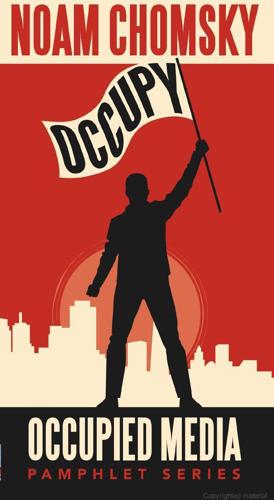
Occupy
by
Noam Chomsky
Published 2 Jan 1994
After Thirty Years of Class War Interview with Edward Radzivilovskiy, Student, New York University, Paris Interview conducted at MIT, Cambridge, Massachusetts, January 6, 2012 I want to start off with something you said at Occupy Boston: “The most exciting aspect of the Occupy movement is the construction of the linkages that are taking place all over. If they can be sustained and expanded, Occupy can lead to dedicated efforts to set society on a more humane course.”§§ Some have said that the Occupy movement does not have a cohesive message of its demands. If you do believe that the Occupy movement does have specific demands, how many of these demands do you actually think can be realized? There is quite a range of people from many walks of life and many concerns involved in the Occupy movement. There are some general things that bring them together, but of course they all have specific concerns as well.
…
It’s taking place in the midst of “countless small actions of unknown people” who are rising. The Occupy movement is an extremely exciting development. In fact, it’s kind of spectacular. It’s unprecedented. There’s never been anything like it that I can think of. If the bonds and associations that are being established in these remarkable events can be sustained through a long, hard period ahead—because victory won’t come quickly—it could turn out to be a really historic, and very significant, moment in American history. The fact that the Occupy movement is unprecedented is quite appropriate. It’s an unprecedented era.
…
And he was very highly praised for this, greatly admired. Well, now the world is indeed splitting into a plutonomy and a precariat—again, in the imagery of the Occupy movement, the 1 percent and the 99 percent. Not literal numbers, but the right picture. Now, the plutonomy is where the action is. Well, it could continue like this. If it does continue like this, the historic reversal that began in the 1970s could become irreversible. That’s where we’re heading. And the Occupy movement is the first real, major popular reaction that could avert this. But, as I said, it’s going to be necessary to face the fact that it’s a long, hard struggle.
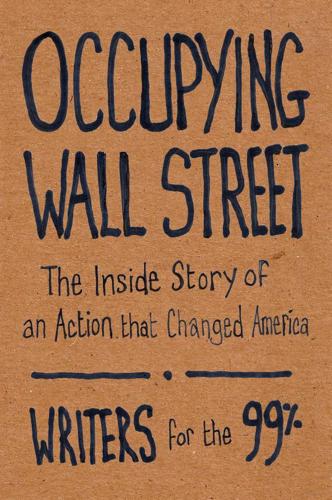
Occupying Wall Street: The Inside Story of an Action That Changed America
by
Writers For The 99%
Published 17 Dec 2011
On October 5, the mass convergence of students and workers at Foley Square, combined with the October 1 arrest of more than 700 OWS protesters on the Brooklyn Bridge, played a pivotal role in raising public awareness of the Occupy movement. The event also shows how Occupy Wall Street facilitated interconnections and coalition building. Indeed, the OWS-enabled solidarity between student and labor movements was by no means inevitable. Conflicting motivations, needs, and goals had in recent years fostered divisions–not only between workers and students, but between students of public and private universities and between workers from different unions. With its amorphous goals, but ardent opposition to budget cuts and corporate takeover of public services, the Occupy movement offered a sufficiently large umbrella to mobilize groups with seemingly disparate priorities toward a common cause.
…
Members of Teamsters Local 802 were introduced to members from Local 814 through the Labor Working group, and the two locals quickly decided to support one another’s respective struggles with management. Julian Tysh, an organizer with Local 814, credited the Occupy movement with encouraging workers on picket lines, while universalizing their struggles by pitting them against a common enemy—the 1 percent. “The Occupy movement has changed unions,” said Stuart Appelbaum, president of the Retail, Wholesale and Department Store Union (RWDSU). “You’re seeing a lot more unions wanting to be aggressive in their messaging and their activity.” Indeed, in response to Occupy Wall Street, many unions were quick to seize upon the “99 percent” slogan, affixing it to buttons and signs for the October 5 march.
…
The Media Center Whether it was reporters from NY1, New York City’s local news channel, or journalists working for foreign news agencies such as the BBC, Spain’s La Sexta, or Al Jazeera, the Occupy Wall Street encampment found itself from its first days the target of frequent visits by members of the press. With journalists came questions—quickly, the Occupy movement realized it had need of articulate, informed supporters able to liaise with the press, answering the many questions that arose about a hard-tocategorize, leaderless, and ostensibly demand-less uprising. As a result, the Occupy movement moved early on to put together a Press Relations working group designated occupiers armed with information about the movement and drawn from within its ranks in the hope of communicating at least some truth about the encampment at Zuccotti through a media often characterized by misrepresentation and confusion.
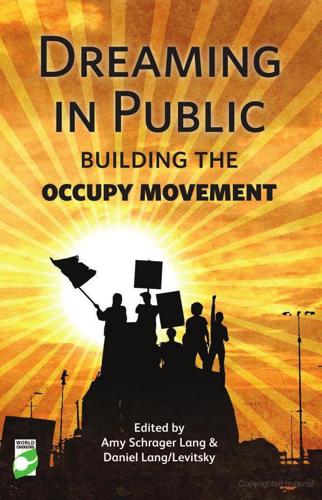
Dreaming in Public: Building the Occupy Movement
by
Amy Lang
and
Daniel Lang/levitsky
Published 11 Jun 2012
We were unable to contact some photographers and imagemakers, especially those responsible for Occupy Lulz graphics – if you are one of them, please contact us at occupy. anthology@gmail.com; we want to be able to credit you properly. DREAMING IN PUBLIC Building the Occupy Movement Edited by Amy Schrager Lang & Daniel Lang/Levitsky Dreaming In Public: Building the Occupy Movement First published in 2012 by New Internationalist Publications Ltd 55 Rectory Road Oxford OX4 1BW, UK newint.org This book has been compiled by Amy Schrager Lang and Daniel Lang/Levitsky. Copyright over the contributions to the book is held by the individual authors.
…
. ♦ Yours, as always, in solidarity, Comrades from Cairo infrontandcenter.wordpress.com/2011/11/14/comrades-from-cairo-respond-to-ows-egypt-delegation/ 1 http://nin.tl/HerBod Library Bound together by their impressionistic, casual tone, these accounts of Occupy sites report on conversations taking place around the country, on what people thought about their local Occupy movements – on the ‘sonic structure of belonging’. As Barbara Kingsolver’s ‘Another American Way’ makes clear, in Johnson City, Tennessee, as in many small cities across the US, local political traditions and regional culture shape and strengthen the Occupy movement, and give ‘the 99%’ a particular resonance. While media accounts of the early days of OWS puzzled endlessly over the relationship between movement participants and ‘the public’, Angus Johnston’s account of conversations at a deli near the Liberty Plaza encampment suggests that, as much as anything else, Occupy provides a vocabulary for already existing views.
…
In Flagstaff, Arizona, a city where activists have worked alongside Native communities for years, the local Occupy website features calls to resist a fake-snow-making scheme on a mountain sacred to Native tribes, as well as a plan by Senator John McCain and Representative Paul Gosar to reinstate uranium mining around the Grand Canyon. At Colorlines.com, which has covered the role of race in the Occupy movement, one commenter offered the example of Occupy Los Angeles – a city with a long history of collaborative economic justice campaigns with a clear race angle – as a model to emulate. ‘The LA folks seem to be able to reconcile how to fold race, monetary and social issues all into their messages,’ she wrote. The Occupy movement is clearly unifying. Centralizing racial equity will help to sustain that unity. This won’t happen accidentally or automatically. It will require deliberate, smart, structured organizing that challenges segregation, not only that of the 1% from everyone else, but also that which divides the 99% from within. ♦ colorlines.com/archives/2011/11/forget_the_diversity_debate_its_about_occupying_racial_inequity.html THE ONLY WAY TO EXPERIENCE THE AMERICAN DREAM IS WHILE SLEEPING An Indigenous Platform Proposal for ‘Occupy Denver’ The American Indian Movement of Colorado 9 October 2011 ‘Occupy Denver’ Adopts Colorado AIM initiative on indigenous peoples’ rights!
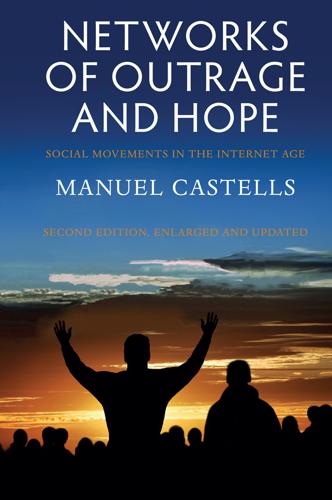
Networks of Outrage and Hope: Social Movements in the Internet Age
by
Manuel Castells
Published 19 Aug 2012
Then, in Los Angeles, my research collaborator Lana Swartz, an outstanding doctoral student at the Annenberg School of Communication at USC, was also involved in Occupy Los Angeles, and also accepted with incredible generosity, intelligence, and rigor to help me in the data collection and analysis of the Occupy movement in the United States. Joan Donovan, an active participant in Occupy Los Angeles and Inter-Occupy, a veteran of many battles for social justice, and a doctoral student at UC San Diego, gave me some key ideas that helped my understanding. Dorian Bon, a student at Columbia University, conveyed to me his experience in the student movement connected to Occupy Wall Street. My friend and colleague Sasha Costanza-Chock, a professor at MIT, shared with me his unpublished survey data on the Occupy movement in the US. Maytha Alhassen, an Arab-American journalist and doctoral student in American Studies and Ethnicity at the University of Southern California in Los Angeles, who had traveled in the Arab countries during the time of the uprisings, worked closely with me, reporting on key events that she witnessed first-hand, allowing me access to Arabic sources, and most importantly educating me about what had really happened everywhere.
…
Kaste, M. (2011) Exploring Occupy Wall Street’s “AdBuster” origin. NPR Morning Edition. Available at: <http://www.npr.org/2011/10/20/141526467/exploring-occupy-wall-streets-adbuster-origins>. Kennedy, M. (2011) Global solidarity and the Occupy Movement. Possible Futures. Available at: <http://www.possible-futures.org/2011/12/05/global-solidarity-occupy-movement/>. Kroll, A. (2011) How Occupy Wall Street really got started. Mother Jones. Available at: <http://motherjones.com/politics/2011/10/occupy-wall-street-international-origins>. Schwartz. M. (2011) Pre-occupied: the origins and future of Occupy Wall Street.
…
Available at: <http://www.csmonitor.com/USA/Politics/2011/1107/Bank-Transfer-Day-How-much-impact-did-it-have>. Hamilton, W., Reckard, S., and Willon, P. (2011) Occupy Movement moves into neighborhoods. Los Angeles Times. Available at: <http://articles.latimes.com/2011/dec/06/business/la-fi-occupy-home-20111206>. “Occupy Wall Street goes home.” (2011) Occupy Wall Street. Available at: <http://occupywallst.org/article/occupy-wall-street-goes-home/>. Riquier, A., Gopal, P., and Brandt, N. (2011) Occupy Movement targets home evictions in US Day of Action. Bloomberg. Available at: <http://www.bloomberg.com/news/2011-12-06/occupy-protest-movement-targets-home-evictions-in-u-s-day-of-action-.html>.
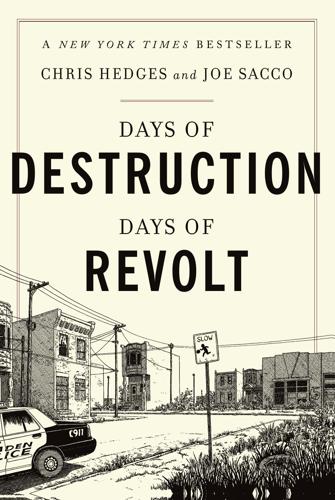
Days of Destruction, Days of Revolt
by
Chris Hedges
and
Joe Sacco
Published 7 Apr 2014
“What happened in Immokalee is similar to what is happening in the rest of the country with the Occupy movements,” he says: We began because we were desperate. We didn’t see a solution through the system itself. We knew we had to change the balance of power between the workers and the corporations. And this is happening all over the world. Many people are desperate. They work hard and have nothing to show for it. You see in these Occupy movements young people who burned their eyelashes off studying and have no job and huge debts. There are differences. We are poor. We are isolated. But like the Occupy movements we are organic, we are responding to corporate power.
…
Anyone who trusts in the reformation of our corporate state fails to recognize that those who govern, including Barack Obama, are as deaf to public demands and suffering as the old communist regimes. The Occupy movement knew the media would not amplify their voices. So they created media of their own. They knew the economy serves the oligarchs, so they formed their own communal system. They found another way to be heard and build a society. Kevin Zeese is one of the activists who first called for the Occupy movements. We met on a snowy afternoon in Washington at Skewers, a small Middle Eastern restaurant. Zeese and others, including public health-care advocate Dr.
…
That’s translated into communities throughout the country that don’t want anything to do with each other, that are so foreign to each other that there is hardly a drop of empathy between them. The Occupy movements fused the elements vital for revolt. They attracted small groups of veteran revolutionists whose isolated struggles, whether in the form of squatter communities or acts of defiance such as the tree-sit protest in Berkeley that ran from December 1, 2006, to September 9, 2008, to save an oak grove on the University of California campus,31 are often unheeded by the wider culture. The Occupy movements, like the movements in Eastern Europe, were nurtured in numerous small, dissident enclaves. Bands of revolutionists in cities such as New York, Oakland, Chicago, Denver, Boston, San Francisco, Eugene, Portland, Los Angeles, and Atlanta severed themselves from the mainstream, joined with other marginalized communities, and mastered the physical techniques of surviving on the streets and in jails.
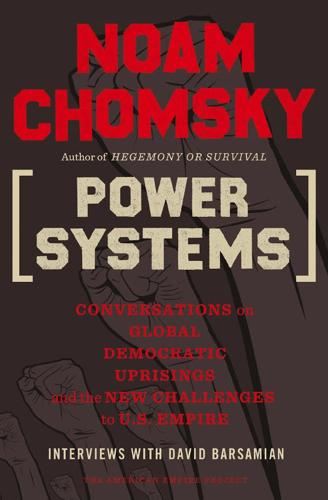
Power Systems: Conversations on Global Democratic Uprisings and the New Challenges to U.S. Empire
by
Noam Chomsky
and
David Barsamian
Published 1 Nov 2012
And if anyone questions that, it leads to near hysteria and often to charges of anti-Americanism or “hating America”—interesting concepts that don’t exist in democratic societies, only in totalitarian societies and here, where they’re just taken for granted. 4 Domestic Disturbances CAMBRIDGE, MASSACHUSETTS (JANUARY 17, 2012) As someone who is interested in the political deployment of language, you must appreciate the irony of “occupy” and “occupation,” which are extremely negative terms, being used in a very positive way by the Occupy movement. It’s an interesting usage, and it took off. Occupy now means taking something over for popular goals. Occupying public space has been a very successful tactic. I would have never guessed it would have worked, frankly. There is an incipient movement called Occupy the Dream. It was formed by representatives of the Occupy movements and surviving leaders of the original civil rights movement, including Benjamin Chavis.1 The dream that they’re talking about is not the one that people refer to on Martin Luther King Day, the civil rights dream.
…
There has been an increase in the use of terms such as “income inequality,” “concentrations of wealth,” “CEO pay,” “poverty,” “unemployment” since the Occupy Wall Street movement began in September 2011. The idea of the 1 percent and 99 percent has become common. The Occupy movement has succeeded in tapping feelings, attitudes, and understandings that have been latent, hidden right below the surface. They brought it out. All of a sudden it exploded. It’s interesting, if you take a look at the business press, the Financial Times, which is the most important business daily in the world, has been surprisingly sympathetic to the Occupy movements. Not to their longer-term goals—they don’t talk about those—but the short-term ones. They use a lot of this imagery now quite freely, and in quite a sympathetic way.
…
In fact, in the case of Egypt, international financial elites highly praised the Mubarak dictatorship for its amazing economic performance and reforms up to just weeks before the regime crashed. Similar things are happening in Africa, here, and in Europe. The indignados in southern Europe and the Occupy movements here are in a sense similar, even if they are from different worlds. The protests are not against dictatorships but against the shredding of democratic systems and the consequences of the Western version of the neoliberal system, which has had structurally consistent effects for the past thirty years: a very narrow concentration of wealth in a fraction of 1 percent of the population, stagnation for a large part of the rest, deregulation, and repeated financial crises, each one harsher than the last.
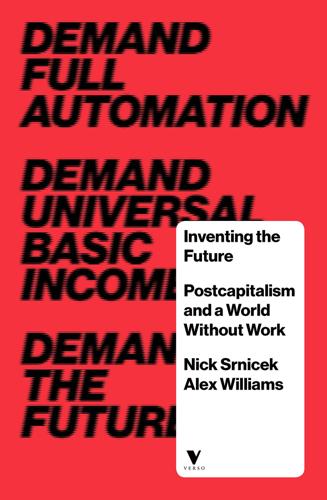
Inventing the Future: Postcapitalism and a World Without Work
by
Nick Srnicek
and
Alex Williams
Published 1 Oct 2015
If Occupy was unsuccessful in expanding prefigurative spaces beyond the margins of society, these protest camps could still be useful as launching pads for direct action. Indeed, one of the most notable achievements of the Occupy movement was to establish a social and physical infrastructure that could act as a foundation for direct actions. In countries like Greece and Spain, debt strikes have been organised and picket lines formed for workers without the right to strike. Other Occupy movements supported squatters, provided food for the homeless, set up pirate media, mobilised to prevent evictions, protested against government cuts and provided humanitarian relief after natural disasters.
…
Around the world, people set up protest camps and mobilise against economic inequality, but the gap between the rich and the poor keeps growing. From the alter-globalisation struggles of the late 1990s, through the antiwar and ecological coalitions of the early 2000s, and into the new student uprisings and Occupy movements since 2008, a common pattern emerges: resistance struggles rise rapidly, mobilise increasingly large numbers of people, and yet fade away only to be replaced by a renewed sense of apathy, melancholy and defeat. Despite the desires of millions for a better world, the effects of these movements prove minimal.
…
The 2009 G20 summit in London, for instance, featured protestors marching for issues that spanned from grandiose anti-capitalist stipulations to modest goals centred on more local issues. When demands can be discerned at all, they usually fail to articulate anything substantial. They are often nothing more than empty slogans – as meaningful as calling for world peace. In more recent struggles, the very idea of making demands has been questioned. The Occupy movement infamously struggled to articulate meaningful goals, worried that anything too substantial would be divisive.3 And a broad range of student occupations across the Western world has taken up the mantra of ‘no demands’ under the misguided belief that demanding nothing is a radical act.4 When asked what the ultimate upshot of these actions has been, participants differ between admitting to a general sense of futility and pointing to the radicalisation of those who took part.
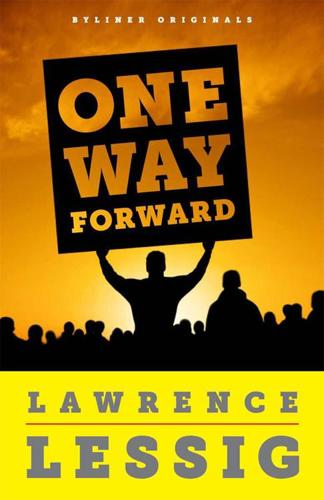
One Way Forward: The Outsider's Guide to Fixing the Republic
by
Lawrence Lessig
Published 12 Feb 2012
My book Republic, Lost had been released, and I had just returned to the States from an overseas trip. More than slightly jet-lagged, I climbed on a subway to Zuccotti Park to watch and listen and then participate as the people in that park, with the movement it represented—Occupy Wall Street—mobilized fifteen thousand people to march to City Hall. The Occupy movement had begun two and a half weeks before, on September 17, 2011 (a.k.a. Constitution Day). Initially proposed in July by the Canadian group Adbusters, the movement was reported on two days later in a YouTube video on a Facebook page. Three days after that, the protest reached critical mass. Wikipedia reports that “by mid-October, Facebook listed 125 Occupy-related pages” and that “roughly one in every 500 hashtags used on Twitter, all around the world, was the movement’s own #OWS.”12 On October 15, “tens of thousands of demonstrators staged rallies in 900 cities around the world, including Auckland, Sydney, Hong Kong, Taipei, Tokyo, São Paulo, Paris, Madrid, Berlin, Hamburg, Leipzig, and many more.”
…
Sometimes he sleeps at the camp. When I interviewed him in December 2011, he still had a camp set up. Patterson became an Occupier as a disillusioned Obama supporter. As he told me, “The mechanisms that we have in place to resolve the problems of society are not functioning.” And as he became part of the Occupy movement, he began to recognize the many “around the country [who were] feeling the same sort of frustration.” Occupy K Street is different from Occupy Wall Street.15 As Patterson described, we “adopted what they did in some ways, but we also built upon [it] and did things differently.” For example, like Occupy Wall Street, Occupy K Street uses no technical sound amplification when speakers speak, although no D.C. regulation forbids it.
…
No one (outside of MIT) imagined the Internet; this kind of movement created it. No one (outside of MIT) predicted GNU/Linux, the free software operating system that took on Windows; this kind of movement built it. No one anywhere conceived of Wikipedia as even possible; this kind of movement wrote it. No one predicted the energy of the Tea Party or the Occupy movement or the other parallel movements around the world, but all of them fit this same form. Indeed, as I’ve gathered the material for this short book, I’ve been most struck by the universal invocation of the ideals of “open-source culture” to explain these movements. And not just on the Left. Mark Meckler and Jenny Beth Martin, of the Tea Party Patriots, open their book by defining the Tea Party as an “open-source community.”18 In the world of computer software, open-source communities develop and improve ideas organically, based on concepts and practices that work.
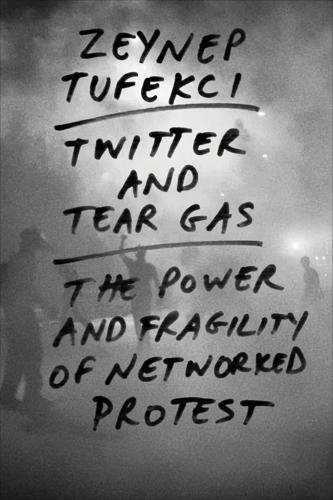
Twitter and Tear Gas: The Power and Fragility of Networked Protest
by
Zeynep Tufekci
Published 14 May 2017
The most serious weakness of these methods, especially those that prioritize—or even fetishize—consensus above all, is that they are often unable to resolve even minor disagreements, even when most agree on a course of action. Consider what happened in Atlanta, Georgia, on October 6, 2011, less than two weeks after the Occupy movement started in Zuccotti Park, New York. Hundreds began to gather in Woodrow Park in Atlanta and launched the Occupy movement in their hometown. It was a pleasant day, with a high temperature of eighty-one and little humidity. Like Zuccotti Park and elsewhere, the protesters chose to meet in an “assembly” in a park. Assemblies and “human microphones” (or “mic checks”) have become the dominant methods of meeting in Occupy protests.
…
Many movements seek decision-making structures that align with their participatory impulses. In New Zealand, technically inclined veterans of its Occupy movement launched a platform called Loomio, a tool designed for horizontalist movements that want to keep the participatory structures of the assembly model to facilitate decision making. I met with one of its cofounders Benjamin Knight in New York. He was only in his twenties, but he was already a veteran of the Occupy movement and frustrated by its lack of tactical and strategic decision-making capacities. Teaming up with other people, he created Loomio, an online platform that blends practical considerations with a movement ethos.
…
In the networked era, a large, organized march or protest should not be seen as the chief outcome of previous capacity building by a movement; rather, it should be looked at as the initial moment of the movement’s bursting onto the scene, but only the first stage in a potentially long journey. The civil rights movement may have reached a peak in the March on Washington in 1963, but the Occupy movement arguably began with the occupation of Zuccotti Park in 2011. The future trajectory or potential impacts of networked movements cannot be fully understood by using only the conceptual models, indicators and benchmarks that we have gathered from the histories of earlier movements. Similar-looking moments and activities—large marches, big protests, occupations—do not represent the same points in the trajectories of the networked movements as they did in movements organized along traditional models and without digital tools.
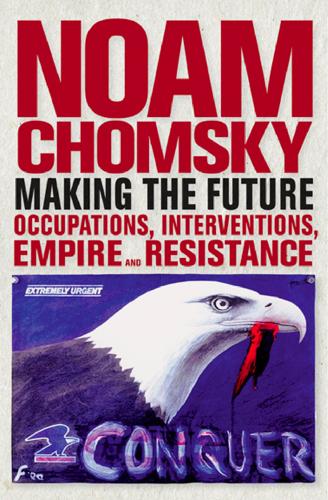
Making the Future: The Unipolar Imperial Moment
by
Noam Chomsky
Published 15 Mar 2010
“History’s actors” should be so unlucky that an observer as knowledgeable, indefatigable, writerly and unflinching as Noam Chomsky is on hand to “study what we do.” Events belie the senior adviser as this book goes to press. The Occupy movement is on fire worldwide, ignited by outrages that Chomsky explores here: inequality, disenfranchisement, official arrogance and deceit. “I’ve never seen anything quite like the Occupy movement in scale and character, here and worldwide,” Chomsky said at Occupy Boston on October 22, 2011, a talk adapted for this book’s final entry. “The Occupy outposts are trying to create cooperative communities that just might be the basis for the kinds of lasting organizations necessary to overcome the barriers ahead and the backlash that’s already coming.”
…
I can’t help but regret that he’s not here to take part in and invigorate a movement that would have been the dream of his life, and for which he laid a lot of the groundwork. The Occupy movements are exciting, inspiring. If the bonds and associations being established in these remarkable events can be sustained and carried forward through a long, hard period ahead—victories don’t come quickly—the Occupy protests could mark a truly significant moment in American history. I’ve never seen anything quite like the Occupy movement in scale and character, here and worldwide. The Occupy outposts are trying to create cooperative communities that just might be the basis for the kinds of lasting organizations necessary to overcome the barriers ahead and the backlash that’s already coming.
…
Taken together, the columns in this edition present a narrative of the events that have made the future since 2007: the wars in Afghanistan and Iraq; the U.S. presidential race; the ascendancy of China; Latin America’s leftward turn; the threat of nuclear proliferation in Iran and North Korea; Israel’s invasion of Gaza and expansion of settlements in Jerusalem and the West Bank; developments in climate change; the world financial crisis; the Arab Spring; the death of Osama bin Laden; and the Occupy protests. As often happens, Chomsky’s columns anticipate events. His August 2011 column, “America in Decline,” foreshadows a premise of the Occupy movement: “The resulting concentration of wealth [since the 1970s] yielded greater political power, accelerating a vicious cycle that has led to extraordinary wealth for a fraction of 1 percent of the population, mainly, while for the large majority real incomes have virtually stagnated.” In every sense Chomsky lives up to the title of “public intellectual.”
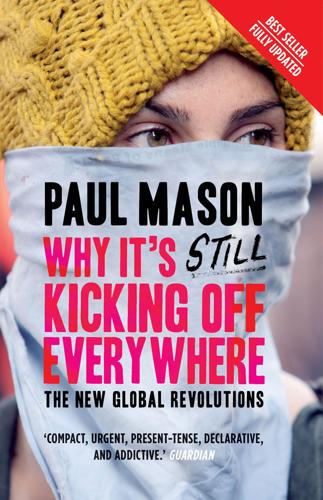
Why It's Still Kicking Off Everywhere: The New Global Revolutions
by
Paul Mason
Published 30 Sep 2013
Around the edges of the project move people from a completely different demographic: the so-called indignados of the 15M movement—anti-globalist youth with trade-mark tattoos and piercings. The indignados made world headlines after massive occupation protests in public squares in May 2011, in turn sparking the global Occupy movement. When you see the Utopia flats, draped with banners announcing ‘no homes without people, no people without homes’, you see what happens when official politics abandons people. Very ordinary, indeed anti-political people have begun to turn to Spain’s radical youth for help. They in turn have found a purpose, here and elsewhere, outside mainstream politics, which they despise.
…
But we need victories, we need hope, we need to do things that make people think there is a solution. That’s what made people from different ideologies, movements, strategies work together in a project like this. Before this we never had such objectives—it’s new—but it’s because the situation is really critical.’ * * * * Since the original version of this book was published the Occupy movement took centre stage in the USA, the Russian protests went through the entire cycle of flowering and repression, and important movements such as those in Chile and Canada took place. I’ve spent the past twelve months trying to cover these events firsthand, mainly as part of my day job as a TV reporter.
…
And sometimes just through bitterly earnest songs, in journalism, in 140-character tweets going viral to an online community of millions—actions Putin could never understand, and the FSB could never totally repress. Two months before his election, Vladimir Putin had crowed to the West about its problem with the Occupy movement, who were ‘not just a bunch of outcasts but hundreds of thousands’. Now he had that problem too. Russia is a lucky country. Since the fall of communism it has been blessed with not just one kleptocratic elite, but two. Under Boris Yeltsin, the so-called oligarchy was created when a small group of businessmen, initially emerging from the Gorbachevera elite, seized the country’s privatized resources with all the subtlety of a lion enclosure at feeding time.
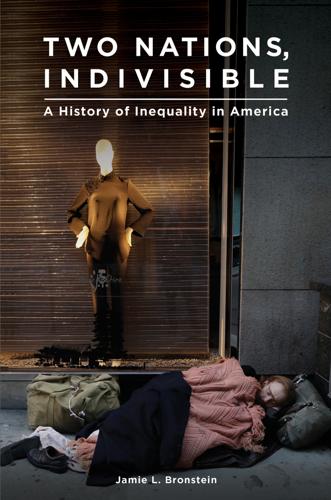
Two Nations, Indivisible: A History of Inequality in America: A History of Inequality in America
by
Jamie Bronstein
Published 29 Oct 2016
On the left, disaffection with American inequality crystallized into the 2011 Occupy Wall Street movement, whose rhetoric pitted the top 1 percent of income-earners or wealth holders (the distinction seemed ambiguous) against the 99 percent with whom the movement’s followers identified. Protesters occupied Zuccotti Park in Manhattan’s Wall Street district and set up a campground and a “people’s assembly.” Later, Occupy movements sprouted up around the world. Rhetorically, the Occupy movement had much in common with the egalitarian forebears described in previous chapters. As social critics had in the eighteenth century, Occupy protesters formulated a list of grievances, the “Declaration of the Occupation of New York City.” Like their nineteenth-century progenitors, the protesters focused on the corporations: “corporations do not seek consent to extract wealth from the people and the Earth, and … no true democracy is attainable when the process is determined by economic power.”33 They proposed an opposition between the rich and the poor: The Occupy Wall Street movement is not just demanding change.
…
Not only had banks grown so large that they were considered worthy of government bailouts, but also the suspension of the Glass-Steagall Act enabled banks to invest in ways that were in direct conflict with the interests of their depositors.38 The Occupy movement never gained much traction, for several reasons. First, it was impossible for Occupy protesters to pose a real alternative to capitalism without alienating the mainstream media and many Americans.39 The impossibility, today, of really describing alternate economic arrangements without having them written off as “socialistic” testifies to the power of capital to silence other voices and to make change impossible by constricting the notion of alternatives.40 Second, while the language and the tactics of the Occupy movement were promising, the movement was hindered by its lack of larger strategy.
…
Others issued a vague call for tax restructuring, or job growth through the formation of local cooperative movements using environmentally sustainable practices.41 English professor and Occupy participant Stephen Collis advocated expansion of public transit and free education and health care.42 Some form of reviving collective bargaining, although perhaps not through a traditional union movement, was also suggested.43 A slow movement overly focused on democratic process at the best of times, Occupy was open to being portrayed by the press as increasingly dirty, dangerous, unfocused, or even Marxist and laughable.44 The Occupiers were so enamored of direct democracy that they celebrated divisions within the movement rather than making progress toward some common goal.45 Nonetheless, the Occupy movement brought sustained public attention to the issue of inequality and the degree to which American politics had been captured by the wealthiest 1 percent. Awareness of the issue among young people arguably fueled Vermont Senator Bernie Sanders’s popularity during the 2016 Democratic presidential primary. DISSATISFACTION WITH THE STATUS QUO: THE TEA PARTY A right-wing protest movement emerged a year before the Occupy movement. It was, in its own way, also a protest movement against inequality, but it defined the major issues differently.
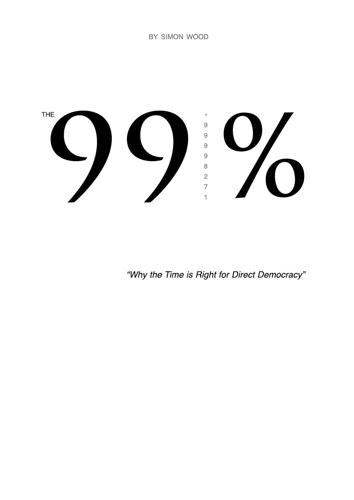
The 99.998271%
by
Simon Wood
Published 23 Apr 2012
The Occupy Wall Street protests have spread rapidly around the country and now all over the world, and may continue to do so. The reason for the popularity of these protests is simple: the protesters want to live by truly democratic principles and are tired of bought and corrupt politicians. They know who pulls the strings and want no more of it. It is remarkable in itself that the Occupy movement is supported according to polls by a majority of Americans. Historically, such movements take much longer to garner such support. The fact that this has happened so quickly serves as testament to the frustration huge numbers of Americans feel. Yet another worrying domestic issue for Americans is the massive database being created by the National Security Agency (NSA) through warrantless wiretapping.
…
The Occupy Wall Street movement, at first ignored completely by the establishment media, is now feeling the full force of the propaganda mill, with protestors smeared as ‘hippies’ and ‘pot smokers’ with ‘no direction in their lives’ and so on. 41 The author of this book is not a professional journalist, so I hereby request that professional journalists in the media point out to me the part of the course in journalism they studied at college which says that journalists are supposed to criticize, insult, judge and demean the subjects of the stories they cover. It may be old fashioned to say it, but are journalists not simply supposed to report facts in a neutral fashion, and provide honest, unbiased background or analysis (without omissions of important, relevant information) in order to inform the public? The Occupy movement, while an important expression of discontent, is in danger of stagnating unless it evolves and/or grows significantly. With winter already here, only the hardiest will remain steadfast in the face of wall-to-wall media condemnation, ridicule and propaganda. And many are. When spring comes, the elites know that most of the country will be engrossed in the biggest reality show in town – the presidential election.
…
This could never happen, because both parties are controlled by their financial benefactors, but it would be an interesting experiment, as the media and all other instruments of the corporate elites which ensure the status quo is maintained would be forced to fire at such a person with all guns blazing, just as they are doing with the Occupy movement. The world would witness a campaign of character assassination the like of which has never been seen before. An alternative is for someone to run as an independent candidate. Step forward Matt Damon! There is only one other option, one thing that can save the sane majority who do not want violence, war, torture, hatred or greed, but simply want to live a productive life in peace with all the tools of freedom guaranteed for them and their children in the Universal Declaration of Human Rights - and that is to endow the people with executive power in a legal fashion as described later in this book.
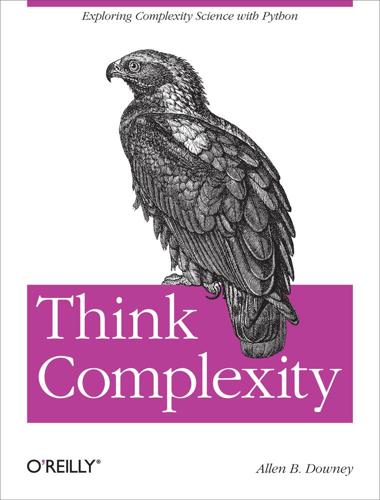
Think Complexity
by
Allen B. Downey
Published 23 Feb 2012
Similar behavior is seen in most real economies where a small part of the population holds a large fraction of the wealth. Extreme wealth inequality is generally considered a problem, because it means there are many people barely surviving while others are fabulously rich. The Occupy Movement Wealth inequality has partly fueled a modern social movement known as the Occupy movement. The first significant Occupy protest was on Wall Street in New York City, where thousands of protesters gathered to express their dismay with the distribution of wealth, among other things. The movement’s motto is “We are the 99%,” reminding politicians to serve the majority, not the 1% who control more than a third of the nation’s wealth.
…
Self-Organized Criticality Sand Piles Spectral Density Fast Fourier Transform Pink Noise Reductionism and Holism SOC, Causation, and Prediction 10. Agent-Based Models Thomas Schelling Agent-Based Models Traffic Jams Boids Prisoner’s Dilemma Emergence Free Will 11. Case Study: Sugarscape The Original Sugarscape The Occupy Movement A New Take on Sugarscape Pygame Taxation and the Leave Behind The Gini Coefficient Results with Taxation Conclusion 12. Case Study: Ant Trails Introduction Model Overview API Design Sparse Matrices wx Applications 13. Case Study: Directed Graphs and Knots Directed Graphs Implementation Detecting Knots Knots in Wikipedia 14.
…
The movement’s motto is “We are the 99%,” reminding politicians to serve the majority, not the 1% who control more than a third of the nation’s wealth. A major goal of the movement is to achieve a more equal distribution of income, which protesters hope to accomplish by implementing a more progressive tax policy. One of the effects of taxation is to redistribute wealth from the rich to the poor. But opponents of the Occupy movement (and many fiscal conservatives) claim that high tax rates for the rich actually hurt the population as a whole. The logic is that wealthy people employ the poor, redistributing the wealth without the need for tax levies. A New Take on Sugarscape Our implementation of Sugarscape aims to study the effect of taxation on the wealth of a society.
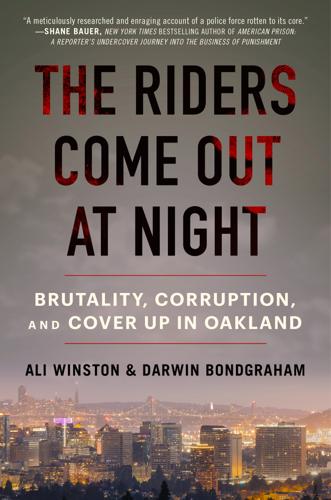
The Riders Come Out at Night: Brutality, Corruption, and Cover-Up in Oakland
by
Ali Winston
and
Darwin Bondgraham
Published 10 Jan 2023
R.,” 106, 108, 126–27 Knowland, William, 126–28, 133 Ko, Barry, 340 Konopasek, Keith, 176 Koponen, Andrew, 200–201 Koster, John, 221–22 Kozicki, David, 230, 251, 252, 256–58 Kraemer, Sanford, 130 Krauss, David, 170 Kreins, Ed, 219 Ku Klux Klan (KKK), 97, 103–6, 107–8, 124 Kumra, Raveesh, 303 L labor conflicts, 108–13, 127, 288–91 Landreth, Sabrina, 341, 342, 353, 369, 370–72 Latinos Jose Barlow Benavidez killing, 87, 255–56 civil rights complaints against the OPD, 87 economic declines in Oakland and, 243 Ku Klux Klan attacks against, 105 in OPD data on stop-and-search incidents, 312–13 racial profiling by the OPD, 358 voter registration and, 126 Le, Belinda, 215 Lederman, Rachel, 263–64 Lee, Barbara, 150–51, 229, 254 Lee, Kwang, 22–23 Lee, Terence, 130 Legan, Mike, 72 Leite, Michael “Mike,” 251–53, 291 Lewis, Bayan, 170 LGBTQ community, 2 Scott Hoey-Comstock in the OPD, 54–56, 209 Dan White murders in San Francisco and, 148 Lindheim, Dan, 257, 272 Lindsay, John, 71 Lindsey, Drennon, 248–52, 256, 258–59 Lockyer, Bill, 255 Lois, John, 335, 337, 348 Loman, Jeff, 228–29 Longmire, Derwin, 43–47, 51, 228–29, 231, 232, 236, 289, 290 Lopez, Christy, 97, 196, 206–8, 210–11, 213, 220, 269 Los Angeles Police Department (LAPD) Christopher Commission, 91, 96, 196, 199, 207 Community Resources Against Street Hoodlums (CRASH) units, 62–63, 170 federal consent decree, 62, 92–93 history of ethnic conflict, 105 Internal Affairs structure, 119 Rodney King beating and riots, 2, 25–26, 91–93, 180, 199, 241, 243, 263, 352 Ku Klux Klan members, 105 labor conflicts and, 108–9 Office of Inspector General, 352 “pattern and practice” probe of civil rights abuses, 62–63, 91, 92–93 Rampart Division scandal, 31, 62, 92–93, 94, 180, 255 recruiting practices, 140 Special Weapons and Tactics (SWAT) unit, 170 Watts rebellion (1965), 2, 124, 129–30, 140, 243, 260 Los Angeles Times, 108–9, 127 LoVerde, Giovanni, 325, 326, 342, 343 Lucas, Clarence, 141 Lucas, Spencer, 222–25 Lucia, Rockne, 96, 371 Lye, Linda, 310–11 M Ma, Wing Wo, 340 Mabanag, Clarence “Chuck” citizen misconduct complaints and, 7, 58, 59, 84, 85, 93–94 early intervention program and, 7–8 as field training officer, 7–29, 67–70 Hoey-Comstock mistreatment case and, 56–57 leave from OPD and, 58 in the Special Duty Unit (SDU), 8 termination by OPD, 64, 81 in West End Law clique, 56–57 see also the Riders Mack, Michael, 222 Mack, Rodney, 73–75, 82–83 Mackey, Antoine, 230–31 Madarang, Jon, 30–32, 59, 235 Malcolm X, 123 Mandela, Nelson, 240 Manning, Chelsea, 285 Marshall, Thurgood, 131 Martin, Todd, 286, 297 Martin, Trayvon, 310, 312 Martinez, Dave, 222 Martinez, Francisco, 219, 220–21 Martinez, Jim, 55–57 Matthews, Mary, 161–62 Mausz, Erin, 185 Mayer, Ingo, 222–25 Maynard, Nancy, 225–26 Maynard, Robert, 225–26 Maywood Police Department, 255, 354 McCannon, Mark, 339 McCarthy, Garry, 346 McCone, John, 130 McDaniel, George B., 117 McDonald, Laquan, 346 McFarlane, Aaron, 69–70 McGuinn, Joe, 252 McHugo, James, 109 McInnis, Vernon “Preacher Man,” 164 McInturf, Kari, 263 McKinney, Gene, 134–36 McKinney, Oretha, 156 McLendon, Benjamin, 105 McNeely, Richard, 303 Mearis, Terrance, 198–99 Medeiros, Brian, 234–35 Meese, Edwin “Ed,” 133, 169 Mehserle, Johannes, 237–39, 243–44, 259–64, 276 Mendoza, Angelica, 363 Metcalfe, Ralph H., 88 Miami Police Department, 2 Midyett, Marcus, 199–200 Milina, Eric, 287–88 Milk, Harvey, 148 Miller, Anthony, 66 Miller, Carl, 173 Miller, Malcolm, 71–72 Miller, Phillip, 69 Millington, Sekou, 219 Minneapolis Police Department, George Floyd killing, 1, 2–3, 377, 380 Miralle, Anita de Asis “Needa Bee,” 281–82 Mitchell, Felix, 163–66, 169, 171, 213–14 Mitchell, Jason, 194, 247 Mitford, Jessica, 114, 116–17, 118 Mixon, Lovelle, 244–61 funeral for Mixon, 255–56 funeral for OPD officers, 254–55 investigation of case, 256–59, 269 manhunt and shootout, 245–54, 256–57, 291, 323 Mehserle trial and protests, 259–61, 262–64 Mixon, Reynette, 253, 257 Monell doctrine, 89–90 Money Team (ENT, gang), 302, 303–4, 307, 308 Montoya, Geraldine, 42–43, 45 Montoya, Louis, 45 Moore, George, 192 Moore, Michael, 200 Moore, Milton “Mickey,” 165 Moppin-Buckskin, Andrew, 194–96, 201, 205–6, 298 Moreno, Armando, 332 Moriarty, Sean, 54–56 Morse, Fred, 110 Moscone, George, 148 Mueller, Robert, 62–63 Mufarreh, Chris, 249–52, 256–58 Muhammad, Elijah, 226 Muhammad, Keith, 239, 240 Mulford, Don, 135 Murphy, Larry, 147 Murphy, Timothy “Tim,” 41–42, 51 Muszar, Bob, 177 N Nakahara, Vernon, 79–80 Nakamura, Steven, 222, 223–24 Nash, Torrey, 201 Nation, 37–38 National Association for the Advancement of Colored People (NAACP), 116–17, 131, 154, 156–58, 240, 374 National Negro Council, 114–15 Nation of Islam / Your Black Muslim Bakery scandal, 226–32, 236 Naumann, Michael, 190 Nava, Carlos, 282 Nedderman, John, 102–3 “Needa Bee” (Anita de Asis Miralle), 281–82 Neely, Mark, Jr., 338–39 Negotiated Settlement Agreement (NSA, OPD) backsliding risks and, 382–85 basis in the Riders scandal, 98–99, 207, 240, 374, see also the Riders Chauncey Bailey Project and, 232 Chief of Police turnover and, 350 Compliance Director Thomas Frazier, 301–2, 306, 307, 313 Compliance Director Warshaw, see Warshaw, Robert costs of, 298, 375 early warning system for risky behaviors, 96, 198, 199–201, 271 implementation (2003), 3, 95–96 importance of external accountability, 382–85 initial five-year term and extensions, 95–96, 212, 271, 299 Anne Kirkpatrick and, 347, 349–51, 356–59, 364–66, 369–72 media exposures of failures of, 225–33, 236 monitoring team one, 95–99, 196–99, 206–14, 220, 225, 268–69 monitoring team two, 270–72, 282–83, 294–95, 298–302, 311, 337–38, 341 new recruits to the OPD and, 274, 295, 320, 342 obstructionist mindset within the OPD, 96, 131–34, 180, 207–12, 213–14, 225–32, 271–72, 294–95, 298–302, 306, 351–52, 374–76 officer-involved shootings and, 196–99, see also officer-involved shooting (OIS) incidents OPD achieves compliance with, 378–79 OPD sexual misconduct scandal and, 337–38 progress in fulfilling tasks, 268–73, 294–96, 312–14 purpose of, 337–38 receivership option, 271–73, 293, 295, 297–99, 301, 379 reopening of Internal Affairs investigations, 196–99, 234–36, 306 strip-search investigation, 221–25, 268, 272 summary of impact, 375, 379–82 supervising judge, see Henderson, Thelton Warrantgate scandal investigation, 213–21 see also Internal Affairs Division (IAD, OPD) Negrete, Francisco, 359–60, 366–70 Nelson, Cunnery, 217–18 New Deal, 111, 132 Newton, Huey P. as cofounder of the Black Panther Party (BPP), 5, 123–24, 125, 151 consolidation of BPP in Oakland, 158–60 crack addiction, 172 death, 171–73, 174 doctorate degree, 172 flees to Cuba, 161 legacy, 173 Oakland underworld and, 159–62 OPD counterinsurgency operation and, 134–37 prison terms, 136, 158, 172 Revolutionary Suicide, 136 Seventh Street gun battle, 136–39 Kathleen Smith killing and, 160–61, 162, 172, 239 “Squad” (bodyguards), 159–62, 164 Newton, Tom, 193 New York Police Department (NYPD) Sean Bell killing, 238 Amadou Diallo execution, 38, 180, 238 labor conflicts and, 109 as model for other police departments, 37–38, 170, 309, 310, 346 Mollen Commission on drug corruption (1994), 180 Occupy Wall Street, 281, 287 “Ring of Steel” surveillance system, 310 Frank Serpico as whistleblower, 71, 383 Street Crime Unit, 170 Nichelini, Robert, 177 Nicks, Peter, 313–14 “Night Riders” scandal, see the Riders Nixon, Richard M., 5–6, 133, 168–69 Noll, Holly, 261–62 Norfleet, Derrick, 254 Norteños (gang), 195, 267–68 North Side Oakland (NSO, gang), 265–66 Nowak, Steven, 41, 44 NSA, see Negotiated Settlement Agreement (NSA, OPD) Nut Cases (gang), 303 O Oakland, California, 177–78, 242–44, 247, 258, 273–76, 302, 305–6 Caldecott Tunnel fire (1990), 174–75 Citizens’ Police Review Board, 7, 19, 132–33, 157–58, 174, 182, 189–93, 290–91, 306, 351–52, 374 crime statistics, 34, 163, 175, 178–79, 186, 266, 302, 308, 341 disinvestment and white flight, 5–6, 33–39, 125–26, 152, 162–67, 175–76, 179 drug trade, see drug trade economic rebounds / gentrification, 16, 24–25, 125–26, 179, 181, 281, 314 financial challenges, 158, 162–63, 167–68, 243, 273–74, 280–82, 302 Ghost Town (Hoover-Foster neighborhood, West Oakland), 5–6, 14, 59, 222, 303–4, see also Black Panther Party (BPP); the Riders history of ethnic conflicts and corruption, 100–108, 110–20 history of labor conflicts, 108–13, 127, 288–91 Ku Klux Klan and, 103–6, 107–8 legal settlements, see Negotiated Settlement Agreement (NSA, OPD); Oakland, California legal settlements and jury award payments Loma Prieta quake (1989), 173–74 Measure Y parcel tax, 243, 274–76 Measure Z parcel and parking tax, 314 Occupy movement, see Occupy movement police department, see Oakland Police Department (OPD) Port Chicago disaster (1944), 131 Port of Oakland, see Port of Oakland Privacy Advisory Commission, 311, 382, see also surveillance racial discrimination and segregation, 121–29, 131, 171, 201, 299, 312–13 rise of Black leadership, 34, 38 school boycott (1966), 121–22, 124 Oakland, California legal settlements and jury award payments, 83, 88–89, 296, 298 Melvin Black killing, 156 Bradshaw / Meyer illegal strip-searches, 224–25, 272 Burris / Chanin Warrantgate class action lawsuit, 220–21, 224 federal consent decree, 94–96, 98–99, 207, 240, 265, 374, see also Negotiated Settlement Agreement (NSA, OPD) Matthew Hornung wrongful termination suit, 81 Gary King, Jr. killing, 193 Uganda Knapps, 272 Monell doctrine and, 89–90 for OPD abuses of protesters, 264 for OPD officer punitive damages penalties, 272 Matthew Watson, 98 D’Wayne Wiggins, 18 Willie Wilkins killing, 201 Mack “Jody” Woodfox killing, 206 Oakland Black Officers Association, 148, 155, 369–70, 377 Oakland Direct Action Committee (ODAC), 121–22, 123 Oakland Economic Development Council (OEDC), 132–33 Oakland Police Commission Community Police Review Agency (CPRA), 352–53, 367, 369 creation of, 352, 375 sexual exploitation scandal and, 352 termination of Anne Kirkpatrick, 372–76 Oakland Police Department (OPD) absence of US Justice Department “patterns and practices” review, 62–63 achieves compliance with the NSA, 378–79 Chief Armstrong, 366, 377–79 Chief Batts, see Batts, Anthony Black Lives Matter and, 244, 316–17, 353 Black officer resistance to police violence, 138–41 Black Panthers and, see Black Panther Party (BPP) Citizens’ Police Review Board (CPRB) and, 7, 19, 132–33, 157–58, 174, 182, 189–93, 290–91, 306, 351–52, 374 code of silence, 18, 24, 29, 54–57, 63, 68–70, 73, 138–39, 291–92, 297, 327, 340, 383 community-policing model, 177–78, 274–76 Crime Reduction Teams (CRTs), 39–41, 48, 52, 182, 217, 308, 359 Criminal Investigation Division (CID), 256, 297, 343–44, 348 directed patrols, 78–79, 300 DNA testing, 227–28, 245, 305 documentary film about, 313–14, 342 drug trade, see drug trade early intervention program and, 7–8, 341 Executive Force Review Board (EFRB), 186, 197–98, 279–80, 366–70 FBI investigations of, 154, 233, 234, 236, 278, 288 federal court oversight and reform, 3, 94–96, 98–99, 107, 180, 240, 265, 374, see also Negotiated Settlement Agreement (NSA, OPD) Fruitvale BART Station rally for Oscar Grant III shooting, 237, 239–44 Chief Gain, see Gain, Charles gangs and, see drug trade; gangs Grove-Shafter Freeway sniper, 153–54 Chief Hart, see Hart, George T.
…
In their after-action reports, Alameda County sheriffs’ deputies on the skirmish line next to the OPD’s Tango Teams copied the same boilerplate disavowals: “None of the suspects remained on scene for medical treatment and all of the suspects fled by running, which indicated they were not injured as a result of the deployment.”47 The police riot vaulted Occupy Oakland to the top of the news cycle within hours. The Occupy movement’s center of gravity shifted, establishing the Northern California protesters as a militant alternative to Zuccotti Park media darlings. Video from reporters and protesters on the ground, as well as news choppers, documenting the hours of clashes, tear gas, and Olsen’s brutal injury shocked viewers around the world.
…
A modified World War II–era poster of an aviator in a heroic pose hung on a bulletin board in the basement firing range at OPD headquarters—the same range where a scene from the Dirty Harry sequel Magnum Force was filmed in 1973—with the caption: “You shut the fuck up. We’ll protect America. Keep out of our fucking way, liberal pussies.”13 Officers justified their violence against the Oscar Grant and Occupy movements by claiming that “anarchists,” both real and imagined, were instigating protests and had to be dealt with violently. Those who offered a more nuanced view of these demonstrations and the need to respect First Amendment rights were dismissed as clueless liberals. A printout of an article about NSA’s extension featured a defaced photo of Judge Henderson with exaggerated lips and bulging eyes.
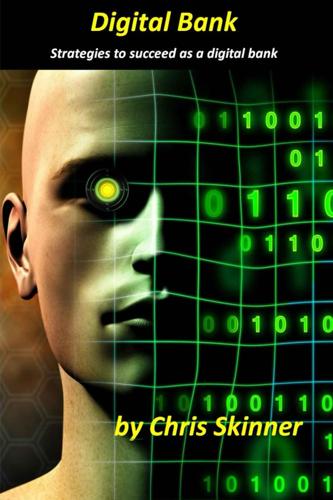
Digital Bank: Strategies for Launching or Becoming a Digital Bank
by
Chris Skinner
Published 27 Aug 2013
Therefore, even though the government had taken down all official lines of communication, unofficial technology channels sprang up rapidly to provide alternative cover, and many of these unofficial channels were being launched by individual supports in Holland, France, America and around the rest of the world. Is this a time when societies worldwide change their world or will media, finance and government, continue to control and direct? Not necessarily, as demonstrated by another major protest movement: the Occupy Movement. The Occupy Movement and the 99% Facebook have a vision “to accomplish a social mission - to make the world more open and connected”. As demonstrated by the Arab Spring, that vision is well on the way to being achieved, and there are other examples of how this vision is being delivered. In fact, the real change that Facebook, Twitter and other social pressure organisations such as Change.org have brought about is the ability for one person to create a major social movement.
…
We saw this social change begin when services such as MySpace allowed individuals to launch their musical careers. Many stars of today, such as Lily Allen, Kate Nash and Sean Kingston, started on a MySpace page. The social network allowed artistes to attract interest without having to find major music moguls or clubs to perform. Then we saw the Arab Spring and, more recently, the Occupy Movement. The Occupy Movement began as a civil protest in New York in September 2011, with the aim of airing the frustration of the masses over job losses, house foreclosures and general disillusionment with those in power: the financial system, rather than the political system. After all, Occupy would have started in Washington if it were aimed at the political system.
…
One was from Priscilla Grim who noticed that, after a fortnight, the website was not being updated so she offered to help Chris edit it. Soon, the service became a cohesive force for change behind the Occupy Movement. The photos being posted proved to have a major emotional impact, and the blog went viral with protestors adopting the phrase “We Are The 99 Per Cent” as a slogan, writing it on signs and banners. It is quite clear from the emergence of the Arab Spring, the Occupy Movement and the 99% that these and many other social movements would just not exist in the same way without Facebook, Twitter, Tumblr, Change and the power of today’s social internet.
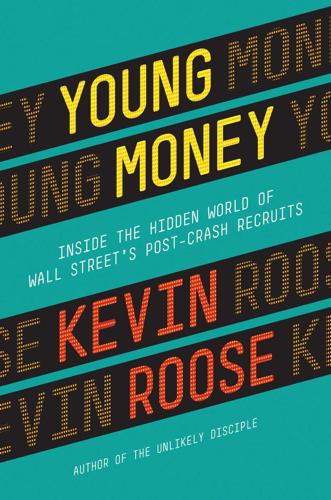
Young Money: Inside the Hidden World of Wall Street's Post-Crash Recruits
by
Kevin Roose
Published 18 Feb 2014
Another young bank employee I met just outside the Occupy protests laughed when I asked him if he was doing a lot of deep thinking as a result of what was happening in Zuccotti Park. “I work for UBS,” he said, referring to the beleaguered Swiss bank that had just announced a $2 billion loss stemming from the actions of a rogue trader. “We have bigger problems right now.” One dissenting note several young financiers brought up with respect to the Occupy movement was that it made no distinction between the executives whose decisions had brought about the financial crisis and the tens of thousands of back-office, middle-office, and junior front-office employees who made much less money than C-suite executives and had no decision-making capabilities at all.
…
Bush’s personal chef for the war in Iraq. Still, by virtue of taking part in a financial system that Occupy found oppressive, young analysts had opened themselves up for criticism. Jeremy Miller-Reed had always been discreet about telling people that he worked at Goldman Sachs. But now that the Occupy movement was increasing the heat on banks, with Goldman often bearing the brunt of the criticism, he found himself cloaking it even more often. “I lie whenever I go out now,” he told me. “I tell people I’m a consultant, a lawyer, whatever—anything but a Wall Street guy.” Jeremy’s paranoia had been boosted during the third week of the protests, during a routine doctor’s visit.
…
“I’ve been saying to people who are planning to go into finance, ‘I’m disappointed in you,’” Marina said. In the two months since Marina’s original essay ran, students at many other top-flight colleges had begun raising questions about the dominance of financial recruiting on their campuses. Offshoots of the Occupy movement had organized several student protests, including one at Princeton, in which a group of students interrupted a J.P. Morgan information session. The protesters rose from their seats midsession and shouted in unison: “Your predatory lending practices helped crash our economy, we’ve bailed out your executives’ bonuses, you’ve evicted struggling homeowners while taking their tax money.
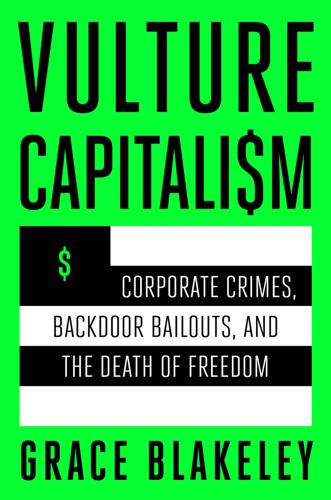
Vulture Capitalism: Corporate Crimes, Backdoor Bailouts, and the Death of Freedom
by
Grace Blakeley
Published 11 Mar 2024
These groups aren’t only helping working-class people resist their oppression today; they’re also demonstrating the feasibility of a debt jubilee: a critical measure to democratize our financialized economy. The networks that emerged out of the Occupy movement also provided the foundation for the revival of the Democratic Socialists of America (DSA), and for Bernie Sanders’s bid for the presidency. Those involved in the UK’s smaller Occupy movement were also involved in the anti-austerity movement from 2010, out of which emerged a network of activists who became involved in the campaign for Jeremy Corbyn’s campaign for leadership of the Labour Party.
…
Whether it is workers fighting to resist pay cuts, debtors organizing to resist unpayable debts, tenants organizing to resist rent hikes, or environmentalists organizing to resist the degradation of our environment, protest campaigns can shift the public conversation and win victories. The networks, resources, and relationships developed through campaigns to resist the domination of capital often provide the foundations for the emergence of more constructive projects. For example, in the wake of the financial crisis, the Occupy movement sprang up in cities around the globe demanding justice for the 99 percent who were being forced to pay for a crisis caused by the 1 percent. Despite the media attention they generated, most of these movements did not achieve much at the time, but they did create networks that led to the emergence of other successful campaigns, such as Strike Debt.27 In 2012, Strike Debt campaigners launched Rolling Jubilee, in which they crowdfunded to purchase thousands of dollars in risky debt on secondary markets in order to cancel it.28 The campaign managed to raise hundreds of thousands of dollars, which was used to write off $13.5 million in medical debt, $1.2 million in personal debt, and $3.8 million in student loans.
…
Despite the media attention they generated, most of these movements did not achieve much at the time, but they did create networks that led to the emergence of other successful campaigns, such as Strike Debt.27 In 2012, Strike Debt campaigners launched Rolling Jubilee, in which they crowdfunded to purchase thousands of dollars in risky debt on secondary markets in order to cancel it.28 The campaign managed to raise hundreds of thousands of dollars, which was used to write off $13.5 million in medical debt, $1.2 million in personal debt, and $3.8 million in student loans. Some criticized Rolling Jubilee for failing to engage the debtors who benefited from the action in a political movement, but they could not level the same criticism at the Debt Collective, which also emerged out of networks created during the Occupy movement.29 The Debt Collective sees itself as a kind of union for debtors, encouraging them to come together and resist their creditors where their debts are unjustified or unpayable. The Debt Collective helped thousands of students file debt forgiveness claims following the bankruptcy of their university, and during the pandemic they organized sixteen hundred debtors to strike and defer their student loan payments as part of a broader political movement fighting for the write-off of student debt.
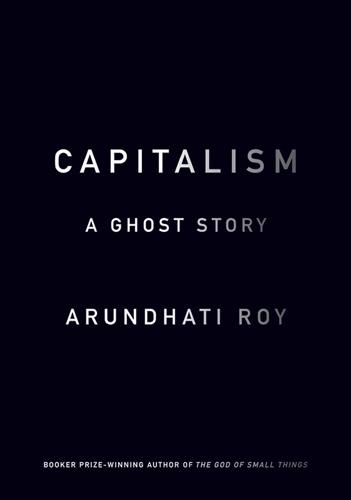
Capitalism: A Ghost Story
by
Arundhati Roy
Published 5 May 2014
It did so to such an extent that it ceased to be perceived as an ideology at all. It became the default position, the natural way to be. It infiltrated normality, colonized ordinariness, and challenging it began to seem as absurd or as esoteric as challenging reality itself. From here it was a quick, easy step to “There Is No Alternative.” It is only now, thanks to the Occupy movement, that another language has appeared on US streets and campuses. To see students with banners that say “Class War” or “We don’t mind you being rich, but we mind you buying our government” is, given the odds, almost a revolution in itself. One century after it began, corporate philanthropy is as much part of our lives as Coca-Cola.
…
Afterword Afterword Speech to the People’s University Yesterday morning the police cleared Zuccotti Park, but today the people are back. The police should know that this protest is not a battle for territory. We’re not fighting for the right to occupy a park here or there. We are fighting for Justice. Justice, not just for the people of the United States, but for everybody. What you have achieved since September 17, when the Occupy Movement began in the United States, is to introduce a new imagination, a new political language, into the heart of Empire. You have reintroduced the right to dream into a system that tried to turn everybody into zombies mesmerized into equating mindless consumerism with happiness and fulfillment. As a writer, let me tell you, this is an immense achievement.
…
As a result of twenty years of the Free Market economy, today one hundred of India’s richest people own assets worth one-fourth of the country’s GDP while more than 80 percent of the people live on less than fifty cents a day.3 Two hundred fifty thousand farmers driven into a spiral of death have committed suicide.4 We call this progress and now think of ourselves as a superpower. Like you, we are well qualified, we have nuclear bombs and obscene inequality. The good news is that people have had enough and are not going to take it anymore. The Occupy Movement has joined thousands of other resistance movements all over the world in which the poorest of people are standing up and stopping the richest corporations in their tracks. Few of us dreamed that we would see you, the people of the United States, on our side, trying to do this in the heart of Empire.
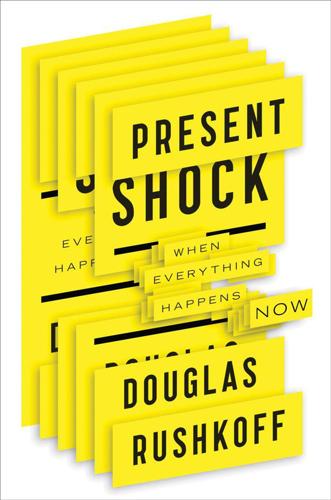
Present Shock: When Everything Happens Now
by
Douglas Rushkoff
Published 21 Mar 2013
Young people took Obama at his word, rising to the challenge to become change rather than wait for it. Of course, it turned out to be more of a campaign slogan than an invitation to civic participation—just more rhetoric for a quite-storybook, ends-justify-the-means push to power. It would be left to the Occupy movement to attempt a genuinely presentist approach to social and political change. But Obama’s speechwriters had at least identified the shift under way, the failure of stories to create a greater sense of continuity, and the growing sense that something much more immediate and relevant needed to take their place.
…
For the one thing the Tea Party appears to want more than the destruction of government is to elect Tea Party members to positions within it. The impatient rush to judgment of the Tea Party movement is only as unnerving as the perpetually patient deliberation of its counterpart present shock movement, Occupy Wall Street. Opposite reactions to collapse of political narrative, the Tea Party yearns for finality while the Occupy movement attempts to sustain indeterminacy. Inspired by the social-media-influenced revolutions of the Arab Spring, Occupy Wall Street began as a one-day campaign to call attention to the inequities inherent in a bank-run, quarterly-focused, debt-driven economy. It morphed into something of a permanent revolution, however, dedicated to producing new models of political and economic activity by its very example.
…
See connectivity Internet: as always-on, 73–74; culture of, 96–97, 99; decontextualized, 27; development of, 224; digiphrenia and, 67, 93, 124, 125; discontinuity of age of, 29; ethics and, 70; fractalnoia and, 199, 224; games and, 64; location of computers and, 179–80; narrative collapse and, 16, 27, 29, 47, 48, 50–51, 56, 64; as never sleeping, 69; Occupy Movement and, 56; overwinding and, 179–80; public confidence about news on, 51; real-time news and, 47, 48; reporting and opining and the, 50–51 interruptions, 74, 123 intuition/instinct, 5, 219–20, 222, 233, 234–35 investments. See financial markets Iraq War, 232 Ito, Joichi, 191–92 James, LeBron, 41 Japan, 148, 191, 198, 225 Jarvis, Jeff, 52 Jay-Z, 154 jet lag, 89–90 Jezebel, 97 jobs/employees, 156, 170, 187–88, 217–18 Jobs, Steve, 108, 203 Johnson, Lyndon B., 45 Johnson, Steve, 118, 203 Jordan, Michael, 41 journalism, 50–52, 56, 66.
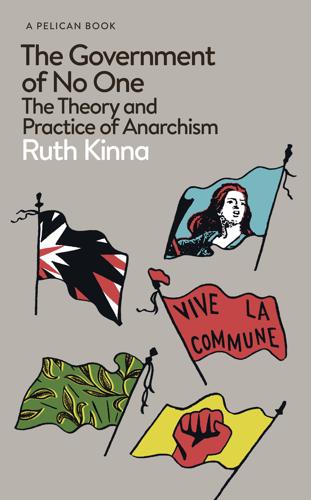
The Government of No One: The Theory and Practice of Anarchism
by
Ruth Kinna
Published 31 Jul 2019
Anarchists emerge from it as prodemocracy critics of liberal-democratic regimes rather than averse to democracy as opponents of their constitutional arrangements. Murray Bookchin’s ‘communalism’ is one of the best known pro-democracy anarchist models. More recently, not least because it was widely practised in the Occupy movement, the idea of consensus decision-making has taken centre stage in anarchist thinking about democracy. Bookchin understood democracy as a principle of both self-management and collective decision-making, integral to anarchist decentralized federation, and, ethically, as a process for social freedom.
…
The point is not to ‘convert others’ to a single point of view or exert power by mobilizing support for preferred options. In this sense, it breaks with standard electoral models. Some anarchists reject consensus decision-making, considering it a deeply flawed organizational process. Bookchin died before the Occupy movement ‘enacted the impossible’ and introduced processes of consensus decision-making in mass public assemblies.86 But familiar with its adoption in activist movements in the 1970s, he rejected it as unanarchist. His practical objection was that consensus decision-making ‘permits an insidious authoritarianism and gross manipulations’.
…
Practised with ‘skill sharing, resource sharing, horizontal organizing without leaders, mutual emotional caretaking, no official membership lists or fees, joining by doing’, consensus contributes to the construction of the non-hegemonic social relationships that enable self-government.88 These ideas also infused the politics of the Occupy movement of 2011, where consensus decision-making was practised by large numbers of people. For David Graeber, one of the leading lights in Occupy, consensus not only described a participatory decision-making practice but an alternative system of self-government. As it was enacted in Occupy camps, consensus emerged as a political practice that enabled participants to take decisions at General Assemblies transparently and directly.
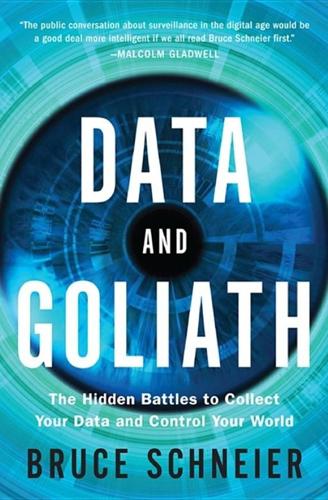
Data and Goliath: The Hidden Battles to Collect Your Data and Control Your World
by
Bruce Schneier
Published 2 Mar 2015
the FBI’s COINTELPRO: US Senate (26 Apr 1976), “Final report of the Select Committee to Study Governmental Operations with Respect to Intelligence Activities, United States Senate, Book II: Intelligence activities and the rights of Americans,” US Government Printing Office, p. 213, https://archive.org/details/finalreportofsel02unit. US has spied on the Occupy: Michael S. Schmidt and Colin Moynihan (24 Dec 2012), “FBI counterterrorism agents monitored Occupy movement, records show,” New York Times, http://www.nytimes.com/2012/12/25/nyregion/occupy-movement-was-investigated-by-fbi-counterterrorism-agents-records-show.html. Beau Hodai (9 Jun 2013), “Government surveillance of Occupy movement,” Sourcewatch, http://www.sourcewatch.org/index.php/Government_Surveillance_of_Occupy_Movement. pro- and anti-abortion activists: Charlie Savage and Scott Shane (16 Dec 2009), “Intelligence improperly collected on U.S. citizens,” New York Times, http://www.nytimes.com/2009/12/17/us/17disclose.html.
…
In COINTELPRO the Bureau secretly took the law into its own hands, going beyond the collection of intelligence and beyond its law enforcement function to act outside the legal process altogether and to covertly disrupt, discredit and harass groups and individuals.” Nothing has changed. Since 9/11, the US has spied on the Occupy movement, pro- and anti-abortion activists, peace activists, and other political protesters. • The NSA and FBI spied on many prominent Muslim Americans who had nothing to do with terrorism, including Faisal Gill, a longtime Republican Party operative and onetime candidate for public office who held a top-secret security clearance and served in the Department of Homeland Security under President George W.
…
Again, people were targeted because of their ethnicity, not because of any accusations of crimes or evidence of wrongdoing. Many of these operations were conducted with the help of the CIA, which is prohibited by law from spying on Americans. There’s plenty more. Boston’s fusion center spied on Veterans for Peace, the women’s antiwar organization Code Pink, and the Occupy movement. In 2013, the city teamed with IBM to deploy a video surveillance system at a music festival. During the same time period, the Pentagon’s Counterintelligence Field Activity spied on all sorts of innocent American civilians—something the Department of Defense is prohibited by law from doing. Echoing Hoover’s attempt to intimidate King, the NSA has been collecting data on the porn-viewing habits of Muslim “radicalizers”—not terrorists, but those who through political speech might radicalize others—with the idea of blackmailing them.
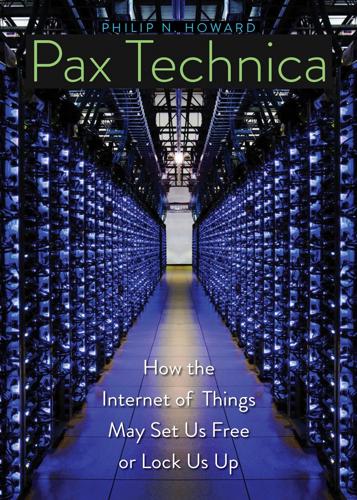
Pax Technica: How the Internet of Things May Set Us Free or Lock Us Up
by
Philip N. Howard
Published 27 Apr 2015
Such new world orders have been given the label of pax—an epoch of predictable stability based on known rules and expectations. The internet of things is establishing a new pax. Popular uprisings against long-standing dictators have rocked the Arab world. Antiestablishment movements in the West—the Tea Party in the United States, the Pirate Party in the European Union, the Occupy movement globally—have organized protests and captivated voters in unexpected ways. Around the world some regimes are more precarious, yet others seem as stable as ever. The Western internet, constituted by billions of mobile phones, computers, and other networked devices, has formed the largest information infrastructure ever.
…
Opposition movements started catching ruling elites off guard by using new communications technologies to organize huge numbers of people quickly. The very policy reforms that seemed to make some governments popular and some economies boom were allowing new political actors to act in powerful and decisive ways. After the Occupy Movement and the Arab Spring, and after a host of politicians from around the world were disgraced by the quick judgment of the internet, governments that hadn’t relaxed the rules became less interested in doing so. Lots of governments try to control the internet, and they are likely to keep on trying.
…
People sometimes say that the internet doesn’t “cause” democracy. Or “it’s the people, not the mobile phones.” But people and their technology are often impossible to separate. Try to imagine your life without your mobile phone or your internet connection. Or try to tell the story of the Arab Spring, the Occupy movement, or any recent international social movement without mentioning digital media. You’ll find yourself with an incomplete story. Many of the people involved with these movements are eager to talk about the devices and media that are their tools of resistance. Their technology and their story go together.
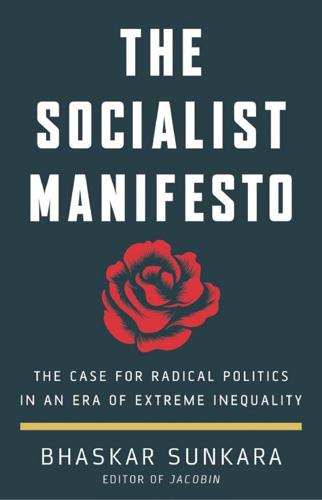
The Socialist Manifesto: The Case for Radical Politics in an Era of Extreme Inequality
by
Bhaskar Sunkara
Published 1 Feb 2019
In 2015, he succeeded in doing what he had failed to do in 2011: among the devastating reforms passed that year was a $300 million cut to public education and the introduction of “right to work” laws that gutted Wisconsin unions. The battles in Wisconsin were of real interest to citizens of the state and to those who sought a revival of the labor movement, but they had limited national resonance. By contrast, the Occupy Movement, a rebellion against inequality and financial power, captured the media spotlight. It was an idea that by all rights should have failed. Occupy sprung out of the same tradition of the antiglobalization movement of the late 1990s and 2000s—more specifically, out of North America’s tiny anarchist movement.
…
See Britain, history of socialism in; China, history of socialism in; Germany, history of socialism in; Russia, history of socialism in; Sweden, history of socialism in; Third World; United States, history of socialism in Hitler, Adolf, 57, 177, 179 Hobsbawm, Eric, 207–208 Homestead Strike, 162 Howe, Irving, 180 Hundred Flower Campaigns, 148 identity politics, 235–236 ideology differences in, 67–68, 168, 175, 230 ideological kulaks, 102 influence on policy, 98–99, 112–113, 115, 120, 122–123, 152–153 in lieu of incentives, 145, 150 as motivation for socialism, 27–28, 233, 240 See also Marxism immigration, 217 imperialism, 74, 129–131, 147, 156 income inequality in China, 190 and Occupy Movement, 196–198 in Sweden, 119–120 in US, 160, 196–198, 200 incrementalism, 59 Independent Social Democratic Party (USPD), Germany, 78 India, 152, 190–191 industrialization in Britain, 38–41, 44 in China, 141–142 in Germany, 52 in Russia, 101–102 in Sweden, 112 in Third World, 156 Industrial Revolution, 38–41, 44 industrial unionism, 169, 177, 182 Industrial Workers of the World (IWW), 165, 169–170, 171 inflation in Britain, 108, 206–207 in China, 141 and Keynesianism, 109 in Russia, 88 and social democracy, 127, 190 in Sweden, 123 Ingrao, Pietro, 242–243 internationalism of capitalism, 222 foreign aid, 156 influence of Maoism worldwide, 150 international revolution, 87, 96–97, 100, 103 and peace, 72, 241–242 and revolution, 87, 96–97, 100, 103 Russia-China relations, 134–136, 142, 147–148 See also Communist International (Comintern) International Workers Congresses of Paris, 56 International Workingmen’s Association (IWA), 43 intersectionality, 202 Ireland, 38 iron law of wages, 53, 54, 162 IWW (Industrial Workers of the World), 165, 169–170, 171 Jacobin (magazine), 231 Japan, 133–134, 139 Jaurès, Jean, 75–76, 106 Jena Congress, 68, 70 Jiang Qing, 148 Jiangxi Soviet, 137 Jim Crow, 118, 183 Jospin, Lionel, 126 JPMorgan, 193, 204–205 Judaism, 110, 211 Junkers, 52, 57, 72 Kamenev, Lev, 89–90, 92 Kautsky, Karl on class, 225 criticism of Bernstein, 63–64 and Debs, 167 establishment of Erfurt Program, 58–59 on governance, 106, 107 and Lenin, 83 and SPD, 59–60, 74, 75 Trotsky on, 84–85 and war vote, 78, 84–85 Keller, Helen, 170 Kennedy, Ted, 185 Kerensky, Alexander, 89, 92 Keynes, John Maynard, 109 Keynesianism, 109, 194, 207 King, Martin Luther, Jr., 183, 235 Kissinger, Henry, 151 KMT (Kuomintang).
…
See Maoism mass mobilization, 133–134, 219, 223–224 mass strike, 65–68, 134, 135, 181 Mass Strike, the Political Party and the Trade Unions, The (Luxemburg), 66 Matignon Accords, 111 May 30 Incident, 133–134 McCarthyism, 182 Medicare for All, 200, 218, 221 Meidner, Rudolf, 114–116, 119, 120, 123–124 Meidner Plan, 119, 123–124 Mensheviks growth of, 86–87 in Russian Revolution (1905), 84 in Russian Revolution (1917), 88–89, 91, 92–94, 103 and White movement, 97 Miliband, Ed, 210 Miliband, Ralph, 206 military strategy, 137–138 militias, 72, 137, 163 Mitterrand, François, 124, 219 mixed economy, 95, 99–100, 125 Möller, Gustav, 114 Morgan Stanley, 204–205 Morris, William, 225 mortgages, 192–193 motivations for socialism, 27–28, 239–243 Movement for Black Lives (MBL), 198–199 My Life (Trotsky), 2 Myrdal, Gunnar, 114 National Health Service (England), 206 nationalism in China, 134, 147, 151, 153 in Germany, 72–74 self-determination, 129–130 See also internationalism nationalization calls for, 95, 107, 164, 212, 220 in China, 141–142 in France, 107, 124–125 in Germany, 55 resistance in Sweden, 113, 114–116 in Russia, 99, 142 weaknesses of, 116–117 national liberation, 129–130, 234 National Negro Congress, 178 Nazism, 79, 102, 180 neoliberalism, 2–3, 123, 191, 205, 213, 218 Neue Zeit, Die (journal), 60, 62 New Deal, 178–180 New Economic Policy (NEP), 99–100, 101, 140 New Harmony, 160 New Jewel Movement, 154 New Left, 183–184 New Marriage Law, 140 New Masses (magazine), 181 New New Deal, 194 new social movements, 208 New York Call (newspaper), 170 New York Times, 112 Nicaragua, 154 Nicholas II, 88 1905 Revolution (Russia), 65–66, 84, 85–86 Nixon, Richard, 151 Noske, Gustav, 51, 73, 79 Nyerere, Julius, 154 Obama, Barack, 193–195 Ocasio-Cortez, Alexandria, 206 Occupy Movement, 196–198 October Revolution, 92–94, 103. See also Russian Revolution (1917) Olbermann, Keith, 205–206 “110 Propositions for France,” 124–125 OPEC (Organization of the Petroleum Exporting Countries), 207–208 oppression, 199, 201–202, 208, 226, 234–236. See also race; women’s rights Order Number One, 89 organizing, 228–229 Owen, Robert, 46, 160 Palme, Olof, 105, 117–122, 156 Panic of 1873, 162 Paris Commune, 47–48, 85 Paris Congress (1889), 56 Parliamentary Socialism (Miliband), 206 Parsons, Albert, 162–163 peasants cooperation with proletariat, 88–89, 99, 112–113, 133, 139 and economic policy, 99, 141–143, 145–146 under feudalism, 36–37 and revolution, 87, 89, 133, 137, 139 Peng Dehuai, 146 Peng Shuzi, 133 People’s Liberation Army, 149 Pepper, John (József Pogány), 176–177 permanent revolution, 87, 90, 133, 148 philanthropy, 191 Pieck, Wilhelm, 51 Pivert, Marceau, 111 planned economy, 17, 99, 103–104, 119, 140–143, 145–146 Pogány, József (John Pepper), 176–177 political rights, 52, 58, 85.
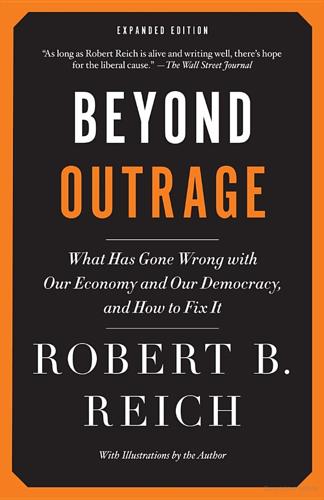
Beyond Outrage: Expanded Edition: What Has Gone Wrong With Our Economy and Our Democracy, and How to Fix It
by
Robert B. Reich
Published 3 Sep 2012
The issue has become front-page news. For the first time since the 1930s, a broad cross section of the American public is talking about the concentration of income, wealth, and political power at the top. Score a big one for the Occupiers. Regardless of whether you sympathize with the so-called Occupier movement that began spreading across America in the fall of 2011, or whether you believe it will become a growing political force in America, it has had a profound effect on the national conversation. Even more startling is the change in public opinion. Not since the 1930s has a majority of Americans called for redistribution of income or wealth.
…
With hefty campaign contributions and platoons of lobbyists and public relations spinners, America’s executive class has secured lower tax rates while resisting reforms that would spread the gains from growth to more Americans. But it’s unlikely that the plutocrats can retain their political clout forever. So many people have been hit by job losses, sagging incomes, and declining home values that Americans will eventually become mobilized. The question is not whether but when. Perhaps the Occupier movement marks the beginning. Americans have summoned the political will to take back our economy before, in even bleaker times. As the historian James Truslow Adams defined the American dream when he coined the term at the depths of the Great Depression, what we seek is “a land in which life should be better and richer and fuller for every man.”
…
It was: What can I do about what’s happening to America—an economic game increasingly rigged in favor of those at the top and against ordinary Americans, and a government that no longer seems to work for average people but is increasingly responsive to big money? In this part of the book I want to try to answer that question. HOW TO MAKE A MOVEMENT I don’t know where the Occupier movement is heading, but I do know there’s great energy at America’s grass roots for progressive change—more energy now than I’ve seen in decades. The question is how to harness that energy and turn it into a sustainable and powerful progressive movement to take back our economy and our democracy from the regressive forces that have been gaining ground.
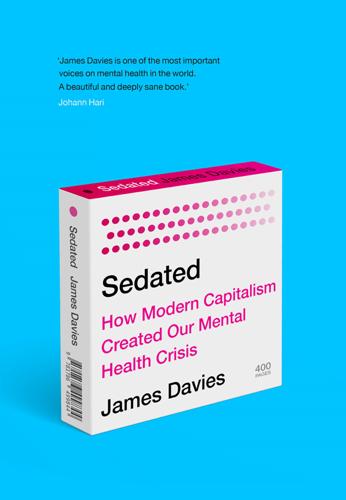
SEDATED: How Modern Capitalism Created Our Mental Health Crisis
by
James. Davies
Published 15 Nov 2021
Following the crowd through police-cordoned streets, I soon arrived at the central hub of the protests: a spacious haven of trees and benches two blocks north of New York’s Stock Exchange. ‘Is this the place?’ I asked a fellow protester with whom I’d been chatting on the walk down. ‘Yep, you’re here,’ he said with a slight glimmer of pride. ‘Welcome to Zuccotti Park, home of Occupy Wall Street.’ In those early days of the Occupy movement, very few people beyond the city had heard much about the protests in Zuccotti Park. What reporting there was had largely focused on discussing the legality of the protests and how the noise was disturbing those working in the offices above. The core messages of the movement were either not being clearly articulated by the protesters or were insufficiently emphasised by the media.
…
These were the kinds of topics I enjoyed discussing over the two days I spent in Zuccotti Park. People were ardently deliberating not only corporate misdemeanours and economic injustice, but also the dynamics of human pain, consumption and meaning, what defines the purposeful and good life. These themes were clearly interlinked and would soon come to play an even greater role in the Occupy movement as it spread far beyond the parameters of New York City. Indeed, within a couple of weeks, the movement had advanced to most major cities in the US, before spreading its tentacles internationally, with Occupy protests rapidly reaching urban centres across the globe. Soon similar conversations could be heard on the streets of Berlin, Paris, Sydney, Toronto, Rome, Hong Kong and, of course, London, where a sprawling tapestry of tents would rapidly spring up on the forecourt of one of the country’s most venerable ecclesiastical landmarks – St Paul’s Cathedral.
…
The next day, when the cathedral committee decided, by a single vote, to forcibly evict the protesters, Giles Fraser immediately resigned. His resignation signalled not only his aversion to a potentially violent eviction, but also his deep intellectual and moral sympathy for the spirit of the Occupy movement itself. For Fraser, the protests were not just about the profound economic and social injustices of our ‘rigged economy’, as Bernie Sanders would later phrase it, but about ‘the kind of society we actually want; the kind of values we want to live by’. As these sorts of questions dominated the discussions among protesters, perhaps it was inevitable that Fraser would soon find himself on similar ground to that I encountered in Zuccotti Park: what effects was late capitalism having on our emotional, moral and mental lives – was it transforming how we understood and related to our suffering, and if so in what ways?
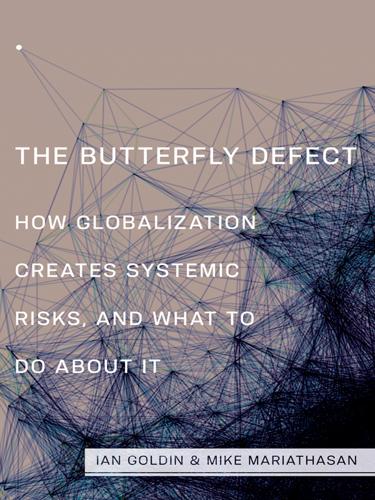
The Butterfly Defect: How Globalization Creates Systemic Risks, and What to Do About It
by
Ian Goldin
and
Mike Mariathasan
Published 15 Mar 2014
Dominic Wilson and Raluca Dragusanu, 2008, “The Expanding Middle: The Exploding World Middle Class and Falling Global Inequality,” Global Economic Papers 170, Goldman Sachs, New York, 17, accessed 3 February 2013, http://www.ryanallis.com/wp-content/uploads/2008/07/expandingmiddle.pdf. Used with permission. There may no longer be an alliance of the global working class, but there are new global challenges to globalization as articulated, for example, through Attac, Anonymous, the Indignados, or the Occupy movement.50 Instead of protesting against the terms and conditions of work, protesters are concerned by the opacity of global institutions and the negative consequences of what many see as the systemic failure of globalization to deliver jobs and a sustainable environment. By making the world more complex and risks harder to trace back to their origins, globalization has divided global society into groups that are prepared and able to embrace the corresponding benefits on the one hand and, on the other, people who are overwhelmed with the complex causalities, the often incomprehensible influences on their lives, and their inability to identify political or institutional responsibilities.
…
New levels of connectivity expose global differences in living standards and opportunities and, for individuals around the world, present stark evidence of a global system that many have no desire to engage with and in which many feel they have little chance of succeeding. As the example of the Occupy movement shows, such concerns are particularly prominent among younger people, who feel increasingly disenfranchised. In many countries and cities around the world, “they have now been joined by protesters who believe that they are bearing the brunt of a crisis for which they have no responsibility, while people on high incomes appear to have been spared.”51 Part of the problem is that for many the globalized system seems to stifle social mobility and prevent talented, hardworking people from achieving the rewards they deserve.
…
For example, with reference to the late twentieth century he observes, “Globally, the issue [of a conflict between capital and labour] has receded in importance as the objective conditions that gave rise to it have changed.” Milanović, 2011, 16. 50. EUI (European University Institute), 2011, “Indignados / Occupy Movement: A Global Phenomenon—A Round Table,” European University Institute, 22 November, accessed 1 June 2012, http://www.eui.eu/SeminarsAndEvents/Live.aspx. 51. OECD, 2011a, 17. 52. Ibid., 40. 53. This view, however, is not undisputed. American journalist Christian Cadwell, for instance, argues that the current generation of 15- to 30-year-olds is “tiny” and therefore unable to “make trouble.”
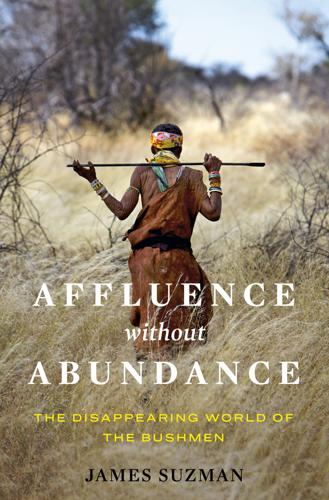
Affluence Without Abundance: The Disappearing World of the Bushmen
by
James Suzman
Published 10 Jul 2017
The extent to which relative inequality still gets under our skin was well illustrated recently by the various “Occupy” movements that sprung up in global capitals after the economic upheavals that marked the end of the first decade of the new millennium and still rumble on in various diffuse forms. These movements were initially dismissed by their detractors for lacking a unified ideological platform. Interviews with “occupiers” yielded contradictory, speculative, and sometimes bewildering responses expressing a general dissatisfaction with the world and the urge to “eat the rich.” But this was because the Occupy movement defined itself by standing against many things while standing for nothing in particular.
…
—a slogan that captured one thing they could all agree on: they were all angry about what they saw to be rampant material and social inequality. What was particularly striking about the Occupy movement’s focus on inequality was that few of the occupiers were particularly preoccupied with poverty in any absolute sense. Their beef was with relative poverty. In basic material terms, the countries where Occupy movements flourished are among the world’s richest. Being among the poorest in any first world country now does not bear easy comparison with being among the poorest in the same country one hundred or even fifty years ago or with being among the poorest in a “developing” economy.2 Egalitarianism is often assumed to imply an absence of private property.
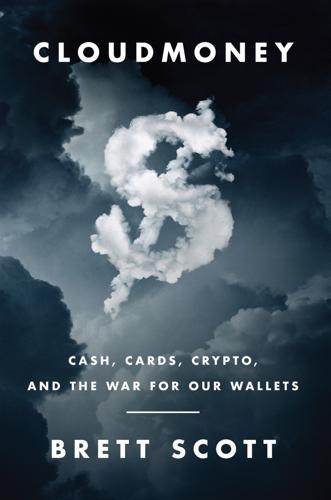
Cloudmoney: Cash, Cards, Crypto, and the War for Our Wallets
by
Brett Scott
Published 4 Jul 2022
They had wanted to film me standing underneath those buildings, but the entire area is a privately owned estate with its own security force, and the estate would not grant permission to the film crew. Against this backdrop the filmmakers asked me whether Bitcoin was like a ‘new Occupy Wall Street’, leading the charge for a new open financial system. After all, its rise to public prominence came after the decline of the Occupy movement in 2012. I answered ‘Yes’, but I was doubtful about my assessment. Occupiers were a diverse group who believed the state had been captured by corporate interests, and that it must be wrested back by a public working together to make a more equal society. Bitcoin promoters, by contrast, were overwhelmingly male and far more intolerant of government than of corporations.
…
Morgan, 8, 96, 150, 156, 227, 232 Jamaica, 42 Japan, 18, 35, 135, 215, 248 Johannesburg, South Africa, 129 Johnson, Alexander Boris, 38 Kazakhstan, 11, 227–9, 233, 247 Keep Cash UK, 262 Kelly, Kevin, 12 Kentridge, William, 144 Kenya, 47, 75, 129, 130–31, 169, 178, 179 Kerouac, Jack, 173, 175 Keynesianism, 80 ‘Kindness is Cashless’, 40 Kiva, 238 Kowloon Walled City, Hong Kong, 216, 219, 220, 226 Kuala Lumpur, Malaysia, 60, 74 Kurzweil, Ray, 153, 252–3 Kyoto, Japan, 135 La Guardia Airport, New York, 128 learning methodology, 163–4 left-wing politics, 7, 184, 191, 211–12, 215 Lehman Brothers, 17–18 Lenddo, 169 Level 39, Canary Wharf, 17, 20, 27, 41, 143 Leviathan (Hobbes), 177 leviathans, 177–84, 215–16 libertarianism, 7, 14, 42, 155, 156, 184 cryptocurrency and, 191, 212, 215–16, 225–6 Libra, 236–41, 245 Litecoin, 218 Lloyds, 72–3, 144, 146 loans, 70–71, 107, 159 artificial intelligence and, 167–8, 172 London, England, 128, 247, 248 Brixton Market, 177 Camberwell, 128 Canary Wharf, 17–18, 20, 41, 62, 211 City of London, 6, 135 Mayor’s Fund, 38 Somali diaspora, 116, 179 Stock Exchange, 24 Underground, 11, 37–8, 86, 87 longevity derivatives, 160 Lonsdale, Joe, 155 Lord of the Rings, The (Tolkien), 19, 155 Los Angeles, California, 101 Luther, Martin, 212 M-Pesa, 79, 109 machine-learning systems, 163–4 Macon, USS, 153 Mafia, 163 Main Incubator, 143 Malaysia, 7, 45, 60, 74 Malick, Badal, 127–8 malware, 32 manifest destiny, 212 ‘Manifesto for Cashlessness’ (Emili), 37 Maputo, Mozambique, 96 Marcus, David, 237, 241 Maréchal, Nathalie, 113 marijuana industry, 101–3 market price, 29, 171 markets, 65, 124–6, 176–80 choice and, 124–6 giant parable, 54 informal, 176–9 oligopolies and, 124–5 payments companies and, 29, 30, 31, 32–3 Marxism, 155, 262 Massachusetts, United States, 46 Massachusetts Institute of Technology (MIT), 7 Mastercard, 30, 37, 39, 77, 91 automatic payments, 149 data, 109, 111 financial inclusion and, 131–2 Wikileaks blockade, 116 Masters, Blythe, 232 Matrix, The (1999 film), 226 Mayfair, London, 6 McDonald’s, 145, 153 Medici family, 135 Melanesia, 255–6 Mercy Corps, 131, 132 Mexico, 42 Microsoft, 7 Azure cloud, 233 Word, 32, 156 middle class, 86, 128, 129 Mighty Ducks, The (1992 film), 234 Military Spouse, 153 millennials, 86, 140 Minority Report (2002 film), 10 mis-categorisations, 167 mist, 30–33 MIT Media Lab, 7 Modi, Narendra, 43, 93 Moffett airfield, California, 153 Monetarism, 80 money creation, 59–63, 67–72, 202 Money Heist (2017 series), 61 money laundering, 42, 116 money users vs. issuers, 50–52 money-passers, 30, 32–3 Monzo, 113, 142 Moon Express Inc., 153 mortgages, 26–7, 94 motor cortex, 248 Mountain View, Silicon Valley, 153 Moynihan, Brian, 38 Mr Robot, 184 Mubarak, Hosni, 116 Mugabe, Robert, 239–41 Mumbai, India, 96 Musk, Elon, 15, 212, 257 mutual credit systems, 259–60 N26, 142 Nairobi, Kenya, 129, 179 Nakamoto, Satoshi, 13, 184–5, 187, 191, 204 NASDAQ, 157, 233 National Aeronautics and Space Administration (NASA), 153 National Arts Festival, 144 National Retail Federation, 86 National Security Agency (NSA), 112, 155 Nationwide, 145–6 Natural Language Processing (NLP), 146 natural market order, 192 Nazarbayev, Nursultan, 227 Neener Analytics, 169 neo-Nazism, 226 nervous system, 20–22, 57, 80, 81, 240, 247–8, 251–2 Nestlé, 24, 28 Netflix, 61 Netherlands, 48, 49, 128–9 Nets Union Clearing Corp, 115 Network Computing, 78 New Age spiritualism, 7, 14, 193, 226 New Jersey, United States, 46 New Scientist, 137 New World Order, 261 New York City, New York, 18, 91–2, 128, 248 La Guardia Airport, 128 Wall Street, 6, 178–9 Nigeria, 43 No Cash Day, 37 no-file clients, 169 Nobel Prize, 93 nomadism, 228 non-seepage, 73 Norway, 35 nudging, 39, 93, 114 Nur-Sultan, Kazakhstan, 11, 227–9 O’Gieblyn, Meghan, 154 Oakdale, California, 101 Occupy movement (2011–12), 211, 215 Office of National Statistics, 83 oil industry, 6, 22–4 oligopolies, 2, 12, 15, 89, 124–5, 142, 151, 180–83, 191 cryptocurrencies and, 229–33, 246 On the Road (Kerouac), 173, 175 OpenBazaar, 229 OpenOil, 24 operating system, 141–2 Oracle, 109 Oxford English Dictionary, 144 Pakistan, 61 Palantir, 155, 157, 226 Panama Papers leak (2016), 81 panopticon effect, 118–19, 172 Papua New Guinea, 191 passive process, 125–6 PATRIOT Act (2001), 111, 179 payments companies, 30, 32–3, 39–41, 77–8, 79 automatic payments, 149 data, 108–9 interpellation, 86–7 plug-ins, 79, 115, 141–2 PayPal, 50, 79, 109, 155, 226, 233–7, 243 New Money campaign (2016), 86–7 Wikileaks blockade, 116 Payter, 31–2 Paytm, 44, 79, 150 Peercoin, 218 Penny for London, 37–8 pension funds, 7, 23 People’s Bank of China, 79, 242 periphery, 28, 248 Peru, 129–30, 176 Peter Diamandis, 153 Philadelphia, Pennsylvania, 41, 133 Pierce, Brock, 234 Piercy, Marge, 150 Pisac, Peru, 129 point-of-sales devices, 40, 77, 130 points of presence, 148 poker games, 91 Poland, 37, 91 police, trust in, 93 Politics of Bitcoin, The (Golumbia), 225 posture, 49 pre-capitalist societies, 55, 215, 251 Premier League, 231 primary system, 50–64 Privacy International, 168 privacy, 2, 43, 44, 46, 47, 104–19 private blockchains, 229, 231 Prohibition (1920–33), 102 promises, 50, 52, 58–9, 61, 70–72, 205–6, 259–60 casino chips, 68–9 deposits as, 69 digital money, 70–72 giant parable, 52–6, 63–4, 188 loans, 70–71, 107, 159 mutual credit systems, 259–60 Promontory Financial Group, 38 Protestantism, 212, 255 psilocybin, 226 psychometric testing, 169 pub quizzes, 91 Pucallpa, Peru, 130, 176, 249 Puerto Rico, 234 Quakers, 135 Quechuan people, 129 Quorum, 232 R3, 233 RAND Corporation, 105 re-localisation, 259 re-skinning, 16, 135–51, 171, 175 Red Crescent, 131 refugees, 131–2 Reinventing Money conference (2016), 31 remittances, 105, 116 Revolut, 140, 142 right-wing politics, 7, 14, 184, 191–3, 211–12, 215, 225–6, 261 rippling credit, 260 risk-adjusted profit, 94 Robert Koch Institute, 34 robotics, 11 Rogoff, Kenneth, 47, 92–3 rolling blackouts, 247 Roman Empire (27 BCE–395 CE), 55–6 Romeo and Juliet (Shakespeare), 29, 30, 32 Rowe, Paulette, 38 Royal Bank of Canada, 158 Royal Bank of Scotland, 62 Russia, 6, 42, 48, 140, 227 Samsung, 11 San Francisco, California, 35, 46, 119, 133, 179, 247 Sān people, 4 Santander, 38 Sardex system, 259 Satoshi’s Vision Conference, 215 Save the Children, 131 savers, 25 Scott, James, 228 seasteading, 156, 216 secondary system, 50, 63–4 self-service, 145–6 SEPA, 80 September 11 attacks (2001), 111 Serbia, 7 sex workers, 96 Shakespeare, William, 29 Shanghai, China, 18, 115, 248 Shazam, 180 Sherlock Holmes series (Doyle), 114, 162, 165, 166 Shiba Inu, 13 Shipibo-Conibo people, 130 Sikoba, 260 Silicon Valley, 7, 9, 139–41, 148, 153, 180, 221 Libra, 237 Singularity, 154–6, 252–3 Silk Road, 227, 229 Singapore, 11, 18, 168, 248 Singularity, 153–6, 226, 252, 252–3 Singularity University, 153–6, 252–3 six degrees of separation theory, 260 skyscrapers, 17–20, 27, 253 slow-boiling frogs, 104 smart cities, 11, 180 smart contracts, 220–24, 258 smart homes, 180 smartphones, 4, 28 financial inclusion and, 95 posture and, 49 Smith, Adam, 251 smoking, 181 Snow Crash (Stephenson), 10 social class, 91–9, 113, 128, 129, 155, 167 Somalia, 116, 179 South Africa, 3–4, 11, 28, 55, 62, 128, 175–6 apartheid, 95 hut tax, 55 National Arts Festival, 144 rolling blackouts, 247 syncretism in, 175–6 South Sudan, 105 Spiegel, Der, 112 Spotify, 166 spread-betting companies, 26 stablecoins, 233–41, 245–6, 255 Standard Bank, 95, 144 states, 42–5, 50–64, 176–85, 215 anti-statism, 42, 184, 215–16 base money, 69 centralisation of power, 15, 180–83 cryptocurrency and, 215 data surveillance, 110–12, 114–15, 155, 168 digital currencies, 242–5 expansion and contraction, 57–8 giant parable, 52–6, 63–4 markets and, 176–80 money issuance, 58–9 primary system, 50, 51, 63 Stockholm syndrome, 121, 131 sub-currencies, 72–3 sub-prime mortgages, 26–7, 94 subsidiary companies, 24, 26–7 Sufism, 91 suits, 124 Sunset Boulevard, Los Angeles, 101 Super Bowl, 8, 261 super-system, 3 supply, 29 surveillance, 2, 7, 8, 10, 15, 33, 39, 42, 72, 104–19, 153–72, 180, 250 artificial intelligence and, 153–72 banking sector and, 108–9 Big Brother, 113–15 CBDCs and, 244, 245 panopticon effect, 118–19, 172 payments censorship, 116–18 predictive systems, 105 states and, 110–12, 114–15, 168 Suspicious Activity Reports (SARs), 111 Sweden, 35, 43, 48, 84, 121 Sweetgreen, 91, 93 SWIFT, 32, 75–6, 80, 108, 112 Switzerland, 35, 108 Symbiosis Gathering, 101 syncing, 195–7, 200–202, 231 syncretism, 175–6 systems failures, 32, 34, 48 Szabo, Nick, 220 Taiwan, 234, 235 Tala, 169 taxation, 55, 57, 110 evasion, 42, 43, 45, 46 TechCrunch Disrupt, 130 Tencent, 2, 7, 114, 178 terrorism, 42, 48, 112, 127 Tether, 234–5, 241 Thaler, Richard, 93 Thatcher, Margaret, 193 Thiel, Peter, 155, 226 thin-file clients, 169 timelines, 197–200 Times of India, 44 tobacco, 181 Tokyo, Japan, 18, 215, 248 Tracfin, 112 transfers, 74–8 transhumanism, 180 Transport for London, 11, 37–8, 86, 87 Transylvania, 65 Trustlines, 260 Twitter, 167, 198 Uber, 2, 149, 177, 179, 237 Uganda, 168 unbanked, 35, 94, 181, 238 underdog, support for, 106 Unilever, 99, 131 United Kingdom American Revolutionary War (1775–83), 60 banking oligopoly, 230 Canary Wharf, 17–18, 20, 41, 62, 211 cash use in, 249 City of London, 6, 135 colonialism, 55, 97, 175–6, 178, 239 digital money system in, 72 GCHQ, 112 HMRC, 110 Premier League, 231 Royal Mint, 60 Somali diaspora, 116, 179 Taylor Review (2016–17), 110 Transport for London, 11, 37–8, 86, 87 United Nations, 14 blockchain research, 222 Capital Development Fund, 37 World Food Programme, 132 United States cash use in, 41, 46, 133 CBDCs and, 244–5, 254 Central Intelligence Agency (CIA), 155 China, relations with, 74–5, 245, 255 data surveillance, 111–12, 155 dollar system, 80, 182, 210, 233–6, 239, 240 Federal Bureau of Investigation (FBI), 111, 155 Federal Reserve, 32, 35, 36, 234 Financial Crimes Enforcement Network, 111 hurricanes in, 36 leviathan complex, 178 marijuana industry, 101–3 NASA, 153 National Security Agency (NSA), 112, 155 Occupy movement (2011–12), 211, 215 PATRIOT Act (2001), 111, 179 Prohibition (1920–33), 102 Revolutionary War (1775–83), 60 Senate, 105–6 September 11 attacks (2001), 111 Singularity University, 153–6 Super Bowl, 8, 261 Wall Street, 6, 178–9 Uruguay, 42 USAID, 45, 127, 178, 179, 245 vending machines, 31–2, 220 Venmo, 79, 243 Ver, Roger, 212, 214, 215 Vienna, Austria, 7 virtual reality, 10 Visa, 15, 30, 31, 37, 39, 40, 41, 44, 77, 80, 127, 174, 255 automatic payments, 149 data, 108, 109, 111, 112 plug-ins, 142 USAID and, 128, 178, 245 Wikileaks blockade, 116 VisaNet, 77 Wall Street, New York City, 6, 178–9 Occupy movement (2011–12), 211, 215 Wall Street (1987 film), 8 Wall Street Journal, 133 Warner, Malcolm, 106 WarOnCash, 37 Weber, Max, 179 WeChat, 79, 109, 114–15, 150 welfare, 43, 113, 118 Wells Fargo, 109, 234, 235 WhatsApp, 75, 198, 237–8, 244, 255 Wikileaks, 116, 183 Wilson, Cody, 216 Winton Motor Carriage Company, 87, 90 Wired, 12 World Economic Forum, 11 World Food Programme, 132 World Health Organisation (WHO), 34 World of Warcraft (2004 game), 234 Xhosa people, 175–6 YouTube, 163, 166, 167, 170 Zambia, 131 Zimbabwe, 11, 239–41, 245 Zuckerberg, Mark, 241 About the Author BRETT SCOTT is an economic anthropologist, financial activist, and former broker.
…
Morgan, 8, 96, 150, 156, 227, 232 Jamaica, 42 Japan, 18, 35, 135, 215, 248 Johannesburg, South Africa, 129 Johnson, Alexander Boris, 38 Kazakhstan, 11, 227–9, 233, 247 Keep Cash UK, 262 Kelly, Kevin, 12 Kentridge, William, 144 Kenya, 47, 75, 129, 130–31, 169, 178, 179 Kerouac, Jack, 173, 175 Keynesianism, 80 ‘Kindness is Cashless’, 40 Kiva, 238 Kowloon Walled City, Hong Kong, 216, 219, 220, 226 Kuala Lumpur, Malaysia, 60, 74 Kurzweil, Ray, 153, 252–3 Kyoto, Japan, 135 La Guardia Airport, New York, 128 learning methodology, 163–4 left-wing politics, 7, 184, 191, 211–12, 215 Lehman Brothers, 17–18 Lenddo, 169 Level 39, Canary Wharf, 17, 20, 27, 41, 143 Leviathan (Hobbes), 177 leviathans, 177–84, 215–16 libertarianism, 7, 14, 42, 155, 156, 184 cryptocurrency and, 191, 212, 215–16, 225–6 Libra, 236–41, 245 Litecoin, 218 Lloyds, 72–3, 144, 146 loans, 70–71, 107, 159 artificial intelligence and, 167–8, 172 London, England, 128, 247, 248 Brixton Market, 177 Camberwell, 128 Canary Wharf, 17–18, 20, 41, 62, 211 City of London, 6, 135 Mayor’s Fund, 38 Somali diaspora, 116, 179 Stock Exchange, 24 Underground, 11, 37–8, 86, 87 longevity derivatives, 160 Lonsdale, Joe, 155 Lord of the Rings, The (Tolkien), 19, 155 Los Angeles, California, 101 Luther, Martin, 212 M-Pesa, 79, 109 machine-learning systems, 163–4 Macon, USS, 153 Mafia, 163 Main Incubator, 143 Malaysia, 7, 45, 60, 74 Malick, Badal, 127–8 malware, 32 manifest destiny, 212 ‘Manifesto for Cashlessness’ (Emili), 37 Maputo, Mozambique, 96 Marcus, David, 237, 241 Maréchal, Nathalie, 113 marijuana industry, 101–3 market price, 29, 171 markets, 65, 124–6, 176–80 choice and, 124–6 giant parable, 54 informal, 176–9 oligopolies and, 124–5 payments companies and, 29, 30, 31, 32–3 Marxism, 155, 262 Massachusetts, United States, 46 Massachusetts Institute of Technology (MIT), 7 Mastercard, 30, 37, 39, 77, 91 automatic payments, 149 data, 109, 111 financial inclusion and, 131–2 Wikileaks blockade, 116 Masters, Blythe, 232 Matrix, The (1999 film), 226 Mayfair, London, 6 McDonald’s, 145, 153 Medici family, 135 Melanesia, 255–6 Mercy Corps, 131, 132 Mexico, 42 Microsoft, 7 Azure cloud, 233 Word, 32, 156 middle class, 86, 128, 129 Mighty Ducks, The (1992 film), 234 Military Spouse, 153 millennials, 86, 140 Minority Report (2002 film), 10 mis-categorisations, 167 mist, 30–33 MIT Media Lab, 7 Modi, Narendra, 43, 93 Moffett airfield, California, 153 Monetarism, 80 money creation, 59–63, 67–72, 202 Money Heist (2017 series), 61 money laundering, 42, 116 money users vs. issuers, 50–52 money-passers, 30, 32–3 Monzo, 113, 142 Moon Express Inc., 153 mortgages, 26–7, 94 motor cortex, 248 Mountain View, Silicon Valley, 153 Moynihan, Brian, 38 Mr Robot, 184 Mubarak, Hosni, 116 Mugabe, Robert, 239–41 Mumbai, India, 96 Musk, Elon, 15, 212, 257 mutual credit systems, 259–60 N26, 142 Nairobi, Kenya, 129, 179 Nakamoto, Satoshi, 13, 184–5, 187, 191, 204 NASDAQ, 157, 233 National Aeronautics and Space Administration (NASA), 153 National Arts Festival, 144 National Retail Federation, 86 National Security Agency (NSA), 112, 155 Nationwide, 145–6 Natural Language Processing (NLP), 146 natural market order, 192 Nazarbayev, Nursultan, 227 Neener Analytics, 169 neo-Nazism, 226 nervous system, 20–22, 57, 80, 81, 240, 247–8, 251–2 Nestlé, 24, 28 Netflix, 61 Netherlands, 48, 49, 128–9 Nets Union Clearing Corp, 115 Network Computing, 78 New Age spiritualism, 7, 14, 193, 226 New Jersey, United States, 46 New Scientist, 137 New World Order, 261 New York City, New York, 18, 91–2, 128, 248 La Guardia Airport, 128 Wall Street, 6, 178–9 Nigeria, 43 No Cash Day, 37 no-file clients, 169 Nobel Prize, 93 nomadism, 228 non-seepage, 73 Norway, 35 nudging, 39, 93, 114 Nur-Sultan, Kazakhstan, 11, 227–9 O’Gieblyn, Meghan, 154 Oakdale, California, 101 Occupy movement (2011–12), 211, 215 Office of National Statistics, 83 oil industry, 6, 22–4 oligopolies, 2, 12, 15, 89, 124–5, 142, 151, 180–83, 191 cryptocurrencies and, 229–33, 246 On the Road (Kerouac), 173, 175 OpenBazaar, 229 OpenOil, 24 operating system, 141–2 Oracle, 109 Oxford English Dictionary, 144 Pakistan, 61 Palantir, 155, 157, 226 Panama Papers leak (2016), 81 panopticon effect, 118–19, 172 Papua New Guinea, 191 passive process, 125–6 PATRIOT Act (2001), 111, 179 payments companies, 30, 32–3, 39–41, 77–8, 79 automatic payments, 149 data, 108–9 interpellation, 86–7 plug-ins, 79, 115, 141–2 PayPal, 50, 79, 109, 155, 226, 233–7, 243 New Money campaign (2016), 86–7 Wikileaks blockade, 116 Payter, 31–2 Paytm, 44, 79, 150 Peercoin, 218 Penny for London, 37–8 pension funds, 7, 23 People’s Bank of China, 79, 242 periphery, 28, 248 Peru, 129–30, 176 Peter Diamandis, 153 Philadelphia, Pennsylvania, 41, 133 Pierce, Brock, 234 Piercy, Marge, 150 Pisac, Peru, 129 point-of-sales devices, 40, 77, 130 points of presence, 148 poker games, 91 Poland, 37, 91 police, trust in, 93 Politics of Bitcoin, The (Golumbia), 225 posture, 49 pre-capitalist societies, 55, 215, 251 Premier League, 231 primary system, 50–64 Privacy International, 168 privacy, 2, 43, 44, 46, 47, 104–19 private blockchains, 229, 231 Prohibition (1920–33), 102 promises, 50, 52, 58–9, 61, 70–72, 205–6, 259–60 casino chips, 68–9 deposits as, 69 digital money, 70–72 giant parable, 52–6, 63–4, 188 loans, 70–71, 107, 159 mutual credit systems, 259–60 Promontory Financial Group, 38 Protestantism, 212, 255 psilocybin, 226 psychometric testing, 169 pub quizzes, 91 Pucallpa, Peru, 130, 176, 249 Puerto Rico, 234 Quakers, 135 Quechuan people, 129 Quorum, 232 R3, 233 RAND Corporation, 105 re-localisation, 259 re-skinning, 16, 135–51, 171, 175 Red Crescent, 131 refugees, 131–2 Reinventing Money conference (2016), 31 remittances, 105, 116 Revolut, 140, 142 right-wing politics, 7, 14, 184, 191–3, 211–12, 215, 225–6, 261 rippling credit, 260 risk-adjusted profit, 94 Robert Koch Institute, 34 robotics, 11 Rogoff, Kenneth, 47, 92–3 rolling blackouts, 247 Roman Empire (27 BCE–395 CE), 55–6 Romeo and Juliet (Shakespeare), 29, 30, 32 Rowe, Paulette, 38 Royal Bank of Canada, 158 Royal Bank of Scotland, 62 Russia, 6, 42, 48, 140, 227 Samsung, 11 San Francisco, California, 35, 46, 119, 133, 179, 247 Sān people, 4 Santander, 38 Sardex system, 259 Satoshi’s Vision Conference, 215 Save the Children, 131 savers, 25 Scott, James, 228 seasteading, 156, 216 secondary system, 50, 63–4 self-service, 145–6 SEPA, 80 September 11 attacks (2001), 111 Serbia, 7 sex workers, 96 Shakespeare, William, 29 Shanghai, China, 18, 115, 248 Shazam, 180 Sherlock Holmes series (Doyle), 114, 162, 165, 166 Shiba Inu, 13 Shipibo-Conibo people, 130 Sikoba, 260 Silicon Valley, 7, 9, 139–41, 148, 153, 180, 221 Libra, 237 Singularity, 154–6, 252–3 Silk Road, 227, 229 Singapore, 11, 18, 168, 248 Singularity, 153–6, 226, 252, 252–3 Singularity University, 153–6, 252–3 six degrees of separation theory, 260 skyscrapers, 17–20, 27, 253 slow-boiling frogs, 104 smart cities, 11, 180 smart contracts, 220–24, 258 smart homes, 180 smartphones, 4, 28 financial inclusion and, 95 posture and, 49 Smith, Adam, 251 smoking, 181 Snow Crash (Stephenson), 10 social class, 91–9, 113, 128, 129, 155, 167 Somalia, 116, 179 South Africa, 3–4, 11, 28, 55, 62, 128, 175–6 apartheid, 95 hut tax, 55 National Arts Festival, 144 rolling blackouts, 247 syncretism in, 175–6 South Sudan, 105 Spiegel, Der, 112 Spotify, 166 spread-betting companies, 26 stablecoins, 233–41, 245–6, 255 Standard Bank, 95, 144 states, 42–5, 50–64, 176–85, 215 anti-statism, 42, 184, 215–16 base money, 69 centralisation of power, 15, 180–83 cryptocurrency and, 215 data surveillance, 110–12, 114–15, 155, 168 digital currencies, 242–5 expansion and contraction, 57–8 giant parable, 52–6, 63–4 markets and, 176–80 money issuance, 58–9 primary system, 50, 51, 63 Stockholm syndrome, 121, 131 sub-currencies, 72–3 sub-prime mortgages, 26–7, 94 subsidiary companies, 24, 26–7 Sufism, 91 suits, 124 Sunset Boulevard, Los Angeles, 101 Super Bowl, 8, 261 super-system, 3 supply, 29 surveillance, 2, 7, 8, 10, 15, 33, 39, 42, 72, 104–19, 153–72, 180, 250 artificial intelligence and, 153–72 banking sector and, 108–9 Big Brother, 113–15 CBDCs and, 244, 245 panopticon effect, 118–19, 172 payments censorship, 116–18 predictive systems, 105 states and, 110–12, 114–15, 168 Suspicious Activity Reports (SARs), 111 Sweden, 35, 43, 48, 84, 121 Sweetgreen, 91, 93 SWIFT, 32, 75–6, 80, 108, 112 Switzerland, 35, 108 Symbiosis Gathering, 101 syncing, 195–7, 200–202, 231 syncretism, 175–6 systems failures, 32, 34, 48 Szabo, Nick, 220 Taiwan, 234, 235 Tala, 169 taxation, 55, 57, 110 evasion, 42, 43, 45, 46 TechCrunch Disrupt, 130 Tencent, 2, 7, 114, 178 terrorism, 42, 48, 112, 127 Tether, 234–5, 241 Thaler, Richard, 93 Thatcher, Margaret, 193 Thiel, Peter, 155, 226 thin-file clients, 169 timelines, 197–200 Times of India, 44 tobacco, 181 Tokyo, Japan, 18, 215, 248 Tracfin, 112 transfers, 74–8 transhumanism, 180 Transport for London, 11, 37–8, 86, 87 Transylvania, 65 Trustlines, 260 Twitter, 167, 198 Uber, 2, 149, 177, 179, 237 Uganda, 168 unbanked, 35, 94, 181, 238 underdog, support for, 106 Unilever, 99, 131 United Kingdom American Revolutionary War (1775–83), 60 banking oligopoly, 230 Canary Wharf, 17–18, 20, 41, 62, 211 cash use in, 249 City of London, 6, 135 colonialism, 55, 97, 175–6, 178, 239 digital money system in, 72 GCHQ, 112 HMRC, 110 Premier League, 231 Royal Mint, 60 Somali diaspora, 116, 179 Taylor Review (2016–17), 110 Transport for London, 11, 37–8, 86, 87 United Nations, 14 blockchain research, 222 Capital Development Fund, 37 World Food Programme, 132 United States cash use in, 41, 46, 133 CBDCs and, 244–5, 254 Central Intelligence Agency (CIA), 155 China, relations with, 74–5, 245, 255 data surveillance, 111–12, 155 dollar system, 80, 182, 210, 233–6, 239, 240 Federal Bureau of Investigation (FBI), 111, 155 Federal Reserve, 32, 35, 36, 234 Financial Crimes Enforcement Network, 111 hurricanes in, 36 leviathan complex, 178 marijuana industry, 101–3 NASA, 153 National Security Agency (NSA), 112, 155 Occupy movement (2011–12), 211, 215 PATRIOT Act (2001), 111, 179 Prohibition (1920–33), 102 Revolutionary War (1775–83), 60 Senate, 105–6 September 11 attacks (2001), 111 Singularity University, 153–6 Super Bowl, 8, 261 Wall Street, 6, 178–9 Uruguay, 42 USAID, 45, 127, 178, 179, 245 vending machines, 31–2, 220 Venmo, 79, 243 Ver, Roger, 212, 214, 215 Vienna, Austria, 7 virtual reality, 10 Visa, 15, 30, 31, 37, 39, 40, 41, 44, 77, 80, 127, 174, 255 automatic payments, 149 data, 108, 109, 111, 112 plug-ins, 142 USAID and, 128, 178, 245 Wikileaks blockade, 116 VisaNet, 77 Wall Street, New York City, 6, 178–9 Occupy movement (2011–12), 211, 215 Wall Street (1987 film), 8 Wall Street Journal, 133 Warner, Malcolm, 106 WarOnCash, 37 Weber, Max, 179 WeChat, 79, 109, 114–15, 150 welfare, 43, 113, 118 Wells Fargo, 109, 234, 235 WhatsApp, 75, 198, 237–8, 244, 255 Wikileaks, 116, 183 Wilson, Cody, 216 Winton Motor Carriage Company, 87, 90 Wired, 12 World Economic Forum, 11 World Food Programme, 132 World Health Organisation (WHO), 34 World of Warcraft (2004 game), 234 Xhosa people, 175–6 YouTube, 163, 166, 167, 170 Zambia, 131 Zimbabwe, 11, 239–41, 245 Zuckerberg, Mark, 241 About the Author BRETT SCOTT is an economic anthropologist, financial activist, and former broker.
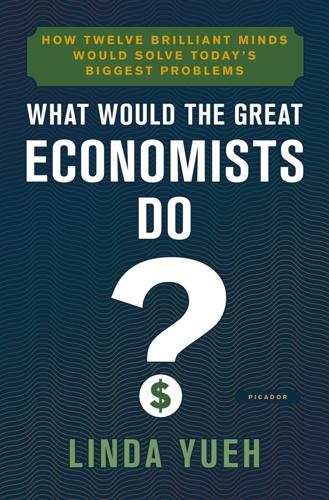
What Would the Great Economists Do?: How Twelve Brilliant Minds Would Solve Today's Biggest Problems
by
Linda Yueh
Published 4 Jun 2018
Hayek opposed the use of monetary policy, which is when the cost and quantity of money in the economy is adjusted to influence growth, as well as Keynes’s fiscal activism, setting him at odds with much of the economics profession. Although Hayek found an intellectual home at the London School of Economics and Political Science, his theories are still not widely accepted in academia. With capitalism itself now under attack in the aftermath of the Great Recession by the Occupy movement and others, Hayek’s ideas have come back into fashion as the search continues for arguments to defend the market system against growing scepticism. Those ideas can help us discern whether there are any lessons to be learned from the financial crisis. Joan Robinson, another of the twentieth-century’s leading lights, is the sole woman among the Greats in this book, which reflects the chronic dearth of women in economics.
…
He placed himself, with his penchant for reinvention during a varied career, among the ranks of those innovators, many of whom have changed the way that we live. Schumpeter believed that the innovator-entrepreneur had a ‘will to conquer … Our type seeks out difficulties, changes in order to change, delights in ventures.’43 8 Friedrich Hayek: What Can We Learn from Financial Crises? On 15 October 2011 members of the Occupy movement attempted to set up a protest camp in Paternoster Square, outside the London Stock Exchange. They were foiled, as the area was privately owned, so any protesters would have been trespassing and the police were able to seal off the entrance before any could enter. However, the group of around 3,000 people simply gathered instead outside nearby St Paul’s Cathedral, where an indefinite camp was established.
…
Occupy’s slogan, ‘We are the 99 per cent’, referred to the high proportion of global wealth accounted for by the top 1 per cent of the distribution. They reflected the widespread public anger in the aftermath of the 2008 global financial crisis. The protesters called for financial reform, a fairer distribution of income and wealth and a rejection of austerity. The Occupy movement reflected the modern version of a struggle that had been ongoing since the previous century. The twentieth century had witnessed an ideological battle between socialism and welfare state capitalism, culminating in the triumph of the latter with the fall of the Berlin Wall and the lifting of the Iron Curtain in 1989, which led to the break-up of the Soviet Union in 1991.
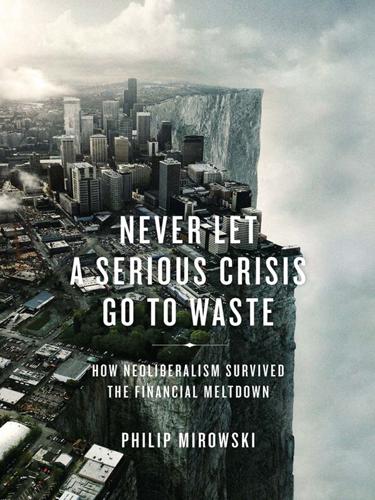
Never Let a Serious Crisis Go to Waste: How Neoliberalism Survived the Financial Meltdown
by
Philip Mirowski
Published 24 Jun 2013
Orthodox economists propound a neoclassical orthodoxy awash in waves of willingly submissive students, are paid salaries frequently second only to the research MDs at their universities, and allowed to preach the self-congratulatory proposition that they remain in firm possession of a self-confident science. Under the influence of the brief uprising known as the Occupy movement in 2011, when a group of students noisily walked out of Gregory Mankiw’s introductory economics lecture at Harvard, it was treated as some passing undergrad hijinks by the press: Who were they kidding? Economists have been treated with relative impunity even on The Colbert Report. They are continually importuned to prophesy: Is the crisis over yet?
…
Not only does the left lack a clear agenda for their own political objectives, but they have repeatedly mistaken or misunderstood the nature of the neoliberal political project, and consequently found themselves co-opted into it, or worse. This book preaches a simple message: Know Your Enemy before you start daydreaming of a better world. In this one particular respect, Carl Schmitt was right. The Privatization of Protest and the Occupy Movement The current problem of left political movements, whatever that benighted term might encompass nowadays, is that they have fallen into the trap where discussions of the crisis end up being hopelessly backward-looking: perhaps preaching “restoration” of proper “regulation,” reenergizing mid-twentieth-century configurations of state power, or returning to a more “fair and equal” income distribution, or redeeming and making debtors whole through debt forgiveness, refurbishing an economy less beholden to and less composed of financialized corporate entities, resembling that which reigned during the immediate postwar period.
…
To take but one telling example, if the hundreds of lobbyists and millions of dollars of campaign contributions were not sufficient to neuter all attempts at financial reform in the United States, such as the so-called Volcker Rule, then the banksters were not subtle in summoning their second line of defense, insisting that any such rule would violate NAFTA and other international “free trade agreements” instituted under prior transnational neoliberal regimes.4 Although it seems impolite to mention it, the collapse of the “Occupy” movement over 2011–12 was largely due to the long-discredited notion that political action could be sustained and effective in the absence of any sort of theoretical guidance and hierarchical organization of short- to longer-term goals. The Tea Party had Ayn Rand; the closest thing to an Occupy inspiration seemed to be John Stewart.
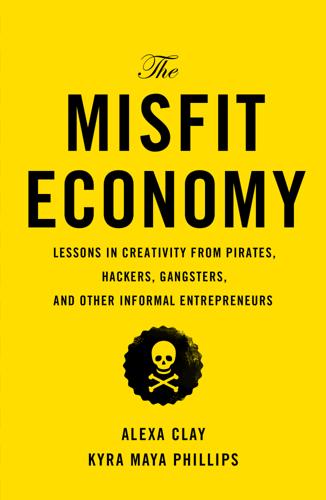
The Misfit Economy: Lessons in Creativity From Pirates, Hackers, Gangsters and Other Informal Entrepreneurs
by
Alexa Clay
and
Kyra Maya Phillips
Published 23 Jun 2015
Hackers are constantly showing off their skills and commitment, posting their victories online for others to see. An Occupy Wall Street protestor may be just as interested in branding himself as an agitator and seeking out recognition from the community of protestors as he is in societal transformation. In fact, even within the Occupy movement, there was a certain status hierarchy at play. Those who had been with the movement since the beginning were known as “Day 1 occupiers.” Protestors earned kudos from their peers based on how long they had been associated with the movement, whether they had slept in the park, and whether they had been arrested.
…
Popular exposure to festivals like Burning Man, movements like Occupy, hacker collectives, and co-working spaces built around egalitarian principles mean that workplace expectations are changing. At the sight of command and control systems, misfits bolt. One of the interesting side effects from the Occupy movement observed by journalist Nathan Schneider: “When people from Occupy went back to work they realized how their workplaces were run on so little democracy. Occupy gave people a glimpse into a different way of being part of an organization—one where participation and self-determination were everything.”
…
To Laura Gamse, our talented filmmaker, who traveled with us to India and China and whose father diligently emailed us misfit material throughout the journey. To the community of staff and fellows at Ashoka with whom we connected around the world. And to members of the One/Thousand network, who supported us throughout this entire journey. Thanks to Nathan Schneider for sharing his reflections on the Occupy movement and to Peter Leeson and Marcus Rediker, who spoke to us about the history of pirates. Thank you to David Kyuman Kim and Ken Knisely, early philosophical influences. Thanks to Marvin Gaye Chetwynd for opening our eyes to the world of performance art, to Will Bueche for his guidance and feedback on Dr.
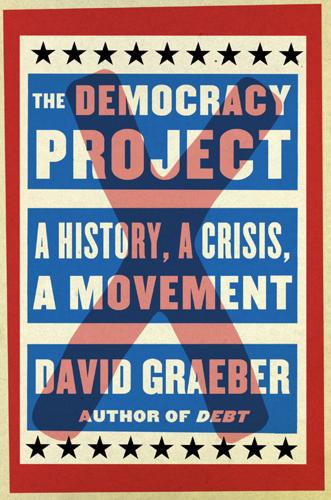
The Democracy Project: A History, a Crisis, a Movement
by
David Graeber
Published 13 Aug 2012
The manager of one website that specializes in matching sugar daddies with those seeking help with student loans or school fees estimates he already has 280,000 college students registered. And very few of these are aspiring professors. Most aspire to little more than a modest career in health, education, or social services.§ It was stories like that I had in the back of my mind when I wrote a piece for The Guardian about why the Occupy movement had spread so quickly. The piece was meant to be part descriptive, part predictive: We are watching the beginnings of the defiant self-assertion of a new generation of Americans, a generation who are looking forward to finishing their education with no jobs, no future, but still saddled with enormous and unforgiveable debt.
…
Instead they are using it to envision ways to bring the whole system down.4 The movement has diversified far beyond students and recent graduates, but I think for many in the movement the concern with debt and a stolen future remains a core motivation for their involvement. It’s telling to contrast the Occupy movement in this way with the Tea Party, with which it is so often compared. Demographically, the Tea Party is at its core a movement of the middle-aged and well-established. According to one poll in 2010, 78 percent of the Tea Partiers were over the age of thirty-five, and about half of those, over fifty-five.5 This helps explain why Tea Partiers and occupiers generally take a diametrically opposite view of debt.
…
Yet somehow the news story on Occupy was not that activists had managed to create an environment in the middle of the most dangerous American cities where the rate of assault against women had clearly precipitously declined, but a scandal that they had not eliminated such incidents altogether. What’s more, as she goes on to report of Oakland, California: Now here’s something astonishing. While the camp was in existence, crime went down 19% in Oakland, a statistic the city was careful to conceal. “It may be counter to our statement that the Occupy movement is negatively impacting crime in Oakland,” the police chief wrote to the mayor in an email that local news station KTVU later obtained and released to little fanfare. Pay attention: Occupy was so powerful a force for nonviolence that it was already solving Oakland’s chronic crime and violence problems just by giving people hope and meals and solidarity and conversation.19 Needless to say, no newspaper headlines loudly proclaiming “Violent Crime Drops Sharply During Occupation” ever appeared, and police continued to insist, despite the evidence of their own statistics, that exactly the opposite was the case.

Speaking Code: Coding as Aesthetic and Political Expression
by
Geoff Cox
and
Alex McLean
Published 9 Nov 2012
We are Legion.”8 Most recently (since 17 September 2011), the Occupy Wall 70 Chapter 3 Street movement, with its rapid spread to other parts of the world, also seems apposite in its reappropriation of common space in places where financial power is centered (squatting its symbolic sites, to express indignation about the handling of the financial crisis since 2008).9 Adopting the “#Occupy” hashtag,10 the wider Occupy movement is described in terms that embody publicness in a wayward culture of financial calculation and social inequality: “We are the 99%.”11 Perhaps it can be claimed that the concept of publicness has itself been occupied in these recent events. Both examples serve to underscore Arendt’s view that the political realm necessarily arises out of acting together, as a plurality of unique individuals, in “the sharing of words and deeds.”12 It is collective activity that relies on the infinite capacity to speak freely and act in public, and this is what constitutes publicness in her terms.
…
The understanding of action is rather different from in Aristotle’s time, when to act outside of the commons was considered “idiotic” (derived from the term idion, indicating life spent in the privacy of one’s own).13 The public realm, a realm of equals, was distinguished from the inequality of the private household (although those not considered equal, such as women and slaves, were not able to enter public life). Notwithstanding the clear inequalities of the public sphere today, the fundamental contradiction is revealed in the idea of public interaction from the privacy of an online platform or home computer as an attack on networked intelligence. F.A.T.’s parody of the Occupy movement, Occupy the Internet! (2011), resonates with this problem, suggesting revolution from the comfort of your home computer.14 By pasting the following JavaScript into an HTML file, an “animated GIF army” appears on the webpage: <script src="http://occupyinter.net/embed.js"></script> It may be possible to “force-occupy” the global investment banking and securities firm website Goldmansachs.com in this way, and even contribute animations and “pithy words,” though this is surely not significant in terms of political effect.15 Yet even with the apparent triviality of this project, other possibilities are registered that might encourage wider interpretations of what constitutes public action, and prompt the writing of alternative scripts.
…
For instance, the social web mediates social relations in this manner, offering the freedom to communicate but through the exception that relates to both state and market principles, in parallel to what has already been said about the conditional aspects of freedom of expression more generally. Facebook regularly shares information with government agencies and purges activist’s accounts, such as those of campaigners trying to organize antiausterity protests in 2011, including the UK Uncut and Occupy movements.89 A closer look at the terms of service of these platforms confirms ways that ownership is carefully managed, parodied by a consumer advocacy blog with the suggestion for new terms: “We can do anything we want with your content. Forever.”90 Users are happily granted access to the means of production but not ownership.
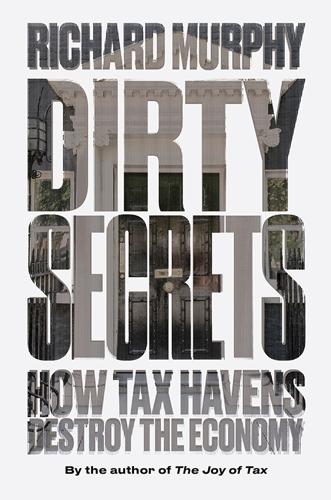
Dirty Secrets How Tax Havens Destroy the Economy
by
Richard Murphy
Published 14 Sep 2017
As a result, the layering of tier upon tier of secrecy in the way I have described has become ever more commonplace in the tax haven (or secrecy jurisdiction) world, which is precisely what the Panama Papers revealed: the vast majority of those introducing work to Mossack Fonseca (the firm whose files were leaked) were themselves located in other tax havens or secrecy jurisdictions. The focus on secrecy changed the official, if not the political, attitude to tax havens. After 2012, tackling secrecy became the key issue, and pure tax initiatives such as the TIEA scheme faded. Other events also influenced this change. In particular, from 2010 onwards, the Occupy movement in the United States and the UK Uncut movement in Britain attracted attention, using remarkably limited resources, to the role of multinational corporations in international tax abuse. This phenomenon was particularly notable in the UK, where the campaign used data produced by the Tax Justice Network, the UK’s Trade Union Congress, the Public and Commercial Services Union, and Private Eye magazine.22 What these public protests did was make clear that concern about the use of tax havens was not limited to tax evaders, or to banking, but also embraced their use by large multinational corporations.
…
See also trusts France 18, 24–5 free markets market conditions 29–30 tax havens effect on 30–2 and trust 37 free riders 11, 12, 164 Friedman, Milton 41, 42 FTSE 100 companies 25–6 G8 summit, 2013 26, 46–7 G20 summit, London, April 2009 9–10, 19–20 gambling 3, 77–8 GDP 172 General Electric 74, 76 Germany 68, 69, 97–8 Gibraltar 77–8 Glass–Steagall Act (US) 45 global financial architecture 10–11 global financial crisis, 2008 9, 74–5, 90, 125 Global Forum on Transparency and Exchange of Information (OECD) 19–20 globalisation 71–2, 84, 137–8, 161 Google 26, 46, 57, 78 governance 36 government post–tax haven 166–9 role of 42–3 greed 84 Green, Lady Christina 141 Greenland 18 growth 3 Guernsey 14–15, 53, 77, 90, 93–4 harmful tax competition 11–14 Harrington, Brooke 5, 90–1 headline tax rates 75–6 Henry, James 40, 109–11 Heritage Foundation 20–1 Hidden Wealth of Nations, The (Zucman) 112–14, 113 history and development 5, 54–6, 84–5 holding structures 34–8 Hong Kong 77, 100 hot money 74–6, 172 House of Commons Public Accounts Committee (UK) 26, 73, 78 House of Commons Treasury Select Committee (UK) 22 HSBC 60, 103 human rights 144 Iceland 46 India 18 inequality 2, 177 information exchange 12, 15, 17, 32–3, 125–6, 152, 157, 175, 177 inheritance and inheritance tax 3, 64–5 Institute of Economic Affairs 41–2 intent 56 International Consortium of Investigative Journalists 101 International Monetary Fund (IMF) 2, 4, 44, 114, 115, 116–17 investment markets 165–6 Ireland 56, 57, 71, 75 Isle of Man 15, 53, 102, 175–6 Israel 158 Japan 68, 97 Jersey 14–15, 16, 19, 20, 21, 53–4, 54, 57, 58–9, 62–3, 69, 71, 83, 86–7, 92, 93–4, 102, 126, 134, 135, 170, 173 Jersey Finance 86 Juncker, Jean-Claude 16 Keen, Michael 114 knock-on effects 116–17 KPMG 25–6, 73, 75, 87, 152 Labour Party (UK) 46 land-value taxation 177 lawyers 89, 154–5 Le Pen, Marine 45 Levin, Carl 22 Liberia 87 Liberian shipping register 77 limited companies 35, 38, 39–40 limited liability 145 abuse of 36–40 literature 21 locations 8, 68–9, 78, 87–8 London 171 Anti-Corruption Summit, 2016 7, 11, 28, 48, 87 G20 summit, April 2009 9–10, 19–20 Lord Mayor of London 52 Luxembourg 15–16, 57, 94, 97, 124, 134, 135 Macau 101 McLaughlin, Alden 86 macro-economic control 167 Malta 56–7, 77, 93–4 Maples and Calder 89 market efficiency 30–1, 118, 120, 165–6 markets 162–3 conditions 29–30 success criteria 3 supremacy 84 tax havens effect on 30–2 trends 137 and trust 37 Marshall Islands 77 Marshall Plan 51–2 Mauritius 57 Meacher, Michael 145 Meluah, Katy 66 Microsoft 74 Mitchell, Dan 40–1 mixed economies 2–3, 162, 164–5 Monaco 8 money laundering 60 money transfers 58–9 Monte Carlo casino 8 Montserrat 87 Mooij, Ruud De 114 Mossack Fonseca 25, 66, 89, 101–2 motivations 60 Multilateral Convention on Mutual Administrative Assistance in Tax Matters (MCMAA) 158 multinational corporations 147, 150 Mutual Assistance Agreement (OECD) 49 neoliberalism 43–4, 84, 161 Netherlands, the 45, 57, 156, 171 New Jersey 55 New York 171 New Zealand 171 Niue 94 non-dom rule (UK) 54–5 non-residents, tax benefits 13 non-trading companies 143 Obama, Barack 17, 89, 125 Occupy movement 25 offshore 8 definition 21, 51 emergence 51–4 offshore bank accounts 59 offshore companies 79–81 numbers 7, 101–2 offshore economy, size 105–15, 113 O’Neil, Paul 13 onshore companies 81 onshore trusts 81–2 opacity 3, 27, 28, 31, 48 Organisation for Economic Cooperation and Development (OECD) 2, 4, 47, 71, 95, 114 Base Erosion and Profits Shifting programme 73, 126–7, 146–7, 148 blacklisting scheme 17–18, 157–8 country-by-country reporting 129, 129–32, 133, 134–8 Double Tax Agreements 18 Global Forum on Transparency and Exchange of Information 19–20, 157 Mutual Assistance Agreement 49 report on Harmful Tax Competition 9, 11–13, 14 revenue loss estimates 107–8 tax haven initiatives 17–21, 23, 24, 26, 27–8, 48, 123–4, 125–6, 126–8, 157–8 Tax Information Exchange Agreements (TIEAs) 18–19, 20 unitary taxation formula 149 Osborne, George 60 ownership disclosure 140–2 Oxfam 111–12 ‘Tax Havens: Releasing the Hidden Billions for Poverty Eradication’ 105–6, 107 Oxford Centre for Business Taxation 108 Pak, Simon 108 Palan, Ronen 5, 10, 21, 23, 51–2, 59 Panama 77, 93–4, 99 Panama Papers 5, 7, 8, 25, 28, 35, 46, 66, 89, 101, 102, 162 Parmalat 39 patent box schemes 76 peer reviews 20 penalty regimes 154–5 Pfizer 74 Picciotto, Sol 21, 106 political stability, threat to 2 political stereotype 8 political will 155–9, 175–6 politicians and politics, role of 84–6 practices 12–13 Price of Offshore, The (Tax Justice Network) 107 ‘Price of Offshore Revisited, The’ (Tax Justice Network) 109–11 PricewaterhouseCoopers 25–6, 73, 87, 152 privacy 32–5, 66–7, 144, 162 Private Eye (magazine) 25 products 79–84 profit determination 13 profit shifting 70–1, 148 property 3, 59–60 prices 174 rights 179 prosecutions 103 Public and Commercial Services Union 25 public and private partnerships 165 public opinion 103, 145, 175 purposes 1 Reagan, Ronald 44 reforms 4, 145–51, 176–8 regulation 3, 29 revenue loss 2, 105–15, 113 implications 115–21 scale 40 risk 10, 36–7, 38, 135–7, 164 rule of law 3, 161, 178–9 sales patterns 136–7 Sanders, Bernie 45, 117 San Marino–Andorra TIEA 18 Savings Tax Directive (EU) 9, 15–17, 48, 94 secrecy 10, 12, 49, 58, 70–1, 161 assessment 93–103 banking 24, 55–6 becomes key issue 25, 27 British challenge to 46–8 collective denial of 28 comparison with privacy 32–5 definition 34 effects on free markets 30–2 financial costs 40 implications 117–21, 138 importance of 22, 23 and risk 36–7, 38 secrecy jurisdictions 29, 44, 87, 178–9 definition 22–3, 57 layering 23–5 pernicious role 23 post–tax haven 171 secrecy laws 36–7 secrecy space 23–4 separateness, supposed 10–11 service industry 84–93 Sharman, Jason 142 Shaxson, Nicholas 5, 52 shipping registrations 77 side letters 82 Sikka, Prem 21, 87 silence, conspiracy of 43 Singapore 77, 100 Smith, Adam 38–9 social impacts, post–tax haven 176–80 social media 65 Society of Trusts and Estate Practitioners 83, 91–2 South Africa 94 Spain 18 special purpose vehicles 80–1 specific jurisdictions 23 Starbucks 26, 46, 163 STAR trust legislation, Cayman Islands 83, 91–2 states, sovereign rights 151 status 10 Suez Crisis, 1956 51–2 Sweden 32, 156 Switzerland 55–6, 57, 68, 100, 112 tax abuse 2 tax administrations 156–7 tax advisers 63 tax avoidance 41–2, 69, 120 definition 61–2 developing countries 28 personal liability 154–5 schemes 62–7, 76 United Kingdom 26 tax benefits, non-residents 13 tax competition 11–14, 43–9, 74–6, 85, 92, 93, 123, 167, 179 tax compliance 61, 63, 119–20, 144–5, 167 tax evasion 61–2, 103, 109, 113 tax gaps 2, 113, 155–6 tax haven companies 67 tax haven investments 59 tax havens activities 58–60 definition 54, 123 ‘Tax Havens: Releasing the Hidden Billions for Poverty Eradication’ (Oxfam) 105–6, 107 tax incentives 13 Tax Information Exchange Agreements (TIEAs) (OECD) 18–19, 20 tax justice activists 7 Tax Justice Network 21–2, 25, 40, 92, 105, 106, 142, 158, 171 Financial Secrecy Index 22–4, 57, 87, 93–6, 96–103, 184–9, 191–2, 193–7 The Price of Offshore 107 ‘The Price of Offshore Revisited’ 109–11 tax law 3, 154–5 tax-neutral regimes 86 tax obligations 34, 41 tax rates corporate 71, 75, 94 headline 75–6 reform 176–8 tax reform 176–7 tax risk 135–7 tax transparency 19 tax war 179 tax withholding, European Union 16 terrorist financing 14 Thatcher, Margaret 44 threat 1–2, 4, 7, 9 Tonga 94 Trade Union Congress 25, 25–6 transfer pricing 71–4 transparency 12, 13, 39, 48, 127, 161–2, 163, 166 Trump, Donald 45, 46, 117 trust 37, 119, 164–5 trust laws 83 trusts 35, 81–4, 139–40, 176 Turkey 158 Turks and Caicos Islands 93, 96 Uncut movement 25 unitary taxation 147–9 United Kingdom 24–5, 68 100 largest companies 69 Barclays data 134, 135 Brexit vote 117 challenge to tax haven secrecy 46–8 companies documentation 38 company growth 102 corporate tax 75 Crown Dependencies 14–15, 48, 53, 96, 124 Department for International Development 108–9 disclosure regime 153 domicile rule 54 draft legislation, 2013 145 hot money 75 House of Commons Public Accounts Committee 26, 73, 78 House of Commons Treasury Select Committee 22 Labour Party 46 non-trading companies 143 Overseas Territories 15, 48, 56, 96 penalty regime 154–5 prosecutions 103 revenue loss 115, 120 secrecy score 96–7, 193, 196 tax administration 157 tax avoidance 26 tax gap 113, 156 tax haven activity cost 113 tax havens 14–15, 16, 48, 53–4, 54, 56, 84, 86–7, 96, 170, 171 Tax Information Exchange Agreements (TIEAs) 19 tax resident people 55 Uncut movement 25 and unitary taxation 149 United States of America 9, 24–5, 60, 68, 69 corporate tax rates 71 corporate tax system 74 corporation tax 40 disclosure regimes 142, 167 failure 13 Federal Trade Commission 29–30 Foreign Accounts Tax Compliance Act (FATCA) 17, 99, 126, 158 Glass–Steagall Act 45 headline tax rates 75–6 hot money 74–5 hypocrisy 158 Internal Revenue Service 156 Occupy movement 25 secrecy score 97, 98–9, 193, 196 tax gap estimates 156 tax havens 8, 17, 55, 142, 171 Vanuatu 87 Verizon 76 virtual world, the 21–2 VISTA trust 24 Vodafone 26 voter participation, decline in 3 Washington Consensus, the 43–5, 46 Watson, Emma 66 wealth concentration of ownership 3, 111, 117, 161, 167–9, 176 under-taxation of 178 wealth-management professionals 84, 90–2, 155 wealth taxes 177 World Bank 2, 44, 108–9, 109 Zucman, Gabriel 40, 102 The Hidden Wealth of Nations 112–14, 113
…
See also trusts France 18, 24–5 free markets market conditions 29–30 tax havens effect on 30–2 and trust 37 free riders 11, 12, 164 Friedman, Milton 41, 42 FTSE 100 companies 25–6 G8 summit, 2013 26, 46–7 G20 summit, London, April 2009 9–10, 19–20 gambling 3, 77–8 GDP 172 General Electric 74, 76 Germany 68, 69, 97–8 Gibraltar 77–8 Glass–Steagall Act (US) 45 global financial architecture 10–11 global financial crisis, 2008 9, 74–5, 90, 125 Global Forum on Transparency and Exchange of Information (OECD) 19–20 globalisation 71–2, 84, 137–8, 161 Google 26, 46, 57, 78 governance 36 government post–tax haven 166–9 role of 42–3 greed 84 Green, Lady Christina 141 Greenland 18 growth 3 Guernsey 14–15, 53, 77, 90, 93–4 harmful tax competition 11–14 Harrington, Brooke 5, 90–1 headline tax rates 75–6 Henry, James 40, 109–11 Heritage Foundation 20–1 Hidden Wealth of Nations, The (Zucman) 112–14, 113 history and development 5, 54–6, 84–5 holding structures 34–8 Hong Kong 77, 100 hot money 74–6, 172 House of Commons Public Accounts Committee (UK) 26, 73, 78 House of Commons Treasury Select Committee (UK) 22 HSBC 60, 103 human rights 144 Iceland 46 India 18 inequality 2, 177 information exchange 12, 15, 17, 32–3, 125–6, 152, 157, 175, 177 inheritance and inheritance tax 3, 64–5 Institute of Economic Affairs 41–2 intent 56 International Consortium of Investigative Journalists 101 International Monetary Fund (IMF) 2, 4, 44, 114, 115, 116–17 investment markets 165–6 Ireland 56, 57, 71, 75 Isle of Man 15, 53, 102, 175–6 Israel 158 Japan 68, 97 Jersey 14–15, 16, 19, 20, 21, 53–4, 54, 57, 58–9, 62–3, 69, 71, 83, 86–7, 92, 93–4, 102, 126, 134, 135, 170, 173 Jersey Finance 86 Juncker, Jean-Claude 16 Keen, Michael 114 knock-on effects 116–17 KPMG 25–6, 73, 75, 87, 152 Labour Party (UK) 46 land-value taxation 177 lawyers 89, 154–5 Le Pen, Marine 45 Levin, Carl 22 Liberia 87 Liberian shipping register 77 limited companies 35, 38, 39–40 limited liability 145 abuse of 36–40 literature 21 locations 8, 68–9, 78, 87–8 London 171 Anti-Corruption Summit, 2016 7, 11, 28, 48, 87 G20 summit, April 2009 9–10, 19–20 Lord Mayor of London 52 Luxembourg 15–16, 57, 94, 97, 124, 134, 135 Macau 101 McLaughlin, Alden 86 macro-economic control 167 Malta 56–7, 77, 93–4 Maples and Calder 89 market efficiency 30–1, 118, 120, 165–6 markets 162–3 conditions 29–30 success criteria 3 supremacy 84 tax havens effect on 30–2 trends 137 and trust 37 Marshall Islands 77 Marshall Plan 51–2 Mauritius 57 Meacher, Michael 145 Meluah, Katy 66 Microsoft 74 Mitchell, Dan 40–1 mixed economies 2–3, 162, 164–5 Monaco 8 money laundering 60 money transfers 58–9 Monte Carlo casino 8 Montserrat 87 Mooij, Ruud De 114 Mossack Fonseca 25, 66, 89, 101–2 motivations 60 Multilateral Convention on Mutual Administrative Assistance in Tax Matters (MCMAA) 158 multinational corporations 147, 150 Mutual Assistance Agreement (OECD) 49 neoliberalism 43–4, 84, 161 Netherlands, the 45, 57, 156, 171 New Jersey 55 New York 171 New Zealand 171 Niue 94 non-dom rule (UK) 54–5 non-residents, tax benefits 13 non-trading companies 143 Obama, Barack 17, 89, 125 Occupy movement 25 offshore 8 definition 21, 51 emergence 51–4 offshore bank accounts 59 offshore companies 79–81 numbers 7, 101–2 offshore economy, size 105–15, 113 O’Neil, Paul 13 onshore companies 81 onshore trusts 81–2 opacity 3, 27, 28, 31, 48 Organisation for Economic Cooperation and Development (OECD) 2, 4, 47, 71, 95, 114 Base Erosion and Profits Shifting programme 73, 126–7, 146–7, 148 blacklisting scheme 17–18, 157–8 country-by-country reporting 129, 129–32, 133, 134–8 Double Tax Agreements 18 Global Forum on Transparency and Exchange of Information 19–20, 157 Mutual Assistance Agreement 49 report on Harmful Tax Competition 9, 11–13, 14 revenue loss estimates 107–8 tax haven initiatives 17–21, 23, 24, 26, 27–8, 48, 123–4, 125–6, 126–8, 157–8 Tax Information Exchange Agreements (TIEAs) 18–19, 20 unitary taxation formula 149 Osborne, George 60 ownership disclosure 140–2 Oxfam 111–12 ‘Tax Havens: Releasing the Hidden Billions for Poverty Eradication’ 105–6, 107 Oxford Centre for Business Taxation 108 Pak, Simon 108 Palan, Ronen 5, 10, 21, 23, 51–2, 59 Panama 77, 93–4, 99 Panama Papers 5, 7, 8, 25, 28, 35, 46, 66, 89, 101, 102, 162 Parmalat 39 patent box schemes 76 peer reviews 20 penalty regimes 154–5 Pfizer 74 Picciotto, Sol 21, 106 political stability, threat to 2 political stereotype 8 political will 155–9, 175–6 politicians and politics, role of 84–6 practices 12–13 Price of Offshore, The (Tax Justice Network) 107 ‘Price of Offshore Revisited, The’ (Tax Justice Network) 109–11 PricewaterhouseCoopers 25–6, 73, 87, 152 privacy 32–5, 66–7, 144, 162 Private Eye (magazine) 25 products 79–84 profit determination 13 profit shifting 70–1, 148 property 3, 59–60 prices 174 rights 179 prosecutions 103 Public and Commercial Services Union 25 public and private partnerships 165 public opinion 103, 145, 175 purposes 1 Reagan, Ronald 44 reforms 4, 145–51, 176–8 regulation 3, 29 revenue loss 2, 105–15, 113 implications 115–21 scale 40 risk 10, 36–7, 38, 135–7, 164 rule of law 3, 161, 178–9 sales patterns 136–7 Sanders, Bernie 45, 117 San Marino–Andorra TIEA 18 Savings Tax Directive (EU) 9, 15–17, 48, 94 secrecy 10, 12, 49, 58, 70–1, 161 assessment 93–103 banking 24, 55–6 becomes key issue 25, 27 British challenge to 46–8 collective denial of 28 comparison with privacy 32–5 definition 34 effects on free markets 30–2 financial costs 40 implications 117–21, 138 importance of 22, 23 and risk 36–7, 38 secrecy jurisdictions 29, 44, 87, 178–9 definition 22–3, 57 layering 23–5 pernicious role 23 post–tax haven 171 secrecy laws 36–7 secrecy space 23–4 separateness, supposed 10–11 service industry 84–93 Sharman, Jason 142 Shaxson, Nicholas 5, 52 shipping registrations 77 side letters 82 Sikka, Prem 21, 87 silence, conspiracy of 43 Singapore 77, 100 Smith, Adam 38–9 social impacts, post–tax haven 176–80 social media 65 Society of Trusts and Estate Practitioners 83, 91–2 South Africa 94 Spain 18 special purpose vehicles 80–1 specific jurisdictions 23 Starbucks 26, 46, 163 STAR trust legislation, Cayman Islands 83, 91–2 states, sovereign rights 151 status 10 Suez Crisis, 1956 51–2 Sweden 32, 156 Switzerland 55–6, 57, 68, 100, 112 tax abuse 2 tax administrations 156–7 tax advisers 63 tax avoidance 41–2, 69, 120 definition 61–2 developing countries 28 personal liability 154–5 schemes 62–7, 76 United Kingdom 26 tax benefits, non-residents 13 tax competition 11–14, 43–9, 74–6, 85, 92, 93, 123, 167, 179 tax compliance 61, 63, 119–20, 144–5, 167 tax evasion 61–2, 103, 109, 113 tax gaps 2, 113, 155–6 tax haven companies 67 tax haven investments 59 tax havens activities 58–60 definition 54, 123 ‘Tax Havens: Releasing the Hidden Billions for Poverty Eradication’ (Oxfam) 105–6, 107 tax incentives 13 Tax Information Exchange Agreements (TIEAs) (OECD) 18–19, 20 tax justice activists 7 Tax Justice Network 21–2, 25, 40, 92, 105, 106, 142, 158, 171 Financial Secrecy Index 22–4, 57, 87, 93–6, 96–103, 184–9, 191–2, 193–7 The Price of Offshore 107 ‘The Price of Offshore Revisited’ 109–11 tax law 3, 154–5 tax-neutral regimes 86 tax obligations 34, 41 tax rates corporate 71, 75, 94 headline 75–6 reform 176–8 tax reform 176–7 tax risk 135–7 tax transparency 19 tax war 179 tax withholding, European Union 16 terrorist financing 14 Thatcher, Margaret 44 threat 1–2, 4, 7, 9 Tonga 94 Trade Union Congress 25, 25–6 transfer pricing 71–4 transparency 12, 13, 39, 48, 127, 161–2, 163, 166 Trump, Donald 45, 46, 117 trust 37, 119, 164–5 trust laws 83 trusts 35, 81–4, 139–40, 176 Turkey 158 Turks and Caicos Islands 93, 96 Uncut movement 25 unitary taxation 147–9 United Kingdom 24–5, 68 100 largest companies 69 Barclays data 134, 135 Brexit vote 117 challenge to tax haven secrecy 46–8 companies documentation 38 company growth 102 corporate tax 75 Crown Dependencies 14–15, 48, 53, 96, 124 Department for International Development 108–9 disclosure regime 153 domicile rule 54 draft legislation, 2013 145 hot money 75 House of Commons Public Accounts Committee 26, 73, 78 House of Commons Treasury Select Committee 22 Labour Party 46 non-trading companies 143 Overseas Territories 15, 48, 56, 96 penalty regime 154–5 prosecutions 103 revenue loss 115, 120 secrecy score 96–7, 193, 196 tax administration 157 tax avoidance 26 tax gap 113, 156 tax haven activity cost 113 tax havens 14–15, 16, 48, 53–4, 54, 56, 84, 86–7, 96, 170, 171 Tax Information Exchange Agreements (TIEAs) 19 tax resident people 55 Uncut movement 25 and unitary taxation 149 United States of America 9, 24–5, 60, 68, 69 corporate tax rates 71 corporate tax system 74 corporation tax 40 disclosure regimes 142, 167 failure 13 Federal Trade Commission 29–30 Foreign Accounts Tax Compliance Act (FATCA) 17, 99, 126, 158 Glass–Steagall Act 45 headline tax rates 75–6 hot money 74–5 hypocrisy 158 Internal Revenue Service 156 Occupy movement 25 secrecy score 97, 98–9, 193, 196 tax gap estimates 156 tax havens 8, 17, 55, 142, 171 Vanuatu 87 Verizon 76 virtual world, the 21–2 VISTA trust 24 Vodafone 26 voter participation, decline in 3 Washington Consensus, the 43–5, 46 Watson, Emma 66 wealth concentration of ownership 3, 111, 117, 161, 167–9, 176 under-taxation of 178 wealth-management professionals 84, 90–2, 155 wealth taxes 177 World Bank 2, 44, 108–9, 109 Zucman, Gabriel 40, 102 The Hidden Wealth of Nations 112–14, 113
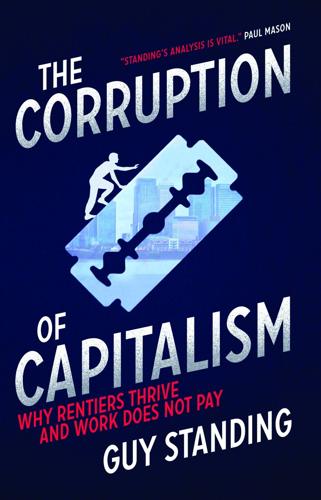
The Corruption of Capitalism: Why Rentiers Thrive and Work Does Not Pay
by
Guy Standing
Published 13 Jul 2016
The inequality has become obscene; too many people are suffering from chronic insecurity. Revolt is coming, in many forms. The first round was proudly ‘leaderless’, as figures in the Occupy movement kept on saying. They were primitive rebels, mould-breaking in intent, but ultimately breaking nothing. The energy fizzled and eventually died. Or did it? What started with the Arab Spring went on into the Occupy movement and its tented occupations of squares and parks in cities and towns in many countries. Those occupations brought together diverse groups. They were not in vain. Gradually, the defiant activists drifted away.
…
Its members had not reached the crucial stage in the development of a class-for-itself, that of ‘recognition’, associated with mass awareness of class consciousness. That was to come after the financial crash of 2008, when governments rescued the banks, whose opportunistic profiteering had been the main cause, and when ‘austerity’ turned out to be a front for giving more to rentiers at the expense of everyone else. The Arab Spring and Occupy movement triggered a global realisation that ‘we’ were a subject, a class in the making. This is a necessary step in the reinvention of progressive politics. It is understandable that, at such a moment, old parties are rejected as unfit for purpose. But detachment may allow the neoliberal state to recover its poise and confidence.
…
Scott 1 ‘follow-on’ patenting 1 Ford, Henry 1, 2 Ford Motor Company 1 foreign direct investment 1, 2 ‘forum shopping’ 1 fossil fuel industry 1 Foucault, Michel 1 Foxconn 1, 2 fracking 1, 2 Freelancer.com 1 Freelancers Union 1 ‘freelancing’ 1, 2, 3, 4, 5, 6, 7 Friedman, Milton 1, 2, 3, 4 Gates, Bill 1, 2 GATT (General Agreement on Tariffs and Trade) 1, 2 General Electric 1, 2 General Motors 1, 2 Getaround 1 Giddens, Anthony 1 Gigwalk 1 Gilded Age 1, 2 Gilead 1, 2 GiveDirectly 1 Global Transformation 1, 2, 3, 4, 5, 6, 7 Goldman Sachs 1, 2, 3, 4, 5 Goodwin, Fred 1 Google 1, 2, 3, 4, 5, 6 GPFG (Government Pension Fund Global, Norway) 1, 2 Gramsci, Antonio 1 Great Convergence 1, 2 ‘Great Gatsby Curve’ 1 Great Transformation 1, 2, 3 Greenspan, Alan 1 Griffin Schools Trust 1 Grillo, Beppe 1 Guardian, The 1, 2 guilds 1, 2, 3 Gunster, Gerry 1 Guy, Gillian 1 Haldane, Andrew 1 Hamilton, Alexander 1 Hammurabi, King 1 Handy 1 Harberger, Arnold 1 Hardin, Garrett 1 Harris, John 1 Hartwick, John 1 Hartwick’s Rule of Inter-Generational Equity 1, 2, 3, 4, 5 Hartz IV welfare reform 1 Hassle.com 1 Hawking, Stephen 1 Hayek, Friedrich 1, 2, 3, 4 Health and Social Care Act (2012) 1 ‘helicopter money’ 1 ‘help-to-buy’ scheme 1 Henry III, King 1 heteromation 1 Hilferding, Rudolf 1 Hitler, Adolf 1 HITs (Human Intelligence Tasks) 1 Hobson, John 1 Hollande, François 1 Homejoy 1 homelessness 1, 2, 3 hoovering (of patents) 1 household debt 1, 2, 3, 4 housing debt 1 Hurd, Nick 1 Husson, Michel 1 Hutton, Will 1 ICSID (International Centre for the Settlement of Investment Disputes) 1, 2 ‘idea-intensive’ firms 1 Illich, Ivan 1 ILO (International Labour Organization) 1 IMF (International Monetary Fund) 1, 2, 3, 4, 5, 6, 7, 8, 9, 10, 11, 12, 13, 14 Independent, The 1 individualisation 1 ‘industrial time’ regime 1 Inequality 1 inheritance tax 1 Institute for Fiscal Studies 1, 2, 3 Institute of Economic Affairs 1, 2 intellectual commons 1, 2 intellectual property branding 1 and commons 1 copyright 1 and lies of rentier capitalism 1 and lobbying 1 and revolt of precariat 1, 2, 3 trade and investment treaties 1 see also patents International Association of Political Consultants 1 International Energy Agency 1 ‘inversion deals’ 1 Investment Court System 1 ‘investment plan for Europe’ 1 IOM (International Organization for Migration) 1 IPSE (Association of Independent Professionals and the Self Employed) 1 ISA (individual savings allowance) 1 ISDS (Investor–State Dispute Settlement) 1, 2, 3, 4 ITN (Independent Television News) 1 Jackson, Michael 1 James I, King 1 Jefferson, Thomas 1, 2 Jobs (Jumpstart Our Businesses) Act (2012) 1 John, King 1 Johnson, Boris 1, 2 Jospin, Lionel 1 JP Morgan 1, 2 Juncker, Jean-Claude 1 Kalanick, Travis 1 Kay, John 1 Kennedy, John F. 1 Kent Reliance 1 Keynes, John Maynard 1, 2, 3, 4 Kids Company 1 King, Martin Luther 1 King, Matt 1 Kingfisher 1 Kinnock, Neil 1 Kinnock, Stephen 1 Klaus, Václav 1 Koch, Charles 1, 2 Koch, David 1 Kondratieff ‘long waves’ theory 1 Kraft 1 Krytyka Polityczna (Political Critique) network 1 Kwarteng, Kwasi 1 labourism 1, 2, 3, 4, 5 Lady Gaga 1 Lancers 1 landlord debt 1 Lansley, Andrew 1, 2 Laplanche, Renaud 1 Lauderdale, Earl of 1 Lauderdale Paradox 1, 2 Lawson, Nigel 1 Lazzarato, Maurizio 1 Leader’s Group 1 Lebedev, Evgeny 1 Lee, John 1 Legal and General Property 1 Legal Services Act (2007) 1 Lehman Brothers 1, 2 Lending Club 1, 2 Lenin, Vladimir 1 library services 1 Lidl 1 lies of rentier capitalism 1, 2, 3 LinkedIn 1, 2 living wage 1, 2, 3, 4 Lloyds Banking Group 1, 2 lobbying 1, 2 Lobbying Act (2014) 1 London Debt Agreement (1953) 1 London Economic Conference (1933) 1 Long-Term Capital Management 1 ‘Luddites’ 1 Lyft 1, 2, 3 McKinsey Global Institute 1, 2, 3, 4, 5 Macmillan, Harold 1 McNamara, Robert 1 Magna Carta (1215) 1, 2, 3, 4, 5, 6, 7, 8, 9 Mail on Sunday 1 Major, John 1, 2, 3 Malaysia Square (London) 1 Malthus, Thomas 1 Manafort, Paul 1 Mandelson, Peter 1 ‘market exclusivity’ 1 Marshall, Paul 1 Marshall Plan 1 Marx, Karl 1, 2 Mason, Paul 1, 2, 3, 4 mass media 1, 2, 3, 4 MeasureOne 1 Medallion Financial 1 mental health 1 Messina, Jim 1, 2 Met Patrol Plus 1 Metro 1 Microsoft 1 migration 1, 2, 3, 4, 5, 6 Milburn, Alan 1, 2, 3 Miliband, Ed 1, 2 Milner, Yuri 1 Miłosz, Czesław 1 Milstein, César 1 Mincome 1 minimum wage 1, 2, 3, 4, 5, 6 Mirrlees, James 1 Mises, Ludwig von 1, 2 Mishel, Lawrence 1 Mitterrand, François 1 Money Advice Trust 1 Monitor 1 Mont Pelerin Society (MPS) 1, 2, 3 Monti, Mario 1, 2, 3 ‘moonlighters’ 1 moral hazards 1, 2, 3 Motorola 1 MoVimento 1 Stelle (M 2S) 3 MPC (Monetary Policy Committee) 1 Mugabe, Robert 1 Murdoch, Rupert 1, 2, 3, 4 Murphy, Richard 1 NAFTA (North American Free Trade Agreement) 1, 2 NAIRU (nonaccelerating inflation rate of unemployment) 1 Nash, John 1, 2 National Audit Office 1, 2 National Council for Voluntary Organisations 1 National Crime Agency 1 National Gallery 1 National Parks and Access to the Countryside Act (1949) 1 National Trust 1 Nationwide Building Society 1 ‘natural capital’ 1 Neo-liberalism 1, 2 and commons 1, 2, 3, 4, 5, 6, 7 and democracy 1, 2, 3 and occupational dismantling 1 and revolt of precariat 1, 2, 3, 4, 5, 6 and shaping of rentier capitalism 1, 2 and subsidies 1, 2, 3, 4 New Labour 1, 2, 3, 4, 5, 6, 7, 8, 9, 10, 11, 12, 13, 14, 15 New Scotland Yard 1 Newman, Maurice 1 News of the World 1 NGOs (non-governmental organisations) 1 NHS (National Health Service) 1, 2, 3 Nine Elms development (London) 1, 2 ‘non-dom’ status 1, 2 North Sea oil 1, 2, 3 North York Moors National Park Authority 1 Northern Rock 1, 2 O’Neill, Jim 1 Obama, Barack 1, 2, 3 Observer, The 1, 2 Occidental Petroleum 1 occupational dismantling 1 Occupy Movement 1, 2, 3, 4 ODI (Overseas Development Institute) 1 OECD (Organisation for Economic Co-operation and Development) 1, 2, 3, 4, 5, 6, 7, 8, 9 Ofcom 1 Office for Budget Responsibility 1, 2 offshore tax havens 1, 2, 3, 4, 5 Oil Change International 1 Ola Cabs 1, 2 Olympic Park (Stratford) 1 on-call employees 1 on-demand economy 1, 2, 3 online dispute resolution 1 ONS (Office of National Statistics) 1, 2, 3, 4 OPEC (Organization of Petroleum Exporting Countries) 1 Optum 1 Osborne, George 1 Ostrom, Elinor 1 Oxfam 1 PAC (Parliamentary Accounts Committee) 1 PACs (Political Action Committees) 1 Paine, Thomas 1 Panama Papers 1 Paolozzi, Sir Eduardo 1 Paris Convention for the Protection of Industrial Property (1883) 1 ‘participation income’ system 1 party politics 1 ‘pass-through’ structures 1 patent boxes 1 patents 1, 2, 3, 4, 5, 6, 7, 8, 9, 10, 11, 12 see also intellectual property Paulson, Henry 1 payday loans 1 PayPal 1 peer-to-peer lending 1, 2, 3 PeoplePerHour 1 PEP (Personal Equity Plan) 1 Perkins, Adam 1 Permanent Wyoming Mineral Trust Fund 1 Personal Responsibility and Work Opportunity Reconciliation Act (1996) 1 PFI (private finance initiative) 1, 2, 3 Pfizer 1, 2 Pharmac 1 Philip Morris International 1, 2, 3 Phillips, A.
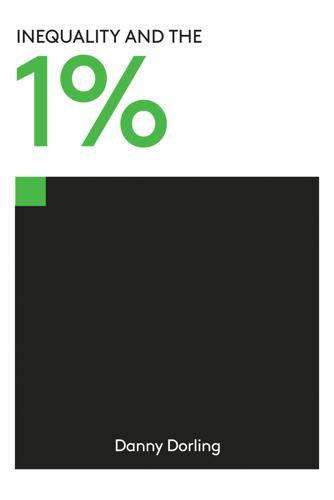
Inequality and the 1%
by
Danny Dorling
Published 6 Oct 2014
Protests are most common here, and the age of the people involved is getting younger and younger. It is the young who have lost the most in recent years, and it is they who are beginning to show their resentment through resistance. That resistance is spreading, and is expressed in many ways, from street demonstrations to the graffiti and other art of the Occupy movement. London is where financial deregulation began, in the 1980s. It is London that benefited most, and it is in London that those with some of the greatest debts now reside. London is home to most of the 1 per cent, most of the rest of whom live just a short distance away from the capital. London’s financial markets were constrained between 1929 and 1978, just as they were in the US, when the 1 per cent was forced to become more normal (see Figure 3.5).
…
For outsiders, it can be shocking to discover that a sixty-one-year-old in the US needs to pay $10,000 dollars a year just to receive what they see as basic healthcare – and that measures by the current Obama administration to improve this are said by some to be making the situation worse.55 But the spirit embodied in Obama’s ‘yes we can’ campaign rhetoric gave widespread hope to those desperate for change. Source: Table A1.1 2012-based Expectation of Life, 1981–2062, Principal Projection, United Kingdom, December 2013 Figure 5.5 Life Expectancy of Women aged sixty-five in the UK In Puerta del Sol, Madrid’s central square, on 7 June 2011 – before the Occupy movement took off elsewhere – a young woman who joined the indignados tried to explain what it felt like to make her voice heard: ‘It’s impossible to switch off … I dream about it at night. It was hard work learning how to conduct the assemblies, especially the big one … We learn something new every day.’56 Protesting in Spain – like enacting progressive legislation in the US, like researching the changing influences on life expectancy in Finland – can be a cause of elation; but much of it is also a bitter grind, with only the occasional moment of celebration.
…
Van Reenen, ‘Bankers and Their Bonuses’, Centre for Economic Performance Occasional Paper 35 (2013), London School of Economics, at cep.lse.ac.uk. 32. P. Crush, ‘HSBC Circumvents EU Bankers’ Bonus Cap’, Chartered Institute of Professional Development, 25 February 2014, at cipd.co.uk. 33. As revealed by Canadian data, a proxy for the US/UK. S. Breau, ‘The Occupy Movement and the Top 1 Per Cent in Canada’, Antipode, 27 August 2013, at onlinelibrary.wiley.com. 34. Official website of the British Monarchy, at royal.gov.uk. 35. G. Smith, ‘The “Value for Money Monarchy” Myth’, Republic Campaign, 2013, at republic.org.uk. 36. Imagine the boost to tourism from having over a thousand royal families!
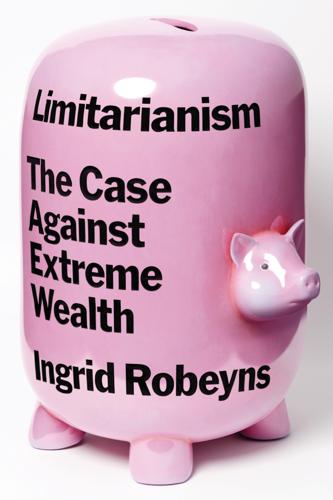
Limitarianism: The Case Against Extreme Wealth
by
Ingrid Robeyns
Published 16 Jan 2024
I was dissatisfied with the broad-brush explanation that “capitalism” was to blame for growing inequality, as if capitalism could operate like a machine with a will of its own, without people controlling it. I became intrigued by the protests of the Occupy movement in 2011 following the 2008 financial crisis: I couldn’t help but feel that the activists had noticed much earlier than most academics that something was deeply wrong with the concentration of wealth in the hands of so few. Although the Occupy movement faded, it sowed a new and growing awareness of wealth disparities. “We are the 99 percent,” they declared—making the general public aware that the remaining 1 percent might be causing problems for us all.2 So in 2012 I decided to deploy my training in philosophy and economics to answer the question: can a person be too rich?
…
But following a series of political events that underscored the systemic injustice inherent in American society, this network developed into a formal organization. The first major turning point was the financial crisis back in 2008, which saw many ordinary people’s lives ruined by the unfettered profit-seeking and increasingly risky choices of financial institutions. Shortly thereafter came the Occupy movement in 2011. Members of the Resource Generation community joined the protest in solidarity, carrying signs proclaiming “I am the 1 percent, tax me.” Resource Generation became a dues-paying organization for the top 10 percent of wealthy Americans aged between eighteen and thirty-five, and it currently has more than 1,100 members across the US.
…
See equality inflation 28, 34 inheritance 7, 81–82, 121–5, 133, 134, 139, 160, 174, 191, 193, 201, 226–7 tax 8, 68, 82, 121–5, 191, 226–7 Inside Climate News 98 Institute of Economic Affairs 40 Intergovernmental Panel on Climate Change (IPCC) 97, 106 Internal Revenue Service (IRS) 62 International Consortium of Investigative Journalists (ICIJ) 63, 64, 180 International Labour Organization (ILO) 58 International Monetary Fund (IMF) 39 Jacobson, Mark 113 Jong, David de: Nazi Billionaires: The Dark History of Germany’s Wealthiest Dynasties 44 judiciary 52, 76, 94, 199, 219 Kerala, India 21 kerosene 102 Keynes, John Maynard 33 Kiribati 102, 106 kleptocracy 47–52, 70, 76 Koch, Charles and David 89–90 Koch Industries 90 labor Global South and 153, 154 human capital and 216 manual labor, demand for 32 market discrimination 125 platform economy and 210 rights 23, 57, 166 taxing 69, 226 unions see unions wages/pay inequalities see wages Lakner, Christoph 21 Lega 50–51 liberal democracies 73–4, 94, 141, 180, 219, 222 libertarianism xxvii, 55, 77, 90, 120, 169, 173 Liechtenstein 166 life expectancy 18 limitarianism basic income and see basic income class and see individual class name climate change and see climate change defined xiv democracy and see democracy direct cash transfers and see direct cash transfers dirty money and see dirty money economic systems and see individual system name equality and see equality ethical action and xvi ethical limit xix, 12, 15–6, 93, 117, 139, 182, 186 fiscal action and xvi, xvi future of 203–229 inheritance and see inheritance limitarian ethos xvi, 186 markets and see markets philanthropy and see philanthropy political limit xix, 15–6, 25, 116, 126, 161, 228 poverty and see poverty regulative ideal xiv, 214 riches line and see riches line tax and see tax structural action xv super-rich and see super-rich wages see wages literacy 18, 21 living wage 142, 160, 223 lobbying 56, 70, 84–5, 166, 167, 178, 203 Loblaw 58 London 9 homelessness in 143 living standards in 10 real-estate prices 13 refugees in 79 study into riches line in 11–2, 15, 41, 200 lower-middle class 5, 10, 25, 111 luck 14, 75, 82, 122, 129–130, 131, 139, 148, 155, 161, 174, 191, 200, 201, 212, 217 Lutheran Church 149 Machin, Dean 95 Madoff, Bernie 196–7 Malleson, Tom: Against Inequality 64, 162 Malm, Andreas 115–6 Malta 9, 78, 79, 80 Mangue, Teodoro Nguema Obiang 47–8 Marcos, Imelda 48–9 markets xii abolition of 208 big government and 169 climate change and 177 constraints on xix failures, uncorrected 134–5, 145 ideologies see individual ideology name non-market economy 213–4 regulation 209, 211, 213 rent-seeking and 128–9 as social institution 118–22 Marshall Islands 106 maternal mortality rates 18 Mathisen, Ruben 83 Mayer, Jane 88–9, 89–90 Mazzucato, Mariana Mission Economy 159 The Entrepreneurial State 137, 159 Mbappé, Kylian 126 media outlets, super-rich acquire 52, 86–9 meritocracy 141 Messi, Lionel 64 middle class climate change and 100, 108, 110, 111, 114–5, 143 definition of 10–11, 29 energy prices and 96 global inequalities and 93–4 income tax and 185–6 inequality and xv, xxv–xxvi, 2, 3 inheritance cap and 227–8 savings and 4 “self-made” super-rich and 5, 6 trickle-down effect and 38 wages and 189 wealth-defense industry and 70 wealth of 25, 45 win-win narrative and 21, 22 working class and 217–8 migration 23, 79, 94, 127, 150, 155 Milanovic, Branko 21 military infrastructure 172 Mill, John Stuart 146 Millionaires for Humanity 6 miners strike, Britain (1984) 33 Minimum Income Standard 10 minimum wage xiv, 160, 174, 176, 211, 224 mixed economy 33–4, 209, 210–211 Monbiot, George 98, 232; Regenesis 108 “moonshot” strategies 114, 159 morality 106, 148 climate change and 103–4, 106, 110, 115–6 democracy and 72, 75, 81 dirty money and see dirty money ethical limit see ethical limit full determinism and 131 inheritance and 122, 125, 134, 226 philanthropy and 165–6, 168, 173, 176–7, 181, 184, 185, 186 riches line and 15 wealth inequality and xiii, xiv, xvii, xxiv, xxvi, 15, 16, 24, 31, 34, 36, 118, 120, 122, 125, 131, 134, 135–6, 138, 148, 161, 187, 188, 193, 194, 196, 197–8, 199, 212, 223–4 mortgage 11, 37, 61, 121, 227 Mossack Fonseca 63–4 Murdoch, Rupert 86–9 Murphy, Liam 120 Musk, Elon xi, 9, 181, 199, 212–3 Nagel, Thomas 120 narcissism 174 national parks 210–11 national public service 218–9 natural lottery 130 Nazi atrocities 43–5 Nembwaya, Frida 151 neoclassical economic theory 111–2 neoliberalism xxv, 38, 38–9, 54–5, 187 atomized individuals and 144–5, 200 climate change and 114 consumer and 191, 202 democracy and 90, 94 deserving poor and 151 dismantling 215–8 distrust of government and 172–3 entrepreneurs and 159 “greed is good” mantra 162 philanthropy and 165–6, 171, 172, 179–180 poverty in affluent nations and 156 progressive parties and 190 “self-made” super rich and 143 spread of 34, 191 tax rates and 146, 221 welfare state and 171 network effects 129 News of the World 87 New York Times 91, 198 Nielsen, Lasse xxii non-financial incentives 162–3 Norton, Michael 204 Obama, Barack xx, 88, 90 Obermayer, Bastian 63–4 Obiang, Theodore 47, 47 obliviousness 174–5 Occupy movement xii, 9 oil 47, 83, 96, 98, 103, 211 oligarchy 9, 10, 73, 78, 79 O’Neill, Jessie: The Golden Ghetto 194–5 opioid crisis 53–4 Oportunidades (Opportunities) 152 Optimist, The 18 Orbán, Victor 73 Organization of Economic Cooperation and Development (OECD) 36, 155, 225–6 Ortega, Amancio 135–6 Osnos, Evan 89 Otele, Olivette 46–7 Otjivero, Namibia 149–52, 178, 226–7 Our World in Data 18–19 Oxfam report on inequality 3, 17 OxyContin 53–4 Page, Benjamin 83 Page, Larry 137 Panama Papers 63–4, 180 Paris Climate Agreement (2015) 104 Patagonia xxiii, 180 Patriotic Millionaires 6, 12, 69, 169, 172, 188 Payne, Erica 12; Tax the Rich!

Revolution at Point Zero: Housework, Reproduction, and Feminist Struggle
by
Silvia Federici
Published 4 Oct 2012
This is one of the issues that has most interested me during these last years and to which I intend to dedicate a good part of my future work, both on account of the current reproduction crisis—including the destruction of an entire generation of young people, mostly of young people of color, now rotting in our jails—and on account of the recognition growing among activists in the United States that a movement that does not learn to reproduce itself is not sustainable.9 In New York, this realization has for some years inspired a discussion about “self-reproducing movements” and “communities of care” side by side with the development of a variety of community-based structures. Expanding the notion of the commons and giving it a more broad political meaning also shapes the horizon of the Occupy Movement, the Arab Spring and the many enduring antiausterity struggles worldwide. For their transformational powers stem from their ability to appropriate spaces that are controlled by the state and commodified by the market and turn them once again into common lands. I THEORIZING AND POLITICIZING HOUSEWORK WAGES AGAINST HOUSEWORK (1975) They say it is love.
…
Across the world, a movement of movements has also grown that, since the ‘90s, has challenged every aspect of globalization—through mass demonstrations, land occupations, the construction of solidarity economies and other forms of commons building. Most important, the recent spread of prolonged mass uprisings and “Occupy” movements that over the last year has swept much of the world, from Tunisia, to Egypt, through most of the Middle East, to Spain, and the United States have opened a space where the vision of a major social transformation again becomes possible. After years of apparent closure, where nothing seemed capable of stopping the destructive powers of a declining capitalist order, the “Arab Spring” and the sprawling of tents across the American landscape, joining the many already set in place by the growing population of homeless, show the bottom is once again rising, and a new generation is walking the squares determined to reclaim their future, and choosing forms of struggle that potentially can begin to build a bridge across some of the main social divides.
…
Amid wars, economic crises, and devaluations, as the world around them was falling apart, they have planted corn on abandoned town plots, cooked food to sell on the side of the streets, created communal kitchens—ola communes, as in Chile and Peru—thus standing in the way of a total commodification of life and beginning a process of reappropriation and recollectivization of reproduction that is indispensable if we are to regain control over our lives. The festive squares and “occupy” movements of 2011 are in a way a continuation of this process as the “multitudes” have understood that no movement is sustainable that does not place at its center the reproduction of those participating in it, thus also transforming the protest demonstrations into moments of collective reproduction and cooperation.
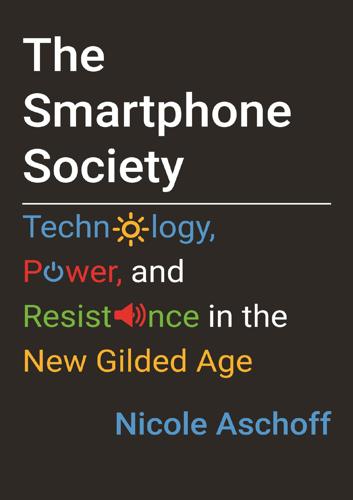
The Smartphone Society
by
Nicole Aschoff
Indeed, when the Reverend Al Sharpton showed up in Ferguson, as he has in other towns and cities when police have murdered Black people, the young organizers who had been in the streets for days were unimpressed with his calls for patience and his insistence on keeping the focus of the protest tightly on Brown’s death.37 Young people increasingly saw the police killings as part of a bigger systemic problem connected to broader structures of poverty and racism and rooted not just in a racist system of law enforcement but also in deeply unequal systems of education, employment, health care, finance, and political representation. As African American studies professor Keeanga-Yamahtta Taylor contends, “The political action of young Blacks is not happening in a vacuum; it is part of the same radicalization that gave rise to the Occupy movement.”38 It is part of a broader revolt whose dramatic unfolding plays out on small screens and city streets simultaneously. Like the young people in the streets of Ferguson, the young people who decided to camp out in Zucotti Park in September 2011, sparking the Occupy Wall Street movement, were angry.
…
P., 37, 39, 41, 44, 54 Mori, 61–62 MoveOn.org, 91 M-pesa mobile money transfer system, 6 MSD (Marjorie Stoneman Douglas) High School, 90 mSpy, 25 Mubarak, Hosni, 92, 94, 97 Muflahi, Abdullah, 20 multitier subcontracting, 31 Munro, Alice, 62–63 Musk, Elon, 126 Myanmar, 42, 50, 94 National Highway Traffic Safety Administration, 157 National Hispanic Media Coalition, 55 National Justice Project (Australia), 21 National Labor Relations Board, 153 National Policy Institute, 105–6 National Security Agency (NSA), 80, 81, 95 NationBuilder, 93–94 neoliberalism: and capitalism, 69, 102, 112–13, 117–18, 144–45; and economic crisis, 99–100, 176n30; and feminism, 107; and new titans, 54 Nepal, 94 network(s), 61, 143 “network effects,” 44 “network society,” 121 #NeverAgain movement, 90, 110 New America, 56 New Center, 45–46 “New Economy,” 121 news: fake, 50–51, 56 news cycle, 89 newspapers, 50–52 news sources, 50–52 New York Taxi Workers Alliance, 146, 153, 178–79n5 Nichols, Synead, 89–90 Nigeria, politics in, 97 Nixon, Richard, 88 Noah, Trevor, 110 Noble, Dylan, 19–20 Nobu Malibu, 62 #NotOkay, 108 NSA (National Security Agency), 80, 81, 95 Obama, Barack, 6, 44, 55, 92, 106 obsolescence, built-in, 82 Ocasio-Cortez, Alexandria, 104, 112, 152, 179n22 Occupy movement, 102–3, 104 Oculus, 41 OKCupid, 23, 24 O’Neill, Caitlin, 56 online dating, 23–27, 35 online search, 52 Open Markets Institute, 150 Open Sesame, 10 Operation Haymaker, 95–96 O’Reilly, Holly Figueroa, 93 O’Rourke, Beto, 92 outrage politics, 109 outsourcing, 146 ownership of our own data, 135–36, 156 Oxford, Kelly, 60, 108 Pacific Railroad Act (1862), 80 Page, Larry, 38, 39, 41, 54, 119–20, 124 PageRank, 52 Palantir, 81 para-social interactions with celebrities, 65 parental limitation, 8 Parkland, Florida, 90 Patriot Act, 81 payment systems, mobile, 4, 5, 6, 10 PayPal, 44 peer-to-peer networks, 120 Pelosi, Nancy, 56 performance: politics as, 109, 111; social media as, 63, 64, 68 permatemps, 46, 47 personal information: ownership of, 135–36, 156; sharing on social media of, 60–61 personalization, 53 personal narratives, 115–16 philanthropy, 56–57 Philippines, 90–91 “phone boss,” 69 Physician Women for Democratic Principles, 89 “pickers,” 33, 46 Pickersgill, Eric, 7 Pinterest, 60, 64, 69 PlentyOfFish, 24 polarization, in politics, 111 police: surveillance by, 96–97, 137–38, 176n28; violence against blacks by, 17–23, 35, 89–90, 100–102, 111, 169n6, 169n13 political advertising, 149 political movements, 97, 102, 111–12 political organizing, 91 political parties, 93–94 politics, 87–113; algorithms and filter bubbles in, 109–10; Black Lives Matter in, 89–90, 100–102, 111; bots in, 109; censorship in, 95; Dakota Access Pipeline Protests in, 103–4, 110; decentralization in, 101–2; digital-analog model in, 104, 110–12, 162; economic crisis in, 98–100; feminist movement in, 107–8; finding our voice in, 108–13; geo-, 95–96, 144; government tracking in, 94–95; gun violence in, 90, 91, 110, 111; modern-day revolt in, 100–108; neoliberal, 99–100, 112–13; Occupy movement in, 102–3; outrage, 109; outside of US, 93–94; as performance, 109, 111; as personal, 88–100; polarization in, 111; political movements in, 97, 102; political parties in, 93–94; protests in, 89–90, 92, 95, 100–104; slacktivism in, 111; social media use by candidates in, 103–5; social media use by people in power in, 87–88, 92–93; Sunrise Movement in, 103–4; surveillance by law enforcement in, 96–97, 176n28; Syrian War in, 90; virality in, 81; voter outreach in, 89; white supremacy in, 35, 105–7 poor communities, internet access for, 149–50 Posner, Eric A., 135 poverty, 12–13 power, in cognitive mapping, 145 power inequalities, 137–38 predictive modeling, 77 print magazines, 172n40 PRISM program, 81 privacy, 69–72, 137–38, 150–51, 156 “privacy tools,” 71 private sphere, commodification of, 144 producers vs. consumers, 28–29 profit, frontiers of, 72–79, 85–86 proponents, 9–12 ProPublica, 48, 106, 149, 153 protests, 89–90, 92, 95, 100–104 Proud Boys movement, 106 public opinion, molding of, 55 Pulitzer, Joseph, 50 “push” notifications, 84 racism, 17–23, 35, 169n6, 169n13 RAM (Rise Above Movement), 106–7 rare metals, 82, 83 Reagan, Ronald, 43 real estate market, effect of high-tech company location in, 48–49 “real life,” digital life vs., 68 recommender algorithm, 67 Reddit, 24 redlining, digital, 29 regulation of monopolies, 43–46 reinforcement learning, 157 Rekognition software, 149 relationships, expectations and norms about, 24–25 religious beliefs, tech-based, 123 remote medicine, 10 rents, 48 research funding, 55 retreat from technology, 132–35 Reynolds, Diamond “Lavish,” 20, 35 Rice, Tamir, 18 “right to repair,” 155 right-wing movements, 105–7 Rise Above Movement (RAM), 106–7 rituals, on social media, 61 Robbin, Jonathan, 77 robots, 128, 131 Rockefeller, Jay, 77 Rockefeller, John D., 37, 54, 57 Rongwen, Zhuang, 94 Roosevelt, Franklin Delano, 88 Rousseff, Dilma, 97 Rudder, Christian, 23 rural areas: internet access for, 29, 149–50 Salesforce: employees organizing at, 148; immoral projects at, 154 Sandberg, Sheryl, 107 Sanders, Bernie, 103–5, 110 Santana, Feidin, 19, 20 Santelli, Rick, 105 Saudi Arabia, censorship in, 95 Scavino, Dan, 88 Schifter, Doug, 127 Schillinger, Klemens, 8 Schneier, Bruce, 135 Schrems, Max, 151 science fiction, 126 Scott, Walter, 19, 20 scraping, 71 Seamless, 30 search algorithms, 51–52, 53 Seasteading Institute, 124 Seinfeld, Jerry, 110 self-esteem, 65 selfies, 59–60 selfish behavior, 138–39, 154–56 self-monitoring tools, 69 service jobs, 33–34 Seth, Jodi, 56 sexism, 23–27, 35 sexting, 25–27, 35 sexual division of labor, 74–75 sexual harassment, 25, 27, 126–27 sexuality, 23–27, 35 sexual violence, 25 shareholder value society, 98 sharing on social media, 60–61, 84 Sharpton, Al, 102 shopping, mobile, 31–32 short message service (SMS), 6 Sidewalk Labs, 41 Sierra Club, 157 signals intelligence, 95–96 “silent spring,” 7 Silicon Valley, 115–41; distrust of, 125–31; and government control, 124; and spirit of capitalism, 115–25; taking back control from, 131–41 Silicon Valley Rising (SVR), 147 Sina Weibo (China), 94 Singh, Jagmeet, 93–94 the Singularity, 123 skeptics, 7–8 Skype, 81 slacktivism, 111 Slager, Michael, 19 Slutwalks, 108 smartness, 9 smartphone(s): demographics of, 3, 4; vs.
…
P., 37, 39, 41, 44, 54 Mori, 61–62 MoveOn.org, 91 M-pesa mobile money transfer system, 6 MSD (Marjorie Stoneman Douglas) High School, 90 mSpy, 25 Mubarak, Hosni, 92, 94, 97 Muflahi, Abdullah, 20 multitier subcontracting, 31 Munro, Alice, 62–63 Musk, Elon, 126 Myanmar, 42, 50, 94 National Highway Traffic Safety Administration, 157 National Hispanic Media Coalition, 55 National Justice Project (Australia), 21 National Labor Relations Board, 153 National Policy Institute, 105–6 National Security Agency (NSA), 80, 81, 95 NationBuilder, 93–94 neoliberalism: and capitalism, 69, 102, 112–13, 117–18, 144–45; and economic crisis, 99–100, 176n30; and feminism, 107; and new titans, 54 Nepal, 94 network(s), 61, 143 “network effects,” 44 “network society,” 121 #NeverAgain movement, 90, 110 New America, 56 New Center, 45–46 “New Economy,” 121 news: fake, 50–51, 56 news cycle, 89 newspapers, 50–52 news sources, 50–52 New York Taxi Workers Alliance, 146, 153, 178–79n5 Nichols, Synead, 89–90 Nigeria, politics in, 97 Nixon, Richard, 88 Noah, Trevor, 110 Noble, Dylan, 19–20 Nobu Malibu, 62 #NotOkay, 108 NSA (National Security Agency), 80, 81, 95 Obama, Barack, 6, 44, 55, 92, 106 obsolescence, built-in, 82 Ocasio-Cortez, Alexandria, 104, 112, 152, 179n22 Occupy movement, 102–3, 104 Oculus, 41 OKCupid, 23, 24 O’Neill, Caitlin, 56 online dating, 23–27, 35 online search, 52 Open Markets Institute, 150 Open Sesame, 10 Operation Haymaker, 95–96 O’Reilly, Holly Figueroa, 93 O’Rourke, Beto, 92 outrage politics, 109 outsourcing, 146 ownership of our own data, 135–36, 156 Oxford, Kelly, 60, 108 Pacific Railroad Act (1862), 80 Page, Larry, 38, 39, 41, 54, 119–20, 124 PageRank, 52 Palantir, 81 para-social interactions with celebrities, 65 parental limitation, 8 Parkland, Florida, 90 Patriot Act, 81 payment systems, mobile, 4, 5, 6, 10 PayPal, 44 peer-to-peer networks, 120 Pelosi, Nancy, 56 performance: politics as, 109, 111; social media as, 63, 64, 68 permatemps, 46, 47 personal information: ownership of, 135–36, 156; sharing on social media of, 60–61 personalization, 53 personal narratives, 115–16 philanthropy, 56–57 Philippines, 90–91 “phone boss,” 69 Physician Women for Democratic Principles, 89 “pickers,” 33, 46 Pickersgill, Eric, 7 Pinterest, 60, 64, 69 PlentyOfFish, 24 polarization, in politics, 111 police: surveillance by, 96–97, 137–38, 176n28; violence against blacks by, 17–23, 35, 89–90, 100–102, 111, 169n6, 169n13 political advertising, 149 political movements, 97, 102, 111–12 political organizing, 91 political parties, 93–94 politics, 87–113; algorithms and filter bubbles in, 109–10; Black Lives Matter in, 89–90, 100–102, 111; bots in, 109; censorship in, 95; Dakota Access Pipeline Protests in, 103–4, 110; decentralization in, 101–2; digital-analog model in, 104, 110–12, 162; economic crisis in, 98–100; feminist movement in, 107–8; finding our voice in, 108–13; geo-, 95–96, 144; government tracking in, 94–95; gun violence in, 90, 91, 110, 111; modern-day revolt in, 100–108; neoliberal, 99–100, 112–13; Occupy movement in, 102–3; outrage, 109; outside of US, 93–94; as performance, 109, 111; as personal, 88–100; polarization in, 111; political movements in, 97, 102; political parties in, 93–94; protests in, 89–90, 92, 95, 100–104; slacktivism in, 111; social media use by candidates in, 103–5; social media use by people in power in, 87–88, 92–93; Sunrise Movement in, 103–4; surveillance by law enforcement in, 96–97, 176n28; Syrian War in, 90; virality in, 81; voter outreach in, 89; white supremacy in, 35, 105–7 poor communities, internet access for, 149–50 Posner, Eric A., 135 poverty, 12–13 power, in cognitive mapping, 145 power inequalities, 137–38 predictive modeling, 77 print magazines, 172n40 PRISM program, 81 privacy, 69–72, 137–38, 150–51, 156 “privacy tools,” 71 private sphere, commodification of, 144 producers vs. consumers, 28–29 profit, frontiers of, 72–79, 85–86 proponents, 9–12 ProPublica, 48, 106, 149, 153 protests, 89–90, 92, 95, 100–104 Proud Boys movement, 106 public opinion, molding of, 55 Pulitzer, Joseph, 50 “push” notifications, 84 racism, 17–23, 35, 169n6, 169n13 RAM (Rise Above Movement), 106–7 rare metals, 82, 83 Reagan, Ronald, 43 real estate market, effect of high-tech company location in, 48–49 “real life,” digital life vs., 68 recommender algorithm, 67 Reddit, 24 redlining, digital, 29 regulation of monopolies, 43–46 reinforcement learning, 157 Rekognition software, 149 relationships, expectations and norms about, 24–25 religious beliefs, tech-based, 123 remote medicine, 10 rents, 48 research funding, 55 retreat from technology, 132–35 Reynolds, Diamond “Lavish,” 20, 35 Rice, Tamir, 18 “right to repair,” 155 right-wing movements, 105–7 Rise Above Movement (RAM), 106–7 rituals, on social media, 61 Robbin, Jonathan, 77 robots, 128, 131 Rockefeller, Jay, 77 Rockefeller, John D., 37, 54, 57 Rongwen, Zhuang, 94 Roosevelt, Franklin Delano, 88 Rousseff, Dilma, 97 Rudder, Christian, 23 rural areas: internet access for, 29, 149–50 Salesforce: employees organizing at, 148; immoral projects at, 154 Sandberg, Sheryl, 107 Sanders, Bernie, 103–5, 110 Santana, Feidin, 19, 20 Santelli, Rick, 105 Saudi Arabia, censorship in, 95 Scavino, Dan, 88 Schifter, Doug, 127 Schillinger, Klemens, 8 Schneier, Bruce, 135 Schrems, Max, 151 science fiction, 126 Scott, Walter, 19, 20 scraping, 71 Seamless, 30 search algorithms, 51–52, 53 Seasteading Institute, 124 Seinfeld, Jerry, 110 self-esteem, 65 selfies, 59–60 selfish behavior, 138–39, 154–56 self-monitoring tools, 69 service jobs, 33–34 Seth, Jodi, 56 sexism, 23–27, 35 sexting, 25–27, 35 sexual division of labor, 74–75 sexual harassment, 25, 27, 126–27 sexuality, 23–27, 35 sexual violence, 25 shareholder value society, 98 sharing on social media, 60–61, 84 Sharpton, Al, 102 shopping, mobile, 31–32 short message service (SMS), 6 Sidewalk Labs, 41 Sierra Club, 157 signals intelligence, 95–96 “silent spring,” 7 Silicon Valley, 115–41; distrust of, 125–31; and government control, 124; and spirit of capitalism, 115–25; taking back control from, 131–41 Silicon Valley Rising (SVR), 147 Sina Weibo (China), 94 Singh, Jagmeet, 93–94 the Singularity, 123 skeptics, 7–8 Skype, 81 slacktivism, 111 Slager, Michael, 19 Slutwalks, 108 smartness, 9 smartphone(s): demographics of, 3, 4; vs.
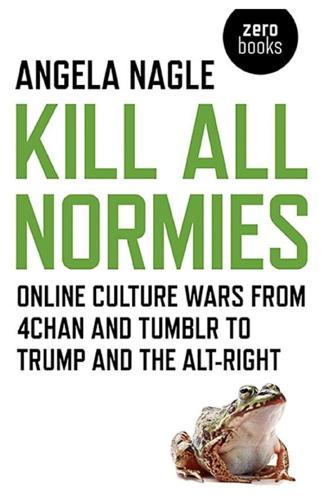
Kill All Normies: Online Culture Wars From 4Chan and Tumblr to Trump and the Alt-Right
by
Angela Nagle
Published 6 Jun 2017
Chapter One The leaderless digital counter-revolution It is worth thinking back now to the early 2010s, when cyberutopianism had its biggest resurgence since the 90s, before the dot-com bubble burst. This time it emerged in response to a series of political events around the world from the Arab Spring to the Occupy movement to new politicized hacker movements. Anonymous, Wikileaks and public-square mass protests in Spain and across the Middle East were getting huge coverage in the news, causing a flurry of opinion and analysis pieces about their profound significance. All of these events were being attributed to the rise of social media and characterized as a new leaderless form of digital revolution.
…
Andrew Auernheimer (aka weev), a now well-known hacker and troll, seems to have been heavily involved in the attacks against Sierra, spreading false information online about her being a battered wife and a former prostitute. In 2009, weev claimed to have hacked into Amazon’s system and reclassified books about homosexuality as porn. Once a part of the Occupy movement, he now regularly posts anti-Semitic and anti-gay rants on YouTube, has a swastika tattoo on his chest and was also the self-appointed president of a trolling initiative called the Gay Nigger Association of America. This was dedicated to opposing popular blogging and other mainstream activities, thought to be destroying authentic Internet-culture.
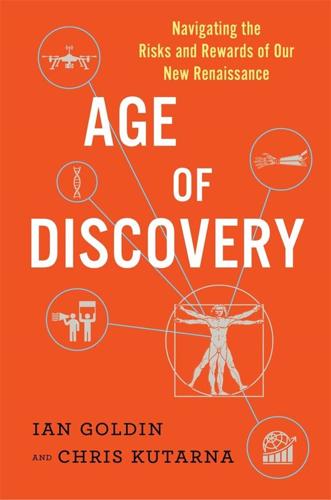
Age of Discovery: Navigating the Risks and Rewards of Our New Renaissance
by
Ian Goldin
and
Chris Kutarna
Published 23 May 2016
Disillusioned by the “recovery” that wasn’t (see Figure 8-1), in September 2011, several hundred people came together under the slogan “We are the 99%” and occupied New York City’s Zuccotti Park, near Wall Street, in protest. What in another time and place might have remained an obscure act of civil disobedience instead found a discouraged global public willing to join in. Within a month, the Occupy movement had spread to over 950 cities in 82 countries across five continents. Protest across the democratic world The Occupy movement became a global brand, but it was itself inspired by popular uprisings in Europe and the Arab world. Unlike the financial crisis in the US, the financial crises that unfolded in European countries like Spain, Greece, Ireland, Iceland and Italy were beyond the resources of their own governments to cope.
…
If Facebook were a nation, it would be the most populous on Earth, with over 1.5 billion active users each month.31 And despite being dispersed around the globe, they are all, on average, less than four degrees of separation apart.32 On Facebook, even if we’ve never met, a friend of your friend knows a friend of my friend. This new group intelligence has been pivotal in many of the most talked-about events of the twenty-first century: the Arab Spring, the Occupy movement, public relief efforts in response to Hurricane Sandy, the Paris Climate Accord and the rise of extremist political parties in Europe. The wide range of these activities highlights how the new digital medium can bring both positive and negative outcomes. Societies and citizens are still fumbling to learn how to operate and manage this layer of consciousness.
…
See Buonarroti, Michelangelo middle class, 73–5, 93, 178, 186, 241 Middle East, 40–1, 93 Arab Spring, 24, 36, 211, 222–4, 228 and economic divergence, 211 and development, 161 and health care, 98 and life expectancy, 76 See also Islam migration benefits of, 86–8 challenges of, 230–1 drivers of, 59 economic migration, 56–7 and innovation, 59 international migration flows, 58 and labor, 57–9 long-term, 52–60 and policy, 249–51, 254 in the Renaissance, 55–6 and selected capital inflows to developing world, 87 and urbanization, 53–5, 249–50 See also refugees Milner, Yuri, 156 modernity, 152, 207–10, 212, 229 Moore, Gordon, 31 Moore, Michael, 227 Moore’s Law, 31–2, 117, 123, 136 More, Thomas, 75, 261 Mosteghanemi, Ahlam, 212 Musk, Elon, 243 Myanmar, 24, 206, 252 9/11, 4, 166, 207, 219, 227, 242 nanotechnology, 125–31, 157, 162 National Security Agency (NSA), 24 nationalism, 65, 230 new media, 25–37 New Renaissance, 7–10, 139, 235–67 beginning of, 10 breadth of achievement, 101 and collaboration, 145 and democracy, 230 and life sciences, 121 and progress, 11, 98–9 and protest, 223 Newton, Isaac, 107, 124, 237 Nigeria, 43, 94, 146, 182 Nobel Prize, 137, 158, 238 Nokia, 43 North American Free Trade Agreement (NAFTA), 25 North Korea, 25, 98, 111, 197–9, 223 Occupy movement, 36, 220–1, 224 offshoring, 44, 249 open-source movement, 145, 241 Open Tree of Life, 36 Ottoman Empire, 2, 10–11, 18, 30, 40–1, 51, 55, 60–1, 72–3, 135, 194–5, 204, 209, 213, 230 Oweidat, Nadia, 213 pandemics, 137, 185–7 Black Death, 1, 70, 72–3, 93, 143, 173–5, 177, 184 defined, 179 Ebola, 181–3 H5N1 (bird flu), 165, 183–5, 186, 237, 253 HIV/AIDS, 76, 83, 98, 101, 154, 158, 185–6 SARS, 180–1 Spanish flu, 165 paradigm shifts and Copernicus, 105–8, 110–12, and genius, 107 in life science, 112–21 in physical science, 121–31 in the Renaissance, 105–11 See also genius Paris Climate Accord, 36, 67 patents, 136–7, 159, 227, 244–5 PayPal, 59, 153, 243 perspective, need for, 4–7 Peru, 29, 93 Petrarch, 80, 133, 256 Peurbach, Georg von, 105, 133 PewDiePie, 138 pharmaceutical industry, 83–4, 113, 183, 245 3D-printed drugs, 119 and diminishing returns, 154–5 gene therapy, 119–20, 158 and nanotechnology, 131 and pace of discovery, 162–3 R&D spending, 154 Phelps, Edmund, 240–1 physics, 121–5 quantum mechanics, 123–8 and random motion, 128 and scale, 121–8 scanning tunneling microscope (STM), 128 and stickiness, 128 plague.
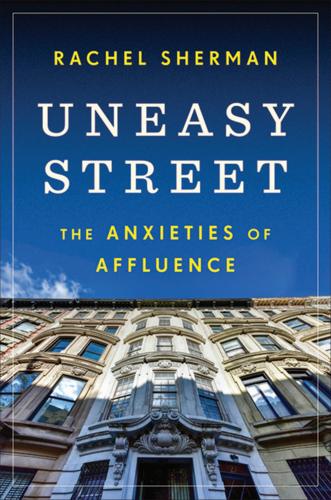
Uneasy Street: The Anxieties of Affluence
by
Rachel Sherman
Published 21 Aug 2017
Whether one is wealthy in this connotative way is defined by how much moral integrity one has—not how much money. In the past ten years, rich people have faced another symbolic challenge as economic inequality has emerged as a dominant issue on the national stage.26 The 2008 housing market collapse and the subsequent “Great Recession” brought economic struggles front and center. In 2011 the Occupy movement’s critique of “the 1 percent” dominated even the mainstream media. In 2014 French economist Thomas Piketty’s 700-page book on inequality became a bestseller in the United States. Strikes by fast-food workers and prominent debates about raising the minimum wage to fifteen dollars per hour also put the spotlight on low-wage workers in this period.
…
Indeed, astronomical compensation in these industries, the low-wage service jobs they generate,41 and city development strategies favoring the rich have made New York the most unequal large city in the United States,42 creating a situation Mayor Bill De Blasio has labeled an “inequality crisis.”43 In 2014 the gap between the poorest and the wealthiest in Manhattan was the largest in the country, as the average earnings of the top 5 percent were more than eighty-eight times those of the bottom 20 percent.44 New York’s levels of residential segregation by income as well as race are also among the highest in the nation.45 As more wealthy professionals have stayed in the city rather than move to the suburbs, real estate prices have shot up. Many neighborhoods, especially in Manhattan and Brooklyn, have gentrified rapidly, pushing nonwealthy people farther into the outer boroughs. Issues of wealth and inequality are also extremely visible in the city. It is where the Occupy movement first appeared in the United States in 2011. Activists took over Zuccotti Park, in the heart of the financial district, thrusting these issues into the public spotlight. Finally, Manhattan is the backdrop for many of the most dominant images of the morally suspect wealthy, from the “Primates of Park Avenue”46 to the “wolves of Wall Street.”47 But who counts as “elite”?
…
Rowling is a billionaire—regardless of how she came by her fortune, how she spends it, or whether she gives it away—just on the basis of the idea that such wealth is inseparable from extreme inequality, which is both pernicious to society and itself immoral? To some extent recent public discourses critical of inequality emerging from the Occupy movement, the Fight for Fifteen struggle for a $15 minimum wage, and the Bernie Sanders presidential campaign have raised exactly these questions. As we have seen, the people I talked with sometimes responded quite negatively to these critiques, interpreting them as personal judgments, as when high earners reacted defensively after President Obama advocated repealing high-wage tax cuts.
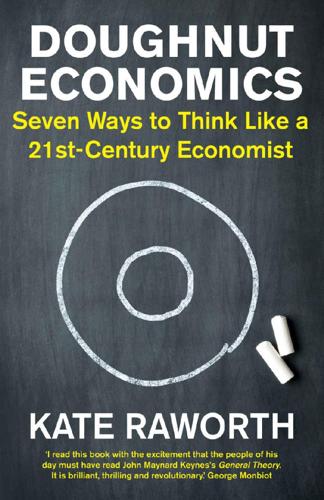
Doughnut Economics: Seven Ways to Think Like a 21st-Century Economist
by
Kate Raworth
Published 22 Mar 2017
She is also a senior associate of the Cambridge Institute for Sustainability Leadership, and teaches on the Economics for Transition programme at Schumacher College. Her internationally acclaimed idea of Doughnut Economics has been widely influential amongst sustainable development thinkers, progressive businesses and political activists, and she has presented its core ideas to audiences ranging from the UN General Assembly to the Occupy movement. Over the past 20 years, Kate’s career has taken her from working with micro-entrepreneurs in the villages of Zanzibar to co-authoring flagship reports for the United Nations Development Programme in New York, followed by a decade as Senior Researcher at Oxfam. Named by the Guardian as ‘one of the top ten tweeters on economic transformation’, her media work includes articles and interviews for the Financial Times, the Wall Street Journal, the New Statesman, CNN, and Al-Jazeera.
…
‘Distinctions must be kept in mind,’ he advised back in the 1960s, ‘between quantity and quality of growth, between its costs and return, and between the short and the long term … Objectives should be explicit: goals for “more” growth should specify more growth of what and for what.’17 Evicting the cuckoo Knocked sideways by the 2008 financial crash, alarmed by the 2011 Occupy movement’s global resonance, and under growing pressure to act on climate change, it’s no wonder that politicians today have started searching for words to express more inspiring visions of social and economic progress. But they seem always to revert to the same answer: growth, the ubiquitous noun, decked out in a splendid array of aspirational adjectives.
…
Out of all of these power relationships, when it comes to the workings of the economy, one in particular demands attention: the power of the wealthy to reshape the economy’s rules in their favour. Samuelson’s Circular Flow diagram inadvertently helped to gloss over this matter by depicting households as a homogeneous group, each one offering its labour and capital in return for wages and a share of profits – which are, in turn, paid out by a cluster of homogeneous firms. But, as the Occupy Movement made clear with its meme of the 1% and the 99%, that stylised picture doesn’t quite do justice to the reality we have come to know. Inequality amongst households and firms alike has soared in many countries in recent decades. And the extreme concentration of income and wealth – in the hands both of billionaires and of corporate boards – rapidly turns into power over how and for whom the economy is run.
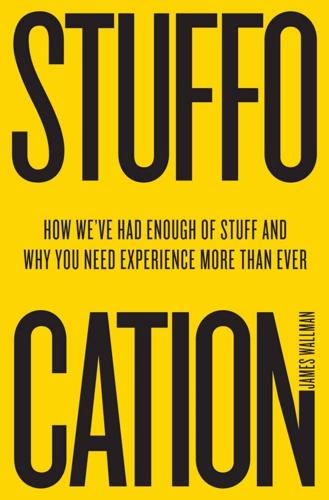
Stuffocation
by
James Wallman
Published 6 Dec 2013
Social scientists would say that all these reasons – the stress of stuff, the stable upbringing, the environment, the ageing population, the growing population, the rise of the global middle class, and the move to cities – they are all relevant, but that we are also increasingly fed up with materialism because we simply don’t believe in the system anymore. One social scientist, such as Ruth Milkman, for instance, might point out that we are disillusioned with its inherent inequalities, that the protesters in the Occupy movement reflected the anger the rest of us felt. Another might highlight the fact that, till recently, we thought that if we earned more and bought more things, it would make us happier. But researchers like Tom Gilovich have shown that this is not the case, and as this truth reaches the mainstream it is changing the importance people place on possessions.
…
The internet has also transformed fashion. Once the front of catwalks was strictly Hollywood A-listers and VIPs. It still is – only the VIPs now include bloggers like twelve-year-old Tavi Gevinson. And it has revolutionized politics: consider the impact of Facebook and Twitter on Egypt, Iran, and the Occupy movement. Because of the internet, the direction of influence and the structure of power have changed. Instead of the old, top-down system, where information and influence flowed from the top, now they also flow in other ways, from the bottom upwards, and also sideways. And before, the few at the top held sway over the many at the bottom.
…
Tavi Gevinson Read about the time the twelve-year-old blogger sat front row in “Tavi Gevinson: 13-Year-Old Fashion Blogger Skips School, Attends Fashion Week”, Huffington Post, 17 November 2009. Social media’s effect on politics For the impact of Facebook and Twitter on Egypt, Iran, and the Occupy Movement, consider Jose Antonio Vargas, “Spring Awakening: How an Egyptian Revolution Began on Facebook”, New York Times, February 17, 2012, and Jared Keller, “Evaluating Iran’s Twitter Revolution”, The Atlantic, 18 June 2010. CHAPTER FOUR I Love to Count: the 33, 47, 69 and 100 Things of Minimalism Read more about Tammy Strobel at www.rowdykittens.com.
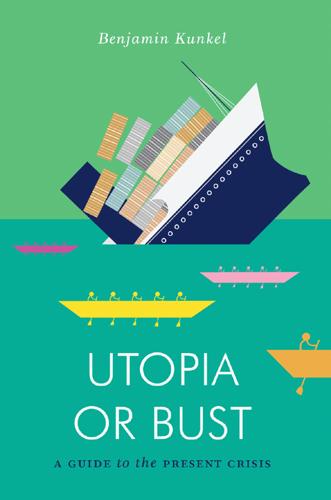
Utopia or Bust: A Guide to the Present Crisis
by
Benjamin Kunkel
Published 11 Mar 2014
In Greece, Portugal, and Spain, sovereign debt burdens have driven protesters onto the streets in the tens of thousands. They are indignant at being made to repair their governments’ books through higher taxes and reduced salaries and benefits. In Chile, excessive interest rates on student loans figured among the main grievances in demonstrations throughout the southern winter. And the Occupy movement in the US—whose slogan, “We are the 99 percent,” was reportedly first floated by Graeber himself—has condemned not only the maldistribution of wealth but the related vice of massive consumer debt, in the form of mortgages, student loans, and usurious interest rates on credit cards. Generally speaking, the 1 percent lends and the rest borrow.
…
Some readers of Debt have surmised that Graeber opposes all forms of impersonal economic relationship, on the basis of his warm accounts of neighborly credit relations or the Islamic bazaar with its “handshake deals,” as well as his denunciation of a credit system, articulated through laws and defended by violence, that exempts debt obligations and the value of money from the sort of continuous revision typical of humane dealings among equals. In response, Graeber has said that he is not “against impersonal relations, or all impersonal exchange relations,” which must in some degree characterize “any complex society.” There is no reason to doubt him. Yet the spirit of the Occupy movement has so far been defined by what Graeber, in Direct Action: An Ethnography (2009), described as the—mainly anarchist—theory and practice of “direct action,” or what is now often called “prefigurative politics.” In this ethos, “means and ends become, effectively, indistinguishable; a way of actively engaging with the world to bring about change, in which the form of the action … is itself a model for the change one wishes to bring about.”
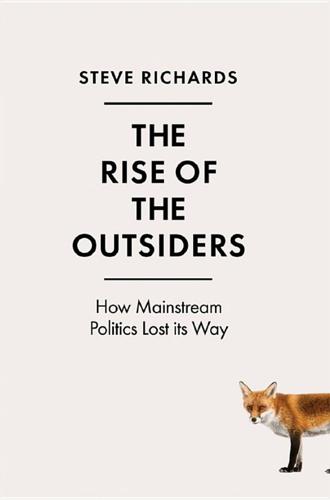
The Rise of the Outsiders: How Mainstream Politics Lost Its Way
by
Steve Richards
Published 14 Jun 2017
In March 2011, less than three years after the financial crash, the then Governor of the Bank of England, Mervyn King, noted candidly: ‘I’m surprised the real anger has not been greater than it has… The people whose jobs were destroyed were in no way responsible for the excesses of the financial sector and the crisis that followed.’1 King was both insightful and premature in his analysis. He made a noteworthy observation. The global Occupy movement against social inequality came closest to an insurrectionary protest, but there were no riots related directly to the crash across Europe or the US. Instead of riots, the anger of electorates was channelled largely into support for parties and candidates away from the mainstream. Those who were victims of the crash, or felt they were, discovered a far more effective way of expressing their anger: they gave power or influence to an outsider on the left or right, through the ballot box.
…
Johnson: former US president Lionel Jospin: former French PM Sir Mervyn King: former Governor of the Bank of England Neil Kinnock: former Labour leader Pia Kjærsgaard: founder of the Danish People’s Party Oskar Lafontaine: former German minister Nigel Lawson: former UK chancellor Left Bloc: part of a coalition in Portugal Left Party: Germany Jean-Marie Le Pen: Front National, France Marine Le Pen: Front National Enrico Letta: Italian PM Damian McBride: Gordon Brown’s press secretary John McDonnell: Labour MP Emmanuel Macron: French minister John Major: former PM Peter Mandelson: former Labour politician and adviser Catarina Martins: leader of Portugal’s Left Bloc Theresa May: PM Angela Merkel: German chancellor David Miliband: former Foreign Secretary Ed Miliband: former Labour leader François Mitterrand: former French president Walter Mondale: former US vice-president Mario Monti: former Italian PM Chantal Mouffe: Belgian political theorist Lisa Nandy: MP for Wigan National Democratic Party of Germany (NPD) Northern League (Lega Nord): Italy Paul Nuttall: current leader of UKIP Barack Obama: former US President Occupy movement: global movement against social inequality One Nation party: Australia George Osborne: former Chancellor of the Exchequer Party for Freedom: Holland Pasok: Greek socialist party Mike Pence: US vice-president People’s Party (PP): Spain Frauke Petry: chairwoman of the Alternative for Germany (AfD) party Podemos: left-wing party in Spain Virginia Raggi: Mayor of Rome Mariano Rajoy: Spanish PM Matteo Renzi: former Italian PM Republican Party: US Marco Rubio: Florida senator Kevin Rudd: former PM of Australia Mark Rutte: Dutch prime minister Paul Ryan: Speaker of the US House of Representatives Alex Salmond: former SNP leader Matteo Salvini: leader of Italy’s Northern League Antonis Samaras: former PM of Greece Pedro Sánchez: former leader of PSOE in Spain Bernie Sanders: US presidential candidate Nicolas Sarkozy: former French president Anthony Scaramucci: Trump adviser Gerhard Schroeder: former German chancellor Martin Schulz: leader of Germany’s SDP Scottish National Party (SNP): UK Peter Skaarup: leader of the Danish People’s Party Social Democratic Party of Austria (SPÖ): Austria Social Democratic Party (SPD): Germany Social Democratic Party (SDP): UK Social Democrats: Denmark Spanish Socialist Workers’ Party (PSOE) Heinz-Christian Strache: Freedom Party Nicola Sturgeon: SNP leader Larry Summers: former US Secretary of the Treasury and economist Sweden Democrats party Syriza: left-wing party in Greece Tea Party: US Margaret Thatcher: former PM Justin Trudeau: Canadian prime minister Donald Trump: US president Alexis Tsipras: leader of Greece’s Syriza party Malcolm Turnbull: Australian PM Alexander Van der Bellen: President of Austria Yanis Varoufakis: former Greek finance minister William Waldegrave: former Conservative minister Geert Wilders: founder of the Dutch Party for Freedom Harold Wilson: former PM Stewart Wood: a senior adviser to Gordon Brown Steven Woolfe: UKIP leadership candidate ______ NOTES INTRODUCTION 1 Mervyn King to Treasury Select Committee, 1 March 2011 2 The Briefing Room, BBC Radio 4, 22 December 2016 CHAPTER ONE: The Outsiders on the Right 1 The Guardian, 23 May 2016 2 Televised debate of potential Republican candidates, 14 January 2016 3 The New York Times, 30 January 2016 4 Donald Trump’s victory speech in New Hampshire, 9 February 2016 5 Trump press conference, 16 February 2017 6 Trump rally in Florida, 18 February 2017 7 The Guardian, 6 September 2016 8 Ibid. 9 The Economist, 23 January 2016 10 Stephen Nickell (SERC, CEP, Nuffield College, University of Oxford) and Jumana Saleheen (Bank of England), ‘The Impact of Immigration on Occupational Wages: Evidence from Britain’, Spatial Economics Research Centre discussion paper 34, October 2009 11 The Economist, 23 January 2016 12 Ibid. 13 BBC2, Stewart Lee Comedy Vehicle, 8 March 2014 14 Tony Blair speech, Bloomberg, London, 17 February 2017 15 Jan-Werner Müller, The Guardian, 2 September 2016, and What is Populism?
…
Starr, The (Gormley) ref1 defections ref1 Democratic Party of Italy (PD) ref1 Democratic Party (US) ref1, ref2, ref3, ref4, ref5–ref6, ref7, ref8–ref9, ref10, ref11–ref12, ref13, ref14 Denmark ref1, ref2, ref3–ref4 Dole, Bob ref1 Donoughue, Bernard ref1 Duffy, Gillian ref1 Duncan Smith, Iain ref1 Ecclestone, Bernie ref1 Economist, The ref1, ref2 education ref1 Erdogan, Recep Tayyip ref1 Errejón, Íñigo ref1, ref2, ref3 European Central Bank ref1, ref2, ref3, ref4, ref5 European Stability Mechanism ref1 European Union (EU) ref1, ref2–ref3, ref4–ref5, ref6–ref7, ref8, ref9, ref10–ref11 free movement ref1–ref2, ref3, ref4, ref5 immigrants ref1–ref2 refugees ref1, ref2–ref3 see also Brexit eurosceptics ref1, ref2, ref3 eurozone ref1, ref2, ref3, ref4, ref5, ref6 Evening Standard ref1 Exchange Rate Mechanism ref1 expenses scandal (UK) ref1–ref2 Facebook ref1, ref2 ‘fake news’ ref1, ref2–ref3, ref4 Farage, Nigel ref1, ref2–ref3, ref4, ref5, ref6, ref7, ref8, ref9, ref10, ref11 Fawcett, Edmund ref1 Faymann, Werner ref1–ref2 Fillon, François ref1 financial crash (2008) ref1, ref2, ref3–ref4, ref5, ref6, ref7–ref8, ref9–ref10, ref11–ref12, ref13, ref14 Financial Times ref1, ref2, ref3 Finkelstein, Daniel ref1 ‘fiscal cliff’ ref1 Five Star Movement of Italy (M5S) ref1, ref2, ref3, ref4–ref5, ref6, ref7, ref8 Flynn, Michael ref1 Forbes magazine ref1 ‘forgotten middle class’ ref1 Forsyth, James ref1 Forza Italia party ref1, ref2, ref3 Fowler, Norman ref1 France ref1, ref2, ref3, ref4, ref5, ref6, ref7, ref8, ref9–ref10, ref11, ref12–ref13, ref14, ref15 corruption ref1–ref2 media ref1–ref2 presidential election (2017) ref1–ref2 terrorist attacks (2015) ref1 Free Democratic Party (Germany) ref1 Freedom Party of Austria (FPÖ) ref1, ref2, ref3, ref4, ref5, ref6, ref7 Front National (France) ref1, ref2, ref3, ref4–ref5 policies ref1 G8 (Group of Eight) ref1 G20 London summit (2009) ref1–ref2 Gaddafi, Colonel Muammar ref1 Gauland, Alexander ref1 generational divide ref1 Germany ref1, ref2, ref3, ref4, ref5–ref6, ref7–ref8, ref9, ref10, ref11, ref12 grand coalition ref1–ref2 media ref1–ref2 refugee crisis ref1, ref2, ref3–ref4, ref5–ref6, ref7–ref8, ref9–ref10 ‘Third Way’ ref1–ref2 trust ref1–ref2 Gillard, Julia ref1, ref2 Gilligan, Andrew ref1–ref2 globalization ref1, ref2, ref3, ref4, ref5, ref6–ref7, ref8, ref9, ref10, ref11–ref12, ref13, ref14 Goldman Sachs ref1 Google ref1–ref2 Gormley, Ken ref1 Gould, Philip ref1 Gove, Michael ref1–ref2, ref3, ref4 Greece ref1, ref2, ref3, ref4, ref5, ref6–ref7, ref8–ref9, ref10–ref11, ref12, ref13, ref14 economic crisis ref1, ref2, ref3, ref4 general election (2015) ref1–ref2 referendum (2015) ref1–ref2 Green Party (Austria) ref1, ref2, ref3 Green Party (Germany) ref1, ref2 Green Party (Holland) ref1 Grillo, Beppe ref1–ref2, ref3, ref4, ref5 Guardian, The ref1 Hague, William ref1, ref2 Haines, Joe ref1 Hammond, Philip ref1 Hanson, Pauline ref1–ref2 Have I Got News for You ref1 Heath, Edward ref1, ref2, ref3, ref4–ref5 Heffer, Simon ref1 Hillbilly Elegy (Vance) ref1 Hobbs, Gabe ref1 Hofer, Norbert ref1, ref2, ref3 Holland ref1, ref2–ref3, ref4 Hollande, François ref1, ref2, ref3, ref4, ref5, ref6, ref7 Howard, Michael ref1, ref2, ref3 Humphrys, John ref1, ref2–ref3 Hungary ref1 Hunt, Tristram ref1 ‘identity politics’ ref1–ref2 Iglesias Turrión, Pablo ref1, ref2–ref3 immigration/immigrants ref1–ref2, ref3, ref4–ref5, ref6, ref7, ref8, ref9, ref10–ref11, ref12 Australian ‘points system’ ref1 students ref1–ref2 United Kingdom ref1–ref2 see also asylum-seekers incomes policy ref1–ref2 Independent, The ref1–ref2, ref3 International Monetary Fund (IMF) ref1, ref2 Iraq War (2003–11) ref1–ref2, ref3 Islam/Islamism ref1, ref2, ref3, ref4 Italy ref1–ref2, ref3, ref4–ref5, ref6, ref7, ref8, ref9–ref10, ref11, ref12–ref13 corruption ref1 media ref1 James, Diane ref1 Jenkins, Roy ref1–ref2 job definition ref1–ref2 job markets ref1 Jobbik party (Hungary) ref1 Johnson, Boris ref1–ref2, ref3, ref4 Johnson, Lyndon B. ref1 Jospin, Lionel ref1, ref2 Katz, Ian ref1 Kearns Goodwin, Doris ref1 Keegan, William ref1 Keynesian solution ref1, ref2, ref3, ref4 Kielinger, Thomas ref1 Kind of Blue (Clarke) ref1 King, Sir Mervyn ref1, ref2, ref3 Kinnock, Neil ref1, ref2, ref3 Kjærsgaard, Pia ref1 Kristol, William ref1 Krugman, Paul ref1 labour markets ref1, ref2 Labour Party (Holland) ref1 Labour Party (UK) ref1, ref2, ref3, ref4, ref5, ref6, ref7, ref8–ref9, ref10, ref11, ref12, ref13, ref14–ref15, ref16, ref17–ref18, ref19, ref20, ref21, ref22–ref23 annual conference (2005) ref1–ref2 defections ref1 general election (1992) ref1 general election (2010) ref1 general election (2015) ref1–ref2 leadership contest (2015) ref1–ref2 New Labour ref1–ref2, ref3, ref4 Scottish Labour Party ref1 Lafontaine, Oskar ref1 Lawson, Nigel ref1 Le Pen, Jean-Marie ref1, ref2 Le Pen, Marine ref1, ref2, ref3, ref4, ref5, ref6, ref7, ref8 Lee, Stewart ref1 Left Bloc (Portugal) ref1, ref2–ref3 Left Party (Germany) ref1 left-wing outsiders ref1–ref2 Lega Nord (Northern League) ref1, ref2 Lehman Brothers ref1, ref2 Letta, Enrico ref1 Lewinsky, Monica ref1 Liberal Democrats (UK) ref1, ref2, ref3 liberalism ref1–ref2, ref3 Liberalism: The Life of an Idea (Fawcett) ref1 Limbaugh, Rush ref1–ref2 Living Wage ref1 local politics ref1–ref2 London, UK ref1–ref2 McBride, Damian ref1 McDonnell, John ref1 McGovern, John ref1 Maastricht Treaty ref1 Macron, Emmanuel ref1 Mail on Sunday, The ref1, ref2 Major, John ref1, ref2, ref3, ref4, ref5–ref6, ref7–ref8, ref9, ref10, ref11–ref12 Mandelson, Peter ref1, ref2 Marlow, Alexander ref1 Martins, Catarina ref1–ref2 Masood, Khalid ref1 May, Theresa ref1, ref2, ref3–ref4, ref5, ref6–ref7 media ref1–ref2, ref3–ref4 Merkel, Angela ref1, ref2, ref3, ref4, ref5, ref6, ref7, ref8–ref9, ref10, ref11, ref12, ref13 and refugee crisis ref1, ref2, ref3, ref4, ref5–ref6, ref7–ref8, ref9 and ‘trust’ ref1–ref2 Miliband, David ref1 Miliband, Ed ref1–ref2, ref3, ref4–ref5, ref6, ref7, ref8–ref9, ref10, ref11 Mitterrand, François ref1–ref2 Mondale, Walter ref1 Monti, Mario ref1, ref2 Mouffe, Chantal ref1–ref2, ref3 Müller, Jan-Werner ref1, ref2 Murdoch, Rupert ref1 Nandy, Lisa ref1–ref2 National Alliance (AN) (Italy) ref1 National Democratic Party of Germany (NPD) ref1–ref2 National Health Service (NHS) ref1, ref2, ref3, ref4, ref5, ref6–ref7, ref8, ref9, ref10 National Review ref1 Netherlands see Holland New European, The ref1 New Labour ref1–ref2, ref3, ref4, ref5, ref6, ref7, ref8 New Statesman ref1, ref2 New York ref1 New York Times, The ref1, ref2, ref3, ref4, ref5, ref6–ref7, ref8 New Yorker, The ref1, ref2 Newsnight ref1, ref2, ref3, ref4, ref5 newspapers ref1–ref2 Nickell, Stephen ref1 Nilsson, Niclas ref1 North American Free Trade Agreement ref1–ref2 Northern Ireland ref1 Northern League (Lega Nord) (Italy) ref1 Nuttall, Paul ref1, ref2 Obama, Barack ref1, ref2, ref3, ref4, ref5, ref6–ref7, ref8, ref9, ref10, ref11, ref12, ref13, ref14, ref15, ref16 G20 summit (2009) ref1–ref2, and globalization ref1–ref2, Obamacare ref1–ref2, ref3, ref4–ref5 State of the Union Address (2011) ref1–ref2 Observer, The ref1 Occupy movement ref1 Oliver, Jamie ref1 One Nation party (Australia) ref1 Osborne, George ref1, ref2, ref3, ref4, ref5 as chancellor ref1–ref2, ref3, ref4, ref5–ref6 general election (2015) ref1–ref2 Party for Freedom (Holland) ref1, ref2–ref3, ref4, ref5, ref6 party leaders ref1–ref2 party unity ref1–ref2 Pasok (Greece) ref1–ref2 Path to Prosperity, The (Ryan) ref1 Pence, Mike ref1 People of Liberty (PDL) (Italy) ref1 People’s Party of Spain (PP) ref1, ref2–ref3 Pethokoukis, James ref1 Petry, Frauke ref1, ref2, ref3–ref4, ref5–ref6 Podemos (Spain) ref1–ref2, ref3–ref4, ref5, ref6 Poirier, Agnès ref1 Poland ref1 ‘political cross-dressing’ ref1, ref2 political inexperience ref1–ref2 Portugal ref1, ref2, ref3–ref4, ref5, ref6 general election (2015) ref1 post-truth era ref1–ref2 Powell, Colin ref1 property ownership ref1 protectionism ref1, ref2 public-spending cuts ref1, ref2, ref3 qualifications for leadership ref1 Question Time ref1, ref2 racism ref1 ‘radical centre’ ref1, ref2, ref3 Raggi, Virginia ref1 Rajoy, Mariano ref1–ref2 Reagan, Ronald ref1, ref2, ref3, ref4, ref5, ref6 ‘Reaganomics’ ref1, ref2 referendums ref1–ref2, ref3–ref4, ref5, ref6–ref7 refugees ref1–ref2, ref3, ref4, ref5–ref6, ref7–ref8 see also asylum-seekers ‘Remain’ campaign ref1–ref2, ref3 Remnick, David ref1 Renzi, Matteo ref1–ref2, ref3 Republican Party (US) ref1, ref2, ref3, ref4, ref5, ref6, ref7, ref8, ref9, ref10–ref11, ref12–ref13, ref14, ref15–ref16, ref17 Rice, Condoleezza ref1 right-wing outsiders ref1–ref2 Robart, James ref1 Rosen, Jay ref1 Rubio, Marco ref1 Rudd, Kevin ref1, ref2, ref3 Rumsfeld, Donald ref1 Russia ref1 Rutte, Mark ref1–ref2 Ryan, Paul ref1–ref2, ref3, ref4, ref5 Ryley, John ref1–ref2 Saddam Hussein ref1–ref2 Saleheen, Jumana ref1 Salmond, Alex ref1 Salvini, Matteo ref1, ref2 Samaras, Antonis ref1 Sánchez, Pedro ref1 Sanders, Bernie ref1, ref2, ref3, ref4–ref5, ref6, ref7, ref8, ref9, ref10, ref11, ref12–ref13 Sarkozy, Nicolas ref1, ref2–ref3, ref4–ref5, ref6, ref7, ref8 Scaramucci, Anthony ref1 Scarlett, Sir John ref1, ref2 Schroeder, Gerhard ref1, ref2, ref3, ref4 Schulz, Martin ref1, ref2, ref3 Scotland ref1, ref2, ref3–ref4, ref5 Scottish nationalism ref1, ref2 Scottish National Party (SNP) ref1, ref2, ref3–ref4, ref5 self-deprecation ref1–ref2 ‘shock jocks’ ref1–ref2 Skaarup, Peter ref1 Sky News ref1 ‘sleaze’ ref1–ref2 slogans ref1–ref2, ref3, ref4 Social Democratic Party of Austria (SPÖ) ref1, ref2–ref3 Social Democratic Party (SPD) (Germany) ref1, ref2, ref3–ref4 Social Democratic Party (SDP) (UK) ref1 Social Democrats (Denmark) ref1 social media ref1–ref2, ref3, ref4–ref5 socialism ref1 Spain ref1, ref2, ref3, ref4–ref5, ref6, ref7, ref8–ref9, ref10, ref11, ref12–ref13 general election (2015) ref1–ref2 Spanish Socialist Workers’ Party (PSOE) ref1, ref2 Spectator magazine ref1, ref2 Starr, Kenneth ref1–ref2 Stephens, Philip ref1, ref2 Strache, Heinz-Christian ref1–ref2 Strictly Come Dancing ref1 Sturgeon, Nicola ref1 Summers, Larry ref1 Sun, The ref1, ref2 Sunday Times, The ref1 ‘superbanks’ ref1 ‘Sure Start’ initiative ref1 Sweden ref1 Sweden Democrats ref1, ref2, ref3, ref4 ‘swingometer’ ref1 Swiss People’s party ref1 Syriza (Greece) ref1, ref2, ref3, ref4, ref5, ref6, ref7, ref8–ref9, ref10 ‘taking back control’ ref1, ref2–ref3, ref4 Tapper, Jake ref1 Tauber, Peter ref1 tax credits ref1–ref2 tax rates ref1, ref2 Tea Party (US) ref1–ref2, ref3–ref4 technological revolutions ref1, ref2–ref3 Teneo Intelligence ref1 terrorism ref1 Thatcher, Margaret ref1, ref2, ref3, ref4, ref5–ref6, ref7, ref8, ref9 Thatcherism ref1, ref2, ref3 ‘Third Way’ ref1, ref2, ref3, ref4–ref5, ref6, ref7, ref8 Thompson, Mark ref1 Times, The ref1 Today programme ref1–ref2, ref3 Trans-Pacific Partnership ref1–ref2 transport ref1–ref2 Trudeau, Justin ref1 True Finns ref1 Trump, Donald ref1, ref2, ref3, ref4, ref5, ref6, ref7, ref8, ref9–ref10, ref11, ref12–ref13, ref14, ref15–ref16, ref17, ref18, ref19, ref20–ref21, ref22, ref23, ref24, ref25, ref26, ref27, ref28, ref29 and climate change ref1 and globalization ref1–ref2 and immigration ref1 and the media ref1, ref2–ref3, ref4, ref5–ref6, ref7 policies ref1, ref2, ref3–ref4 as president ref1–ref2, ref3–ref4 presidential campaign ref1–ref2, ref3, ref4–ref5, ref6, ref7, ref8 and trust ref1, ref2–ref3, ref4 ‘trust’ ref1, ref2–ref3 Tsipras, Alexis ref1–ref2, ref3, ref4, ref5, ref6 Turkey ref1 Turnbull, Malcolm ref1–ref2 Twitter ref1–ref2, ref3–ref4, ref5, ref6–ref7, ref8 Uber ref1–ref2 UK Independence Party (UKIP) ref1, ref2, ref3, ref4, ref5, ref6, ref7–ref8, ref9, ref10, ref11, ref12, ref13 defections ref1 immigration ref1 leadership contests ref1, ref2 policies ref1 Umunna, Chuka ref1 unemployment ref1–ref2, ref3 United Kingdom ref1, ref2, ref3, ref4, ref5–ref6, ref7–ref8, ref9, ref10–ref11, ref12, ref13, ref14, ref15–ref16, ref17, ref18–ref19, ref20–ref21 Brexit referendum (2016) ref1, ref2, ref3, ref4, ref5, ref6, ref7, ref8–ref9, ref10–ref11, ref12, ref13, ref14, ref15, ref16–ref17, ref18–ref19, ref20, ref21, ref22, ref23–ref24, ref25 coalition government ref1–ref2, ref3–ref4 European elections (2014) ref1 expenses scandal ref1 general election (1979) ref1 general election (1992) ref1, ref2 general election (1997) ref1 general election (2005) ref1 general election (2010) ref1 general election (2015) ref1, ref2, ref3–ref4, ref5–ref6 immigration ref1–ref2, ref3–ref4 media ref1–ref2, ref3–ref4, ref5–ref6 ‘Third Way’ ref1–ref2 trust ref1–ref2, ref3–ref4 Westminster terrorist attack (2017) ref1–ref2 see also Brexit; Labour Party (UK); UK Independence Party United States ref1, ref2, ref3–ref4, ref5, ref6–ref7, ref8–ref9, ref10, ref11, ref12–ref13, ref14–ref15, ref16–ref17 media ref1–ref2, ref3, ref4–ref5, ref6 party nominations ref1–ref2, ref3 presidential election (2016) ref1, ref2, ref3, ref4–ref5, ref6, ref7–ref8, ref9–ref10, ref11, ref12, ref13, ref14, ref15, ref16, ref17–ref18, ref19, ref20–ref21, ref22, ref23–ref24, ref25 trust ref1–ref2, ref3 State of the Union Address (2011) ref1–ref2 see also Democratic Party; Republican Party Van der Bellen, Alexander ref1 Vance, J.
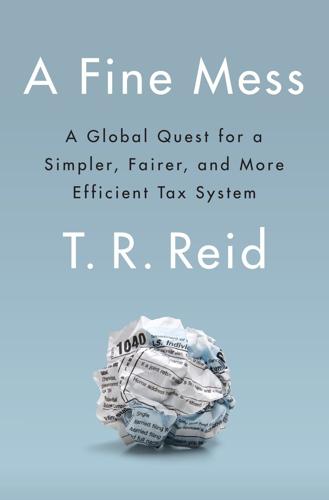
A Fine Mess
by
T. R. Reid
Published 13 Mar 2017
But the various groups never settled on what they wanted to do about it. There were few if any specific demands for action from the Occupiers. As the urban campers began to leave their muddy tent cities in the cold of winter, it was hard to identify any policy change spurred by this occupation. And yet the Occupy movement did make a lasting contribution to American political discourse. The notion stuck that the country was divided between a filthy rich 1% and everybody else. Politicians from left to right—from the Democratic senator Elizabeth Warren to the Republican presidential candidate Donald Trump—declared that the American economic system is “rigged” to benefit the rich at the expense of the rest.
…
“Any increase in wealth inequality or pre-tax income inequality in Britain or America is caused by the rich getting disproportionately richer, not by the poor getting poorer.”4 With all the talk of inequality, some of the 1% began moaning out loud about the focus on their wealth, giving birth to a curious new American species: the whining billionaire. “From the Occupy movement to the demonization of the rich . . . I perceive a rising tide of hatred of the successful one percent,” the Silicon Valley magnate Tom Perkins wrote in an open letter. “I would call attention to the parallels of fascist Nazi Germany in its war on its ‘one percent,’ namely its Jews, to the progressive war on the American one percent, namely the ‘rich.’”5 The Nazi parallel was taken up by the investment banker Stephen Schwarzman, who was unhappy with proposals to reduce inequality by ending a lucrative tax break for his industry.
…
Hollande’s supertax on what he called “the arrogant and grasping rich” drew strong support from liberal newspapers and from prominent economists, including Thomas Piketty. Looking across the Atlantic to the demonstrations by “the 99%” in America, Piketty said that “Hollande’s 75-percent tax is the right response to the Occupy movement. The irony is that the street movement is happening in the United States, while the political response is coming in France.”8 Although the supertax actually touched only a minute fraction of French taxpayers, it ran into furious resistance. The Conseil Constitutionnel, a sort of Supreme Court, ruled that a tax rate of 75% amounted to a “confiscation” of wealth, in violation of the French Constitution.
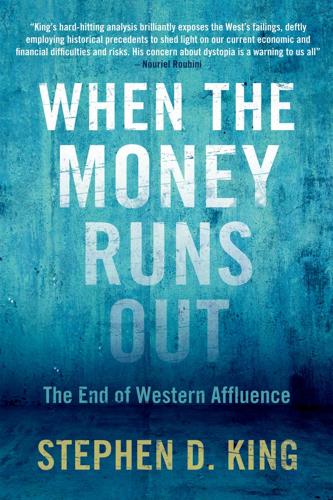
When the Money Runs Out: The End of Western Affluence
by
Stephen D. King
Published 17 Jun 2013
In effect, the already rich became the super-rich. Admittedly, others ended up better off, but the gap between rich and not-so-rich widened enormously. The spoils of US economic success went mostly to those who already were very well off.8 It's no wonder that, following the financial crisis, the Occupy movement has become so popular. For the UK, the top 1 per cent of income earners saw their share reach a trough of around 6 per cent in the mid-1970s. Thereafter, the share rose dramatically, reaching a peak of over 15 per cent in 2007, close to ratios last seen before the Second World War. On this particular metric, the UK is not so different from Argentina.
…
Does that mistrust then destroy the innovative culture that, while contributing to financial bubbles and high levels of income inequality, ultimately allows living standards to rise for the many, not the few? THE SECOND SCHISM: GROWING OLD DISGRACEFULLY Income inequality may be the issue that grabs headlines, not least thanks to the efforts of the Occupy movement, whether on Wall Street, outside the San Francisco Federal Reserve or in a campsite outside London's St Paul's Cathedral. There is, however, a second schism that, ultimately, may be more problematic because, within our democratic framework, it is so difficult to deal with. We are on the verge of an intergenerational war.
…
(i) Knickerbocker Trust Company (i) Korea (i), (ii), (iii), (iv), (v) Krugman, Paul (i), (ii), (iii) labour market (i), (ii) productivity (i) Landes, David (i) Latin American debt crisis (i) Layard, Richard (i), (ii) Lehman Brothers (i), (ii) Leveson inquiry (i) Libor (i) life expectancy (i) liquidity (i), (ii) liquidity trap (i) Liquidity Coverage Ratio (LCR) (i) Little Dorrit (Dickens) (i) living standards (i), (ii), (iii), (iv), (v) belief in ever rising (i), (ii) China (i) Indonesia (i) Japan (i) Korea (i) late 19th century (i), (ii) Malaysia (i) post-Second World War (i) US (i), (ii) loan-to-value ratios, mortgage (i) Long Depression (i) loss aversion (i) lotteries (i) Macroeconomic Imbalance Procedure (MIP) (i) macroeconomic policies (i), (ii), (iii), (iv), (v) Japan (i) macroprudential rules (i) Madoff, Bernie (i) Mahathir Mohamad (i), (ii) Malaysia (i), (ii), (iii) Malthus, Thomas (i) Manchester United (i) Marr, Wilhelm (i) Marx, Karl (i), (ii) Mary Poppins (i) May Report (i) Megawati Sukarnoputri (i) Mellon, Andrew (i), (ii) Mexico (i) Mieno, Yasushi (i) miners (i) Mississippi (i) mistrust creditors and debtors (i) cross-border (i) endemic (i) governments (i), (ii) of money (i) and political extremism (i) monetarism (i) monetary policy (i), (ii), (iii), (iv), (v), (vi) a new monetary framework (i) see also Gold Standard; interest rates; quantitative easing (QE) Monetary Policy Committee (i) monetary unions (i) see also eurozone moral hazard (i) mortgage-backed securities (i), (ii), (iii) mortgages (i), (ii) Napoleon Bonaparte (i) Napoleon III (i) National Bank of North America (i) national incomes (i), (ii), (iii), (iv) Germany (i) Japan (i) UK (i), (ii), (iii) US (i), (ii), (iii), (iv), (v) National Lottery (i) nationalism (i) the Netherlands (i) New Deal (i) ‘new economy’ of the 1990s (i) New Order (Indonesia) (i) New Zealand (i) Nicholson, Viv (i) Nigeria (i) Northern Rock (i), (ii), (iii), (iv) Norway (i) Occupy movement (i), (ii) Office for Budget Responsibility (i) Oliver Twist (Dickens) (i) Osborne, George (i) Overend, Gurney and Co. (i) painkillers (i), (ii) ‘The Panic of 1873’ (i) Paul, Ron (i) Peasants' Revolt (i) Pension Protection Fund (PPF) (i) pensioners' voting patterns (i) pensions (i), (ii), (iii), (iv), (v) per capita incomes (i), (ii), (iii), (iv) Argentina and Germany (i) China (i) France (i), (ii) Germany (i), (ii) India (i), (ii) Indonesia (i) Japan (i) Korea (i) Malaysia (i) UK (i), (ii), (iii), (iv) US (i), (ii), (iii) Perón, Eva (i) Perón, Juan (i) Pew Center report (i) Pickett, Kate (i) Pigou, Arthur (i) policies and central bankers (i) fiscal (i), (ii), (iii), (iv), (v) macroeconomic (i), (ii), (iii), (iv), (v), (vi) monetary (i), (ii), (iii), (iv), (v), (vi) new monetary framework (i) political extremism (i) politics and central bankers (i), (ii), (iii) and economics (i), (ii), (iii), (iv), (v) and the eurozone (i), (ii) and expectations (i) and income inequality (i) and lack of trust (i), (ii) and monetary regimes (i) voters (i), (ii), (iii), (iv), (v) poll tax (i) populations, ageing (i), (ii), (iii) age-related expenditure (i) generational divide (i), (ii), (iii) Germany (i) Japan (i), (ii) Portugal (i), (ii), (iii), (iv) precious metal standards (i) see also Gold Standard prices asset (i) commodity (i), (ii), (iii) rising (i) see also deflation; inflation property sector see housing markets protectionism (i) capital controls (i), (ii), (iii), (iv) tariffs (i) Protestant work ethic (i), (ii) public sector see governments public spending (i), (ii), (iii), (iv), (v) government spending (i), (ii), (iii) social spending (i) quantitative easing (QE) (i), (ii), (iii), (iv), (v) ratings agencies (i) rationing (i), (ii) recessions (i) recovery from the Asian crisis (i), (ii), (iii), (iv) UK in the 1930s (i) redistribution by stealth (i) Reform Acts (i), (ii) regulation (i), (ii) dangers of further (i), (ii) dollar transactions (i) reduction (i) the regulatory trap (i) Statute of Labourers (i) renminbi (currency) (i) Réveillon, Jean-Baptiste (i) Ricardo, David (i) Richard II (i) ringgit (currency) (i) risk and banks (i) creditors and debtors imbalance (i) and financial services (i) and rapid economic change (i) risk aversion (i) Roosevelt, Franklin Delano (i), (ii), (iii), (iv) Royal Bank of Scotland (i) Royal Navy (i) Russia (i), (ii) Rwanda (i) Samuel, Herbert (i) Saudi Arabia (i), (ii) savers and banks (i) confidence (i) and illusions (i) and income inequality (i) and interest rates (i), (ii), (iii) and the subprime boom (i) schisms between debtors and creditors (i), (ii) generational (i) income inequality (i) Schwartz, Anna (i), (ii), (iii) second-hand car market (i) Sierra Leone (i) silver standard (i) SIVs (structured investment vehicles) (i) Skidelsky, R. and E.
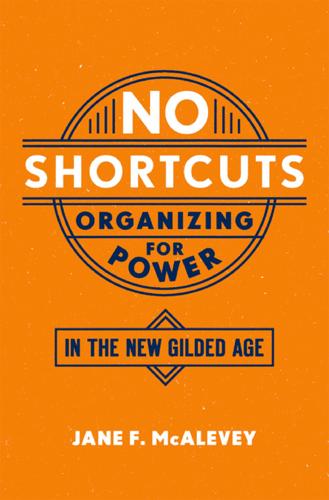
No Shortcuts: Organizing for Power in the New Gilded Age
by
Jane F. McAlevey
Published 14 Apr 2016
They, along with most community-based organizations and now, unfortunately, unions as well, label as a leader just about anyone who enthusiastically shows up at two successive meetings (even one sometimes), making the words activist and leader interchangeable. It’s an egalitarian impulse, as is the aversion to power. The Occupy movement has muddied this discussion even more with its talk of “leaderless movements” and “horizontalism.” But in any strategy for building power, all people are not the same. Given the $50 million ($330 million today) that the CCHD began granting in the early 1970s to the organizations and groups that carried on Alinsky’s work, it’s not surprising that Alinsky-based thinking has dominated the field coming out of the New Left period.
…
According to Sharkey: The old guard were Shankerites, basically unrepentant business unionists who thought that contracts were tough sometimes but we could win them by having a big hand on the table and making deals by talking tough, but we began to ask aloud, How’s that going to work with Rahm? He’s not coming to make deals, he’s coming to fight. The new leaders were changing the conversation about how a contract should be won, and they were acting like a union by involving all the members in the discussion. The Occupy movement had just surfaced on the heels of the spring 2011 uprising in Wisconsin, which was led by Midwestern teachers with many ties to Chicago. Every month, the CTU and CORE mobilized activists to attend the CPS school board meetings and to challenge the board during the period of open public comments on the agenda, which is required by law.
…
See also Smithfield Foods African American vote in, 175–76 immigration in, 149, 158 median income and wage in, 143–44, 178 Moral Mondays movement in, 143, 168, 177 union membership in, 144, 152 nursing home unionization. See also homecare workers 1199NE approach to, 71–72, 84–88, 90, 92, 93t, 95–100, 202 Local 775 approach to, 73–77, 80–84, 92, 94t, 95–100, 209 strikes and employer reaction in, 216n17 Obama, Barack, 41, 172, 176, 208, 217n27 Occupy movement, 48, 130 O’Dell, Jack, 31, 216n6 oligarchy, 25, 32, 105, 108, 112 Olney, Peter, 51, 154 organic leaders activist approach compared to, 122, 123 characteristics of, 34, 36, 80 in CIO model, 19, 34, 92–93 compared to grassroots activists, 12t identification of, 19, 34, 35–37, 47–48, 60, 97–98, 197–98, 209 leadership development and, 13, 209 mobilizing approach and, 65–66 power structure analysis for, 5–6 power theory of, 8–9 risk assessment and actions of, 36–37 in Smithfield Foods unionization fight, 160–62 social class of, 12 structure-based approach focus on, 14 structure test for, 35, 39 “organizer-leader,” 46–47, 49, 209 organizers, 46 faith-based, 14–15 leaders compared to, 209 “left,” 32–35, 38, 39, 41 struggle’s role in development of, 85, 155, 176 worker preparation by, 89–92 organizing model.
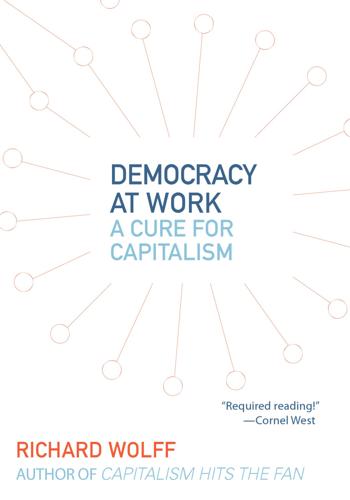
Democracy at Work: A Cure for Capitalism
by
Richard D. Wolff
Published 1 Oct 2012
These included concentration of capital into ever-larger units, rampant financialization, and imperialism (rechristened as “globalization” to mask the steady relocation of manufacturing and then service-sector jobs out of the United States), as well as wars, speculative bubbles, and massive capitalist crises. Anger and frustration accumulated on the left. With the stunningly rapid national and even international spread of the Occupy Wall Street movement in late 2011, an explicit protest movement began to crystallize. The Occupy movement broke through decades of left resignation about the possibility and potential mass support for challenging the resurgence of private capitalism. The Occupy critique focused on capitalism’s unacceptable concentration of wealth and power. It explicitly welcomed and articulated direct challenges to capitalism.
…
Graduate economics programs elevate such utopian claims into formalized models that claim to show how and why capitalism yields a general optimally efficient equilibrium that maximizes the welfare of all market participants.† The organic intellectuals of the WSDE movement can present both practical possibilities (as in section 10.1 above) and utopian visions of a socialism that is far more democratic than the standard examples from the twentieth century. By doing so, they may be able to persuade the Occupy movement and the millions it has engaged that WSDEs belong on the agenda for social change. The program for increased WSDEs needs to support and build—in universities, labor unions, social movements, and beyond—the meetings, discussions, courses, and centers that can generate and train organic intellectuals. 11.5 A New Independent Political Party As WSDEs grow and proliferate, they will acquire and develop organic intellectuals who produce and elaborate their criticisms of capitalism and their programs for social alternatives.
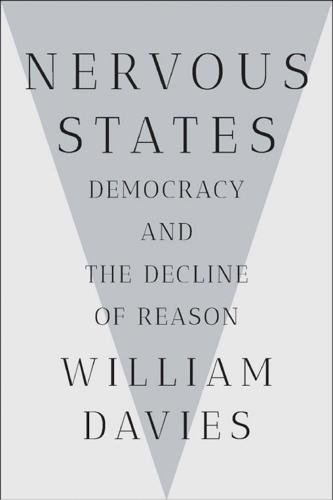
Nervous States: Democracy and the Decline of Reason
by
William Davies
Published 26 Feb 2019
There are too many voices who don’t want them to be defined in that way, including the organizers, speakers, and members of large gatherings. A neutral objective perspective is hard to come by and difficult to defend. Public rallies are as old as politics itself. But they have taken on a fresh sense of purpose since the global financial crisis of 2007–9, especially on the left. The Occupy movement that emerged in 2011 to protest against the banks made public assembly its central political purpose, and took the cold, scientific language of statistics and turned it into a mobilizing identity with the famous slogan “we are the 99%.” Left-wing leaders, such as Alexis Tsipras in Greece, Pablo Iglesias in Spain and Jeremy Corbyn in the UK, have placed renewed political emphasis on the ability to bring large numbers of people together in public spaces.
…
Kennedy International Airport, New York, x, xiii, 41 Johns Hopkins University, 176 Jones, Alexander, 131 Kant, Immanuel, 128, 130 Kemelmacher-Shlizerman, Ira, 188 Kennedy Jr., Robert, 23 Kepler, Johannes, 35 Keynes, John Maynard, 165 King Jr., Martin Luther, 21, 224 knowledge economy, 84, 85, 88, 151–2, 217 known knowns, 132, 138 Koch, Charles and David, 154, 164, 174 Korean War (1950–53), 178 Kraepelin, Emil, 139 Kurzweil, Ray, 183–4 Labour Party, 5, 6, 65, 80, 81, 221 Lagarde, Christine, 64 Le Bon, Gustave, 8–12, 13, 15, 16, 20, 24, 25, 38 Le Pen, Marine, 27, 79, 87, 92, 101–2 Leadbeater, Charles, 84 Leeds, West Yorkshire, 85 Leicester, Leicestershire, 85 Leviathan (Hobbes), 34, 39, 45 liberal elites, 20, 58, 88, 89, 161 libertarianism, 15, 151, 154, 158, 164, 173, 196, 209, 226 Liberty Fund, 158 Libya, 143 lie-detection technology, 136 life expectancy, 62, 68–71, 72, 92, 100–101, 115, 224 Lindemann, Frederick Alexander, 1st Viscount Cherwell, 138 Lloyds Bank, 29 London, England bills of mortality, 68–71, 75, 79–80, 81, 89, 127 Blitz (1940–41), 119, 143, 180 EU referendum (2016), 85 Great Fire (1666), 67 Grenfell Tower fire (2017), 10 and gross domestic product (GDP), 77, 78 housing crisis, 84 insurance sector, 59 knowledge economy, 84 life expectancy, 100 newspapers, early, 48 Oxford Circus terror scare (2017), ix–x, xiii, 41 plagues, 67–71, 75, 79–80, 81, 89, 127 Unite for Europe march (2017), 23 London School of Economics (LSE), 160 loss aversion, 145 Louis XIV, King of France, 73, 127 Louisiana, United States, 151, 221 Ludwig von Mises Institute, 154 MacLean, Nancy, 158 Macron, Emmanuel, 33 mainstream media, 197 “Make America Great Again,” 76, 145 Manchester, England, 85 Mann, Geoff, 214 maps, 182 March For Our Lives (2018), 21 March for Science (2017), 23–5, 27, 28, 210, 211 marketing, 14, 139–41, 143, 148, 169 Mars, 175, 226 Marxism, 163 Massachusetts Institute of Technology (MIT), 179 Mayer, Jane, 158 McCarthy, Joseph, 137 McGill Pain Questionnaire, 104 McKibben, William “Bill,” 213 Megaface, 188–9 memes, 15, 194 Menger, Carl, 154 mental illness, 103, 107–17, 139 mercenaries, 126 Mercer, Robert, 174, 175 Mexico, 145 Million-Man March (1995), 4 mind-reading technology, 136 see also telepathy Mirowski, Philip, 158 von Mises, Ludwig, 154–63, 166, 172, 173 Missing Migrants Project, 225 mobilization, 5, 7, 126–31 and Corbyn, 81 and elections, 81, 124 and experts, 27–8 and Internet, 15 and Le Bon’s crowd psychology, 11, 12, 16, 20 and loss, 145 and Napoleonic Wars, xv, 127–30, 141, 144 and Occupy movement, 5 and populism, 16, 22, 60 and violence, opposition to, 21 Moniteur Universel, Le, 142 monopoly on violence, 42 Mont Pelerin Society, 163, 164 moral emotion, 21 morphine, 105 multiculturalism, 84 Murs, Oliver “Olly,” ix Musk, Elon, 175, 176, 178, 183, 226 Nanchang, Jiangxi, 13 Napoleonic Wars (1803–15), 126–30 chappe system, 129, 182 and conscription, 87, 126–7, 129 and disruption, 170–71, 173, 174, 175, 226 and great leader ideal, 146–8 and intelligence, 134 and mobilization, xv, 126–30, 141, 144 and nationalism, 87, 128, 129, 144, 183, 211 and propaganda, 142 Russia, invasion of (1812), 128, 133 Spain, invasion of (1808), 128 National Aeronautics and Space Administration (NASA), 23, 175 National Audit Office (NAO), 29–30 national citizenship, 71 National Defense Research Committee, 180 National Health Service (NHS), 30, 93 National Park Service, 4 National Security Agency (NSA), 152 national sovereignty, 34, 53 nationalism, 87, 141, 210–12 and conservatism, 144 and disempowerment, 118–19 and elites, 22–3, 60–61, 145 ethnic, 15 and health, 92, 211–12, 224 and imagined communities, 87 and inequality, 78 and loss, 145 and markets, 167 and promises, 221 and resentment, 145, 197, 198 and war, 7, 20–21, 118–19, 143–6, 210–11 nativism, 61 natural philosophy, 35–6 nature, 86 see also environment Nazi Germany (1933–45), 137, 138, 154 Netherlands, 48, 56, 129 Neurable, 176 neural networking, 216 Neuralink, 176 neurasthenia, 139 Neurath, Otto, 153–4, 157, 160 neurochemistry, 108, 111, 112 neuroimaging, 176–8, 181 Nevada, United States, 194 new atheism, 209 New Orleans, Louisiana, 151 New Right, 164 New York, United States and climate change, 205 and gross domestic product (GDP), 78 housing crisis, 84 JFK Airport terror scare (2016), x, xiii, 41 knowledge economy, 84 September 11 attacks (2001), 17, 18 New York Times, 3, 27, 85 newspapers, 48, 71 Newton, Isaac, 35 Nietzsche, Friedrich, 217 Nixon, Robert, 206 no-platforming, 22, 208 Nobel Prize, 158–9 non-combatants, 43, 143, 204 non-violence, 224 North Atlantic Treaty Organization (NATO), 123, 145, 214 North Carolina, United States, 84 Northern Ireland, 43, 85 Northern League, 61 Northern Rock, 29 Norwich, Norfolk, 85 nostalgia, xiv, 143, 145, 210, 223 “Not in my name,” 27 nuclear weapons, 132, 135, 137, 180, 183, 192, 196, 204 nudge techniques, 13 Obama, Barack, 3, 24, 76, 77, 79, 158, 172 Obamacare, 172 objectivity, xiv, 13, 75, 136, 223 and crowd-based politics, 5, 7, 24–5 and death, 94 and Descartes, 37 and experts, trust in, 28, 32, 33, 51, 53, 64, 86, 89 and Hayek, 163, 164, 170 and markets, 169, 170 and photography, 8 and Scientific Revolution, 48, 49 and statistics, 72, 74, 75, 82, 88 and telepathic communication, 179 and war, 58, 125, 134, 135, 136, 146 Occupy movement, 5, 10, 24, 61 Oedipus complex, 109 Office for National Statistics, 63, 133 Ohio, United States, 116 oil crisis (1973), 166 “On Computable Numbers” (Turing), 181 On War (Clausewitz), 130 Open Society and Its Enemies, The (Popper), 171 opiates, 105, 116, 172–3 opinion polling, 65, 80–81, 191 Orbán, Viktor, 87, 146 Organisation for Economic Co-operation and Development (OECD), 72 Oxford, Oxfordshire, 85 Oxford Circus terror scare (2017), ix–x, xiii, 41 Oxford University, 56, 151 OxyContin, 105, 116 pacifism, 8, 20, 44, 151 pain, 102–19, 172–3, 224 see also chronic pain painkillers, 104, 105, 116, 172–3 Palantir, 151, 152, 175, 190 parabiosis, 149 Paris climate accord (2015), 205, 207 Paris Commune (1871), 8 Parkland attack (2018), 21 Patriot Act (2001), 137 Paul, Ronald, 154 PayPal, 149 Peace of Westphalia (1648), 34, 53 peer reviewing, 48, 139, 195, 208 penicillin, 94 Pentagon, 130, 132, 135, 136, 214, 216 pesticides, 205 Petty, William, 55–9, 67, 73, 85, 167 pharmacology, 142 Pielke Jr., Roger, 24, 25 Piketty, Thomas, 74 Pinker, Stephen, 207 plagues, 56, 67–71, 75, 79–80, 81, 89, 95 pleasure principle, 70, 109, 110, 224 pneumonia, 37, 67 Podemos, 5, 202 Poland, 20, 34, 60 Polanyi, Michael, 163 political anatomy, 57 Political Arithmetick (Petty), 58, 59 political correctness, 20, 27, 145 Popper, Karl, 163, 171 populism xvii, 211–12, 214, 220, 225–6 and central banks, 33 and crowd-based politics, 12 and democracy, 202 and elites/experts, 26, 33, 50, 152, 197, 210, 215 and empathy, 118 and health, 99, 101–2, 224–5 and immediate action, 216 in Kansas (1880s), 220 and markets, 167 and private companies, 174 and promises, 221 and resentment, 145 and statistics, 90 and unemployment, 88 and war, 148, 212 Porter, Michael, 84 post-traumatic stress disorder (PTSD), 111–14, 117, 209 post-truth, 167, 224 Potsdam Conference (1945), 138 power vs. violence, 19, 219 predictive policing, 151 presidential election, US (2016), xiv and climate change, 214 and data, 190 and education, 85 and free trade, 79 and health, 92, 99 and immigration, 79, 145 and inequality, 76–7 and Internet, 190, 197, 199 “Make America Great Again,” 76, 145 and opinion polling, 65, 80 and promises, 221 and relative deprivation, 88 and Russia, 199 and statistics, 63 and Yellen, 33 prisoners of war, 43 promises, 25, 31, 39–42, 45–7, 51, 52, 217–18, 221–2 Propaganda (Bernays), 14–15 propaganda, 8, 14–16, 83, 124–5, 141, 142, 143 property rights, 158, 167 Protestantism, 34, 35, 45, 215 Prussia (1525–1947), 8, 127–30, 133–4, 135, 142 psychiatry, 107, 139 psychoanalysis, 107, 139 Psychology of Crowds, The (Le Bon), 9–12, 13, 15, 16, 20, 24, 25 psychosomatic, 103 public-spending cuts, 100–101 punishment, 90, 92–3, 94, 95, 108 Purdue, 105 Putin, Vladimir, 145, 183 al-Qaeda, 136 quality of life, 74, 104 quantitative easing, 31–2, 222 quants, 190 radical statistics, 74 RAND Corporation, 183 RBS, 29 Reagan, Ronald, 15, 77, 154, 160, 163, 166 real-time knowledge, xvi, 112, 131, 134, 153, 154, 165–70 Reason Foundation, 158 Red Vienna, 154, 155 Rees-Mogg, Jacob, 33, 61 refugee crisis (2015–), 60, 225 relative deprivation, 88 representative democracy, 7, 12, 14–15, 25–8, 61, 202 Republican Party, 77, 79, 85, 154, 160, 163, 166, 172 research and development (R&D), 133 Research Triangle, North Carolina, 84 resentment, 5, 226 of elites/experts, 32, 52, 61, 86, 88–9, 161, 186, 201 and nationalism/populism, 5, 144–6, 148, 197, 198 and pain, 94 Ridley, Matt, 209 right to remain silent, 44 Road to Serfdom, The (Hayek), 160, 166 Robinson, Tommy, ix Roosevelt, Franklin Delano, 52 Royal Exchange, 67 Royal Society, 48–52, 56, 68, 86, 133, 137, 186, 208, 218 Rumsfeld, Donald, 132 Russian Empire (1721–1917), 128, 133 Russian Federation (1991–) and artificial intelligence, 183 Gerasimov Doctrine, 43, 123, 125, 126 and information war, 196 life expectancy, 100, 115 and national humiliation, 145 Skripal poisoning (2018), 43 and social media, 15, 18, 199 troll farms, 199 Russian Revolution (1917), 155 Russian SFSR (1917–91), 132, 133, 135–8, 155, 177, 180, 182–3 safe spaces, 22, 208 Sands, Robert “Bobby,” 43 Saxony, 90 scarlet fever, 67 Scarry, Elaine, 102–3 scenting, 135, 180 Schneier, Bruce, 185 Schumpeter, Joseph, 156–7, 162 Scientific Revolution, 48–52, 62, 66, 95, 204, 207, 218 scientist, coining of term, 133 SCL, 175 Scotland, 64, 85, 172 search engines, xvi Second World War, see World War II securitization of loans, 218 seismology, 135 self-employment, 82 self-esteem, 88–90, 175, 212 self-harm, 44, 114–15, 117, 146, 225 self-help, 107 self-interest, 26, 41, 44, 61, 114, 141, 146 Semi-Automatic Ground Environment (SAGE), 180, 182, 200 sentiment analysis, xiii, 12–13, 140, 188 September 11 attacks (2001), 17, 18 shell shock, 109–10 Shrecker, Ted, 226 Silicon Fen, Cambridgeshire, 84 Silicon Valley, California, xvi, 219 and data, 55, 151, 185–93, 199–201 and disruption, 149–51, 175, 226 and entrepreneurship, 149–51 and fascism, 203 and immortality, 149, 183–4, 224, 226 and monopolies, 174, 220 and singularity, 183–4 and telepathy, 176–8, 181, 185, 186, 221 and weaponization, 18, 219 singularity, 184 Siri, 187 Skripal poisoning (2018), 43 slavery, 59, 224 smallpox, 67 smart cities, 190, 199 smartphone addiction, 112, 186–7 snowflakes, 22, 113 social indicators, 74 social justice warriors (SJWs), 131 social media and crowd psychology, 6 emotional artificial intelligence, 12–13, 140–41 and engagement, 7 filter bubbles, 66 and propaganda, 15, 18, 81, 124 and PTSD, 113 and sentiment analysis, 12 trolls, 18, 20–22, 27, 40, 123, 146, 148, 194–8, 199, 209 weaponization of, 18, 19, 22, 194–5 socialism, 8, 20, 154–6, 158, 160 calculation debate, 154–6, 158, 160 Socialism (Mises), 160 Society for Freedom in Science, 163 South Africa, 103 sovereignty, 34, 53 Soviet Russia (1917–91), 132, 133, 135–8, 177, 180, 182–3 Spain, 5, 34, 84, 128, 202 speed of knowledge, xvi, 112, 124, 131, 134, 136, 153, 154, 165–70 Spicer, Sean, 3, 5 spy planes, 136, 152 Stalin, Joseph, 138 Stanford University, 179 statactivism, 74 statistics, 62–91, 161, 186 status, 88–90 Stoermer, Eugene, 206 strong man leaders, 16 suicide, 100, 101, 115 suicide bombing, 44, 146 superbugs, 205 surveillance, 185–93, 219 Sweden, 34 Switzerland, 164 Sydenham, Thomas, 96 Syriza, 5 tacit knowledge, 162 talking cure, 107 taxation, 158 Tea Party, 32, 50, 61, 221 technocracy, 53–8, 59, 60, 61, 78, 87, 89, 90, 211 teenage girls, 113, 114 telepathy, 39, 176–9, 181, 185, 186 terrorism, 17–18, 151, 185 Charlottesville attack (2017), 20 emergency powers, 42 JFK Airport terror scare (2016), x, xiii, 41 Oxford Circus terror scare (2017), ix–x, xiii, 41 September 11 attacks (2001), 17, 18 suicide bombing, 44, 146 vehicle-ramming attacks, 17 war on terror, 131, 136, 196 Thames Valley, England, 85 Thatcher, Margaret, 154, 160, 163, 166 Thiel, Peter, 26, 149–51, 153, 156, 174, 190 Thirty Years War (1618–48), 34, 45, 53, 126 Tokyo, Japan, x torture, 92–3 total wars, 129, 142–3 Treaty of Westphalia (1648), 34, 53 trends, xvi, 168 trigger warnings, 22, 113 trolls, 18, 20–22, 27, 40, 123, 146, 148, 194–8, 199, 209 Trump, Donald, xiv and Bannon, 21, 60–61 and climate change, 207 and education, 85 election campaign (2016), see under presidential election, US and free trade, 79 and health, 92, 99 and immigration, 145 inauguration (2017), 3–5, 6, 9, 10 and inequality, 76–7 “Make America Great Again,” 76, 145 and March for Science (2017), 23, 24, 210 and media, 27 and opinion polling, 65, 80 and Paris climate accord, 207 and promises, 221 and relative deprivation, 88 and statistics, 63 and Yellen, 33 Tsipras, Alexis, 5 Turing, Alan, 181, 183 Twitter and Corbyn’s rallies, 6 and JFK Airport terror scare (2016), x and Oxford Circus terror scare (2017), ix–x and Russia, 18 and sentiment analysis, 188 and trends, xvi and trolls, 194, 195 Uber, 49, 185, 186, 187, 188, 191, 192 UK Independence Party, 65, 92, 202 underemployment, 82 unemployment, 61, 62, 72, 78, 81–3, 87, 88, 203 United Kingdom austerity, 100 Bank of England, 32, 33, 64 Blitz (1940–41), 119, 143, 180 Brexit (2016–), see under Brexit Cameron government (2010–16), 33, 73, 100 Center for Policy Studies, 164 Civil Service, 33 climate-gate (2009), 195 Corbyn’s rallies, 5, 6 Dunkirk evacuation (1940), 119 education, 85 financial crisis (2007–9), 29–32, 100 first past the post, 13 general election (2015), 80, 81 general election (2017), 6, 65, 80, 81, 221 Grenfell Tower fire (2017), 10 gross domestic product (GDP), 77, 79 immigration, 63, 65 Irish hunger strike (1981), 43 life expectancy, 100 National Audit Office (NAO), 29 National Health Service (NHS), 30, 93 Office for National Statistics, 63, 133 and opiates, 105 Oxford Circus terror scare (2017), ix–x, xiii, 41 and pain, 102, 105 Palantir, 151 Potsdam Conference (1945), 138 quantitative easing, 31–2 Royal Society, 138 Scottish independence referendum (2014), 64 Skripal poisoning (2018), 43 Society for Freedom in Science, 163 Thatcher government (1979–90), 154, 160, 163, 166 and torture, 92 Treasury, 61, 64 unemployment, 83 Unite for Europe march (2017), 23 World War II (1939–45), 114, 119, 138, 143, 180 see also England United Nations, 72, 222 United States Bayh–Dole Act (1980), 152 Black Lives Matter, 10, 225 BP oil spill (2010), 89 Bush Jr. administration (2001–9), 77, 136 Bush Sr administration (1989–93), 77 Bureau of Labor, 74 Central Intelligence Agency (CIA), 3, 136, 151, 199 Charlottesville attack (2017), 20 Civil War (1861–5), 105, 142 and climate change, 207, 214 Clinton administration (1993–2001), 77 Cold War, see Cold War Defense Advanced Research Projects Agency (DARPA), 176, 178 Defense Intelligence Agency, 177 drug abuse, 43, 100, 105, 115–16, 131, 172–3 education, 85 Federal Bureau of Investigation (FBI), 137 Federal Reserve, 33 Fifth Amendment (1789), 44 financial crisis (2007–9), 31–2, 82, 158 first past the post, 13 Government Accountability Office, 29 gross domestic product (GDP), 75–7, 82 health, 92, 99–100, 101, 103, 105, 107, 115–16, 158, 172–3 Heritage Foundation, 164, 214 Iraq War (2003–11), 74, 132 JFK Airport terror scare (2016), x, xiii, 41 Kansas populists (1880s), 220 libertarianism, 15, 151, 154, 158, 164, 173 life expectancy, 100, 101 March For Our Lives (2018), 21 March for Science (2017), 23–5, 27, 28, 210 McCarthyism (1947–56), 137 Million-Man March (1995), 4 National Aeronautics and Space Administration (NASA), 23, 175 National Defense Research Committee, 180 National Park Service, 4 National Security Agency (NSA), 152 Obama administration (2009–17), 3, 24, 76, 77, 79, 158 Occupy Wall Street (2011), 5, 10, 61 and opiates, 105, 172–3 and pain, 103, 105, 107, 172–3 Palantir, 151, 152, 175, 190 Paris climate accord (2015), 205, 207 Parkland attack (2018), 21 Patriot Act (2001), 137 Pentagon, 130, 132, 135, 136, 214, 216 presidential election (2016), see under presidential election, US psychiatry, 107, 111 quantitative easing, 31–2 Reagan administration (1981–9), 15, 77, 154, 160, 163, 166 Rumsfeld’s “unknown unknowns” speech (2002), 132 Semi-Automatic Ground Environment (SAGE), 180, 182, 200 September 11 attacks (2001), 17, 18 Tea Party, 32, 50, 61, 221 and torture, 93 Trump administration (2017–), see under Trump, Donald unemployment, 83 Vietnam War (1955–75), 111, 130, 136, 138, 143, 205 World War I (1914–18), 137 World War II (1939–45), 137, 180 universal basic income, 221 universities, 151–2, 164, 169–70 University of Cambridge, 84, 151 University of Chicago, 160 University of East Anglia, 195 University of Oxford, 56, 151 University of Vienna, 160 University of Washington, 188 unknown knowns, 132, 133, 136, 138, 141, 192, 212 unknown unknowns, 132, 133, 138 “Use of Knowledge in Society, The” (Hayek), 161 V2 flying bomb, 137 vaccines, 23, 95 de Vauban, Sébastien Le Prestre, Marquis de Vauban, 73 vehicle-ramming attacks, 17 Vesalius, Andreas, 96 Vienna, Austria, 153–5, 159 Vietnam War (1955–75), 111, 130, 136, 138, 143, 205 violence vs. power, 19, 219 viral marketing, 12 virtual reality, 183 virtue signaling, 194 voice recognition, 187 Vote Leave, 50, 93 Wainright, Joel, 214 Wales, 77, 90 Wall Street, New York, 33, 190 War College, Berlin, 128 “War Economy” (Neurath), 153–4 war on drugs, 43, 131 war on terror, 131, 136, 196 Watts, Jay, 115 weaponization, 18–20, 22, 26, 75, 118, 123, 194, 219, 223 weapons of mass destruction, 132 wearable technology, 173 weather control, 204 “What Is An Emotion?”
…
Kennedy International Airport, New York, x, xiii, 41 Johns Hopkins University, 176 Jones, Alexander, 131 Kant, Immanuel, 128, 130 Kemelmacher-Shlizerman, Ira, 188 Kennedy Jr., Robert, 23 Kepler, Johannes, 35 Keynes, John Maynard, 165 King Jr., Martin Luther, 21, 224 knowledge economy, 84, 85, 88, 151–2, 217 known knowns, 132, 138 Koch, Charles and David, 154, 164, 174 Korean War (1950–53), 178 Kraepelin, Emil, 139 Kurzweil, Ray, 183–4 Labour Party, 5, 6, 65, 80, 81, 221 Lagarde, Christine, 64 Le Bon, Gustave, 8–12, 13, 15, 16, 20, 24, 25, 38 Le Pen, Marine, 27, 79, 87, 92, 101–2 Leadbeater, Charles, 84 Leeds, West Yorkshire, 85 Leicester, Leicestershire, 85 Leviathan (Hobbes), 34, 39, 45 liberal elites, 20, 58, 88, 89, 161 libertarianism, 15, 151, 154, 158, 164, 173, 196, 209, 226 Liberty Fund, 158 Libya, 143 lie-detection technology, 136 life expectancy, 62, 68–71, 72, 92, 100–101, 115, 224 Lindemann, Frederick Alexander, 1st Viscount Cherwell, 138 Lloyds Bank, 29 London, England bills of mortality, 68–71, 75, 79–80, 81, 89, 127 Blitz (1940–41), 119, 143, 180 EU referendum (2016), 85 Great Fire (1666), 67 Grenfell Tower fire (2017), 10 and gross domestic product (GDP), 77, 78 housing crisis, 84 insurance sector, 59 knowledge economy, 84 life expectancy, 100 newspapers, early, 48 Oxford Circus terror scare (2017), ix–x, xiii, 41 plagues, 67–71, 75, 79–80, 81, 89, 127 Unite for Europe march (2017), 23 London School of Economics (LSE), 160 loss aversion, 145 Louis XIV, King of France, 73, 127 Louisiana, United States, 151, 221 Ludwig von Mises Institute, 154 MacLean, Nancy, 158 Macron, Emmanuel, 33 mainstream media, 197 “Make America Great Again,” 76, 145 Manchester, England, 85 Mann, Geoff, 214 maps, 182 March For Our Lives (2018), 21 March for Science (2017), 23–5, 27, 28, 210, 211 marketing, 14, 139–41, 143, 148, 169 Mars, 175, 226 Marxism, 163 Massachusetts Institute of Technology (MIT), 179 Mayer, Jane, 158 McCarthy, Joseph, 137 McGill Pain Questionnaire, 104 McKibben, William “Bill,” 213 Megaface, 188–9 memes, 15, 194 Menger, Carl, 154 mental illness, 103, 107–17, 139 mercenaries, 126 Mercer, Robert, 174, 175 Mexico, 145 Million-Man March (1995), 4 mind-reading technology, 136 see also telepathy Mirowski, Philip, 158 von Mises, Ludwig, 154–63, 166, 172, 173 Missing Migrants Project, 225 mobilization, 5, 7, 126–31 and Corbyn, 81 and elections, 81, 124 and experts, 27–8 and Internet, 15 and Le Bon’s crowd psychology, 11, 12, 16, 20 and loss, 145 and Napoleonic Wars, xv, 127–30, 141, 144 and Occupy movement, 5 and populism, 16, 22, 60 and violence, opposition to, 21 Moniteur Universel, Le, 142 monopoly on violence, 42 Mont Pelerin Society, 163, 164 moral emotion, 21 morphine, 105 multiculturalism, 84 Murs, Oliver “Olly,” ix Musk, Elon, 175, 176, 178, 183, 226 Nanchang, Jiangxi, 13 Napoleonic Wars (1803–15), 126–30 chappe system, 129, 182 and conscription, 87, 126–7, 129 and disruption, 170–71, 173, 174, 175, 226 and great leader ideal, 146–8 and intelligence, 134 and mobilization, xv, 126–30, 141, 144 and nationalism, 87, 128, 129, 144, 183, 211 and propaganda, 142 Russia, invasion of (1812), 128, 133 Spain, invasion of (1808), 128 National Aeronautics and Space Administration (NASA), 23, 175 National Audit Office (NAO), 29–30 national citizenship, 71 National Defense Research Committee, 180 National Health Service (NHS), 30, 93 National Park Service, 4 National Security Agency (NSA), 152 national sovereignty, 34, 53 nationalism, 87, 141, 210–12 and conservatism, 144 and disempowerment, 118–19 and elites, 22–3, 60–61, 145 ethnic, 15 and health, 92, 211–12, 224 and imagined communities, 87 and inequality, 78 and loss, 145 and markets, 167 and promises, 221 and resentment, 145, 197, 198 and war, 7, 20–21, 118–19, 143–6, 210–11 nativism, 61 natural philosophy, 35–6 nature, 86 see also environment Nazi Germany (1933–45), 137, 138, 154 Netherlands, 48, 56, 129 Neurable, 176 neural networking, 216 Neuralink, 176 neurasthenia, 139 Neurath, Otto, 153–4, 157, 160 neurochemistry, 108, 111, 112 neuroimaging, 176–8, 181 Nevada, United States, 194 new atheism, 209 New Orleans, Louisiana, 151 New Right, 164 New York, United States and climate change, 205 and gross domestic product (GDP), 78 housing crisis, 84 JFK Airport terror scare (2016), x, xiii, 41 knowledge economy, 84 September 11 attacks (2001), 17, 18 New York Times, 3, 27, 85 newspapers, 48, 71 Newton, Isaac, 35 Nietzsche, Friedrich, 217 Nixon, Robert, 206 no-platforming, 22, 208 Nobel Prize, 158–9 non-combatants, 43, 143, 204 non-violence, 224 North Atlantic Treaty Organization (NATO), 123, 145, 214 North Carolina, United States, 84 Northern Ireland, 43, 85 Northern League, 61 Northern Rock, 29 Norwich, Norfolk, 85 nostalgia, xiv, 143, 145, 210, 223 “Not in my name,” 27 nuclear weapons, 132, 135, 137, 180, 183, 192, 196, 204 nudge techniques, 13 Obama, Barack, 3, 24, 76, 77, 79, 158, 172 Obamacare, 172 objectivity, xiv, 13, 75, 136, 223 and crowd-based politics, 5, 7, 24–5 and death, 94 and Descartes, 37 and experts, trust in, 28, 32, 33, 51, 53, 64, 86, 89 and Hayek, 163, 164, 170 and markets, 169, 170 and photography, 8 and Scientific Revolution, 48, 49 and statistics, 72, 74, 75, 82, 88 and telepathic communication, 179 and war, 58, 125, 134, 135, 136, 146 Occupy movement, 5, 10, 24, 61 Oedipus complex, 109 Office for National Statistics, 63, 133 Ohio, United States, 116 oil crisis (1973), 166 “On Computable Numbers” (Turing), 181 On War (Clausewitz), 130 Open Society and Its Enemies, The (Popper), 171 opiates, 105, 116, 172–3 opinion polling, 65, 80–81, 191 Orbán, Viktor, 87, 146 Organisation for Economic Co-operation and Development (OECD), 72 Oxford, Oxfordshire, 85 Oxford Circus terror scare (2017), ix–x, xiii, 41 Oxford University, 56, 151 OxyContin, 105, 116 pacifism, 8, 20, 44, 151 pain, 102–19, 172–3, 224 see also chronic pain painkillers, 104, 105, 116, 172–3 Palantir, 151, 152, 175, 190 parabiosis, 149 Paris climate accord (2015), 205, 207 Paris Commune (1871), 8 Parkland attack (2018), 21 Patriot Act (2001), 137 Paul, Ronald, 154 PayPal, 149 Peace of Westphalia (1648), 34, 53 peer reviewing, 48, 139, 195, 208 penicillin, 94 Pentagon, 130, 132, 135, 136, 214, 216 pesticides, 205 Petty, William, 55–9, 67, 73, 85, 167 pharmacology, 142 Pielke Jr., Roger, 24, 25 Piketty, Thomas, 74 Pinker, Stephen, 207 plagues, 56, 67–71, 75, 79–80, 81, 89, 95 pleasure principle, 70, 109, 110, 224 pneumonia, 37, 67 Podemos, 5, 202 Poland, 20, 34, 60 Polanyi, Michael, 163 political anatomy, 57 Political Arithmetick (Petty), 58, 59 political correctness, 20, 27, 145 Popper, Karl, 163, 171 populism xvii, 211–12, 214, 220, 225–6 and central banks, 33 and crowd-based politics, 12 and democracy, 202 and elites/experts, 26, 33, 50, 152, 197, 210, 215 and empathy, 118 and health, 99, 101–2, 224–5 and immediate action, 216 in Kansas (1880s), 220 and markets, 167 and private companies, 174 and promises, 221 and resentment, 145 and statistics, 90 and unemployment, 88 and war, 148, 212 Porter, Michael, 84 post-traumatic stress disorder (PTSD), 111–14, 117, 209 post-truth, 167, 224 Potsdam Conference (1945), 138 power vs. violence, 19, 219 predictive policing, 151 presidential election, US (2016), xiv and climate change, 214 and data, 190 and education, 85 and free trade, 79 and health, 92, 99 and immigration, 79, 145 and inequality, 76–7 and Internet, 190, 197, 199 “Make America Great Again,” 76, 145 and opinion polling, 65, 80 and promises, 221 and relative deprivation, 88 and Russia, 199 and statistics, 63 and Yellen, 33 prisoners of war, 43 promises, 25, 31, 39–42, 45–7, 51, 52, 217–18, 221–2 Propaganda (Bernays), 14–15 propaganda, 8, 14–16, 83, 124–5, 141, 142, 143 property rights, 158, 167 Protestantism, 34, 35, 45, 215 Prussia (1525–1947), 8, 127–30, 133–4, 135, 142 psychiatry, 107, 139 psychoanalysis, 107, 139 Psychology of Crowds, The (Le Bon), 9–12, 13, 15, 16, 20, 24, 25 psychosomatic, 103 public-spending cuts, 100–101 punishment, 90, 92–3, 94, 95, 108 Purdue, 105 Putin, Vladimir, 145, 183 al-Qaeda, 136 quality of life, 74, 104 quantitative easing, 31–2, 222 quants, 190 radical statistics, 74 RAND Corporation, 183 RBS, 29 Reagan, Ronald, 15, 77, 154, 160, 163, 166 real-time knowledge, xvi, 112, 131, 134, 153, 154, 165–70 Reason Foundation, 158 Red Vienna, 154, 155 Rees-Mogg, Jacob, 33, 61 refugee crisis (2015–), 60, 225 relative deprivation, 88 representative democracy, 7, 12, 14–15, 25–8, 61, 202 Republican Party, 77, 79, 85, 154, 160, 163, 166, 172 research and development (R&D), 133 Research Triangle, North Carolina, 84 resentment, 5, 226 of elites/experts, 32, 52, 61, 86, 88–9, 161, 186, 201 and nationalism/populism, 5, 144–6, 148, 197, 198 and pain, 94 Ridley, Matt, 209 right to remain silent, 44 Road to Serfdom, The (Hayek), 160, 166 Robinson, Tommy, ix Roosevelt, Franklin Delano, 52 Royal Exchange, 67 Royal Society, 48–52, 56, 68, 86, 133, 137, 186, 208, 218 Rumsfeld, Donald, 132 Russian Empire (1721–1917), 128, 133 Russian Federation (1991–) and artificial intelligence, 183 Gerasimov Doctrine, 43, 123, 125, 126 and information war, 196 life expectancy, 100, 115 and national humiliation, 145 Skripal poisoning (2018), 43 and social media, 15, 18, 199 troll farms, 199 Russian Revolution (1917), 155 Russian SFSR (1917–91), 132, 133, 135–8, 155, 177, 180, 182–3 safe spaces, 22, 208 Sands, Robert “Bobby,” 43 Saxony, 90 scarlet fever, 67 Scarry, Elaine, 102–3 scenting, 135, 180 Schneier, Bruce, 185 Schumpeter, Joseph, 156–7, 162 Scientific Revolution, 48–52, 62, 66, 95, 204, 207, 218 scientist, coining of term, 133 SCL, 175 Scotland, 64, 85, 172 search engines, xvi Second World War, see World War II securitization of loans, 218 seismology, 135 self-employment, 82 self-esteem, 88–90, 175, 212 self-harm, 44, 114–15, 117, 146, 225 self-help, 107 self-interest, 26, 41, 44, 61, 114, 141, 146 Semi-Automatic Ground Environment (SAGE), 180, 182, 200 sentiment analysis, xiii, 12–13, 140, 188 September 11 attacks (2001), 17, 18 shell shock, 109–10 Shrecker, Ted, 226 Silicon Fen, Cambridgeshire, 84 Silicon Valley, California, xvi, 219 and data, 55, 151, 185–93, 199–201 and disruption, 149–51, 175, 226 and entrepreneurship, 149–51 and fascism, 203 and immortality, 149, 183–4, 224, 226 and monopolies, 174, 220 and singularity, 183–4 and telepathy, 176–8, 181, 185, 186, 221 and weaponization, 18, 219 singularity, 184 Siri, 187 Skripal poisoning (2018), 43 slavery, 59, 224 smallpox, 67 smart cities, 190, 199 smartphone addiction, 112, 186–7 snowflakes, 22, 113 social indicators, 74 social justice warriors (SJWs), 131 social media and crowd psychology, 6 emotional artificial intelligence, 12–13, 140–41 and engagement, 7 filter bubbles, 66 and propaganda, 15, 18, 81, 124 and PTSD, 113 and sentiment analysis, 12 trolls, 18, 20–22, 27, 40, 123, 146, 148, 194–8, 199, 209 weaponization of, 18, 19, 22, 194–5 socialism, 8, 20, 154–6, 158, 160 calculation debate, 154–6, 158, 160 Socialism (Mises), 160 Society for Freedom in Science, 163 South Africa, 103 sovereignty, 34, 53 Soviet Russia (1917–91), 132, 133, 135–8, 177, 180, 182–3 Spain, 5, 34, 84, 128, 202 speed of knowledge, xvi, 112, 124, 131, 134, 136, 153, 154, 165–70 Spicer, Sean, 3, 5 spy planes, 136, 152 Stalin, Joseph, 138 Stanford University, 179 statactivism, 74 statistics, 62–91, 161, 186 status, 88–90 Stoermer, Eugene, 206 strong man leaders, 16 suicide, 100, 101, 115 suicide bombing, 44, 146 superbugs, 205 surveillance, 185–93, 219 Sweden, 34 Switzerland, 164 Sydenham, Thomas, 96 Syriza, 5 tacit knowledge, 162 talking cure, 107 taxation, 158 Tea Party, 32, 50, 61, 221 technocracy, 53–8, 59, 60, 61, 78, 87, 89, 90, 211 teenage girls, 113, 114 telepathy, 39, 176–9, 181, 185, 186 terrorism, 17–18, 151, 185 Charlottesville attack (2017), 20 emergency powers, 42 JFK Airport terror scare (2016), x, xiii, 41 Oxford Circus terror scare (2017), ix–x, xiii, 41 September 11 attacks (2001), 17, 18 suicide bombing, 44, 146 vehicle-ramming attacks, 17 war on terror, 131, 136, 196 Thames Valley, England, 85 Thatcher, Margaret, 154, 160, 163, 166 Thiel, Peter, 26, 149–51, 153, 156, 174, 190 Thirty Years War (1618–48), 34, 45, 53, 126 Tokyo, Japan, x torture, 92–3 total wars, 129, 142–3 Treaty of Westphalia (1648), 34, 53 trends, xvi, 168 trigger warnings, 22, 113 trolls, 18, 20–22, 27, 40, 123, 146, 148, 194–8, 199, 209 Trump, Donald, xiv and Bannon, 21, 60–61 and climate change, 207 and education, 85 election campaign (2016), see under presidential election, US and free trade, 79 and health, 92, 99 and immigration, 145 inauguration (2017), 3–5, 6, 9, 10 and inequality, 76–7 “Make America Great Again,” 76, 145 and March for Science (2017), 23, 24, 210 and media, 27 and opinion polling, 65, 80 and Paris climate accord, 207 and promises, 221 and relative deprivation, 88 and statistics, 63 and Yellen, 33 Tsipras, Alexis, 5 Turing, Alan, 181, 183 Twitter and Corbyn’s rallies, 6 and JFK Airport terror scare (2016), x and Oxford Circus terror scare (2017), ix–x and Russia, 18 and sentiment analysis, 188 and trends, xvi and trolls, 194, 195 Uber, 49, 185, 186, 187, 188, 191, 192 UK Independence Party, 65, 92, 202 underemployment, 82 unemployment, 61, 62, 72, 78, 81–3, 87, 88, 203 United Kingdom austerity, 100 Bank of England, 32, 33, 64 Blitz (1940–41), 119, 143, 180 Brexit (2016–), see under Brexit Cameron government (2010–16), 33, 73, 100 Center for Policy Studies, 164 Civil Service, 33 climate-gate (2009), 195 Corbyn’s rallies, 5, 6 Dunkirk evacuation (1940), 119 education, 85 financial crisis (2007–9), 29–32, 100 first past the post, 13 general election (2015), 80, 81 general election (2017), 6, 65, 80, 81, 221 Grenfell Tower fire (2017), 10 gross domestic product (GDP), 77, 79 immigration, 63, 65 Irish hunger strike (1981), 43 life expectancy, 100 National Audit Office (NAO), 29 National Health Service (NHS), 30, 93 Office for National Statistics, 63, 133 and opiates, 105 Oxford Circus terror scare (2017), ix–x, xiii, 41 and pain, 102, 105 Palantir, 151 Potsdam Conference (1945), 138 quantitative easing, 31–2 Royal Society, 138 Scottish independence referendum (2014), 64 Skripal poisoning (2018), 43 Society for Freedom in Science, 163 Thatcher government (1979–90), 154, 160, 163, 166 and torture, 92 Treasury, 61, 64 unemployment, 83 Unite for Europe march (2017), 23 World War II (1939–45), 114, 119, 138, 143, 180 see also England United Nations, 72, 222 United States Bayh–Dole Act (1980), 152 Black Lives Matter, 10, 225 BP oil spill (2010), 89 Bush Jr. administration (2001–9), 77, 136 Bush Sr administration (1989–93), 77 Bureau of Labor, 74 Central Intelligence Agency (CIA), 3, 136, 151, 199 Charlottesville attack (2017), 20 Civil War (1861–5), 105, 142 and climate change, 207, 214 Clinton administration (1993–2001), 77 Cold War, see Cold War Defense Advanced Research Projects Agency (DARPA), 176, 178 Defense Intelligence Agency, 177 drug abuse, 43, 100, 105, 115–16, 131, 172–3 education, 85 Federal Bureau of Investigation (FBI), 137 Federal Reserve, 33 Fifth Amendment (1789), 44 financial crisis (2007–9), 31–2, 82, 158 first past the post, 13 Government Accountability Office, 29 gross domestic product (GDP), 75–7, 82 health, 92, 99–100, 101, 103, 105, 107, 115–16, 158, 172–3 Heritage Foundation, 164, 214 Iraq War (2003–11), 74, 132 JFK Airport terror scare (2016), x, xiii, 41 Kansas populists (1880s), 220 libertarianism, 15, 151, 154, 158, 164, 173 life expectancy, 100, 101 March For Our Lives (2018), 21 March for Science (2017), 23–5, 27, 28, 210 McCarthyism (1947–56), 137 Million-Man March (1995), 4 National Aeronautics and Space Administration (NASA), 23, 175 National Defense Research Committee, 180 National Park Service, 4 National Security Agency (NSA), 152 Obama administration (2009–17), 3, 24, 76, 77, 79, 158 Occupy Wall Street (2011), 5, 10, 61 and opiates, 105, 172–3 and pain, 103, 105, 107, 172–3 Palantir, 151, 152, 175, 190 Paris climate accord (2015), 205, 207 Parkland attack (2018), 21 Patriot Act (2001), 137 Pentagon, 130, 132, 135, 136, 214, 216 presidential election (2016), see under presidential election, US psychiatry, 107, 111 quantitative easing, 31–2 Reagan administration (1981–9), 15, 77, 154, 160, 163, 166 Rumsfeld’s “unknown unknowns” speech (2002), 132 Semi-Automatic Ground Environment (SAGE), 180, 182, 200 September 11 attacks (2001), 17, 18 Tea Party, 32, 50, 61, 221 and torture, 93 Trump administration (2017–), see under Trump, Donald unemployment, 83 Vietnam War (1955–75), 111, 130, 136, 138, 143, 205 World War I (1914–18), 137 World War II (1939–45), 137, 180 universal basic income, 221 universities, 151–2, 164, 169–70 University of Cambridge, 84, 151 University of Chicago, 160 University of East Anglia, 195 University of Oxford, 56, 151 University of Vienna, 160 University of Washington, 188 unknown knowns, 132, 133, 136, 138, 141, 192, 212 unknown unknowns, 132, 133, 138 “Use of Knowledge in Society, The” (Hayek), 161 V2 flying bomb, 137 vaccines, 23, 95 de Vauban, Sébastien Le Prestre, Marquis de Vauban, 73 vehicle-ramming attacks, 17 Vesalius, Andreas, 96 Vienna, Austria, 153–5, 159 Vietnam War (1955–75), 111, 130, 136, 138, 143, 205 violence vs. power, 19, 219 viral marketing, 12 virtual reality, 183 virtue signaling, 194 voice recognition, 187 Vote Leave, 50, 93 Wainright, Joel, 214 Wales, 77, 90 Wall Street, New York, 33, 190 War College, Berlin, 128 “War Economy” (Neurath), 153–4 war on drugs, 43, 131 war on terror, 131, 136, 196 Watts, Jay, 115 weaponization, 18–20, 22, 26, 75, 118, 123, 194, 219, 223 weapons of mass destruction, 132 wearable technology, 173 weather control, 204 “What Is An Emotion?”
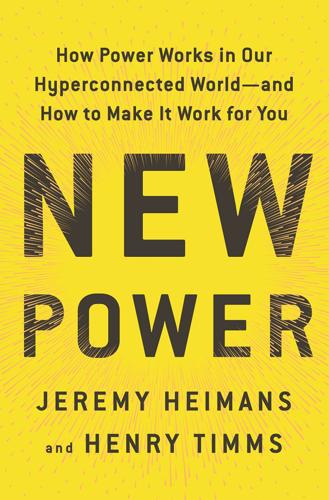
New Power: How Power Works in Our Hyperconnected World--And How to Make It Work for You
by
Jeremy Heimans
and
Henry Timms
Published 2 Apr 2018
After a significant public backlash, with black users sharing their experiences alongside the hashtag #AirbnbWhileBlack, in 2016 the company announced a series of measures to fight this kind of discrimination. But notably, they resisted calls to anonymize names and profile pictures because “profile photos are essential to Airbnb’s overall mission of building a community.” Who calls the shots? When members of the Occupy movement in Zuccotti Park made decisions, they gathered for what they called the “general assembly.” Decisions required almost complete consensus among hundreds or even thousands of people via an elaborate system of hand gestures: waggling fingers for agreement, limp wrists to the floor for disagreement, crossed fists for an outright veto on a proposal.
…
Bankers were being cast as villains in the collapse of the economy. Youth unemployment had reached a staggering 43 percent. Public squares were full of demonstrations. Out of the tension emerged the Indignados (or 15-M) movement—a mass protest of Spain’s budget cuts and a precursor to the broader Occupy movement that would rattle the world that fall. It was new, exciting, and full of possibility. As The Guardian reported at the time, “City square by city square, individual meeting by individual meeting, thousands of citizens have come together in a networked approach to politics that is fresh and engaging because it defies, above anything else, the hierarchical approach favored by vested interests.”
…
* * * — Four months before the Indignados movement broke out, two thousand miles away Wael Ghonim was launching his own assault on the establishment. He was an administrator of the “We Are All Khaled Said” Facebook page that sparked the Egyptian chapter in the Arab Spring. Yet this surge of new power, like the Indignados and Occupy movements, would dissipate. In Egypt, the unrest of the revolution presented opportunities for old power forces—more despotic than those they replaced—to grab control. As Ghonim recalled in a 2015 TED Talk, “I once said, ‘If you want to liberate a society, all you need is the Internet.’ I was wrong.” Ghonim, looking back, believes that the distributed leadership and social networks of the Egyptian protest movement actually served to weaken rather than strengthen it.
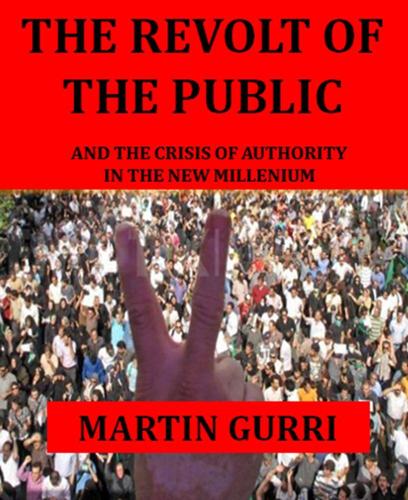
The Revolt of the Public and the Crisis of Authority in the New Millennium
by
Martin Gurri
Published 13 Nov 2018
An inconclusive debate began among the elites about the meaning of it all: whether the crowds in the street were a symptom of political health or sickness. In the next few days, an “assembly” of Madrid protesters voted to “take” the large plaza called Puerta del Sol – it became their version of Tahrir Square. The move would inspire a rash of “Occupy” movements in the US, Britain, and elsewhere. The Spanish protesters called themselves the “15-M movement,” from the date of the first demonstration, but they were better known as the indignados: the outraged. The label had been borrowed from a pamphlet by a 93-year-old French writer, Stéphane Hessel, whose message to young people was, “It’s time to get angry!”
…
Zapatero and his party never resolved this fundamental dilemma. Netanyahu, the free marketeer, responded by swallowing his principles and addressing the more concrete complaints coming out of Rothschild Boulevard. His government moved with unusual tactical speed, and may well have survived for this reason. In the US, the Occupy movement never remotely threatened the Federal government. City governments, almost all of them run by liberal Democratic politicians, struggled to assume the proper posture toward local occupations. Even New York Mayor Michael Bloomberg, a billionaire and “one percenter” if ever there was one, relied on technicalities first to tolerate then to shut down Zuccotti Park.
…
On occasion, President Obama was asked by the media for his opinion of the Occupy groups. He invariably responded with sympathy for the protesters, whose grievances he identified with the economic problems that had won him the presidency in 2008. Here is a fairly typical statement from the president: “I think it [the Occupy movement] expresses the frustrations the American people feel, that we had the biggest financial crisis since the Great Depression, huge collateral damage all throughout the country… and yet you’re still seeing some of the same folks who acted irresponsibly trying to fight efforts to crack down on the abusive practices that got us into this in the first place.”[73] To underline the message, the White House, on October 16, proclaimed that President Obama was “working for the interests of the 99 percent.”[74] It may seem puzzling for a sitting president to embrace a movement which repudiated the legitimacy of government because it was run by corporations.

The Undertow: Scenes From a Slow Civil War
by
Jeff Sharlet
Published 21 Mar 2023
“Books are no longer like commodities here,” another librarian once told me at two a.m., standing near his sleeping colleague. “We’ve had to give them away.” One word for that is surplus, but a better word—the biblical word, the rabbinical word—is abundance. Abundance not just in fact but as something that is felt is what most of the media seemed not to notice about the Occupy movement. That’s reasonable, given that the movement was born in opposition to the “1 percent,” whose minimum annual household income averaged then more than $1.5 million, an impressive sum that is nonetheless too small to convey the proportion of the nation’s wealth—nearly half—in their control. But the old frame of the haves versus the have-nots does not convey the joyousness of the experience of Liberty Park.
…
Not wonder, but its opposite: It was the crisis of insight one experiences when one has just read out, for the first time, that conglomeration of figurines which makes a word. In that moment I penetrated beyond Isaac’s alphabet into his language. I saw that he was on the side of possibility: he was both sane and inspired. His intention was not to accumulate mystery but to dispel it. Such were the intentions of the Occupy movement. It should come as no surprise that those intentions did not transmit well through CNN or the column inches of the New York Times—that, working off these sources, a skeptical student at the college where I teach said to me, “I can feel the excitement, but I don’t know if I can articulate why.”
…
What she meant was a sort of slow motion, sped up, outside of the flow of minutes and days, the temporal experience suggested by the Christian theological term kairos, ritual time, a moment that is unique and suffused with moments past. Holidays are a kind of kairos. Each is its own, but for celebrants it is also all the iterations past that they can remember, and all the holidays of the future, anticipated, imagined. So the Occupy movement was a holiday. There is nothing frivolous about that. Holidays are not escapes; at their best, they deepen our experience of things. Consider the rituals of this one: The marches, yes—many saw those on TV, and many have themselves marched for one thing or another. Then there was the police violence, for the White middle-class majority a more exotic experience.
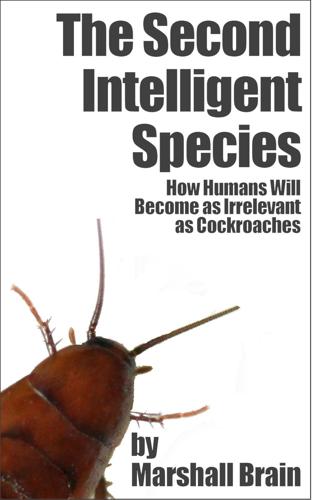
The Second Intelligent Species: How Humans Will Become as Irrelevant as Cockroaches
by
Marshall Brain
Published 6 Apr 2015
Why won't we see millions of unemployed truck drivers rioting in the streets? Sure, it might happen, and it definitely would have happened in the past, but it is unlikely today. Why? First, police forces, especially in urban areas, have become much more militarized, with military equipment and military tactics. In the Occupy movements in 2011, there were many examples of a particular tactic: when people started to organize or march in a concerted way, they were repelled with startling amounts of force. A group of people would assemble, and a platoon of police officers twice as large, wearing riot gear and carrying a variety of weapons, would appear and control them.
…
"[172] Glenn Beck said on his internet television network GBTV, "Capitalists, if you think that you can play footsies with these people, you are wrong. They will come for you and drag you into the streets and kill you. They will do it. They’re not messing around."[173][174] Newt Gingrich said, "All the Occupy movements starts with the premise that we all owe them everything. Now, that is a pretty good symptom of how much the left has collapsed as a moral system in this country and why you need to reassert something as simple as saying to them, go get a job right after you take a bath." Rick Santorum also told the protesters to get jobs. [12] “Human debris”?
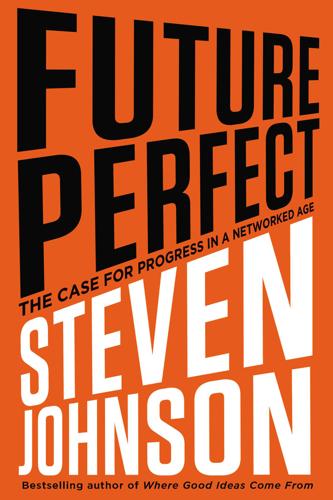
Future Perfect: The Case for Progress in a Networked Age
by
Steven Johnson
Published 14 Jul 2012
Occupy Wall Street as a meme; Twitter as a political platform; the hashtag as a way of organizing information: all three came from the edges of the network, not the center. The temptation, of course, is to draw a straight line of techno-determinism between the Seattle protests and the global wave of pro-democratic and egalitarian protest that swept across the planet in 2010 and 2011: from the Arab Spring to the Spanish Revolution to the Occupy movement. The prediction back in 2000 would have gone something like this: because the Internet abhorred hierarchies and top-down command structures, hierarchies and command structures would come under increasing attack, by organizations and movements that looked like Baran Webs and not Legrand Stars.
…
But high-frequency trades are literally impossible to execute in a world without networked computers. If the Internet has a bias toward certain kinds of outcomes, you could make a plausible case that it is more biased toward derivatives traders than it is toward the general assemblies of the Occupy movement. So what does the Internet want? It wants to lower the costs for creating and sharing information. The notion sounds unimpeachable when you phrase it like that, until you realize all the strange places that kind of affordance ultimately leads to. The Internet wants to breed algorithms that can execute thousands of financial transactions per minute, and it wants to disseminate the #occupywallstreet meme across the planet.
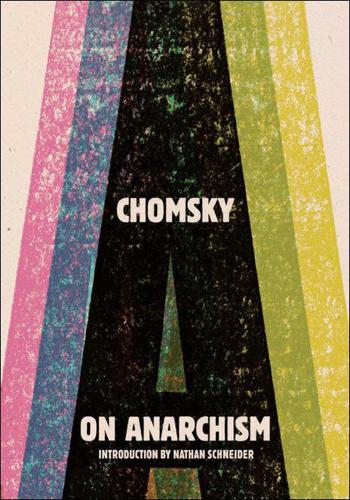
On Anarchism
by
Noam Chomsky
Published 4 Nov 2013
A new generation of radicals had experienced a moment in the limelight and a sense of possibility—and had little clear idea about what to do next. They had participated in an uprising that aspired to organize horizontally, that refused to address its demands to the proper authority, and that, like other concurrent movements around the world, prided itself on the absence of particular leaders. One couldn’t call the Occupy movement an anarchist phenomenon per se; though some of its originators were self-conscious and articulate anarchists, most who took part wouldn’t describe their objectives that way. Still, the mode of being that Occupy swept so many people into with its temporary autonomous zones in public squares nevertheless left them feeling, as it was sometimes said, anarcho-curious.
…
One had been in a community where hope was more normal than apathy or cynicism, where the word “comrade” stood for comradeship and not, as in most countries, for humbug. One had breathed the air of equality. With a few proper nouns adjusted, much the same statement could have come from a witness to the Occupy movement, though the awe would be less well deserved. Orwell saw anarchy overtake a whole city along with large swaths of countryside, rather than the square block or less of a typical Occupy encampment. That these far smaller utopias managed to convey the same sense of knock-you-down newness, of soul-conquering significance, is probably because of historical amnesia again: most people had never learned about the bigger ones in school.
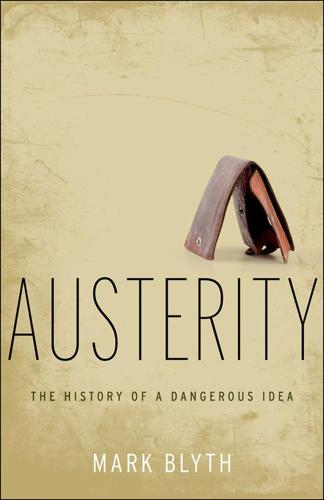
Austerity: The History of a Dangerous Idea
by
Mark Blyth
Published 24 Apr 2013
At the same time, a continent away, the turmoil in the European bond market that began in Greece in 2009 now threatened to engulf Italy and Spain, undermining the European single currency while raising doubts about the solvency of the entire European banking system. Meanwhile, London, one of the world’s great financial centers, was hit by riots that spread all over the city, and then the country. The London riots quickly blew over, but then the Occupy movement began, first in Zuccotti Park in Manhattan, and then throughout the United States and out into the wider world. Its motivations were diffuse, but one stood out: concern over the income and wealth inequalities generated over the past twenty years that access to easy credit had masked.1 Winter, and police actions, emptied the Occupy encampments, but the problems that spawned those camps remain with us.
…
If state spending is cut, the effects of doing so are, quite simply, unfairly and unsustainably distributed. Personally, I am all in favor of “everyone tightening their belts”—as long as we are all wearing the same pants. But this is far from the case these days. Indeed, it is further from the case today than at any time since the 1920s. As the Occupy movement highlighted in 2011, the wealth and income distributions of societies rocked by the financial crisis have become, over the past thirty years, extremely skewed. The bursting of the credit bubble has made this all too clear. In the United States, for example, the top 1 percent of the US income distribution now has a quarter of the country’s income.28 Or, to put it more dramatically, the richest 400 Americans own more assets than the bottom 150 million, while 46 million Americans, some 15 percent of the population, live in a family of four earning less than $22,314 per annum.29 As Robert Wade has argued: The highest-earning 1 per cent of Americans doubled their share of aggregate income (not including capital gains) from 8 per cent in 1980 to over 18 per cent in 2007.
…
P. 48, 190 Morgan Stanley, 48 Morgantheau, Henry, 188 Müller-Armack, Alfred, 137, 139 Naphtali, Fritz, 196 National Asset Management Agency (NAMA), 235 National Industrial Recovery Act (NIRA), 126 Nazis. See Germany neoliberalism, 102, 117–119, 155–157 Austria and, 118 See also liberalism, ordoliberalism Netherlands fiscal adjustment in, 173 Neumann, M. J. M., 169. New Deal, 126 new liberalism, 117–119 Niskanen, William, 155 Nixon, Richard M., 244 Noguchi, Ashai, 198 Occupy movement, 2, 13, 242 On Liberty (Mill), 116 “On Money” (Hume), 107 ordoliberalism building of, 138–139 in Europe, 141–143, 169–170 origins of, 135–137 Organisation for Economic Co-operation and Development (OECD), 161, 165, 170, 174, 208 stimulations, 210 Osaka Mainichi and editorials about the gold standard, 198 Osborne, George, 72 Pagano, Marco, 171, 176, 205, 206 “Can Severe Fiscal Contractions be Expansionary?
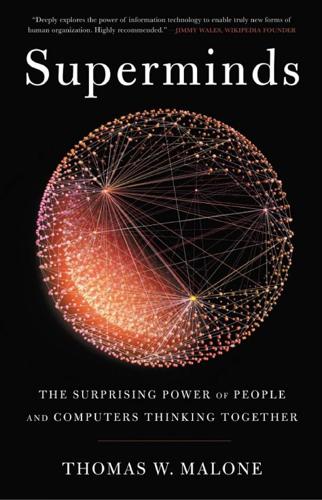
Superminds: The Surprising Power of People and Computers Thinking Together
by
Thomas W. Malone
Published 14 May 2018
On several Saturdays, I went downtown to watch what was happening in and around Zuccotti Park, where the Occupy protesters were gathered. The most interesting thing I saw was a group of people working to develop a mission statement for the Occupy movement. About 50 people were sitting on benches and other makeshift seats in the otherwise deserted lobby of a big office building. Anyone could join the meeting, and during the time I was there, I noticed Michael Moore, the well-known documentary filmmaker, watching the proceedings, too. A key part of the Occupy movement was a desire for participatory democracy, and in this spirit, the group was using a special formal process for consensus decision making.
…
When I finally left the group about two hours later, the group members still hadn’t decided whether to add the word truly, and I was very pessimistic that they would ever succeed in producing anything of interest using their extremely cumbersome consensus process. Now, years later, after searching the web and news reports from the time, I think my pessimism was warranted. The Occupy movement did produce a few consensus documents, but as far as I can tell, it never succeeded in producing a mission statement.23 I don’t think this necessarily reflects poorly on the Occupy protesters themselves. Instead I think it is a demonstration of the incredible difficulty of consensus decision making in any large face-to-face group.
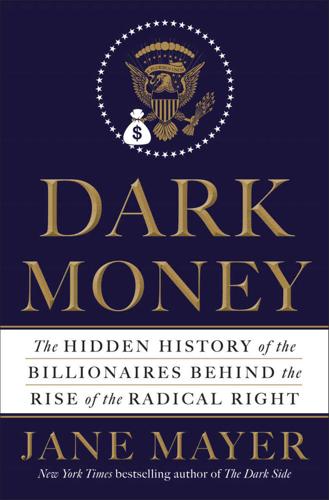
Dark Money: The Hidden History of the Billionaires Behind the Rise of the Radical Right
by
Jane Mayer
Published 19 Jan 2016
Armey had spent eighteen years in Congress and was reportedly paid $750,000 a year as a lobbyist at the law firm DLA Piper, which represented corporate clients such as the pharmaceutical giant Bristol-Myers Squibb. But billionaire backers were useful. They gave the nascent Tea Party movement organization and political direction, without which it might have frittered away like the Occupy movement. The protesters in turn gave the billionaire donors something they’d had trouble buying—the numbers needed to lend their agenda the air of legitimacy. As Armey put it, “We’d been doing this lonely work for years. From our point of view, it was like the cavalry coming.” FreedomWorks, it was later revealed, also had some hired help.
…
One of the Koch donors turned out to have invested in Solyndra and was not happy. A subsequent Koch-created ad, aired by the American Future Fund, also proved problematic. The mysterious Iowa-based front group was a favorite choice for messages from which the Koch camp preferred to distance itself. Shot as populist rage against the “1 percent” was coalescing in the Occupy movement and protesters were marching on David Koch’s apartment, the ad slyly attacked Obama for being too cozy with Wall Street. After quoting Obama calling Wall Street bankers “fat cats,” it asked, “Guess who voted for the Wall Street bailout? His White House is full of Wall Street executives,” it went on, as mug shots of Obama’s advisers flashed by.
…
But some of the finance industry executives in the donor group were not amused by the political misdirection. “Why attack Wall Street?” they asked. One donor, Peter Schiff, an attendee at the June Koch seminar, evidently didn’t receive the new, populist talking points. A Connecticut financial analyst and broker, he barged into the midst of the Occupy movement’s Manhattan encampment in October with a sign proclaiming, “I am the 1%. Let’s talk.” Subsequent video footage of him arguing in favor of eliminating the minimum wage and paying “mentally retarded” people $2 an hour made him a laughingstock on Jon Stewart’s Daily Show. The Kochs’ “Mother of All Wars” wasn’t starting out all that much better than Saddam Hussein’s
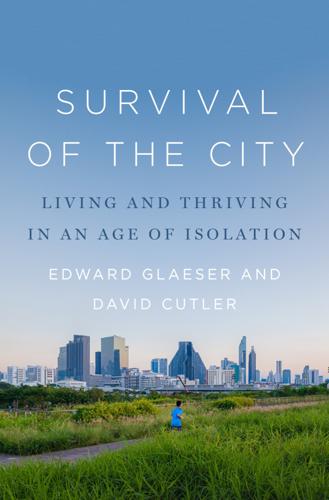
The Survival of the City: Human Flourishing in an Age of Isolation
by
Edward Glaeser
and
David Cutler
Published 14 Sep 2021
But the New York of 2021 is far more fractured than the New York of 2001. The pragmatic consensus that emerged after the city’s near bankruptcy in the 1970s has come undone. In 2011, demonstrators seized Zuccotti Park, practically in the shadow of the memorials to 9/11. The Occupy movement and the police response to it divided the city that had seemed so united. New York was hardly alone: the Occupy movement took over public squares from Boston to Berlin. In the years since, divisions have widened, creating more urban vulnerability. Two months after the COVID lockdowns had begun, a policeman killed an African American man in broad daylight in Minneapolis, by pressing his knee against the man’s neck for over eight minutes.
…
Pandemics must cease so that urban entrepreneurs can again create opportunity, even in the poorest neighborhoods. Remaking a system built for insiders into a machine for empowering outsiders will take years if not decades. Unfortunately, the threats to urban life capture our attention fleetingly then slip out of consciousness as our minds flit to other concerns. The Occupy movement of 2011 sought to expose the inequities of the Great Recession. The killing of George Floyd led millions to feel anger and shame over the long and sustained mistreatment of African American men and women by the police. Like contagious disease, persistent poverty and racial injustice must be addressed if cities are to thrive once more.
…
See also opioid epidemic Moses, Robert, 251, 271 mosquitoes, 47–52, 88, 89 Moving to Opportunity for Fair Housing, 301–2 Nabisco, 109–10, 112, 184 National Assessment of Educational Progress (NAEP), 308–9, 310 National Blue Ribbon Schools, 310–11 National Board of Health, 83–84 National Drug Intelligence Center, 121 National Governors Association (NGA), 304–5 National Health Service (UK), 139–40 National Institute for Health and Care Excellence (UK), 142–43 National Institute for Health Research (UK), 57 National Institutes of Health (NIH), 57, 327 National Security Council, 149–50 Native Americans, 46 NATO (North Atlantic Treaty Organization), 57, 58 “NATO for health” global alliance enforcement of sanitary practices, 14, 92 and lessons of COVID-19 pandemic, 321 and limitations of WHO, 27 recommendations for, 54–59, 322–26 role of, 13 Nava, Julian, 253–57, 309 Netherlands, 173, 222 New York City anti-terrorism efforts in, 287–88 appeal of, 236 architecture of, 210–11 Bloomberg’s health initiatives in, 99 board of health established in, 83 cholera outbreaks in, 71, 73, 74, 80 cigarette tax rate in, 128 COVID-19 pandemic in, 104, 195 and Cross-Bronx Highway, 251 disease-infested tenements of, 81–83 domestic violence in, 287 draining of swamps in, 84, 89 garment industry of, 199–203, 211, 217–18, 225 Gary, Indiana compared to, 102–3 health of poor in, 161–62 infrastructure investments in, 6 last-mile problem in, 80, 83 life-expectancy disparities in, 102, 103 livestock in, 90 obesity rates in, 105 police department of, 285–91, 297, 299 sanitation enforcement in, 82–86 and September 11, 2001, terrorist attacks, 6, 243 Smith’s advocacy in, 81–83, 84 “stop and frisk” policies, 288–91 strength of civil society in, 243–44 violent crime in, 282, 286 water supply of, 72–75, 77, 79–80 New York State, 307–8 New Zealand, 18–19, 156, 163–65, 198, 334, 339 No Child Left Behind, 303, 310 non-pharmaceutical interventions (NPIs), 87 Noyes Elementary School, 310–11 nursing homes, 97, 157–60 Obama, Barack, 303–4, 325, 331 Obama administration, 155–56, 195, 331 obesity and city life, 106 and COVID-19, 105–6 education differences in rates of, 98, 127–28 and fast foods, 112–15 and mass-produced foods, 109–12 place-based differences in, 103, 104 rise in rates of, 107 and sedentary lifestyles, 107 and trends in food consumption, 107–9, 115–16 occupational licensing, 200–201, 277, 334 Occupy movement of 2011, 4, 6 offices and office buildings converted into housing, 17–18, 208, 239 future of, 237–39 and growth of labor force, 223 pre-pandemic resilience of, 207 Toffler’s perspective on, 222–23 value of in-person interaction in, 208–9 Olson, Mancur, 266–67, 268, 271, 273 opioid epidemic costs to public, 99–100 deaths associated with, 97–98, 117, 120, 121, 122–24, 129 and fentanyl, 122, 123, 129 and heroin use, 118–20, 122 history of opioid use, 117–19 and HIV transmission, 117, 118–20, 126 overdoses of, 117 and OxyContin, 120–22, 123, 124, 126 and penalizing deceitful practices, 124–26 and Purdue Pharma’s marketing practices, 120–22, 125 Opportunity Atlas, 299–301 Oster, Emily, 313 Overton, Mark, 171 OxyContin, 120–22, 123, 124, 126.
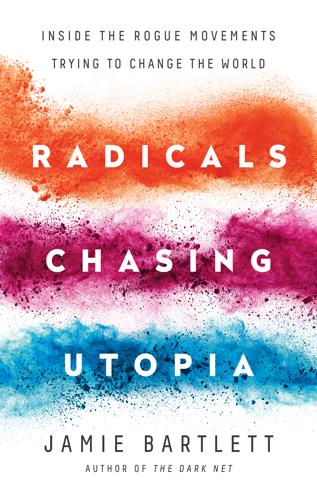
Radicals Chasing Utopia: Inside the Rogue Movements Trying to Change the World
by
Jamie Bartlett
Published 12 Jun 2017
With Facebook, Flickr and blogs, he said, there was no need for large formal organisations. (US internet penetration rates had grown from 21 per cent in 1997 to 75 per cent in 2007.) Shirky’s thesis, which Casaleggio and Beppe both read closely, was being borne out by events. Around this time the Occupy Movement in the United States started to use the Net to coordinate offline sit-ins and occupations; the Pirate Party, founded by Rick Falkvinge (whom I’d later meet, see Chapter 8), was using internet-enabled direct democracy to score stunning victories in Germany, Sweden and Iceland; and Tommy Robinson was setting up a Facebook group that would turn into the English Defence League.* Barack Obama—an outsider in 2007—was elected US president in 2008 thanks in part to his active social media following.
…
They ensure we have new ideas to draw on as our societies adapt, as they surely must, to the challenges of this century. And we need to tolerate, even encourage, a wide range of these experiments because we never know which ones we might need. Radicals also open avenues that others might one day pursue, by injecting imagination, ambition and daring into politics. The Occupy movement of the last decade played a pivotal role in starting political conversations about corporate greed, wages, inequality and austerity (some of which Donald Trump has taken up). The 1968-ers did not turn France into a situationist/anarchist/Marxist state (thankfully), but many of its cultural arguments—over sexual liberation and feminism—transformed society in myriad positive ways.
…
See coal; Ffos-y-fran coal mine, trespass on mining, bitcoin, 288 Mohammadi, Rahmaan, 138 Montevido Convention, 281 More, Max, 11–12, 45 MoVimento 5 Stelle (Five Star Movement) anthem, 153 blog, 159, 163, 178, 181–183 capital “V” in, 154 digital populism and, 156–158 European Parliament and, 168–173 Meetup groups, 159–160, 162, 166–168 MEPs from, 170–173 parliament impacted by, 166 parliamentary election of 2013 votes for, 155, 164–165 promise of, 162 start of, 158–161 in 2010 regional elections, 164 Muehl, Otto, 203, 209 Musk, Elon, 36 Muslims Busher on framing stories of, 73 immigration into Europe, 50, 52–53, 77 living in Western democracies, 130 Pegida desire for integration of, 89–90 Pegida world view and, 73–74 Prevent viewed by, 133–134, 136 Robinson and, 72–73, 82 Trump focus on, 147, 149 unfair targeting of, 137–138 Weston on, 75 See also British Muslims Muslims Women’s Network UK, 73 Mussolini, Benito, 187–188 NAD (enzyme), 32 Nanas, 255–257, 260–263 National Geographic, 15 National Survey on Drug Use and Health, 98 nation-state model, 273, 274, 300–301 Native American cultures, psychedelics in, 101 Negroponte, Nicholas, 157 neo-Nazis, 76 Netherlands, psilocybin as legal in, 112 New Age, 216 Newbury Bypass, 236 nimbyism. See activism, nimbyism and Nixon, Richard, 105 non-dualism, 110–111 Obama, Barack, 161, 263 Occupy Movement, 160–161 oil, 263–264 Dakota Access Pipeline, 265–266 open-cast coal mines, 247–248, 249 Our Posthuman Future (Fukuyama), 38 Overton, Joseph, 3 Overton window, 3, 7, 305, 309 Owen, Robert, 205, 307 Paffard, Danni, 109, 240–241, 246, 251 Pahnke, Walter, 102 Paris Climate Talk, demonstrations during, 241–242 Paris deal, 236 parliament, European bloc party system in, 169 Five Star Movement and, 155, 166, 168–173 2014 elections, 167 Parsons, Tony, 111 Pascal, Blaise, 13 Pasok (Greek democratic party), 4 Pasokification, 4 Pearce, David, 12 Peggy Sue’s (diner), 39 Pegida, 50, 53, 54 far right stance of, 51–52 Muslim integration desire of, 89–90 Muslim stereotyping by, 74–75 Pegida-Polska, 89 Pegida-UK, 60 Birmingham demonstration, 86–93 demonstrations, 88 Dresden rally of, 85, 86, 88 failure of, 90–91, 92 fascism and anti-fascism issues, 70–76 heroism and, 82–83 Islamist radicalism opposed by, 82 Islamist totalitarianism fear of, 71–72 leadership, 49, 61–66 Prague Declaration by, 50, 85 social drinking and, 83–85 supporters of, 77 Trump and, 91–93 Pelliser, Hank, 43 Periscope, 68, 84 Phillips, Jess, 81 Pistono, Federico, 182 Place of the Children, in Tamera commune, 195 Podemos party, 5, 306 polarised politics, 186 police, 87–88 border, 283, 295 at Liberland conference, 283 undercover, 238, 239 politics left-wing, 80–81 myth of, 174 polarised, 186 rules for establishing political parties, 40–41 social media and, 177–178 two major trends in, 156–157 unpredictable nature of, 7 in Western democracies, 184 See also digital politics populism, 309 digital, 156–158 Grillo and, 176–177 Mussolini and, 187–188 social media and, 180 Prague Declaration, by Pegida-UK, 50, 85 presidential campaign tour, Gyurko, 13–14, 16–17 assistant, 18, 27 bio-hacking lab stop on, 20–27 election votes and, 47 first day of, 19–20 in Las Vegas, 30–36, 41 media coverage after, 46–47 media-generation of, 41–44 opposition to, 44–45 participants in, 18 social media and, 27–28 in Washington D.C., 46 Prevent budget of, 136 CAGE and, 145–146 Channel Panel of, 140–144 critical thinking role of, 150–151 criticism and challenges of, 136–140, 144, 145 first projects of, 133–134 Islamophobia legalising and, 146 major problem for, 148–149 misperceptions about, 139 publicizing of, 134 purpose of, 136 al-Qaeda and, 132–133 radicalisation and, 136–140 reason for starting, 132–133 structure of, 139–140 suit against, 146 Syria and, 144 terrorism complexity challenge of, 134–135 2011 revamping of, 135 unintentional side effects of, 144–148 unseen successes of, 144–145 US version of, 132 psilocybin, 96, 101–102 bloodstream entered by, 118 brain functioning and, 117–118 legal use of, 112 personal experience of, 125–128 serotonin effects mimicked by, 118 2014 research on, 117–118 Weekend Experience and, 112–116 psychedelic drugs, 97 benefits of, 122 best practice guidelines, 108 celebrities and, 98 danger of, 100 effects of, 108 hallucinations, 115 Huxley, A., on experience during, 116 Leary’s experience with, 95–96 mindset and, 99–100 in Native American cultures, 101 Netherlands legality of, 112 non-dualism and, 110–111 outlawing of, 105 paranoia from, 108 personal experience of psilocybin, 125–128 psilocybin research in 2014, 117–118 resurgence in 1990s, 105–106 right conditions for profound effect from, 121 safe environment for, 124 societies and retreats, 97–98 studies on, 101–104, 106–109 as truth initiation, 124–125 unity and transcendence feeling from, 116 See also Weekend Experience, Psychedelic Society Psychedelic Society aspirations and website of, 120–121 drug laws and, 111–112 founder of, 96, 100, 109–112 quest for meaning represented by, 122 See also Weekend Experience, Psychedelic Society Psychoactive Substances Bill, 111–112 psychodrama, 194 Qadir, Hanif, 143–144 al-Qaeda, 131, 132–133, 143, 149 Qu’ran, 143, 178 Qureshi, Asim, 145 radicalisation conveyor-belt model, 137–138 definition of, 136 far-right and far-left, 149 Prevent and, 136–140 radicalism climate change and, 308–309 compromise and, 314–315 disruptive nature of, 7–8 in early nineteenth-century Europe, 307 liberal democracies and, 131, 312, 316 line between mainstream and, 5 Mill example of changing perceptions of, 1 radical decentralisation and, 289–290 scope of explored, 6 2016 and, 305–306, 311–312 types of, 306 US prevention model, 132 See also Islamist radicalism radicals age of, 307–316 danger of silencing, 311 definition and Latin root of, 4 historical examples of now-extolled, 308 importance of, 307–316 mainstream as influenced by, 312–313 optimism of, 299 paradox of, 315 as source of hope, 315–316 uncertainty and, 310 Radio Frequency Identification (RFID) chip, 23, 24–26 Raggi, Virginia, 174 Ram Dass.
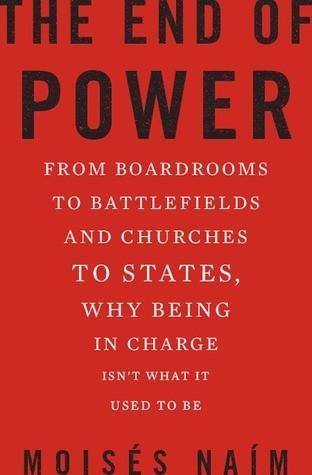
The End of Power: From Boardrooms to Battlefields and Churches to States, Why Being in Charge Isn’t What It Used to Be
by
Moises Naim
Published 5 Mar 2013
Few could have anticipated that, when a small band of Malaysian activists decided in the summer of 2011 to “occupy” Dataran square in Kuala Lumpur, thus emulating the Indignados (“the indignant ones”) camping in Madrid’s Puerta del Sol, a similar movement would spring up to occupy Wall Street and spark similar initiatives in 2,600 cities around the world. Although the concrete political changes produced by the “Occupy” movements have thus far been meager, their impact is worthy of notice. As noted 1960s chronicler Todd Gitlin observed, “The sort of sea changes in public conversation that took three years to develop during the long-gone sixties—about brutal war, unsatisfying affluence, debased politics, and the suppressed democratic promise—took three weeks in 2011.”16 In terms of speed, impact, and new forms of horizontal organization, the Occupy movements also revealed the erosion of the monopoly that traditional political parties once had over the channels through which members of society transmitted their grievances, hopes, and demands.
…
It led to the toppling of the government there and ultimately to the contagious wave of protests and demonstrations throughout the Middle East that became the Arab Spring. Millions of once passive—and repressed—citizens became political actors willing to make extreme sacrifices that included not just risking their own lives but even putting their families in danger. In contrast to the “Occupy” movements, which so far have been unable to convert political energy into political power, in the Arab Spring the political awakening did lead to important power shifts. Thus, whereas under normal circumstances political participation is for small groups of engaged activists, in other instances, such as revolutions, political activism becomes the obsessive focus of entire societies.
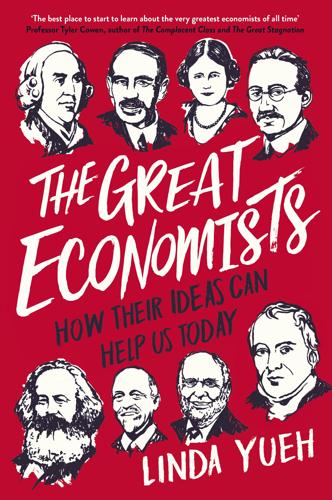
The Great Economists: How Their Ideas Can Help Us Today
by
Linda Yueh
Published 15 Mar 2018
Hayek opposed the use of monetary policy, which is when the cost and quantity of money in the economy is adjusted to influence growth, as well as Keynes’s fiscal activism, setting him at odds with much of the economics profession. Although Hayek found an intellectual home at the London School of Economics and Political Science, his theories are still not widely accepted in academia. With capitalism itself now under attack in the aftermath of the Great Recession by the Occupy movement and others, Hayek’s ideas have come back into fashion as the search continues for arguments to defend the market system against growing scepticism. Those ideas can help us discern whether there are any lessons to be learned from the financial crisis. Joan Robinson, another of the twentieth-century’s leading lights, is the sole woman among the Greats in this book, which reflects the chronic dearth of women in economics.
…
He placed himself, with his penchant for reinvention during a varied career, among the ranks of those innovators, many of whom have changed the way that we live. Schumpeter believed that the innovator-entrepreneur had a ‘will to conquer … Our type seeks out difficulties, changes in order to change, delights in ventures.’43 CHAPTER 8 Friedrich Hayek: What Can We Learn from Financial Crises? On 15 October 2011 members of the Occupy movement attempted to set up a protest camp in Paternoster Square, outside the London Stock Exchange. They were foiled, as the area was privately owned, so any protesters would have been trespassing and the police were able to seal off the entrance before any could enter. However, the group of around 3,000 people simply gathered instead outside nearby St Paul’s Cathedral, where an indefinite camp was established.
…
Occupy’s slogan, ‘We are the 99 per cent’, referred to the high proportion of global wealth accounted for by the top 1 per cent of the distribution. They reflected the widespread public anger in the aftermath of the 2008 global financial crisis. The protesters called for financial reform, a fairer distribution of income and wealth and a rejection of austerity. The Occupy movement reflected the modern version of a struggle that had been ongoing since the previous century. The twentieth century had witnessed an ideological battle between socialism and welfare state capitalism, culminating in the triumph of the latter with the fall of the Berlin Wall and the lifting of the Iron Curtain in 1989, which led to the break-up of the Soviet Union in 1991.
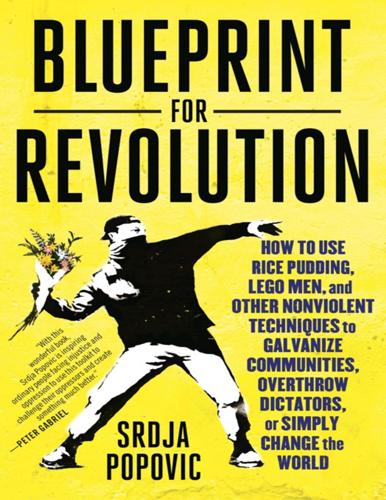
Blueprint for Revolution: How to Use Rice Pudding, Lego Men, and Other Nonviolent Techniques to Galvanize Communities, Overthrow Dictators, or Simply Change the World
by
Srdja Popovic
and
Matthew Miller
Published 3 Feb 2015
With images of the Arab Spring inspiring millions throughout the region, the Syrians thought it would be a simple enough thing to take down Assad. They thought that all they needed was a few tens of thousands of eager young people showing up in the middle of Damascus waving their sts, and their dictator would fall just as quickly as had Mubarak in Egypt and Ben Ali in Tunisia before him. But the Syrians, like the leaders of the Occupy movement in the United States, were deceived by the apparent simplicity of the revolutions in Egypt and elsewhere. What people didn’t realize was that the group of Egyptian revolutionaries trained by CANVAS in Belgrade had spent two years winning small victories, building coalitions, and branding their movement before they undertook their Tahrir Square action.
…
I might answer, “Well, my wife and I live in a ve-hundred-square-foot apartment and drive a car that’s almost a decade old. So yes, I guess I de nitely feel like the 99 percent.” I’d probably even wear a pin that said that. Why not? But if they asked me, “Do you feel like occupying Zuccotti Park?” I’d be less likely to sign up. With just a simple name change, the Occupy movement could have shown themselves welcoming of so many people: the urban, the rural, the conservative, the liberal, the short, the tall, the drivers, and the pedestrians. I would have loved to see that happen. That’s because unity, in the end, is about much more than having everybody line up behind a particular candidate or issue.
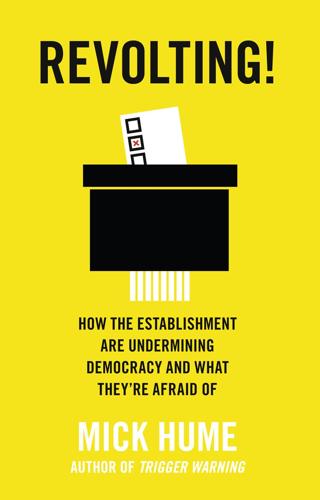
Revolting!: How the Establishment Are Undermining Democracy and What They're Afraid Of
by
Mick Hume
Published 23 Feb 2017
On the radical wing of the anti-sovereignty movement are the anti-globalisation movements which claim that, with national democracy outdated and all but useless in an interconnected world dominated by ‘neo-liberal’ market economics, new globalised protest networks are needed. According to one recent sympathetic account, the World Social Forum and Occupy movements envisage a ‘new democratic subject’: a ‘politically progressive cosmopolitan agent of the neo-liberal age, able to move fluidly among sites of power and resistance, from the national to the regional, the local and the global … The democratic subject is formed in the space between local confrontation and global techniques of organisation and consciousness-raising’, seeking ‘a broader and more fluid global community committed to democratic thought and practices’.19 Blimey.
…
The mythical democratic subject ‘formed in the space between’ the local and the global seems to be floating around the globe (or at least the World Wide Web) adrift from notions of accountability and responsibility. Thus they can assume the ‘democratic’ right to speak on behalf of the global masses, without any need to ask those people what they might think or want. The famous slogan of the Occupy movements that camped out in various Western cities asserted, ‘We are the 99 per cent!’ A bold claim from protests that did not even number anywhere near 1 per cent. These ‘new democratic subjects’ have redefined democracy to mean staging media-oriented protests ‘on behalf of’ the passive populace, whether the people want it or not.
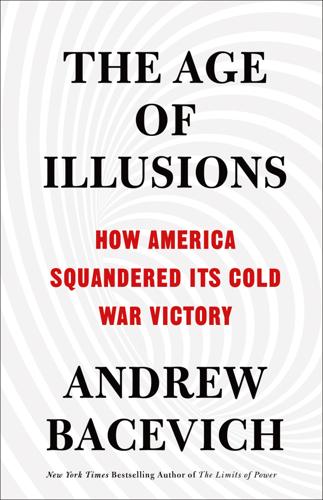
The Age of Illusions: How America Squandered Its Cold War Victory
by
Andrew J. Bacevich
Published 7 Jan 2020
During this “Great Compression,” destined to last into the 1970s, the rich got richer, but low-income and middle-income Americans also benefited appreciably, enough to reduce the gap between the well-to-do and everyone else.10 By 2016, the Great Compression had long since given way to a Great Decompression. While the rich were still getting richer, most others struggled just to keep up. Meanwhile, social cohesion had seriously eroded. None of this qualified as a secret. During the previous decade, economic discontent had inspired both the right-wing Tea Party and the left-wing Occupy Movement. Each created a stir without leaving much of a lasting mark. Until Sanders (and Trump) came along, protest was confined to the fringes, while the seemingly impervious juggernaut of globalized neoliberalism kept rolling on. Members of the political establishment saw no reason why it should not continue to do so indefinitely.
…
See globalized neoliberalism neo-populism Neptune Spear, Operation New Deal New Hampshire primary New Orleans, Battle of New Republic new world order Bill Clinton and Buchanan and Bush Jr. and Bush Sr. and globalization and Wilson and New York Daily News New York Times Niebuhr, Reinhold Nixon, Richard Nobel Peace Prize Noriega, Manuel North American Free Trade Agreement (NAFTA) North Atlantic Treaty Organization (NATO) North Korea Novak, Robert nuclear arms Iran and North Korea and Nuremberg tribunal Obama, Barack accomplishments of Afghanistan and bin Laden and economy and election of 2008 and freedom and Hillary Clinton and Iraq and Nobel Prize and primaries of 2016 and ranking of RMA and Trump and Obamacare Obergefell v. Hodges Occupational Safety and Health Administration (OSHA) Occupy Movement opioid crisis Oslo Peace Accords Paine, Thomas Pakistan Panama Paris Accord on climate change Partisan Review Pataki, George patriarchy Paul, Rand Pax Americana globalized capitalism and policing of peace dividend peace-through-dominion Pearl Harbor attacks pensions People Perot, H.
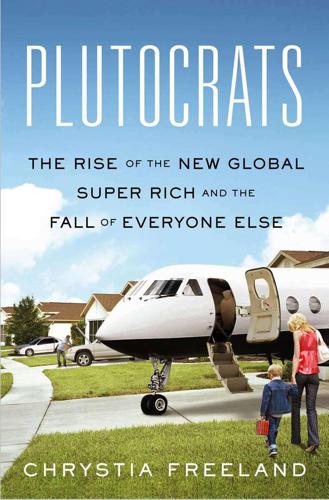
Plutocrats: The Rise of the New Global Super-Rich and the Fall of Everyone Else
by
Chrystia Freeland
Published 11 Oct 2012
But, as Autor, Dorn, and Hanson show, if you are an American worker, that “leveling out” can be painful indeed. Professor Van Reenen said these tensions have been building for years but have been laid bare by the financial crisis. That, he believes, has sparked a wave of populist protest, ranging from the Tea Party on the right to the Occupy movement. “These things have been going on for a couple of decades,” he said. “What has happened is, with the rise of the financial crisis, all of these things are coming into sharp relief.” — The twin gilded ages are speeding each other up: The industrialization of the emerging economies is creating new markets and new supply chains for the West—iPhones are produced in China, and also sold there.
…
“I recently talked to an IT engineer at a midsize financial services company downtown and he complained that his budget is being slashed every year, as he’s expected to do more with less,” Rosoff wrote on his Business Insider blog. “He’s over forty and sees no chance of getting hired at one of these sexy start-ups run by 20-somethings and funded by VCs who are younger than him. So maybe Eric Schmidt and the people he talks to really don’t discuss the Occupy movement. But that’s not a Silicon Valley thing—that’s just the circles he travels in.” The plutocratic bubble isn’t just about being insulated by the company of fellow super-elites, although that is part of it. It is also created by the way you are treated by everyone else. One financier, speaking about his friend who is one of the top five hedge fund managers in the world, said, “He’s a good man—or as good as you can be when you are surrounded by sycophants.”
…
P., 6, 119 Morgan Stanley, 63, 122 Moritz, Michael, 234 mortgage market, 146, 166–67, 169–70, 217 Mossler, Fred, 233 motion picture industry, 98, 100, 109, 127–30 Mount, Harry, 57, 67 Moyo, Dambisa, 266 Mubarak, Hosni, 144 Mullainathan, Sendhil, 138–40 Müller-Ötvös, Torsten, 46 Murphy, Kevin J., 131–34, 137 Murray, Charles, 286 music industry, 109–10, 126–27, 170–71 n-11 economies, 30 Nakamoto, Michiyo, 169 Naspers, 66 Neeleman, David, 156–57 Netherlands, 16 NetJets, 2, 66 New Class, 264–69 New Class, The (Djilas), 89–90 New Deal, 13–14, 132–34, 177 Newsweek, 127 New Yorker, 33 New York Times, 6, 7, 39, 45, 70, 125, 126, 140, 165, 174, 227, 258, 268 New York World, 7 New Zealand, 3, 159–60 Next Convergence, The: The Future of Economic Growth in a Multispeed World (Spence), 20 Nicaragua, 191 Niccolini, Julian, 36 Nigeria, 66 Nobel, Alfred, 71 Nobel Prize, 50, 69, 123, 124, 126, 175 Nolte, Nick, 127 Nucor, 158 Oakland A’s, 129 Obama, Barack, x, 18, 92–93, 242–43, 245, 247, 249, 250, 258, 269 as empiricist, 93 Observer, 74 Occupy movement, 28, 42, 80, 83, 92, 238, 244–45, 248–51 O’Connor, Caroline, 171–72 Odnoklassniki, 163 OECD, 3 O’Neill, Jim, 19, 21, 29–30, 33 one percent, xii, 135 0.1 percent vs., 79–83 99 percent vs., 80 during 1940s–1970s period, 14 in economic recovery of 2009–2010, xiii political vs. economic focus on, xiv share of national income, 3, 14 Open Society Foundations, 70, 77 Orange Revolution, 79–80, 192 Orlov, Yuri, 90 Orszag, Peter, 18 Orwell, George, 90 outsourcing, 92, 105, 106, 155, 179, 241 Oxford University, 62 Page, Larry, 55 PaineWebber, 142 Palin, Sarah, 83, 223 Pangea3, 106–7 paradigm shifts, 144, 145, 164 see also revolutions paradox of happy peasants and miserable millionaires, 31–32, 51, 82 Paulson, Hank, 213, 271–72 Paulson, John, 148, 244 Pavarotti, Luciano, 97, 98 pay for performance, 136, 138, 139 PayPal, 171, 183 Perella, Joe, 170 Peru, 82 Peterson, Holly, 1–3, 52, 80–81 Peterson, Pete, 1, 36–37, 44–45, 70, 78, 80 Petrarca, Francesco, 278 philanthro-capitalism, 71, 74–76, 264, 267 philanthropy, 70–76, 246, 264 Philippines, 25 Philippon, Thomas, 48, 53, 220–21 Pierson, Paul, 18 Piff, Paul, 239 Piketty, Thomas, 34, 43 Pimco, 65, 251 Pinchuk, Victor, 72–73, 268, 270 Pipes, Richard, 145 Pisarev, Kirill, 103 pivoting, 171–73 Platinum Study, 43 Pleading Guilty (Turow), 38 Plepler, Richard, 72 Pliny the Elder, 195 Plutarch, 195 political influence, 222–24, 247, 260–62 political revolutions, 144–46 politicians, 76–79, 269–70 Polo, Marco, 278 Poore, Peter, 76 PopTech, 67 Porter, Michael, 23 Posner, Victor, 120, 122 Potanin, Vladimir, 151 Premji, Azim, 155 Prince, Chuck, 169–70 private equity, 120–22, 128, 190, 243, 280 privatization, 193–94, 205, 207, 222, 225 in Russia, 162–64, 176, 179–81, 188, 192–93, 198, 207, 218, 223, 225 telecom, 196–98 privilege, 239 transferred to children, 282–83 Progress and Poverty (George), 38, 40–41 Progressive Era, 39, 78 Prokhorov, Mikhail, 162 Putin, Vladimir, 80, 107, 149–51, 255 Qiu Ying, 96 Quantum Fund, 142, 143, 154, 172 Queen Elisabeth Competition, 126 Quiggin, John, 48 Radia, Niira, 200 railroads, 178, 191 Raja, Andimuthu, 200 Rajan, Raghuram, 188–89, 198, 201, 228 Rajaratnam, Raj, 121–22 Rakoff, Jed, 256 Rand, Ayn, 249 Rauh, Joshua, 119–20 Ravid, Abraham, 130 Reagan, Ronald, 17, 89 Reagan Revolution, xii real estate, 222–23 Red Capitalism (Walter and Howie), 207–8 Reformed Broker, The, 84 Reich, Robert, 3 Renaissance, 96 Renaissance Capital, 65, 159 rentier elite, 42, 43, 283 rent-seeking, 188–228, 283 in China, 204–10 globalization and, 226–28 in India, 198–200, 228 value creation vs., 280–81 Reshef, Ariell, 48, 220–21 revolutions, 141–87 industrial, see industrial revolution political, 144–46 in technology, xiv, 4, 14–15, 18, 19, 21, 22, 25, 28, 30–31, 67, 100, 104, 146, 157–58, 164, 166, 184, 221, 285 Reynolds, Joshua, 94 “rich,” use of word, x Roach, Stephen, 210 robber barons, xv, 9, 19, 41, 42, 71, 118, 134, 191, 195, 237 Roosevelt on, 177–78 Robertson, Julian, 142 Robinson, James, 279–80 Rockefeller, John D., 195 Rodriguez, Alex, 108–9 Rolls-Royce, 46 Romney, Mitt, 77, 92–94, 236, 237, 286 as empiricist, 93–94 Roosevelt, Franklin Delano, 132 Commonwealth Club speech of, 176–78 New Deal of, 13–14, 132–34, 177 Roosevelt, Theodore, 39 Rose, Charlie, 72 Rosen, Sherwin, 97, 99–100, 107–12, 116, 123 Rosoff, Matt, 238 Royal Bank of Canada, 217 Royal Bank of Scotland, 217 Rubenstein, David, 121, 148–49 Rubin, Bob, 213 Russia, 3, 14, 19, 35, 56, 62, 66, 82, 96, 148, 149, 159–61, 163, 164, 178–81, 186, 206, 260 billionaire-to-GDP ratio in, 189 Bolsheviks in, 14, 93, 145, 284 privatization in, 162–64, 176, 179–81, 188, 192–93, 198, 207, 218, 223, 225 Revolution in, 152–53 science and technology in, 178–79 Russian oligarchs, 42, 46, 51–52, 61–62, 72, 92, 107, 147, 149–52, 186, 193, 196, 223, 255, 285 Ryan, Paul, 83, 190 Sabharwal, Manish, 32 Saez, Emmanuel, xiii, 34, 35–36, 43, 117, 281 Saïd, Wafic, 62 Sainath, Palagummi, 32 Saint Laurent, Yves, 114–16 Salganik, Matthew, 126 Salinas, Carlos, 196, 198 Salomon Brothers, 130 Sandberg, Sheryl, 174–75 Santorum, Rick, 246 Sawiris, Naguib, 4, 35, 77 Say’s law, 30–31 Schiff, Peter, 245 Schmidt, Eric, 56, 58, 69, 104–5, 236, 238, 280–81 Schmidt, Jacqueline, 70 Schrage, Elliot, 47 Schultz, Howard, 69 Schumer, Chuck, 211–13, 227 Schumpeter, Joseph, 32, 118 Schwarzman, Steve, 1, 36–37, 45, 46, 60, 147, 237, 243 science, 123–25 screenplays, 128 Seasteading Institute, 250 Securities and Exchange Commission (SEC), 226, 256 self-interest, 178, 215, 216, 239–40, 243–44, 249, 273–75, 286 Sennett, Mack, 98 Sense and Sensibility (Austen), 274–75 sewing machine, 113–15 Shaw, George Bernard, 39 Shelley, Percy Bysshe, 89 Shubrick, 40 Silicon Valley, 46–47, 56, 93, 163–64, 166, 171, 174, 175, 181–83, 230–31, 235, 236, 238, 283, 285 Silver Lake, 59 Simmons, Ruth, 284 Singapore, 63 Singer, Paul, 77 Singh, Manmohan, 155, 198–99 Sinha, Jayant, 189 skill-biased technical change, 91 skimming, 138 Slim, Carlos, 42, 46, 51, 195–98, 199, 218, 227, 236, 255 Smith, Adam, 67, 131, 138, 194, 229 Smith, Art, 112 Smith, Michael, 102 social mobility, 5, 82, 278–79 income inequality and, 283–84 Socialnet, 183 Somoza family, 191 Sorensen, Alan, 126 Soros, George, 53–54, 70, 73, 77, 141–45, 147, 148, 152–55, 172–73, 242 Soros, Jonathan, 153, 173 Soros, Tivadar, 152–53 South Korea, 32, 193 Soviet republics, former, 20, 77, 149, 155, 192, 193, 267 Soviet Union, 14, 17, 89–90, 144, 155, 178–80, 266 Spectator, 56–57, 59, 67 Spence, Michael, 20, 187 Spitzer, Eliot, 213 Splinter, Michael, 64 sports stars, 108–9, 129, 130, 138 Stalin, Joseph, 20, 90 Stanford Business School, 61, 147 Starr International, 101 Start-Up of You, The (Hoffman), 184–85, 187 Stengel, Rick, 72 Stephenson, Randall, 164, 185–86 Stevenson, Betsey, 32 Stewart, Rod, 36 Stiglitz, Joe, 27 Stock Market Boys, 51 Stoll, Craig, 112–13 Strauss-Kahn, Dominique, 72, 238–39 Stringer, Howard, 36 student activism, 268 Sull, Donald, 145, 147, 167–68, 171 Summers, Larry, xiii, 49, 87, 165, 174 Sunstein, Cass, 93 Sun Valley, 68 Sun Yat-sen, 39 superstars, 88–140 fees charged by, 101–3 globalization and, 91–92, 108 income of, vs. everyone else, 100–101 industrial revolution and, 95–99, 118 and talent vs. capital, 116–17, 122, 129–30 technology and, 91–92, 98–100, 108, 109 “Sustaining New York’s and the US’ Global Financial Services Leadership,” 211–15 Swank, Hilary, 110 Sweden, xii, 3, 12 Switzerland, 35, 63 Szelényi, Ivan, 89–90, 136, 266 Tahrir Square, 80 Taiwan, 35 Tawney, R.
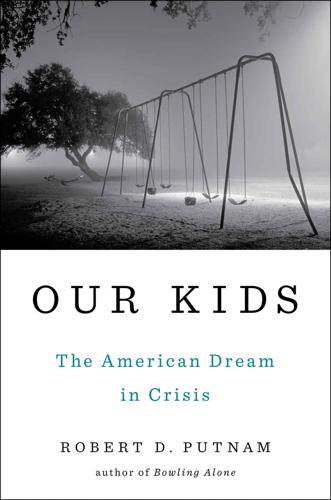
Our Kids: The American Dream in Crisis
by
Robert D. Putnam
Published 10 Mar 2015
But first, zooming out from our close focus on Port Clinton to a wide-angle view of contemporary American society, let’s examine the principle of equality and what it actually means for Americans today. Inequality in America: The Broader Picture Contemporary discussion of inequality in America often conflates two related but distinct issues: • Equality of income and wealth. The distribution of income and wealth among adults in today’s America—framed by the Occupy movement as the 1 percent versus the 99 percent—has generated much partisan debate during the past several years. Historically, however, most Americans have not been greatly worried about that sort of inequality: we tend not to begrudge others their success or care how high the socioeconomic ladder is, assuming that everyone has an equal chance to climb it, given equal merit and energy
…
Bill, 160–61 gifted-and-talented programs, 143, 153 Gilded Age, 41, 191 global warming, 228 Golden, Claudia, 34 Goodnight Moon time, 126–27, 242 government policies: on child development, 248–51 on family structure, 244–48 on parenting, 248–51 on schooling, 251–58 grandparents: financial assistance from, 6, 133 as replacement parents, 102, 132–34, 149–52 Great Depression, 34, 74, 191 Great Migration, 13 Great Recession, 22, 35, 130, 148, 223 grit, 4, 111, 176, 241 H hand-me-downs, 9–11 Hardy Boys, The (mystery series), 87 Hargittai, Eszter, 211–12 Harlem Children’s Zone (HCZ), 254 Head Start, 153, 249–50 helicopter parents, 133 high school: drop outs and, 26, 56 educational attainment and, 183–84 equivalency tests (GEDs), 93, 157, 183 graduation rates and, 137 see also Santa Ana High School; Troy High School High School movement, 160, 183, 260 Holzer, Harry, 231 Hooked on Phonics, 85, 118 housing: affordable, 251–52 crowded, 136 mixed-income, 251–52 school choice and, 164 vouchers for, 60, 247 Hout, Michael, 36 hug/spank ratio, 121 I immigrants: European, 192 Latino, 47, 84, 135 traditional marriage and, 72 unaccompanied children as, 261 upward mobility and, 141 imprisonment, parental, 76–77, 77 child poverty and, 26–27, 152 policy changes and, 247–48 incarceration policy, 76, 247–48 income: academic achievement and, 162, 165 distribution of, 22, 23, 31–32 Earned Income Tax Credit and, 247 equality, 31–34 mixed-income housing and, 251–52 social mobility and, 43–44 trends in, 35–36 income inequality, 37 in 21st century, 35, 43 low- vs. high-income schools and, 137, 138, 163, 166 Occupy movement and, 31 opportunity gap and, 227–28 poor old-timers vs. rich newcomers, 47, 251 residential segregation and, 38–39, 38 individualism, 206, 261 informal mentoring, 213 intensive parenting, 128 intergenerational mobility, 31, 82, 233 Internet: fund-raising and, 205 political uses of, 236 social networks and, 211–12, 269 Invisible Man (Ellison), 18 Isabella, 137, 139, 141–48, 160, 161, 165, 169, 182, 225 Ivy League schools: competitive pressure and, 139, 145, 147 educational attainment and, 139, 142, 198 graduation from, 148, 193 J James Joyce (Ellmann), 1 Jesse, 2, 12–16, 18–19, 30, 274 Jim Crow South, 13, 81 Job Corps training programs, 59 Joe, 54–56, 58–60, 64, 68, 73, 79, 118, 167 John, 203–204 “John Henry effect,” 113 Junior Women’s Club, 8 K Katz, Lawrence, 34, 160, 231 Kayla, 49, 54–61, 64–65, 67–68, 78, 115, 118, 125, 128, 185, 188, 216, 221, 234, 240, 256 Kefalas, Maria, 73–74 Kensington, 192–193, 198–205, 213, 216–221 Kenworthy, Lane, 246 King, Martin Luther, Jr., 241 Kirk, David, 170 Knott’s Berry Farm, 141, 162 Kornhauser, William, 239–40 L Laguna Beach, Calif., 136 Lake Erie, 3, 21 Land-Grant College movement, 160–61 language: as barrier to education, 155, 159 social class and, 29, 116 Lareau, Annette, 118 Latinos, 39, 47, 101, 267 affluent, 139–48, 158–60 in gangs, 140, 149, 152 in Orange County, Calif., 131, 135–37, 140–41, 144, 158–59, 175 poverty of, 148–58 traditional marriages and, 72, 84 see also specific individuals Lauren, 83, 92–100, 123, 185, 188, 216, 256 learning disabilities, 111, 163 Libby, 2, 9–12, 18–19, 30, 274 library cards, 97 licking and grooming, 115 life stories, research for, 263–77 see also specific accounts of individuals LinkedIn, 211 Lisa, 198–206, 216, 225, 234, 256, 257 logging industry, 46 Lola, 132, 137, 148–57, 161, 171–72, 175, 178, 182, 184, 188, 216, 234, 240, 256, 267, 269 Los Angeles, Calif., 135, 139 Lower Merion, 192–98, 205, 206, 217, 221 M McGuffey’s Reader, 33 McLanahan, Sara, 63, 65, 68, 69–70, 71 Madeline, 193–96 manners, 10, 151 March on Washington, 241 Marines, U.S., 157 Marnie, 193–98, 205, 209, 211, 229, 264, 269 marriage: class gap and, 40–41 cohabitation vs., 67–68 government policies and, 244 shotgun, 62 traditional, 7, 12, 62, 72 marriage trap, 56 Mary Sue, 221, 268 Massey, Douglas, 34, 44–45, 252 mass movements, 240 medical insurance, 201 mentors, mentoring: Big Brothers Big Sisters, 213 church leaders as, 4, 197 class gap and, 213–16, 215 formal vs. informal, 213 parents as, 98, 197 as solution to class gap, 259 sports coaches as, 14 teachers as, 141, 196 methods appendix: qualitative research, 263–74 quantitative research, 268–69 Michelle, 83, 92–100, 125, 128, 185, 188, 216, 234, 256, 267, 270 mining industry, 13, 16, 20 Mississippi, 13, 14 mobility: absolute vs. relative, 41–42 intergenerational, 31, 82–83 methods of assessing, 43–44 PCHS class of ’59 and, 4, 7 social, 31–34, 43–44 trends in, 228–29 see also upward mobility Molly, 198–206, 217, 218, 224, 233 Mommy and Me classes, 86 money: “old money” gentry and, 25 parental spending and, 125–26 politics and, 238–39 mothers: age at child’s birth and, 64, 65 employment of, 71, 71 marital status and, 66–68, 66 stay-at-home, 71 Mount Laurel, 251–52 Moving to Opportunity, 223 Moynihan, Daniel Patrick, 62 multi-partner fertility, 68–71, 78 Mullainathan, Sendhil, 130 Murnane, Richard, 250 My Brother’s Keeper, 213 “My City Was Gone” (song), 1 N natural growth, 118 neglect: educational, 155 parental, 26, 104, 111–12 Negro Family, The (Moynihan), 62 neighborhoods: affluence vs. poverty and, 217–23, 219 childhood obesity and, 222–23, 222 class segregation and, 38–39, 38 crime in, 102–3, 199–200 Moving to Opportunity and, 223 regeneration of, 259–60 safety and, 97, 140 social trust and, 219–21, 219 neighborhood development, 251, 259–60 Nelson, Timothy J., 68 New Deal, 34 New Hope Program, 260 New Orleans, La., 102–4 New York, N.Y., 81, 84, 254 1950s: affluence in, 5–6 class disparities in, 6–9 economic mobility during, 9–12 family structure and, 62–63 parental involvement in schools during, 156 Port Clinton during, 1–19, 29–30 race in and, 12–19 social norms of, 12 working class in, 3–4 Nixon, Richard, 135 noncognitive skills, 111, 176 O obesity, childhood, 222–23, 222 Occupy movement, 31 Okun, Arthur, 230–31, 234 opportunity, equality: as American Dream, 41–44 child development for, 248–58 class gap and, 31–34 Declaration of Independence and, 241 through democracy, 230, 234–41 diminishing the gap of, 260–61 through economic growth, 230–34 education and, 32, 44–45, 137, 161, 258 fairness in, 22, 241–42, 264 income distribution and, 31–32 mobility and, 31–34, 41–44 moral obligation to, 240–42 social mobility and, 41–44 statistical evidence and, 42–43 opportunity gap, 227–61 child development and, 248–51 community and, 258–60 community colleges and, 257–58 democracy and, 234–40 economic growth and, 230–34 family structure and, 244–48 income equality and, 227–28 moral obligation and, 240–42 opportunity costs and, 230 opportunity youth and, 232, 232 schools and, 251–58 solutions to, 242–44, 260–61 Orange County, Calif.: affluence in, 135, 139–143, 264–265, 270–71 demographic changes in, 135–36 Latinos in, 135–37, 139–43, 148–52, 158–59 life stories of, see Clara; Isabella; Lola; Ricardo; Sofia Santa Ana schools in, 137, 138, 153–57 Troy High School in, 137, 138, 143–48 working-class communities, 265 Orfield, Gary, 165 Origins of Totalitarianism (Arendt), 240 out-out-wedlock births, see nonmarital pregnancies Ozzie-and-Harriet families, 61, 63 P para-school funding, see fund-raising parental leave, 248 parenting, 80–134 age of mother and, 64, 65 child development and, 109–17 class gap and, 119–22, 120, 133–34 day care and, 128–30, 248–49 education of parents and, 119, 249 family dinners and, 24, 122–24, 124 government policies on, 248–51 grandparents and, 132–34 imprisonment and, 26–27, 76–77, 77, 152, 247–48 investments in children, 24, 29, 51, 86–88, 92, 123–24, 127, 143, 145, 159, 166–67, 195 nonmarital births and, 66–68, 66 permissive, 117 planned vs. unplanned births and, 64–65 school involvement and, 24, 86, 156, 167 solutions for problems in, 248–51 spending and, 125–26, 126 stress and, 130–32 time and, 26, 59, 88, 126–28, 127 verbal, 120 parenting trends, 117–34 parent-teacher association (PTA), 88, 167 parochial schools, 84, 254–55 Patty, 50–52, 92, 128, 229 pay-to-play policies, 180–81, 258 peer pressure, 160–73 People of Plenty (Potter), 33 Percheski, Christine, 69–70 permissive parenting, 117 Philadelphia, Pa.: community disparity in, 191–206 life stories of, see Amy; Eleanor; Lisa, Madeline; Marnie; Molly Philadelphia Story, The (film), 191 Philadelphia Youth Orchestra, 204 piano lessons, 86, 139, 178, 194 pluralism, 136 Police Athletic League (PAL), 199–200 politics: class gap and, 237–40 class savvy and, 11, 140 Politics of Mass Society, The (Kornhauser), 240 Port Clinton, Ohio, 1–45 in 1950s, 1–9, 29–30, 270; see also Port Clinton High School (PCHS) in 21st century, 2, 19–30, 270 affluence in, 5–6, 24–26 class gap and, 2, 6–9, 19–30, 270 factory closings in, 20 life stories of, see Cheryl; Chelsea; David; Don; Frank; Jesse; Libby opportunity gap in, 29 poverty in, 22, 23, 26–29 race in, 12–19 Port Clinton High School (PCHS), 3–6, 9–19 class of 1959, 3 Potter, David, 33 poverty: antipoverty programs and, 246–47 in Bend, Oreg., 47–48, 48 child development and, 116 costs of, 231–32 family instability and, 74 in Kensington, 198–206 in neighborhoods, 217–19, 219 in New Orleans, La., 102–3 in Port Clinton, Ohio, 22, 23 in Santa Ana, Calif., 136–38, 138, 170 schools and, 169–71, 171 pregnancy: marital, 203, 205 nonmarital, 61–62, 66–72, 66, 75, 78, 162, 204, 243, 245 teen, 2, 70, 196, 203–5, 245–46 trends in, 64–66, 73–75 premarital sex: family structure and, 62 teens and, 196, 203–5 Pretenders, The (band), 1 prison, see imprisonment, parental private schools, 52, 173, 194 Progressive Era, 244, 253, 256 property taxes, 165 prostitution, 152 public education system: Common School movement and, 160 equal opportunity and, 32 High School movement and, 160 Land-Grant College movement and, 160–61 see also class gap, education and public policy, 75–76 Q qualitative research, 263–74 constraints of, 272–84 life stories as, 263 model for, 265–66 participants and, 265–67 sample and, 270–71 Sandelson and, 265 Silva and, 270–71, 269–71 topics of, 267–68 quantitative research, 274–77 data sets and, 277 life stories as, 274 PCHS class of ’59 survey, 274–75 statistics of, 276–77 survey results, 276 R race: in 1950s, 12–19 in 21st century, 18, 91 affluence and, 84–92 class gap and, 76, 161–62 college scholarships and, 14, 17 in discrimination and segregation, 81–83 socializing and, 16–18 racism, 18–19 reading, 87, 143, 249 real estate: good schools and, 164 in Port Clinton, Ohio, 22 property taxes and, 165 white flight and, 81 Reardon, Sean, 161–62, 280 “rearview mirror” method, 44 relative mobility, 41–42 religion: child development and, 89–90 church attendance and, 224–25, 225 communities and, 197, 201–4, 223–26 see also churches research: field, 264 financial support and, 266 leadership of, 266 undergraduate, 265 see also qualitative research; quantitative research residential segregation: affordable housing and, 251–52 income and, 38–39, 38 schools and, 163–64, 251–52 residential sorting, 163 Ricardo, 137, 139, 141, 143, 146, 148, 165, 229 Riis, Jacob, 41 Rocky (film), 191–92 Rotary Club, 8 row houses, 192 Rust Belt, 30, 73, 264 S Sampson, Robert, 170, 217–18 San Diego, Calif., 135 Santa Ana, Calif.: as America’s most troubled city, 136 gangs in, 136, 170 poverty in, 136–37, 138, 170 Santa Ana High School, 59, 136–38, 148, 153–58, 163–64, 166–67, 169–70 characteristics of, 136 SATs (scholastic aptitude tests): as academic measure, 137, 142, 246 competitive pressure and, 139 preparation for, 144, 147, 197, 206 savvy gap, 213–16 Sawhill, Isabel, 79, 229, 245 Scarcity (Mullainathan and Shafir), 130 scholarships, 8 for black students, 14, 17 for Latino students, 141 school choice, 97, 164–65 school climate, 97, 153–54, 171–73 schools, schooling, 135–90 AP classes and, 39, 143, 168, 168, 173 Catholic, 84, 201, 254–55 class divergence and, 160 class gap and, 137, 138, 160–73 discipline problems in, 171 drugs and violence in, 153–54, 170 educational attainment and, 183–90, 189, 190 extracurricular activities and, 174–83, 177 finances of, 165–66 fund-raising and, 137, 147, 167 government policies and, 251–58 inequality in, 137, 138 Latino communities and, 158–60 opportunity gap and, 251–58 peer influence in, 11, 160-73, 197, 214, 236 poverty in, 169–70, 171 private schools and, 52, 173, 194 public education system and, 160–61 residential segregation and, 163–64, 251–52 solutions for problems in, 251–58 tracking and, 143, 173 see also education; specific schools Science Olympiad, 144 Schlozman, Kay, 236 Scott, Helen Hope Montgomery, 191 seat belts, sociological, 224 SeaWorld, 151 Section 8 housing assistance, 60 security, emotional, 53, 115 segregation, residential, 38–39, 38, 163–64, 251–52 “Self-Reliance” (Emerson), 261 serve-and-return interactions, 110, 123, 126 sexual norms, 73 Shafir, Eldar, 130 Shonkoff, Jack, 109–12 shotgun marriages, 62 Silva, Jennifer: field research and, 264 research methods appendix and, 263–74 Simone, 83, 84–92, 101, 110, 117–19, 122, 128, 143, 164, 166, 174, 206 single-parent families: changing family structure and, 69–71, 70, 92–101 in 1970s, 21, 62 nonmarital births and, 66–68, 66 parental imprisonment and, 76 social class: education and, 44–45 language and, 29, 116 parenting style and, 119–22, 120 see also class gap social isolation, 16–17, 28, 211 social mobility, 31–34, 43–44 social networks: affluence and, 209–10, 209 churches as, 4, 10, 89–90, 201, 206 class gap and, 207–10, 208 communities and, 207–13 Internet and, 211–12, 269 social safety net, and communities, 132, 206, 229, 246–47, 254, 258–59, 261, 264, 265 social trust, 95, 201, 219–20 socioeconomic status (SES), 189–90 Sofia, 132, 137, 148–58, 160–61, 165, 168, 171, 172, 175, 178, 182, 185, 188, 216, 234, 256, 269 soft skills, 174–76 spending, parental, 125–26, 126 Spock, Benjamin, 117 sports: class gap and, 178, 179 as equalizer, 4, 97 pay-to-play policies and, 180–81, 258 Title IX and, 175 Stephanie, 83, 92–101, 110–11, 114, 117, 120–21, 123, 128, 163, 167, 263, 267 step-parents, 63, 93 step-siblings, 57, 63 stress: competitive, 144–45 financial, 130–31, 131 parental, 130–32 toxic, 111–14 suburbs, 261, 265 summer learning gap, 86–87, 143, 162 Sun Belt, 80 Supporting Healthy Marriage program, 244 T teachers: Talent Transfer Initiative and, 253 teacher flight and, 253 teacher quality and, 137 teacher salaries and, 165–66 team sports, see sports technology, 143, 212, 257, 265 see also computers; Internet teen pregnancy, 203–5, 245–46 television, 3, 57, 89, 91, 93, 117, 119, 123, 128, 162 test scores: K-12 education and, 161–62 see also SATs Tiger Moms, 145, 159 time, child-parent relationships and, 126–28, 127 Tolstoy, Leo, 61 tough love, 88, 96, 100–101, 120, 195 toxic stress, 111–14 tracking, 143, 173 traditional families, 61–62 traditional marriage, 7, 12, 62, 72 trailer parks, 22, 57 travel, 53 Troy High School, 137, 142, 143–48, 163, 165 characteristics of, 138 competitive pressure at, 139, 144–45 curriculum of, 143–44, 213 extracurricular activities in, 145–47 fund-raising and, 147 Newsweek ranking of, 143 Tiger Moms and, 145 trust: building of, 270 social, 95, 201, 219–21 trust funds, 6 U unemployment, 20, 136 United Auto Workers (UAW), 8 upward mobility: gender and, 11 parental spending and, 125 PCHS class of ’59 and, 4, 7 race and, 18 2nd generation immigrants and, 141 trends in, 228–29 V values, 75, 240 Verba, Sidney, 236 verbal parenting, 120 veterans, 160–61 violence: in New Orleans, La., 102–3 in Santa Ana, Calif., 136 in schools, 153–54, 170 in South, 13 vocabulary gap, 92 vocational education, 255–56 volunteer work, 157, 259 voting, 235–37, 235 W Waldfogel, Jane, 122, 248 Waltham, Mass., 270, 272 War on Drugs, 76 Washbrook, Elizabeth, 122 weak ties, 198, 208–10, 208, 209 wealth gap, 31, 37 welfare system: costs of, 232 family structure and, 75 medical insurance and, 202 reforms of, 244 Wendy, 24–25, 29, 92, 143, 266 Weston, Mass., 270 white flight, 81 Y youth: church programs for, 202–4 Facebook and, 205, 269 recreation, 199 voting and, 235–37, 235 YouthBuild network, 256 Simon & Schuster 1230 Avenue of the Americas New York, NY 10020 www.SimonandSchuster.com Copyright © 2015 by Robert D.
…
Bill, 160–61 gifted-and-talented programs, 143, 153 Gilded Age, 41, 191 global warming, 228 Golden, Claudia, 34 Goodnight Moon time, 126–27, 242 government policies: on child development, 248–51 on family structure, 244–48 on parenting, 248–51 on schooling, 251–58 grandparents: financial assistance from, 6, 133 as replacement parents, 102, 132–34, 149–52 Great Depression, 34, 74, 191 Great Migration, 13 Great Recession, 22, 35, 130, 148, 223 grit, 4, 111, 176, 241 H hand-me-downs, 9–11 Hardy Boys, The (mystery series), 87 Hargittai, Eszter, 211–12 Harlem Children’s Zone (HCZ), 254 Head Start, 153, 249–50 helicopter parents, 133 high school: drop outs and, 26, 56 educational attainment and, 183–84 equivalency tests (GEDs), 93, 157, 183 graduation rates and, 137 see also Santa Ana High School; Troy High School High School movement, 160, 183, 260 Holzer, Harry, 231 Hooked on Phonics, 85, 118 housing: affordable, 251–52 crowded, 136 mixed-income, 251–52 school choice and, 164 vouchers for, 60, 247 Hout, Michael, 36 hug/spank ratio, 121 I immigrants: European, 192 Latino, 47, 84, 135 traditional marriage and, 72 unaccompanied children as, 261 upward mobility and, 141 imprisonment, parental, 76–77, 77 child poverty and, 26–27, 152 policy changes and, 247–48 incarceration policy, 76, 247–48 income: academic achievement and, 162, 165 distribution of, 22, 23, 31–32 Earned Income Tax Credit and, 247 equality, 31–34 mixed-income housing and, 251–52 social mobility and, 43–44 trends in, 35–36 income inequality, 37 in 21st century, 35, 43 low- vs. high-income schools and, 137, 138, 163, 166 Occupy movement and, 31 opportunity gap and, 227–28 poor old-timers vs. rich newcomers, 47, 251 residential segregation and, 38–39, 38 individualism, 206, 261 informal mentoring, 213 intensive parenting, 128 intergenerational mobility, 31, 82, 233 Internet: fund-raising and, 205 political uses of, 236 social networks and, 211–12, 269 Invisible Man (Ellison), 18 Isabella, 137, 139, 141–48, 160, 161, 165, 169, 182, 225 Ivy League schools: competitive pressure and, 139, 145, 147 educational attainment and, 139, 142, 198 graduation from, 148, 193 J James Joyce (Ellmann), 1 Jesse, 2, 12–16, 18–19, 30, 274 Jim Crow South, 13, 81 Job Corps training programs, 59 Joe, 54–56, 58–60, 64, 68, 73, 79, 118, 167 John, 203–204 “John Henry effect,” 113 Junior Women’s Club, 8 K Katz, Lawrence, 34, 160, 231 Kayla, 49, 54–61, 64–65, 67–68, 78, 115, 118, 125, 128, 185, 188, 216, 221, 234, 240, 256 Kefalas, Maria, 73–74 Kensington, 192–193, 198–205, 213, 216–221 Kenworthy, Lane, 246 King, Martin Luther, Jr., 241 Kirk, David, 170 Knott’s Berry Farm, 141, 162 Kornhauser, William, 239–40 L Laguna Beach, Calif., 136 Lake Erie, 3, 21 Land-Grant College movement, 160–61 language: as barrier to education, 155, 159 social class and, 29, 116 Lareau, Annette, 118 Latinos, 39, 47, 101, 267 affluent, 139–48, 158–60 in gangs, 140, 149, 152 in Orange County, Calif., 131, 135–37, 140–41, 144, 158–59, 175 poverty of, 148–58 traditional marriages and, 72, 84 see also specific individuals Lauren, 83, 92–100, 123, 185, 188, 216, 256 learning disabilities, 111, 163 Libby, 2, 9–12, 18–19, 30, 274 library cards, 97 licking and grooming, 115 life stories, research for, 263–77 see also specific accounts of individuals LinkedIn, 211 Lisa, 198–206, 216, 225, 234, 256, 257 logging industry, 46 Lola, 132, 137, 148–57, 161, 171–72, 175, 178, 182, 184, 188, 216, 234, 240, 256, 267, 269 Los Angeles, Calif., 135, 139 Lower Merion, 192–98, 205, 206, 217, 221 M McGuffey’s Reader, 33 McLanahan, Sara, 63, 65, 68, 69–70, 71 Madeline, 193–96 manners, 10, 151 March on Washington, 241 Marines, U.S., 157 Marnie, 193–98, 205, 209, 211, 229, 264, 269 marriage: class gap and, 40–41 cohabitation vs., 67–68 government policies and, 244 shotgun, 62 traditional, 7, 12, 62, 72 marriage trap, 56 Mary Sue, 221, 268 Massey, Douglas, 34, 44–45, 252 mass movements, 240 medical insurance, 201 mentors, mentoring: Big Brothers Big Sisters, 213 church leaders as, 4, 197 class gap and, 213–16, 215 formal vs. informal, 213 parents as, 98, 197 as solution to class gap, 259 sports coaches as, 14 teachers as, 141, 196 methods appendix: qualitative research, 263–74 quantitative research, 268–69 Michelle, 83, 92–100, 125, 128, 185, 188, 216, 234, 256, 267, 270 mining industry, 13, 16, 20 Mississippi, 13, 14 mobility: absolute vs. relative, 41–42 intergenerational, 31, 82–83 methods of assessing, 43–44 PCHS class of ’59 and, 4, 7 social, 31–34, 43–44 trends in, 228–29 see also upward mobility Molly, 198–206, 217, 218, 224, 233 Mommy and Me classes, 86 money: “old money” gentry and, 25 parental spending and, 125–26 politics and, 238–39 mothers: age at child’s birth and, 64, 65 employment of, 71, 71 marital status and, 66–68, 66 stay-at-home, 71 Mount Laurel, 251–52 Moving to Opportunity, 223 Moynihan, Daniel Patrick, 62 multi-partner fertility, 68–71, 78 Mullainathan, Sendhil, 130 Murnane, Richard, 250 My Brother’s Keeper, 213 “My City Was Gone” (song), 1 N natural growth, 118 neglect: educational, 155 parental, 26, 104, 111–12 Negro Family, The (Moynihan), 62 neighborhoods: affluence vs. poverty and, 217–23, 219 childhood obesity and, 222–23, 222 class segregation and, 38–39, 38 crime in, 102–3, 199–200 Moving to Opportunity and, 223 regeneration of, 259–60 safety and, 97, 140 social trust and, 219–21, 219 neighborhood development, 251, 259–60 Nelson, Timothy J., 68 New Deal, 34 New Hope Program, 260 New Orleans, La., 102–4 New York, N.Y., 81, 84, 254 1950s: affluence in, 5–6 class disparities in, 6–9 economic mobility during, 9–12 family structure and, 62–63 parental involvement in schools during, 156 Port Clinton during, 1–19, 29–30 race in and, 12–19 social norms of, 12 working class in, 3–4 Nixon, Richard, 135 noncognitive skills, 111, 176 O obesity, childhood, 222–23, 222 Occupy movement, 31 Okun, Arthur, 230–31, 234 opportunity, equality: as American Dream, 41–44 child development for, 248–58 class gap and, 31–34 Declaration of Independence and, 241 through democracy, 230, 234–41 diminishing the gap of, 260–61 through economic growth, 230–34 education and, 32, 44–45, 137, 161, 258 fairness in, 22, 241–42, 264 income distribution and, 31–32 mobility and, 31–34, 41–44 moral obligation to, 240–42 social mobility and, 41–44 statistical evidence and, 42–43 opportunity gap, 227–61 child development and, 248–51 community and, 258–60 community colleges and, 257–58 democracy and, 234–40 economic growth and, 230–34 family structure and, 244–48 income equality and, 227–28 moral obligation and, 240–42 opportunity costs and, 230 opportunity youth and, 232, 232 schools and, 251–58 solutions to, 242–44, 260–61 Orange County, Calif.: affluence in, 135, 139–143, 264–265, 270–71 demographic changes in, 135–36 Latinos in, 135–37, 139–43, 148–52, 158–59 life stories of, see Clara; Isabella; Lola; Ricardo; Sofia Santa Ana schools in, 137, 138, 153–57 Troy High School in, 137, 138, 143–48 working-class communities, 265 Orfield, Gary, 165 Origins of Totalitarianism (Arendt), 240 out-out-wedlock births, see nonmarital pregnancies Ozzie-and-Harriet families, 61, 63 P para-school funding, see fund-raising parental leave, 248 parenting, 80–134 age of mother and, 64, 65 child development and, 109–17 class gap and, 119–22, 120, 133–34 day care and, 128–30, 248–49 education of parents and, 119, 249 family dinners and, 24, 122–24, 124 government policies on, 248–51 grandparents and, 132–34 imprisonment and, 26–27, 76–77, 77, 152, 247–48 investments in children, 24, 29, 51, 86–88, 92, 123–24, 127, 143, 145, 159, 166–67, 195 nonmarital births and, 66–68, 66 permissive, 117 planned vs. unplanned births and, 64–65 school involvement and, 24, 86, 156, 167 solutions for problems in, 248–51 spending and, 125–26, 126 stress and, 130–32 time and, 26, 59, 88, 126–28, 127 verbal, 120 parenting trends, 117–34 parent-teacher association (PTA), 88, 167 parochial schools, 84, 254–55 Patty, 50–52, 92, 128, 229 pay-to-play policies, 180–81, 258 peer pressure, 160–73 People of Plenty (Potter), 33 Percheski, Christine, 69–70 permissive parenting, 117 Philadelphia, Pa.: community disparity in, 191–206 life stories of, see Amy; Eleanor; Lisa, Madeline; Marnie; Molly Philadelphia Story, The (film), 191 Philadelphia Youth Orchestra, 204 piano lessons, 86, 139, 178, 194 pluralism, 136 Police Athletic League (PAL), 199–200 politics: class gap and, 237–40 class savvy and, 11, 140 Politics of Mass Society, The (Kornhauser), 240 Port Clinton, Ohio, 1–45 in 1950s, 1–9, 29–30, 270; see also Port Clinton High School (PCHS) in 21st century, 2, 19–30, 270 affluence in, 5–6, 24–26 class gap and, 2, 6–9, 19–30, 270 factory closings in, 20 life stories of, see Cheryl; Chelsea; David; Don; Frank; Jesse; Libby opportunity gap in, 29 poverty in, 22, 23, 26–29 race in, 12–19 Port Clinton High School (PCHS), 3–6, 9–19 class of 1959, 3 Potter, David, 33 poverty: antipoverty programs and, 246–47 in Bend, Oreg., 47–48, 48 child development and, 116 costs of, 231–32 family instability and, 74 in Kensington, 198–206 in neighborhoods, 217–19, 219 in New Orleans, La., 102–3 in Port Clinton, Ohio, 22, 23 in Santa Ana, Calif., 136–38, 138, 170 schools and, 169–71, 171 pregnancy: marital, 203, 205 nonmarital, 61–62, 66–72, 66, 75, 78, 162, 204, 243, 245 teen, 2, 70, 196, 203–5, 245–46 trends in, 64–66, 73–75 premarital sex: family structure and, 62 teens and, 196, 203–5 Pretenders, The (band), 1 prison, see imprisonment, parental private schools, 52, 173, 194 Progressive Era, 244, 253, 256 property taxes, 165 prostitution, 152 public education system: Common School movement and, 160 equal opportunity and, 32 High School movement and, 160 Land-Grant College movement and, 160–61 see also class gap, education and public policy, 75–76 Q qualitative research, 263–74 constraints of, 272–84 life stories as, 263 model for, 265–66 participants and, 265–67 sample and, 270–71 Sandelson and, 265 Silva and, 270–71, 269–71 topics of, 267–68 quantitative research, 274–77 data sets and, 277 life stories as, 274 PCHS class of ’59 survey, 274–75 statistics of, 276–77 survey results, 276 R race: in 1950s, 12–19 in 21st century, 18, 91 affluence and, 84–92 class gap and, 76, 161–62 college scholarships and, 14, 17 in discrimination and segregation, 81–83 socializing and, 16–18 racism, 18–19 reading, 87, 143, 249 real estate: good schools and, 164 in Port Clinton, Ohio, 22 property taxes and, 165 white flight and, 81 Reardon, Sean, 161–62, 280 “rearview mirror” method, 44 relative mobility, 41–42 religion: child development and, 89–90 church attendance and, 224–25, 225 communities and, 197, 201–4, 223–26 see also churches research: field, 264 financial support and, 266 leadership of, 266 undergraduate, 265 see also qualitative research; quantitative research residential segregation: affordable housing and, 251–52 income and, 38–39, 38 schools and, 163–64, 251–52 residential sorting, 163 Ricardo, 137, 139, 141, 143, 146, 148, 165, 229 Riis, Jacob, 41 Rocky (film), 191–92 Rotary Club, 8 row houses, 192 Rust Belt, 30, 73, 264 S Sampson, Robert, 170, 217–18 San Diego, Calif., 135 Santa Ana, Calif.: as America’s most troubled city, 136 gangs in, 136, 170 poverty in, 136–37, 138, 170 Santa Ana High School, 59, 136–38, 148, 153–58, 163–64, 166–67, 169–70 characteristics of, 136 SATs (scholastic aptitude tests): as academic measure, 137, 142, 246 competitive pressure and, 139 preparation for, 144, 147, 197, 206 savvy gap, 213–16 Sawhill, Isabel, 79, 229, 245 Scarcity (Mullainathan and Shafir), 130 scholarships, 8 for black students, 14, 17 for Latino students, 141 school choice, 97, 164–65 school climate, 97, 153–54, 171–73 schools, schooling, 135–90 AP classes and, 39, 143, 168, 168, 173 Catholic, 84, 201, 254–55 class divergence and, 160 class gap and, 137, 138, 160–73 discipline problems in, 171 drugs and violence in, 153–54, 170 educational attainment and, 183–90, 189, 190 extracurricular activities and, 174–83, 177 finances of, 165–66 fund-raising and, 137, 147, 167 government policies and, 251–58 inequality in, 137, 138 Latino communities and, 158–60 opportunity gap and, 251–58 peer influence in, 11, 160-73, 197, 214, 236 poverty in, 169–70, 171 private schools and, 52, 173, 194 public education system and, 160–61 residential segregation and, 163–64, 251–52 solutions for problems in, 251–58 tracking and, 143, 173 see also education; specific schools Science Olympiad, 144 Schlozman, Kay, 236 Scott, Helen Hope Montgomery, 191 seat belts, sociological, 224 SeaWorld, 151 Section 8 housing assistance, 60 security, emotional, 53, 115 segregation, residential, 38–39, 38, 163–64, 251–52 “Self-Reliance” (Emerson), 261 serve-and-return interactions, 110, 123, 126 sexual norms, 73 Shafir, Eldar, 130 Shonkoff, Jack, 109–12 shotgun marriages, 62 Silva, Jennifer: field research and, 264 research methods appendix and, 263–74 Simone, 83, 84–92, 101, 110, 117–19, 122, 128, 143, 164, 166, 174, 206 single-parent families: changing family structure and, 69–71, 70, 92–101 in 1970s, 21, 62 nonmarital births and, 66–68, 66 parental imprisonment and, 76 social class: education and, 44–45 language and, 29, 116 parenting style and, 119–22, 120 see also class gap social isolation, 16–17, 28, 211 social mobility, 31–34, 43–44 social networks: affluence and, 209–10, 209 churches as, 4, 10, 89–90, 201, 206 class gap and, 207–10, 208 communities and, 207–13 Internet and, 211–12, 269 social safety net, and communities, 132, 206, 229, 246–47, 254, 258–59, 261, 264, 265 social trust, 95, 201, 219–20 socioeconomic status (SES), 189–90 Sofia, 132, 137, 148–58, 160–61, 165, 168, 171, 172, 175, 178, 182, 185, 188, 216, 234, 256, 269 soft skills, 174–76 spending, parental, 125–26, 126 Spock, Benjamin, 117 sports: class gap and, 178, 179 as equalizer, 4, 97 pay-to-play policies and, 180–81, 258 Title IX and, 175 Stephanie, 83, 92–101, 110–11, 114, 117, 120–21, 123, 128, 163, 167, 263, 267 step-parents, 63, 93 step-siblings, 57, 63 stress: competitive, 144–45 financial, 130–31, 131 parental, 130–32 toxic, 111–14 suburbs, 261, 265 summer learning gap, 86–87, 143, 162 Sun Belt, 80 Supporting Healthy Marriage program, 244 T teachers: Talent Transfer Initiative and, 253 teacher flight and, 253 teacher quality and, 137 teacher salaries and, 165–66 team sports, see sports technology, 143, 212, 257, 265 see also computers; Internet teen pregnancy, 203–5, 245–46 television, 3, 57, 89, 91, 93, 117, 119, 123, 128, 162 test scores: K-12 education and, 161–62 see also SATs Tiger Moms, 145, 159 time, child-parent relationships and, 126–28, 127 Tolstoy, Leo, 61 tough love, 88, 96, 100–101, 120, 195 toxic stress, 111–14 tracking, 143, 173 traditional families, 61–62 traditional marriage, 7, 12, 62, 72 trailer parks, 22, 57 travel, 53 Troy High School, 137, 142, 143–48, 163, 165 characteristics of, 138 competitive pressure at, 139, 144–45 curriculum of, 143–44, 213 extracurricular activities in, 145–47 fund-raising and, 147 Newsweek ranking of, 143 Tiger Moms and, 145 trust: building of, 270 social, 95, 201, 219–21 trust funds, 6 U unemployment, 20, 136 United Auto Workers (UAW), 8 upward mobility: gender and, 11 parental spending and, 125 PCHS class of ’59 and, 4, 7 race and, 18 2nd generation immigrants and, 141 trends in, 228–29 V values, 75, 240 Verba, Sidney, 236 verbal parenting, 120 veterans, 160–61 violence: in New Orleans, La., 102–3 in Santa Ana, Calif., 136 in schools, 153–54, 170 in South, 13 vocabulary gap, 92 vocational education, 255–56 volunteer work, 157, 259 voting, 235–37, 235 W Waldfogel, Jane, 122, 248 Waltham, Mass., 270, 272 War on Drugs, 76 Washbrook, Elizabeth, 122 weak ties, 198, 208–10, 208, 209 wealth gap, 31, 37 welfare system: costs of, 232 family structure and, 75 medical insurance and, 202 reforms of, 244 Wendy, 24–25, 29, 92, 143, 266 Weston, Mass., 270 white flight, 81 Y youth: church programs for, 202–4 Facebook and, 205, 269 recreation, 199 voting and, 235–37, 235 YouthBuild network, 256 Simon & Schuster 1230 Avenue of the Americas New York, NY 10020 www.SimonandSchuster.com Copyright © 2015 by Robert D.
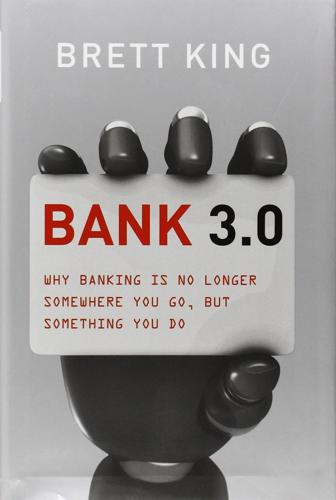
Bank 3.0: Why Banking Is No Longer Somewhere You Go but Something You Do
by
Brett King
Published 26 Dec 2012
Saving the banks has cost more money than it cost to fight WWII, the first Gulf War, put a man on the moon, clean up after last year’s Japanese Tsunami, and the entire African aid budget for the last 20 years all put together.” —David McWilliams, PunkEconomics This was not just a crisis of identity, a challenge to the perception of banks as “secure” and “socially responsible” bastions of the community. It was a challenge to the very role of banks in an open, transparent society. This was more than just the “occupy” movement and a backlash against unreasonable bonuses—bankers suddenly found themselves having to answer to the public for their decisions that led to the crisis. Bankers rallied in this environment to claim how unjust negative public opinion was, how they had the right to make a profit (thanks for that gem, Brian Moynihan), how bankers needed to get huge bonuses because otherwise they might leave their employers, and that they were sick of the sledging they were getting from customers who really had no idea how banks or the banking system worked.
…
In the later part of this first phase, in parallel to the start of the second phase, was the emergence of social media. Social media is a sort of theme running contiguously throughout each of the four phases, but it was enabled by the Internet (obviously). The key to understanding the disruption of social media can be seen not only in base crusades such as the Occupy Movement, but in the fundamental shift in power within the customer value exchange (see Chapter 5). In retail banking previously, banks had the enviable position of being able to “reject” customers because they were too risky, or not profitable enough. Customers would come to the bank, jump through all these hoops called “KYC” (Know-Your-Customer), and if the bank didn’t like them, sorry—they didn’t qualify.
…
If you aren’t in the game already, it’s getting harder and harder to get a proper seat at the table. There’s no technological fix to being able to tell whether or not people like you. There’s only the ability to change the way you talk to your audience. Crowdsourcing—use the power of the crowd The “occupy” movement we talked about earlier is an example of how communities work in the social, hyperconnected landscape of today. However, there is a mechanism for using crowdsourcing as a mechanism for designing new products and services that are immediately advocated by customers because they were designed by the crowd, for the crowd.
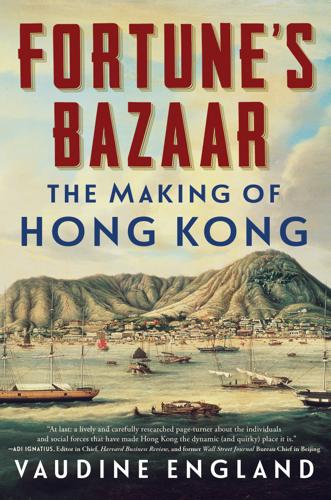
Fortune's Bazaar: the Making of Hong Kong: The Making of Hong Kong
by
Vaudine England
Published 16 May 2023
Few wanted to relinquish the capitalism enabled by Western rule. 40 Fast-forward to 2014—long after the British deal to relinquish sovereignty over Hong Kong to China in 1997 in return for the promise of continued freedoms—and Hong Kongers were on the streets for a record seventy-nine days in their self-styled “Occupy” movement. They were peacefully angry at the perceived loss of those freedoms, and the breaking of promises to allow a free choice of leaders. 41 The growing pro-democracy movement took a new turn through the summer of 2019, when the government’s attempt to legislate extradition of Hong Kongers into China’s opaque legal system backfired.
…
C., 219 Hindenburg, Paul von, 173 Hinduism, 21 Hiroshima, atomic bombing of, 219 Hirschman, Charles, 8 Hitler, Adolf, 173 Ho Amei, 103, 277, 278 Ho Chi Minh, 2, 150 French death sentence against, 158 Ho, Edith Sze Lin-Yut, 132 Ho, Eric Peter, 8, 10, 170 Ho Fook, 95, 99, 132, 147, 168, 176 Ho Fuk-tong, 104 Ho, George, 175 Ho Iu, 176 Ho Kai (Kai Ho Kai), 104–5, 118, 127, 138, 278 Ho Kai, Alice Walkden, 104 Ho Kom Tong, 95, 98, 99, 183, 203 children of, 99, 276 complex private life of, 131–32 philanthropy of, 132 Ho Kwong, 174, 176, 291 Ho Leung, 99 financial ruin and suicide of, 174–75, 176–77 Ho Mui Ling, 104 Ho Sai Kit, 132 Ho Sai Lai, Robert, 103, 166 Ho Shai Wing, 99 Ho, Stanley, 202, 290–91 Ho Sui Ting, 99 Ho Tung, Clara, 99 Ho Tung, Edward, 100–101, 102, 103, 203 Ho Tung, Grace, 99 Ho Tung, Irene, 120 Ho Tung, Margaret Mak, 98, 99, 129, 171, 172, 173, 177 Ho Tung, Mary Patricia, 291 Ho Tung, Mordia O’Shea, 101 Ho Tung, Robert, 9, 95–103, 104, 119, 120, 129, 135, 168–69, 183, 291 background of, 95 children of, 156 as comprador for Jardine’s, 95, 97–98 diamond wedding anniversary of Margaret and, 173, 187 European travels of, 173–74, 176 failed political career of, 101 father’s desertion of, 96 golden wedding anniversary of Margaret and, 171–73 Ho Leung scandal and, 175–76 interconnected dynasty founded by, 98–100, 291, 294 marriage of Clara and, 99 marriage of Margaret and, 98, 99 in move to Macao, 203 philanthropy of, 98, 105, 172 as self-identified Chinese, 97, 98, 100–101, 102 in settlement with Jardine’s over Ho Leung’s debts, 177–78 in visit to occupied Hong Kong, 203–4 wealth of, 98, 102 Ho Tung, Victoria, 99, 168, 169 Ho Tung family, 275–76 Ho Wing, 174, 203 Ho, Winnie Choa, 132 Holmes, Leslie, 188 Hong Kong: as Asian trade hub, 17–18, 243 deep-sea harbor of, 2, 107–8, 245 geography of, ii, 1–2, 107–8 pre-1841 history of, 15–19 weather of, 3 see also Kowloon Hong Kong, under British rule, 2–3, 12 Bohra in, 198–99 borderlands of, 13 as both gateway and destination, 1–2, 4, 10, 12–13 British as unprepared to govern, 61–62, 64 British Military Administration (BMA) in, 218 cemeteries in, 126 central business district of, 115 China’s 1972 challenge to, 4, 247–48 Chinese temples in, 40, 42 churches in, 41 clubs in, 137–40 see also specific clubs conflicting portrayals of, 3–6, 13 cosmopolitanism of, 125–40 deep divide between British and Chinese elites in, 160 disease in, 20 early descriptions of, 41–42 emergence of pluralistic middle class in, 159–60 evacuation of British women and children from, 184–86 feared Chinese nationalist takeover of, 215–16 first mosque in, 34, 42 as free port, 29, 42 gambling in, 39 Germans in, 143–44 growth of, 108 horse racing track in, 126, 137 as hub of East-West trade, 179 impact of California gold rush on, 95–96 Imperial China’s ceding of, 19, 116–17, 247 intellectual life in, 118–20 land auctions in, 29–30 land reclamation in, 108, 114–15 Muslims in, 198–99 1925 strike and economic crisis in, 134, 146, 147–48, 229–30 1930s in, 171–86 opium trade in, 39, 41, 55, 56–57, 112, 116, 237 population explosion in, 61–62, 109 post–World War I economic growth of, 178–79 prostitution in, see brothels; prostitutes, prostitution; Protected Women proxy wars in, 2 race relations in, 78, 272–73 racism in, 101, 103–4, 143–44, 147, 154, 155–58, 184–85, 219, 239, 240, 250 religious tolerance in, 42 run-up to World War II in, 182–87 Shanghai refugees in, 182 street life of, 77–78 strikes and protests in, 134, 144–46, 277 taverns and boarding houses in, 46 treaty ports compared to, 5 uniqueness of, 5 World War I and, 143–44 Hong Kong, under British rule, post-World War II years of, 219–32 accused collaborators in, 223–30 antidemocratic interests in, 220–21, 222 communist unrest in, 240 economic growth in, 233–34, 246–48 influx of Chinese refugees into, 234 Jewish refugees from, 221–22 1997 handover to China of, 117, 247, 250 political and financial autonomy of, 234 war crimes trials in, 222–23, 225 Hong Kong, under Communist rule, 3–4, 251–59 arrests and censorship under, 256 China’s unfulfilled promises to, 250 Covid-19 pandemic in, 245, 254, 256–57 in failure to understand Hong Kongers’ unique culture, 237 mass exodus from, 257 mass protests in, 251–52, 253–54 National Security Law in, 254 Occupy movement in, 252 pro-democracy protests in, 246 Special Administrative status of, 4 Hong Kong, under Japanese occupation, 187–89, 191–214, 238 atrocities in, 191–92, 193, 222 Chinese Cooperative Council of, 226, 227, 228 Chinese Representative Council of, 226 death toll in, 193 “dependents” in, 210–11 Eurasians in, 192, 195, 205–6, 208, 211–12, 216–17 executions in, 204 food shortages and starvation in, 191, 192, 193, 214, 222 Hong Kongers’ mettle tested by, 192–99 looting in, 191, 192 population decline in, 191 Portuguese flight to Macao from, 200–203 POW camps in, 213, 218 racism in, 191 rapes in, 191, 193, 194 Red Cross office in, 209 Rehabilitation Committee of, 194 resistance in, 189, 194, 204–7, 297–98 in surrender to Britain, 219 third nationals (ethnic and mixed-race minorities) in, 208–9 Zindel’s relief work in, 209–14 Hong Kong, Battle of, 206–7 Hongkong, Canton & Macao Steamboat Co., 31, 40, 146, 181 Hong Kong: Culture and Politics of Disappearance (Abbas), 235 Hong Kong, University of, 31–32, 84, 104, 112, 180 founding of, 118–19 multiethnic student body of, 120 students of, in escape to China, 207 women admitted to, 120 Hong Kong Brewers and Distillers Limited, 174 Hong Kong Canton and Macao Zoroastrian Association, 121 Hong Kong Club, 67, 75, 115, 122, 137, 164, 192 Hong Kong College of Medicine, 104, 118 Hong Kong Horticultural Society, 137 Hong Kong Island, 2, 116 British seizure of, 17–19 dramatic landscape of, 15 population explosion in, 3 as Southeast Asia trade center, 17–18 Hong Kong Mercantile Company, 147 Hong Kong Planning Committee, 205 Hong Kong Stock Exchange, 164–65 Hong Kong Times, 34 Hong Kong Tram Boycott (1912), 144 Hong Kong Tugboat and Lighter Co., 181 Hong Kong Volunteer Defence Corps, 31, 122, 138, 148, 203, 204, 216, 225, 295 in battle for Hong Kong, 184, 188–89 British refusal to pay compensation to non-European members of, 218 ethnicity-identified companies of, 184 No. 3 Company of, 188–89 Hong Kongers, 5 collective memory of, 235 cross-cultural cuisine of, 236–37 cross-faith and interracial marriages of, 83–89, 152–53, 154 elite families of, 133–34, see also specific families ethnic and cultural diversity of, 3, 6, 12–13, 23, 45, 62, 77, 79, 125, 150–54, 241–43, 255, 259 fluid identities of, 80, 82, 89, 158–60, 234–35 full British citizenship denied to most of, 249–50 historians’ misunderstanding of, 238–39 Hong Kong viewed as home by, 238–39, 240, 246, 259 as in-between people, 1, 12, 14, 17, 19, 79, 82, 92, 127, 131, 140, 157, 233–43, 248–49, 252, 254–55, 258 independent spirit of, 3, 86, 234, 252–55 Japanese occupation as testing mettle of, 192–99 Muslim-Chinese dynasties, 34, 154–55 nationalists’ denigration of, 142 as POWs, 189, 194 racially mixed, see Eurasians, in Hong Kong unique mindset of, 6, 125, 221, 233, 236 women as, see women, in Hong Kong see also specific ethnicities and religions Hong Kongers, early migrants, 25–43 diverse cultures and ethnicity of, 19–23, 26 ethnic Chinese as, 62, 64 Filipinos as, 3, 12, 21, 62 Jews as, 35, 37, 38–39, 82 as labor contractors, 33–34 Muslims as, 33–35 Parsis as, 29–32 Portuguese as, 26–29 as strivers, 25–26 Tanka as, 39–40 Hongkong Almanack, 28 Hongkong and Kowloon Wharf and Godown Co., 99, 112, 113, 117, 168 Hongkong and Shanghai Bank, 78, 100, 119, 129, 152, 157, 159, 182, 198, 199, 205, 247 Hongkong and Shanghai Hotels group, 129 Hongkong Daily Press, 103, 113, 171 Hongkong Electric, 112–13 Hongkong Hotel, 129, 173 1920s Guest Guide of, 153 Hongkong Land Co., 98, 112, 113, 115, 192, 205 Hongkong News, 191, 203, 208, 224, 225 Hongkong Telegraph, 97, 135 Hongkong Telephone, 112–13 Hoosenally, Norman, 199 Howell, Philip, 48 Huang Hua, 247 Humby, John, 71 Hung Assoo, 54 Hung, Douglas, 189, 206 Hung, Gloria Baker, 168 Hung, John, 168 Hung, M.
…
H., 120 Nerbudda, wreck of, 34 New Territories, 1, 135, 245 British lease on, 117 New Territories Agricultural Association, 135 Ng Akew, 79, 271 Endicott as protector of, 55, 56, 57 land acquired by, 57–58 loan schemes of, 57–58 opium trading by, 55, 56–57 Ng Choy, 104 Ng Li Hing, 119 Ng Shee, 54 Ningpo (Ningbo), China, 19, 62 Nippon Club, 138 Nixon, Richard, in 1972 trip to China, 4 Nolasco da Silva, Phylis Anderson, 206 Noordin, Seth Ebrahim, 198 Noronha, Delfino, 28–29, 135, 136–37, 139 Noronha and Co., 28–29 North, R. A. C., 225 on Kotewall’s cooperation with Japanese, 229–30 Northcote (Governor), 184 Nowrojee, Dorabjee, 136, 198 Occupy movement (Hong Kong), 252 O’Connor, T. P., 123 Odd Volumes Society, 118 Odell, Harry, 150 Odell, Sophie Weill, 150 Ohel Leah Synagogue, 82 Olson, Ellen (Ching Ah Fung), 72–73 Olson, John, 72–73 On Tai Insurance Company, 112 Opium Farm, 84, 147 opium trade, 2, 13, 17, 19, 26, 27, 29, 31, 37, 61, 80, 82, 109 British Empire’s dependence on, 38 in Hong Kong, 39, 41, 55, 56–57, 112, 116, 273 Opium Wars, 32 First (1839–42), 19, 40, 63 Second (1856–60), 39, 66, 74, 112 Oriental Bank, Hong Kong, 31 O’Shea, Mordia, 101 Osterhammel, Jürgen, 240 Oswald’s Terrace, 28 Overbeck, Gustav, 85 Owen, Mackertich Cyril, 122 Oxford English Dictionary, 253 Ozório, Horacio, 205 Padang, 16 Pallanjee, Cawasjee, 18 Pan, Lynn, 241 Pao, Y.
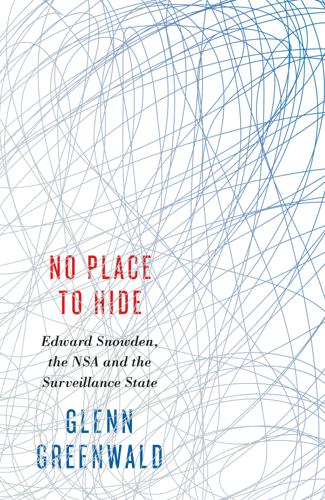
No Place to Hide: Edward Snowden, the NSA, and the U.S. Surveillance State
by
Glenn Greenwald
Published 12 May 2014
In the United States both the Right—the Tea Party protests of 2008 and 2009—and the Left—the Occupy movement—have launched enduring citizens protests. Polls in these countries revealed strikingly intense levels of discontent with the political class and direction of society. Authorities faced with unrest generally have two options: to placate the population with symbolic concessions or fortify their control to minimize the harm it can do their interests. Elites in the West seem to view the second option—fortifying their power—as their better, perhaps only viable course of action to protect their position. The response to the Occupy movement was to crush it with force, through tear gas, pepper spray, and prosecution.
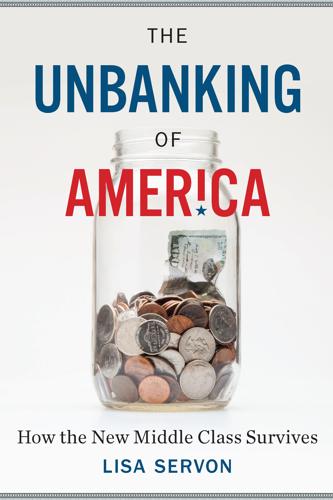
The Unbanking of America: How the New Middle Class Survives
by
Lisa Servon
Published 10 Jan 2017
Those benefits have been eroded, leaving individuals to cope with the unexpected and unfortunate events that happen to all of us. As Jacob Hacker, author of The Great Risk Shift, argues, “More and more economic risk has been offloaded by government and corporations onto the increasingly fragile balance sheets of workers and their families.” Rising inequality also plays a role. The Occupy movement, with its slogan “We are the 99 percent,” drew attention to this inequality in the wake of the financial crisis. Worldwide, people took to the streets to protest corporate greed and broken social contracts. The New York City incarnation of the movement, Occupy Wall Street, placed the financial sector at the center of the problem.
…
See also specific minority groups Mint.com, 114–15 Mission Asset Fund (MAF), 142, 146, 161–62 mobile banking, 111–14, 144 Mondelli, Mike, 141–42, 149–52 money guards, 129–30, 138–39 money laundering, 10 money orders, xii, 119 money shame, 68–69 monopolies, 27 Mooney, Beth, 158–59, 164 morality, 34–35, 64–65 mortgages, 7–8, 35, 39–40, 41–45, 226n174 Mott Haven, 3 Muckenfuss, Cantwell Faulkner, III, 35–36, 40–41 Mullainathan, Sendhil, 54 Murphy, Bruce, 157–61 N natural disaster victims, 88 neighborhood ratings, 41–44 New Deal, 41–42 Nickel and Dimed (Ehrenreich), 156 Noah, Timothy, 51 O Obama, Barack, 39, 40 Occupy movement, 50–51 older adults, 55, 56, 57–59, 106, 109–10, 169, 219n109 Oportún, 145, 162–64 Orman, Suze, 63 overdraft fees account closure from, xvi, 31–32 age and, 16 as bank revenue, 17, 29–32, 87, 195–96nn30–31 blacklisting from, xv–xvi debit resequencing and, 33–34 flat fees vs., 7 opt in/out for, 17, 194n17, 196n31 on payday loans, 80, 98, 215–16n91 as short-term loan, 87 overdraft protection, 17, 29, 32 P parental support, 57–59, 109–10, 219n109 Paula, Ana, 9 pawnshops, 64, 82, 118–19 payday lending as alternative to banks, xii, 3 as alternative to credit cards, 63–64 benefits vs. costs of, 88–91 debt collection departments, 92–95, 97–100 expansion of, xiii–xiv fees, 79–82, 92–93 financial health and, 171 innovations in, 145–46 interest rates of, 81–82 legality, 77, 85, 89–91, 97 millennials and, 117–19 opposition to, 81–83, 88–89 predators, 96–101, 182, 184 regulation of, 77, 85, 89–91, 147, 215–16n91 renewals and rollovers in, 80–83, 95 repayment plans, 81, 94–95 research approach to, 183–84 restrictions on, 90–91, 147 stigma of, 102 typical consumer of, 50, 95–96, 213–15n88 peer-to-peer (P2P) lending, 113 pensions, 50, 55, 169 Pew Charitable Trusts, 17, 194n17, 196–97n32 Phishing for Phools (Akerlof & Shiller), 34, 172 policy recommendations on banking-government relationship, 170–73 on decision making, 173–75 for financial health, 167–69 on innovation, 175–76 problem definition and, 165–67 postal banking, 172–73 poverty.
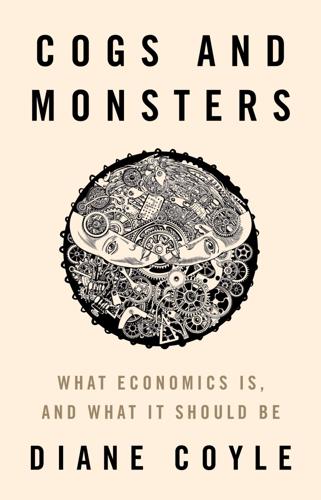
Cogs and Monsters: What Economics Is, and What It Should Be
by
Diane Coyle
Published 11 Oct 2021
Political shifts of this kind never have a single cause, but economic disadvantage was certainly involved: studies of different votes have mapped the correlation between populist vote shares and places ‘left behind’ (the term in vogue) by economically-thriving big urban centres. The chickens dating back to deindustrialisation in the 1980s were coming home to roost. Although the big increases in income and wealth inequality had occurred during the 1980s, policy attention focused on this far more after the headline-grabbing Occupy movements, the success of Thomas Piketty’s Capital (2014), and the increased awareness of the social costs of being left behind, so authoritatively documented by Anne Case and Angus Deaton in Deaths of Despair (2020). For many people, life had not been getting better, whatever the macroeconomic statistics said.
…
C., 125–26 Harris, Robert, 27 Hausman, Jerry, 57 Hayek, Friedrich von, 31, 42–43, 182–83, 190–91 health care, 32, 37, 44–45, 60, 145, 164 Henderson, David, 77–78 heterogeneity, 113, 175 Hicks, John, 122, 145, 191 Hidden Persuaders (Packard), 109 Holmstrom, B., 197 homo economicus: artificial intelligence (AI) and, 161; Friedman on, 93; machine learning and, 13, 161; rationality and, 13, 47–48, 93, 114, 116–17; separation protocol and, 119 housing, 43, 60, 65, 102 humanities, 3–4, 49, 214 Hume, David, 49, 148 humility, 20, 52, 73, 79, 82, 95, 100 identity, 4, 92–93, 107, 129 (Im)possibility Theorem, 123 incentives, 29, 33, 35, 55, 63–64, 80, 106–7, 110, 160, 200 income: automation and, 165–66; consumer choice and, 93; demand management and, 192; developing countries and, 96, 196; distribution of, 122, 125, 138, 143, 149; economics graduates and, 1; falling, 164; growth in, 70, 131, 138, 143, 164–65, 194, 207; identity and, 107; innovation and, 39; median, 164, 176; microeconomic analysis and, 101; progress and, 138, 143, 147, 149, 151; real, 194; stagnation and, 164, 194 Independent, The (newspaper), 133 individualism, 5, 10, 13–14, 23, 130, 141, 180, 191 industrial policy, 207–8 Industrial Revolution, 132, 150 inequality, 11, 19, 68, 132, 149, 163–66, 215 inflation: crises of 1970s and, 16; forecasting, 36; GDP and, 13, 113, 148; Great Moderation and, 17, 73; growth and, 12, 66, 73, 178; macroeconomics and, 12–13, 17, 36, 73, 113; models and, 30, 113; monetary policy and, 16, 30, 73, 135; public responsibilities and, 16–17, 30, 36, 66, 73; statistics and, 113, 146, 148, 164; unemployment and, 12, 113, 192 innovation: changing economies and, 169–70; cloud computing and, 150, 170–72, 184, 197; competition and, 28, 41, 46, 68, 85, 209; consumers and, 28, 102, 200; creative destruction and, 41; digital economy and, 169–70; financial, 28–29; FISIM and, 28; 4G platforms, 195; growth and, 37, 41, 46, 68, 71, 194, 209; income constraints and, 39; internet and, 138–39 (see also internet); kidney exchange and, 44, 142; macroeconomics and, 37, 71, 102; markets and, 39; production and, 41, 139, 169, 195; progress and, 137, 139, 142–46, 150–51, 156, 166; randomised control trials (RCTs) and, 60–61; smartphones and, 46, 138–39, 164, 171, 173, 177, 195, 198; spillovers and, 127; superstar features and, 173–74; 3G platforms, 60, 139, 173, 195; twenty-first-century policy and, 189, 194–95, 200, 204, 209; ultra-high frequency trading (HFT) and, 25–27 instant messaging, 171 Institute for New Economic Thinking, 35, 84 Institute of Engineering and Technology, 171 Intel, 41 interest rates, 12, 18, 37, 66, 147 International Monetary Fund (IMF), 67, 158 International Network for Economic Method, 114 internet: GDP growth and, 97; impact of, 46, 168; progress and, 138–39; time spent online, 176–78; transaction costs and, 168; Unipalm and, 133; World Wide Web and, 133, 195 Internet of Things (IOT), 198 interventions: behavioural economics and, 48, 63, 104, 106, 160, 208, 211; Coase on, 62; education and, 12; government, 15, 38, 48, 80, 82, 123, 125, 191, 194, 208; market, 15, 31, 38, 125, 188, 194, 206, 213; outsider context and, 87, 94, 104, 106; progress and, 160; public opinion and, 70; regulations and, 31 (see also regulations); separation protocol and, 123, 125, 127; taxes and, 213; Trump and, 213; twenty-first-century policy and, 188, 191, 194, 206–8, 211 Iron Curtain, 190 Irrational Exuberance (Shiller), 29 Italy, 56, 67–69 IT departments, 170 John Deere, 178 Kahneman, Daniel, 47, 91 Kaldor, N., 122 Kapital, Das (Marx), 48 Kay, John, 41 Keynes, John Maynard: animal spirits and, 22; on character of economists, 20, 52; demand management and, 31, 191–92; Great Depression and, 191; Hicks and, 191; lagging policies and, 54; macroeconomics and, 73, 75, 151, 191; monetarist arguments and, 73, 75; on practical men, 32; Samuelson and, 191; twenty-first-century policy and, 191, 193; on well-informed government, 61 kidney exchange, 44, 142 knowledge-based economy, 128, 140, 185–86, 197 Kondratiev, N., 189 Korzybski, Alfred, 89 Kranton, Rachel, 93 Krugman, Paul, 75, 209 Labour Party, 158, 191 Laibson, David, 86 Lancet, The (journal), 77 Lange, Oskar, 182–83, 190 Laspeyres index, 144n3 Lerner, A., 182 L’Etranger (Camus), 87 liberalisation, 38, 68–69, 196 licenses, 59 life expectancy, 145 living standards, 143–47, 172, 194 loans, 109, 147, 158 lobbying, 29, 64–65, 69, 149 logic, 33, 47, 89–91 London School of Economics, 17 London Underground, 62–63 Long-Term Capital Management (LTCM), 23 Lucas, Robert, 75 Lucas Critique, 103 lump of labour fallacy, 78 machine learning (ML), 12–13, 137, 141, 160–61, 187 MacKenzie, Donald, 23–24, 26 macroeconomics: agglomeration and, 127, 132, 202, 207; aggregate behaviour and, 3, 40, 42, 71–72, 100–102, 106, 113, 122–23, 141, 176–77, 201–2; criticism of, 17; empirical work and, 74, 100; forecasting and, 3, 12, 36–37, 76, 101–2, 112; globalisation and, 110, 132, 139, 154, 164, 193–94, 196, 213; Great Depression and, 17; Gross Domestic Product (GDP) and, 13, 101, 113, 151; inflation and, 12–13, 17, 36, 73, 113; innovation and, 37, 71, 102; Keynes and, 73, 75, 151, 191; Keynesian, 151; markets as a process and, 37–45; models and, 21 (see also models); outsider context and, 12, 100–3, 112–14; politics and, 76; progress and, 151; public responsibilities and, 17, 21, 31, 36–37, 71–76, 85–86; separation protocol and, 124; statistics and, 101–2, 113, 131; twenty-first-century policy and, 191 Malthus, Thomas, 48 Mandel, Michael, 96–97 Mankiw, Greg, 86 manufacturing, 105, 149–50, 172, 178, 195–98 marginal costs, 128, 174, 200, 208 Marglin, Steve, 16, 193 Market Abuse Regulation (MAR), 27n5 Markets, State and People (Coyle), 114, 212 Marshall, Alfred, 132 Marshall Aid, 190 Marx, Karl, 48 McFadden, Daniel, 59 Merton, Robert C., 23–24, 28 Merton, Robert K., 22–23 #metoo, 9 microeconomics, 2, 12, 37, 58, 92, 101, 110–11, 121, 209 microfoundations, 90 Microsoft, 133, 170, 173 Millenium Bug, 155 models: abstract mathematics and, 2; ad hoc, 89–92, 94, 150; agents and, 21, 81, 102, 109, 118, 179, 209; assumptions in, 21–22, 35, 46–47, 62–63, 90–94, 119, 137, 154, 177, 209; behavioural, 22, 35, 47, 63, 88, 92–93, 119, 136, 154; Black-Scholes-Merton, 23–25, 28; business, 139, 165, 197; causality and, 2, 94–95, 102; changing economies and, 168, 176–77, 179–80; complexity and, 2, 49, 94, 102, 106, 179–80; counterfactuals and, 97–98, 158, 161, 198, 208; forecasting and, 17, 74, 101–2, 113; frictions and, 22, 113, 136, 154, 182; Great Financial Crisis (GFC) and, 31, 101, 113; inflation and, 30, 113; influence of, 23; Korzybski on, 89; moral issues and, 129; Nash equilibrium and, 90–91; objective of, 89–90; outsider context and, 55, 88–103, 106, 109, 113; over-fitting, 95; platform, 197; progress and, 139, 151–52, 154, 159–61; rationality and, 21–22, 31, 35, 45–48, 62, 71, 88–103, 117–18; reality building by, 23; Scott on, 63; transaction costs and, 168; twenty-first-century policy and, 185–86, 189, 191, 197, 209 Modern Monetary Theory (MMT), 75, 102 monetarism, 16, 71, 73, 75 monopolies, 20, 29, 42 Monti, Mario, 67–69 Mont Pèlerin Society, 31, 191, 193–94 Moore’s Law, 170, 184 moral issues: Atkinson and, 129; causality and, 96; Cook and, 150; ethics, 4, 34, 39, 100, 105, 115, 119–24; fairness, 43, 45–46, 166; models and, 129; outsider context and, 96, 106–8; progress and, 148, 150; rationality and, 117; Sandel on, 34, 39, 43, 107, 119; Stern and, 148 MySpace, 205 Nash equilibrium, 90–91 National Health Service (NHS), 44–45, 77 “Nature and Significance of Economic Science, The” (Robbins), 121 neoliberalism, 3, 15, 193–94 network effects: competition and, 202, 205; economies of scale and, 127, 174, 177, 185, 199–201, 209; fixed costs and, 174, 177, 179, 185–86, 200; indirect, 174; twenty-first-century policy and, 185, 199–202, 205, 209; progress and, 141 New Deal, 193 New Public Management, 33, 106–7, 119, 187 New York Times, 19 Nobel Prize, 21, 23, 35, 44, 47, 59, 63, 92, 109, 140, 209 Nordhaus, William, 170 normative economics: decision making and, 110, 114, 120; Friedman and, 104, 121; Gelman and, 108; policy implications and, 125–26; positive economics and, 10, 104, 108, 114, 120–21, 125, 146; progress and, 146; welfare and, 114, 120, 134 nuclear arms race, 190 Obama, Barack, 75 Occupy movement, 19, 131 Office for Budget Responsibility, 66 Office for National Statistics, 171 OPEC, 192 OpenTable, 142, 175, 200 opportunity cost, 56, 58, 80, 156 optimisation, 48, 118, 188 Organisation for Economic Co-operation and Development (OECD), 130, 132, 164, 190 Ormerod, Paul, 106 Oscar awards, 108 Ostrom, Elinor, 63–64 outsider context: behavioural economics and, 88, 92–93, 100, 103–9; causality and, 94–96, 99–105; competition and, 98, 105; consumers and, 92, 96, 98, 100–102, 105, 108–9; decision making and, 93; Great Financial Crisis (GFC) and, 87–88, 101, 110, 112–14; growth and, 12, 97, 101n1, 111; interventions and, 87, 94, 104, 106; macroeconomics and, 12, 100–103, 112–14; methodology for, 88–103; models and, 55, 88–103, 106, 109, 113; politics and, 106, 110; regulation and, 109; technology and, 103; welfare and, 105–7, 114 outsourcing, 139, 195–97 Oxfam, 95–96 Packard, Vance, 109 Papademos, Lucas, 67 Pareto criterion, 121–23, 126–27, 129 patents, 140 pensions, 18, 37, 60, 65, 146 Perez, Carlotta, 189 performativity, 11, 23, 30, 211 Peste, La (Camus), 108 Petty, William, 148 Phillips machine, 135–37, 151, 192 Pigou, A.

Scotland’s Jesus: The Only Officially Non-Racist Comedian
by
Frankie Boyle
Published 23 Oct 2013
Leading economist Douglas McWilliams has suggested the economy could be boosted just by axing all bank holidays. Why stop there? Can you imagine how much the economy would benefit from having us strapped to desks and lathes as Mr McWilliams milks us or extracts our viable eggs with a Dyson crevice tool to mix in a huge breeding pond to create the next generation of wage slaves? Maybe the Occupy movement was the last glimmer of hope, a chance to generate a few stories to tell in the sex camps. Two hundred and fifty people took part in the Occupy London protest. Sadly, they’d have needed a few more bodies before they could have occupied London. With those sort of numbers they could barely occupy screen six at Cineworld.
…
I’ve sort of been able to watch all this from the hallway, always having written columns and done interviews with a variety of newspapers. You see what does and doesn’t get printed. The last five years or so have been a time of increasing conformity. News stories are presented to us differently now. During the Occupy movement, just like with the eviction of travellers from Dale Farm, we were presented with no characters – and actually almost no images of the protest – making it very difficult for the story to progress into other areas of the culture. You don’t get characters from the counterculture anymore. No Swampy the environmental protester, nothing that can ‘monologue’, that hideous American verb of the comedian as meme processor and cultural drip tray.
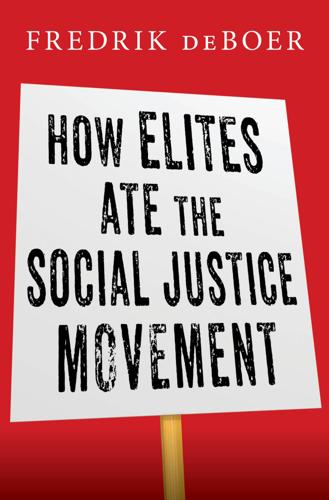
How Elites Ate the Social Justice Movement
by
Fredrik Deboer
Published 4 Sep 2023
(Davis), 51 armed resistance movements, 88–95 Arons, David F., 110 Asian Americans, 33–34 Atlantic, The, 84 Bacon, Perry, Jr., 17 bank bailouts, 16 Batista, Fulgencio, 92 Berry, Jeffrey M., 110 Biden, Joe, 41, 42, 50, 197 Black Americans and “Black bodies,” 201 classes among, 65 current status of, 47 education of, 47, 66 as liberal Democrats, 136 as moderate Democrats, 64 non-police violence against, 59–63 police presence desired by, 57–58, 64 police violence against, 47–49, 55–57, 199–200 professional-managerial class of, 54–68 and racial politics, 74–76 unjustified killing of, 37, 45–46, 55–57 violence within community of, 37, 59–62 Black Lives Matter (BLM), 45–77, 213 achievements of, 67–68 and defunding police, 38, 51–54 and Floyd’s murder, 6 lack of coherent demands of, 43 money donated to, 70–71 organizational difficulties in, 43 perceived criticisms of, 34, 35 profiteering from, 70–72 and racial violence, 47–51 responses to, 68–77 riots with, 94 those who speak for, 64–67 violence at protests of, 81 and voices for racial justice, 53–64 Black Lives Matter Global Network Foundation, 71 Bland, Sandra, 46 bobos, 137–139, 142 Bobos in Paradise (Brooks), 137 Bond, Lisa, 72 “Brahmin Left vs Merchant Right” (Piketty), 145 Bridgespan Group, 102 Bright, Liam Kofi, 63, 70 British NHS pamphlet, 202, 203 Brookings Institution, 167–168 Brooks, David, 137, 138, 142 Brown, Michael, 46 Bush, Cori, 52 Bush, George W., 14, 16, 25, 189 Campbell, David, 146 canceling, 132 Capital in the Twenty-First Century (Piketty), 144–145 capitalism, 52, 91–92, 135, 140–141 Carmichael, Stokely (Kwame Ture), 76, 77 Castro, Fidel, 93 “centering,” 176 Central Connecticut State University (CCSU), 3 Central Park Karen, 56 Chait, Jonathan, 25, 34 Charity Navigator, 101, 103 Chauvin, Derek, 5, 14, 39 civil rights movement, 69–70, 75, 182 class(es) Black, 65 and Occupy movement, 19 organizing along lines of, 194–197 revolutionary, 215 upper-middle, 150–151 class-first leftism, 164–192 advantages of, 174–183 both/and arguments in, 187–192 class reductionist view vs., 168–174 as pejorative term, 164–165 problems with, 196–197 and right-wing identity politics, 183–187 salience of, 168 class reductionists, 168–174 Clinton, Bill, 27, 28 Clinton, Hillary, 27–31, 152, 165–168, 186 Clough, Alina, 100–101 Coffey, Clare, 140–141 Cohn, Nate, 145–146, 148 Common Dreams, 106 communism, 29, 152, 190 Community Justice Action Fund, 60 Confederate statues, 81–82 Conference on College Composition and Communication, 67 Connecticut United for Peace (CutUP), 2 consensus decision-making, 23–24 conservatism, 114 conservatives as “classical liberals,” 134 Clinton obsession of, 27 Democrats identifying as, 136 focus of, 203 fundamental message of, 186 home field advantage of, 43 King presented as pacifist by, 85 and meritocratic system, 142 Obama as, 17 Republicans identifying as, 136 self-professed, 210–211 and violence among and toward Black people, 37 consistency, in justice, 123–125 conspiracy theories, 204 Cosby, Bill, 120 Cotton, Tom, 56 Covid-19 pandemic, 5, 13–14, 32, 41 crime, 37, 59–62 criminal justice reforms, 7, 49–54 Cuba, 88, 92, 93 Cuomo, Andrew, 122–123 D’Arcy, Stephen, 69 Davis, Angela, 51 Debs, Eugene, 9 decision-making, 19, 21–24 deep state, 114–115 deference politics, 155–163 defunding police, 38, 51–54, 58, 62–64 demands carefully developed and expressed, 117 coherent, 19–20, 43, 172 essential purpose of, 20 following Floyd murder, 38–39 framing of, 181–182 from #MeToo movement, 132 for political violence, 78–79 democracy, American, 92 Democratic National Committee, 41 Democratic Party as center-right party, 78 and education polarization, 148–149 leftist complaints about, 11 as left-leaning party, 135–136 liberals in, 136, 137 (see also liberals) messaging around economic issues in, 197 nonprofits as vehicles for, 107 and Obama’s cult of personality, 17 as overwhelmingly white, 136 as party of elites, 31 Perez appointment influenced by, 41 and political action, 207–209 Sanders’ impact on, 29 2016 primaries of, 27–29, 165–168 in 2020 election, 11, 40–42 2008 primaries of, 27 voters’ disillusionment with, 28 youth in, 79 Democratic Socialists of America (DSA), 29–30, 168, 177–179 Democrats center-left, analyses of, 134–135 and George Floyd Justice in Policing Act, 39 and labor unions, 195 liberals’ votes for, 135 moderates and liberals, 64 and police funding, 52 political positions of, 136, 189, 190 technocratic liberal voice of, 25 denunciation, 154 Depp, Johnny, 40, 120–121 DiAngelo, Robin, 71 direct democracy system, 21, 23–24 disabled people, 173, 178–180, 205–206 Dream Hoarders (Reeves), 150–151 Du Bois, W.
…
Collective, 111 income inequality, 148–151, 188–189 “In Defense of Destroying Property” (Nation), In Defense of Looting (Osterweil), 83 “Insanely Overpaid Nonprofit Execs” (Fiscal Times), 108 internal locus of control, 139–140 internet, 130, 204 intersectionality, 165, 166, 192 Iran, 92 Iraq war, 3 “iron law of institutions,” 104–105 “iron law of oligarchy,” 104 Jackson, Regina, 71–72 Jacobin magazine, 26, 187 January 6 Capitol riot, 41 Jefferson, Margo, 65 Johnson, Lyndon, 208 Kaba, Mariame, 38, 53 Kelly, R., 120, 128 Kerry, John, 25, 214 King, Martin Luther, Jr. assassination of, 34 on limited change, 70 and Malcolm X, 84–87, 93 and March on Washington, 182 on riots and rioting, 80–81, 84–85 tactics of, 90 Klein, Paul, 114 labor market, 18 labor movement, 9, 78, 170, 180, 194–196 labor unions, 180, 194–196 language identity politics’ fixation on, 173 left’s academic vocabulary, 200–202 nonsensical, 204–207 progressive politics games in, 155–156 in race politics, 67–70, 75 of the unheard, riots as, 81, 84–85 leadership structures, 21–24, 113–114 leaders of social movements, 9 the left academic vocabulary of, 200–202 boundaries of, 25 case against nonprofits in, 107–118 demands of, 79 disdain for white working class in, 10 and education polarization, 144–151 elitism associated with, 145 focus of, 203 galvanized by Floyd’s murder, 6 and labor movement, 9 lack of uniting vision in, 185–187 need to regain standing among other majorities by, 162 power of, 10 stereotypes of, 145 left activism, 9–11 balancing structure and chaos in, 116–117 common problems in, 23 cultural issues in, 10 disdain for white working class in, 10 horizontal decision-making in, 21–24 idea of armed resistance in, 90 identity niches in, 175–176 infighting and squabbling over priorities in, 20 lack of coherent demands in, 19–21 nonprofits’ role in, 111–112 “progressive stack” in, 156–157 recruiting for, 9–10 left-of-center left, 29–30 dedication to division, 198 and identity politics, 184–185 infighting over oppression hierarchies, 177 lack of coherence in, 149 setting conversations of, 150 tendency to denounce people in, 154 see also liberals left-of-liberal left, 25, 26 left politics atmosphere of 2020 in, 35 class politics in, 175 class reductionist, 168–174 current state of, 78–79 drift from material/concrete to immaterial/symbolic in, 8–9 endorsement of violence in, 80 foundation of, 187–188 and locus of control, 143 people who speak in, 8–9 reorienting (see class-first leftism) Levitz, Eric, 147 liberalism attachment to discipline and self-improvement in, 138–139 desire to please in, 153 nonprofits as vehicles for, 107 racial framing in, 181–182 liberals, 134–163 analyses of, 134–135 changing the orientation of, 162–163 contemporary, 137–143 Democrats identifying as, 136, 137 and education polarization, 144–151 fixation on race among, 74, 75 hypocrisy and cowardice of, 152–155, 159 and locus of control, 139–143 and politics of deference, 155–163 in racial discourse, 62–63 self-accusation by, 154–155 technocratic, 25 libertarians, 134 life span, 47 Llorente, Renzo, 175 locus of control, 139–143 “Love Me, I’m a Liberal” (Ochs), 152–153 Lowery, Wesley, 36 mainstream conservative movement, 10 Malcolm X, 84–87, 93 marginalized groups academic work concerning, 74 “centering” of, 176 efforts to reward, 7 further divisions within, 198 politics of deference toward, 155–163 represented in race politics, 8–9 Martin, Trayvon, 37, 46, 49 Marx, Karl, 153, 176, 188, 215 Marxism class politics in, 175 class reductionists in, 170 external locus of control in, 141 and partisan politics, 208 preeminence of self-interest in, 176, 180 and revolution, 193 Masterson, Danny, 128 material security/abundance, 147–148 Maxwell, Ghislaine, 40 Maxwell, Zerlina, 167 McAlevey, Jane, 195 McAvoy, Paula, 146 McCarthy, Eugene, 152 media activist rhetoric in, 35, 36 Black employees in, 66 Depp/Heard case in, 120 elite, 144 income of workers in, 149 insiderism and patronage in, 161 language codes for, 67 liberal bias in, 35–36 liberals’ deference to wisdom of, 135 “moral clarity” argument in, 37 and news cycle as power source, 126 race and racism discussion in, 65–66 and race of actors in shows, 68 racial disparity of workers in, 151 right-wing, 184 self-critical dominant groups in, 157–158 Trump’s attention from, 30 during 2016 Democratic primaries, 166–167 Medicare for All, 40, 178, 213–215 memes, 121, 126–128, 133 meritocratic system, 26, 135, 142–151 #MeToo movement, 14, 32, 119–133 and consequences for accused men, 124–126 current state of, 133 fading impact of, 120–121, 126–128, 130–131 inconsistency in, 123–126, 130 lack of specific policy goal in, 130–132 as a meme, 121, 126–128 news cycle as power source for, 126 potential misuse of, 129 rise of, 119 structural problem with, 123–124 target of, 119 Time’s Up arm of, 122–123 in 2020, 40 as version of canceling, 132 Michels, Robert, 104 millennials, 18 Minneapolis police department, 6, 7, 14, 39 moderates, Democrats as, 136 “moral clarity” argument, 36–37 moral imagination, 187 Movement for Black Lives, 64 “Myth of Class Reductionism, The” (Reed), 169–170 Nation, The, 83, 182 National Association of Nonprofit Organizations & Executives, 103–104 National Association of Scholars, 144 National Council of Nonprofits, 98–100 National Geographic, 84 National Lawyers Guild, 112 Nation of Islam (NOI), 86 Negroland (Jefferson), 65 neoliberal politics, 25 Netflix, 7 New Inquiry, 26 New Republic, 25 “New Sense of Direction, A” (King), 85 New York magazine, 71, 72, 84 New York Times on boundaries of the left, 25 Cotton op-ed in, 56 on election of 2020, 40 Kaba opinion piece in, 38, 53 Lowery opinion piece in, 36 on Occupy movement, 19, 20 Time’s Up ad in, 122 Nietzsche, Friedrich, 159 Nixon, Richard, 34 non-hierarchical decision-making, 19, 21–24 nonprofits, 96–118 activist brain drain due to, 116 concept of “deserving” groups in, 111 criticisms of, 96, 99–106 donors as ultimate stakeholders in, 109–110 general case against, 99–106 ideological makeup of, 107 influence of, 98–99 informal organizing vs., 112–113 institutionalization of, 129 internal elites in, 105 left case against, 107–118 in left organizing, 111–112 local activism organized by, 97 organization and formal legal recognition of, 113–114 political energy blunted by, 79 power in, 104–106 progressive “bias” of, 107–108 public-sector burdens taken on by, 110–111 public support for, 99 and racial justice movement, 6–7 radical activists working for, 115–116 regulatory constraints on, 97 revenue generation by, 108–109 the right’s critiques of, 107 sense of absolution provided by, 117 size of sector, 97–98 social problems perpetuated by, 105–106 spending by, 101–104, 109 staffing vs. structure of, 114 tax issues with, 97, 109–110 nonsense, 204–207 nonviolent protest, 35 North American Free Trade Agreement (NAFTA), 28 No Shortcuts (McAlevey), 195 Novicoff, Marc, 181 Obama, Barack, 10, 15–18, 26–28, 41–42, 72 Occupy Wall Street, 18–26 ancillary protests inspired by, 19 class focus in, 171–172 fizzling out of, 24–25 framing in, 188 influence of, 25–26 intensely non-hierarchical decision-making in, 21–24 lack of coherent demands from, 19–21, 172 lack of concrete consequences of, 19 Ochs, Phil, 152–153 organization along class lines, 194–197 formal, of nonprofits, 113–114 informal, limits of, 112–113 intelligent, 117 lack of, in 2020, 42–43 Osterweil, Vicky, 83 Paradise Suite, The (Brooks), 142 Pelosi, Nancy, 52 Perez, Tom, 41 personal relationships, 22–23 Piketty, Thomas, 144–145 police and policing crime reduction with, 59 defunding, 38, 51–54, 58, 62–63 racial bias in, 57–58 reforming, 58–59 police violence, 47, 199–200 against Black people, 47–49, 55–57, 199–200 George Floyd Justice in Policing Act, 38–39 “moral clarity” about, 36–37 at protests, 81 qualified immunity for, 50, 54 Scott’s policing reform bill, 39 against whites vs.
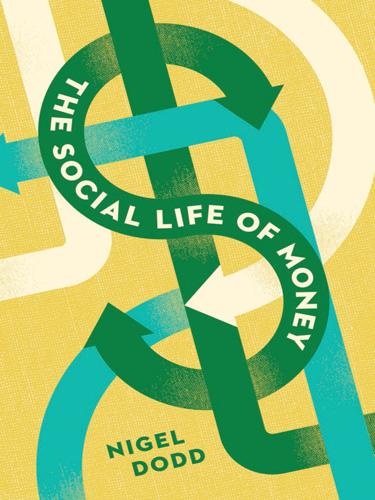
The Social Life of Money
by
Nigel Dodd
Published 14 May 2014
Indeed, one could argue that divisions within banks, and their fragmented epistemic cultures, played a significant role in bringing the crisis about (MacKenzie 2011). Nevertheless, it is mainly the banks that have provided the conduit through which critique and protest have flowed since the crisis began. The Occupy movement is broad-based, its aims unclear, its progress uncertain. But its core thesis—that the financial system has grown absurdly disproportionate relative to the rest of the economy: distorting capitalism, widening inequality, damaging society, and exposing its key public institutions to unacceptable risks—has gained popular support across the political spectrum, on both left and right.
…
In effect, Eurozone countries falling within the former group “have their own currencies and therefore can’t run out of money—a club all of whose members have very low borrowing costs, more or less independent of their debts and deficits”; see “France has its own currency again,” April 8, 2013, http://krugman.blogs.nytimes.com/2013/04/08/france-has-its-own-currency-again/, accessed May 10, 2013. 55 Hudson is invoking a meme of the Occupy movement, which is designed to capture the concentration of wealth in the richest 1 percent of Americans, whose incomes rose by 275 percent between 1979 and 2007, compared to a rise of 40–60 percent for the remaining 99 percent. 56 The precise nature of the myth is that excessive government spending leads to hyperinflation.
…
In Agamben, it is the ban—the exception—that produces bare life, creating a zone of indeterminacy between bios (or life as defined in relation to the polis) and zoē (or life as defined in relation to oikos). In law, this zone is created by a suspension of human rights: the person who is subjected to it is placed at the threshold of the law and rendered as an outcast, a refugee.49 These two logics, exception and crisis, meet in political protest, in those makeshift camps that form the amorphous Occupy movement. The insolvent state is the state that fails to pay its debts. An insolvent state that lacks the capacity to create its own money is—in relation to the international monetary system—in a position that is analogous to the outcast. Its debts are entered into through bonds taken out as if between private parties: the state is essentially treated as a debtor, much as a firm or household would be.
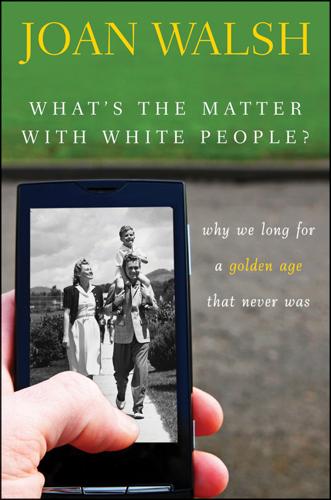
What's the Matter with White People
by
Joan Walsh
Published 19 Jul 2012
Suddenly, cable news shows that had been obsessing over the deficit “crisis” and President Obama’s latest poll numbers were explaining how decades of tax cuts and deregulation unraveled the social contract established in the New Deal. It had been accepted by every American president for thirty years afterward, until Richard Nixon brilliantly divided the New Deal coalition, largely around race. In the early days, polls showed that the Occupy movement’s grievances were broadly shared, even by the white working class, which Nixon and then Ronald Reagan had lured to the GOP. Yet how long before the 99 percent would cleave back into the 51 and the 48 percent? I couldn’t know. For the moment, though, it was amazing to see such broadly shared political discontent surfacing at all.
…
The New Deal wasn’t handed to us; it took decades of fighting, including strikes and civil disobedience, to get government’s and business’s attention. The civil rights movement likewise involved strife and turmoil and jail time for its leaders. I was thrilled to see the new activism. Maybe we were finally realizing we’re all in this together. Maybe. But the old ways take time to be unlearned. Though the Occupy movement transformed the political debate, emblazoning the issue of income inequality high on the national agenda, many of its local satellites fell back into ’60s style infighting—over property destruction and violence, relations with police, and race and gender. Too many Democrats judged the new activism only on the grounds of whether it was good or bad for President Obama and the party’s congressional leadership.
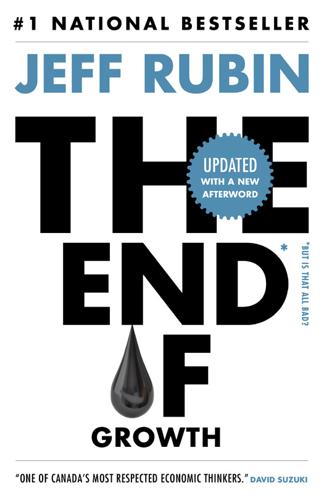
The End of Growth
by
Jeff Rubin
Published 2 Sep 2013
Today’s interconnected financial market gives everyone exposure to everyone else. Will taxpayers be asked to finance another massive bank bailout? Will protest movements such as Occupy Wall Street morph into a broader-based political opposition that will demand far more in return for the next round of bailouts than the free ride the banks got the last time around? The Occupy movement has been dismissed by the conservative establishment as mere fringe groups of young people camping in city parks. But what if they’re simply the most vocal representation of a deeper current of dissatisfaction among citizens? Could other changes be on the way? The financial industry is overdue for a deep structural overhaul that will help to eliminate some of the conflicts of interest that led to the 2008 financial crisis.
…
If conservation and sustainability become the watchwords for a new generation of eco-conscious adults, maybe keeping up with the Joneses will mean building a rooftop garden or installing solar panels in your backyard. A Rolex watch, to pick another example, has long been a token of wealth and status, but there’s no reason that can’t change. Judging by the protesters in the Occupy movement, a significant segment of our society has lost faith in the merits of unregulated capitalism. To them, a Rolex isn’t a sign that the wearer is an investment banker worthy of respect. Instead, it signals that the person who owns it may be about to break another securities law or make millions engineering a Ponzi scheme that will bilk suckers out of their life savings.
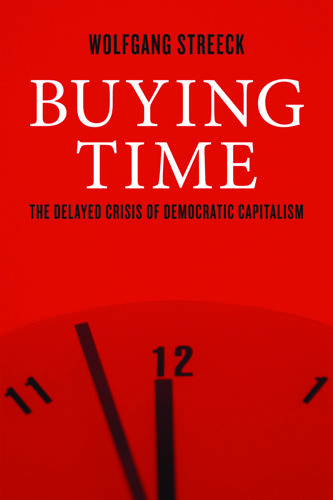
Buying Time: The Delayed Crisis of Democratic Capitalism
by
Wolfgang Streeck
Published 1 Jan 2013
That the crisis might lead to ‘social unrest’ is a constant nightmare for the men and women at the helm, even though what has been seen on the streets up to now bears little relation to it. Apparently the ruling class has not yet totally forgotten the events of 1968 in Paris or Turin, and in this respect the occasional street battles in Athens or the global ‘Occupy’ movement of the ‘99 per cent’ marked a good beginning. A lot can be learned from the excessive reaction of banks and governments, or from the sense of horror aroused by movements such as Occupy, tiny as they are. The idea that ‘the markets’ should adapt to the people, not vice versa, is nowadays thought of as outright crazy – and indeed it is so if the world is taken as it is.
…
See solidarity, national national sovereignty, 2.1 passim, 3.1, 3.2, 3.3, 3.4, 4.1n23, 4.2 passim; curtailment/surrender of, 2.2, 2.3, 2.4, 3.5n14, 3.6, 3.7, 3.8 passim, 3.9, 3.10n91, 3.11 NATO neo-Protestantism, 1.1, 3.1 Netherlands, 2.1, 3.1, 3.2, 4.1 Neue Länder. See Germany: Neue Länder Nobel Prize in Economics Norquist, Grover North Atlantic Treaty Organization. See NATO nuclear energy Obama, Barack Occupy movement O’Connor, James, 1.1, 2.1n38, 2.2, 2.3 Offe, Claus offshoring oil, itr.1, 1.1, 2.1n8, 2.2 Organisation for Economic Co-operation (OECD), 1.1, 3.1 ownership, private panic, 1.1, 2.1n68, 3.1 Papademos, Lukas, 3.1, 3.2, 4.1 Papandreou, George Papanikolaou, Spyros pay, 1.1 passim, 1.2, 2.1, 2.2, 2.3n40, 2.4, 3.1, 4.1; deferred; EU, 3.3, 3.4; expectations; of public workers; relationship to devaluation of currency; relationship to productivity/production profits, 1.5n76, 3.5; ‘reservation wage’, 2.5n54; by results; of Sicilian politicians; subsidies, 3.7.
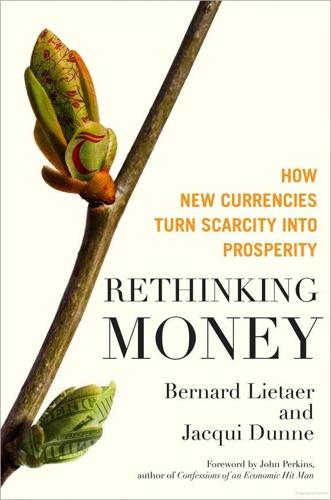
Rethinking Money: How New Currencies Turn Scarcity Into Prosperity
by
Bernard Lietaer
and
Jacqui Dunne
Published 4 Feb 2013
It has to be the spirit, the culture, the dance, the music, the generosity of people Rethinking Money 223 toward each other, and I think this is happening because of the rise of the women to full partnership with men in the whole domain of human affairs with a new emphasis on process rather than on product, on making things grow, cohere, relate. This is already the biggest shift, I think, in human sensibility.” She continues: “Take the fact that the Arab Spring, whatever happens with it, became the basis of the Occupy Movement, and what has happened there, the end of which we neither have seen nor can imagine. And it will end up in many movements, leading us into a deeper exploration and communication of the steps toward radical democracy and the gradual arising of a world civilization with high individuation of culture.
…
See Banjar Nazi Party, 180 Network structure, 32– 33 Newtonian physics, 29– 31 Nigeria, 42– 43 Nobel Prize in Economics, 35– 36 Nongovernmental organization (NGO), 56, 59, 73–74, 93; in Blaengarw, 159–161; competition among, 162; in Japan, 167; in principled society, 193 Nonmarket economy, 34 Nonprofit. See Nongovernmental organization NU-card, 186 Nyanza, 207–209 Obsolescence, 15 Occupy Movement, 223 Oil, 137–138 Oil spill, 211 257 Ooin, 186 OPEC nations, 113–114 Open source software, 123 Operational cost, 139, 140 Overcrowding, 164 Overdraft, 39 Panda, 32– 33 Papelitos, 183–184 Paper money, 25–26, 114, 152–153, 184–185 Paradigm: competition, 215–216; in education, 220–221 Pareto distribution, 68 Paris Club, 43 Patch Adams Free Clinic, 164–165 Patriarchy, 15 Pay-it-forward system, 83, 85 PayPal, 115–116 Pemaksan, 187 Performance bonus, 50 Pis bolong, 189 Pollution, 141 Poverty trap, 108 Prestige, 64 Principled society, 193–194 Privacy, 48 Private international scrip, 74, 199, 200 Private public partnership (PPP), 20–21 Privatization, 1, 20–21 Production loan, 104–105, 107 Profit-neutral investment system, 193–194 Prohibition, 157 Prostitution, 20, 184, 227n19 Prosumidores, 183–184 Psychiatry, 17, 34 Public good, 49 Publicity, 111–112 Public transport, 141–143, 152 Punishment, 197 Puntos, 125 Puntotransacciones, 125 Qoin, 93, 123, 150 Quality of life, 143 QuipShare, 77–78 258 INDEX Racial violence, 83 Randomness, 31– 32 Rationalism, 217; Age of Enlightenment, 15, 29– 30; markets as, 4 Real estate, 110–111 Realism, 30 Recession, 2, 50, 78–79 Recidivism, 83– 84 Reciprocity, 47– 49, 82, 171–172 Recirculation, 129–130 Reconstruction Finance Corporation, 181 Reconstruction multiplier, 170 Recycling, 142, 234n1 Red Cross, 83 Red Global de Trueque, 182–183 Redistribution, 217 Reference currency, 140, 199, 200 Reforestation, 67, 206, 207 Regio, 85– 89 Regional currency, 5, 75, 85– 87; criteria for, 191; in monetary ecosystem, 199, 201 Reichsbank, 179–180 Reichsmark, 176, 236n5 Relief money.
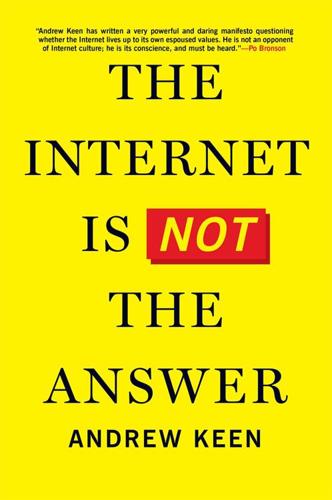
The Internet Is Not the Answer
by
Andrew Keen
Published 5 Jan 2015
As a 2014 Pew Report showed, 90% of Americans think that the Web has been good for them personally—with 76% believing it has been good for society.21 It is true that most of the personal lives of the estimated 3 billion Internet users (more than 40% of the world’s population) have been radically transformed by the incredible convenience of email, social media, e-commerce, and mobile apps. Yes, we all rely on and even love our ever-shrinking and increasingly powerful mobile communications devices. It is true that the Internet has played an important and generally positive role in popular political movements around the world—such as the Occupy movement in the United States, or the network-driven reform movements in Russia, Turkey, Egypt, and Brazil. Yes, the Internet—from Wikipedia to Twitter to Google to the excellent websites of professionally curated newspapers like the New York Times and the Guardian—can, if used critically, be a source of great enlightenment.
…
The letter was a defense of Silicon Valley’s technological elite—the venture capitalists, entrepreneurs, programmers, and Internet executives of KPCB-backed local Internet companies like Google, Twitter, and Facebook, identified by Perkins as “the successful one percent.”3 It turned out to be the most commented upon letter ever published in the Journal, sparking an intense debate about the nature of the new digital economy. “From the Occupy movement to the demonization of the rich embedded in virtually every word of our local newspaper, the San Francisco Chronicle, I perceive a rising tide of hatred of the successful one percent. This is a very dangerous drift in our American thinking. Kristallnacht was unthinkable in 1930; is its descendant ‘progressive’ radicalism unthinkable now?
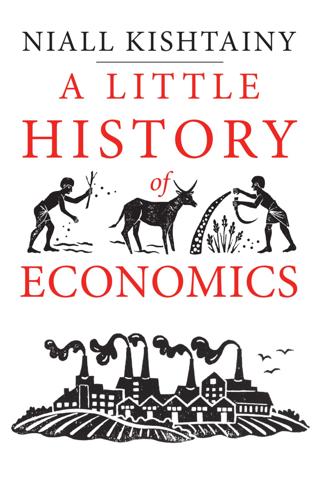
A Little History of Economics
by
Niall Kishtainy
Published 15 Jan 2017
Since then, the rich have made faster gains than the rest: in the 1970s, America’s top 1 per cent of earners earned less than a tenth of the nation’s income. By the first decade of the twenty-first century, it earned around a fifth. Many people worry that inequality has become too pronounced. In the last few years, the Occupy movement protested against the rapid growth of the tallest giants, the so-called ‘1 per cent’ of top earners. In major cities protestors camped out and set up makeshift universities where people debated the reasons for increasing inequality and what could be done about it. Economics professors joined the debate.
…
(i), (ii) Kerala (India) (i) Keynes, John Maynard (i), (ii), (iii), (iv), (v), (vi) Keynesian theory (i), (ii), (iii) Klemperer, Paul (i) Krugman, Paul (i), (ii) Kydland, Finn (i), (ii) labour (i) in ancient Greece (i) and market clearing (i) women as unpaid (i) labour theory of value (i), (ii) laissez-faire (i) landowners (i), (ii), (iii) Lange, Oskar (i) law of demand (i), (ii) leakage of spending (i) Lehman Brothers (i) leisure class (i) leisured, women as (i) Lenin, Vladimir Ilyich (i), (ii) Lerner, Abba (i) Lewis, Arthur (i) Lincoln, Abraham (i) List, Friedrich (i) loss aversion (i) Lucas, Robert (i), (ii) MacKay, Charles (i) Macmillan, Harold (i) macro/microeconomics (i) Malaysia, and speculators (i) Malthus, Thomas (i), (ii), (iii) Malynes, Gerard de (i), (ii) manufacturing (i), (ii) division of labour (i) see also Industrial Revolution margin (i) marginal costs (i), (ii) marginal principle (i), (ii), (iii) marginal revenue (i) marginal utility (i), (ii) market, the (i) market clearing (i) market design (i) market failure (i), (ii), (iii), (iv) ‘Market for Lemons, The’ (Akerlof) (i) market power (i) markets, currency (i), (ii) Marshall, Alfred (i), (ii), (iii), (iv), (v) Marx, Karl (i), (ii), (iii), (iv), (v), (vi), (vii) Marxism (i) mathematics (i), (ii), (iii) means of production (i) mercantilism (i), (ii) Mesopotamia (i) Mexico, pegged currency (i) micro/macroeconomics (i) Microsoft (i) Midas fallacy (i) minimum wage (i) Minsky, Hyman (i) Minsky moment (i), (ii) Mirabeau, Marquis de (i), (ii), (iii) Mises, Ludwig von (i), (ii), (iii), (iv) mixed economies (i), (ii) Mobutu Sese Seko (i) model villages (i) models (economic) (i), (ii), (iii), (iv) modern and traditional economies (i), (ii) monetarism (i) monetary policy (i), (ii) money (i), (ii), (iii), (iv), (v), (vi) see also coins; currency money illusion (i) money wages (i) moneylending see usury monopolies (i), (ii) monopolistic competition (i), (ii) monopoly, theory of (i) monopoly capitalism (i), (ii), (iii) monopsony (i) moral hazard (i), (ii) multiplier (i) Mun, Thomas (i), (ii), (iii) Muth, John (i) Nash, John (i), (ii) Nash equilibrium (i) national income (i), (ii), (iii), (iv), (v) National System of Political Economy (List) (i) Nelson, Julie (i) neoclassical economics (i) net product (i) Neumann, John von (i) New Christianity, The (Saint-Simon) (i) new classical economics (i) New Harmony (Indiana) (i) New Lanark (Scotland) (i) Nkrumah, Kwame (i), (ii) non-rival good (i) Nordhaus, William (i), (ii) normative economics (i), (ii) Obstfeld, Maurice (i) Occupy movement (i) oligopolies (i) opportunity cost (i), (ii) organ transplant (i) output per person (i) Owen, Robert (i) paper money (i), (ii) Pareto, Vilfredo (i) pareto efficiency (i), (ii) pareto improvement (i) Park Chung-hee (i) partial equilibrium (i) pegged exchange rate (i) perfect competition (i), (ii), (iii), (iv), (v) perfect information (i) periphery (i) phalansteries (i) Phillips, Bill (i) Phillips curve (i), (ii), (iii), (iv), (v), (vi), (vii) physiocracy (i), (ii) Pigou, Arthur Cecil (i), (ii), (iii) Piketty, Thomas (i), (ii), (iii) Plato (i), (ii), (iii) policy discretion (i) Ponzi, Charles (i) Ponzi finance (i) population and food supply (i), (ii), (iii) of women (i) positive economics (i) poverty (i), (ii), (iii), (iv), (v) in Cuba (i) Sen on (i) and utopian thinkers (i) Prebisch, Raúl (i) predicting (i) Prescott, Edward (i), (ii) price wars (i), (ii) primary products (i) prisoners’ dilemma (i) private costs and benefits (i) privatisation (i) productivity (i), (ii), (iii) profit (i), (ii), (iii), (iv) and capitalism (i), (ii) proletariat (i), (ii) property (private) (i), (ii), (iii), (iv), (v) and communism (i), (ii), (iii), (iv) protection (i), (ii), (iii) provisioning (i) public choice theory (i) public goods (i) quantity theory of money (i) Quesnay, François (i) Quincey, Thomas de (i), (ii) racism (i) Rand, Ayn (i) RAND Corporation (i), (ii) rate of return (i), (ii) rational economic man (i), (ii), (iii), (iv), (v) rational expectations (i), (ii), (iii), (iv), (v) real wages (i), (ii), (iii) recession (i) and governments (i), (ii), (iii) Great Recession (i) Keynes on (i), (ii) Mexican (i) redistribution of wealth (i) reference points (i) relative poverty (i) rent on land (i), (ii), (iii) rents/rent-seeking (i) resources (i), (ii) revolution (i), (ii), (iii), (iv) Cuban (i) French (i), (ii), (iii), (iv) Russian (i), (ii) Ricardo, David (i), (ii), (iii) risk aversion (i) Road to Serfdom, The (Hayek) (i) robber barons (i) Robbins, Lionel (i) Robinson, Joan (i) Roman Empire (i) Romer, Paul (i) Rosenstein-Rodan, Paul (i) Roth, Alvin (i), (ii) rule by nature (i) rules of the game (i) Sachs, Jeffrey (i) Saint-Simon, Henri de (i) Samuelson, Paul (i), (ii) savings (i), (ii) and Say’s Law (i) Say’s Law (i) scarcity (i), (ii), (iii), (iv), (v), (vi) Schumpeter, Joseph (i), (ii) sealed bid auction (i) second price auction (i) Second World War (i) securitisation (i) self-fulfilling crises (i) self-interest (i) Sen, Amartya (i), (ii) missing women (i), (ii), (iii) services (i) shading bids (i), (ii) shares (i), (ii), (iii), (iv), (v), (vi) see also stock market Shiller, Robert (i), (ii) signalling (i) in auctions (i) Smith, Adam (i), (ii), (iii), (iv), (v) social costs and benefits (i) Social Insurance and Allied Services (Beveridge) (i) social security (i), (ii) socialism (i), (ii), (iii), (iv), (v) socialist commonwealth (i) Socrates (i) Solow, Robert (i) Soros, George (i), (ii), (iii) South Africa, war with Britain (i) South Korea, and the big push (i) Soviet Union and America (i) and communism (i), (ii) speculation (i) speculative lending (i) Spence, Michael (i) spending government (fiscal policy) (i), (ii), (iii), (iv), (v), (vi), (vii) and recessions (i), (ii) and Say’s Law (i) see also investment stagflation (i), (ii) Stalin, Joseph (i) standard economics (i), (ii), (iii), (iv) Standard Oil (i) Stiglitz, Joseph (i) stock (i) stock market (i), (ii), (iii), (iv), (v) stockbrokers (i) Strassmann, Diana (i), (ii) strategic interaction (i), (ii) strikes (i) subprime loans (i) subsidies (i), (ii) subsistence (i) sumptuary laws (i) supply curve (i) supply and demand (i), (ii), (iii), (iv) and currencies (i) and equilibrium (i), (ii) in recession (i), (ii), (iii) supply-side economics (i) surplus value (i), (ii) Swan, Trevor (i) tariff (i) taxes/taxation (i) and budget deficit (i) carbon (i) and carbon emissions (i) and France (i) and public goods (i) redistribution of wealth (i) and rent-seeking (i) technology as endogenous/exogenous (i) and growth (i) and living standards (i) terms of trade (i) Thailand (i) Thaler, Richard (i) theory (i) Theory of the Leisure Class, The (Veblen) (i) Theory of Monopolistic Competition (Chamberlain) (i) Thompson, William Hale ‘Big Bill’ (i) threat (i) time inconsistency (i), (ii) time intensity (i) Tocqueville, Alexis de (i) totalitarianism (i) trade (i), (ii), (iii) and dependency theory (i) free (i), (ii), (iii) trading permit, carbon (i) traditional and modern economies (i), (ii) transplant, organ (i) Treatise of the Canker of England’s Common Wealth, A (Malynes) (i) Tversky, Amos (i), (ii) underdeveloped countries (i) unemployment in Britain (i) and the government (i) and the Great Depression (i) and information economics (i) and Keynes (i) and market clearing (i) and recession (i) unions (i), (ii) United States of America and free trade (i) and growth of government (i) industrialisation (i) and Latin America (i) Microsoft (i) recession (i), (ii) and the Soviet Union (i) and Standard Oil (i) stock market (i) wealth in (i) women in the labour force (i) unpaid labour, and women (i) usury (i), (ii), (iii) utility (i), (ii), (iii), (iv) utopian thinkers (i), (ii) Vanderbilt, Cornelius (i), (ii) Veblen, Thorstein (i), (ii), (iii) velocity of circulation (i), (ii) Vickrey, William (i) wage, minimum (i) Walras, Léon (i) Waring, Marilyn (i) wealth (i) and Aristotle (i), (ii) and Christianity (i) Piketty on (i) and Plato (i) Smith on (i) Wealth of Nations, The (Smith) (i), (ii) welfare benefits (i), (ii), (iii), (iv) welfare economics (i) Who Pays for the Kids?
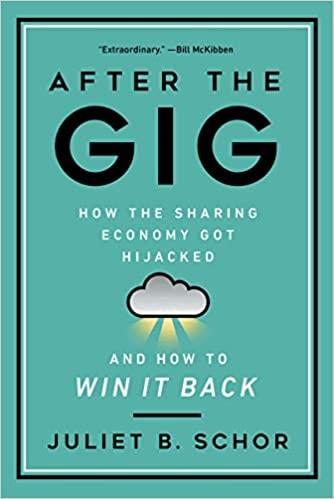
After the Gig: How the Sharing Economy Got Hijacked and How to Win It Back
by
Juliet Schor
,
William Attwood-Charles
and
Mehmet Cansoy
Published 15 Mar 2020
That debacle caused a loss of faith in work, the economy, and the political system, especially among the young people whose futures it put in jeopardy. By 2011 a majority of eighteen- to twenty-nine-year-olds surveyed said they preferred socialism to capitalism.7 Protests erupted around the world, including the Occupy movement in the U.S. They targeted the elites who were fueling extreme inequality. Given widespread skepticism of state-based solutions, sharing seemed a viable alternative. Leah, a special education teacher, yoga instructor, and Airbnb host and guest, explicitly linked the growth of the sharing economy to this agitation: “The whole Occupy Wall Street movement, and people identifying as being the 99 percent and not wanting to just support that 1 percent.
…
See also dependent earners Lyft, 2, 11, 25, 151; carbon offsetting, 118; drivers’ share, 75; lobbying, 157; losses, 35; LyftLine, 108, 118; as sharing economy platform, 193; and social connection, 114; traffic congestion, 117 makerspace, 125–27, 136–41, 192 manual labor, 97, 100 manufacturing, 3 Marco, 129 Margaret, 28–29 Mark, 19–20, 87–88, 109, 120 Mark (II), 140 market dominance, 150–52 market failures, 155 market manipulation, 159 market populism, 23 Massachusetts, 15 McDonaldization, 80 McLaren, Duncan, 13 Mei, 129–30 Melissa, 144 Mesh, The, 12 Micah, 131 Michelle, 131, 138–39 microwork, 192 middle-class earnings, 109–10 Mike, 69 misclassification, 47, 71 Mitch, 33, 46, 61, 76 Molly, 130 money, 193–94 monopolistic platforms, 151, 158 MOOCs, 126 Mootch, 34 municipal policy, 171–74 Naomi, 130 Natasha, 30, 54 Neighborgoods, 35 Neighborhood Fruit, 125 Netherlands, 153 network effects, 32–33 New Communalists, 22–23, 147 New Left, 22 New York City, 102, 105–7, 160–61, 173 Nicki, 100–101 Nike, 33 Noble, David, 67 nonfunctional making, 139–40, 142 nonprofit cases: demographic data, 187; food swap, 179–80; makerspace, 179; open learning, 180; time bank, 178–79 nonprofits, 16–17, 30, 123–24, 147. See also community sharing; platform cooperatives Northeastern Food Swap, 122–23 NursesCan, 170 Occupy movement, 7 Odesk, 41 Off-Axis Circuit, 170 offshore production, 33 Olio, 8, 119 Omidyar, Pierre, 38 Omidyar Foundation, 38 on-demand economy, 191 Open Learning, 125–27, 192 open-source software, 24, 164 Orsi, Janelle, 168 Ostrom, Eleanor, 163 Ouishare, 191 Ours to Hack and Own, 13 outsourcing, 33, 131 ownership, common, 163, 169 Parigi, Paolo, 112 Parrott, James, 190 Pasquale, Frank, 66 Patricia (Pat), 128, 141, 145 Peerby, 35 peer production, 24, 164 Peers, 37, 39 Peers, Inc., 12 peer-to-peer (P2P) structure, 26, 111–14, 191–93 Peer-to-Peer University, 126 personalized exchange, 28–29 person-to-person discrimination, 86–90 person-to-person economy, 1–2, 31–32 Peter, 29 photographers, 164–67 Phuong, 64–66, 99–100 Pishevar, Shervan, 37 platform capitalism, 13, 30, 150–52 Platform Capitalism, 13 platform cooperatives.
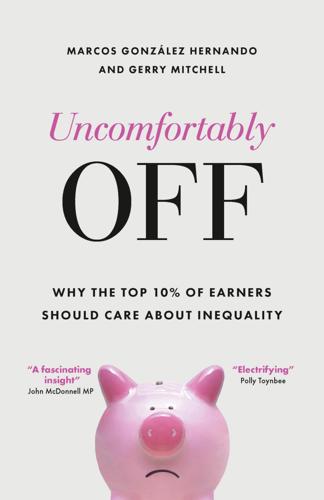
Uncomfortably Off: Why the Top 10% of Earners Should Care About Inequality
by
Marcos González Hernando
and
Gerry Mitchell
Published 23 May 2023
We hope to convince people like Rob Barber that marginal income tax rises over £80,000 would not only sustain the quality of life that they have come to expect but would even improve their lives, their children’s and those of the majority in the communities in which they live. There’s a reason, after all, why the famous Occupy movement slogan makes reference to ‘the 99%’, not ‘the 90%’. 182 Conclusion: Accepted truths, social distance and discomfort To start with, high-income earners don’t know that their incomes are high. They don’t think they are rich and have little idea of where they fit on the income distribution. Although they feel relatively comfortable and privileged, they worry about downward mobility, especially for their children.
…
A abortion, top 10% attitudes towards 6, 16 academics/academia 5, 9–10, 54 knowledge production and enabling of the wealthy 132–3 acceleration, of the pace of life 128–9 accountancy firms 67, 68, 108, 109, 126 accumulation 135–6 Advani, A. 179, 180 affluence 22, 144, 162, 180 see also top 1%; top 10%; wealth age profile of the top 10% 8 agency 49 Alamillo-Martinez, Laura 73 Amazon 180 Ambler, L. 132–3 anti-elitism 12, 46, 96 anxiety 72, 130, 150 and status 135, 165 see also mental health ‘anywheres’ 96 ascriptive identities 153 attitudes to cultural issues 42, 84 to economic issues 6, 8, 11, 16, 18–19, 42, 42, 77, 92–3, 161–4 to political issues 8, 16–17, 42, 76–99 to social issues 6, 8, 16, 18–19, 42, 65–71, 77, 92, 92–3, 161–3, 164–6 austerity policies 10, 11, 13, 16, 76, 78–9, 105, 115–16, 169–70 automation 79, 158, 160 B Bangladeshi ethnicity, in the top 10% 30 Bank of England 78, 105, 164, 175 ‘bank of mum and dad’ 29, 111 Barber, Rob 1, 2, 4, 181 Barclay family 121 BBC 11 Beck, U. 64 Bell, Torsten 2, 6 Berman, Y. 34 Berry, C. 82 Bezos, Jeff 144 Biden, Joe 142 Big Four accountancy firms 67, 68 see also accountancy firms Bill of Rights 121 Bitcoin 143 Black African/British/Caribbean ethnicity, in the top 10% 30 Black Lives Matter 113 Black Report 1977 115 Blair, Tony 9, 84, 185 Blakeley, Grace 139, 176 Bolsonaro, Jair 96, 98 ‘boundary work’ of elites 45 Bourdieu, Pierre 40 Brahmins 38, 41–2, 43, 44, 45, 46, 47, 50, 51, 59, 61, 68, 73, 74–5, 84, 96, 167, 185 ‘brain drain’ 124 see also mobility Brexit 11, 16, 76, 80, 86–7, 97, 101–2, 125 Brown, Gordon 175 Bullough, Oliver 113–14 bunkers 130, 131, 144, 187 Burgon, Richard 1, 3, 6 business support schemes, COVID-19 pandemic 15, 104, 126–7, 140, 151 C Cambridge University 28–9, 119 Cameron, David 84 capital, income from 33–4 capital flight 124 capital tax, global 180 car ownership 153 carbon emissions 54, 114–15, 135, 143, 145, 171, 172, 178 see also climate change 236 Index care see social care Centre for Economic Performance 163 Chancel, L. 176–7 charitable donations 70–1 charitable sector 132 child poverty 170 see also poverty children of the top 10% 27, 35–6, 100–1, 109, 111–12, 183–4, 186 ‘bank of mum and dad’ 29, 111 childcare costs 135–6 downward social mobility 31–2, 162 social reproduction 135–7 US 57 Chinese ethnicity, in the top 10% 30 class 39–40 cultural signifiers of 39, 40–1 ‘death of ’ 39 and education 40–1, 46, 51, 58–9 inherited nature of 148 middle class 33, 39, 40, 133, 136, 148 and social mobility 57–8 terminology of 38–9 upper class 38–9, 133 upper-middle class 4, 16, 27, 31–2, 38–54, 39 (see also top 10%) working class 24, 39, 57, 101–2, 148 climate change 54, 100, 101, 114–15, 125, 135, 141, 171–2 carbon emissions 54, 114–15, 135, 143, 145, 171, 172, 178 need for collective action on 122–3 net zero 174, 176–7 coalition government (Conservative/ Liberal Democrat) 78 collective denial 139–42 common sense 11, 19, 74, 89, 90, 108, 126, 130, 147 community gender and community involvement 70 top 10%’s lack of awareness of/ involvement in 45–6, 49–50, 127–31, 131, 150–1, 154–7, 164–6 ‘compensatory consumption’ 129, 134 Conservative Party/Conservatives 3, 16, 53, 76–7, 84, 85, 88, 97, 99, 120, 179 leadership election, 2022 39 taxation policy 3, 53 traditional supporters 44 consumption 152–4, 169, 171, 178 ‘compensatory consumption’ 129, 134 environmental impact of 135 luxury consumption, and climate change 114–15 Corbyn, Jeremy 11, 16, 80, 84, 85, 87, 96, 97 corporate governance 174 corporate responsibility 70–1 corporate sector 46, 51, 59, 64, 65–6, 67–8, 71, 88–9, 108, 128, 153 corporation tax 105–6, 113, 180 cost of living crisis 14, 52, 76, 101, 104, 106, 127, 177–8 council tax 110, 180 COVID-19 pandemic 13, 15, 72–3, 103–4, 116, 126, 134, 142, 144, 151 furlough and business support schemes 15, 104, 126–7, 128, 140, 151 political impact of 87–8 Coyle, Diane 145 crises cost of living crisis 14, 52, 76, 101, 104, 106, 127, 177–8 of democracy 119–21 global financial crisis, 2008 31, 77–9, 126, 140 cryptocurrencies 143–4 cultural attitudes of the top 10% 42, 84 cultural capital 40, 41, 46, 51 cuts, in public services 78–9, 105, 117, 170 D deindustrialisation 28 democracy crisis of 119–21 erosion of 76, 81–2 demographic profile of the top 10% 8 depression 130, 150 see also mental health ‘deserving’, the 23, 57, 74 see also ‘undeserving’, the disability and social mobility 58 welfare benefits 78, 79, 175 Disability Rights UK 175 diversity and inclusion targets 57 domestic work see unpaid work Dorling, Danny 35, 146–7, 156, 183 downward orientation 35, 46, 47 downward social mobility 14, 36, 73, 136, 152, 162, 182 237 Uncomfortably Off children of the top 10% 31–2, 162 income and status insecurity 51–2 Dubai 133 Durose, Oly 39–40 E Earth4All 177 economy economic attitudes of the top 10% 6, 8, 11, 16, 18–19, 42, 42, 77, 92–3, 161–4 economic common sense 89, 90 GDP, as indicator of success 176 Economy 2030 Enquiry 109 EDF 106 Edmiston, Daniel 49 education and class 40–1, 46, 51, 58–9 inequalities 17, 100–1, 117–19, 136 Ofsted ratings and league tables 137 and political attitudes 41, 42 and social capital 60 and social mobility 58–60, 147–8 state education 36, 60, 119, 136, 137, 148, 170 see also higher education; private education Ehrenreich, Barbara 152 Elections Bill 2021 120 Electoral Calculus 173 Electoral Commission 120 electoral system reform 172–3 Eliasoph, Nina 81 elites 39, 44–5, 77 anti-elitism 12, 96 employment 151 blue-collar 28 good jobs 55–61 hard work 48, 50, 61–73, 162 impact on society of 65–71 inequalities 17, 100, 107–9 low-wage work 62, 127 precarity 61, 107–9 presenteeism 64 public sector 109 and purpose 66–7, 71, 75, 162 and self-respect 55–6 and status 55–7, 68, 74 structural labour market change 27–8, 158 top 10% 6, 16, 24, 25, 26–8, 55–75 total British employed 2 white-collar 28 work-life balance 18, 171 workplace reform 71–2 see also unpaid work energy costs 101, 104, 105–7, 175 energy industry privatisation of 177–8 windfall taxes 177 environmental issues 54, 161 carbon emissions 54, 114–15, 135, 143, 145, 171, 172, 178 net zero 174, 176–7 equality of opportunity 57, 153 equality of outcome 57 ESS (European Social Survey) 89, 92 ethnicity see race and ethnic origin Eton College 26, 119 EU-SILC (European Union Statistics on Living Conditions) 24, 28, 29–30, 32, 33 Eurofound 27–8, 36–7 European Convention on Human Rights 121 European Social Survey (ESS) 89, 92 European Union Statistics on Living Conditions (EU-SILC) 24, 28, 29–30, 32, 33 experts, anti-elitist attitudes towards 12 Extinction Rebellion 84 ‘extraction capitalism’ 112 F Farage, Nigel 96 ‘fear of falling’ 152, 182 see also downward social mobility feminism 56 financial sector 51–2, 88–9 food food banks 93, 175 ‘right to’ 178 foreign policy, top 10% attitudes towards 6, 42 formal work see employment ‘fortification mentality’ 134–5 Frank, Robert H. 48 Friedman, Sam 27, 29, 31, 40, 57 furlough scheme, COVID-19 pandemic 15, 104, 128, 140, 151 G Gallup Poll, US 22, 26 Gates, Bill 144 GDP, as indicator of success 176 gender gender profile of the top 10% 8, 29–30 inclusivity 152–3 social mobility 57–8 general election, 2019 1, 76, 97, 120, 173 Generation Z 17, 100, 118 gentrification 133–4 238 Index Germany 159, 169 Gethin, Stephen 121 Ghosh, J. 132–3 Giddens, A. 64 Gilens, Martin 42–3 gilets jaunes (yellow vest) movement, France 115 global financial crisis, 2008 31, 77–9, 126, 140 global warming see climate change globalisation 39 offshoring 79, 109, 158 Good Friday Agreement 121 good jobs 55–61 see also employment Goodhart, David 96–7 Gove, Michael 84 government debt 140 government employees, as members of the top 10% 5 government spending 169–70 see also public services; welfare state Graeber, David 46, 66, 75, 129, 157 Great British Class Survey 2013 39 Green, Duncan 184 Green New Deal 176 Green Party 87, 120, 178 Guinan, J. 82 H House of Commons Committee for Business, Energy and Industrial Strategy 107 household debt 152 housing 52 and climate change 114 house prices 33 housing costs 110, 111 inequalities 17, 100, 107–9, 133–4 insulation grants 176 mortgages 33, 52, 106, 110 and state education 137 see also home ownership; homelessness human rights 121 Human Rights Act 1998 121 I Haldane, Andy 164 hard work 48, 50, 61–73, 162 HC-One 107 healthcare 144, 168 inequalities 112–14, 138, 139 NHS 91, 94, 116, 137, 138, 170 private healthcare 116, 137, 140, 159, 167–8, 182 Hecht, Katharina 62 higher education 30–1, 58, 136, 147–8, 183 elite 17, 26, 28–9, 73, 74, 100 and employment 57, 61 inequalities 17, 100, 117–19 mental health issues 73 post-1992 28 and social capital 118 student debt 37 US 57, 74 Hills, John 168 HMRC, income survey 5–6 hoarding 135–6, 144 home ownership 33, 52, 110, 111 see also housing homelessness 93 see also housing immigration, top 10% attitudes towards 6, 16, 42, 43 income distribution 133, 168 misconceptions around 1–4 Palma ratio 22–3 UK breakdown, 2019/20 7 income from capital 33–4 income tax 178–9, 181 Indian ethnicity, in the top 10% 30 inequalities 53, 77–8, 92–3, 100–23, 129–30, 153–4, 165–6, 183 and the COVID-19 pandemic 127 and education 17, 100–1, 117–19, 136 and employment 17, 100, 107–9 global 177 growth of 14, 32–3 healthcare 112–14, 138, 139 higher education 17, 100, 117–19 housing 17, 100, 107–9, 133–4 intergenerational 14, 17, 100, 109, 111–12, 117–18 labour market 60–1 and politics 87 private sector responsibility 69–71 and the top 10% 8, 17, 101–23 and the ‘undeserving’ 148–50 inflation 101, 105 Inflation Reduction Act 2022, US 169 informal work 56–7 inheritance, and housing inequality 111 Institute for Fiscal Studies 26, 105 Institute for Government 104 insulation 125–7, 130, 144 interdependence 175–6 Intergenerational Commission 118 intergenerational inequalities 14, 17, 100, 109, 111–12, 117–18 International Labour Organization 56 interview panels 40 239 Uncomfortably Off IPCC (Intergovernmental Panel on Climate Change) 114 Ireland 5, 13, 33, 155 isolation 127–31, 131, 144, 150–1 Ivy League universities, US 57 J jobs see employment Johnson, Boris 11, 26, 76, 84, 87, 97, 119, 121 Johnson, Paul 105 Jones, Owen 133, 148 K Kawachi, I. 116–17 key workers 127, 144, 150, 165 Khan, Shamus 152–3 King’s Fund 138 Kwarteng, Kwasi 3, 105 L labour market 60–1, 79–80 Labour Party/ Labour 1, 2, 44, 76, 80, 82–3, 84, 85, 89, 120, 122, 180, 194 New Labour 9, 78, 85 Lamont, Michèle 44–5 land values 110 Lansley, Stewart 112, 114, 151 Laurison, Daniel 27, 29, 31, 40, 57 Lawson, Neal 154 Le Pen, Marine 96, 98 left, the and Brahmins 41 social attitudes of the top 10% 16, 4 2 LGBTQ+ people, top 10% attitudes towards 43 Liberal Democrat Party 76, 84, 85, 86, 102, 120 liberalism small-l liberalism 96, 98, 182 life expectancy 79, 115, 138 Lindner, Christian 169 living standards 23–4 see also cost of living crisis local government 81–3, 117 local politics 81, 82–3 low-wage work 62, 127 luck 48, 59, 61 luxury consumption, and climate change 114–15 Lynch, Mick 178 M Major, John 60 Make Votes Matter 84 management consultants 47, 59, 70, 86, 90, 108, 126, 130, 147 Mandler, Peter 148 manners elite 45 market failures 105–7, 141 marketisation 137–9 Markovits, D. 20 Marmot reports, 2010 and 2020 115–16, 117 Mason, Paul 142 May, Theresa 84, 87 Mazzucato, Mariana 173–4 mean-tested benefits 77, 93–4, 159 media control of 120 as members of the top 10% 5, 26 Members of Parliament (MPs) 5, 76 men community involvement 70 see also gender mental health anxiety 72, 130, 135, 150, 165 depression 130, 150 higher education 73 unequal societies 130 working hours reduction 171 Merchants 38, 41–2, 43, 45, 46, 47, 48, 50, 53, 61, 65, 68, 69, 72, 73, 88–9, 96, 98, 160, 162, 174 meritocracy 6, 11, 18, 19, 20, 39, 47, 58, 65, 68, 74, 100, 109, 111, 118, 146–9, 165, 170, 181, 184–5, 186 middle class 33, 39, 40, 133, 136, 148 Mijs, Jonathan 118, 155–6, 156–7 Milanovic, Branco 14, 34 Millennials 17, 100, 117, 118 minority rights, top 10% attitudes towards 6, 43 mobility 17–18, 124–5, 144, 148, 167 money, cultural taboos around 3 money elite 45 monopolies 140 and energy market failure 106–7 morals elite 45 mortgages 33, 52, 106, 110 MPs (Members of Parliament) 5, 76 multinational companies, taxation of 180 Murdoch, Rupert 120 N NatCen Social Research 24, 39 National Union of Rail, Maritime and Transport Workers 178 240 Index Nationality and Borders Bill 2021 120 neoliberalism 142 net zero 174, 176–7 networking 63 see also social capital New Labour see Labour Party/Labour NFTs (non-fungible tokens) 143–4 NHS 91, 94, 116, 137, 138, 170 Nietzsche, F. 46 Nixon, B. 82 Northern Ireland 121 O Obama, Barack 96 occupation see employment Occupy movement 181 OECD (Organisation for Economic Co-operation and Development) data 23, 31 Office for National Statistics (ONS) 24, 29 offshoring 79, 109, 158 Olson, Dan 144 online shopping, and the COVID-19 pandemic 134 online working see working from home ONS (Office for National Statistics) 24, 29 Organisation for Economic Cooperation and Development (OECD) data 23, 31 overwork 69, 75 see also working hours Oxford Brookes University 29 Oxford University 28–9, 119 P Pakistani ethnicity, in the top 10% 30 Palma ratio 22–3 Parra, Nicanor 32 Parsons, Tony 3 participation, political 80–5, 172–3 ‘partygate’ scandal 76 Paugam, Serge 49–50 pensions, state 138 performance management 72 Personal Independence Payment 79 PFIs (private finance initiatives) 139 Piketty, Thomas 5, 14, 31, 38, 41, 42, 113, 180 Polanski, Jack 178 polarisation, political 14, 85–6, 98, 102, 172 Policing Bill 2021 120 politicians, as members of the top 10% 5, 26 politics 76–99, 181 centre ground 85–8 contemporary context 77–80 party membership 82–3, 84 political change 184–5 political participation 80–5, 172–3 political polarisation 14, 85–6, 98, 102, 172 political reform 172–3 and trust 76, 82 populism 11, 14, 16, 76, 77, 98, 102 positionality of authors 8–11 poverty 59, 78, 93, 151, 174, 175 child poverty 170 and education 118 and the ‘undeserving’ 148–50 precarity, of employment 61, 107–9 presenteeism 64 private education 54, 118–19, 136, 137, 147–8, 159, 162, 167, 170, 182 school fees 26, 33, 35, 36, 37 and social capital 60, 118 see also education private finance initiatives (PFIs) 139 private healthcare 116, 137, 140, 159, 167–8, 182 see also healthcare private sector 19–20 corporate sector 46, 51, 59, 64, 65–6, 67–8, 71, 88–9, 108, 128, 153 financial sector 51–2, 88–9 insecurity in 109 involvement in public services 139, 170 raising expectations of 171 privatisation excess profits of privatised companies 101 of utility companies 177–8 professionals anti-elitist attitudes towards 12, 46, 96 professionals and managers 24, 25, 26–8, 39, 55 see also top 10% property tax 180–1 protest, right of 120 Protestant work ethic 50 public sector employment 109 public services 159, 173 cuts in 78–9, 105, 117, 170 destigmatisation of 170 and marketisation 137–8 private sector involvement in 139, 170 and the top 10% 8, 19, 56, 77, 91–2, 138–9, 140, 144, 159, 163, 166–8, 183 universal 56, 77, 93–5, 144, 159 241 Uncomfortably Off Putnam, Robert 81, 129, 157, 158 Q Question Time, BBC 1, 2, 181 R race and ethnic origin and inclusivity 152–3 and social mobility 58 of the top 10% 8, 30 Raworth, Kate 135 redistribution 139, 161, 163, 182 top 10% attitudes towards 6, 42, 42, 43, 77 Reed, Howard 151 Reich, Robert 141 relocation see mobility renewable energy 141 see also climate change; energy costs Resolution Foundation 2, 34, 112, 163 rich, the see top 1%; top 10% richness 47 right, the 16 and Brexit 102 centre right 89, 97 and control of the media 121 far right 15, 97–8 and Merchants 41 political attitudes of the top 10% 16, 42 rights and responsibilities 158–60 Rivera, Lauren 57, 119 Rosa, Hartmut 129 Rothermere, Lord 120 Russell Group universities 57 Russia-Ukraine war 76, 104, 105–6 S Saez, E. 31 Salvini, Matteo 98 same-sex marriage, top 10% attitudes towards 6, 16, 42 Sandbu, Martin 179 Sandel, Michael 142, 150–1 Sanders, Bernie 96 Savage, Mike 183 savings levels of the top 10% 36 school fees, private education 26, 33, 35, 36, 37 Schor, Juliet 171 Scotland, devolved government 121 Scottish Greens 121 Scottish National Party 121 self-respect, and employment 55–6 Sherman, Rachel 35, 45–6 Shrubsole, Guy 110 ‘sink’ schools 137 Sinn Féin 121 small-l liberalism 96, 98, 182 ‘smart’ working 64 social capital decline in 157–8 and private education 60, 118 social care 117 low pay of care workers 103 market failure in 107 Social Democratic Party of Germany, Programme for the Future 159 social media ‘echo chambers’ 128 social mobility 19, 28, 36, 57–9 downward 14, 36, 73, 136, 152, 162, 182 children of the top 10% 31–2, 162 income and status insecurity 51–2 and education 58–60 meritocracy 6 and networking 63 structural barriers to 62 upward 18, 36, 50, 64, 136 Social Mobility Commission 60 social reproduction 135–7 social security top 10% attitudes towards 77 see also welfare benefits; welfare state society, attitudes to impact of work on 65–71, 74–5 sociological imagination 13, 49, 128, 160 solidarity 94, 127, 142, 157, 158, 159, 170 ‘somewheres’ 96 Soper, Kate 74 Spain 5, 73, 149, 155, 169 stamp duty 110–11 Starmer, Keir 87 state, the 161 raising expectations of 173–6 top 10% attitudes towards 91–5, 92 state education 36, 60, 119, 136, 137, 148, 170 status and employment 55–7, 68, 74 status anxiety and insecurity 14, 51–2, 135, 165 Stevenson, Gary 15 stigma, and unemployment 56 Streib, Jessi 31–2 structure 49 student debt 37 suburbia 40 Summers, A. 179, 180 Sutton Trust 29 Sweden 5, 23, 155 242 Index T tactical voting 172–3 taxation 97, 161, 163, 164, 178–81, 182 corporation tax 105–6, 113, 180 council tax 110, 180 income tax 2, 105–6, 178–9, 181, 185 property tax 180–1 stamp duty 110–11 tax avoidance/evasion 178, 181 tax cuts 169 tax fraud 181 top 10% attitudes towards 8, 42, 43, 77, 88–91, 92 Truss government tax cuts 105–6 wealth tax 179 windfall taxes, energy industry 177 technology and acceleration of the pace of life 129 automation 79, 158, 160 Thatcher, Margaret 105, 180 third sector, as members of the top 10% 5 Thomas, Mark 120 top 1% 2, 4, 13, 14, 15, 32, 41, 52, 64, 65, 93, 126, 128, 162 and employment 58–9 enabling of 131–4 inequality in 155 top 10% 4–7, 8, 11–13, 18, 33 accumulation and hoarding 135–6, 144 and austerity policies 1, 11, 13, 16 barriers to sense of belonging 18, 146–60 collective denial 139–42 contradictory isolation of 53–4 cost of living pressures 14, 15 and the COVID-19 pandemic 13, 15, 18, 127 furlough and business support schemes 15, 104, 126–7, 128, 151 cultural attitudes 42, 84 demographic profile 8 economic attitudes 6, 8, 11, 16, 18–19, 42, 42, 77, 92–3, 161–4 education 28–9, 30–1 employment 6, 16, 24, 25, 26–8, 55–75 enabling the wealthy 131–4 future prospects for 34–7, 95–9, 98, 182-7 gender profile 8, 29–30 HMRC income data 5–6 income and status insecurity 14, 51–2 inequalities 8, 17, 101–23 insulation 125–7, 130, 144 internal diversity of 32 isolation/lack of awareness of others’ lives 45–6, 49–50, 127–31, 131, 150–1, 154–7, 164–6 location 8, 29 and marketisation 137–9 and meritocracy 6, 11, 18, 19, 20, 39, 47, 58, 65, 68, 74, 100, 109, 111, 118, 146–9, 165, 170, 181, 184–5, 186 mobility 17–18, 124–5, 144, 148 overview and profile of 13–15, 21–37, 154–5 perceptions of income distribution 38, 47–51 political attitudes 8, 16–17, 42, 76–99 political participation 80–5 political influence of 5, 11, 76 and public services 8, 19, 56, 77, 91–2, 138–9, 140, 144, 159, 163, 166–8, 183 qualitative analysis of 15–16, 38–54 race and ethnic origin 8, 30 response to social and economic pressures 17–18, 124–45 rights and responsibilities 158–60 and the role of the state 91–5, 92 savings levels 36 social attitudes 6, 8, 16, 18–19, 42, 65–71, 77, 92, 92–3, 161–3, 164–6 social reproduction 135–7 uncertainty and insecurity of 68–9 Törmälehto, Veli-Matti 36–7 Toynbee, P. 89 trade unions 165, 172 membership 72, 157, 158, 163 Trump, Donald 11, 47, 96, 97, 98 Truss, Liz 105, 141, 186 Trussell Trust 175 trust 130–1 and politics 76, 82 Trust for London 23–4 U UBI (Universal Basic Income) 160 UK devolved government 121 Palma ratio 23 UKIP 87 Ukraine-Russia war 76, 104, 105–6 ‘undeserving,’ the 23, 148–50, 163 see also ‘deserving’, the 243 Uncomfortably Off unemployment 56 welfare benefits 138 Universal Basic Income (UBI) 160 universal welfare benefits 93, 168 see also welfare benefits universal public services 56, 77, 93–5, 144, 159 see also public services universities/university education 30–1, 58, 136, 147–8, 183 elite 17, 26, 28–9, 73, 74, 100 and employment 57, 61 inequalities 17, 100, 117–19 mental health issues 73 post-1992 28 and social capital 118 student debt 37 US 57, 74 Unlock Democracy 83 unpaid work 56, 150, 175–6 upper class 38–9, 133 upper-middle class 4, 16, 27, 31–2, 38–54, 39 see also top 10% upward orientation 35, 45–6, 47, 50, 51 upward social mobility 18, 36, 50, 64, 136 US and the COVID-19 pandemic 141 downward social mobility 31–2 elitism in higher education 150–1 employment and social class 57 inequalities and social segregation 156–7 Inflation Reduction Act 2022 169 middle class 33 universities/university education 57, 74 utility companies, privatisation of 177–8 V volunteering 69, 70–1 W Walker, D. 89 water industry, privatisation of 178 wealth distribution of 142 enabling of the wealthy 131–4 historical accumulation of 113 inequalities 112–14 unequal distribution of 14 wealth tax 179 Weber, Max 50 welfare benefits 138, 159–60, 167–8 cuts in 78, 79, 169 increasing of in line with inflation, 2022 175 mean-tested 77, 93–4, 159 universal 93, 168 welfare state 167, 174 anti-welfare attitudes 42, 42–3 top 10% attitudes towards 42, 93–4 and the ‘undeserving’ 149–50 see also public services well-off, the social attitudes and perceptions of 21–2 see also top 1%; top 10% White ethnicity, in the top 10% 30 Whitmarsh, Lorraine 114 Whyte, William 55–6 Williams, Zoe 134, 178 women anti-exclusion policies 43 community involvement 70 gender pay gap 30 life expectancy, decrease in 115 and online working 64 top 10% 8, 29–30 trade union membership 72 unpaid work 56, 150, 175–6 working class, and employment 57 see also gender Woodward, A. 116–17 work hard work 55, 61–73 see also employment work-life balance 18, 171 working class 24, 39, 148 and Brexit 101–2 and employment 57 working from home 27, 64, 104, 126, 128, 165 working hours 64 reduction in 171 World Bank 47 World Inequality Database 13, 32, 54 Wren-Lewis, Simon 78–9, 90 Y yellow vest (gilets jaunes) movement, France 115 Young, Michael 184–5 Younge, Gary 181 Z Zahawi, Nadim 107 244
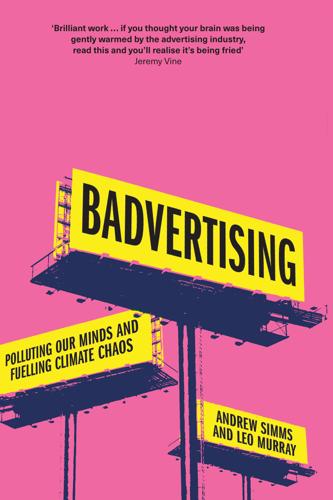
Badvertising
by
Andrew Simms
For the first time, many residents were able to see long-standing favelas, or slum-like neighbourhoods, that previously had been blocked from view by billboards. São Paulo’s City Hall says 474,000 new, affordable homes are still needed today in a city where about half a million families with an income up to about $1,500 per month are homeless. Occupy movements have become commonplace and some have successfully campaigned for access to land for public housing. It is also interesting as an illustration of the power of big brands and how they try to circumvent such bans, often with the support of business or city officials concerned about revenue loss.
…
Decaux Company 194 Jeep: advertisement 174ill Jeep Cherokee 111, 112−3, 119, 120, 123 Jenkin, Patrick 68 Jerez, Rodrigo de 57 Jet America airline 150 Johnson, Lyndon B. 111 Journal of Safety Research 115 Jowell, Tessa 76 Juniac, Alexandre de 142 junk food 8, 15 Kaldor, Nicholas 198 Karremans, Johan 23−4 Kassab, Gilberto 7 Kasser, Tim 9, 38, 41−3, 49−50, 51 Advdertising’s Role in Climate and Ecological Degradation 37, 41 Keltner, Dacher 17 Kerouac, Jack On the Road 109 Kings Cross underground fire (1987) 71 Kipchoge, Eliud 88 KLM Airline 155 Kramon, Glenn 127 Kyoto Protocol (1997) 136, 142 L’Oreal Company 197−8 Labour Government (Blair) 76−8 ban on cigarette advertising 79 Land Rover cars 107, 123, 124 Land Rover Defender 89, 125, 126, 161−3 advertisement 162ill Land Rover Freelander 124−5, 126 Las Vegas wedding chapel 109 Lausanne Sport FC 88, 90 Leveson Inquiry 201 Lexus 470 cars 127 Liberate Tate (organisation) 99, 100 Lindqvist, Sven Advertising is Lethal 180 Linn, Susan 9 Lipton’s Tea experiment 23−4 Liverpool 190 Living Streets (organisation) 7 local authorities: bans on advertising by 189−92 location tracking 35, 36 Lockwood, Miles 156 Loewenstein, George 52 lorries see trucks Los Angeles Marathon (2015) 94 Lufthansa Airline 155 lung cancer 56, 57−8 Lutz, Bob 111−2, 113 MacFarlane, Neil 69 Mad Men (tv programme) 147 Mainz SC 104 Manchester City FC 98 Margolyes, Miriam 69 Marlboro cigarettes 24, 63 Mastodon network 196 materialism 9, 37−43 McDonald’s 18, 155 Mercedes Formula One racing 88 microplastics pollution 130 Middle East Airlines 84 Midland Bank 71 Milligan, Spike 69 Mitchell, Warren 69 Mitsubishi Challenger 123−4 mobile tracking 35, 36 Mohaqeq, Sadra 195 Monro, Alison 72 Montulli, Lou 34 Morris, Francis 100 motorways 116−7 Moxham, John 63, 64, 71−2 Muller, Franz Hermannn Tobacco Misuse and Lung Carcinoma 58 Musk, Elon 196 Nairn, Agnes 40 Nash, Ogden 194 National No Smoking Day 71 National Portrait Gallery 99, 195 Netherlands 11, 189−90 Fossielvrij (organisation) 155 Reclame Fossielvrij (organisation) 11, 189 Netscape (internet service) 34 Network Rail 132 neuromarketing 14−15, 52−3 New Statesman x New Weather think tank 11 New York Airlines 150 New York State Journal of Medicine 57 New York Times 34 New Zealand: smoking ban in 79 newspapers: criminal practices by 200−1 Nexo cars 159 Nijmegen 189 Nissan cars 114 Nissan Leaf 129 Nissan Terrano 123 Noel-Baker, Francis 59 Nordstream gas pipeline 99 Norway ban on tobacco advertising in 64−5, 75 smoking ban in 79 Norwich 190 O’Leary, Michael 151 Occupy movement 8 Office of Communications (Ofcom) 154, 157−8 OGC Nice FC 87−8 Ogilvie, Charles 97 oil industry 3, 80−1, 85 Olympic Games 93, 95, 97, 102 (2020 Tokyo) 96 (1984 LA) 84 Summer Olympics (2032) 93 Winter Olympics 93 Olympique Lyonnais 96 Ontario University experiment (2015) 37−8 OpenX (advertising platform) 33−4 Operational Potential of Subliminal Perception CIA report (1958) 23 Pacific Southwest Airlines: advertisement 148ill, 150 package holidays 149 Pandolfo, Otavio and Gustavo 10 Paris Climate Agreement (2016) 85, 101 Patten, John 69 Pavitt, Laurie 68 personalisation 26−8 Peterson, Robert ‘A Cleaner Canada’ 81 PGA Tour 95 Philip Morris Company 62, 73, 79 Piff, Paul 17 Pigou, Arthur C. 59 Piolle, Eric 194 plastics industry 3 Platt, Sir Robert 59 Pole, Andrew 35 political parties: broadcasting by 199 Possible Campaign xii, 11 priming 14, 17−22, 24 probabilistic 35−6 product placement 25, 49 propaganda 29, 31 Public Media Alliance 196 Pucci, Emilio 147 Qashqai cars 114 Qatar Airways 154, 156 Questacon Science Museum 195 racism 124−5 Racketeer Influenced and Corrupt Organizations Act (1970) 62 Radio Times 63 Raffle, Angela 63 Rambo (film) 112 Range Rover cars 112 Rapaille, Clotaire 37, 113, 121 Rapid Transition Alliance Playing Against the Clock 95 Ratcliffe, Sir Jim 88 Ray-Ban sunglasses 25 Real Betis FC 104 Reckitt Company 44 Red Bull (drink) 19−20, 25−6 Red Star Belgrade FC 98, 99 regulators and regulation systems 157−61, 174−7 Reporters Without Borders 199−200 Republican Party Convention (2000) 24 R.H.
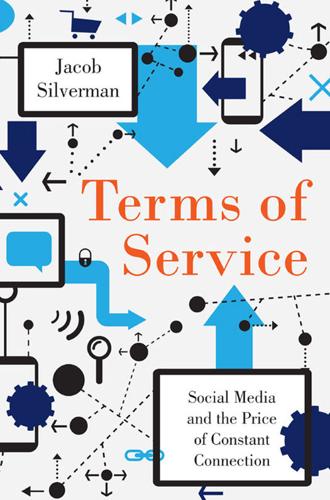
Terms of Service: Social Media and the Price of Constant Connection
by
Jacob Silverman
Published 17 Mar 2015
The rise of wearable computing and cheap, portable digital cameras and smartphones has contributed to a phenomenon known as sousveillance, in which people participating in an activity, such as a protest, film it. That footage may prove useful in a lawsuit that claims police brutality, or it may simply help a group to analyze an event after the fact. In many cases, the video is then shared on social media, helping to catalyze political awareness. Sousveillance became particularly popular during the Occupy movement, in which activists filmed and photographed police and made heavy use of streaming video in order to transmit their message to a wider audience. Syrian rebels, from secular Kurdish groups to foreign jihadists, use video to publicize their exploits, as propaganda against Bashar al-Assad, as a plea for foreign aid, or as a way to inform the world of a government attack.
…
To locate a specific passage, please use your e-book reader’s search tools. Abbey, Edward, 327 Abelson, Brian, 98 About The Data Web site, Acxiom, 307–8 ACLU (American Civil Liberties Union), 365–68 acquihiring, 17 Acquisti, Alessandro, 302 activists Electronic Frontier Foundation, 311 methods of protection, 356–64 Occupy movement, 136–37 open source activism, 359–62 vs. abuse, injustice, and racism, 169–73 Acxiom, 307–8, 316–17 ad critic at BuzzFeed, 117 addiction to the Internet, 337–38, 341–42 Adium app, 369 advertisers overview, ix, 297–98 and Do Not Track signals, 296–97, 306 Facebook’s data for, vii, 12, 41–42, 293–94, 300, 305–6, 316–18 and Facebook’s News Feed algorithm, 203 and Google, 16 and Like, +1, or heart buttons, 10–11 producing optimal conditions for, 265–66, 266n and sentiment analysis, 39 use of social graph to push your friends, 157 advertising advertorials, 116–17 appropriation of memes, 60 authentic identity as basis for, 10 creating dissatisfaction with, 24 and endorsements, 31–35, 85, 191 fraudulent companies, 97–98 and Google, 14 and hashtags, 94–95 metrics, 97–99 Old Spice campaign, 93–94 online vs. physical world, 298 opting out of advertising-based social networks, 275–77 roots of, 23–24 Ruckus Network email gleaning ploy, 92 and social media, 23–24, 31–35, 148 sponsored content, 28, 31–32, 116–18 targeting individuals, 298–300, 301, 302, 316–17 and television, 249 tradition of deception, 59, 94–95 on Tumblr, 27, 28–30 See also marketing; targeting individuals Advertising Age journal, 358 Afghanistan, 362 African Americans, 70–71, 170–73, 210 aggregators overview, 122–23, 214, 235–36 Bleacher Report, 125–28 Gawker, 75, 96, 111 Huffington Post, 115, 179 Klout, 194–96, 200 and mugshot photographs, 207–9, 210–11, 213–14, 217 Stellar, 32 story reworking process, 106–7 Upworthy, 102, 121–22, 125 See also BuzzFeed Airbnb overview, 181–82 CEO’s “people as businesses” attitude, 234 costs, 237–38, 243 hosts and regulations, 242–43 and Peers, 238–39 racial discrimination on, 182–84 on social and economic benefits, 244 terms, 240 Alang, Navneet, 274 alert noises video, 362–63 alerts and notifications, 50–53, 214 Alexander, Keith B., 314 Alford, Henry, 54–55 algorithms overview, 200–201 decoding their processes, 201 effect of syntax, slang, and cultural context, 37–38 experimentation with social graph, 204–6 Facebook’s, 201, 202–4 and fractional workers, 228, 229–30 and Google Search, 198 for incoming call management, 40 for influence scores, 194 for labor market laborers, 227 news outlet importance, 84–85 for recommendations, 201–2 for searches, 188 Amazon overview, 245 abusive labor practices, 266–67n deleting e-books from Kindles, 255 long-term marketing plan, 242n Mechanical Turk, 90, 226, 228, 229–30 ambient awareness of others, 50 American Airlines, 195 American Civil Liberties Union (ACLU), 365–68 amplifiers for memes, 88–89 analytics computational voice analysis, 40–43 cost-benefit analysis of social media rebellion tools, 369–70 predictive analytics, 216–17, 309 for speech, 40–43 See also sentiment analysis analytics firms and online presence, 99 ANAR Foundation, 299–300 Andrejevic, Mark, 307 anonymity on 4chan, 162 assault on, 177 and Big Data, 317–18 and charity, 179–80 governments’ use of, 179 importance for some people, 166 merits of, 175–78 and online abusers, 177–78 of online speech, 180 as preserving control over your name, 168 and security, 176–77 AOL Community Leader Program, 263 apartments as short-term rentals, 237–38 Apple, 3, 99 applications “apps” augmented reality, 191–92 BlinkLink, 358 chatting, 369 data-sharing policies, 176–77 dating, 141, 191, 246–47 facial recognition, 301 fitness, 305–6 Girls Around Me, 140–41 Hell Is Other People, 358 messaging, 156, 177, 259 ObscuraCam, 357 Social Roulette for Facebook, 360 tracking blockers, 297 Twitch for Androids, 260 and Twitter, 16 voice analysis, 40–41 App.net, 362 archive.org, 364 Arpaio, Joe, 193 ARPANET, 251 artifacts on the Internet, 363–64 Atkin, Douglas, 239, 244 attention economy, 302 AT&T U-verse Internet Service plans, 282 audience as collection of data points, 124–25 metrics, 95–96, 101–2, 103 augmented reality apps, 191–92 authentication process, 10 authentic identity allowing for ambiguity vs., 184–85 branding yourself, 181 Facebook’s advocacy for using online, 8–9, 158–60 intolerance for deception about, 74 real names, 160, 178 and reblogs and retweets, 56 and rudeness or antisocial behaviors, 159–60 and social media, 9–10, 48, 164, 180–81 AutoAdmit Web site, 79 automation leading to unemployment, 331–32 Aytes, Ayhan, 229 Baffler, The (Byrne), x Bain & Company, 281–82, 328–29 Balial, Nandini, 219–26, 245–48 Ballard, J.
…
See also sentiment analysis Moran, Robert, 191 Morozov, Evgeny, 4–5, 84, 322 Moves fitness app, 305–6 mugshot Web sites, 207–9, 210–11, 213–14, 217 multitasking, 51–52 Mun, Sang, 358 MyEx.com, 210 Myspace, 9 Nambikwara tribe, Brazil, 167–68, 356 narcissism of the social media experience, 61–62 National Reconnaissance Office spy satellite, 314 National Science Foundation (NSF), 279 National Security Agency (NSA), 129–32, 312, 314 National Security Letters (NSLs), 130 NEC, 299, 301 negative sentiments and sharing, 24, 31, 203–4, 305 Negri, Toni, 264 networked privacy model, 291–92 network effects, 13–14, 47, 272–73, 275–76, 295, 327 news consumers’ culpability, 109 news organizations algorithms rating news outlet importance, 84–85 and audience metrics, 101–2, 103 and embeddable media, 259–60 firehose approach to news, 112 as invasion of privacy, 288 memes from local newscasts, 69–72 presidential press conferences, 105 pushing articles selectively, 98 social media/viral editor, 122–23 trawling social media, 113 trending articles as premium journalism, 101 See also BuzzFeed; journalism New Times newspaper, 67–68 New York City and Uber, 237 New York Comic Con 2013, 34 New York Post, 113 New York Times Magazine, 75 Nike, 139 Niquille, Simone C., 356–57 Nissenbaum, Helen, 284, 297 notifications and alerts, 50–53, 214 NSA (National Security Agency), 129–32, 312, 314 NSF (National Science Foundation), 279 NSLs (National Security Letters), 130 Obama, Barack, 134, 169, 194 “Obama Is Wrong” (Hayes), 105–6 ObscuraCam, 357 Occupy movement, 136–37 OCR (optical character recognition) software, 260, 358 O’Donnell, Robert, 152 Office Max, 279–80 OkCupid, 204 Old Spice advertising campaign, 93–94 Omidyar, Pierre, 239 online persona, 344–45 online recommendations, 201–2 online reputation. See reputation On the Media radio program, 109 Open Graph, 11–12 opting out of advertising-based social networks, 275–77 cost of, 295 difficulty finding option for, 32, 33 of friends adding you to a group, 92 of Google Shared Endorsements, 33 of including your location in messages, 177 of Klout, 195 opt-in vs., 7–8 of social media, 272, 340–41, 342, 346, 347 oral storytelling, 62, 63 Oremus, Will, 106–7, 265 outing students via privacy faux pas, 286 ownership of your identity, 256–57, 273–74, 275–77, 311, 360 Page, Larry, 250 page views overview, 95–96, 98 and advertising dollars, 71, 93, 97 Facebook-ready content for generating, 115 and invented controversy, 107 meme-related, 84, 103–4, 105 new outlets’ boosting of, 122–23 Palihapitiya, Chamath, 249 Pandora, 303 paparazzos, 211–12 parents, scrapbooking about their children, 46, 55–60 Pariser, Eli, 122 Paris, France, 267, 268 Patriot Act, 130 pay-per-gaze advertising, 302 Peers, 238–39, 244 peer-to-peer social networks, 311 Peretti, Jonah, 114–15 personal care, 224 personal endorsements, 31–35 personal graph, 18–19 Persson, Markus, 164–65 Pezold, John, 187 PGP, 368–69 PHD, 304 PhoneID Score, TeleSign, 40 phones.
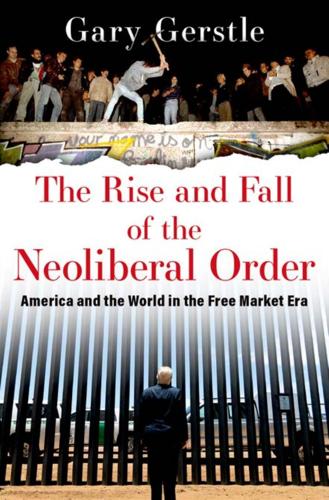
The Rise and Fall of the Neoliberal Order: America and the World in the Free Market Era
by
Gary Gerstle
Published 14 Oct 2022
See, also, Elizabeth Lunbeck, “The Allure of Trump’s Narcissism,” Los Angeles Review of Books, August 1, 2017, accessed September 15, 2021. 52.Peter Oborne, The Assault on Truth: Boris Johnson, Donald Trump and the Emergence of a New Moral Barbarism (New York: Simon and Schuster, 2020); Adam Serwer, The Cruelty Is the Point: The Past, Present, and Future of Trump’s America (New York: One World, 2021). 53.Mattathias Schwartz, “Pre-Occupied,” New Yorker, November 20, 2011, https://www.newyorker.com/magazine/2011/11/28/pre-occupied, accessed June 28, 2021; Jamie Lalinde, Rebecca Sacks, Mark Guiducci, Elizabeth Nicholas, and Max Chafkin, “Revolution Number 99,” Vanity Fair, January 10, 2012, https://www.vanityfair.com/news/2012/02/occupy-wall-street-201202, accessed June 28, 2021. 54.“What Is Our One Demand? #OccupyWallStreet, September 17, Bring Tent,” Adbusters, Poster (2011), http//upload.wikimedia.org/wikipedia/en/5/57/WallStreet-1.jpg, accessed June 28, 2021; William Yardley, “The Branding of the Occupy Movement,” New York Times, November 27, 2011, https://www.nytimes.com/2011/11/28/business/media/the-branding-of-the-occupy-movement.html, accessed June 28, 2021. 55.Schwartz, “Pre-Occupied”; Brian Greene, “How ‘Occupy Wall Street’ Started and Spread,” USNews.com, October 17, 2011, https://www.usnews.com/news/washington-whispers/articles/2011/10/17/how-occupy-wall-street-started-and-spread, accessed April 28, 2021; David Graeber, “Occupy’s Liberation from Liberalism: The Real Meaning of May Day,” The Guardian, May 7, 2012, https://www.theguardian.com/commentisfree/cifamerica/2012/may/07/occupy-liberation-from-liberalism, accessed April 28, 2021.
…
Graeber had written sweepingly about how debt across the ages had been a key instrument used by elites to ensnare ordinary people in poverty and dependency. He wanted all debt forgiven immediately, the surest way, he argued, to free people from oppression and bring the world’s powerful financial institutions to heel. His book Debt: The First 5,000 Years, published in 2011, became a bible of the Occupy movement.56 He was the closest Occupy came to having an acknowledged leader. As late as the morning of September 17, the forces that had mobilized to “occupy Wall Street” had (rather incredibly) not yet chosen the site on which they intended to take their stand. But by midday, they were gravitating toward Zuccotti Park, a small public square a few blocks away from Wall Street in one direction and from the site where the World Trade Center towers had once stood in the other.
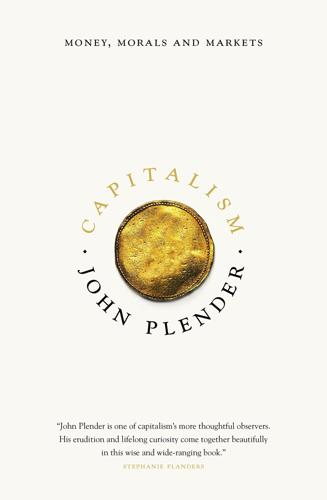
Capitalism: Money, Morals and Markets
by
John Plender
Published 27 Jul 2015
Many of the newer industries that are replacing manufacturing operate, in salary terms, on a ‘winner takes all’ basis, so that a lucky few make vast fortunes. This contributes to inequality both inside companies and in society at large, leading to the kinds of discontent and alienation expressed by the Occupy movement across America in 2011 and 2012, along with similar protests around the world. It is possible to put a case that manufacturing can shrink too far if international specialisation causes economies to suffer from a lack of diversity. That was the case with Britain, which was seriously under-diversified when the credit crunch struck in 2007.
…
E. 1 morbidity syndrome 1 More, Thomas 1, 2 Morgan, John Pierpont 1 Mozart 1, 2 Mussolini 1 Mutual Assured Production (Richard Katz) 1 Mynors, Humphrey 1 Napoleonic Wars 1 Nash, Ogden 1, 2 Native Americans 1 Nazi Germany 1 Netherlands 1 New Deal 1, 2 New Testament 1 Newton, Isaac 1, 2, 3 Nicholas Nickleby (Dickens) 1, 2, 3 Nigeria 1 Norquist, Grover 1 North, Roger 1 North and South (Mrs Gaskell) 1 North Korea 1 Northern Rock (UK) 1 Novalis 1 Nuffield, Lord 1 Obama, Barack 1, 2 Occupy movement 1, 2 oil states 1 da l’Osta, Andrea 1, 2 outsourcing 1, 2 paper currency 1 Parker, Dorothy 1 Pascal, Blaise 1, 2 Past and Present (Thomas Carlyle) 1 Paulson, John 1 Peasants’ Revolt (England) 1 pension funds 1 Pepys, Samuel 1 Peruzzi family 1 perverse incentives 1, 2 Petronius 1 Picasso 1, 2 Piketty, Thomas 1 Pitt, William the Elder 1 Pitt, William the Younger 1 Plato 1, 2, 3 Political Discourses (Hume) 1 Politics (Aristotle) 1, 2, 3, 4, 5 poll taxes 1 Pope, Alexander 1, 2, 3, 4, 5 Portugal 1 positional goods 1 Poussin, Nicolas 1 Prell, Michael 1 Priestley, Joseph 1 printing 1 Proposition 1 (California) 2 Protestant Ethic and the Spirit of Capitalism (Weber) 1 Prussia 1, 2, 3 public sector debt 1 R.
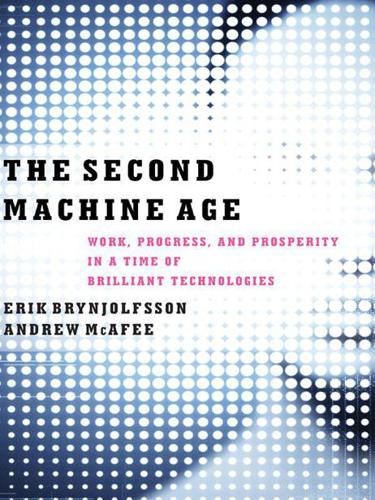
The Second Machine Age: Work, Progress, and Prosperity in a Time of Brilliant Technologies
by
Erik Brynjolfsson
and
Andrew McAfee
Published 20 Jan 2014
Jay Olshansky and his colleagues published in Health Affairs, the average American white woman without a high school diploma had a life expectancy of 73.5 years in 2008, compared to 78.5 years in 1990. Life expectancy for white men without a high school education fell by three years during this period.10 It’s no wonder that protests broke out across America even as it was beginning to recover from the Great Recession. The Tea Party movement on the right and the Occupy movement on the left each channeled the anger of the millions of Americans who felt the economy was not working for them. One group emphasized government mismanagement and the other abuses in the financial services sector. How Technology Is Changing Economics While undoubtedly both of these problems are important, the more fundamental challenge is deep and structural, and is the result of the diffusion to the second machine age technologies that increasingly drive the economy.
…
Lindbergh, Charles LinkedIn Lionbridge living standards, calculation of Lohr, Steve London, congestion charging in Longitude Prize Loria, Roberto Luca, Michael Ludd, Ned Luddite Fallacy Lusardi, Annamaria Lyft machine-to-machine (M2M) communication Macintosh Madigan, Kathleen Mandel, Michael Mankiw, Greg manufacturing: automation in importance of infrastructure to inelastic demand in organizational coinventions in U.S. employment in wages in maps, digital Marberry, Mike Marbles, Jenna Mariel boatlift Marshall, Alfred Marx, Karl massive online open courses (MOOCs) McAfee, Andrew McCarthy, John McDevitt, Ryan McFadden, Daniel McKinsey Mechanical Turk medicine: AI use in automation in diagnostic Memorial Sloan-Kettering Cancer Center “meta-ideas,” Michel, Jean-Baptiste Microsoft Milgrom, Paul military, U.S., robot use by Minsky, Marvin MIT, Computer Science and Artificial Intelligence Lab at Mitchell, Tom Mitra, Sugata MITx Monster.com Montessori, Maria Monthly Labor Review Moore, Gordon Moore’s Law in business in computing persistence of spread of Moravec, Hans Moravec’s paradox Morris, Ian mortgages Mullis, Kary multidimensional poverty index Munster, Gene Murnane, Richard Murray, Charles music, digitization of Nader, Ralph Narrative Science NASA National Academy of Sciences National Association of Realtors National Bureau of Economic Research National Review Nature of Technology, The (Arthur) Neiman, Brent New Digital Age, The (Schmidt and Cohen) New Division of Labor, The (Levy and Murnane) Newell, Al new growth theory New York Times Next Convergence, The (Spence) Nike Nixon, Richard Nordhaus, William numbers: development of large Occupy movement oDesk Oh, Joo Hee Olshansky, S. Jay OpenTable OrCam O’Reilly, Tim Organization for Economic Co-operation and Development (OECD) Orteig Prize Orwell, George Oswald, Andrew Page, Larry Paine, Thomas Pandora Partnership for a New American Economy Pascarella, Ernest pattern recognition Pauling, Linus peer economy Perrow, Charles Perry, Mark philosophy, transformative phones, mobile: in developing world see also smartphones photography photo sharing Picasso, Pablo Pigou, Arthur Pigovian taxes Pink, Daniel Pinker, Steven Pinterest Pivot Power Plutarch Polanyi, Michael pollution polymerase chain reaction (PCR) Popular Science Porter, Michael Powerbook G4 Power Law distributions Principles of Economics (Mankiw) printing, 3D privacy, in digital vs. analog world productivity: decoupling of employment from decoupling of wages from effect of spread on in electricity era growth of innovation linked to intangible goods’ effect on mid-1990s U.S. increase in new paths to post-1970 U.S. decline in post-2000 U.S. growth in see also economic growth; gross domestic product (GDP); labor productivity, capital productivity, multifactor productivity, total factor publishing, digitization and Putnam, Robert Quirky R Race Against the Machine (Brynjolfsson and McAfee) Rajan, Raghuram Rampell, Catherine Raymond, Eric reading AI capabilities in Reagan, Ronald regulation: of business of peer economy religion rents, economic resource curse Rethink Robotics retinal implants Rhapsody Ricardo, David Rigobon, Roberto Robinson, James Robotics, Three Laws of robots: business use of; see also automation rapid progress in sensory equipment for skills acquisition by; see also Moravec’s paradox towel-folding see also artificial intelligence (AI) Rockoff, Jonah Roksa, Josipa Romer, Paul Roomba Roosevelt, Franklin D.
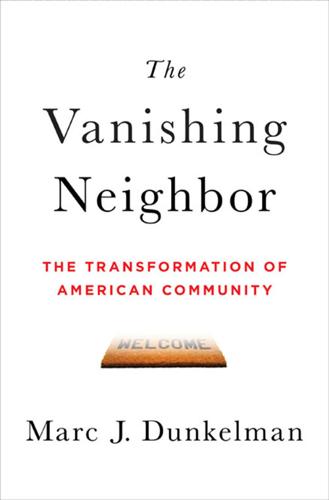
The Vanishing Neighbor: The Transformation of American Community
by
Marc J. Dunkelman
Published 3 Aug 2014
But none emerged out of nowhere: each was incubated by connections forged between friends, neighbors, and familiar acquaintances. That’s not how things work anymore. More recently that “style” of movement has become almost antiquated. Far from harnessing the connections wrought by preexisting middle-ring relationships, the Tea Party and Occupy movements, two of the most prominent echoes of earlier campaigns for change, were fueled by messages sent through the outer rings. People offended by what they saw, respectively, as the stifling authority of Washington and the corrupting power of Wall Street found each other without nearly so much middle-ring brokering.
…
Joseph, 24 McCarthyism, 4 McGrath, Charles, 5–6 McLuhan, Marshall, 16, 141, 142 macro level vs. micro level, 9–11, 40–41 Madison, James, 82, 139 magazines, 36, 37, 71 Making a New Deal (Cohen), 203 Manchester, 166–67 Mandelbaum, Michael, 141–42 Man in the Gray Flannel Suit, The (Wilson), 4 manufacturing, 15, 18, 19, 53, 166, 170–71 marriage, 28–31, 68–71, 74, 101, 147, 219 gay, 42, 50, 69 interracial, 68 Marsden, Peter, 119–20 marshmallow test, 214–15, 216, 218, 219, 222 Marty, Martin, 238 Mary Mac’s Tea Room, 136–37 Maslow, Abraham, 61–62, 66, 114, 126, 138 Massey, Doug, 40–41, 43 mass market, 15, 40 Master of the Senate (Caro), 187 matchmaking services, 69–70 materialism, material concerns, 41, 55, 70, 85 Meals on Wheels, 208, 209 Meaney, Michael, 223 media, 184, 186, 187–88 expansion of, 35–37 Medicaid, 201, 203–4 Medicare, xv, 198, 199, 201–30 Medici effect, 163–74, 176, 219 as “valuable inefficiency,” 168 medicine, 31, 58–59, 197, 199–200, 207–8, 229 Mexico, 197–98 Miami Heat, 8–9, 11 middle, failure to understand, 9–11 middle class, 28, 50, 54, 55, 58, 60, 128, 139, 144, 178, 191, 222, 225, 227, 238–39 gentrification and, 56 income inequality and, 22–23 in 1950s, 3–4 middle-ring relationships, xvii, 94, 97–98, 100, 109, 131, 134–38, 150, 169, 174, 193, 218, 219, 232, 233–34 global village and, 142–43 health care and, 201, 202, 204, 208, 210 social capital removed from, 113–26, 129, 138–39, 143, 145, 148, 189–90, 208, 213, 239 trust and, 134, 135 migrations, U.S. defined by, 82–83 militaries, 94, 217 Miller, Conrad, 179–81 Mischel, Walter, 214–16 mobility, 17, 21–26 physical, 24–25, 39–40, 104, 105 social, 21–24, 26, 226 Moffit, Terrie, 215 money, xvi, xvii, 54, 75, 100, 187 Morrison, Toni, 79–80, 135 mother(s), 12, 106, 130–31 of author, 133, 134 motive, 12–13, 49, 51, 59, 62, 73, 74, 75, 98, 212, 213 MSNBC, 184, 187–88 multistrandedness, 96 Mumford, Lewis, 31–32, 82–83, 201 Murray, Charles, 45, 48, 142, 144, 191, 238, 250n Murray Hill, N.J., 164 names, remembering, 91–92 narcissism, 73, 111 National Institutes of Health, 203–4 needs, 71, 195 basic, 61, 62, 67–68 hierarchy of, 61–62, 66, 70, 72, 75, 101, 114, 126, 138 neighborhoods, 22, 24, 74, 79–87, 99, 101, 110, 117, 127, 129, 139, 142, 145–51, 153, 166, 168, 171–72, 189–90, 194, 213, 232, 236, 239 Chinatown Bus effect and, 46–49 collective efficacy of, 149–51 gentrification of, 56 health care and, 201, 210 social isolation in, 118–19 neighborliness, 130, 142, 144, 195 networked community, 143–53, 168–76, 191, 194–95, 217, 235–41 health care and, 210–11 networked individualism, 111 network theory, 95 New Deal, 201, 203, 210, 230 New England, xii, 81 news, 74, 184, 186, 187–88, 194 access to, 18, 20, 35–36 newspapers, 18, 24–25, 35–36, 148, 152, 188 New York, N.Y., 19, 84, 128, 176, 230 Chinatown in, 33–35 Diamond District in, 98–99, 135 Jacobs’s views on, 85–86, 166, 167–68 New York Times, xiv, 27, 38, 46, 54–55, 59, 182, 229 New York Times Book Review, 5–6 New York Times Magazine, 64 niches, 36, 40, 41, 44–45, 73–74 affirmation and, 107–8, 110–11 Nichols, Mike, 4, 248n Nie, Norman, 125 1950s, 3–6, 32, 50, 52, 60, 114, 115, 127, 138, 139, 248n conformity in, 4–5, 65, 73, 74 family routines in, 58 fantasy view of, 3, 51 membership associations in, 130–31 1960s, 70–71, 248n social trust in, 135 upheavals of, 6, 68, 87, 108–9, 128 Nisbet, Robert, 194 North American Free Trade Agreement, 197–98 nostalgia, ix–x, 51, 72, 146, 182–83 nuclear war, 51, 52, 55, 56, 57, 60 nursing homes, 197, 200, 202, 206–7 Obama, Barack, 24, 37–38, 42, 59, 146, 186, 205, 210 Occupy movement, 109–10 Office, The (TV show), 131 Ogle, Richard, 162 Olds, Jacqueline, 130 Olympic Games (2014), 178 online buying, 41, 69–70 online communities, 114–15, 116, 145, 250n opportunity, 12–13, 26, 27, 32, 43, 49, 62, 69, 73, 74, 75, 98, 212, 213 affirmation and, 103, 108 optimism, 51, 82, 114, 236 Organization Man, The (Whyte), 5, 6, 138 organizations: new breed of, 116–18 voluntary, 80, 116, 118, 130–31, 187, 201, 228, 239 Osteen, Joel, 72, 238 other-directedness, 5–7 Our Best Life (Osteen), 72 outer-ring relationships, 96–97, 114–19, 137, 138–39, 143, 145, 147–48, 169, 173, 190, 204, 237, 238 affirmation and, 107–12, 115 online, 114–15, 121–22 Oxycodone epidemic, 147–48 Packer, George, 235, 236 Palin, Sarah, 206 Pariser, Eli, 37, 48, 176, 194–95 Park Forest, 4–5 Pasteur, Louis, 158–59, 174 Pauling, Linus, 161 PBS, 182, 192 pensions, 20, 205, 235–36 Perot, Ross, 197–98 Perry Preschool Project, 224 Pew Center for American Life, 250n Pew Forum on Religion and Public Life, 71 Pew Internet & American Life Project, 125 Pew Research Center, 106–7, 237 Pixar studio, 164–65 Planet Money (radio show), 180–81 Platinum Mile, 176 polio, 51, 52, 59 political science, 66–69, 141 politics, xiv–xvii, xix, 11, 15, 82, 101, 148, 181–95, 210, 229, 232 affirmation and, 108–10 Chinatown Bus effect and, 44, 47–48 culture wars and, 114 globalization and, 18 taste and, 37–38 polls, polling, 7, 29, 182, 226 deliberative, 192–93, 195 World Values Survey, 67–68, 73 Poole, Keith, 184 Porter, Eduardo, 255n potlikker, 136–37 poverty, 11, 22, 41, 43, 54, 62, 75, 146, 194, 201, 226, 255n in Brazil, 178, 267n urbanism and, 83, 216 prejudice, 88, 146, 148, 231 against homosexuals, 42, 43, 51 racial, 24, 39, 146 productivity, 19, 53, 167 progress, 24, 31, 35, 68, 75, 174, 238 progressives (the left), 11, 15, 23, 26, 31, 47, 148, 235 crime and, 56 Washington dysfunction and, 182, 184, 189, 190 property, 82, 179, 229 prosperity, 52–55, 57, 62, 67, 68–69, 72, 178, 230 psychology, Maslow’s influence in, 61–62 public policy, failure of, 22–23 Pulitzer, Joseph, 188 purchasing power, 53–54 Putnam, Robert, 7, 97, 99–100, 113–16, 119, 120, 141, 151–52, 170, 192 on social trust, 134–35 quality of life, 21, 50–62 affluence and, 52–55, 62, 72 health and, 31, 51, 52, 57–60 hierarchy of needs and, 61–62, 72 security and safety and, 52, 55–62, 72 Quest for Community, The (Nisbet), 194 race, 11, 32, 68, 79, 147, 148, 237 prejudice and, 24, 39, 146 see also African Americans racism, 4, 51 Radicalism of the American Revolution, The (Wood), xii, 81, 194 radio, 36, 37, 71, 133, 148, 152, 180–81 Rainie, Lee, 237 Rauch, Jonathan, 199 Raytheon, 165 Reagan, Ronald, 22 Real World, The (TV show), 63 rebels, 102–3, 127 religion, 29, 39, 48, 71–72, 74, 114, 147, 148, 231, 238 Republicans, 15, 37–38, 148, 182–85 retirement, 55, 60, 104–5, 197, 198, 204–5, 235–36 Riesman, David, 5–8, 12, 65, 73, 74, 213 Rock, Chris, 40 romance, 70, 71, 74 Romney, Mitt, 37–38 Roosevelt, Franklin D., 203 Rose, Charlie, 182 Rosenthal, Howard, 184 Rotary Clubs, 44, 45, 116 Rumspringa, 28–29, 30 Sachar, Abram L., 4 Saddleback Church, 72 Safford, Sean, xi, 97, 169–72 Sampson, Robert, 149–50 San Francisco, Calif., 129, 189 Santayana, George, 51 Saturn model, 95–98 see also intimate relationships; middle-ring relationships; outer-ring relationships Schmidt, Eric, 18 Schwartz, Richard, 130 Second Wave society, 16–17, 20, 23, 31–32, 48 mass market and, 40 membership organizations and, 44 townships in, 88, 89, 233 security and safety, 52, 55–62, 67, 68, 72, 133, 150 segregation, 40–41, 79, 237–38 self-actualization, 61, 72 self-control, 214–25 self-expression, 69, 71–72 self-fulfillment, 104, 261n self-interest, 183, 195 Senate, U.S., xvi, 184, 185, 186, 188, 191 service jobs, 18–19, 53, 132, 138, 236 settled horticultural societies, 92, 95 shopping, 25, 38–42, 49 shopping malls, 40, 41 Silicon Valley, 174, 175, 227, 237 Silver, Nate, 7 Skocpol, Theda, 44, 45, 116–18, 130, 201 smallpox, 157–58 social architecture, 232–34 in Barbados vs.

Black Code: Inside the Battle for Cyberspace
by
Ronald J. Deibert
Published 13 May 2013
It began with defacing and breaching attacks against websites and servers of a bewildering and sometimes confusing array: the Tunisian, Egyptian, Zimbabwean, Malaysian, Libyan, and other governments; private companies like Sony, accused of censorship in the guise of protecting its intellectual property; financial services companies like Mastercard, PayPal, and Visa (for boycotting donations made to WikiLeaks); and the CIA, NSA, FBI, U.S. Department of Justice, and police forces around the world. Twitter accounts with the prefix “Anon” proliferated, and at one point in the fall of 2011, it appeared that Anonymous and the Occupy movement would consolidate into a powerful social force threatening the elites of the industrialized world – a more mature, digitally empowered next-generation version of the 1990s anti-globalization movement. But then a series of dragnet-style arrests took place. Beginning in July 2011, and coordinated across the U.S., U.K., and the Netherlands, twenty people were detained.
…
In June 2011, Anonymous launched attacks on ninety-one websites, including fifty-one Malaysian government sites; see Niluksi Koswanage and Liau Y-Sing, “Hackers Disrupt 51 Malaysian Government Websites,” Reuters, June 16, 2011, http://www.reuters.com/article/2011/06/16/us-malaysia-hackers-idUS-TRE75F06Y20110616. The Anonymous movement was split on the Libyan uprisings; see “Operation Reasonable Reaction,” Github, https://github.com/bibanon/bibanon/wiki/Operation-Reasonable-Reaction. The relationship between the Occupy Movement and Anonymous is detailed in Sean Captain, “The Real Role of Anonymous in Occupy Wall Street,” Fast Company, October 17, 2011, http://www.fastcompany.com/1788397/the-real-role-of-anonymous-at-occupy-wall-street. 8 is it wise to actually encourage DDoS attacks: Yochai Benkler explains why Anonymous should not be viewed as a threat to national security in “Hacks of Valor,” Foreign Affairs, April 4, 2012, http://www.foreignaffairs.com/articles/137382/yochai-benkler/hacks-of-valor. 9 One of the few to study this question in depth: Gabriella Coleman’s work offers a comprehensive history and analysis of Anonymous: Gabriella Coleman “Our Weirdness Is Free: The Logic of Anonymous – Online Army, Agent Chaos, and Seeker of Justice,” Triple Canopy (2012), http://canopycanopycanopy.com/15/our_weirdness_is_free; and “Peeking Behind the Curtain at Anonymous: Gabriella Coleman at TEDGlobal 2012,” TED Blog, June 27, 2012, http://blog.ted.com/2012/06/27/peeking-behind-the-curtain-at-anonymous-gabriella-coleman-at-tedglobal–2012/. 10 MIT Museum Hack archivist: A history of MIT hacks is detailed in T.F.
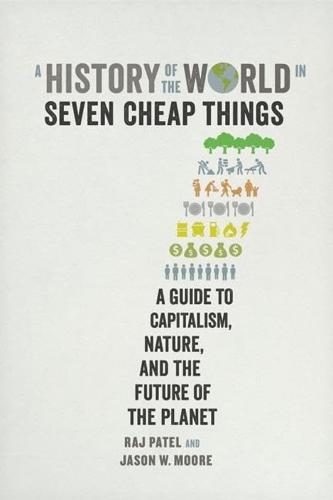
A History of the World in Seven Cheap Things: A Guide to Capitalism, Nature, and the Future of the Planet
by
Raj Patel
and
Jason W. Moore
Published 16 Oct 2017
Climate change activists want to revalue our relationship to energy, and those who’ve read Naomi Klein’s work will recognize that much more must change too.124 Food campaigners want to change what we eat and how we grow it so that everyone eats well. Domestic-worker organizers want society to recognize the work done in homes and care facilities. The Occupy movement wants debt to be canceled and those threatened with foreclosure and exclusion allowed to remain in their homes. Radical ecologists want to change the way we think about all life on earth. The Movement for Black Lives, Indigenous groups, and immigrant-rights activists want equality and reparation for historical injustice.
…
See Dutch empire New Alliance for Food Security and Nutrition, 157–58 New Deal, 40 New World natures: banks and, 28, 77; commodification of, 28; conquerors and, 28; encomienda system, 50–51; European nations and, 28; production systems, 46 Nietzsche, Friedrich, 1, 2 Nigeria, 33, 128–29, 166–67 nonhuman natures, 28 norms, 39 North Africa, 16, 29 North Atlantic region, global power/production shifts, 46 Norway, 8, 101, 184 nutritionism, 155 Occupy movement, 42 O’Connor, James, 226n44 Offer, Avner, 147 oikeios concept, 19–20 oil industry, 37, 131, 176; oil wars debate, 37; OPEC nations, 176–77; world output of, 237n79 Opium Wars, 147 Orren, Karen, 135 Ottoman Turks, 74, 77 Oyèrónké, Oyěwùmí, 129 Pan y Rosas movement, 206 peasants: commoning, 59–60, 74, 143, 163, 164–65; displacement of, 173; dispossession of, 24, 39, 104, 158, 164; German Peasants’ War of 1525, 73, 74, 82, 163, 175; in Global South, 158; La Via Campesina, 205; living standards of, 13; in Mexico, 153; peat gathering, 167–68; resistance of, 49, 60 people of color, 51, 217n96 Perestrelo, Filipa Moniz, 111, 228n4 Pernambuco, 215n56 Peru, xiv map 1, 61–62, 64, 82–84 Philip II, King of Spain, 80, 82–83 Philippines, xiv–xv map 1 Phillips, Ulrich B., 62 Pigou, Arthur Cecil, 21 Piketty, Thomas, 28 Pinelo, Francisco, 65, 66 planetary ecology: cheap energy and, 35; crisis strategies, 40; ecological revolution, 52–53 “plants of civilization”, 139, 144, 151, 160, 231n8 Plato, 8 Poland, 51, 52, 142, 168 politics, modern: and cheap things as a given, 40–41; fossil fuel and, 41; global inequality and, 26; supremacism, 41 Polo, Marco, 72 Pomeranz, Kenneth, 144 populism, 21 Portuguese empire: African slaves, 92–93; Cantino Planisphere, 55, 56–57map3; frontiers of, 23; Genoa and, 77; global silver trade and, 85; Maderia outpost, 14; navy of, 215n41; and New World frontier, 50–51; New World production system of, 46; Reconquista, 13; slave trade, 91 postcapitalist era: overview, 201, 202–7; Indigenous Peoples’ movements, 214n19; recognition, 207–8; recreation, 211–12; redistribution, 210; reimagination, 210–11; reparation, 208–10 Potosí, Peru, xiv map 1, 82–84 power: frontiers and, 19; human arrangements of, 38; modernity and, 25; of money, 67; relationships of, 38 processed foods, 157–58; food price changes of, 154 fig. 5 production: energy costs and, 21; model of, 27; profit making regions, 68; relationships of, 38; and remaking of nature, 26 productivity: agricultural productivity, 48, 60–61, 97, 140, 142, 159; capitalism and, 19, 46; labor productivity, 60–61, 97, 141–43, 159, 164; labor/work, 142; Soviets and, 107 profit/profitability, 23–24, 27, 27–28, 165 proletarianization, 58, 62, 220n40 property privatization, 62 Putin, Vladimir, 38 racism: polling data on, 41; scientific racism, 185–190; time management and, 99 Reclaim the Streets movement, 206 recognition, 207 Reconquista, 13, 65–66 recreation, 207, 211–12 redistribution, 43, 207, 210 reimagination, 207, 210–11 reparation, 42, 42–43, 207 reparation ecology, 207–9, 210; defined, 43 reproductive labor: defined, 116; pregnancy surrogates, 134; in U.S., 132–33; value of, 32.
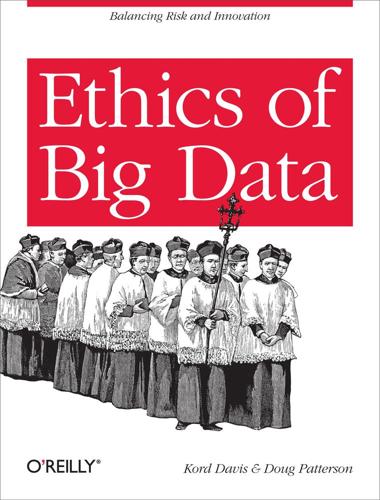
Ethics of Big Data: Balancing Risk and Innovation
by
Kord Davis
and
Doug Patterson
Published 30 Dec 2011
One has to wonder what Martin Luther King, Jr. would have done with a Twitter account. Or how the Civil War would have been changed in a world with blogs and real-time search. The telegraph was instrumental enough in how wartime communication took place; what if Lincoln or Churchill and Roosevelt had instant messaging? The Occupy movement has benefited enormously from being able to coordinate action and communicate its message on the backs of big-data systems. And, at both ends of the spectrum, imagine a data breach at Facebook: what would Hitler have done with that information? How would Mahatma Gandhi have utilized that kind of information about so many people?
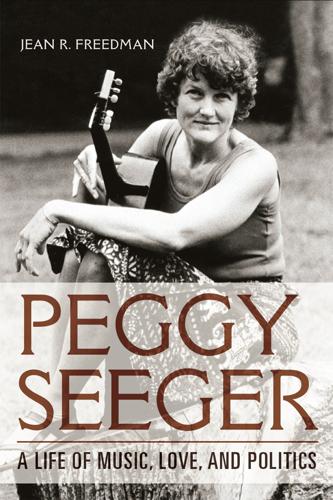
Peggy Seeger
by
Jean R. Freedman
We come to you at a time when corporations, which place profit over people, self-interest over justice, and oppression over equality, run our governments.3 Within months, the Occupy Wall Street movement had inspired similar movements around the world. In England, the Occupy St. Paul movement set up camp outside St. Paul's Cathedral, the iconic London landmark in the heart of the financial district. Peggy wrote three songs for the Occupy movements, all of them based on earlier songs. “Sit Down Occupation: USA” and “Sit Down Occupation: UK” have identical tunes and practically identical words. Both are based on a labor song written by Maurice Sugar for a 1937 sit-down strike in Flint, Michigan, which ended in a major victory for the American labor movement.
…
In 2011, the American songwriter Dave Lippman rewrote Jenkins's song for Occupy Wall Street, and Peggy adapted Lippman's words to reflect the Occupy St. Paul movement in England. By using American music and American vernacular yet writing from an English perspective, she highlights the global nature of the Occupy movements: I reckon those bankers shoulda never been bailed, They should be sitting tonight in jail. No use waiting for the by-and-by, Let's go to St. Paul's and occupy. Doggone, occupation is on. The top 1% are feeling fine, We're here to represent the other 99. We may be sitting down, but we're standing tall, After the Arab Spring comes the European Fall.
…
“Declaration of the Occupation of New York City,” September 29, 2011, http://www.nycga.net/resources/documents/declaration/, accessed June 30, 2016. 4. This line refers to economic divisions between the top 1 percent of the population and the remaining 99 percent. One of the rallying cries of the Occupy movements was, “We are the 99 percent.” 5. “The Anticapitalist Roadshow,” http://www.redmagic.co.uk/anticap/index.htm, accessed June 30, 2016. 6. Frankie Armstrong, email message to the author, December 8, 2012. 7. Peggy Seeger, email message to the author, September 3, 2014. 8. Peggy Seeger, email message to the author, August 15, 2012. 9.
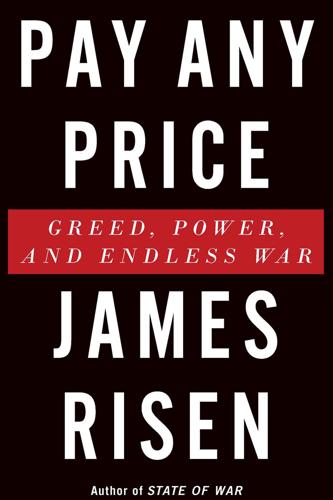
Pay Any Price: Greed, Power, and Endless War
by
James Risen
Published 15 Feb 2014
In late 2012, the Partnership for Civil Justice Fund, a civil rights group, obtained a series of FBI documents that showed that the FBI had been spying on the Occupy Wall Street movement, treating it like a terrorist threat. FBI agents in New York and across the country conducted surveillance on the Occupy movement and shared information with businesses, universities, and local police and other law enforcement agencies. In Indianapolis, the FBI issued a “potential criminal activity alert” even before any protests were scheduled there. In Syracuse, New York, the Joint Terrorism Task Force sent information about Occupy protests to campus police at colleges in the region.
…
. [>] bin Laden et al. (2011), [>] Hayden, Michael, [>], [>]–[>], [>], [>]–[>], [>] health hazards, burn pits as, [>]–[>] Heilbrun, Mark, [>]–[>], [>]–[>] Hersh, Seymour, [>]–[>] Homeland Security Department: counterterrorism and, [>]; cybersecurity and, [>]–[>]; drones program and, [>]; Einstein [>] and, [>]; enhanced interrogation methods and, [>]; intelligence operations and, [>]–[>]; money and, [>]; Occupy movement and, [>]; Operation Stonegarden and, [>]–[>] homeland security-industrial complex: overview of, [>]–[>], [>]; airport security and, [>], [>]–[>]; anti-Muslim rhetoric and, [>]–[>], [>], [>]–[>]; architecture and, [>]–[>]; Boston marathon bombing in 2013 and, [>], [>]–[>]; Canadian border and, [>]–[>], [>]; Derby Line Battle and, [>]–[>], [>]; fear and, [>], [>], [>], [>]; government buildings and, [>]; greed and, [>]; independent terrorism analysts and, [>]–[>], [>]; individual extremists and, [>]–[>]; money and, [>], [>]–[>], [>], [>]–[>], [>], [>]–[>]; NIH and, [>]–[>]; 9/11 terrorist attacks and, [>]–[>], [>], [>]–[>], [>]; power/abuse of power and, [>]–[>]; press investigations and, [>]–[>]; security zones/procedures and, [>]–[>].
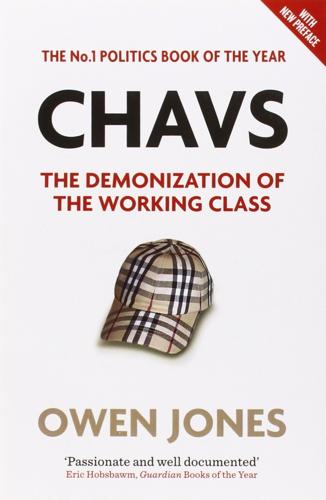
Chavs: The Demonization of the Working Class
by
Owen Jones
Published 14 Jul 2011
They were, in part, inspired by the Spanish indignados (outraged) who had occupied Madrid's main square the previous May in protest at the Spanish government's response to the banking crisis; they, in tum, had followed the example of Egyptian revolutionaries who had taken Cairo's Tahrir Square. The New York protests spawned a global 'Occupy' movement, as similar camps were set up in hundreds of cities across the globe-including London, where tents were erected outside St Paul's Cathedral. The key slogan of the Occupy movement, 'We are the 99 per cent', reflected that the interests of the overwhelming majority of people conflicted with those of the elite 1 per cent at the top. It may not have been an accurate figure, but that wasn't the point: the slogan tapped into a deep sense of injustice that had taken root since the collapse of Lehman Brothers in September 2008.
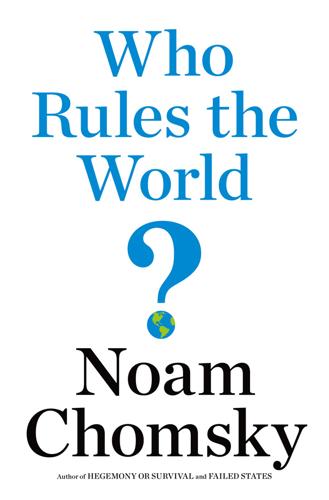
Who Rules the World?
by
Noam Chomsky
A recent book-length study by the Economic Policy Institute, which has been the major source of reputable data on these developments for years, is entitled Failure by Design. The phrase “by design” is accurate; other choices were certainly possible. And as the study points out, the “failure” is class based. There is no failure for the designers—far from it. The policies are only a failure for the large majority—the 99 percent, in the imagery of the Occupy movements—and for the country, which has declined and will continue to do so under these policies. One factor is the offshoring of manufacturing. As the Chinese solar panel example mentioned earlier illustrates, manufacturing capacity provides the basis and stimulus for innovation, leading to higher stages of sophistication in production, design, and invention.
…
Non-Aligned Movement Non-Proliferation Treaty (NPT) NORAD North American Free Trade Agreement (NAFTA) North Atlantic Treaty Organization (NATO) Northern Alliance North Korea North Vietnam Norway nuclear weapons Nuremberg tribunal Obama, Barack assassinations and climate change and Cuba and economy and energy and habeas corpus and Israel and Latin America and nuclear weapons and terrorism and torture and Obeid, Sheikh Abdul Karim Occupied Territories Occupy movement oil. See also energy Okinawa Oman one-state solution Ornstein, Norman Orwell, George Oslo Accords Oslo Peace Research Institute Ostrom, Elinor Ottoman Empire Oxfam Ozanne, Julian Pacific Rim Pakistan Palestine (Carter) Palestine Liberation Organization (PLO) Palestinian Authority (PA) Palestinian National Council (PNC) Palestinians.
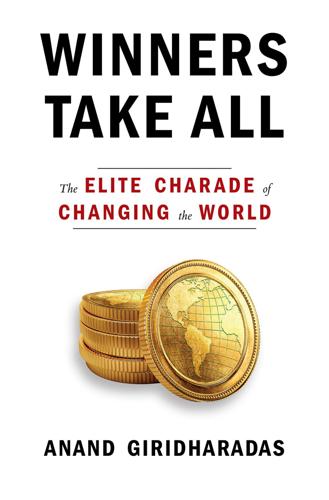
Winners Take All: The Elite Charade of Changing the World
by
Anand Giridharadas
Published 27 Aug 2018
Two months after Cohen enrolled, and in a very different vein, the Tea Party won a significant victory in the 2010 midterm congressional elections. “They just didn’t seem to care about the regular working person any more,” the scholars Vanessa Williamson and Theda Skocpol quoted a Tea Partier named Beverly as saying in a dissection of the movement published in the spring of Cohen’s freshman year and later taught at Georgetown. The Occupy movement launched in the first weeks of Cohen’s sophomore year. Thanks in part to its agitations, Google searches for “inequality” would more than double among Americans during Cohen’s college career, and searches for “the 1 percent” would more than triple. In the spring of her junior year, a new pope was elected, a Jesuit like Georgetown’s leaders.
…
Some in the Valley have become downright glib about the leveling bias of technology. “Thanks to Airbnb,” the venture capitalist Marc Andreessen says, “now anyone with a house or apartment can offer a room for rent. Hence, income inequality reduced.” Investors like Andreessen, according to this view, are just like the Occupy movement, but with bigger houses and clearer results. Networks are the basis for much of this new power—networks that simultaneously push power out to the edges and suck it into the core. This idea comes from an authority on networks, Joshua Cooper Ramo, a journalist turned protégé of Henry Kissinger, who some years ago became interested in how new varieties of power were upending the old laws of strategy and geopolitics.
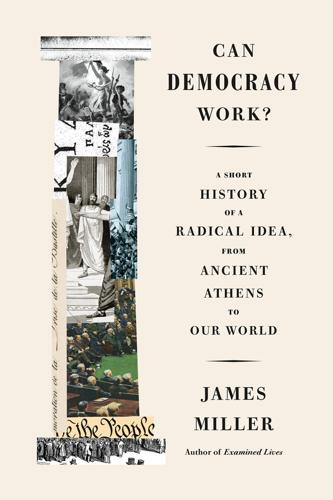
Can Democracy Work?: A Short History of a Radical Idea, From Ancient Athens to Our World
by
James Miller
Published 17 Sep 2018
Samuel Huntington had identified “three waves” of global democratization: the first occurring in the United States and Europe from 1776 to 1945; the second occurring around the world as a result of decolonization after World War II; and the third occurring after the collapse of the Soviet Union in 1989, and sweeping through Eastern Europe, Latin America, and Asia. Since then, other scholars have suggested a “fourth wave,” this one including much of sub-Saharan Africa and the Arab World, and cresting in 2011. The Occupy movement was prompted, in part, by the impressive speed with which Arab activists had harnessed social media to mobilize large masses of protesters, as if to prove (as one Internet guru boasted) “the power of organizing without organization”—an anarchist’s dream come true. At the same time, Occupy was modeled more closely on the direct-democratic public assemblies of protesters favored that year by the Indignados—the Outraged—a Spanish anti-austerity movement that occupied Puerta del Sol square in Madrid in May 2011.
…
The larger a group, the more ineradicable such diversity will be, unless the group is willing to resort to coercion, in an effort to force unity and guarantee political participation (as has happened routinely in a great many avowedly democratic and socialist organizations and states over the years). In other words, I seriously doubt that experiments in rule-by-consensus, like those I experienced in the 1960s, or the Occupy movement in 2011, will ever generate the kinds of alternative institutions that are needed to meet the challenges of our current situation. * * * INSTEAD OF SINGLE-MINDEDLY PURSUING a new form of “collective thinking” through endless meetings meant to forge consensus—a quixotic and self-destructive goal that led astray the sans-culottes in 1793, the soviets in 1905 and 1917, and the New Left of the 1960s— we would do better to explore new ways to foster a tolerant ethos that accepts, and can acknowledge, that there are many incompatible forms of life and forms of politics, not always directly democratic or participatory, in which humans can flourish.
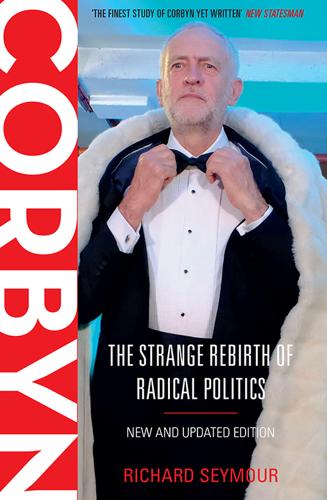
Corbyn
by
Richard Seymour
Some of the energies that would appear in the campaign began to make themselves visible in a significant public protest that summer. In June 2015, for the first time in several years, an anti-austerity protest drew tens of thousands of people to the streets. This would not have been the largest such protest if it had happened in 2011, the year of the Arab Uprisings, the Occupy movement and a series of mass demonstrations, public sector strikes and even riots in the UK. But on this occasion, it followed years of demoralisation and defeat, in which every crisis seemed to favour the Right. Labour’s long retreat from its brief experiment with anti-austerity politics, its welfare-bashing and its feeble attempt to triangulate UKIP on immigration, had resulted in yet another election defeat.
…
It was not until late 2010 that the first glimmer of any kind of organised revolt against austerity began to make itself visible in the form of the students’ rebellion. And that movement, while culturally very significant and probably laying some groundwork for a general turn to the left among the young, was as short-lived as subsequent public sector pensions campaigns, and the UK’s miserably diminished version of the Occupy movement. As such, there was no continuous or generalised shift to the left, and in fact much of the movement after 2011 was to the racist and authoritarian Right. But the most important answer was political. It was an integral part of Ed Miliband’s strategy for reviving and rebranding Labour that it should seek a new synthesis of left and right, rather than be seen to move to the left.
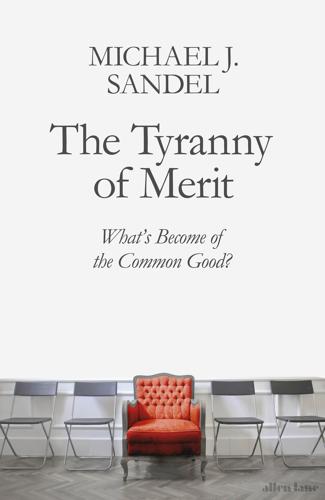
The Tyranny of Merit: What’s Become of the Common Good?
by
Michael J. Sandel
Published 9 Sep 2020
With their encouragement, he bailed out the banks on terms that did not hold them to account for the behavior that led to the crisis and offered little help for those who had lost their homes. His moral voice muted, Obama placated rather than articulated the seething public anger toward Wall Street. Lingering anger over the bailout cast a shadow over the Obama presidency and ultimately fueled a mood of populist protest that reached across the political spectrum—on the left, the Occupy movement and the candidacy of Bernie Sanders; on the right, the Tea Party movement and the election of Trump. The populist uprising in the United States, Great Britain, and Europe is a backlash directed generally against elites, but its most conspicuous casualties have been liberal and center-left political parties—the Democratic Party in the U.S., the Labour Party in Britain, the Social Democratic Party (SPD) in Germany (whose share of the vote reached a historic low in the 2017 federal election), Italy’s Democratic Party (whose vote share dropped to less than 20 percent), and the Socialist Party in France (whose presidential nominee won only 6 percent of the vote in the first round of the 2017 election).
…
Gregory, 136–37 , 139 manufacturing jobs, 86 , 197 , 215 market(s), 30 , 31 , 55 , 62–64 , 72 , 130 , 132 ; free, 53 , 55 , 56 , 62 , 133 , 137 , 214 ; free-market liberalism, 125–28 , 133–34 ; free trade, 19–21 , 55 , 56 , 206–207 , 215 ; globalization and, 19–22 , 184 , 202 , 213 , 222 , 226 ; incentives and, 107 ; market value versus moral value, 137–40 ; merit and, 62–64 , 134–37 ; technocracy and, 19–22 Markovits, Daniel, 171–72 , 253 n86 , 254 n91 May, Theresa, 70 McCain, John, 67 , 86 mental health issues, 179–80 , 188 merit, 14–15 ; college admission based on, 10 , 11 , 13–14 , 120 ; common good and, 223–27 ; difficulty of identifying, 132 ; disagreement about, 133 ; grace and, 25 , 35 , 38–41 , 46 , 57–58 , 193–94 ; Hayek’s distinction between value and, 126–27 , 134–36 ; hiring based on, 33 , 34 , 155 ; language of, in public discourse, 152–53 ; luck egalitarianism and, 146 ; markets and, 62–64 , 134–37 ; moral history of, 33–58 ; providentialism and, see providentialism ; rejection of, 132–34 , 134 , 148 , 150 ; salvation and, 37–41 , 51 , 59 ; technocratic, and moral judgment, 27–29 ; tyranny of, 25 , 30 , 36 , 42 , 73 , 85 , 126 , 155 , 183 , 186 , 188 , 194 , 195 , 227 ; why it matters, 34–35 meritocracy: alternatives to, 125–32 , 134 ; appeal of, 34 , 123 ; aristocracy versus, 113–15 , 173 ; author’s first encounter with, 194 ; Blair’s use of term, 152 ; and cachet of elite colleges, 13 ; coining of term, 30 , 116 , 152 ; of college admissions, formation of system, 156–63 , 172 , 173 ; of college admissions, inequality entrenched by, 165–67 ; complaints about, 119–20 ; cosmic, 35–37 ; dark side of, 116–19 ; defenders of, 124 ; deservingness in, see deservingness ; as dystopia, 116–19 ; ethic of, 24–25 ; free-market liberalism as alternative to, 125–28 , 133–34 ; as hereditary aristocracy, 24 , 119–20 ; higher education and, 156–63 ; inequality justified in, 119 , 122 ; liberal, 87 ; moral arbitrariness in, 116 ; as myth, 120 ; Obama on, 70–71 ; objections to, 120 ; perfect, justness of, 121–22 ; philosophical critiques of, 120 ; poverty in, 114–15 ; reassertion of attitudes of, 148 ; reconsidered, 119–20 ; rejection of, 132–34 , 134 ; rise of, 152–53 ; toxic turn of, 33 , 73 ; welfare state liberalism (egalitarian liberalism) as alternative to, 125 , 128–32 , 133–34 , 141 , 143 , 146 , 150–51 ; Young on, 30 , 116–19 , 152 , 173 , 174 , 201 Merkel, Angela, 98 middle class, 13 , 20 , 22 , 23 , 70 , 75 , 78 , 206 , 208 Middle East, 52 , 53 misfortune and suffering, 26 , 35 , 36 , 37 , 44 , 47 , 48 , 49 , 64 ; “through no fault of their own” phrase and, 64–65 mobility, 26 , 75 , 77 , 78 , 85 , 120 , 158 , 165 ; college education and, 167–70 , 172 ; equality versus, 122 ; faith in, 23 ; optimism and pessimism about, 77 , 78 ; perfectly mobile society as ideal, 121–22 ; “social mobility,” first use of term, 158–59 ; see also opportunity ; rising, rhetoric of moral and civic education, 192–93 moral desert, see deservingness morality and ethics, 24–25 ; arbitrariness of, in meritocracy, 116 ; arc of the moral universe, 54–58 ; deservingness and, see deservingness ; market value versus moral value , 137–40 ; and merit versus value, 126–27 , 134–36 ; moral history of merit, 33–58 ; and one’s “lot in life,” 35 ; providentialism and, see providentialism ; and right side of history , 51–56 , 213 ; success and, 42 ; talents and, 122–23 , 130 , 142 , 146 , 150 ; technocratic merit and, 27–29 ; see also success ethics Morrison, Herbert, 100 Mounk, Yascha, 66 Moynihan, Daniel Patrick, 109 , 110 MSNBC, 8 multiculturalism, 17 , 72 NAFTA (North American Free Trade Agreement), 56 Nagel, Thomas, 145–46 national borders, 28 National Conference of Catholic Bishops, 210 nationalism, 17–18 , 31 , 55 , 56 , 104 , 213 natural disasters, 45 , 51 neoliberal globalization, 55 , 198 , 207 , 215 Netherlands, 95 , 98 , 215 New Deal, 99–100 , 137 New York Times, The , 8 , 69 , 76 , 92 , 109 , 200 Nixon, Richard, 236 n15 , 237 n21 9/11 attacks, 4 , 45 , 58 noble lie, 77 Norway, 76 Obama, Barack, 21 , 23 , 26 , 79 , 87 , 89–91 , 101 , 103 ; academic records of, 81 , 82 ; “Amazing Grace” eulogy of, 105 ; “arc of the moral universe” and, 54 , 56–57 ; “as far as their talents will take them” and, 67–68 ; birth certificate of, 82 ; cabinet appointees of, 90 ; on climate change debate, 111 ; on education, 86–87 ; financial crisis and, 21 , 90–91 ; foreign policy of, 94 ; globalization and, 108 ; government as viewed by, 105–106 ; “guns or religion” comment of, 203 ; health care plan of, 47–48 , 106–107 ; incentivizing and, 107 ; on meritocracy, 70–71 ; on people’s access to information, 105–106 , 108–109 ; political polarization as viewed by, 108–10 ; “right side of history” and, 52 , 53 , 56–57 ; “smart” and, 92–94 , 107 , 109 ; as technocrat, 105–107 ; “through no fault of their own” and, 65 ; “you can make it if you try” and, 23 , 79 ; “you didn’t get there on your own,” 131 Obama, Michelle, 68 , 89 Obamacare, 47–48 , 106–107 Occupy movement, 21 Olympic Games, 124 , 125 Once and Future Worker, The (Cass), 214–16 opportunity, 26 , 65 ; affirmative action and, 11 , 119 , 163 , 171 ; equality of, 22–24 , 60 , 85 , 87 , 88 , 114 , 119 , 143 , 144 ; equality of, moving beyond, 224–26 ; frontier and, 158 , 159 ; rhetoric of, 23 , 24 ; see also mobility ; rising, rhetoric of Osteen, Joel, 46 outsourcing, 19 , 20 , 25 , 30 , 212 Oxycontin, 201–202 parents, 70 ; college admission and, 7–13 , 61 ; earnings of, versus their children, 75–76 ; fathers, 202 ; parenting styles, 12–13 , 178–79 , 188 ; poor, 23 ; wealthy, 116–17 , 119 , 121 Paris Accords, 27 , 109 , 111 Parker, Theodore, 54–55 parliaments, 97–99 , 102 Pelagius, 38 perfectionism, 181 , 183 Phelps, Michael, 124 philosophers, contemporary, 120 , 134 , 210 ; luck egalitarian, 69 , 146–50 philosophers, in ancient world, 27–28 ; Aristotle, 28 , 90 , 145 , 209 , 212 ; Plato, 27–28 , 77 phronesis , 28 Piketty, Thomas, 101 , 103 Plato, 27–28 , 77 political debate and public discourse, 29 , 31 , 60 , 108 , 110 , 112 , 119 , 192 ; about climate change, 109 , 110–12 ; elite attitudes and, 118 ; language of merit in, 152–53 ; technocratic turn of, 104–108 , 184 political polarization, 4 , 5 , 14 , 15 , 29 , 214 ; Obama’s view of, 108–10 Poor Law thinking, 146–47 , 148 populism, populist backlash, 4 , 5 , 21 , 25 , 26 , 30–31 , 64 , 87 , 95 , 103 , 104 , 108 , 119 , 120 , 143–46 , 153 , 198–99 , 207 , 216 ; diagnosing, 18–19 ; and rhetoric of rising, 71–73 ; of Trump, 27 ; see also resentment populist nationalism, 17–18 poverty, 23 , 35 , 64 , 74 , 75 , 96 , 128 , 134 , 146 ; class-based affirmative action and, 171 ; and deaths of despair, 200–201 ; deservingness and, 65 ; in meritocracy, 114–15 ; and merit versus value, 135 ; responsibility versus circumstance in, 146–47 predestination, 39–43 presidential election of 2008, 21 , 56 , 86 presidential election of 2016, 4 , 17–18 , 21 , 26–27 , 49 , 56 , 71 , 73 , 82 , 83 , 101 , 108 , 118 , 119 , 199 , 202 , 206 , 213 , 231 n10 Price of Privilege, The (Levine), 179–80 Princeton University, 11 , 68 , 156 , 166–68 , 171 , 249 n31 prisons, 190 ; incarceration rates, 29 producer and consumer identities, 207–209 , 211 property, 142–43 , 145 prosperity gospel, 46–49 , 58 , 61 Protestant Ethic and the Spirit of Capitalism, The (Weber), 39–42 Protestants, 38–39 , 41 , 43 , 74 , 156 , 162 , 165 providentialism, 41–45 , 51 , 54 , 58 , 62 , 213 ; God’s meritocracy, 35–37 ; God’s salvation and, 37–41 , 51 , 59 ; great-because-good, 49–50 , 51 , 54 , 58 ; liberal, 49–52 ; prosperity gospel, 46–49 , 58 , 61 public discourse, see political debate and public discourse punishments, 36 , 37 , 47 , 143 , 145 ; disasters as, 45 , 51 Puritans, 39 , 40 , 41 , 43 , 48 , 58 , 59 , 61–62 , 193 Putin, Vladimir, 53 Qadhafi, Muammar, 53 Qaida, Al, 52 racism, 17 , 18 , 23 , 27 , 29 , 72 , 85 , 87 , 95 , 96 , 97 , 203 ; affirmative action and, 11 , 119 , 163 , 170 ; athletes and, 223–24 ; college admissions and, 11 , 119 , 162 , 163 , 165 Rand, Ayn, 220 Rawls, John, 128–30 , 132–33 , 137 , 141–44 , 146 , 148 Reagan, Ronald, 20 , 21 , 23 , 50 , 60 , 62–65 , 67–70 , 234 n54 , 236 n15 redistribution, 126 , 132 , 142 , 144 , 146 , 149 , 206 , 207 religion: fundamentalism, 31 ; see also Christianity ; God Republican Party, Republicans, 4 , 21 , 23 , 50 , 56 , 67 , 83 , 94 , 104 , 189 , 214 ; climate change and, 109 , 110 ; and education level of voters, 102 ; health care and, 47–48 ; and Obama’s “you didn’t get there on your own” statement, 131 resentment, 4 , 5 , 17 , 22 , 25 , 26 , 33 , 70 , 118 , 134 , 155 , 198–99 , 208 ; among working class, 202–205 , 206 ; see also populism, populist backlash responsibility, 34–35 , 37 , 41 , 44 , 47 , 48 , 51–52 , 59 , 96 , 150 , 183–84 , 193 ; education as, 96 ; for poverty, 146–47 ; rhetoric of, 63–66 , 69 ; victimhood and, 147 ; see also deservingness ; hard work ; success and failure, winners and losers results, equality of, 129 , 224 rewards, 24 , 25 , 34 , 36 , 37 , 47 , 62 , 70 right and the good, relation between, 142 , 143 , 145 right side of history, being on, 51–56 , 213 Rise of the Meritocracy, The (Young), 30 , 116–19 , 152 , 173 rising, rhetoric of, 22–24 , 59–80 , 85 , 104 , 115 , 120 , 153 , 212–13 ; “as far as their talents and hard work will take them,” 23 , 24 , 34 , 60 , 63 , 65 , 67–68 , 72 , 85 , 121 , 151 ; and beliefs and perceptions about rising, 77 , 78–79 ; defined, 63 ; deservingness and, 59–63 , 68–71 , 75 , 79 , 121 ; hard work and, 13 , 24 , 25 , 34 , 35 , 42 , 46 , 47 , 59 , 61 , 67 , 68 , 70 , 71 , 73–75 , 77–79 , 121 , 122 ; markets and merit in, 62–64 ; populist backlash and, 71–73 ; rhetoric of responsibility and, 63–66 ; striving in, 60–63 ; “you can make it if you try,” 23 , 25–26 , 73–77 , 79 risk-taking, 148–49 Robertson, Pat, 45 Robinson, Jackie, 223 Romney, Mitt, 214 Roosevelt, Franklin D., 65 , 99–100 , 162 Roosevelt, Theodore, 106 Rowling, J.
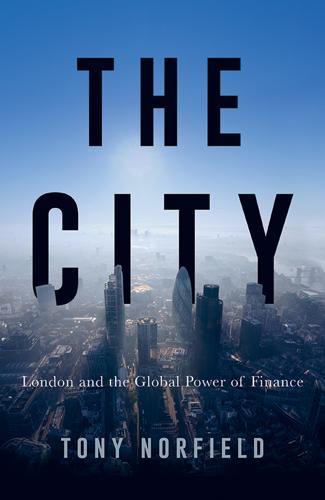
The City
by
Tony Norfield
As one might expect, the richest people own the bulk of equities, bonds and other securities. But many other people also own them, both directly and, more commonly, via savings plans, investment funds, endowment policies and pension schemes. US Federal Reserve data for 2013 reveal that the slogan of the Occupy Movement of 2011–12, ‘the 99 per cent versus the 1 per cent’, is more than a few percentage points adrift when it comes to economic divisions, at least in terms of financial assets owned. Ownership of equities and bonds also means receiving income from dividends and interest payments, not simply having the wealth they represent.
…
militarism 1–2 military power 6, 106 military spending 109–10 Mitterrand, François 63, 67 mobile phones 118, 121–2 monetary policy, UK 66 money advance of 86–7 creation of 83–5 national 115–16 value 163 money-capital 77–8 money-capitalists, and financial institutions 76–7 money-dealing capital 79 money-dealing capitalists 76–7, 77–8 money-market securities 76–7 Monopolies Commission 119–20 monopolistic companies 118 monopoly 90, 97 anti-monopoly policies 119–20 banks position 139 contemporary 121–3, 124, 125 and imperialism 100, 117–21 Lenin’s analysis 117–18 measure of 122–3 and mergers and acquisitions 122 network analysis 123, 124, 125 monopoly capitalism 93 monopoly power 119, 120, 126–7 Morgenthau, Henry 26–7, 36 mortgage-backed securities 140 mortgage loans 83, 143, 151 Mossadegh, Mohammad 59 Motorola 122 Murdoch, Rupert 113 national economy Hilferding’s analysis 93–4 state regulation 115–16 National Security Agency (US) 59 NEC 122 neoliberalism 13 Netherlands, the 205 network analysis, monopoly 123, 124, 125 network centrality 206 New Development Bank 18, 222–3 New York 185 bond market 49 development as financial centre 36–40 disadvantages 37–8, 40 foreign securities market 48 New York Federal Reserve 164 New York Times 173 New Zealand 31, 58, 60 Nokia 121–2 non-financial businesses 143 Northern Rock crisis, 2007 85, 116 North Sea oil 66, 69 nouveaux riches, the 78 NYSE Euronext 216 Obama, Barack 227 Occupy Movement, the 102 October 1987 stock market crash xi Office for National Statistics 138 Office of Fair Trading 120 offshore financial centres 205, 208 oil prices 55–7 oligarchs 78, 216 Olympic Games, 2012 120 OPEC 55–6 current account surplus 56–7 eurocurrency bank deposits 57 oil revenues 66 Orange 180 organised capitalism 95 Otis Elevator 121 outsourcing 98, 118–19 overdrafts 79–80 ownership stake, return on equity (RoE) 129–30 Oxfam 215 Panitch, Leo 14–17, 18 parasitism constructive 213–14 financial 95–7, 227–8 global 97–102 Lenin’s analysis 97–102 Marx’s analysis 95–7, 98 Paris 46, 47 patents 126 Paulson, Hank 125 pension funds 82–3, 99, 135 assets 103 PetroChina 222 petrodollars 55 Plaza Accord, the 68 policy-makers 13 political power 117 political pressures 6 portfolio flows 198–9, 199 portfolio investment 118, 201, 201, 202–3 portfolio investment theory 131 power 7–8, 100–2, 126–7.
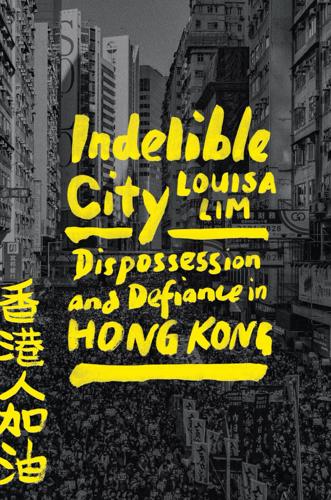
Indelible City: Dispossession and Defiance in Hong Kong
by
Louisa Lim
Published 19 Apr 2022
GO TO NOTE REFERENCE IN TEXT they protested in great numbers: Leung Po-lung, “Hong Kong Political Strikes: A Brief History,” Lausan, August 3, 2019. GO TO NOTE REFERENCE IN TEXT that T-shirts had been produced to mark it: Ng Kang-chung and Christy Leung, “Eleven Arrests, Double the Tear Gas Fired During Occupy Movement and 81 Injured: Police Chief Paints Disturbing Picture of Hong Kong Extradition Bill Protests,” South China Morning Post, June 13, 2019. GO TO NOTE REFERENCE IN TEXT see themselves as a nation: This definition of “Hong Kong nation” draws on work by Brian C. H. Fong, “Stateless Nation within a Nationless State: The Political Past, Present, and Future of Hongkongers, 1949–2019,” Nations and Nationalism 26, no. 4 (2020), using the definition of “nation” of Michael Keating, Nations against the State: The New Politics of Nationalism in Quebec, Catalonia, and Scotland, 2nd ed.
…
Hong Kong: Helena May Institute, 2016. Morris, Jan. Hong Kong: Epilogue to an Empire. Final ed. London: Penguin, 1997. Munn, Christopher. Anglo-China: Chinese People and British Rule in Hong Kong. Richmond, Surrey, UK: Curzon, 2000. Ng, Kang-chung, and Christy Leung. “Eleven Arrests, Double the Tear Gas Fired During Occupy Movement and 81 Injured: Police Chief Paints Disturbing Picture of Hong Kong Extradition Bill Protests.” South China Morning Post, June 13, 2019. Nissim, Roger. Land Administration and Practice in Hong Kong. 4th ed. Hong Kong: Hong Kong University Press, 2016. Obrist, Hans Ulrich. “Foreword: A Protest against Forgetting.”
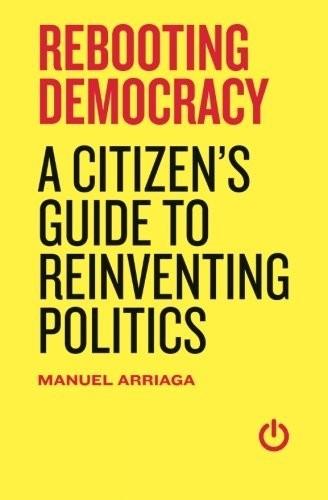
Rebooting Democracy: A Citizen's Guide to Reinventing Politics
by
Manuel Arriaga
Published 1 Jan 2014
recognize that complex policy issues (e.g., how to properly regulate the financial sector) don’t quite have an “intuitively evident” solution. [xi] It should be clear from the outset, though, that these citizen panels should have more power than merely producing “recommendations” for the benefit of the government and/or the state bureaucracy. [xii] In the wake of the Occupy movement, some argued that “popular assemblies,” in which all citizens who wished to do so would be able to freely participate in the decision-making process, could also help us avoid those problems. However, they are plagued by their own serious difficulties. First, popular assemblies do not scale to a large society.
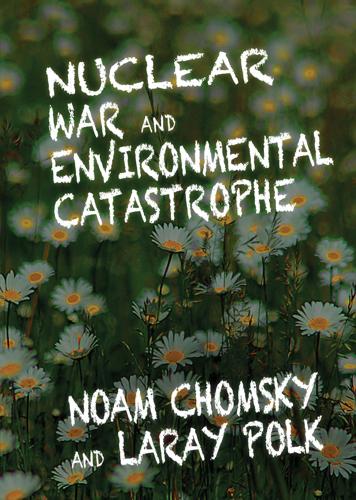
Nuclear War and Environmental Catastrophe
by
Noam Chomsky
and
Laray Polk
Published 29 Apr 2013
Chomsky has written and lectured widely on linguistics, philosophy, intellectual history, contemporary issues, international affairs, and US foreign policy. In 2010 Chomsky, Eduardo Galeano, Michael Hardt, Naomi Klein, and Vandana Shiva became signatories to United for Global Democracy, a manifesto created by the international Occupy movement. Laray Polk was born in Oklahoma in 1961 and currently lives in Dallas, Texas. She is a multimedia artist and writer. Her articles and investigative reports have appeared in the Dallas Morning News, D Magazine, and In These Times. As a 2009 grant recipient from the Investigative Fund at the Nation Institute, she produced stories on the political entanglements and compromised science behind the establishment of a radioactive waste disposal site in Texas, situated in close proximity to the Ogallala Aquifer.
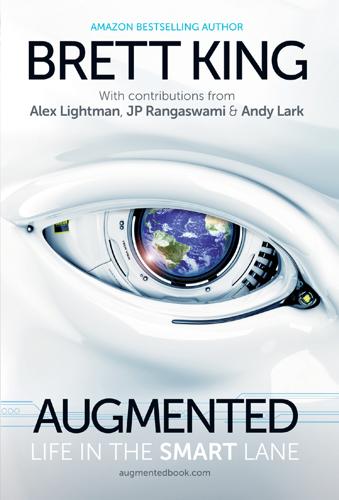
Augmented: Life in the Smart Lane
by
Brett King
Published 5 May 2016
Shifts of these magnitudes often bring incredible opportunities, jarring sociological adjustment and, on many occasions, even violence. The Internet, social media and smartphones brought us email, selfies, hashtags and YouTube, but they also brought us the Arab Spring, ISIS propaganda, Wikileaks, NSA’s PRISM programme and the global Occupy movement. Social media gave us Facebook and Twitter and arguably propelled Barak Obama to the presidency in 2008, but it has also allowed some of the most hateful and racist vilification in recent history to find a home. It has created cyberbullying that has left numerous victims in its wake and has exposed intimate details of both famous personalities and secret government agencies.
…
In fact, the 113th Congress in the United States is the oldest congress in history, with the average member being 62 years of age,26 and considered one of the least effective historically.27 With the introduction of social media, we’ve seen a huge increase in protests by Gen Y/Millennials attempting to provoke change—whether through the Arab Spring, the Occupy movements, protests against police brutality and extrajudicial killings in the United States and the like. The baby boomers longed for sustained peace; Gen X for economic prosperity and stability. The new citizens of the world, the generation that will dominate the world by 2023, don’t want stability per se.
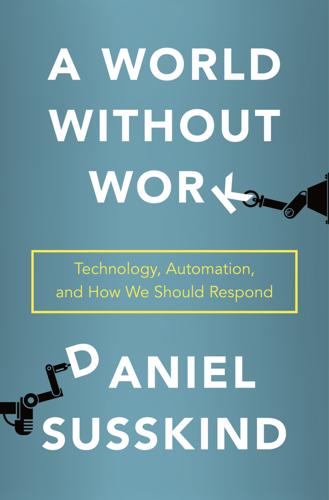
A World Without Work: Technology, Automation, and How We Should Respond
by
Daniel Susskind
Published 14 Jan 2020
Focusing our attention on that richest fraction of society gives us a third approach to the issue, known as “top income inequality” or just “top inequality.” This measure has captured the imagination of protesters and public commentators in the last decade, with “The One Percent” becoming a well-known label and “We are the 99 Percent” the battle cry of the Occupy Movement. Their frustration is not without cause: the proportion of total income that goes to the 1 percent who earn the most, particularly in developed countries, has increased significantly. In the United States and the UK, that share has almost doubled over the last few decades.15 Figure 8.3 shows that much the same story is unfolding elsewhere.
…
See also ALM hypothesis music composition Musk, Elon Nadella, Satya narrow intelligence, artificial National Endowment for the Arts National Health Service nationalization Native Americans natural selection navigation systems network effects Newell, Allen Newton, Isaac Ng, Andrew Nilsson, Nils non-routine tasks Norway Obama, Barack Occupy Movement O’Connor, Sarah Odysseus OECD (Organisation for Economic Cooperation and Development) offshore tax havens O’Grady, Frances Old Testament Omidyar, Pierre omitted variable bias On Assistance to the Poor (Vives) “The One Percent” online education On the Origin of Species (Darwin) opacity opium of the people ornithology Orwell, George Osborne, Michael oversight, political ownership Paine, Thomas Paley, William Palro (humanoid) paper clip analogy “Parable of Horseshit” parametric design Paro (therapeutic baby seal) participation rate partnerships pay pension systems Pepper (humanoid robot) personal computer (PC) personalized learning systems PhotoMath PIAAC.
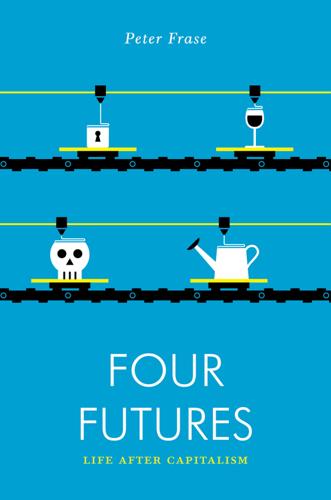
Four Futures: Life After Capitalism
by
Peter Frase
Published 10 Mar 2015
A 2013 report from the International Network of Civil Liberties Organizations documents the widespread “use of lethal and deadly force in response to largely peaceful gatherings seeking to express social and political viewpoints,” in places ranging from Canada to Egypt to Kenya to South Africa to the United States.31 The crackdown on the Occupy movement was one example of this, a show of force by squads of armored cops in cities across the country. Meanwhile the surveillance-state techniques revealed by former National Security Agency whistleblower Edward Snowden and others show just how powerful are the state’s tools for repressing dissent and monitoring the activities of activists.
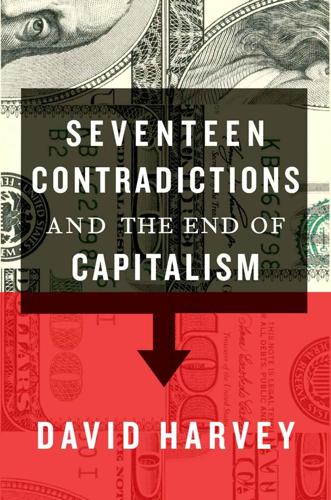
Seventeen Contradictions and the End of Capitalism
by
David Harvey
Published 3 Apr 2014
This political current is supported and to some degree meshes with increasingly violent militarised responses to any and all movements that threaten to break through the walls of that repressive tolerance so crucial to the perpetuation of liberal governmentality. Consider as examples the unduly violent police repression of the Occupy movement in the United States; the even more violent response to ongoing peaceful protests in Turkey that began in Taksim Square; police actions in Syntagma Square in Athens that smack of the fascist tactics of Golden Dawn; the continuous police brutality visited on student protesters in Chile; the government-organised attack upon protesters against the unsafe labour conditions in Bangladesh; the militarisation of the response to the Arab Spring movement in Egypt; the murder of union leaders in Colombia and many more.
…
283 Maddison, Angus 227 Maghreb 174 Malcolm X 291 Maldives 260 Malthus, Thomas 229–30, 232–3, 244, 246, 251 Manchester 149, 159 Manhattan Institute 143 Mansion House, London 201 manufacturing 104, 239 Mao Zedong 291 maquilas 129, 174 Marcuse, Herbert 204, 289 market cornering 53 market economy 198, 205, 276 marketisation 243 Marshall Plan 153 Martin, Randy 194 Marx, Karl 106, 118, 122, 142, 207, 211 and alienation 125, 126, 213 in the British Museum library 4 on capital 220 conception of wealth 214 on the credit system 239 and deskilling 119 on equal rights 64 and falling profits 107 and fetishism 4 on freedom 207, 208, 213 and greed 33 ‘industrial reserve army’ 79–80 and isolation of workers 125 labour theory of value 109 and monetary system reforms 36 monopoly power and competition 135 reality and appearance 4, 5 as a revolutionary humanist 221 and social reproduction 182 and socialist utopian literature 184 and technological innovation 103 and theorists of the political left 54 and the ‘totally developed individual’ 126–7 and world crises xiii; Capital 57, 79–80, 81, 82, 119, 129, 132, 269, 286, 291–2 The Economic and Philosophic Manuscripts of 1844 269, 286 Grundrisse 97, 212–13 Theories of Surplus Value 1 Marxism contradiction between productive forces and social relations 269 ‘death of Marxism’ xii; ecologically sensitive 263 and humanism 284, 286, 287 ‘profit squeeze’ theory of crisis formation 65 traditional Marxist conception of socialism/ communism 91 Marxists 65, 109 MasterCard Priceless 275 Mau Mau movement 291 Melbourne 141 merchants 67 and industrial capital 179 price-gouging customers 54 and producers 74–5 Mercosur 159 Mexican migrants 115, 175, 195–6 Mexico 123, 129, 174 Mexico City riots (1968) x microcredit 194, 198 microfinance 186, 194, 198, 211 Microsoft 131 Middle East 124, 230 Milanovic, Branko 170 military, the capacities and powers 4 dominance 110 and technology 93, 95 ‘military-industrial complex’ 157 mind-brain duality 70 mining 94, 113, 123, 148, 239, 257 MIT (Massachusetts Institute of Technology) 292 Mitchell, David: Cloud Atlas 264 Mitchell, Timothy 122 Modern Times (film) 103 Mondragon 180 monetarism xi monetary wealth and incomes, inequalities in (1920s) x 1071 monetisation 44, 55, 60, 61, 62, 115, 192–3, 198, 235, 243, 250, 253, 261, 262 money abandonment of metallic basis of global moneys 30, 37, 109 circulation of 15, 25, 30–31, 35 coinage 15, 27, 29, 30 commodification of 57 commodity moneys 27–31 creation of 30, 51, 173, 233, 238–9, 240 credit moneys 28, 30, 31, 152 cyber moneys 36, 109–10 electronic moneys 27, 29, 35, 36, 100 and exchange value 28, 35, 38 fiat 8, 27, 30, 40, 109, 233 gap between money and the value it represents 27 global monetary system 46–7 love of money as a possession 34 measures value 25, 28 a moneyless economy 36 oxidisation of 35 paper 15, 27, 29, 30, 31, 37, 40, 45 power of 25, 36, 59, 60, 62, 65–66, 131–6, 245, 266 quasi-money 35 relation between money and value 27, 35 represented as numbers 29–30 and social labour 25, 27, 31, 42, 55, 88, 243 and the state 45–6, 51, 173 storage of value 25, 26, 35 the US dollar 46–7 use value 28 money capital 28, 32, 59, 74, 142, 147, 158, 177, 178 money laundering 54, 109 ‘money of account’ 27–8, 30 monopolisation 53, 145 monopoly, monopolies 77 and competition 131–45, 218, 295 corporate 123 monetary system 45, 46, 48, 51 monopoly power 45, 46, 51, 93, 117, 120, 132, 133–4, 136, 137, 139, 141, 142–3 monopoly pricing 72, 132 natural 118, 132 of state over legitimate use of force and violence 42, 44, 45, 51, 88, 155, 173 see also prices, monopoly monopsony 131 Monsanto 123 Montreal Protocol 254, 259 ‘moral restraints’ 229, 233 mortgages 19, 21, 28, 32, 54, 67, 82, 239 multiculturalism 166 Mumbai 155, 159 Murdoch, Rupert xi Myrdal, Gunnar 150 N NAFTA 159 name branding 31, 139 nano-trading 243 Nation of Islam 291 national debt 45, 226, 227 National Health Service 115 National Labor Relations Board 120 National Security Administration 136 nationalisation 50 nationalism 7, 8, 44, 289 natural resources 58, 59, 123, 240, 241, 244, 246, 251 nature 56 alienation from 263 capital’s conception of 252 capital’s relation to 246–63 commodification of 59 domination of 247, 272 Heidegger on 59, 250 Polanyi on 58 power over 198 process-thing duality 73 and technology 92, 97, 99, 102 Nazis 151 neoclassical economists 109 neocolonialism 143, 201 neoliberal era 128 neoliberal ethic 277 neoliberalisation x, 48 neoliberalism xiii, 68, 72, 128, 134, 136, 176, 191, 234, 281 capitalism 266 consensus 23 counter-revolution 82, 129, 159, 165 political programme 199 politics 57 privatisation 235 remedies xi Nevada, housing in 77 ‘new economy’ (1990s) 144 New York City 141, 150 creativity 245 domestic labour in 196 income inequality 164 rental markets 22 social reproduction 195 Newton, Isaac 70 NGOs (non-governmental organisations) 189, 210, 284, 286, 287 Nike 31 Nkrumah, Kwame 291 ‘non-coincidence of interests’ 25 Nordic countries 165 North America deindustrialisation in 234 food grain exports 148 indigenous population and property rights 39 women in labour force 230 ‘not in my back yard’ politics 20 nuclear weapons 101 Nyere, Julius 291 O Obama, Barack 167 occupational safety and health 72 Occupy movement 280, 292 Ohlin Foundation 143 oil cartel 252 companies 77, 131 ‘Seven Sisters’ 131 embargo (1973) 124 ‘peak oil’ 251–2, 260 resources 123, 240, 257 oligarchy, oligarchs 34, 143, 165, 221, 223, 242, 245, 264, 286, 292 oligopoly 131, 136, 138 Olympic Games 237–8 oppositional movements 14, 162, 266–7 oppression 193, 266, 288, 297 Orwell, George 213 Nineteen Eighty-Four 202 overaccumulation 154 overheating 228 Owen, Robert 18, 184 Oxfam xi, 169–70 P Paine, Tom: Rights of Man 285 Paris 160 riots (1968) x patents 139, 245, 251 paternalism 165, 209 patriarchy 7 Paulson, Hank 47 pauperisation 104 Peabody, George 18 peasantry ix, 7, 107, 117, 174, 190, 193 revolts 202 pensions 134, 165, 230 rights 58, 67–8, 84, 134 people of colour: disposable populations 111 Pereire, Emile 239 pesticides 255, 258 pharmaceuticals 95, 121, 123, 136, 139 Philanthropic Colonialism 211 philanthropy 18, 128, 189, 190, 210–11, 245, 285 Philippines 115, 196 Picasso, Pablo 140–41, 187, 240 Pinochet, Augusto x Pittsburgh 150, 159, 258 planned obsolescence 74 plutocracy xi, xii, 91, 170, 173, 177, 180 Poland 152 Polanyi, Karl 56, 58, 60, 205–7, 210, 261 The Great Transformation 56–7 police 134 brutality 266 capacities and powers 43 powers xiii, 43, 52 repression 264, 280 surveillance and violence 264 violence 266, 280 police-state 203, 220 political economy xiv, 54, 58, 89, 97, 179–80, 182, 201, 206–9 liberal 204, 206, 209 political parties, incapable of mounting opposition to the power of capital xii political representation 183 pollutants 8, 246, 255 pollution 43, 57, 59, 60, 150, 250, 254, 255, 258 Pontecorvo, Gillo 288 Ponzi schemes 21, 53, 54, 243 population ageing 223, 230 disposable 108, 111, 231, 264 growth 107–8, 229, 230–31, 242, 246 Malthus’s principle 229–30 Portugal 161 post-structuralism xiii potlatch system 33 pounds sterling 46 poverty 229 anti-poverty organisations 286–7 and bourgeois reformism 167 and capital 176 chronic 286 eradication of 211 escape from 170 feminisation of 114 grants 107 and industrialisation 123 and population expansion 229 and unemployment 170, 176 US political movement denies assistance to the poor 292–3 and wealth 146, 168, 177, 218, 219, 243 world xi, 170 power accumulation of 33, 35 of capital xii, 36 class 55, 61, 88, 89, 97, 99, 110, 134, 135, 221, 279 computer 105 and currencies 46 economic 142, 143, 144 global 34, 170 the house as a sign of 15–16 of labour see under labour; of merchants 75 military 143 and money 25, 33, 36, 49, 59, 60, 62, 63, 65–6, 245, 266 monopoly see monopoly power; oligarchic 292 political 62, 143, 144, 162, 171, 219, 292 purchasing 105, 107 social 33, 35, 55, 62, 64, 294 state 42–5, 47–52, 72, 142, 155–9, 164, 209, 295 predation, predators 53, 54, 61, 67, 77, 84, 101, 109, 111, 133, 162, 198, 212, 254–5 price fixing 53, 118, 132 price gouging 132 Price, Richard 226, 227, 229 prices discount 133 equilibrium in 118 extortionate 84 food 244, 251 housing 21, 32, 77 land 77, 78, 150 low 132 market 31, 32 and marketplace anarchy 118 monopoly 31, 72, 139, 141 oil 251, 252 property 77, 78, 141, 150 supermarket 6 and value 31, 55–6 private equity firms 101, 162 private equity funds 22, 162 private property and the commons 41, 50, 57 and eradication of usufructuary rights 41 and individual appropriation 38 and monopoly power 134–5, 137 social bond between human rights and private property 39–40 and the state 47, 50, 58, 59, 146, 210 private property rights 38–42, 44, 58, 204, 252 and collective management 50 conferring the right to trade away that which is owned 39 decentralised 44 exclusionary permanent ownership rights 39 and externality effects 44 held in perpetuity 40 intellectual property rights 41 microenterprises endowed with 211 modification or abolition of the regime 14 and nature 250 over commodities and money 38 and state power 40–41, 42–3 underpinning home ownership 49 usufructuary rights 39 privatisation 23, 24, 48, 59, 60, 61, 84, 185, 235, 250, 253, 261, 262, 266 product lines 92, 107, 219, 236 production bourgeois 1 falling value of 107 immaterial 242 increase in volume and variety of 121 organised 2 and realisation 67, 79–85, 106, 107, 108, 173, 177, 179, 180, 221, 243 regional crises 151 workers’ dispossession of own means of 172 productivity 71, 91, 92, 93, 117, 118, 121, 125, 126, 132, 172, 173, 184, 185, 188, 220, 239 products, compared with commodities 25–6 profitability 92, 94, 98, 102, 103, 104, 106, 112, 116, 118, 125, 147, 184, 191–2, 240, 252, 253, 256, 257 profit(s) banking 54 as capital’s aim 92, 96, 232 and capital’s struggle against labour 64, 65 and competition 93 entrepreneurs 24, 104 falling 81, 107, 244 from commodity sales 71 and money capital 28 monopoly 93 rate of 79, 92 reinvestment in expansion 72 root of 63 spending of 15 and wage rates 172 proletarianisation 191 partial 175, 190, 191 ‘property bubble’ 21 property market boom (1920s) 239 growth of 50 property market crashes 1928 x, 21 1973 21 2008 21–2, 54, 241 property rights 39, 41, 93, 135 see also intellectual property rights; private property property values 78, 85, 234 ‘prosumers’ 237 Proudhon, Pierre-Joseph 183 Prozac 248 public goods 38 public utilities 23, 60, 118, 132 Q quantitative easing 30, 233 R R&D ix race 68, 116, 165, 166, 291 racial minorities 168 racialisation 7, 8, 62, 68 racism 8 Rand, Ayn 200 raw materials 16, 17, 148, 149, 154 Reagan, Ronald x, 72 Speech at Westminster 201 Reagan revolution 165–166 realisation, and production 67, 79–85, 106, 107, 108, 173, 177, 179, 180, 221, 243 reality contradiction between reality and appearance 4–6 social 27 Reclus, Elisée 140 regional development 151 regional volatility 154 Reich, Robert 123, 188 religion 7 religious affiliation 68 religious hatreds and discriminations 8 religious minorities 168 remittances 175 rent seeking 132–3, 142 rentiers 76, 77, 78, 89, 150, 179, 180, 241, 244, 251, 260, 261, 276 rents xii, 16–19, 22, 32, 54, 67, 77, 78, 84, 123, 179, 241 monopoly 93, 135, 141, 187, 251 repression 271, 280 autocratic 130 militarised 264 police-state 203 violent 269, 280, 297 wage 158, 274 Republican Party (US) 145, 280 Republicans (US) 167, 206 res nullius doctrine 40 research and development 94, 96, 187 ‘resource curse’ 123 resource scarcity 77 revolution, Fanon’s view of 288 revolutionary movements 202, 276 Ricardo, David 122, 244, 251 right, the ideological and political assault on the left xii; response to universal alienation 281 ‘rights of man’ 40, 59, 213 Rio de Janeiro 84 risk 17, 141, 162, 219, 240 robbery 53, 57, 60, 63, 72 robotisation 103, 119, 188, 295 Rodney, Walter 291 romantic movement 261 Roosevelt, Theodore 131, 135 Four Freedoms 201 Rousseau, Jean-Jacques 213, 214 Ruhr, Germany 150 rural landscapes 160–61 Russia 154 a BRIC country 170, 228 collapse of (1989) 165 financial crisis (1998) 154, 232 indebtedness 152 local famine 124 oligarchs take natural resource wealth 165 S ‘S’ curve 225, 230–31 Saint-Simon, Claude de Rouvroy, comte de 183 sales 28, 31, 187, 236 San Francisco 150 Santiago, Chile: street battles (2006–) 185 Sao Paulo, Brazil 129, 195 savings the house as a form of saving 19, 22, 58 loss of 20, 58 private 36 protecting the value of 20 Savings and Loan Crisis (USA from 1986) 18 savings accounts 5, 6 Scandinavia 18, 85, 165 scarcity 37, 77, 200, 208, 240, 246, 260, 273 Schumpeter, Joseph 98, 276 science, and technology 95 Seattle 196 Second Empire Paris 197 Second World War x, 161, 234 Securities and Exchange Commission 120, 195 security xiii, 16, 121, 122, 165, 205, 206 economic 36, 153 food 253, 294, 296 job 273 national 157 Sen, Amartya 208–11, 281 Development as Freedom 208–9 senior citizens 168 Seoul 84 serfdom 62, 209 sexual hatreds and discriminations 8 Shanghai 153, 160 share-cropping 62 Sheffield 148, 149, 159, 258 Shenzhen, China 77 Silicon Valley 16, 143, 144, 150 silver 27–31, 33, 37, 57, 233, 238 Simon, Julian 246 Singapore 48, 123, 150, 184, 187, 203 slavery 62, 202, 206, 209, 213, 268 slums ix, 16, 175 Smith, Adam 98, 125–6, 157, 185, 201, 204 ‘invisible hand’ 141–2 The Wealth of Nations 118, 132 Smith, Neil 248 social distinction 68, 166 social inequality 34, 110, 111, 130, 171, 177, 180, 220, 223, 266 social justice 200, 266, 268, 276 social labour 53, 73, 295 alienated 64, 66, 88 and common wealth 53 creation of use values through 36 expansion of total output 232 household and communal work 296 immateriality of 37, 233 and money 25, 27, 31, 42, 55, 88, 243 productivity 239 and profit 104 and value 26, 27, 29, 104, 106, 107, 109 weakening regulatory role of 109, 110 social media 99, 136, 236–7, 278–9 social movements 162–3 social reproduction 80, 127, 182–98, 218, 219, 220, 276 social security 36, 165 social services 68 social struggles 156, 159, 165, 168 social value 26, 27, 32, 33, 55, 172, 179, 241, 244, 268, 270 socialism 215 democratic xii; ‘gas and water’ 183 socialism/communism 91, 269 socialist revolution 67 socialist totalitarianism 205 society capitalist 15, 34, 81, 243, 259 civil 92, 122, 156, 185, 189, 252 civilised 161, 167 complex 26 demolition of 56 and freedom 205–6, 210, 212 hope for a better society 218 industrial 205 information 238 market 204 post-colonial 203 pre-capitalist 55 primitive 57 radical transformation of 290 status position in 186 theocratic 62 women in 113 work-based 273 world 204 soil erosion 257 South Africa 84–5, 152, 169 apartheid 169, 202, 203 South Asia labour 108 population growth 230 software programmers and developers 115, 116 South Korea 123, 148, 150, 153 South-East Asia 107–8 crisis (1997–8) 154, 232, 241 sovereign debt crises 37 Soviet Bloc, ex-, labour in 107 Soviet Union 196, 202 see also Russia Spain xi, 51, 161 housing market crash (2007–9) 82–3 spatio-temporal fixes 151–2, 153, 154, 162 spectacle 237–8, 242, 278 speculative bubbles and busts 178 stagnation xii, 136, 161–2, 169 Stalin, Joseph 70 standard of life 23, 175 starvation 56, 124, 246, 249, 260, 265 state, the aim of 156–7 brutality 266, 280 and capital accumulation 48 and civil society 156 curbing the powers of capital as private property 47 evolution of the capitalist state 42 and externality effects 44 guardian of private property and of individual rights 42 and home ownership 49–50 interstate system 156, 157 interventionism 193, 205 legitimate use of violence 42, 44, 45, 51, 88, 155, 173 loss of state sovereignty xii; and money 1, 45–6, 51, 173 ‘nightwatchman’ role 42, 50 powers of 42–5, 47–52, 57–8, 65, 72, 142, 155–9, 209, 295 and private property 47, 50, 58, 59, 146, 210 provision of collective and public goods 42–3 a security and surveillance state xiii; social democratic states 85 war aims 44 state benefits 165 state regulatory agencies 101 state-finance nexus 44–5, 46–7, 142–3, 156, 233 state-private property nexus 88–9 steam engine, invention of the 3 steel industry 120, 121, 148, 188 steel production 73–4 Stiglitz, Joseph 132–4 stock market crash (1929) x Stockholm, protests in (2013) 171, 243 strikes 65, 103, 124 sub-prime mortgage crisis 50 suburbanisation 253 supply and demand 31, 33, 56, 106 supply chain 124 supply-side remedies xi supply-side theories 82, 176 surplus value 28, 40, 63, 73, 79–83, 172, 239 surveillance xiii, 94, 121, 122, 201, 220, 264, 280, 292 Sweden 166, 167 protests in (2013) 129, 293 Sweezy, Paul 136 swindlers, swindling 45, 53, 57, 239 ‘symbolic analysts’ 188 Syntagma Square, Athens 266, 280 T Tahrir Square, Cairo 266 Taipei, Taiwan 153 Taiwan 123, 150, 153 Taksim Square, Istanbul 266, 280 Tanzania 291 tariffs 137 taxation 40, 43, 47, 67, 84, 93–4, 106, 133, 150, 155, 157, 167, 168, 172, 190 Taylor, Frederick 119, 126 Taylorism 103 Tea Party faction 205, 280, 281, 292 technological evolution 95–6, 97, 101–2, 109 technological imperatives 98–101 technological innovation 94–5 technology changes involving different branches of state apparatus 93–4 communicative technologies 278–9 and competition 92–3 constraints inhibiting deployment 101 culture of 227, 271 definition 92, 248 and devaluation of commodities 234 environmental 248 generic technologies 94 hardware 92, 101 humanising 271 information 100, 147, 158, 177 military 93, 95 monetary 109 and nature 92, 97, 99, 102 organisational forms 92, 99, 101 and productivity 71 relation to nature 92 research and development 94 and science 95 software 92, 99, 101 a specialist field of business 94 and unemployment 80, 103 work and labour control 102–11 telephone companies 54, 67, 84, 278 Tennessee 148 Teresa, Mother 284 Thatcher, Margaret (later Baroness) x, 72, 214, 259 Thatcherism 165 theft 53, 60, 61, 63 Thelluson, Peter 226, 227 think tanks 143 ‘Third Italy’ 143 Third World debt crisis 240 Toffler, Alvin 237 tolls 137 Tönnies, Ferdinand 122, 125 tourism ix, 16, 140, 141, 187, 236 medical 139 toxic waste disposal 249–50, 257 trade networks 24 trade unions xii, 116, 148, 168, 176, 184, 274, 280 trade wars 154 transportation 23, 99, 132, 147–8, 150, 296 Treasury Departments 46, 156 TRIPS agreement 242 tropical rainforest 253 ‘trust-busting’ 131 trusts 135 Turin, Italy 150 Turkey 107, 123, 174, 232, 280, 293 Tuscany, Italy 150 Tutu, Archbishop Desmond 284 Twitter 236 U unemployment 37, 104, 258, 273 benefits 176 deliberately created 65, 174 high xii, 10, 176 insurance 175 and labour reserves 175, 231 and labour-saving technologies 173 long-term 108, 129 permanent 111 echnologically induced 80, 103, 173, 274 uneven geographical developments 178, 296 advanced and underserved regional economies 149–50 and anti-capitalist movements 162 asset bubbles 243 and capital’s reinvention of itself 147, 161 macroeconomic processes of 159 masking the true nature of capital 159–60 and technological forms 219 volatility in 244 United Fruit 136 United Kingdom income inequality in 169; see also Britain United Nations (UN) 285 United States aim of Tea Party faction 280 banking 158 Bill of Rights 284 Britain lends to (nineteenth century) 153 capital in (1990s) 154 Constitution 284 consumption level 194 global reserve currency 45–6 growth 232 hostility towards state interventions 167 House of Representatives 206 human rights abuses 202 imperial power 46 indebtedness of students in 194 Indian reservations 249 interstate highway system 239 jobless recoveries after recession 172–3 liberty and freedom rhetoric 200–201, 202 Midwest ‘rust belt’ 151 military expenditures 46 property market crashes x, 21–2, 50, 54, 58, 82–3 racial issues 166 Savings and Loan Crisis (from 1986) 18 social mobility 196 social reproduction 196–7 solidly capitalist 166 steel industry 120 ‘symbolic analysts’ 188 ‘trust-busting’ 131 unemployment 108 wealth distribution 167 welfare system 176 universal suffrage 183 urbanisation 151, 189, 228, 232, 239, 247, 254, 255, 261 Ure, Andrew 119 US Congress 47 US dollar 15, 30, 45–6 US Executive Branch 47 US Federal Reserve xi, 6, 30, 37, 46, 47, 49, 132, 143, 233 monetary policy 170–71 US Housing Act (1949) 18 US Treasury 47, 142, 240 use values collectively managed pool of 36 commodification of 243 commodities 15, 26, 35 common wealth 53 creation through social labour 36 and entrepreneurs 23–4 and exchange values 15, 35, 42, 44, 50, 60, 65, 88 and housing 14–19, 21–2, 23, 67 and human labour 26 infinitely varied 15 of infrastructural provision 78 loss of 58 marketisation of 243 monetisation of 243 of money 28 privatised and commodified 23 provision of 111 and revolt of the mass of the people 60 social demand for 81 usufructuary rights 39, 41, 59 usury 49, 53, 186, 194 utopianism 18, 35, 42, 51, 66, 119, 132, 183, 184, 204, 206–10, 269, 281, 282 V value(s) commodity 24, 25 failure to produce 40 housing 19, 20, 22 net 19 production and realisation of 82 production of 239 property 21 relation between money and value 27, 35 savings 20 storing 25, 26, 35 see also asset values; exchange values; social value; use values value added 79, 83 Veblen, Thorstein: Theory of the Leisure Class 274 Venezuela 123, 201 Vietnam, labour in 108 Vietnam War 290 violence 53, 57, 72, 204–5, 286 against children 193 against social movements 266 against women 193 colonial 289–90, 291 and contemporary capitalism 8 culture of 271 of dispossession 58, 59 in a dystopian world 264 and humanism 286, 289, 291 of the liberation struggle 290 militarised 292 as the only option 290–91 political 280 in pursuit of liberty and freedom 201 racialised 291 state’s legitimate use of 42, 44, 45, 51, 88, 155, 173 of technology 271 and wage labour 207 virtual ecological transfer 256 Volcker, Paul 37 W wages 103 basic social wage 103 falling 80, 82 for housework 115, 192–3 low xii, 114, 116, 186, 188 lower bound to wage levels 175 non-payment of 72 and profits 172 reduction in 81, 103, 104, 135, 168, 172, 176, 178 rising 178 and unskilled labour 114 wage demands 150, 274 wage levels pushed up by labour 65 wage rates 103, 116, 172, 173 wage repression 158–9 weekly 71 see also income Wall Street criticised by a congressional committee 239–40 illegalities practised by 72, 77 and Lebed 195 new information-processing technologies 100 Wall Street Crash (1929) x, 47 Wall-E (film) 271 Walmart xii, 75, 84, 103, 131 war on terror 280 wars 8, 60, 229 currency 154 defined 44 monetisation of state war-making activities 44–5 privatisation of war making 235 resource 154, 260 and state aims 44 state financing of 32, 44, 48 and technology 93 trade 154 world 154 water privatisation 235 wave theory 70 wave-particle duality 70 wealth accumulation of 33, 34, 35, 157, 205 creation of 132–3, 142, 214 disparities of 164–81 distribution of 34, 167 extraction from non-productive activities 32 global 34 the house as a sign of 15–16 levelling up of per capita wealth 171 and poverty 146, 168, 177, 218, 219, 243 redistribution of 9, 234, 235 social 35, 53, 66, 157, 164, 210, 251, 265, 266, 268 taking it from others 132–3 see also common wealth weather futures 60 Weber, Max 122, 125 Weimar Republic 30 welfare state 165, 190, 191, 208 Wells Fargo 61 West Germany 153, 154, 161 Whitehead, Alfred North 97 Wilson, Woodrow 201 Wolf, Martin 304n2 Wollstonecraft, Mary: A Vindication of the Rights of Woman 285 women career versus family obligations 1–2 disposable populations 111 exploitation of 193 housework versus wage labour 114–15 oppression against 193 social struggle 168 trading of 62 violence against 193 in the workforce 108, 114, 115, 127, 174, 230 women’s rights 202, 218 workers’ rights 202 working classes and capital 80 consumer power 81 crushing organisation 81 education 183, 184 gentrified working-class neighbourhoods ix; housing 160 living conditions 292 wage repression and consumption 158–9 working hours 72, 104–5, 182, 272–5, 279 World Bank 16, 24, 100, 186, 245 World Trade Organization 138, 242 WPA programmes (1930s) 151 Wright, Frank Lloyd: Falling Water 16 Wriston, Walter 240 Y YouTube 236 Yugoslavia, former 174 Z Zola, Émile 7
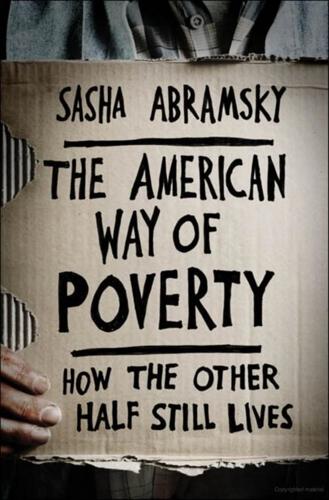
The American Way of Poverty: How the Other Half Still Lives
by
Sasha Abramsky
Published 15 Mar 2013
Yet, while more people were making these connections, this hadn’t yet translated into mass political movements. Occupy Wall Street garnered much public sympathy, but most people sympathized from the sidelines. They didn’t have the time and energy to engage in the sort of all-in protests that came to define the Occupy movement—at least in part because so many people were working such long hours just to keep their families afloat—they didn’t like the confrontational tactics and scruffy style of the Occupiers, or they didn’t feel that camping out in parks and outside of city halls would actually change a whole lot in their lives.
…
Not because it’s impractical; not because it would bankrupt oil companies—but because those companies pump a huge amount of money into lobbying against such measures, and because today in America the political process is far more finely tuned to meeting the needs of the affluent than those of the poor. This leads to the third and last problem: until the Occupy movement grabbed the political spotlight, for decades America’s poor had come to think of themselves as ever more disempowered, ever more passive in the face of their poverty. And to a large extent, the assumption of powerlessness became self-fulfilling. Unable to influence the body politic, more and more people simply opted out: not voting in elections, not joining trade unions, and not informing themselves about the great issues of the day.
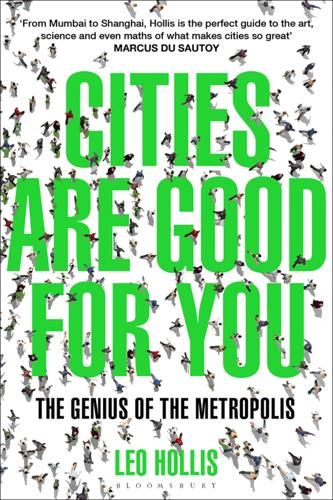
Cities Are Good for You: The Genius of the Metropolis
by
Leo Hollis
Published 31 Mar 2013
Instead, as ownership of British cities goes back to private landlords, the process of removing public rights of way is buried in the arcane language and technical detail of the most obscure parts of planning law … there is an adage in highway law which says ‘once a highway, always a highway’ … In many British towns and cities, this common-law right is being quietly eroded.18 It is difficult to reboot the community if our public spaces are being closed off. Where shall we meet if everywhere we go is mediated by CCTV or private security guards with hi-vis vests and walkie-talkies? At a recent talk at London’s Southbank Centre, the urban sociologist Richard Sennett, who had supported the Occupy movement since the outset, told the audience that the threat to public spaces is one of the most dangerous attacks on our civil liberties and had to be defended by any means. The audience applauded as he called for ‘more occupation of spaces’, encouraging the listeners to ‘go where you don’t belong’. It is only now, once we have lost these public spaces, that we mourn their passing.
…
It was there at the Occupy camps in cities around the world, in the concept of taking public space and transforming it through their actions. As the American legal activist Peter Marcuse blogged, there was a strong connection between 1968 and Occupy: ‘The spirit of 1968 has continued and is part of the DNA of the Occupy movement and the Right to the City movements … both reflect the underlying impetus for change, the congealed demands of the exploited, the oppressed, and the discontented.’34 Some cities have already adopted the idea of the right to the city as an expressive part of their constitution. For example, the 2001 statute of São Paulo states that each citizen is guaranteed ‘the right to sustainable cities, understood as the right to urban land, to housing, to environmental sanitation, to urban infrastructure, to public transit and public services, to work and to leisure, for present and future generations’ (although this does not seem to have changed the everyday life of the city, which is one of the most inequal in the world).
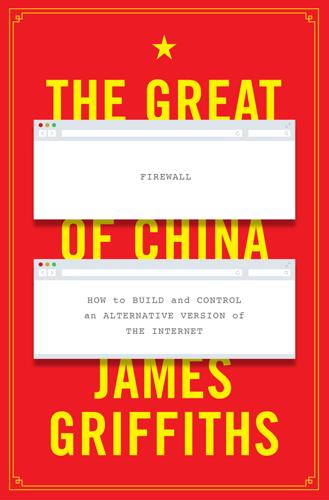
The Great Firewall of China
by
James Griffiths;
Published 15 Jan 2018
A great deal of writing on Chinese censorship is based on a fundamental misunderstanding of both how the censors operate and what their ultimate goals are. The internet is a liberatory technology not because it can help share information, but because it can help build solidarity. It’s why the Occupy movement spread across multiple countries, and how a small protest in Tunisia could spark a wave of pro-democracy demonstrations throughout the Arab world. At the same time, it’s also how the Islamic State is able to spread its message and recruit volunteers from thousands of kilometres away, and how minor disagreements over representation in pop culture can evolve into the anti-feminist Gamergate movement.
…
Index Abbott, Tony, 203 acceptable criticism, boundaries of, 75 Access Now, 236 Adelaide, Australia, 206 Adkins, Heather, 169 Admiralty, camp, 19 Adobe, 170 Africa: China presence, 287–8; Huawei earnings, 304; internet in, 291; Xinhua success, 80 Agora, dark web, 100 Ahmadinejad, Mahmoud, 111 AI software, 200 Ai Weiwei, 170, 214 Albert Einstein College of Medicine, 38 Al-Assad, Bashir, 209 Al-Bashir, Omar, 291 Al-Ghanim, Mohamed Nasser, 231 Algeria, 230 Ali, Guzelnur, 195, 198 Alibaba, 200, 235, 242, 279; Alipay, 281; Taobao online marketplace, 210; Yahoo stake in, 67 Allawi, Ayad, 223 Alphabet, 315 Al Qaeda, 199 American Civil Liberties Union, 245 Amir-Ebrahimi, Masserat, 150 Amnesty International, 280 Andreessen Horowitz, 279 Angola, 289 Anhui province, 78 Anite, Evelyn, 303 Anonymous, 185–6, 188 Anti, Michael, 36, 93, 116 anti-Rightist Movement, Xinjiang avoidance, 133 anti-surveillance tools, 5 Antonov, Polina, 254–5 Antonov, Vadim, 253–4 Apple, 1990s faltering, 277 Applebaum, Jacob, 104–5 APT1, 186–7 Arab Spring, 8, 10, 264, 311 Artux, 132, 134 Asia-America Gateway, underwater cable system, 155 AsiaInfo, 31 Asiaweek, 54 Associated Press, 80 Aum Shinrikyo cult, 49 Australia, censorship, 315 Aximujiang Aimaiti, killing of, 146 Azat, Nijat, 157 baby formula scandal, 204 Badiucao, 175, 178–9, 184, 204–5, 207–8, 211–12, 215; smear attempts, 214; ‘traitor’ accusation, 210; Weibo account deleted, 206 Baidu, 4, 63, 171–2, 242, 260; Baike web site, 210; market share growth, 126; party members, 235; patriotism boast, 124; search engine, 165 balinghou generation, 204 Bandurski, David, 212 Bardin, Valery, 253, 255–6 Barlow, John Perry, 6, 243, 246; utopian language, 7 Barlow, Norman, 243 Barr, Aaron, 185–6, 188 Bastrykin, Alexander, 251 Beach, Sophie, 212 Beidaihe, China resort, 47, 89 Beijing, 29; academia elite circles, 134; Beihang University, 234; Engagement Centre ICANN, 234; jamming signals, 107; Medical University, 37; Niujie mosque, 138; Youth Daily, 73 Berners-Lee, Tim, 252 Besigye, Kizza, 292–3, 295–6; ‘preventative arrest’, 298; treason charge, 299 Big Vs, 180 Bijie, 95 Bildt, Carl, 223 Bingtuan, 134 BitTorrent, 5 Blocked on Weibo, 183 blogging, 93 Bloomberg, 80 Bluetooth, communication use, 19 Brand, Stewart, 244 Brautigam, Deborah, 290 Brin, Sergey, 62–3, 116, 119, 168, 315; family history, 171 Brito, Jerry, 229 broadband connection, 155 Brown University, USA, 85 Burkina Faso, 288 Burkov, Dmitry, 253 Bush, George W., 110, 246 BuzzFeed, 199 Charlie Hebdo, attacks on, 209 Callahan, Michael, 119 Cambridge Analytica, 313, 317 Cambridge University, 162 Canada, 232; Tibet Committee, 85–6 Cankao Xiaoxi, 36 Cao Guowei, 182–3 Carnegie, Dale, 117 Cartoonists, persecution of, 209 Catalonia, 2017 referendum, 316 Causeway Bay, camp, 19 CCTV International, 287 censorship: AI-based, 315; anti-tools, 102–3; in-house, 183; manual, 75; software, 101 Cerf, Vint, 221, 228 CERN, 252 Chan, Connie, 279 Chen Jieren, 171 Chen, Kathy, 312 Cheney, Dick, 243–4 Cheng Jianping, 74 China, People’s Republic of, 137, 204; Academy of Sciences, 49, 51; Africa criticism Western hypocrisy, 290–1; Africa investments, 305; censorship, 27; Central Television, 181; Civil Aviation Administration, 310; courts conviction rates, 198; cyber sovereignty doctrine, 8, 234, 292; cybersecurity law 2017, 280; Cyberspace Administration of, 3; Democracy Party, 41–2, 92; Development Bank, 304;domestic security profits, 201; early internet enthusiasm, 32; elite, 90, 117; elite hackers, 172, 192; entertainment industry, 215; factory sexual harassment, 145; first commercial internet service, 25; globalised online influence, 212; Google compromised, 315; high-speed rail system, 176–7; human rights lawyers, 206; internet companies overseas business, 236; Internet Network Information Centre, 235; Internet Society of, 64; Ministry of Foreign Affairs, 165, 167; Ministry of Public Security, 26; National Electronics Import & Export Corporation, 303; National Defence Daily, 153; nationalised internet, 231; Netcom Communications, 31–2; official aid budget, 289; PLA, see below; Qigong Science Research Society, 48; Qing Empire era, 205; social credit system, 281–3; State Council, 42, 11, 181, 241; tech firms security contracts, 200; Telecom, 30–1, 156; telecoms buying, 30; 2008 Olympics, 180; UN advocacy, 233; Unicom, 156; US Embassy in, 180; -US relations, 109; WTO joining, 91, 92; Youth Daily, 64, 172 China Digital Times, US-based, 76 ChinaNet, 30 Chinese Communist Party (CCP), CCP, 8, 42, 74, 288; internal politics, 312; Politburo Standing Committee, 165 Chinese Golden Shield, 104 Chinese Institute of Computer Applications, 24 Chinese People’s Political Consultative Conference, 77 choke points, China internet, 29 CIA (US Central Intelligence Agency), 85, 161; Q-Tel venture capital arm, 108 circumvention tools: Tor, 101; user lack, 71 Cisco, 29, 32, 115, 119, 236, 304; basic filtering technology, 32 Citizen Lab, 159–60, 163–4, 276 Civic Square, Hong Kong, 15, 17, 20; pro-democracy rally 2014, 16 ‘civilized behaviour’, as censorship, 240 Clarke, Ian, 99 Clinton, Bill, 43, 246; China internet optimism, 42 Clinton, Hillary, 173, 211, 264 CNET.com, 84 CNN, 56–7 Coca Cola, 187 Cohen, Jared, 111 Cold War, 106 collective action, China surveillance attention, 74 Columbia Law School, 241 Comey, James, 190–1 Comment Crew, 187 Communications Decency Act, USA, 245 Communist Youth League, 171 “Complete IT Intrusion Portfolio”, 293 Confucius Institute, 288 Connaught Road camp, Hong Kong, 17 Contemporary Business News, 64 Crimea, Russian invasion, 267 CQRS, 49 Crowley, P.J., 111 Cuba, 237 Cultural Revolution, 8, 23, 24, 48, 176, 205; Xinjing avoidance, 133 ‘cyber-sovereignty’, China doctrine, 8, 234, 237–8, 242, 250 Cyberspace Administration of China, 181 Da Cankao, 35–6, 79, 91, 93, 97; back issues, 100; defeat of, 92; first issue, 39 Dalai Lama, 84–5, 87, 160, 206, 309; office hacked, 162 Darfur, 291 Deibert, Ron, 159–60 Delta Airlines, 309 Democracy Forum, 65, 66 Democratic National Committee, Russian hacking of, 192 Demos/Relcom, Russia, 252–3, 255–6 Deng Xiaoping, 21–4, 47, 89; martial law declaration, 37 Dharamsala, 85–8, 160, 163, 276; internet, 84, 160 ‘digital divide’, 222 Dilshat Perhat, 150 Ding, James, 30–1 DIT, Broadcasting Board of Governors, 108 Diyarim.com, 150–1, 157 Djibouti naval base, 289 domain name system (DNS), 220 Dorsey, Jack, 111 dot.com bubble, first, 84 Dourado, Eli, 228–32 Dow Chemical, 170 Dow Jones, 81 Downey, Brandon, 314 Dreazen, Yochi, 110 DropBox, 276 Drummond, David, 61–2, 171 Dunhuang, 154 Durov, Pavel, 259–63, 265–6, 268–9, 272; Dubai exile, 270; flight, 267 Dynamic Internet Technology, 104, 106–7; Broadcasting Board of Governors, 108 DynaWeb, 101–2; Foundation, 106 Dzungaria, 136 ‘East Turkestan’, 136, 149; question of, 152 Eastern Buddhas Study Falun Dafa Association, 97 Education Computer Resource Centre, India, 86 Egypt, 230–1; Twitter, 264 Eiffel Tower, website crash, 2 Electronic Frontier Foundation, 244–6 elite, Chinese, 90, 117 email address grabbing, 35 encryption, 268–9 Epoch Times, 96–8 Epstein, Helen, 297 Ethiopia, 10, 289, 304 EU (European Union), WSIS stance, 223 Eudora, 88 Eximbank, 288 Facebook, 18, 242, 264, 282, 286, 297, 301, 303, 312–13, 317; banned, 183; censoring by, 314; Firewall blocked, 259, 278; Internet.org, 291 ‘fake news’ panic, 311, 314 Falun Gong, 9, 28, 45–6, 49, 59, 62, 91, 96, 102, 107–8, 112, 118; anti- campaign, 48, 58; blocking of, 99; China mass detentions, 54; community, 103; CRQS withdrawal, 51; members self-immolating, 56; -neoconservatives link, 98; North America shift, 96–7; online censorship, 55; origins, 47 Research Society, 54 FalunDafa.org, 97 Fang Binxing, 249–50 FBI (US Federal Bureau of Investigations), 186, 190–1 FDC (Forum for Democratic Change, 294–6, 300 Ferzat, Ali, 209 filters, border, 29 financial crash 2008, 8, 289 FinFisher, 293, 294 FireChat, 19 FireEye, 192 foreign media coverage, importance of, 255 France, Rwanda Hutu aid, 291 Freedom House, 104 FreeGate, 95–6, 103, 105, 107–9, 110, 112–13; successful, 104; user-friendly, 102 FreeNet China, 99, 101; 2001 launched, 100 freetibet.org, 163 Friedman, Tom, 90, 246 Friendster, 260 Friends of Tibet, 308 FSB, Russia, 265–6, 269 Fuyou Street, Beijing, 45 Gaddafi, Muammar, 290 Gallagher, Ryan, 314 Gamma Group, 293 Gang of Eight, USSR, 254–5 Gauthier, Ursula, 199 George Mason University, 228 Geshe Sopa, 84 Ghost Remote Administration Tool (Gh0st Rat), 162–3; hackers, 164 Gilmore, John, 244 Github, DDos attack, 1–4, 310 global governance, cycles of, 236 Global Internet Freedom Consortium (GIFC), 102, 110; funding boom, 109; projects, 112 Global Internet Inc, 106 Global Times, 172 GoAgent, 5, 6 Golden Shield project, 26–7, 91 Goldsmith, Jack, 30, 219, 243 gongfu, Chinese martial art, 48 Google, 64, 113; 2002 blocked, 91, 2006 China attitude, 115, 2009 accusations, 167, censorship compliance, 118, censorship reversal, 172, China ‘foreignness’ accusation, 125, China blocked, 166, China brand, 117, China cultural errors, 126, China operating, 116, China strategy, 119, Chinese-language search engine, 62, Congressional hearing, 120, 124, cultural mistakes, 125; Dragonfly, 314, Google China, 61, 62, 165, 246; Google Drive, 162; hacked, 168, Schrage accusation, 121, shareholder critique, 168, US criticism, 173, US media criticism, 115 Google.cn search engine, 117 Gorbachev, Mikhail, 75, 173, 252, 255–6; KGB detained, 253 Gordon, Richard, 176 Gore, Al, 31 government commentators employed, 213 Grateful Dead, 244 Great Cannon, China cyber weapon, 3–4 ‘Great Firewall’, 5, 8, 9, 26–7, 29, 43, 46, 58, 66, 71, 90, 92, 99, 101, 107, 112, 117, 159, 199, 207, 242, 311; Cisco help, 116; costs of fighting it, 106; export of, 10; Google brief ejection, 124; international spreading of, 310; keywords detection, 28; Kremlin copy, 260; Uganda import, 287; upgrading of, 92; US components, 30 Great Hall of the People, 23 Great Leap Forward, 8, 138; Xinjiang avoidance, 133 Great Wall, historical, 25 GreatFire.org, 3–4 ‘Green Dam Youth Escort’, 27, 98 Greenwald, Glenn, 268 Group of 77, 237 Gu Ge, name error, 125 see also NoGuGe Guangdong, 143, 201 Guangxi, 78 Guangzhou, 29 Gulf of Aden, 289 Guo Wengui, 92 Guomindang, 49 Guonei Dongtai Qingyang, 79 Haig, Dan, 83–4, 86–8, 160 Hainan, Lingshui: signals intelligence, 164; servers in, 163 ‘Harmony’ CCP-speak, 72 Harris, Rachel, 151 Harvard, 71, 74, 91; Law, 244 HBGary Federal, 185–6; hack, 188 He Guoqiang, 171 He Zuoxiu, 49 Hefei, anti-corruption case, 280 Hinton, Carma, 176 Hitchens, Christopher, 49 Hoglund, Greg, 186 Holder, Eric, 189 Holdstock, Nick, 137, 149 home routers, 217 Hong Kong: Admiralty, 18; Broadband, 155; Chinese University, 217; Civic Square, 15; independence discussions, 20; Internet Exchange, 217–18; parliamentary elections, 19; Science Park, 200; 2014 effect, 19; Umbrella Movement, 255 Horowitz, Michael, 107, 109 hosts.txt file, 219 HP corporation, 245 Hsu, Stephen, 108 Hu Jintao, 184 Hu Qiheng, 234 Hu Yaobang, 21 Huai Jinping, 234 Huang Cuilian, 145 Huang Shike, arrest of, 280 Huang, Alan, 102 Huawei, 251, 288; military ties, 235; Uganda censorship profits, 304 Hudson Institute, 107 Human Rights in China, New York, 76 Human Rights Watch, 147, 234 Hvistendahl, Mara, 281 IBM Nazi Germany connection comparison, 119, 122–3 ICANN see Corporation for Assigned Names and Numbers Ilham, Jewher, 141, 195–8 images, censorship challenges, 208 India, blackouts, 87 Indiana University, 195–6 Infocom, 222; prosecution of, 223 Inner Mongolia massacre, 133 Instagram, 309, 316 intellectuals, anti-qigong, 49 International Centre for Human Rights and Democracy, 30 International Criminal Court, 299 international telecommunications, access as human right, 232 internet: access points, 28; Africa blackouts, 10; China war on, 6; Chinese characters, 31; construction control, 156; content providers government registration, 72; founders, 219; governance, 225, 228; intergovernmental control, 223; unwritten rules, 72; US control conflict, 222; utopianism, 245; workings of, 155 Internet Assigned Numbers Authority, 219, 222 Internet Corporation for Assigned Names and Numbers (ICANN), 221–5, 228, 230, 256; China influence, 234; China pushing, 237 Internet Engineering Task Force (IETF), 234 Internet Explorer browser, 169 Internet Governance Forum, 224 Internet Society of China, 234–5 IP server connection, 28, 155; addresses workings of, 154; numbers, 219 Iran, 111; Green revolution, 311; social networking blocking, 111; 2009 election protests, 110, 112, 246 Iraq: US invasion of 2003, 223; Uyghur fighters, 199 ‘iron rice bowl’ jobs, 47 Isa, Aziz, 151 Islamic State, 199; internet use, 9; Paris attacks, 269 Islamists, 195 Israeli intelligence, 190 Jacobs, Justin, 137 Jiang Qing, 133 Jiang Zemin, 32, 78, 90–1, 184 Jiangsu province, 74 Jiao Guobiao, dismissal of, 95 Jilin, China, 47–8 Jobs, Steve, 117, 259 Jones, Roy, 307–9 Kadeer, Rebiya, China riots blame, 152 Kaifu Lee, 116–17, 124–6, 165–6, 171–2; government fights, 167; Making a World of Difference, 118 Kalathil, Shanthi, 236 Kang Xiaoguang, 54 Kapor, Mitch, 244 Kaspersky Labs, Moscow, 192 keywords, 184; Chinese language filtering, 208; detection, 28 KGB/FSB (USSR/Russia), 256–7, 265–6, 269 Kirillovich, Vladimir, 249 Kiselyov, Dmitry, 247 Kissinger, Henry, 108 Kleinwächter, Wolfgang, 223 Kot, Edward, 264–5 Kramer, Terry, 228–9, 232–3 Kremlin, deep packet inspection, 266 Kristof, Nick, 46 Krumholtz, Jack, 122–3 Kryuchkov, Vladimir, 253 Kurchatov Institute of Atomic Energy, 252, 256, 261 LAN protocols, 241 Lantos, Tom, 122 Leach, Jim, 120; censorship accusation, 121 Leavy, Penny, 186 Leo Technology, Urumqi-based, 200 letter substitutions, 107 Leung Chun-ying, 19 Leviev, Lev, 267 Levy, Stephen, 118 Lhasa, 85 Li Chang, 54 Li Changchun, 165–6, 171 Li Dongxiao, 178 Li Gang, 5 Li Hongkuan, 35–6, 38–9, 79, 91–3, 99 Li Hongzhi, 47–50, 53–6, 96–7, 99, 103; books banned, 46; teachings of, 52; USA move, 51 Li Keqiang, 240 Li Peng, 26, 42; martial law declaration, 21 Li Yuanlong, 95; son’s arrest, 96 Li Zhi, 148 Li, Robin, 124–6, 172 Lin Hai, 39 Link, Parry, 73 Liu Xiaobo, 66, 198 LiveJournal, DDoS attack, 264 Lo, Kenneth, 217–18 Lockheed Martin, 187 Lokodo, Simon, 304 love bug, 161 Lu, Phus, 5–6 Lu Wei, 78, 80–1, 207, 237, 242, 249, 312; downfall of, 313; promotion, 181; rise of, 79 Luo Fuhe, 77 Ma Zhaoxu, 173 Ma, Jack, 67 Ma, Pony, 280 MacArthur Genius Grant, 76 MacKinnon, Rebecca, Consent of the Networked, 72 Mail.ru, 267 Makanim.com, 149 Makerere University, 295, 300 Malofeev, Konstantin, 248–51 malware, 162; specialised, 163 Mandiant, malware, 186, 188–90 Manitsme, malware family, 188 Manning, Chelsea, 229; defence fund, 186 Mao Zedong, 184, 240; Anti-Rightist campaigns, 205; death of, 23; Great Leap Forward, 89 Marczak, Bill, 3 Marriott Global Reservations Sales and Customer Care Centre, 307–8; China apology, 309; Chinese language website, 308 Martínez, Antonio García, 317 mass mailings, 103 May Fourth Movement, 176 McLaughlin, Andrew, 117 Medvedev, Dmitry, 263 melamine, contaminated, 204 Messi, Lionel, 278 Micek, Peter, 236 Microsoft, 115–16, 119, 245 Millward, James, 133, 137 Minghui.org, 97 Ministry of Industry and Information Technology, 235–6 Minzu Iniversity, 134 Mirilashvili, Vyacheslav, 260, 267 MIT Media Lab, 243 mobile payments, 279 Moma, Google intranet, targeted, 169 Mong Kok, camp, 19 Montreal, 85 Morozov, Evgeny, 110 Mountain View Google HQ, 116, 169 Mugabe, Robert, 285, 290 Murong Xuecun, 205 Museveni, Yoweri, 285, 287, 292–3, 296–8, 300, 301–3, 305; Kampala opposition, 286; 2016 swearing in, 299 Museveni, Janet, 286 MySpace, 260 Nagaraja, Shishir, 162 Nairobi, Chinese language signs, 288 Namubiru, Lydia, 305 Nanfang Daily, 64 Nanjing, 36; University, 212 Nasa, Goddard Space Flight Center, 99 National Endowment for Democracy, 92, 108 National Reconciliation Day, 158 nationalism, Chinese, 8 Navalny, Alexei, 263–5 Negroponte, Nicholas, 243 Network Solutions, 220–1 New Tang Dynasty Television, 97 Newland, Jesse, 2 Ng, Jason Q., 183 Nigeria, 232 Noah, Trevor, 302 NoGuGe.com, 126 non-aggression, cyber pact, 251 Northrop Grumman, 170 Nossik, Anton, 257, 262 Nur Bekri, 146, 148 Nureli, 157 Nyanzi, Stella, 286–7, 303, 305; imprisoned, 301–2; Stella, persecution of, 300 Obama, Barack, 157, 165, 191, 228, 246; ‘pivot to Asia’, 192 Obote, Milton, 292; overthrow of, 285 Occupy movement, 9 Office of Personnel Management (OPM), 190, Chinese hacked, 191 “Operation Fungua Macho”, 293 Ownby, David, 55, 98 Page, Larry, 116, 168, 171 Palmer, David, 50 Palmer, Mark, 107–9 Pan Shiyi, 180–2 Pan Yiheng, 177 Panama Papers, 251 ‘patriotic hackers’,161 peer-to-peer software, Chinese, 101 Pegasus, early email software, 86 Pentagon, the, 161 perestroika, 75 Perhat, Dilshat, 157 Pfeifle, Mark, 110 Philippines, 161; China boycotts call, 77 Piccuta, Dan, 165–6 Pirate Bay, file-sharing website, 185 PLA (Chinese People’s Liberation Army), 22, 37, 132, 240, 242, 251, 312; Third Technical Department, 164; US indictment, 189 pornography, 91, 105–6 Postel, John, 219, 221–2, 228; ‘benevolent dictator’, 220 Press, Larry, 254–5 Prophet Muhammed, image forbidden, 209 proxies: sharing of, 102; use of, 101 ‘public opinion channellers’, 214 ‘public order’, CCP-speak, 72 Public Pledge on Self-Discipline for the Chinese Internet, 64 Public Security Bureau, 149 Putin, Vladimir, 228, 247, 249, 251, 257, 262–6; internet concern, 261 qigong, 55; enthusiasm for, 47; groups, 50 masters’ absurd claims, 49; opinion shift against, 48 Qin Yongmin, 42 Qin Zhihui, arrest, 182 Qing Gang, 35 QQ, 182, 277 Qzone, 182, 278 Radio Free Asia, 106, 147, 248, 311 Rajagopalan, Megha, 199 Rand Corporation, 192 Razak, Najib, 209 Reagan, Ronald, 248 Rebel Pepper, 212, 215 Red Guards, 133 Reincarnation Party, 209 Relcom see Demos/Relcom Ren Zhengfei, 251 RenRen, 182 Reporters Without Borders, 64 Republic of China (ROC/Taiwan), 288 Reuters, 80–1 RFA, 108; 1994 launch, 107 riots, Urumqi, 148 ‘River Elegy’, TV programme, 20 Robinson, Michael, 30–2 Roldugin, Sergei, 251 root authority, 201 rootkit.com, 186, 188 Rosenberg, Jonathan, 117 Roskomnadzor, 266, 269, 270 Ross, Alec, 264 Rossiya Segodnya, 247–8 RSA, hacked, 187 RT, TV station, 247, 311 Runet, 257, 270 Russian Federation, 10, 237; early years of, 256; FAPSI, 257; firewall urgency of, 251; internet blacklist, 266; internet use surge, 257; liberal internet era, 262; Libertarian Party, 272 nationalised internet, 231; Safe Internet Forum, 248; 2012 election protests, 251 Sadikejiang Kaze, killing of, 146 Safe Internet League, 249–50 Safe Web, Triangle Boy, 108 Sakharov, Andrei, 270 Salkin.com, 157 Samdup, Thubten, 85–6, 160 Saudi Arabia, 230 Saulsbury, Brendan, 190 Schmidt, Eric, 116, 124, 127, 168; China strategy support, 126; Google outvoted, 171 Schneider, Rick, 87 Schrage, Elliot, 120–4 ‘secret backdoors’, 162 Seldon, Tenzin, 170 self-censorship, Google justification, 120 self-immolation, 58 SenseTime, 200 Sha Tin New Town, Hong Kong, 217 Shambaugh, David, 233 Shanghai, 29; Cooperation Organisation, 251; Cyberspace Administration, 308; European Jews haven, 205; Expo 2010, 180; police computer security, 35 Shaoguan incident see Xuri Toy factory Shchyogolev, Igor, 248, 250 Shen Yun, performance group, 97 Shenzhen, 143; public security bureau, surveillance division, 72–3 Shi Caidong, 51–3 Shi Tao, 64–5 67, 76, 116, 119; prison sentence, 66 Sichuan province, 201 Siemens BS2000 mainframe computer, 24 Signal, encryption app, 268 Silicon Valley, 1; biggest companies, 59; private enterprise victory, 7 Silk Road, dark web, 100 Sima Nan, 49 Sina Weibo, 182–3, 278; censors at, 75 Sino-Soviet split, 288 Sither, Lobsang Gyatso, 276–7, 283 Smirnov, Sergei, 266 Smith, Chris, 115 Smith, Craig, 90, 309 Snapchat, 260 Snowden, Edward, 190, 268, 269; revelations of, 313 Sobel, David, 245 social media, companies, 7 Soldatov, Alexey, 256, 261 solidarity: surveillance attention, 74; threat of, 10 Solzhenitsyn, Alexander, 5 Song Zheng, 235 South China Sea: Chinese ambitions, 192; international court ruling, 77 spammers, trading among, 39 ‘spear-phishing’, 159, 187 ‘spiritual pollution’, 35 Sprint, 30–1 St Petersburg: briefcase bomb 2017, 269; State University, 260 Stanford Research Institute, 220 State Commission of Machine Industry, 24 Steve Jackson Games, 245 Stevens, John Paul, 245 Students for a Free Tibet, 170 Stuxnet virus, 190 Sudan, 230, 290 Sullivan, Andrew, 110 Sulzberger Jr, Arthur Ochs, 89–90 supremacist ideology, Han, 133 Surkov, Vladislav, 262–3 Sweden, 232 Symantec, 108, 170 Syria, Uyghur fighters, 199 System of Operative Search Measures, Russia, 257 Taiwan see Republic of China Tanzania, 288; Tan–Zam railway line, 287 Tarim Basin, 136 Tarnoff, Ben, 317 tear gas, 18 tech giants, collaboration accusation, 119 techno-libertarians, 243, 246 Telegram app, 268, 272; banned, 269; blocked, 270 Tencent, 182, 235, 279, 281–2; data hoovering, 280; leg up, 278; WeChat, 277; Weibo, 278 The Atlantic, 110 The Gate of Heavenly Peace, subtitled version, 176 The New Republic, 110 The New York Times, 3, 89–90, 100, 111, 179, 211, 223, 257 The People’s Daily, 21, 79, 172, 178, 246 The Wall Street Journal, 110, 309 The Washington Post, 57, 110, 302 Third World Academy of Sciences, 24 Tian, David, 99 Tian, Edward, 30–1 Tiananmen Square, 9, 21, 25, 46, 62, 99, 175; anger, 38; crackdown, 89, 107; massacre, 22, 26, 3, 208; massacre 20th anniversary, 166; Mothers, 65; movement, 20, 76; Papers, 100; protests, 78; self-immolation, 56–7; Tianjin protest, 52–4 Tibet, 83–4, 98, 106, 138, 149, 210; Action Institute, 274, 276; Computer Resource Centre, 86, 161; diaspora battling cyberspies, 276; Freedom Movement fund for, 163; Institute of the Performing Arts, 85; PLA victory, 85; Youth Congress, 85 Tohti, Ilham, 132, 134, 140–1, 143, 150, 152, 158, 195, 199; detention, 157; father killing, 133; harassment experience, 135; trial of, 131, US exile, 140 Tor Browser, 100, 102 Touré, Hamadoun, 228, 231, 236 traffic spikes, websites, 2 Trivedi, Aseem, 209 trolls: Badiucao attacks, 211; pro-China government, 92, 212 Trump, Donald, 192 Tsai Ing-wen, 212 Tsang, Donald, 15 Tunis Agreement 2005, 237 Tunisia, 9; Facebook, 264 Turnbull, Malcolm, 203 Tusiime, Samson, 295–6, 304; arrest of, 300 Twitter, 111, 207, 211, 246, 296–7, 303, 307, 309, 311–12; banned, 183; blocked, 27; ‘Revolution’, 110 UAE (United Arab Emirates), 230 Uganda: Chieftaincy of Military Intelligence, 293; Communications Commission, 303–4; Computer Misuse Act, 300; fake wireless hotspots, 294; security services, China learning, 295, 303; Special Investigations Unit, 300; Telecom, 304; Trojan horse viruses, 294; Twitter, 300; 2016 election, 296–8; ‘walk to work’ protests, 292 UgandaDecides, hashtag, 297 UglyGorilla, 187–8 UK (United Kingdom), 232 Ukraine, 250 Ulhaque, Zulkiflee Anwar (Zunar), 209 UltraSurf, 102, 105, 107–10, 112; programming, 106; successful, 104 Umbrella Movement/generation, 16, 19–20 United Nations, 10, 313; ‘cyber-sovereignty’, concept of, 224; ITU, 225, 227–32, 236; ITRs, 225, 233; WSIS, 222 Unit 61398, 190–1; indictment of, 189 United Arab Emirates, 230 United Russia party 2011 rally, 263 University of British Columbia, 309 University of California, Berkeley, 30 University of Edinburgh, 99 University of Helsinki, 253 University of Southern California, 220–1 University of Toronto, 159; Citizen Lab, 3–4 university servers, 35 URLs: blocking of, 29; proxies, 102–3 Urumqi, 132, 136, 153–4, 201; -Beijing link, 156; Han revenge attacks, 149; internet cut-off, 151; People’s Intermediate Court, 131; police attack, 148; proxies, 102–3; riots, 183; student protest, 146–7 USA: Chinese Embassy protests, 98; -China relationship, 112; Commerce Department, 222; Defense Advanced Research Projects Agency, 219; Google Congressional hearing, 122; House Subcommittee on Human Rights, 115; imperialism internet use, 112; National Security Agency, 170, 244, 268, 293, 313; Republican Party, 244; Senate Sub-Committee on Human Rights, 108; State Department, 22, 81, 109–11, 166, 298 UseNet, 253 Usmanov, Alisher, 261, 267 USSR (Union of Soviet Socialist Republics): dissolution of, 256; 1990s internet start, 252 Uyghurs, Chinese language forums, 157, dangerous vagabonds characterised, 132; discrimination against, 138–9, 152; doppa headgear, 132; internet, 143, 150; pervasive unemployment, 134; stereotyping of, 140; terrorism label, 140; Uyghur Online, 131, 135, 139, 151, 157; websites control, 149 Villeneuve, Nart, 159–60, 162–3 VIP Reference, 35 virtual private networks (VPNs), 9, 103, 113, 157, 299; apps, 297; users, 28 VKontakte (VK), 259–60, 262, 267; customer support, 265; groups, 270; user base growth, 261 Voice of America, 106–8, 248, 311 Voice of China, 287 Voice of Russia, 247 “Walk to Work” protests, 294 Walton, Greg, 160–3, 276 Wang Baodong, 109 Wang Dong, 188–9 Wang Lequan, 152 Wang Liming, 209, 210 Wang Yongping, 178 Wang Youcai, 42 Wang Yunfeng, 24, 25 Wang Zhiwen, 54 Wang, Jack, 188 ‘War on Terror’, 290 WCITLeaks, 229–31, 233, 236 Weaver, Nicholas, 3 WeChat (Weixin), 207, 242, 277–8, 281–3; censorship challenge, 268; monopoly of, 278; payments system, 279–80 Weibo, 46, 177–9, 181, 184, 206–7, 210, 268, 277; failure, 215; ingenuity of, 182; microbloggers use, 180; muzzling of, 214; public offering, 182; surveillance sidestep attempts, 208; Weiboscope, 77 Weigel, Moira, 317 Weir, Bob, 244 Wen Jiabao, 79–80 Wenhui Daily, 173 Wenzhou train crash, 177, 179; internet revealed, 178 Westinghouse, 187 Wexler, Robert, 123 WhatsApp, 16, 268, 278, 296, 303, 316 Whole Earth ‘Lectronic Link, 244 WikiLeaks, 104, 185–6, 315–16 Wikipedia, specific pages blocked, 27 Wired, 84, 106, 243–4 World Bank, 24 World Conference on International Telecommunications, 227; Leaks see above World Internet Conference 2015, 241 World Uyghur Congress, 152 World Wide Web Consortium (W3C), 234 WSIS 10, 237; US victory, 224 WTO (World Trade Organization), 80–1; China joining, 42, 91–2 Wu, Dandan, 125 Wu, Tim, 30, 219, 241, 243 wumao, 212 wumaodang, recruited students, 213 Wuyi, Zhejiang province, 310 Wuzhen, 239–40 Xabnam.com, 157 Xi Jinping, 81, 181, 191, 203, 207, 238–40, 281, 312; internet clampdown, 78 Xia, Bill, 99–100, 102–3, 107, 112 Xiao Qiang, 76, 21 Xi’an, Shaanxi province, 154 Xinhua, 56–7, 64, 77, 78, 156, 181; commercial offerings, 80; Hong Kong bureau, 79; journalists’ watchdog role, 79; official line, 148 Xinjiang Autonomous Region, 107, 131–2, 135, 140, 148, 156, 195, 199, 210, 280; Beijing terrorism lens, 152; famine avoidance, 138; internet access, 156; internet blackout, 153; new policies of control, 200; Qing Empire, 137; Shanshan county, 201; University, 150 Xu Hong, 39 Xu Wendi, 42 Xue, Charles, 180, 181 Xuri Toy Factory/Shaoguan incident, 143, 146; footage of, 151; Uyghur workers, 144–5 Yahoo, 115, 119, 170; arrest responsibility, 116; China subsidiary, 63–4, 67; informer role criticised, 66 Yanayev, Gennady, 253 Yang Jisheng, 20 Yang, Jerry, 66–7 Yanukovych, Viktor, 267 Yeltsin, Boris, 75, 254–5, 257; resignation, 261 YouTube, 167, 246, 274, 303, 314, 316; blocked, 183 Yu Jie, China’s Best Actor, 80 Yu Wanli, 173–4, 246 Yuan Zengxin, 138 Zambia, 304 Zara, 309 Zhang Zhenhuan, 49 Zhang Jianchuan, 235 Zhang, Shawn, 309 Zhao Houlin, 236–7 Zhao Jing, 36 Zhao Ziyang, 80, 889; house arrest, 21–2 Zhongnanhai complex, 45; 1999 protest, 46, 52–3, 55 Zhou Yongkang, 171 Zhu Rongji, 53 Zhu, Julie, 62 Zhuan Falun, 50; text banned, 52 Zimbabwe, 10, 290, 304 Zorn, Werner, 24–5 ZTE, 288 Zuckerberg, Mark, 260, 312 Zed is a platform for marginalised voices across the globe.

Spoiled Brats: Short Stories
by
Simon Rich
Published 14 Oct 2014
If we don’t give back to society—if we don’t “return our jars”—then our world may very well fall apart. Luckily, we have Herschel to help us hold it all together. Strange things soon begin to happen. People start to camera me when I am manning cart. Customers ask me to write my name on jars that they have bought. One day, newspaper lady asks my opinion on “Occupy movement.” I do not understand her words and so I let Claire answer. “Our company believes in the value of all human beings,” she says. “We stand for the ninety-nine percent.” She says many things like this to many people. Her words are crazy, but I do not stop her, because it is making more people buy our pickles.

Snowden's Box: Trust in the Age of Surveillance
by
Jessica Bruder
and
Dale Maharidge
Published 29 Mar 2020
Many admitted to censoring themselves or feeling reluctant to write, speak, or do research about politically sensitive subjects online. Topics that might make them targets, they speculated, included mass incarceration, the drug wars, sexual assault in the military, anti-American sentiment overseas, the Occupy movement, and the NSA leaks themselves. “I have felt that even to comment on the Snowden case in an email would flag my email as worthy of being looked at,” one anonymous respondent wrote. PEN’s researchers were disturbed by these responses. But what upset them even more was what, they feared, writers wouldn’t say.
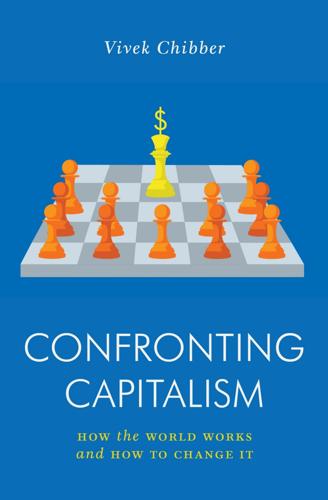
Confronting Capitalism: How the World Works and How to Change It
by
Vivek Chibber
Published 30 Aug 2022
That frustration is being expressed in many and sundry ways, most typically inchoate, sometimes ugly, and overwhelmingly through electoral revolts rather than organized class struggle. But it is so pervasive that it feels like we are in a new political era. Oddly, the political turn has been most sharply expressed in the unlikeliest of places, the United States. An early tremor could be felt in the Occupy movement in 2011, but the real catalyst was Bernie Sanders’s historic runs for the Democratic Party’s nomination for president in 2016 and 2020. Since his explosive entrance onto the national political stage, there has been an unmistakable revival of left anti-capitalist discourse, at a scale not witnessed in two generations.
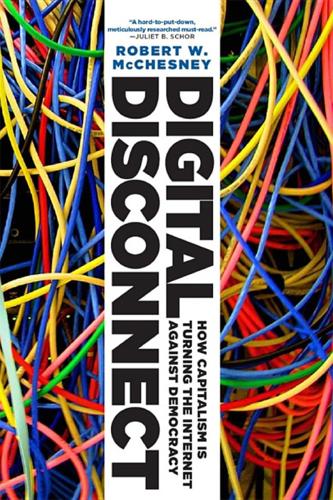
Digital Disconnect: How Capitalism Is Turning the Internet Against Democracy
by
Robert W. McChesney
Published 5 Mar 2013
In the critical juncture of the 1960s and early 1970s, for example, elites were concerned by a “crisis of democracy.” This “crisis” was created by previously suppressed, apathetic, passive, and marginalized elements of the population—minorities, students, women—becoming politically engaged and making demands upon the system.9 The Occupy movement and mass demonstrations of 2011 provide glimmers of popular political activism not seen for many decades; if this is the start of something big, we truly are entering a full-throttle critical juncture, and what the country will look like when we get to the other side is impossible to predict.
…
It is striking that, despite the universal reverence for it in the media and mainstream culture, capitalism is not especially popular with Americans. It’s even more astonishing how popular socialism is, though one would be hard-pressed to find any favorable references to it in our mainstream culture. A global survey conducted by the BBC in 2009, even before the Occupy movement and the worldwide revolts of the last two years, found that some 15 percent of Americans agreed with the statement that free-market capitalism “is fatally flawed and a different economic system is needed.” Another 50 percent of Americans thought capitalism had problems that required regulation and reform.
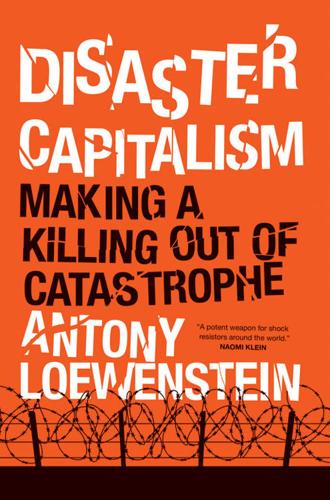
Disaster Capitalism: Making a Killing Out of Catastrophe
by
Antony Loewenstein
Published 1 Sep 2015
In his book The Divide: American Injustice in the Age of the Wealth Gap, Rolling Stone journalist Matt Taibbi argues that the problem begins at home: “We [Americans] have a profound hatred of the weak and poor, and a corresponding groveling terror before the rich and powerful, and we’re building a bureaucracy to match those feelings.”9 In copious detail, Taibbi shows how key instigators of the 2008 financial crisis have not just been spared jail time but have benefited and been protected, while untold millions of needy men and women are crunched through an unforgiving legal system. With a few exceptions, such as the Occupy movement, there has been no public protest movement to demand prosecutions for Wall Street fraud. Taibbi goes to the heart of an economic, social, and legal system that underpins the abuses documented here and explains why they are allowed to happen. “We’re creating a dystopia,” he explains, “where the mania of the state isn’t secrecy or censorship but unfairness.
…
Ashraf 42–3 Haiti 26, 105–53, 175, 308 aid 12, 108, 120, 123–8, 144–7, 342n89 aid delivery failure 340n56 aid dependency 121, 126 American colonialism 109–13 American corporate pillaging 111–12 American investment 116–20 American policy 115–16, 116–20, 134 Aristide rule 112–13 beggars 106 Canadian aid 120 Caracol industrial park 116, 128–33, 133–6, 148 challenge facing 152–3 child slaves 145 cholera outbreak 113–16 CIA involvement 110 and the Cold War 111 corruption 141 coup, 2004 112 death toll, cholera outbreak 113 death toll, earthquake 107, 145 debt 127 Duvalier dictatorship 109–12 earnings 117, 132, 144 earthquake, January 2010 12, 107, 117 earthquake, January 2010, aftermath of 105–7 economic exploitation 132, 133–6 economic fragility 109–13 economic resistance 150 eco-system damage 130 effect of neoliberalism on 112–13 exploitation 107–8 foreign investment 116–18, 121–2, 133–6 French aid 120 historical background 109–13 homelessness 107 housing 129–30, 140, 150–1 human rights 110, 116 indigenous development 147–9, 150–2 job creation 131 leadership 119–20 living conditions 105–7, 141–4 mining regulation 120–1 National Palace demolition 137–9 NGO-ization of 137–41 occupation of 127 organisations populaires 112 paramilitary groups 109 political freedom 109 Presidential elections, 2015 140 reconstruction gold rush 107–9 refugee camps 141–4 religious faith 106 resource exploitation 120–1 revolution 109 rice imports 122–3 sovereignty 135, 146, 152 tourism 152 unemployment rate 127 unregulated capitalism 135–6 UN stabilization force 113, 115–16 women in 142–3 workers’ rights 148 Haiti Economic Lift Program 133 Haiti Grassroots Watch 117, 120 Haiti-Liberte 108–9 Halliburton 28 Hallward, Peter 109, 111–12, 152 Hamburg 84, 311 Hammond, Philip 16 Harding, Richard 284 Hardwick, Nick 263–7 Harper, Stephen 120 Harry (Christmas Islander) 272–3 Hastings, Michael 26 Hayatullah (asylum seeker) 301–3, 360n49 Headley, Linden 220–1 health services privatization, United Kingdom 244–5 heart disease 14 Hellenic Broadcasting Corporation 74 Hellenic Foundation for European and Foreign Policy 96 Hellenic Republic Asset Development Fund 101–2 helplessness, feeling of 308–9 Higgins, Greg 128 Hill+Knowlton 25–6 History Channel 306–7 homelessness 107 Honduras 225 Howard, John 275–6, 279 humanitarian relief, NGO-ization of 137–41 humanitarian work, military and 58–9 human rights 123 Afghanistan 42 commodification of 308 disregard for 9 and economic freedom 2 Haiti 110, 116 Human Rights Defense centre 216 Human Rights Watch 47, 48, 67, 71, 196, 200 Human Terrain System 53, 331n67 human trafficking 29, 70 Huppert, Julian 249–51 Hurricane Katrina 26, 118, 124, 337n6 Hurricane Sandy 8 Hyman, Christopher 290 identity, questions of 103–4 immigrants children 212, 225 criminalization 198–9 demonization of 226 deportation 212, 227–8 detention centers 211–28 incarceration rates 195 legal representation 217–18 United Kingdom 243–4 United States of America 198–9, 211–28 see also asylum seekers imperialism, legacy of 10–11 Independent Human Rights Commission, Conflict Mapping in Afghanistan since 1978 32 Independent Timbers and Stevedoring 344n19 IndustriALL 187 inequality 2–4, 56, 242–3, 302–3 information management consultancy 51–6 Innocent, Alix 130–2 Integrity Watch Afghanistan 24 intellectuals, responsibility of 310 intelligence gathering, privatization 51–6 Inter-American Development Bank 123, 130 Interfaith Prison Coalition 216 Interim Haiti Recovery Commission (IHRC) 118 International Criminal Court (ICC) 43 International Health and Medical Services 295 International Monetary Fund (IMF) 4–5, 62, 72, 99, 112, 127 International Organization for Migration 74 International Relief and Development (IRD) 28 International Security Assistance Force (ISAF) 32 interrogators and interrogation, privatization 15 Inter-Services Intelligence 56, 331n73 “Invisible Suffering” (MSF) 75 Iran 23, 49 Iraq 12, 14, 25, 27, 28, 323n33 Islamabad 56, 57 Islamic State (ISIS) 16, 41 Jack (PMC owner) 20–5 Jalalabad 38 Japan 11 Jean, Arnolt 121 Jean, Wyclef 141 job creation 131 John (BCL manager) 160–1, 164–5, 166–7 John (detention center guard) 296–8 Jones, Justin 198 Josephine (teacher, PNG) 183 Josh (PMC contractor) 59–60 journalism, usefulness of 309 J/P Haitian Relief Organization 137–9 JSOC 59 Jubilee 159 Jubilee Australia 190–1 Justice Police Institute (JPI) 201 Justinvil, Pierre 130 Kabul 19, 36 drinking holes 59–62 drug abuse 38–9 population 45 private military companies 19–25 suicide attacks 41 women in 47–8 Kambana, Adrienne Makenda 258–9 Kampagiannis, Thanasis 93–5 Kandahar 55 Karachi 56 Karunakara, Unni 139 Karzai, Ahmed Wali 41 Karzai, Hamid 27, 31–2, 41, 44, 47 Katz, Jonathan 119, 139–40 Kauona, Samuel 161, 178–80, 346n35 Kavo, Havila 186 KBR 28 Keerfa, the Movement United Against Racism and the Fascist Threat 93 Kelleher, Joan 285–6 Keller, Ska 97 Kemish, Ian 189 Kentucky 205, 228 Kerry, John 30, 62 Khalilzad, Zalmay 50 Khan, Muhammad Alamgir 57 Khogyani, Saima 48–50 Khyber News Bureau 58–9 Kilcullen, David 53 Kim Woong-ki 133 Kirra, Bernadine 185 Klein, Naomi 6–8, 11 KOFAVIV 142–3 Koim, Sam 188 Koofi, Maryam 50–1 Korean Peninsula 23 Kosovo 26 Kotsioni, Ioanna 76–7 Krugman, Paul 243 Kuwait 25 labor abuses 29 Laleau, Wilson 116–17 Lamothe, Laurent 120 landowner rights 177 Langdon, Robert 60, 332n82 Lasslett, Kristian 159–60, 161 Lebrun, Jean Robert 148 Lemberg-Pedersen, Martin 96–7 Leonard (teacher, PNG) 181 Lepani, Charles 189 Libby Sacer Foundation 103–4 Libya 16, 30 Limits to Growth, The (Randers) 1–2 Lloyds Banking Group 16 lobbying 124 Lockheed Martin 31 Logan, Steve 198–9 London, Becket House 263 Louisiana 200 Lucke, Lewis 108–9 Lujan, Nathan K. 306–7 Lumpkin, Georgia, USA 222–3 Stewart immigration detention center 211–22 McDowall, Paul 252 McDowell, Janine 252 McFate, Sean 16 McGregor-Smith, Ruby 242, 245–9 McKibben, Bill 8–9 McLean, Murray 11 Malmström, Cecilia 98 Management and Training Corp 218–19 Management Today 242 Manjoo, Rashida 252 Manus Island 276–7, 280, 281, 282–3, 297, 357n11 market principles, application of 14–15 market system 2 Marr, David 282 Martelly, Michel 106, 110, 116, 117, 140, 339n34 Mason, Paul 73, 267 MASS Design Group 114–15 Matheson, Scott 299 Maywood, California 5 Médecins de Monde (MdM) 77–80 Médecins Sans Frontières (MSF) 75–7, 114, 183 media outlets, ownership of 5 Medical Association of Athens 84 medical care asylum seekers 77–80, 78–80, 256–8 detention centers 77–80, 266, 295 Germany 84 Greece 80–4 prisons 205, 209, 214–15, 215–16 Medical Justice 256–8, 260 Medina, Roberto Martinez 218 Meek, James 234, 239 Mehmood, Tahir, death of 241 mental health 254–5, 285, 286, 295, 302 mentally disturbed people, incarceration rates of 201 mercenaries 20, 59 Merkel, Angela 73 Merten, Kenneth 107–8, 339n34 Metropolitan Community Clinic, Athens 80–4 Michael (asylum seeker) 230–2 Migration Policy Institute (MPI) 212 MiHomecare 255 military ideology 15 Miller, Phil 263 “Mining for Development” initiative, Australia 190 Ministry of Public Order and Citizen Protection, Greece 76 MINUSTAH 113, 115–16 Mitie 242, 245–9, 255 Mlotshwa, Emma 255–8 Moise, Rosembert 150 Momis, John 159, 161, 169 Monaghan, Karon 260 Monbiot, George 9, 236 Money Morning 49 Monsanto 267 Moradian, Davood 44–6 Morales, Evo 125 Morales, Pablo 107 Morauta, Mekere 188 Morrison, Scott 279–80 Mortime, Antonal 140 Morumbi 346n33 MSS Security 296–8 Mubenga, Jimmy, killing of 258–60 Mudd, Gavin 185 Mundell, Robert 84 Munnings, Kate 358n25 murders, private military companies 15, 46, 57, 60, 323–4n40 Murdoch, Rupert 5, 41, 359n30 Musharraf, Pervez 57 MWH Americas 124 Nader, Ralph 173 Namaliu, Sir Rabbie 160, 343n6 Namorong, Martyn 190 Nashville, Tennessee 209 Nathan (PNG resident) 167–8 National Audit Office 236 National Health Service 244–5 National Institute of Money in State Politics 201 National Research Council 198 nation building 23 Nation (magazine) 118 Nation (newspaper) 57 NATO 32, 55, 63 Nauru 275–6, 276, 276–7, 280–1, 283, 296 Needham, Emma 299 neo-colonization 190 neoliberalism 83, 112–13 New Economics Foundation 243 Newmont Mining 120 News Corporation 5 New York Times 8, 38, 101, 113, 115, 118, 131, 141, 199, 212, 226, 243, 284, 340n56 New Zealand 361n51 New Zealand Aid Programme 158–9 Nicaragua 134 Nicholls, Adelina 224–6 No Logo (Klein) 7–8 non-government organizations, and humanitarian relief 137–41 North American Free Trade Agreement 225 Northrop Grumman 35 Norway 2, 186–7 Obama, Barack 3, 31, 35, 45, 118, 124, 149, 195, 212, 221–2, 224 obesity 14 Occupy movement 5–6, 309 Occupy Wall Street 3 O’Faircheallaigh, Ciaran 162 Office for the Coordination of Humanitarian Affairs, United Nations 139 O’Grady, Mary Anastasia 134 Ohio 197–8 oil prices 166 Ona, Francis 169, 178 O’Neill, Peter 159, 166, 171, 186, 188, 347n50 One World 117 Operation Enduring Freedom 31 organisations populaires, Haiti 112 Organization for Economic Cooperation and Development 6, 267 outsourcing 28–30 outsourcing contractors, United Kingdom 240–2 overcharging 29 overconsumption 8 Oxfam 191, 242–3 Pakistan 12, 56–9, 62 community mapping 58 Federally Administrated Tribal Areas 58 feeling of occupation 59 private military companies 56, 57 state absence 56–7 Taliban in 31 US army action 58 Palast, Greg 84 Panagiotaros, Ilias 91–3 Panguna Landowners’ Association 177 Panguna mine, Papua New Guinea 154–64, 164–5, 167, 168, 177–8, 181, 182, 184–6, 191–2 Panguna town, Papua New Guinea 165–7 Papua New Guinea 11–12, 12, 117, 154–92 agricultural exports 174 aid 13, 167, 171–5, 179 and America 170–1 and Australia 154, 160, 163, 167, 169–75, 176–7, 188, 188–91 Australian exploitation of 169–75 Australian goals 172 Australian government aid 158–9, 171–5, 179, 182, 189–91 Autonomous Bougainville Government 161, 167, 178–80, 184, 346n33 average age 158 baby boom 157 BCL legacy 160–1 Bougainville mining legislation 161 and China 170 civil disturbances 175 civil war 154–5, 158–9, 161, 163–4, 178–80, 180–2, 187 constitutional planning committee 169 corruption 170, 171, 188 desire for independence 176–8 education 158, 166–7, 167–8 environmental destruction 157–8 foreign investment 186–7 forest 336n19 gold panning 164 Grasberg mine 187 independence 169–70 lack of change 167–9 life expectancy 175 maternal mortality rate 183 mining boom 13, 156, 169–76, 184–91, 344n50 mining waste 157 officials’ role 175–6 Ok Tedi Mine 157–8, 173, 188, 345n23 opposition to mining 168–9, 174, 178–80 Panguna Landowners’ Association 177 Panguna mine 154–64, 164–5, 167, 168, 177–8, 181, 182, 184–6, 191–2 Panguna reserves 186 Panguna town 165–7 pollution 157, 164, 173 poverty 175 private military companies 180 Ramu nickel mine 174 reconciliation meeting, February 2013 158–9 resource exploitation 120, 154–64, 176, 184–91, 344n19, 346n33 the Sandline controversy 180 sovereign fund 188 sovereignty 156, 175–6, 176–8, 191, 192 Task Force Sweep 188 weapons decommissioning 181–2 women in 182–4 World War II 170 Papua New Guinea Sustainable Development Program (PNGSDP) 345n23 Partners in Health 113–14 Partners Worldwide 136 Pay Any Price (Risen) 11 Peace and Security Project 98 peace building 54–5 Peck, Raoul 118–19 Penn, Sean 137–9 Pennsylvania 209 Pentagon, the, waste 34–5 people-smugglers 70, 287 Peshawar 57–9 Peter (PMC contractor) 59–60 Petraeus, David 52–3 Piketty, Thomas, Capital in the Twenty-First Century 6 Pilger, John 10, 245 Pindar, Paul 241–2 Pipiro, Moses 184 Pita, Aaron 181–2 Platform of Haitian Human Rights Organizations 140 Podur, Justin 115, 147 police militarized 203, 238 privatization 240 surveillance 6 police brutality Greece 83 United States of America 203 pollution, Papua New Guinea 157, 164, 173 Port-au-Prince 105–7, 107, 116, 118, 127, 128, 146, 149–50, 150–1 Port Moresby 166 poverty 98–9, 175 PPSS 206 predatory capitalism 11, 13–14, 162, 310–11 press freedom 74, 75 price-gouging 292 Prince, Erik 16 prisons and the prison industry 197, 202–11 abuse 216–17, 218 access 219 American Correctional Association (ACA) conference, 2014 202–11 bed mandate 226–7 children in 208 emotional impact of incarceration 207–8 employee wages 223 exploitation 227 failure of private 200–1 female population 197 food 215 green technology 204 incarceration rates 195–6, 200, 201, 204 inmate labor 205–6, 211, 213 lack of oversight 216, 228–9 lack of transparency 225–6 medical care 205, 209, 214–15, 215–16 money saving 217 occupancy quotas 226–7, 228 opposition to private 223–8 overcrowding 196 phone call costs 214 prisoner costs 200–1 privacy 208–9 private operators 196–8 privatization 13, 195–229, 240, 264–5 profits 197, 201–2 Scandinavian 208–9 solitary confinement 208, 209, 218–19 state oversight 205 Stewart immigration detention center, Lumpkin, Georgia, USA 211–22 suicide rate 209, 217 United Kingdom 240, 264–5 uprisings 208–9 visit 211–22 private military companies 12 accountability 16 Afghanistan 19–25, 33–5, 41–3, 44, 46–8, 50, 59–62, 331n69 Australian contractors 60 casualties 32, 326n27 clients 20–1 connection between 23–4 contractor motivations 59–62 employees 22, 47, 57 exploitation by 22 fees 21 future 23 hiring practices 61 influence 41–2 justifications 22–3 killings 46, 57, 60, 61 lack of state control 34, 47 locals view of 46–8 motivation 23 murders 15, 46, 57, 60, 323–4n40 and nation building 23 need for 21 numbers 20 origins 33 Pakistan 56, 57 Papua New Guinea 180 problem of 42 recruits 20 regulations 21, 22 and sovereignty 22–3 static work 21–2 transparency 34 weapons 20, 21 private power 4, 9 private security contractors, motivations 59–62 privatization asylum seeker detention network 77 Australia 361n51 border controls 241 contractor privacy 248–9 costs 236 detention centers 13, 98, 230–5, 245–51, 280–5, 289–99 disaster relief 108–9 economic logic of 289–99 failure of 239 Golden Dawn and 92–3 Greece 72, 98, 100–2, 307–8 and the IMF 4–5 intelligence gathering 51–6 justification 238–9, 245–6 Klein’s critique of 6–7 opposition to 100, 101, 102–3, 251 overcharging 240–1 prisons 13, 195–229, 240, 264–5 public services 230–68 as recent history 311 resistance to 7 revolving door 197 scale in UK 244 school teachers 4 surveillance 15 tender process 289–90 transparency 246, 290–1 United Kingdom 230–68, 310 of war 7 and waste reduction 30 profit, and poverty-level wages 117 prostitution 102 Psarras, Dimitris 85–7, 93 public services, privatization 230–68 Public Service Strategy Board 245–6 punishment, outsourcing 264–5 Putin, Vladimir 90, 93 racism 80, 259–60, 294 Raleigh, Jeff 26 Ramsbotham, David 260–1 Randers, Jørgen, The Limits to Growth 1–2 rape 47, 142–3, 183 Rau, Cornelia 289 Reagan, Ronald 238 Red Cross 342n89 refugee camps, Haiti 141–4 refugee crisis, Europe 95–8 refugees see asylum seekers Regan, Tony 159, 161 Rendon Group 26 Rene, George Andy 136 Reporters Without Borders 74 resource curse 13 resource exploitation accountability 180 Afghanistan 24, 49–50 Christmas Island 274 as entertainment 306–7 Haiti 120–1 impact 164–5, 166–7, 168 landowner rights 177 opposition to 178–80 Papua New Guinea 120, 154–64, 176, 184–91, 344n19, 346n33 regulation 120–1 responsibility 161 toxic dilemma of 162 and violence 159–60, 163–4, 167–8 “Restore Haiti” conference 136 Rhiannon, Lee 50 Rice, Susan 116 Rio Tinto 154, 157, 159, 162, 180, 186–8, 189 Risen, James, Pay Any Price 11 Roches, James Des 33 Roka, Theonila 159 Rolling Stone 41 Rompos, Antonios 78–80 Rooney, Nahau 281 Roupakias, Giorgos 90 Royal Mail 236 Roy, Arundhati 5–6, 307–8 Rubio, Marco 228 Rudd, Kevin 289, 290 Rumsfeld, Donald 26, 29–30 Saddam Hussein 25 Sae-A 130, 131, 132, 134, 135, 148 SAIC 31 Sally (case manager) 300–1, 303–4 Samaras, Antonis 94–5 Sanderson, Janet A. 115 Sandline 180 Sanon, Reyneld 150–1 Sarantou, Elina 66–7 Sarobi 38 Sassen, Saskia 99 Sassine, George 134–6 Sathi (asylum seeker) 253–4 Scahill, Jeremy 15 Scarperia, Annette 206 Schäuble, Wolfgang 75 Schofield, Josh 206 Schuller, Mark 107 Schumer, Chuck 228 Schwartz, Timothy 144–7, 342n92 Schweich, Thomas 38 Sean (Serco source) 292–4 Security and Management Services 57 security, outsourcing see private military companies Sediqqi, Sediq 41–2 sentencing reform, United States of America 198 September 11 terrorist attacks, 2001 7, 33 Serco 13, 232, 235, 240, 248, 252, 264, 270, 271, 277, 278, 279, 280, 282, 284, 289–99, 359n30 Shah, Rajiv 123 Shahshahani, Azadeh 226–7 Shah, Silky 222, 227–8 Sharon (detention center worker) 298 Sheffield 230–5, 262 Shell 186 Shield Defence Systems 204 shock doctors 8 Shock Doctrine: The Rise of Disaster Capitalism (Klein) 6–7, 11 Sideris, Christos 80–4 Simon (teacher) 272 Singer, P.
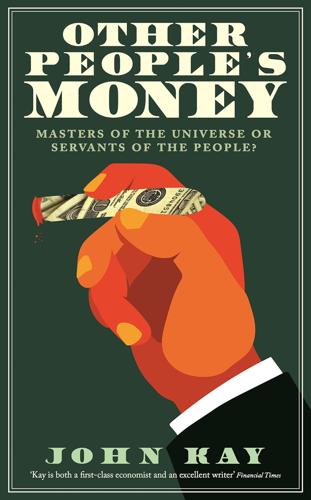
Other People's Money: Masters of the Universe or Servants of the People?
by
John Kay
Published 2 Sep 2015
Credit expansion could not continue indefinitely: it would inevitably go into reverse when the low quality of much of the induced lending was revealed. And that was what happened in the global financial crisis. The social tensions that had been suppressed when consumption was growing faster than incomes were no longer contained. Public opinion turned against banking and finance, reflected in the Occupy movement and the surge in popularity of fringe political movements. A century after Upton Sinclair and Ida Tarbell the tradition of the muckraker was revived. A new generation of journalists sought to expose corporate and – especially – financial malpractice. When the internet journalist Matt Taibbi described Goldman Sachs as ‘a giant vampire squid, sucking money from wherever it finds it’,45 the description quickly went viral.
…
.: Hyperion 220 Loomis, Carol 108 lotteries 65, 66, 68, 72 Lucas, Robert 40 Lynch, Dennios 108 Lynch, Peter 108, 109 M M-Pesa 186 Maastricht Treaty (1993) 243, 250 McCardie, Sir Henry 83, 84, 282, 284 McGowan, Harry 45 Machiavelli, Niccolò 224 McKinley, William 44 McKinsey 115, 126 Macy’s department store 46 Madoff, Bernard 29, 118, 131, 132, 177, 232, 293 Madoff Securities 177 Magnus, King of Sweden 196 Manhattan Island, New York: and Native American sellers 59, 63 Manne, Henry 46 manufacturing companies, rise of 45 Marconi 48 marine insurance 62, 63 mark-to-market accounting 126, 128–9, 320n22 mark-to-model approach 128–9, 320n21 Market Abuse Directive (MAD) 226 market economy 4, 281, 302, 308 ‘market for corporate control, the’ 46 market risk 97, 98, 177, 192 market-makers 25, 28, 30, 31 market-making 49, 109, 118, 136 Markets in Financial Instruments Directive (MIFID) 226 Markkula, Mike 162, 166, 167 Markopolos, Harry 232 Markowitz, Harry 69 Markowitz model of portfolio allocation 68–9 Martin, Felix 323n5 martingale 130, 131, 136, 139, 190 Marx, Groucho 252 Marx, Karl 144, 145 Capital 143 Mary Poppins (film) 11, 12 MasterCard 186 Masters, Brooke 120 maturity transformation 88, 92 Maxwell, Robert 197, 201 Mayan civilisation 277 Meade, James 263 Means, Gardiner 51 Meeker, Mary 40, 167 Melamed, Leo 19 Mercedes 170 merchant banks 25, 30, 33 Meriwether, John 110, 134 Merkel, Angela 231 Merrill Lynch 135, 199, 293, 300 Merton, Robert 110 Metronet 159 Meyer, André 205 MGM 33 Microsoft 29, 167 middleman, role of the 80–87 agency and trading 82–3 analysts 86 bad intermediaries 81–2 from agency to trading 84–5 identifying goods and services required 80, 81 logistics 80, 81 services from financial intermediaries 80–81 supply chain 80, 81 transparency 84 ‘wisdom of crowds’ 86–7 Midland Bank 24 Milken, Michael 46, 292 ‘millennium bug’ 40 Miller, Bill 108, 109 Minuit, Peter 59, 63 Mises, Ludwig von 225 Mittelstand (medium-size business sector) 52, 168, 169, 170, 171, 172 mobile banking apps 181 mobile phone payment transfers 186–7 Modigliani-Miller theorem 318n9 monetarism 241 monetary economics 5 monetary policy 241, 243, 245, 246 money creation 88 money market fund 120–21 Moneyball phenomenon 165 monopolies 45 Monte Carlo casino 123 Monte dei Paschi Bank of Siena 24 Montgomery Securities 167 Moody’s rating agency 21, 248, 249, 313n6 moral hazard 74, 75, 76, 92, 95, 256, 258 Morgan, J.P. 44, 166, 291 Morgan Stanley 25, 40, 130, 135, 167, 268 Morgenthau, District Attorney Robert 232–3 mortality tables 256 mortgage banks 27 mortgage market fluctuation in mortgage costs 148 mechanised assessment 84–5 mortgage-backed securities 20, 21, 40, 85, 90, 100, 128, 130, 150, 151, 152, 168, 176–7, 284 synthetic 152 Mozilo, Angelo 150, 152, 154, 293 MSCI World Bank Index 135 muckraking 44, 54–5, 79 ‘mugus’ 118, 260 multinational companies, and diversification 96–7 Munger, Charlie 127 Munich, Germany 62 Munich Re 62 Musk, Elon 168 mutual funds 27, 108, 202, 206 mutual societies 30 mutualisation 79 mutuality 124, 213 ‘My Way’ (song) 72 N Napoleon Bonaparte 26 Napster 185 NASA 276 NASDAQ 29, 108, 161 National Economic Council (US) 5, 58 National Employment Savings Trust (NEST) 255 National Institutes of Health 167 National Insurance Fund (UK) 254 National Provincial Bank 24 National Science Foundation 167 National Westminster Bank 24, 34 Nationwide 151 Native Americans 59, 63 Nazis 219, 221 neo-liberal economic policies 39, 301 Netjets 107 Netscape 40 Neue Markt 170 New Deal 225 ‘new economy’ bubble (1999) 23, 34, 40, 42, 98, 132, 167, 199, 232, 280 new issue market 112–13 New Orleans, Louisiana: Hurricane Katrina disaster (2005) 79 New Testament 76 New York Stock Exchange 26–7, 28, 29, 31, 49, 292 New York Times 283 News of the World 292, 295 Newton, Isaac 35, 132, 313n18 Niederhoffer, Victor 109 NINJAs (no income, no job, no assets) 222 Nixon, Richard 36 ‘no arbitrage’ condition 69 non-price competition 112, 219 Norman, Montagu 253 Northern Rock 89, 90–91, 92, 150, 152 Norwegian sovereign wealth fund 161, 253 Nostradamus 274 O Obama, Barack 5, 58, 77, 194, 271, 301 ‘Obamacare’ 77 Occidental Petroleum 63 Occupy movement 52, 54, 312n2 ‘Occupy Wall Street’ slogan 305 off-balance-sheet financing 153, 158, 160, 210, 250 Office of Thrift Supervision 152–3 oil shock (1973–4) 14, 36–7, 89 Old Testament 75–6 oligarchy 269, 302–3, 305 oligopoly 118, 188 Olney, Richard 233, 237, 270 open market operations 244 options 19, 22 Organisation for Economic Co-operation and Development (OECD) 263 Osborne, George 328n19 ‘out of the money option’ 102, 103 Overend, Gurney & Co. 31 overseas assets and liabilities 179–80, 179 owner-managed businesses 30 ox parable xi-xii Oxford University 12 P Pacific Gas and Electric 246 Pan Am 238 Paris financial centre 26 Parliamentary Commission on Banking Standards 295 partnerships 30, 49, 50, 234 limited liability 313n14 Partnoy, Frank 268 passive funds 99, 212 passive management 207, 209, 212 Patek Philippe 195, 196 Paulson, Hank 300 Paulson, John 64, 109, 115, 152, 191, 284 ‘payment in kind’ securities 131 payment protection policies 198 payments system 6, 7, 25, 180, 181–8, 247, 259–60, 281, 297, 306 PayPal 167, 168, 187 Pecora, Ferdinand 25 Pecora hearings (1932–34) 218 peer-to-peer lending 81 pension funds 29, 98, 175, 177, 197, 199, 200, 201, 208, 213, 254, 282, 284 pension provision 78, 253–6 pension rights 53, 178 Perkins, Charles 233 perpetual inventory method 321n4 Perrow, Charles 278, 279 personal financial management 6, 7 personal liability 296 ‘petrodollars’ 14, 37 Pfizer 96 Pierpoint Morgan, J. 165 Piper Alpha oil rig disaster (1987) 63 Ponzi, Charles 131, 132 Ponzi schemes 131, 132, 136, 201 pooled investment funds 197 portfolio insurance 38 Potts, Robin, QC 61, 63, 72, 119, 193 PPI, mis-selling of 296 Prebble, Lucy: ENRON 126 price competition 112, 219 price discovery 226 price mechanism 92 Prince, Chuck 34 private equity 27, 98, 166, 210 managers 210, 289 private insurance 76, 77 private sector 78 privatisation 39, 78, 157, 158, 258, 307 probabilistic thinking 67, 71, 79 Procter & Gamble 69, 108 product innovation 13 property and infrastructure 154–60 protectionism 13 Prudential 200 public companies, conversion to 18, 31–2, 49 public debt 252 public sector 78 Q Quandt, Herbert 170 Quandt Foundation 170 quantitative easing 245, 251 quantitative style 110–11 quants 22, 107, 110 Quattrone, Frank 167, 292–3 queuing 92 Quinn, Sean 156 R railroad regulation 237 railway mania (1840s) 35 Raines, Franklin 152 Rajan, Raghuram 56, 58, 79, 102 Rakoff, Judge Jed 233, 294, 295 Ramsey, Frank 67, 68 Rand, Ayn 79, 240 ‘random walk’ 69 Ranieri, Lew 20, 22, 106–7, 134, 152 rating agencies 21, 41, 84–5, 97, 151, 152, 153, 159, 249–50 rationality 66–7, 68 RBS see Royal Bank of Scotland re-insurance 62–3 Reagan, Ronald 18, 23, 54, 59, 240 real economy 7, 18, 57, 143, 172, 190, 213, 226, 239, 271, 280, 288, 292, 298 redundancy 73, 279 Reed, John 33–4, 48, 49, 50, 51, 242, 293, 314n40 reform 270–96 other people’s money 282–5 personal responsibility 292–6 principles of 270–75 the reform of structure 285–92 robust systems and complex structures 276–81 regulation 215, 217–39 the Basel agreements 220–25 and competition 113 the origins of financial regulation 217–19 ‘principle-based’ 224 the regulation industry 229–33 ‘rule-based’ 224 securities regulation 225–9 what went wrong 233–9 ‘Regulation Q’ (US) 13, 14, 20, 28, 120, 121 regulatory agencies 229, 230, 231, 235, 238, 274, 295, 305 regulatory arbitrage 119–24, 164, 223, 250 regulatory capture 237, 248, 262 Reich, Robert 265, 266 Reinhart, C.M. 251 relationship breakdown 74, 79 Rembrandts, genuine/fake 103, 127 Renaissance Technologies 110, 111, 191 ‘repo 105’ arbitrage 122 repo agreement 121–2 repo market 121 Reserve Bank of India 58 Reserve Primary Fund 121 Resolution Trust Corporation 150 retirement pension 78 return on equity (RoE) 136–7, 191 Revelstoke, first Lord 31 risk 6, 7, 55, 56–79 adverse selection and moral hazard 72–9 analysis by ‘ketchup economists’ 64 chasing the dream 65–72 Geithner on 57–8 investment 256 Jackson Hole symposium 56–7 Kohn on 56 laying bets on the interpretation of incomplete information 61 and Lloyd’s 62–3 the LMX spiral 62–3, 64 longevity 256 market 97, 98 mitigation 297 randomness 76 socialisation of individual risks 61 specific 97–8 risk management 67–8, 72, 79, 137, 191, 229, 233, 234, 256 risk premium 208 risk thermostat 74–5 risk weighting 222, 224 risk-pooling 258 RJR Nabisco 46, 204 ‘robber barons’ 44, 45, 51–2 Robertson, Julian 98, 109, 132 Robertson Stephens 167 Rockefeller, John D. 44, 52, 196 Rocket Internet 170 Rogers, Richard 62 Rogoff, K.S. 251 rogue traders 130, 300 Rohatyn, Felix 205 Rolls-Royce 90 Roman empire 277, 278 Rome, Treaty of (1964) 170 Rooney, Wayne 268 Roosevelt, Franklin D. v, 25, 235 Roosevelt, Theodore 43–4, 235, 323n1 Rothschild family 217 Royal Bank of Scotland 11, 12, 14, 24, 26, 34, 78, 91, 103, 124, 129, 135, 138, 139, 211, 231, 293 Rubin, Robert 57 In an Uncertain World 67 Ruskin, John 60, 63 Unto this Last 56 Russia defaults on debts 39 oligarchies 303 Russian Revolution (1917) 3 S Saes 168 St Paul’s Churchyard, City of London 305 Salomon Bros. 20, 22, 27, 34, 110, 133–4 ‘Salomon North’ 110 Salz Review: An Independent Review of Barclays’ Business Practices 217 Samuelson, Paul 208 Samwer, Oliver 170 Sarkozy, Nicolas 248, 249 Savage, L.J. 67 Scholes, Myron 19, 69, 110 Schrödinger’s cat 129 Scottish Parliament 158 Scottish Widows 26, 27, 30 Scottish Widows Fund 26, 197, 201, 212, 256 search 195, 209, 213 defined 144 and the investment bank 197 Second World War 36, 221 secondary markets 85, 170, 210 Securities and Exchange Commission (SEC) 20, 64, 126, 152, 197, 225, 226, 228, 230, 232, 247, 292, 293, 294, 313n6 securities regulation 225–9 securitisation 20–21, 54, 100, 151, 153, 164, 169, 171, 222–3 securitisation boom (1980s) 200 securitised loans 98 See’s Candies 107 Segarra, Carmen 232 self-financing companies 45, 179, 195–6 sell-side analysts 199 Sequoia Capital 166 Shad, John S.R. 225, 228–9 shareholder value 4, 45, 46, 50, 211 Sharpe, William 69, 70 Shell 96 Sherman Act (1891) 44 Shiller, Robert 85 Siemens 196 Siemens, Werner von 196 Silicon Valley, California 166, 167, 168, 171, 172 Simon, Hermann 168 Simons, Jim 23, 27, 110, 111–12, 124 Sinatra, Frank 72 Sinclair, Upton 54, 79, 104, 132–3 The Jungle 44 Sing Sing maximum-security gaol, New York 292 Skilling, Jeff 126, 127, 128, 149, 197, 259 Slim, Carlos 52 Sloan, Alfred 45, 49 Sloan Foundation 49 small and medium-size enterprises (SMEs), financing 165–72, 291 Smith, Adam 31, 51, 60 The Wealth of Nations v, 56, 106 Smith, Greg 283 Smith Barney 34 social security 52, 79, 255 Social Security Trust Fund (US) 254, 255 socialism 4, 225, 301 Société Générale 130 ‘soft commission’ 29 ‘soft’ commodities 17 Soros, George 23, 27, 98, 109, 111–12, 124, 132 South Sea Bubble (18th century) 35, 132, 292 sovereign wealth funds 161, 253 Soviet empire 36 Soviet Union 225 collapse of 23 lack of confidence in supplies 89–90 Spain: property bubble 42 Sparks, D.L. 114, 283, 284 specific risk 97–8 speculation 93 Spitzer, Eliot 232, 292 spread 28, 94 Spread Networks 2 Square 187 Stamp Duty 274 Standard & Poor’s rating agency 21, 99, 248, 249, 313n6 Standard Life 26, 27, 30 standard of living 77 Standard Oil 44, 196, 323n1 Standard Oil of New Jersey (later Exxon) 323n1 Stanford University 167 Stanhope 158 State Street 200, 207 sterling devaluation (1967) 18 stewardship 144, 163, 195–203, 203, 208, 209, 210, 211, 213 Stewart, Jimmy 12 Stigler, George 237 stock exchanges 17 see also individual stock exchanges stock markets change in organisation of 28 as a means of taking money out of companies 162 rise of 38 stock-picking 108 stockbrokers 16, 25, 30, 197, 198 Stoll, Clifford 227–8 stone fei (in Micronesia) 323n5 Stone, Richard 263 Stora Enso 196 strict liability 295–6 Strine, Chancellor Leo 117 structured investment vehicles (SIVs) 158, 223 sub-prime lending 34–5, 75 sub-prime mortgages 63, 75, 109, 149, 150, 169, 244 Summers, Larry 22, 55, 73, 119, 154, 299 criticism of Rajan’s views 57 ‘ketchup economics’ 5, 57, 69 support for financialisation 57 on transformation of investment banking 15 Sunday Times 143 ‘Rich List’ 156 supermarkets: financial services 27 supply chain 80, 81, 83, 89, 92 Surowiecki, James: The Wisdom of Crowds xi swap markets 21 SWIFT clearing system 184 Swiss Re 62 syndication 62 Syriza 306 T Taibbi, Matt 55 tailgating 102, 103, 104, 128, 129, 130, 136, 138, 140, 152, 155, 190–91, 200 Tainter, Joseph 277 Taleb, Nassim Nicholas 125, 183 Fooled by Randomness 133 Tarbell, Ida 44, 54 TARGET2 system 184, 244 TARP programme 138 tax havens 123 Taylor, Martin 185 Taylor Bean and Whitaker 293 Tea Party 306 technological innovation 13, 185, 187 Tel Aviv, Israel 171 telecommunications network 181, 182 Tesla Motors 168 Tetra 168 TfL 159 Thai exchange rate, collapse of (1997) 39 Thain, John 300 Thatcher, Margaret 18, 23, 54, 59, 148, 151, 157 Thiel, Peter 167 Third World debt problem 37, 131 thrifts 25, 149, 150, 151, 154, 174, 290, 292 ticket touts 94–5 Tobin, James 273 Tobin tax 273–4 Tolstoy, Count Leo 97 Tonnies, Ferdinand 17 ‘too big to fail’ 75, 140, 276, 277 Tourre, Fabrice ‘Fabulous Fab’ 63–4, 115, 118, 232, 293, 294 trader model 82, 83 trader, rise of the 16–24 elements of the new trading culture 21–2 factors contributing to the change 17–18 foreign exchange 18–19 from personal relationships to anonymous markets 17 hedge fund managers 23 independent traders 22–3 information technology 19–20 regulation 20 securitisation 20–21 shift from agency to trading 16 trading as a principal source of revenue and remuneration 17 trader model 82, 83 ‘trading book’ 320n20 transparency 29, 84, 205, 210, 212, 226, 260 Travelers Group 33, 34, 48 ‘treasure islands’ 122–3 Treasuries 75 Treasury (UK) 135, 158 troubled assets relief program 135 Truman, Harry S. 230, 325n13 trust 83–4, 85, 182, 213, 218, 260–61 Tuckett, David 43, 71, 79 tulip mania (1630s) 35 Turner, Adair 303 TWA 238 Twain, Mark: Pudd’nhead Wilson’s Calendar 95–6 Twitter 185 U UBS 33, 134 UK Independence Party 306 unemployment 73, 74, 79 unit trusts 202 United States global dominance of the finance industry 218 house prices 41, 43, 149, 174 stock bubble (1929) 201 universal banks 26–7, 33 University of Chicago 19, 69 ‘unknown unknowns’ 67 UPS delivery system 279–80 US Defense Department 167 US Steel 44 US Supreme Court 228, 229, 304 US Treasury 36, 38, 135 utility networks 181–2 V value discovery 226–7 value horizon 109 Van Agtmael, Antoine 39 Vanderbilt, Cornelius 44 Vanguard 200, 207, 213 venture capital 166 firms 27, 168 venture capitalists 171, 172 Vickers Commission 194 Viniar, David 204–5, 233, 282, 283, 284 VISA 186 volatility 85, 93, 98, 103, 131, 255 Volcker, Paul 150, 181 Volcker Rule 194 voluntary agencies 258 W wagers and credit default swaps 119 defined 61 at Lloyd’s coffee house 71–2 lottery tickets 65 Wall Street, New York 1, 16, 312n2 careers in 15 rivalry with London 13 staffing of 217 Wall Street Crash (1929) 20, 25, 27, 36, 127, 201 Wall Street Journal 294 Wallenberg family 108 Walmart 81, 83 Warburg 134 Warren, Elizabeth 237 Washington consensus 39 Washington Mutual 135, 149 Wasserstein, Bruce 204, 205 Watergate affair 240 ‘We are the 99 per cent’ slogan 52, 305 ‘We are Wall Street’ 16, 55, 267–8, 271, 300, 301 Weber, Max 17 Weill, Sandy 33–4, 35, 48–51, 55, 91, 149, 293, 314n40 Weinstock, Arnold 48 Welch, Jack 45–6, 48, 50, 52, 126, 314n40 WestLB 169 Westminster Bank 24 Whitney, Richard 292 Wilson, Harold 18 windfall payments 14, 32, 127, 153, 290 winner’s curse 103, 104, 156, 318n11 Winslow Jones, Alfred 23 Winton Capital 111 Wolfe, Humbert 7 The Uncelestial City 1 Wolfe, Tom 268 The Bonfire of the Vanities 16, 22 women traders 22 Woodford, Neil 108 Woodward, Bob: Maestro 240 World Bank 14, 220 World.Com bonds 197 Wozniak, Steve 162 Wriston, Walter 37 Y Yellen, Janet 230–31 Yom Kippur War (1973) 36 YouTube 185 Z Zurich, Switzerland 62
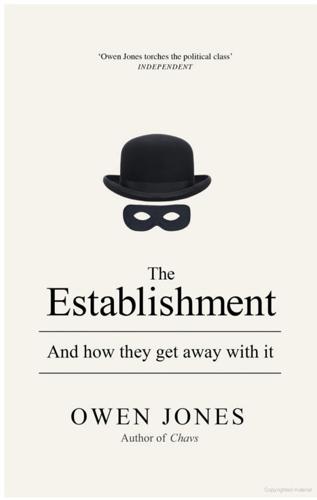
The Establishment: And How They Get Away With It
by
Owen Jones
Published 3 Sep 2014
‘London Anti-Cuts Protests End in Violence and 200 Arrests’, declared The Metro, a headline ignoring the fact that the vast majority of those detained had been arrested for taking part in a peaceful sit-in over tax avoidance at the Fortnum & Mason department store. ‘TUC March: The Militants behind the Violence’ and ‘How a Family Day Turned to Mayhem’ was how the Daily Telegraph reported the day. When protesters peacefully set up camp outside London’s St Paul’s Cathedral as part of the global ‘Occupy’ movement, they were met with ridicule from the media, and a lack of serious engagement with the issues they were raising. ‘When we think of occupations, we think of the Nazis in Germany, in France for example,’ said Adam Boulton of Sky News to an Occupy protester; Boulton attempted to justify such eyebrow-raising hyperbole by suggesting protesters were ‘imposing your will on everybody else in quite a similar way’.
…
None of this is to say that opponents of the Establishment have been entirely Missing in Action in recent years. By tapping into an age-old tradition of peaceful civil disobedience, UKUncut has forced the political and media elite to at least engage with (if not tackle) the issue of tax avoidance on the part of corporate interests and wealthy individuals. The Occupy movement, pitching its tents outside St Paul’s Cathedral, drew attention to how Britain and the world is being run in the interests of ‘the 1%’ rather than ‘the 99%’. Trade unionists have protested and gone on strike in their hundreds of thousands, demonstrating their defiance against austerity, while groups such as Disabled People Against Cuts have fought back against attacks on some of the most vulnerable in society.
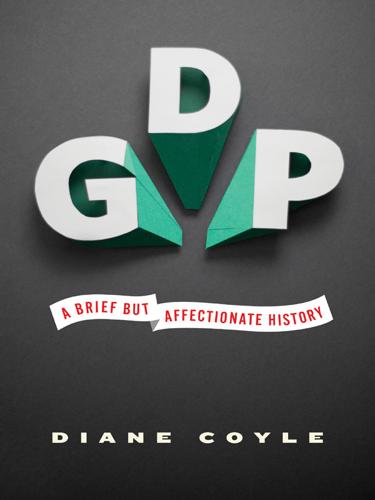
GDP: A Brief but Affectionate History
by
Diane Coyle
Published 23 Feb 2014
Yet the primacy of GDP as the measure of economic success has been increasingly challenged, not so much by politicians or economists as by people who see it as the primary symbol of what’s gone wrong with the capitalist market economy. For example, environmentalists believe it leads to an overemphasis on growth at the expense of the planet, “happiness” advocates think it needs to be replaced with indicators of genuine well-being, and activists such as those in the Occupy movement argue that a focus on GDP has disguised inequality and social disharmony. There are certainly several reasonable critiques of GDP and the role it has come to play in guiding economic policy. These also include questions about how complicated the statistical construction of GDP has become, and what such a complex abstraction can actually mean.
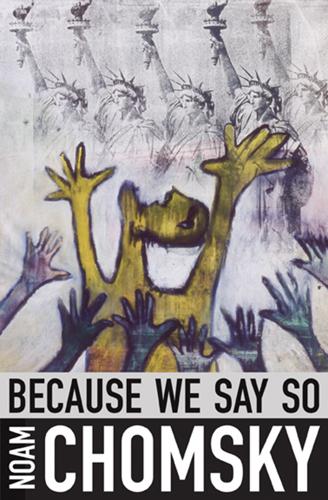
Because We Say So
by
Noam Chomsky
At the same time, he has refused, in spite of the occasional and most hateful and insipid of attacks, to mimic such tactics in responding to his less civil denigrators.4 Some of Chomsky’s detractors have accused him of being too strident, not being theoretical enough, or, more recently, not understanding the true nature of ideology. These criticisms seem empty and baseless and appear irrelevant, considering the encouraging impact Chomsky’s work has had on younger generations, including many in the Occupy movement and other international resistance networks. It is important to note that I am not suggesting that Chomsky is somehow an iconic figure who inhabits an intellectual version of celebrity culture. On the contrary, he deplores such a role and is an enormously humble and self-effacing human being.
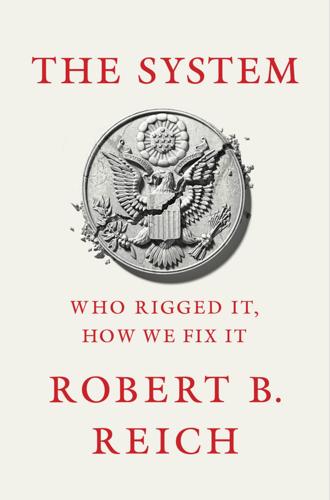
The System: Who Rigged It, How We Fix It
by
Robert B. Reich
Published 24 Mar 2020
They spoke about the bailout of Wall Street, political payoffs, insider deals, CEO pay, and “crony capitalism.” These complaints came from people who identified themselves as Republicans, Democrats, and Independents. A few had joined the Tea Party. A few others had briefly been involved in the Occupy movement. Most of them didn’t consider themselves political. They were white, black, and Latino, from union households and non-union. The only characteristic they had in common apart from the states and regions where I found them was their position on the income ladder. All were middle class and below.
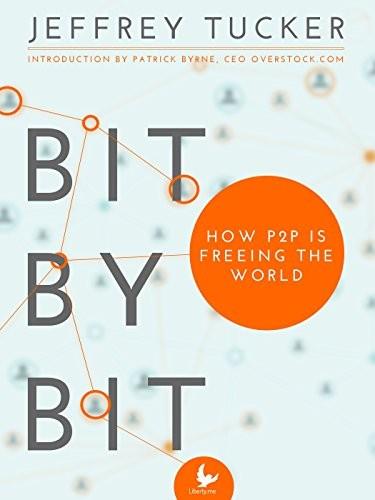
Bit by Bit: How P2P Is Freeing the World
by
Jeffrey Tucker
Published 7 Jan 2015
I offer as evidence a viral piece that appeared on the site Jacobinmag.com, the digital version of the magazine Jacobin, which describes itself as “a leading voice of the American left, offering socialist perspectives on politics, economics, and culture.” The New York Times has praised this publication as “an improbable hit, buoyed by the radical stirrings of the Occupy movement.” In short, this publication is something of a harbinger of anti-market opinion. And given its popularity, it seems to speak for a sector of opinion that is intractably opposed to all forms of market action. So what does this publication say about the sharing economy? “Uber is part of a new wave of corporations that make up what’s called the ‘sharing economy,’” writes Avi Asher-Schapiro in the strangely titled article “Against Sharing.”
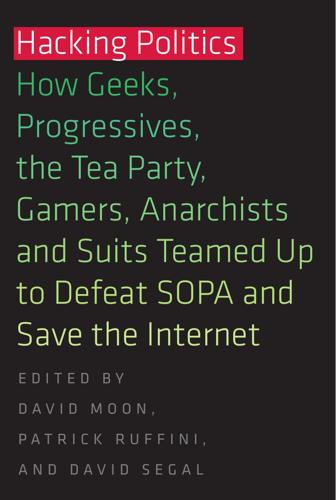
Hacking Politics: How Geeks, Progressives, the Tea Party, Gamers, Anarchists and Suits Teamed Up to Defeat SOPA and Save the Internet
by
David Moon
,
Patrick Ruffini
,
David Segal
,
Aaron Swartz
,
Lawrence Lessig
,
Cory Doctorow
,
Zoe Lofgren
,
Jamie Laurie
,
Ron Paul
,
Mike Masnick
,
Kim Dotcom
,
Tiffiniy Cheng
,
Alexis Ohanian
,
Nicole Powers
and
Josh Levy
Published 30 Apr 2013
They believe in democracy, freedom of expression, and transparent governance; they have little tolerance for draconian rules, for back-room deals, or for imposed legalistic “solutions” to poorly-defined problems that might be better solved with more technology. They are, if anything, more libertarian than anything else. But even that label implies a willingness to engage in traditional political theater, a willingness that doesn’t exist. Brad Burnham (managing partner at Union Square Ventures) I recently heard a woman from the Occupy movement say the most poignant thing. She said “no one is coming for us.” Her generation does not expect the government to be there when they need it, nor do they think the incumbent industrial hierarchies are structured or motivated to address the challenges they expect to face. Remarkably, she was not depressed, defeated, or bitter.
…
So the next time you see a piece of legislation that has an impact on an open Internet, software or business method patents, copyright enforcement, free and fair competition, open government, or cyber security, I urge you to see it through the lens of the competition between incumbent industrial hierarchies and emergent networks. Consider who is sponsoring the legislation. Does it really protect consumers or does it protect the business models and cost structures of the incumbents? I recently heard a woman from the Occupy movement say the most poignant thing. She said “no one is coming for us.” Her generation does not expect the government to be there when they need it, nor do they think the incumbent industrial hierarchies are structured or motivated to address the challenges they expect to face. Remarkably, she was not depressed, defeated, or bitter.

Who Owns England?: How We Lost Our Green and Pleasant Land, and How to Take It Back
by
Guy Shrubsole
Published 1 May 2019
Goldman Sachs and the London Stock Exchange would later take up residence in Paternoster Square, transforming it from a place where monks once clutched their rosaries into a temple to modern capitalism. But it wouldn’t be long before the square was filled with the sound of chickens coming home to roost. In the wake of the financial crash of 2008 – the inevitable consequence of City deregulation – Paternoster Square was where the Occupy movement of 2011 first tried to set up camp, before being forced to settle on the steps of St Paul’s. The resulting showdown with the Church authorities saw much soul-searching among the clergy over the Church’s accommodation with capitalism. The Canon of St Paul’s, Giles Fraser, who resigned out of sympathy with the protesters, spoke about the ‘very legitimate anger about the way in which wealth has been distributed and the way in which capitalism is currently seen to benefit just a very few people’.
…
Rider 165, 172 Haldane, Richard 32 Halifax, Charles Wood, 1st Viscount 8 Halvergate Marshes, Norfolk 258, 259 Ham Hill, Somerset 59 Hamilton Palace, Uckfield 134–6 Hamnett, Chris 69, 71, 112 Hampton Court 62 Hansard 142 Hardin, Garrett 216 Harding, Luke 125 Hardstoft, Derbyshire 91 The Hares 81 Harewood, Edwin Lascelles, 1st Baron 78 Harewood, Henry Lascelles, 2nd Earl 78 Harewood House, Yorkshire 78 Harlow, Essex 230 Harmondsworth 191 Harrison, Brian 102 Harrowby, John Ryder, 5th Earl 99 Harrying of the North (1069-70) 77 Harvey, David 105 Harworth Estates 180 Hatfield House, Hertfordshire 103 Hattersley, Roy 250 Healey, Denis 102, 104, 105, 124 Healey, John 231 Heathrow 191 Hebden Bridge, West Yorkshire 96 Henry II 50 Henry IV (Henry Bolingbroke) 56 Henry VIII 64–5, 83, 93 Her Majesty’s Revenue & Customs (HMRC) 38–9 Herodsfoot, Cornwall 59 Heronsgate 221 Heseltine, Michael 205, 257 Highclere Castle 9–10 Highgrove Farm, Gloucestershire 59 Highland Clearances 209 Highland Land League 223 Highland Spring 121 Highways Act (1980) 18, 39 Highways Agency 10, 298 Hill, Octavia 215, 232, 238, 240, 243 Hilton, Steve 132 Hindle, Jim 8 Hinduja Brothers 147 Hirst, Damian 132 Historic Houses Association 104 Historic Royal Palaces 62 HMRC see Her Majesty’s Revenue & Customs Hodge, Margaret 129 Holderness 53 Holiday Inn, Reading 60 Hollingsworth, Mark 126 Holnicote, Somerset 242 Home Builders Federation 198 Hoo marshes 255 Hoogstraten, Nicholas van 134–6 horse-racing 10–11 horsebreeders 122–3 Horton, Fiona Catherine 248n Houghton Hall, Norfolk 46 House of Lords 29, 48–9, 66, 82, 89, 90, 99, 103–4, 106, 117, 142, 174, 280 housing 2, 3; empty properties 109–12, 276; fixing crisis in 275–7; and land reform 232, 232–4; proposals for 9 Housing Acts 228 Housing White Paper (2017) 42 Howard de Walden, Mary Hazel Caridwen Czernin, 10th Baroness 94 Howard, Greville, Baron Howard of Rising 46 Hudsun Trustees 118 Hunt, Jeremy 132 Hunter, Robert 238 Hussey family 89 ICI 166, 167 Iliffe, Edward, 1st Baron 16, 18, 117 ‘I’m a Rambler’ (folk song) 250 Imber, Wiltshire 158–9, 162, 170 IMF see International Monetary Fund INEOS 91, 130, 134 Insite Development Ltd (Guernsey) 123, 303 Institute for Public Policy Research (IPPR) 276, 308 International Monetary Fund (IMF) 125 International Union for the Conservation of Nature 250 IPPR see Institute for Public Policy Research Ireland 223 Ireton, General Henry 220 Isle of Eigg 287 Isle of Harris 117 Isle of Lewis 117 Isle of Man 126, 184, 186 Iveagh Bequest 119 Iveagh, Edward Guinness, 1st Earl 118n–19 Iveagh, Edward Guinness, 4th Earl 215 James, Alex 132 James I 82 Javid, Sajid 198, 199 JCDecaux 193 Jenkins, Simon 94 Jersey CI 46, 103, 119, 122 John, King 50 Johnson, Boris 133, 276 Juddmonte Farms stud, Newmarket 123 Kazakhstan 110 Kennet valley 11 Kent 80, 218–19 Kew Palace & Gardens 62, 173 Keynes, John Maynard 92 Khodorkovsky, Mikhail 128 Kielder Forest, Northumberland 149, 175 Kielder Water, Northumberland 175 Killerton, Devon 242 Kinder Scout 250, 251, 252 Kindersley, Juliet 12 Kindersley, Peter 12 King, Miles 168, 281 King’s College London 69 Kingsthorpe Field, Northamptonshire 258 Kirby House Estate, Berkshire 118n Knepp Estate, Sussex 260, 280 Knight Frank estate agents 212 Knightley, Phillip 115 Knole Castle, Kent 80, 242 Knowsley Safari Park 101 Kulibayev, Timur 110–11, 134 Labour Party 31, 35, 42–3, 95, 100, 101–2, 104 and note, 105, 106, 177, 178, 227, 229–30, 242–3, 251 Lake District 238, 239, 244–7, 248, 250 Lamb, Robert 255 Lambourn 11 Lambourn Downs 8 Lambton, Lucinda 282 Lammy, David 42 Lancaster, John of Gaunt, Duke 56 land banking 197–203, 274 Land Compensation Act (1961) 230, 231 Land Enclosure Acts 78 The Land Is Ours group 119 Land Justice Network 307 land ownership: benefits 1–2; companies 299–305; concentration and possession of 21–2; Crown, Church, conservation charities 297–8; dukes 307–8; effect on housing, food and nature 2; investigations into 3–5, 18–22, 263; public discussion on 25; questions concerning 2–3; scale of inequality in 268–9; secrecy concerning 1, 23–5, 34–6, 40–1, 129, 283–4; summary figures 264–7, 298, 299, 300–305, 306–7; surveys 25–33, 40; unequal ownership as a problem 269–71 Land Reform Act (suggested) 272 land reform agenda: abolish last vestiges of feudalism 281–3; complete opening up access to England’s green and pleasant land 288; curb ways that corporate capitalism use to avoid tax 283–4; end secrecy around land ownership 273–4; fix farming system 278; fix housing crisis 275–7; give people stake in country and control of local land 286–8; instigate new land ethic 289; proposals 271–3, 290; restore nature’s abundance 279–81; stop fire sale of public sector land and property 284–6 Land Registration Acts 34, 262 Land Registry 1, 4, 28–9, 32, 33–4, 37, 38, 40, 41–3, 56, 57, 58, 61–2, 63, 66, 87, 141, 181, 187, 188–9, 192, 193, 198, 200–1, 264, 265–7, 273–4; INSPIRE maps 199 land value 2, 272 land value capture 231 land value tax 31–2, 229, 277 Land Workers Alliance 307 landfill sites 193–7 Langford 158 Lascelles family 78 Launceston, Cornwall 59 Law Commission 262 Lawson, Nigel 105 Laxton Estate, Nottinghamshire 54 Le Grand Veneur, Hugh 75 League Against Cruel Sports 249 Lebedev, Evgeny 125 Lee, Jennie, Baroness Lee of Asheridge 104, 228 Lees, Andrew 258 Lees-Milne, James 242 Legal & General 199 Leigh, David 124 Leopold, Aldo 246, 289 Letwin, Sir Oliver 201–2 the Levellers 220 Lever, William, 1st Viscount Leverhulme 117 Liberal Party 2, 24, 30–2, 98–9, 118, 227 Liburn Estate, Northumberland 131 Lincolnshire 53, 130 Linebaugh, Peter 50 Lingiari, Vincent 116 Litvinenko, Alexander 128 Liverpool 78, 115, 183, 184 Liverpool John Lennon Airport 186 Lloyd George, David 2, 31–2, 32, 98–9, 100, 116, 155, 229 ‘Lloyd George’s Domesday’ 31–2 Lloyd, Toby 231–2 Local Government Board 8 Local Plans 202 Localism Act (2011) 287 Locke, John 23–4 Lodge Hill, Kent 171 London 78, 92–5, 114, 133, 268, 270; Angel Centre, Islington 70; Athlone House, Hampstead Heath 126; Banqueting Hall 62; Beechwood House, Hampstead Heath 126; Belgrave Square 100; Bishop’s Avenue, Hampstead 69, 124; Boundary Estate, Bethnal Green 227; Buckingham Palace 55, 61; Cabinet War Rooms 140, 141; Cadogan Estate 94; Canary Wharf 192; Cartwright Estate, Tottenham Court Road 70; Chester Square 127; Clapham Common 215; Clermont Club, Berkeley Square 120; De Beauvoir Town, Hackney 19; Grenfell Tower 94, 111–12; Grosvenor Estate 92–3, 109–11; Guinness Estate, Brixton 119; Hampstead Heath 214; Howard de Walden Estate 93–4; Kennington Common 221; Kennington housing estates 60; Kensington & Chelsea 111–12, 121; Kensington Palace 62; Kensington Palace Gardens 127, 134; Kenwood House, Hampstead 119; Kingsway Tunnels, Holborn 137–9, 140, 141–4; Lambeth Palace 69; Lancaster House 57; Mayfair & Belgravia 93, 109–11, 122, 125, 126, 128, 134, 270; New Era estate, Hoxton 19; Octavia Hill Estates 71; Oval Cricket Ground 60; Paddington estates 69; Palace of Westminster 62–4; Paternoster Square 70; Portman Estate 93; Pure Genius eco-village, Wandsworth 119; Q-Whitehall tunnel 140–3; Red Cross Gardens, Southwark 238; Regent Street & Regent’s Park 53; royal parks 62; St Paul’s Cathedral 70; Savoy Chapel 55–6, 57; Tower of London 62; Whitehall 144–7; Witanhurst, Hampstead Heath 126 London County Councill (LCC) 227 London Stock Exchange 70 Longleat, Wiltshire 101 Longton Freehold Land Society 222 lost villages 156–9, 162, 170 Lothian, Philip Kerr, 11th Marquess 241, 242 Lulworth Ranges, Dorset 157–8 Luxembourg 131, 147 M11 8 McEwen, John 18 Machynlleth, north Wales 175 McKay, George 14 McLynn, Frank 221 Macmillan, Harold 102, 182, 230 Macquarie 181 Maddison, Ronald 166 MAFF see Ministry of Agriculture, Fisheries and Food Magna Carta (1215) 47, 50 Mainland Nominees Ltd 103 Mais, S.P.B. 251 Major, John 25, 180, 187, 206 Manchester 183, 250 Manchester Ship Canal 183, 184 Manchester University 148 Mandelson, Peter 106 Manor of Inglescombe (nr Bath) 59 ‘Mansion Tax’ 104n Marlborough, Charles Spencer-Churchill, 9th Duke 84 Marlston Estate, Berkshire 118n Marr Estate, Northumberland 175 Marren, Peter 255 Marten, Lieutenant-Commander Toby 160–1 Martins, Susanna Wade 225 Marx, Karl 25, 133 Massey, Doreen 1, 86, 179 Massingham, Harold 164 Maude, Francis 146 May, Theresa 42, 207, 276 MediaCityUK, Salford 183 Merchant Ivory Productions 105 Mereworth castle, Kent 121 Mexborough, John Savile, 8th Earl 248n Middle Eastern magnates 119–24 Mill, John Stuart 25, 215 Millennium Trust 11 Miller, General Euan 157 Miller, Robert 131 Milne, Seumas 122 Milton Keynes 230 Ministry of Agriculture, Fisheries and Food (MAFF) 34–5, 156 Ministry of Defence (MoD) 13–15, 24, 248 and note, 275, 298; Crichel Down precedent 160–3; disposal of land 170; ecological sites 169–70; effect of First World War 154–5; inter-war acquisitions 155–6; land contamination 167–9; land ownership maps 147–9; Porton Down 163–8; post-war lost villages 156–9; Project Cleansweep (2007) 169; visit to Foulness 149–54 Ministry of Health and Housing 228 Ministry of Justice 181 Ministry of Supply 167 Minsmere, Suffolk 255 Mitchell, Andrew 129 Mjor, John 95 Molesworth 14 Molior 202 Monbiot, George 9, 90, 242, 246 Montagu, Edward Douglas-Scott-Montagu, 3rd Baron 104 Montagu, John Douglas-Scott-Montagu, 2nd Baron 174 Montague, Brendan 91 Monty Python and the Holy Grail (film, 1975) 79 Moorland Association 96, 97 More, Sir Thomas, Utopia 214 Moss, Kate 132 Mossack Fonseca 189 Mount, Harry 71 Moy Park Ltd 192, 203 MRH Minerals 187 Mugabe, Robert 135 Murdoch, Rupert 132 Nancekuke, Cornwall 166, 167 Napoleon Bonaparte 27, 28 Napoleonic Wars 27 National Archives 32, 33, 34, 87, 151, 157 National Audit Office 57 National Crime Agency (NCA) 127 National Farm Survey (1941) 26, 33 National Farmers’ Union (NFU) 13, 260, 270 National Freehold Land Society 222 National Geographic 59 National Health Service (NHS) 100, 177, 182, 228 National Housing Service 228 National Land Fund 243 National Nature Reserves (NNRs) 178, 255–6 National Park Authorities (NPAs) 248–52, 280 National Parks 280–1, 291 National Parks and Access to the Countryside Act (1949) 251 National Pinetum, Kent 173 National Trust 101, 170, 173, 178, 235, 248n, 254, 262, 265, 289; acquisitions 239–43; founding of 237–9; and the Lake District 244–7, 250; land law deployed by 239; land ownership 298; tax relief and the aristocracy 240–3 National Trust Acts (1907 & 1937) 239 Natural England 21, 40 Natural Resources Wales 176 Nature Conservancy 255, 258, 259 nature reserves 10, 253–6, 271 Navalny, Alexei 125 NCA see National Crime Agency NEF see New Economic Foundation; New Economics Foundation neonicotinoids 12, 13 Network Rail 180, 298 New Economics Foundation (NEF) 182, 276, 285, 308 New Forest, Hampshire 49, 130, 174, 215 New Labour 106, 180, 251–2 New Liberalism 31 new money 266; acceptance of farm subsidies 132, 135; buccaneering businessmen 114–15, 129–32; definition of 112; Edwardian plutocrats 114, 115–19; emergence of 113–14; empty property investments 109–12, 132; Middle Eastern 119–24; moral aspects 134–6; outward appearance of aristocracy 134–5; Russian Oligarchs 114, 125–9; security issues 133–4; tax avoidance and offshore companies 129–32 New Scientist 169 New Statesman 143 New Yorker 126 Newbury, Berkshire 7–8, 14 Newbury bypass 8–10, 15, 17 Newbury Racecourse 10–11 Newcastle upon Tyne 70 Newmarket, Berkshire 122, 123 NFU see National Farmers’ Union NGOs see non-governmental organisations Nicholson, I.F. 162 NNRs see National Nature Reserves non-governmental organisations (NGOs) 35–6, 129, 201, 257 Norfolk Broads 248 Norfolk, Dukes of 76, 82 Norman Conquest 9, 26, 48, 49, 75, 77, 211 North York Moors 51, 248 and note, 268 Northampton, Spencer Compton, 7th Marquess 102 Northern Ireland 265 Northfield Inquiry into the Acquisition and Occupancy of Agricultural Land (1979) 35 Northrop, W.B. 92 Northumberland, Henry Percy, 9th Duke 174–5 Northumberland National Park 248 Northumberland, Ralph Percy, 12th Duke 76, 90, 106, 215, 248, 254 NPAs see National Park Authorities nuclear weapons 13–15 O’Brien, Neil 231 Observer 121, 162 Occupy movement (2011) 70 O’Connor, Feargus 220–1 Office for National Statistics (ONS) 2, 231 offshore holdings/tax havens 37–8, 109, 119, 121–2, 123, 126, 129–32, 284 Onslow, William, 4th Earl 99 Onward 200, 276 OPEC 119 Open Data Institute 42 Open Data movement 41 Ordnance Survey 27, 31, 40, 42, 43, 148 Orford Ness 170 Ormskirk Estate, Lancashire 72 Osborne, George 41, 54, 130, 181 O’Shea, Dr Francis 197 Ostrom, Elinor 216 Otmoor 9 Otterburn, Northumberland 149, 157, 175 Owen, Wilfred 164 Packham, Chris 170 Padulli, Count 37 Paine, Thomas 107 Panama 38 Parliament 62–4 Parliament Act (1911) 99 Paterson, Owen 107 Peak District 96, 250 Peasants’ Revolt (1381) 26, 51–2, 56, 219 Peel Holdings 183–7, 188, 190, 203, 301 Pen Wood, Berkshire 17 People Need Nature 261 People’s Budget (1909) 31, 98–9 People’s Charter (1838) 220 Percy, William de 76 Perkins, Dr Chris 148 Perren, Dr E.A. 167 Perrott, Roy, The Aristocrats 85–6 Perry, Richard 254 Persimmon Homes Ltd 131, 248, 303 Persons of Significant Control 37 Persson, Stefan 18, 131 pesticides 11–13, 166–7, 169, 249, 256, 260, 279 Petroleum Act (1934) 91 Pettit, Ann 14 PFI see Private Finance Initiative Phibbs, John 89 Philip, Prince 45 PhosAgro 126 Pidd, Helen 110 Piecemaster of Atherstone Common 216 Poll Tax (1381) 51–2, 56 Pomerantsev, Peter 128 Poor Law 29 Poore, Major Robert 165 POPS see Privately Owned Public Spaces Porchester, Lord 10 Portman, Christopher, 10th Viscount 93 Portman, Sir William 93 Porton Down, Wiltshire 163–8 Post Office Works Act (1959) 141 Potter, Beatrix 245 Poundbury, Dorchester 59–60 Powell-Smith, Anna 4, 38, 43, 111, 188, 189, 200, 263 Pratchett, Terry, Discworld series 115 Pretyman, Ernest 154 Private Eye 38, 66, 187, 188, 212 Private Finance Initiative (PFI) 180 Privately Owned Public Spaces (POPS) 192 Profitable Plots Ltd 198–9 Profumo, John 101, 118 property-owning democracy: allotments and smallholdings 223–7; and the Chartists 220–2; common land 213–17; council acquisition of land 229–31; council housing 227; data on 207–9; death of the dream 233–4; influence of the Diggers 210–13; Kentish custom of gavelkind 218–19; post-war reconstruction 228–9; Thatcher’s vision for 205–7 Protect and Survive (public information series) 143 Prudential 59 Public Accounts Committee 283 Public and Commercial Services (PCS) trade union 42 public institutions see Forestry Commission; Ministry of Defence public sector/state property 35, 36–7, 43; acquisitions 177–8, 276; London above ground 144–6; London defensive tunnel systems 137–44; prevention of fire sales 284–6; sales of 146–7, 178–82 Punch magazine 245 Putin, Vladimir 114, 128 Putney Debates (1647) 220 Pye, Michael 34 Qatari Investment Authority 192 QinetiQ 150 Queen Mary University 195 Raby, Baron 97 Racine Trust 11 Railtrack 180 railways 180–1, 275; Crossrail 181; HS2 181; King’s Cross Central 180 Ramblers 251 Ramsbury Estate, Wiltshire/West Berkshire 131 Ratcliffe, Jim 130, 133–4 Rathbone Trust Company Ltd 102, 118, 301 Rawnsley, Harwicke 238, 245 Reagan, Ronald 13–14 Rebanks, James, The Shepherd’s Life 247 Reform Acts (1867, 1885, 1918) 222 Republic campaign group 57 Restormel, Cornwall 59 Return of Owners of Land (1873) 26, 29–30, 31, 34, 41, 46, 65, 79, 84 Rewilding Britain 247 Ricardo, David 25 Rich, Colonel Nathaniel 220 Richard II 56 Richmond, Charles Gordon-Lennox, 11th Duke 249 Ridley, Matthew, 5th Viscount 90, 91 Right to Roam 17, 24, 106, 288 The Rime of King William (1087) 49–50 Riseley, Bedfordshire 168 road systems 8–10, 15 The Rock (film, 1996) 166 Romney Marsh 53 Ross, David 131, 248n Rotenberg, Roman 126 Rothman, Benny 250 Rothschild, Charles 253–4, 281 Royal Commission on Coast Erosion and Afforestation (1909) 172 Royal Commission on the Distribution of Income and Wealth (1974) 35 Royal Household Property Section 61–2 Royal Institute of Chartered Surveyors 200 Royal Mail 181 royal residences and parks 61–2 Royal Society for the Protection of Birds (RSPB) 255, 257, 265, 285, 298 Royal Victorian Order 55 Royals Society for the Protection of Birds (RSPB) 96 RSPB see Royal Society for the Protection of Birds; Royals Society for the Protection of Birds Rufus, Alan 77 Ruskin, John 238, 245 Russia, Russians 125–9 Rutland, David Manners, 11th Duke 88 Sackville, Edward Sackville-West, 5th Baron 242 Sackville-West, Vita 80 Safran Holdings Ltd 126 Said, Wafic 124 St George’s Hill, Surrey 131, 209–13, 215 Salisbury 128, 163, 167 Salisbury Plain 149, 158, 169 Salisbury, Robert Gascoyne-Cecil, 3rd Marquess 20 Salisbury, Robert Gascoyne-Cecil, 6th Marquess 103 Salisbury, Robert Gascoyne-Cecil, 7th Marquess 129, 215 Samos Investments 103 Samos Investments Ltd 103 Sanctuary 170 Sanders, Adrian 66 Sandford Principle (1974) 252–3 Sandringham Estate, Norfolk 21, 39, 45–7, 51, 60, 298 Sargent, John Singer 115 Saudi Arabia 123–4, 133 Savills Estate Agents 67 Schwarzenbach, Urs 131 Scotland 4, 5, 17, 18, 114, 118n, 121, 171, 175, 217, 265, 287 Scotney Castle, Kent 89 Scottish Community Right to Buy 288 Scottish Land Commission 273 Scottish Land Reform Act (2003) 208 Scout Movement 251 Second World War 101, 137, 140, 155, 157, 168, 177–8, 228, 230, 236, 253 Secret Map of Britain (documentary, 2002) 148 Secrett, Charles 258–9 Section 106 agreements 230 Senny Bridge, Brecon 156 Serious Fraud Office 124 Serrano, Rafael 147 A Shade Greener 190 Shakespeare, William, King Lear 217–18 Shared Assets 307 Shaxson, Nicholas 103 Sheepdrove 12 Shelter 42, 201, 231, 276, 307 Shipbourne, Kent 123 Shoard, Marion 17, 251, 252, 261, 279 Shoreline Management Plan (Essex) 153 Short, Brian 32 Shrewsbury, Earls of 100 Shuvalov, Igor 129 Singapore 198–9 Single Area Payment 11 Sipson 191 Sissinghurst Castle, Kent 81 Sites of Special Scientific Interest (SSSIs) 8, 169, 256–9, 261, 271, 281, 285 Skelton, Noel 206 Skinner, Dennis 176 Skripal, Sergei 128, 163, 166 Sky Limited 132 Smallholdings Acts (1892 & 1908) 225 SMECH Properties Ltd 121 Smith, Adam 25, 92 Smith, Chris 252 Smith, Graham 57 Snelsmore Common, Berkshire 17 Snelsmore reserve, Berkshire 8 Snow, Dan 87, 114 Snow, Peter 87, 90, 114 Soames, Nicholas 39 Society for the Promotion of Nature Reserves (SPNR) 254 Somerset Levels 258 South Downs 248, 249 Sovereign Grant 54–5, 57, 60, 283 Spaunton Estate 248n Spectator 35, 97, 161 The Spectator 212 Spelman, Caroline 177 Spencer, Kate 195, 196, 197 SPNR see Society for the Promotion of Nature Reserves SSSIs see Sites of Special Scientific Interest Stanford Training Area, Norfolk 149, 157, 158, 159 State of Nature reports 249, 261 state ownership see public sector/state property Stevenage 230 Stewart, Rory 247 Stoke Climsland, Cornwall 59 Stoker, Bram 92 Stolton, Frank 166 Stone, Jean 83 Stone, Lawrence 83 Stowell Park Estate, Gloucestershire 116 Straw, Jack 185 Strickland Estate 248n Sturston 158 Sturt, Mary Anna 160–1, 163 Sulhamstead Estate, Berkshire 118n Sun newspaper 132 Sunday Times 34; Rich List 75, 93, 113, 129–30 Sustrans 179 Sutherland, George Sutherland Leveson-Gower, 2nd Duke 222 Sutton Estate, Berkshire 9, 12 Sutton Place, Surrey 127 Sutton, Sir Richard 9, 18 Swanscombe, Kent 218 Syros Investments Ltd 103 Tarrant, Walter George 212 Tata Steel UK Ltd 187, 301 tax: and the aristocracy 98–106, 107–8, 241; avoidance 116–17, 129–32, 188, 274, 282; death duties 84, 98, 100, 114, 119, 174, 240, 241; exemptions 38–9, 219, 282; hand-outs to owners of grouse moors 279; land value 31–2, 229, 277; and the National Trust 240–1; suggested changes 274, 277, 279, 282, 290 Tax Justice Network 38 Tayberry Ltd 121–2 Taylor, A.J.P. 116 Taylor Wimpey UK Ltd 187, 200–1, 301 Tenant Farmers Association 226 Tennyson, Alfred, Lord 88 Tesco Stores Ltd 187, 191, 203, 302 Thames Basin heaths 169 Thatcher, Margaret 8, 35, 68, 70, 105–6, 113, 114, 124, 176, 179, 180, 182, 187, 205–7, 226, 230, 233 Thetford Forest 149 Thomas, Mark 39, 148 Thompson, F.M.L. 87; English Landed Society in the Nineteenth Century 84, 85 Thorney Island 62 Thornhill Manor, Wirral 117 Thorold, Peter 94 Thorpe Report (1969) 224 Three Acres and a Cow (travelling show) 251, 307 Thurlow Estate, Suffolk 116 Thurrock Council 196–7 Tilbury 195 Tilbury Contracting and Dredging Company Ltd 196 Tilshead Estate, Wiltshire 159 The Times 30, 90, 230, 239, 258 Tintagel 59 Tithe Commission 27–8 Tithe Commutation Act (1836) 27 Tithe Maps 26 Toon, Donald 127 Tottington 158 Town and Country Planning Acts (1947 & 1959) 229, 230, 261, 278 Trafford Centre 183, 184, 185 Transfer of Woods Act (1924) 174 Transparency International 38, 129 Transport for London (Tfl) 180 Tree, Isabella 260 Trematon, Cornwall 59 trespass 34–5, 90–1, 210, 213, 238, 250–1, 252, 263; aggravated 25; joke concerning 79; laws 1, 15, 24–5, 250, 271 Trevelyan, Sir Charles 242 Trevelyan, George Macaulay 173, 242 Truss, Liz 231 trusts 38, 102, 108, 116–17, 265, 266, 273, 282 Turner, Michael 85 Tusmore Park, Oxfordshire 124 Two Tree Island, Thames Estuary 196 Twyford Down 8 Tyler, Wat 219 Tyneham Action Group 159 Tyneham, Dorset 157–8, 159, 162, 275 UAE see United Arab Emirates UK Coal 180 UK National Ecosystem Assessment 208 UK Overseas Territories 38 UKIP 118 Ulva 217 Underwood, Austin 159 UNESCO 184 Unexplained Wealth Orders (UWOs) 129 Unilever 117 United Arab Emirates (UAE) 121 United Utilities 180 University College London (UCL) 78 Upper Teesdale 97 US Air Force 13–15 US Army 100–1 Usmanov, Alisher 126, 127 Uthwatt Report (1941) 229 UWOs see Unexplained Wealth Orders Valuation Maps (1910-15) 26 Valuation Office 32, 43 Varroa mite 12 Veolia 194 Verderers 216 Verney, Sir Ralph 258 Vestey, Edmund 115, 116–17, 129 Vestey Food Group 116 Vestey, Samuel, 3rd Baron 116 Vestey, William, 1st Baron 115–17, 129 Victoria & Albert Museum (V&A) 104 Victoria, Queen 46, 51, 53, 83, 84, 97, 279 Vote Leave campaign 118 Wainwright, Oliver 184 Waitrose distribution centre, Milton Keynes 60 Wales 4, 5, 17, 30, 40, 43, 80, 84, 171, 175, 200, 203, 252, 264, 265, 288 Wallace Estates 37, 189–90 Wallace Partnership Group Ltd 37 Wallace, William, Lord Wallace of Saltaire 81 Wallington estate, Northumberland 242 Walshaw Moor Estate, West Yorkshire 96, 304 Walshaw Moor (nr Hebden Bridge) 20–1 War Agricultural Committees 33, 156 War Ministry 33 War Office 156, 157, 158, 158–9, 164 Warcop 169 Ward, Colin 224 Wardroper, Catherine Mary 248n Warwick, Hugh 260 Wauth, Evelyn 101 Welby, Justin, Archbishop of Canterbury 68 West Berkshire Council 18 West Tofts 158 Westminster, Dukes of 99–100; see also Grosvenor family Westminster, Gerald Grosvenor, 6th Duke 75, 81, 95, 106 Westminster, Hugh Grosvenor, 1st Duke 118, 240 Westminster, Hugh Grosvenor, 7th Duke 81, 93, 97, 270 White Cliffs of Dover 235–7 Whittaker, John 184, 186 Who Owns Scotland 308 Whose Britain Is It Anyway?

England: Seven Myths That Changed a Country – and How to Set Them Straight
by
Tom Baldwin
and
Marc Stears
Published 24 Apr 2024
Even as David Cameron was shaking hands with the royal family on that 2015 summer’s day in Runnymede, police were blocking access to what locals called a ‘hippy village’ in the wooded hillside above which consisted of tents made from plastic sheeting, an Anglo-Saxon long house and some makeshift huts. Residents of the camp, some of them veterans of the anti-capitalist Occupy movement, had been planning to put on an alternative ‘festival of democracy’ complete with a reggae stage which they said would be ‘a celebration of the Magna Carta in its truest sense, in the spirit of the rights of the individual against the government’. The landowner was taking them to court that day to evict what they said was ‘a squat’ and the police were encircling them.
…
V., here Moss, Kate, here Muggletons, here Mumford & Sons, here Murdoch, Rupert, here Napoleon Bonaparte, here, here Napoleonic Wars, here, here, here, here Nash, Paul, here National Association of Flower Arrangement Societies, here National Front, here, here National Health Service (NHS), here, here, here–here, here, here, here, here, here, here, here, here–here National Tree Week, here National Trust, here, here–here, here–here NATO, here Nelson, Admiral Horatio, here Nevis, here ‘New Commonwealth’, here New Culture Forum, here New Model Army, here Newbolt, Sir Henry, here Newman, John Henry, here Newton, John, here Nietzsche, Friedrich, here, here Nigerian civil war, here Nightingale, Florence, here Nokes, Caroline, here Nolan, Coleen, here Norman Conquest, here–here, here ‘Norman yoke’, here, here Norris, Frank, here Northern Ireland, here, here, here, here nuclear weapons, here, here, here Nuffield, Lord, here, here Nuremberg trials, here Oasis, here, here Obama, Barack, here Occupy movement, here ‘Old Commonwealth’, here, here opium, here–here Opium Wars, here, here ordinariness, here, here Ortega, Jorge, here Orwell, George, here, here, here, here, here–here, here, here, here, here, here, here Osborne, George, here, here overseas aid, here, here Oxbridge, here–here, here Oxford, here–here, here Blackbird Leys estate, here, here Blavatnik School of Government, here–here and English Civil War, here–here Freedom Summer, here music scene, here–here Oriel College, here–here, here, here, here overseas investment, here–here Scholastica Day Riot, here ‘town and gown’, here–here Oxford Hub, here Oxford Movement, here, here Oxford Union, here, here, here Oxford United FC, here Oxford University, here–here, here–here, here, here, here–here, here and English Civil War, here–here and Rhodes statue, here–here and Thatcher, here, here Oyston, Owen, here, here Palmerston, Lord, here Pankhurst, Sylvia, here Parris, Matthew, here–here Patel, Priti, here, here Patten, Lord Chris, here, here–here Paul, Lord Swraj, here Pause, here–here Pears Soap, here Pearson, Zachariah, here–here Peasants’ Revolt, here, here Pence, Mike, here Perry, Donna, here Pet Shop Boys, here Peterloo Massacre, here–here Petition of Right, here Petrie, Rev.
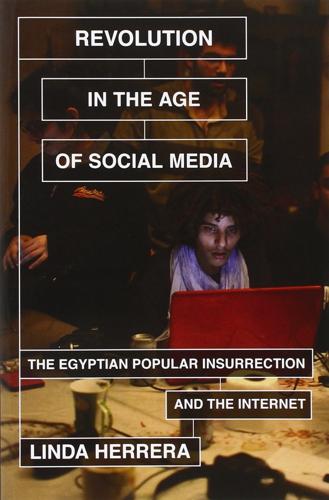
Revolution in the Age of Social Media: The Egyptian Popular Insurrection and the Internet
by
Linda Herrera
Published 14 Apr 2014
Figure 6.8: The Fourth Square, the square of confusion and mixed messages This eBook is licensed to Edward Betts, edward@4angle.com on 03/31/2016 CHAPTER SEVEN The Anti-Ideology Machine The January 25 Revolution, while in many respects a distinctly Egyptian and Arab event, also tells the global story of youth resistance in the digital age. Discontented youth around the world are searching for a new emancipatory paradigm. From the Arab uprisings that began with Tunisia in December 2010 and quickly spread to Egypt and other countries of the region, to the Occupy movement that popularized the slogan of the 99 percent, to the anti-austerity protest movements in southern Europe, to Taksim Square in Turkey, young citizens have been sending a clear and loud message: they reject the current economic and political system that neither respects nor nurtures them, and that denies them their dream of living with human dignity in a just and balanced global order.
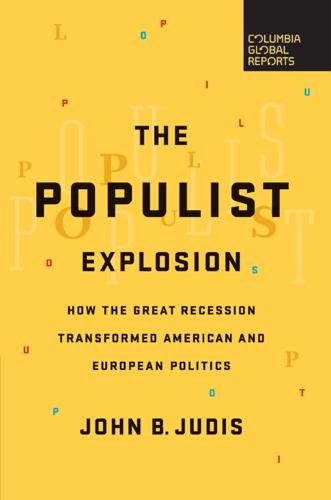
The Populist Explosion: How the Great Recession Transformed American and European Politics
by
John B. Judis
Published 11 Sep 2016
That slogan, which framed the protest in populist terms, defined the movement as an attack on growing political and economic inequality. On September 17, somewhere over a thousand demonstrators showed up and about 300 ended up camping out on Zuccotti Park. And over the next month—aided by police overreaction—the occupation and the demonstrations it spawned attracted thousands in New York. New occupy movements sprung up in scores of American cities. Occupy Boston, Chicago, Oakland, Los Angeles, and Washington, D.C., to be sure, but also Occupy Tupelo, Wichita, Tampa, Nashville, Missoula, Birmingham, El Paso, and many other cities and towns. It drew primarily from the college-educated young (reducing or writing off student debts was a prominent demand), but also from veterans of past anti-globalization struggles, like the demonstrations in Seattle in 1999 against the World Trade Organization.
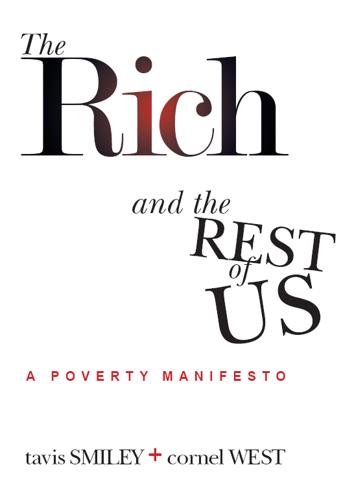
The Rich and the Rest of Us
by
Tavis Smiley
Published 15 Feb 2012
. “… nearly two-thirds of Americans now believe the wealth gap is the greatest cause of tension in America. The number of whites who believe that there is a ‘strong or very strong conflict between the rich and the poor’ shot up from 43 percent in 2009 to 65 percent in just two years.” Does the poll mean that more whites and conservatives are going to don their khakis and bandanas and join the Occupy movement? No. Is it an indication of a massive voter turnout for Obama in 2012? Of course not. It means that people are starting to recognize the divide and on which side they stand. It could mean that there’s a chance to shatter the bipartisan consensus in Washington that poor people are not as important as the rest of us.

The View From Flyover Country: Dispatches From the Forgotten America
by
Sarah Kendzior
Published 24 Apr 2015
“I think right-wing populists hate the ‘liberal elite’ more than economic elites because they’ve grabbed all the jobs where you get paid to do something that isn’t just for the money—the pursuit of art, or truth, or charity,” notes David Graeber, an anthropologist whose ideas helped shape the Occupy movement. “All they can do if they want to do something bigger than themselves and still get paid is join the army.” Fair and Just On the day the story of the alleged $22,000 UN internship broke, New York Times columnist Thomas Friedman assured us that our world is fair and just. After proclaiming that the world is “tailored for the self-motivated” and the “boundaries are all gone,” he argued, “We’re entering a world that increasingly rewards individual aspiration and persistence and can measure precisely who is contributing and who is not.
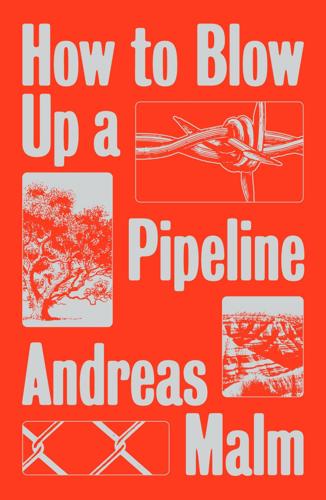
How to Blow Up a Pipeline
by
Andreas Malm
Published 4 Jan 2021
Gandhi was the Einstein … Bill McKibben, ‘Gandhi: A Man for All Seasons’, Common Dreams, 29 December 2007. See further e.g. Cheon and Urpelainen, Activism, pp. 41, 83, 155; McKibben, ‘Foreword’, pp. vii–viii; McKibben, Falter, p. 220; Vandana Shiva, ‘Foreword’, in Farrell et al., This Is Not, p. 7; Economist, ‘Could Extinction Rebellion Be the Next Occupy Movement?’, economist.com, 17 April 2019. p. 38. Not to forget the US civil rights movement … For this and the other analogies here mentioned, see e.g. Griffiths, ‘Courting’, p. 96; Danny Burns and Cordula Reimann, ‘Movement Building’, in Farrell et al., This Is Not, pp. 106–68; Cheon and Urpelainen, Activism, pp. 94–97; McKibben, Falter, p. 224.
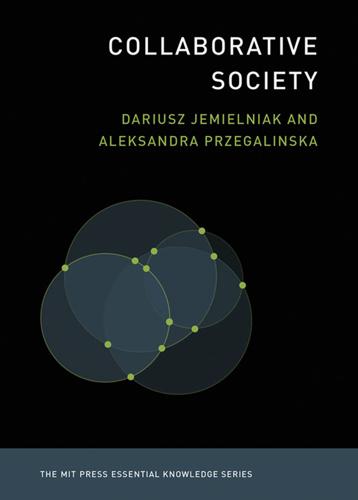
Collaborative Society
by
Dariusz Jemielniak
and
Aleksandra Przegalinska
Published 18 Feb 2020
OWS memes specifically “employed populist argument and popular texts, intertwining them into a vibrant polyvocal public discourse.”50 Memes offer a simple way to participate in a collective conversation, in many ways allowing for a deep, even if an acerbic or sardonic commentary on the nature of human liberties.51 The new collaborative culture of meme creation and consumption is so pervasive that even active military personnel at war feel compelled to participate.52 Figure 3 This 2011 meme, based on a viral video of a police officer’s use of pepper spray during a campus demonstration, expanded the Occupy movement’s original focus on economic inequality to include the basic First Amendment Right to peacefully assemble. 5 Collaborative Social Activism and Hacktivism We briefly mentioned collaborative social activism and hacktivism in chapter 4, but these topics deserve special focus. There are unlikely to be other types of collaborative activity that rapidly mobilize both online and offline action to the extent that social activism and hacktivism do.
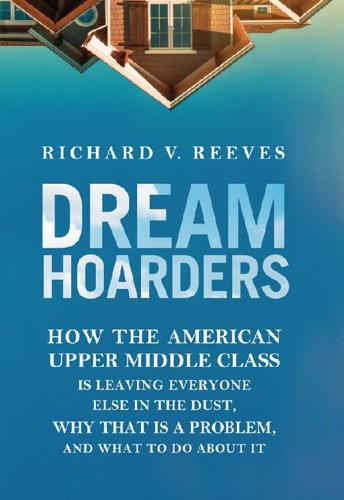
Dream Hoarders: How the American Upper Middle Class Is Leaving Everyone Else in the Dust, Why That Is a Problem, and What to Do About It
by
Richard V. Reeves
Published 22 May 2017
See Race and ethnicity Mitnik, Pablo, 62, 67 Monkkonen, Paavo, 102 Moretti, Enrico, 103 Mortgage interest tax subsidies, 105–06, 149–51 Murnane, Richard, 43 Murray, Charles, 19, 115, 154 Murray, Ed, 140 National Survey of Children’s Health, 129 Nelson, Ashlyn, 48 New America Foundation, 89 NIMBY (not in my backyard) behavior, 104, 139 Nurse-Family Partnership (NFP), 129 Obama, Barack: on American Opportunity Tax Credit, 137; on class mobility, 65; on economic inequality, 3–4; election of, 3; on equal opportunity, 57; on 529 college savings plans, 1–2, 136, 154; on pre-K programs, 130; on “Take Our Daughters and Sons to Work Day,” 114; on tax subsidies, 149 Obesity, 33 Occupy movement, 7, 23 Office of Population Affairs, 126 Online dating, 29 Opportunity hoarding, 12–13, 95–122; and classism, 119–21; defined, 100–01; and discrimination, 119–21; exclusionary zoning as, 102–06; internships as, 12, 113–19; legacy admissions to college as, 12, 107–13; and parental engagement, 98–100; work experience as, 113–19 Orszag, Peter, 23 Orwell, George, 17–18 Osborne, Cynthia, 130 Our Kids (Putnam), 8, 19, 40, 154 Oxford University, 37, 111–12 Para-funding of public schools, 48 Parental engagement: as advantage for children, 41–46; in education, 47–48; home visits to improve, 13, 128–31; and opportunity hoarding, 98–100 Parkin, Frank, 86 Parolek, Daniel, 140 Patton, Susan A., 29 Pedigree (Rivera), 120 Pell Grants, 138 Pelosi, Nancy, 1–2 Pence, Mike, 127 Pendall, Rolf, 31 Perlin, Ross, 116 Phillips, Meredith, 42 Phillips Academy, 112 Piketty, Thomas, 19, 39 Place Not Race (Cashin), 121 Player Piano (Vonnegut), 78 Postgraduate education, 28, 55 Postsecondary education.
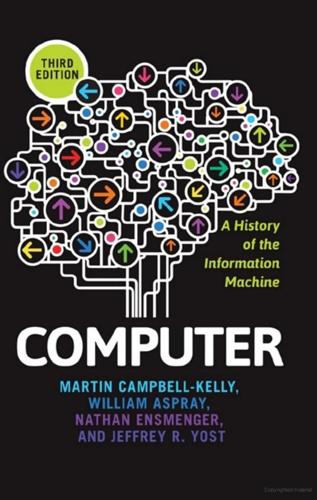
Computer: A History of the Information Machine
by
Martin Campbell-Kelly
and
Nathan Ensmenger
Published 29 Jul 2013
Similar early characterizations by journalists and politicians highlighted the important role of Facebook and Twitter in the 2011 Arab Spring (protests throughout the Arab world that led to the overthrow of authoritarian regimes in Tunisia, Libya, and Egypt) and the 2011 international Occupy Movement (sit-in demonstrations against political and economic inequality and concentrated corporate power that began with an Occupy Wall Street protest in lower Manhattan’s Zuccotti Park). Although social networking apparently played a considerable role in the Occupy Movement, Internet penetration is still fairly low in many Arab nations and relatively few citizens of these countries use Twitter or Facebook. At least as important to these varied protests was the older technology of cellphone texting, which enabled information to rapidly percolate, from person to person, throughout a community.
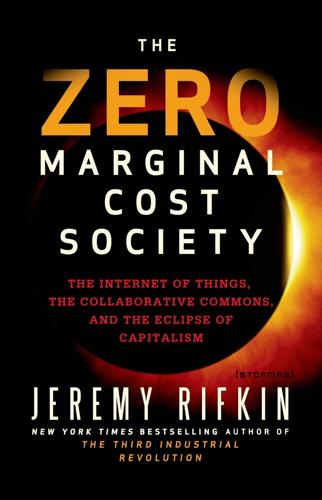
The Zero Marginal Cost Society: The Internet of Things, the Collaborative Commons, and the Eclipse of Capitalism
by
Jeremy Rifkin
Published 31 Mar 2014
While the labor unions’ struggles against corporate power were bitterly fought, they never attracted a majority of the workforce to their cause. Although there have also been occasional populist uprisings challenging the unbridled corporate control exercised over the economic life of society—the most recent being the Occupy Movement, with its rallying cry of the 99 percent versus the 1 percent—such outbursts have generally been few and far between and led to only mild regulatory reforms that did little to curb the concentration of power. To some extent, the criticism was muted because these large, vertically integrated corporate enterprises succeeded in bringing ever-cheaper products and services to the market, spawned millions of jobs, and improved the standard of living of working people throughout the industrial world.
…
Behrokh, 96–97 Kickstarter, 256 Ki-moon, Ban 285 Koenig, Friedrich, 44 Konrath, Sarah, 280 Kuhn, Thomas, 9 Kümmel, Reiner, 71 Kurzweil, Ray, 84 Lamberth, Laurie, 74–75 Lange, Oskar, 5–7 last worker standing, 121–133 and the end of work, 121–128 even knowledge workers are expendable, 128–133 Latif, Majib, 288 laws of thermodynamics, govern all economic activity, 10–11 Layard, Richard, 277 Leontief, Wassily, 5, 105 Lessig, Lawrence, 175, 177–180, 185, 188 Lewis, James W., 281 Linux, 170, 175–176, 199, 309 live healthier lives, how to, 275 local exchange trading systems (LETS), 259–262 Locke, John, 60–62 Loescher, Peter, 14 The London Independent, 188 Lovelock, James, 184 L3C laws, 265 Luther, Martin, 58–59 Lymphangioleiomyomatosis (LAM), 241–242 Lynch, Mike, 129 Lynn, Mary Scott, 147 Makerbot Industries, 94 Makers Movement, 93–94, 99, 103 manufacture vs. infofacture, 90 marginal cost economy. see near zero marginal cost society Margulis, Lynn, 184 market economy, 4, 61 rise of the 32–38 Martin, Dean, 144 Marx, Karl, 33, 41, 105 massive open online courses (MOOCs), 4, 109–119, 247, 309–310 and the decline of the brick and mortar classroom, 113–119 negatives of, 117–118 the one-room schoolhouse with two billion students, 109–113 and peer-to-peer grading, 115–116 and service learning, 111–113, 264 and teachers as facilitators, 110 see also Coursera; edX; Udacity materialism/materialist(s), 276–279 mercantilist policies, 37 Mestrallet, Gérard, 141 microcurrencies, 259–262 microgrid(s), 103–104, 107, 294–295 microplot(s), 239 micropower plant(s), 69, 101, 102, 146, 267, 294–295 Millennial Generation, 19, 226, 230, 252, 264, 280–283 Mill, John Stuart, 63 Moglen, Eben, 175–176 monopoly or oligopoly, 6–8, 23, 198, 202, 307 and AT&T, 49–51 and effect on capitalism, 3 “natural monopoly,” 8, 50–51, 136–138, 203–204 temporary, 8 Montreuil, Benoit, 219–220 Moore, Gordon, 79–82 Moore’s Law, 79–80, 82, 147, 169 More, Sir Thomas, 31 Morgan Stanley, 54, 292 Mosaic, 146, 256–257 Moss, Frank, 242 music sharing, 232 Music Xray, 130 Myspace, 201 Napster, 170, 232 National Human Genome Research Institute, 169 Resources Defense Council (NRDC), 147 Science Foundation, 96 Telecommunications and Information Administration (NTIA), 149 near zero marginal cost society, 68–151 ascent of the prosumer and the build-out of the smart economy, extreme productivity, the Internet of Things, and free energy, 69–87 getting closer to, 84–87 the last worker standing, 121–133 and marginal cost controversy, 135–138 MOOCs, 109–119 reluctance to come to grips with, 5 3D printing, 89–108 see also paradigm shift from market capitalism to Collaborative Commons network neutrality, 197–198, 203 The New Capitalist Manifesto (Haque), 253 Networked Commons, 119, 151, 173, 190, 194, 202, 212, 221, 222, 229–233, 237–241, 309 Newmark, Craig, 249 The New York Times, 5, 129, 251, 281 Noam, Eli, 151, 194 Northern Renaissance, 36, 300 Noubel, Jean-Francois, 262 Obama, President Barack, 71–72, 128 Occupy Movement, 57 oil cost of, 87, 137–138, 233 crude oil reserves are dwindling, 86–87 and infrastructure, 72 mass production of automobiles, effect on, 52–53 and the Second Industrial Revolution, 47–54 spills, 165, 290 Standard Oil Company, 48–49, 51 see also fossil fuel(s); Hall, Andy online higher education. see massive open online courses (MOOCs) Open Source Initiative (OSI), 176 “optimum general welfare,” 3 Organization for Economic Co-operation and Development (OECD), 21, 277 The Origin of Species (Darwin), 64 Ostrom, Elinor, 158–162, 175, 190 Paine, Thomas, 65 paradigm shift from market capitalism to Collaborative Commons, 1–25 and changing the economic paradigm, 9–11 and the Internet of Things, 11–16 and the rise of the Collaborative Commons, 16–25 Parkifi, 145–146 Patagonia, 263 patent(s), 138, 165–167, 170, 174–177, 180–181, 202 patient-driven research (PDR), 19, 240–247 peer-to-peer social lending, 255–257 Perens, Bruce, 176 Perlow, Jason, 128 Perry, Mark J., 122–123 Personal Genome Project, 180 The Philosophy of Money (Simmel), 259 phone, importance of, 49–51 population, key to stabilization of, 285 poverty, 21, 107–112, 209, 264, 275–278, 283–286 print, and the impact it had on the way we do business, 35–36, 178–179 printing press(es), 33–37, 44–45 privacy, age of, 75–77 property relations, notion of, 30–32 prosumer(s) ascent of the, 135–151 beyond governments and markets, 150–151 and the clean web, 144–147 definition of, 4, 90 and free wi-fi for everyone, 147–149 and power to the people, 138–144 protests to reclaim the public Commons, 187–188 QR code, 127 Quigg, Donald J., 166 rallying around free software, 174–177 Raspberry Pi, 80 Raymond, Eric S., 176–177 RelayRides, 228 rental(s)/renting. see social capital and the sharing economy reputation rankings on the web, 257–259 reviews, consumer-generated, 248–249 Rifkin, Milton, 305–306, 309 rise in collaborative innovation, 21 Rochdale Society of Equitable Pioneers, 212–213 Rockefeller, John D., 48–49 Rose, Carol, 157–158 Rowe, Jonathan 190 Royal Dutch Shell, 49, 54, 142 Ruben, Andy, 237–238 Rural Electric Administration (REA), 209–210 Say, Jean-Baptiste, 3 Say’s Law, 3 scarcity. see abundance Schelgel, Heather, 262 Scherzer, Norman, 243 Schlatter, Richard, 30, 62 Schor, Juliet, 280 Schumacher, E.
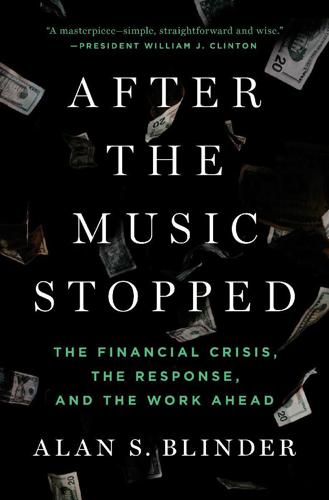
After the Music Stopped: The Financial Crisis, the Response, and the Work Ahead
by
Alan S. Blinder
Published 24 Jan 2013
Perhaps most of all, they are anxious about what the future may bring. As late as the 2012 election, a strong majority of Americans were telling pollsters that the country was still “on the wrong track” or “heading in the wrong direction.” No wonder we heard populist political thunder from both the Right (the Tea Party movement) and the Left (the Occupy movement). The United States recently completed the quadrennial spectacle we call a presidential election with a plainly angry electorate. While President Obama won reelection, no one yet knows what the 2012 election will bring in its wake. But we do know that the last chapters of the story that began in 2007 are yet to be written.
…
Like the Tea Party, Occupy is a highly populist movement that, for example, hates the Wall Street bailouts. It is more antioligarchy than antigovernment, however, arguing that Wall Street’s reckless behavior hurt working-class Americans badly (which is true) and yet has gone unpunished (which is also largely true). But the Occupy movement did not engage much in electoral politics. No Occupy candidates entered any Democratic primaries or ran under a third-party banner for election in November 2012. So while it certainly counts as part of the backlash against the Obama administration, it is by no means clear that Occupy Wall Street is part of the backlash against government activism in general.
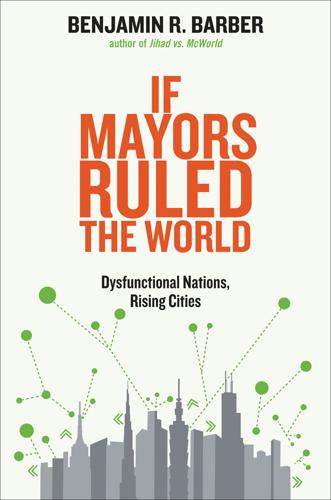
If Mayors Ruled the World: Dysfunctional Nations, Rising Cities
by
Benjamin R. Barber
Published 5 Nov 2013
Although I cannot give them here the attention they merit, the argument for intercity cooperation and a global mayors parliament rides the momentum these noble experiments in constructive interdependence have quietly realized.31 I cannot complete this very brief survey, of cross-border associations and movements that are not city based but help ground a prospective cities parliament in a robust global civil society, without a word about the Occupy movement. For less than a year between 2011 and 2012, this youth-led movement electrified the media globally by drawing attention to the radical inequalities spawned by the dominion of neoliberal ideology and its current global market practices. As the civil rights and feminist movements as well as the poor peoples’ and welfare rights movements once helped to ground a new politics in social and civic protest, so Occupy Wall Street recently rekindled the ideals of urban political protest, not just within but across cities and countries.
…
As the civil rights and feminist movements as well as the poor peoples’ and welfare rights movements once helped to ground a new politics in social and civic protest, so Occupy Wall Street recently rekindled the ideals of urban political protest, not just within but across cities and countries. Starting in cities like New York and Oakland—fed up with predatory banks, disturbed by the irresponsibility of politicians, and daunted by a media circus wholly detached from the historical obligation of journalism to inform the citizenry—the Occupy movement was a revelation.32 It announced two truths: that America (like the world) was deeply divided with up to 99 percent of the population dominated economically by one percent that controls a preponderance of the wealth, and that as a result democracy is in deep crisis: neither Wall Street nor Washington, D.C., is “what democracy looks like.”
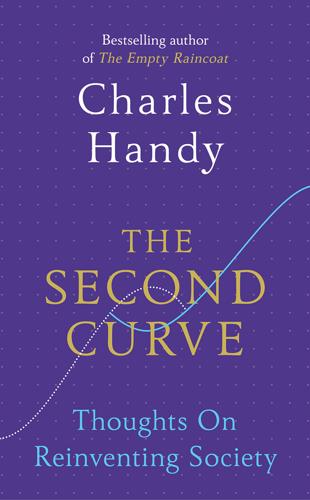
The Second Curve: Thoughts on Reinventing Society
by
Charles Handy
Published 12 Mar 2015
Francis Fukuyama and others have argued, and many statesmen have assumed, that a combination of liberal democracy and open market capitalism would be the ultimate answer for a successful society. But democracy and capitalism can be uneasy bedfellows. If capitalism is not seen to be working for the demos the demos could destroy it, as the Occupy movement has sought to do. They, however, had no plausible alternative, no Second Curve, to propose, which suggests that protests alone won’t kill capitalism. It is more likely that public pressure will end up by entangling business in so many restrictions and requirements that its vigour will be irreparably damaged.

City Squares: Eighteen Writers on the Spirit and Significance of Squares Around the World
by
Catie Marron
Published 11 Apr 2016
Even as government moved indoors and the agora evolved over time into the Roman forum, a grander, more formal place, the notion of the public square as the soul of urban life remained critical to the self-identity of the state. To skip ahead a couple of millennia, I don’t think it’s coincidental that the now failed Egyptian revolution, early in 2011, centered around Tahrir Square, or that the Occupy Movement later that same year, partly inspired by the Arab Spring, expressed itself by taking over squares like Taksim in Istanbul, the Plaça de Catalunya in Barcelona, and Zuccotti Park in Lower Manhattan. And I don’t think it’s coincidental that the strangers who came together at Zuccotti, Taksim, and Tahrir all formed pop-up towns on these sites, producing in bite-size form (at least temporarily) what they imagined to be the outlines of a better city, with distinct spaces designated for legal services, libraries, medical stations, media centers, kitchens serving free food, and general stores handing out free clothing.
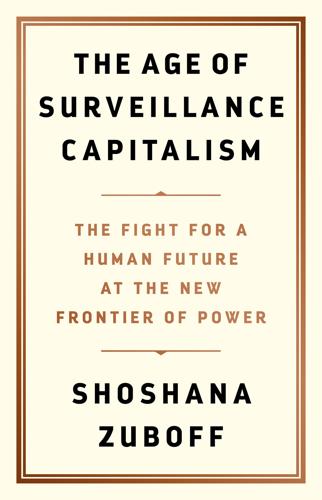
The Age of Surveillance Capitalism
by
Shoshana Zuboff
Published 15 Jan 2019
Indeed, research from the London School of Economics based on interviews with 270 people who had participated in the rioting reported on the predominant theme of inequality: “no job, no money.”40 The terms of reference in nearly every study sound the same drumbeat: lack of opportunity, lack of access to education, marginalization, deprivation, grievance, hopelessness.41 And although the London riots differed substantially from other protests that preceded and followed, most notably the Indignados movement that began with a large-scale public mobilization in Madrid in May 2011 and the Occupy movement that would emerge on September 17 in Wall Street’s Zuccotti Park, they shared a point of origin in the themes of economic inequality and exclusion.42 The US, the UK, and most of Europe entered the second decade of the twenty-first century facing economic and social inequalities more extreme than anything since the Gilded Age and comparable to some of the world’s poorest countries.43 Despite a decade of explosive digital growth that included the Apple miracle and the penetration of the internet into everyday life, dangerous social divisions suggested an even more stratified and antidemocratic future.
…
As one woman explained, “The young these days need to be heard. It’s got to be justice for them.” And a young man reflected, “When no one cares about you you’re gonna eventually make them care, you’re gonna cause a disturbance.”58 Other analyses cite “the denial of dignity” expressed in the wordless anger of the North London rampage.59 When the Occupy movement erupted on another continent far from London’s beleaguered neighborhoods, it appeared to have little in common with the violent eruptions that August. The 99 percent that Occupy intended to represent is not marginalized; on the contrary, the very legitimacy of Occupy was its claim to supermajority status.
…
See also habituation stage of dispossession cycle; psychic numbing effect Norvig, Peter, 118 Nuance Communications, 264, 266 nudges, 202, 294–295, 370, 435 Obama administration, 120, 124–125, 385–386 Obama campaigns, 122–124, 281 objectification, 211–212, 337, 377; otherization of humanity, 363–364, 365–366, 378, 397f, 410; self-objectification, dangers of, 464. See also free will; Other-One viewpoint observation without witness, as instrumentarianism’s point of view, 376–377. See also Other-One viewpoint; privacy Occupy movement, 42, 44–45 Oculus, 103 Odyssey, The, 3 offensive material, blocking of, 110–112 Ohlhausen, Maureen K., 265–266 Ohm, Paul, 245 O’Neill, Richard, 118 One Voice, competition for, 260–261, 267, 268–269 “Online Eraser” law (California, 2015), 61 On Photography (Sontag), 233 OnStar Go, 217 Open Effect, 249 openness to experience, 275, 277 open source, Android platform as, 134 operant conditioning.
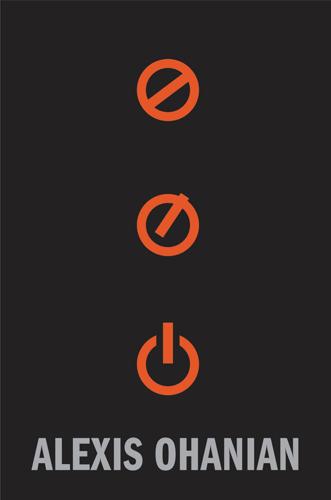
Without Their Permission: How the 21st Century Will Be Made, Not Managed
by
Alexis Ohanian
Published 30 Sep 2013
The vast network of open-source projects that made nearly all the aforementioned stories possible is the result of countless hours of work from all over the world, all for a purpose not explicitly defined. The movement for Internet freedom is similarly structured. Furthermore, all political movements will begin to show a similar DNA, if they’re not already. To wit, the Tea Party and the Occupy movement have little in common when it comes to political agendas, but their networks are incredibly widely distributed and their hierarchies virtually nonexistent. Both groups are distributed across the country and both believe their government doesn’t represent them—the people. They disagree on what to do about that, but it’s rather striking that their common bond is rooted in making the government more accountable to its citizens, something we really saw for the first time at the national level during the SOPA and PIPA discussions.

Having and Being Had
by
Eula Biss
Published 15 Jan 2020
Art, for me, has always been a thing to do, not a thing to buy. The art that is sold in galleries seems to belong to another world entirely. The art world. John says he’s not sure that I can say we have money. David, who has just finished paying off his credit card debt, is following this argument with interest. When the Occupy movement was still making headlines, I tell them, I learned that 75 percent of the households in Chicago made less than ours. We were in the top 25 percent, and that was before I got the raise that brought my salary up to $73,000, making our household income $125,000. We had money, John concedes, but we spent it on this house.
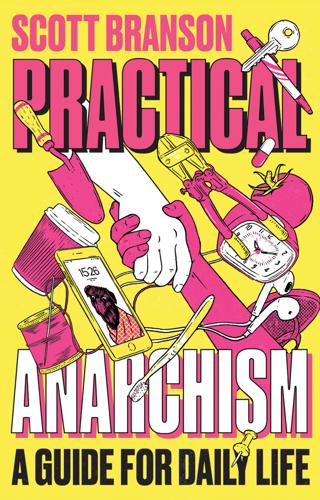
Practical Anarchism: A Guide for Daily Life
by
Scott. Branson
Published 14 Jun 2022
Not only does the affinity group allow for a flexible organizing that is project oriented, it avoids the concentration of power that bureaucracies and state infrastructure tend to impose. The affinity group is made to break up. The commonly cited pitfall of this kind of organizing method, much caricaturized during the Occupy movements, is that a consensus-based process, where a decision or action can only be made when everyone agrees, can take a long time or even involve an endless blocking by one person objecting repeatedly. However, this is where the idea of affinity and dissolution comes in. If one person keeps blocking, then they would need to think about what they are doing in the group.
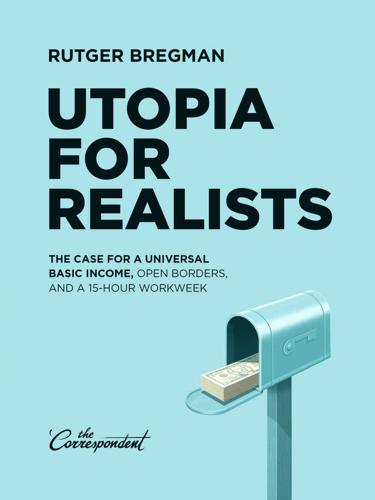
Utopia for Realists: The Case for a Universal Basic Income, Open Borders, and a 15-Hour Workweek
by
Rutger Bregman
Published 13 Sep 2014
But I have been very distressed by that fact.”10 When a congressman asked him if he had been misled by his own ideas, Greenspan replied, “That’s precisely the reason I was shocked because I’d been going for 40 years or so with considerable evidence that it was working exceptionally well.” The lesson of December 21, 1954, is that everything centers on that one moment of crisis. When the clock strikes midnight, what happens next? A crisis can provide an opening for new ideas, but it can also shore up old convictions. So what happened after September 15, 2008? The Occupy movement briefly galvanized people, but quickly ebbed. Meanwhile, left-leaning political parties lost elections across most of Europe. Greece and Italy more or less canned democracy altogether and rolled out neoliberal-tinted reforms to please their creditors, trimming government and boosting labor market flexibility.
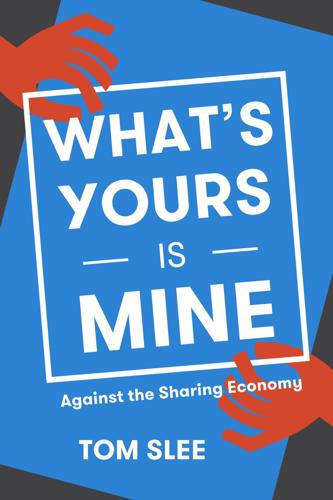
What's Yours Is Mine: Against the Sharing Economy
by
Tom Slee
Published 18 Nov 2015
Other examples are more nebulous but no less important: the energy of Manhattan, the “cafe culture” of Rome, the Catalan history and distinctive architectural environment of Barcelona, the unique symbolic meaning of post–Cold War Berlin, the focal role of Tahrir Square during the 2011 Egyptian uprising, or of New York’s Zucotti Park during the Occupy movement in 2012. Cities are sites where people of all sorts and classes mingle. The social, collective production of culture is much of what makes a city a city: Harvey quotes Hardt and Negri: “the metropolis [is] a factory for the production of the common.” Commercial cultural industries play an increasingly important role in the economy: “The number of workers engaged in cultural activities and production has increased considerably over the past few decades.” 19 But culture is distinct from commodities like shirts and shoes20 in that commerce is just the tip of the cultural iceberg.
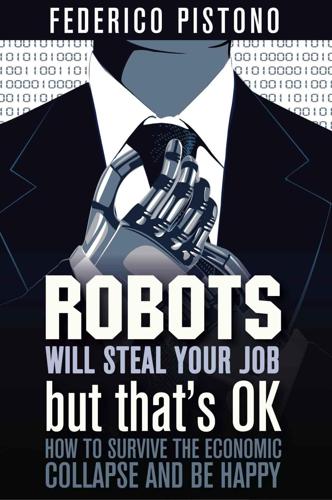
Robots Will Steal Your Job, But That's OK: How to Survive the Economic Collapse and Be Happy
by
Pistono, Federico
Published 14 Oct 2012
* * * Figure 1.2: Change in share of income 1979-2007, calculated after taxes. * * * The lower 80% have actually seen a substantial decrease of income, while the very top has hardly been affected. what is even more worrying is the distortion in the public perception of this phenomenon, even after the worldwide Occupy Movement broke out. A 2011 paper by Harvard Professor Michael Norton and Duke University Professor Dan Ariely, called Building a Better America – One Wealth Quintile at a Time shows just how skewed our perception is.13 * * * Figure 1.3: Building a Better America – One Wealth Quintile at a Time, Michael I.
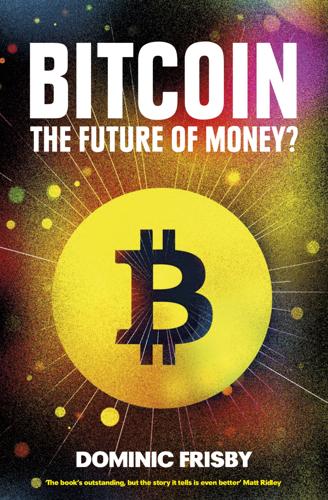
Bitcoin: The Future of Money?
by
Dominic Frisby
Published 1 Nov 2014
Amir asks another guy – unshaven, matted hair, grungy, friendly – to bring us a chai. Amir seems to have a bit of status in this place. The chai arrives and the guy sits down with us. He wants to listen to the interview. ‘I’m interested in all this stuff,’ he says. It turns out he’s one of the ringleaders in the Occupy movement. Amir starts talking. I’ve always loved the way many inventions and discoveries happened by accident. Alexander Fleming didn’t clean up one day and now we have penicillin. George Crum, a chef, got so infuriated by a customer who kept sending back his potatoes that he sliced them as thin and fried them as long as he dared – and we have the potato chip (or crisp).

ECOVILLAGE: 1001 ways to heal the planet
by
Ecovillage 1001 Ways to Heal the Planet-Triarchy Press Ltd (2015)
Published 30 Jun 2015
Arundhati Roy 1 www.theguardian.com/lifeandstyle/2014/nov/03/ten-easy-steps-that-will-make-you-a-happier-person 2 http://africacheck.org/reports/will-74400-women-be-raped-this-august-in-south-africa/ 3 www.africanouvelles.com/nouvelles/afrique/5115-senegal-14-000-ecovillages-seront-creesdici-2020.html The Power of Community by Leila Dregger Core Competencies of Ecovillages In the Occupy movement over the past few years, whether on Wall Street, in Madrid or in Cairo, one phenomenon has kept cropping up: young people — today, so often primed for competition and pressured to perform, but sobered by the lack of meaningful prospects — experienced the miracle of community. Again and again, realising that their problems were shared by others, they joined forces and together found out-of-the-box solutions.
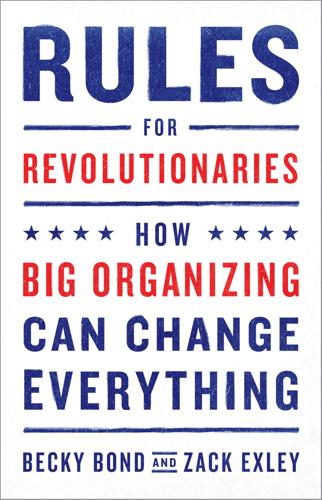
Rules for Revolutionaries: How Big Organizing Can Change Everything
by
Becky Bond
and
Zack Exley
Published 9 Nov 2016
RSVPs started coming in. First there were one hundred, then five hundred, and eventually over one thousand people joined the call. They were prepared for the onslaught of eager volunteer leaders. They’d already been using a conference call product called Maestro via InterOccupy, the online hub where the Occupy movement shifted to collaborate and organize after Zuccotti Park. The call was no navel-gazing hippy confab. There was an introduction. A seasoned facilitator from Occupy who goes by the name Jack Rabbit led a discussion about why everyone had come together and why specifically they were supporting Bernie.

Undoing Border Imperialism
by
Harsha Walia
Published 12 Nov 2013
Plans that adjust to sudden changes in terrain and survive overwhelming paradigm shifts. We must be relevant. We must show victories. We must prove ourselves worthy of trust to people who have been misled too many times before. We must show that what we bring is both a vision for the future and a way to make things a little better in the present. Be it the actions of the (de)Occupy movement that gave people hope, or the organizing to stop the deportation of Alvaro Orozco, or the much-broader mobilization to stop the deportation of Laibar Singh, communities of people join resistance movements that act on issues that matter and do so in ways that will win. We must understand that people act in a myriad of places—schools, shelters, food banks, health centers, housing projects, art galleries.
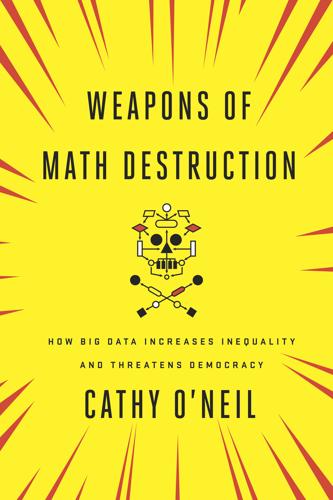
Weapons of Math Destruction: How Big Data Increases Inequality and Threatens Democracy
by
Cathy O'Neil
Published 5 Sep 2016
The inclination is to replace people with data trails, turning them into more effective shoppers, voters, or workers to optimize some objective. This is easy to do, and to justify, when success comes back as an anonymous score and when the people affected remain every bit as abstract as the numbers dancing across the screen. I was already blogging as I worked in data science, and I was also getting more involved with the Occupy movement. More and more, I worried about the separation between technical models and real people, and about the moral repercussions of that separation. In fact, I saw the same pattern emerging that I’d witnessed in finance: a false sense of security was leading to widespread use of imperfect models, self-serving definitions of success, and growing feedback loops.
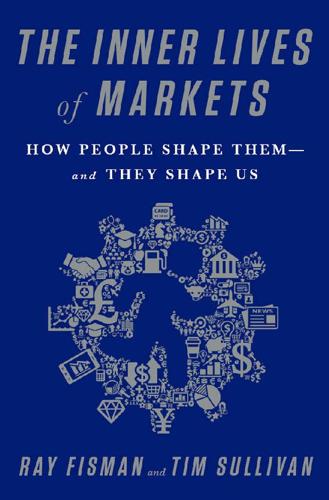
The Inner Lives of Markets: How People Shape Them—And They Shape Us
by
Tim Sullivan
Published 6 Jun 2016
Building from his calculation that the richest 20 percent of Italians owned 80 percent of the country’s land, Pareto posited that incomes in an economy tend to be distributed according to a “power law.” (Power law distributions will often generate extreme inequality, making Pareto an unlikely hero of the Occupy movement.) Most memorably, though, he used his mathematical skills to extend Smith’s invisible hand arguments, introducing a particular criterion by which economists could assess social well-being.5 This welfare principle, named Pareto efficiency by British economist I. M. D. Little, suggests that we may judge an economic system by whether it’s possible, through some series of trades or exchanges, to make at least one individual better off without making anyone worse off.
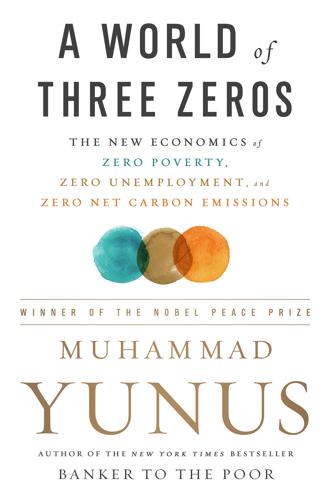
A World of Three Zeros: The New Economics of Zero Poverty, Zero Unemployment, and Zero Carbon Emissions
by
Muhammad Yunus
Published 25 Sep 2017
It impacts the national and global social and political environment, economic progress, and quality of life for all of us—including those in the wealthy minority. The rise of inequality has led to social unrest, political polarization, and growing tensions among groups. It underlay phenomena as varied as the Occupy movement, the Tea Party, and the Arab Spring; the passage of Brexit in the United Kingdom; the election of Donald Trump; and the rise of right-wing nationalism, racism, and hate groups in Europe and the United States. People who feel disinherited and left without prospects for the future have become increasingly disenchanted and angry.
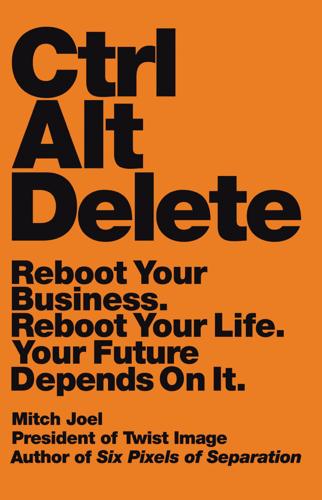
Ctrl Alt Delete: Reboot Your Business. Reboot Your Life. Your Future Depends on It.
by
Mitch Joel
Published 20 May 2013
NOW IT’S YOUR TURN… The January 2012 cover story of Fast Company magazine was all about Generation Flux. You’ve heard of Gen X, Gen Y, and more, but what is Generation Flux? Our business world has been through some tumultuous times: recessions, financial meltdowns, the massive disruption of technology, natural disasters, nations defaulting on their debt, the Arab Spring, the Occupy Movement, and much more. From every catastrophe and massive shift emerge new breakthroughs and advancements. During these past few years, we’ve also seen some of the most interesting companies flourish and grow (Apple, Facebook, Lululemon, Amazon, Twitter, and more); we’ve seen medical advancements at an unprecedented pace and the introduction of new technologies that will forever change our future.
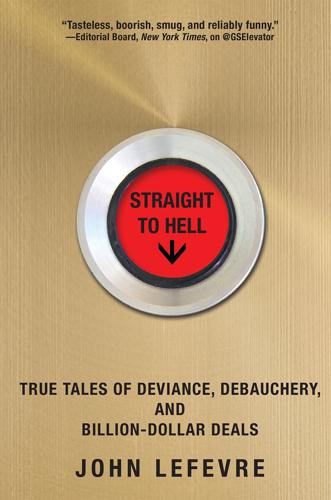
Straight to Hell: True Tales of Deviance, Debauchery, and Billion-Dollar Deals
by
John Lefevre
Published 4 Nov 2014
after any kind of shameless place or name-dropping. Just a few hours earlier, I had been in a bar in Hong Kong with a group of friends, all of whom were finance guys. Although markets had recovered from the bowels of the financial crisis, the summer of 2011 was still a tumultuous time. The Occupy movement was just starting to gain momentum; people were still angry. Despite the housing collapse, the ensuing crisis, and subsequent bailouts, not a single banker had been held criminally responsible. Bonuses had remained relatively intact and the equity markets had come roaring back from the lows of 2009.
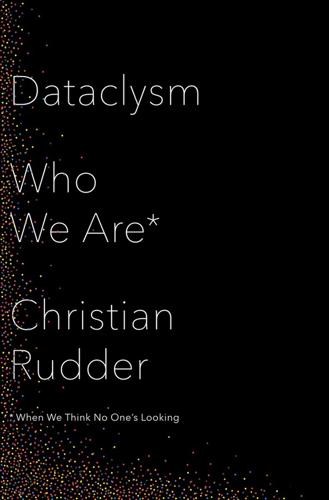
Dataclysm: Who We Are (When We Think No One's Looking)
by
Christian Rudder
Published 8 Sep 2014
personally identifiable (PII), 14.1, 14.2 sharing of innovation, 4.1, 13.1, 14.1 Instagram, itr.1, 1.1, 3.1, 13.1, 14.1 instant messaging (IM) intelligence, itr.1, 6.1, 7.1, nts.1 testing of InterActiveCorp (IAC) Internet, itr.1, itr.2, 1.1, 2.1, 3.1, 6.1, 7.1, 12.1, 13.1, 13.2, 13.3, 14.1, 14.2, nts.1 cultural impact of, 3.1, 5.1 democratization process on, itr.1, 12.1n demographics and use of, itr.1, 6.1, 6.2, nts.1 era before, 6.1, 12.1 hate speech on, 8.1, 9.1 human interaction on maintaining privacy on, itr.1, 14.1, 14.2, nts.1 making of public figures on negativity on percentage of Americans on wide audience provided by Internet Protocol (IP) intuition, 4.1, 6.1 iPhone, 14.1, 14.2, bm2.1 iPhoto Irish people, 10.1, nts.1 Japan JavaScript, 13.1, 14.1 Jell-O, 13.1, nts.1 jobs, itr.1, 4.1, 11.1, 13.1, 13.2 coworkers at, 4.1, 4.2, 4.3 government loss of male vs. female interviews for, 7.1, 7.2 promise of workplace performance on see also employment Jobs, Steve, itr.1, 5.1, nts.1 journalism, 3.1, 14.1 Joyce, James Justice Department, US Justin (friend), itr.1, 2.1 Kentucky Kerry, John keyboards, itr.1, 3.1 King Kong (film) Kinsey Report, The (Kinsey), 11.1, nts.1 Kleinberg, Jon, 4.1, nts.1, nts.2 Klout, 13.1, 14.1, bm2.1, nts.1 Königsberg, bridges of, 4.1, nts.1 Korean peninsula, 7.1, nts.1, nts.2 38th parallel in Ku Klux Klan (KKK) Lamis, Alexander P., 8.1, nts.1 language, 3.1, 9.1, 11.1, 12.1 dialects of, 3.1, 10.1 literary, 3.1, 3.2, 3.3, 10.1 programming study of on Twitter, 3.1, 13.1, nts.1 variety and preservation of Lanier, Jaron, 14.1, 14.2, 14.3, nts.1 Lee, Spike Leggero, Natasha, 9.1, 9.2, 12.1, nts.1 Lennon, John, itr.1, 13.1 lesbianism, 11.1, 11.2 Liberman, Mark, 3.1, nts.1 Limbaugh, Rush LinkedIn, 5.1, 7.1 Linklater, Richard LOLs, 9.1, 9.2 London subway bombings Louisiana, 11.1, 12.1 love, itr.1, 3.1, 4.1 dating sites and “experts” on lust vs., 12.1, 12.2 Lucas, George lust, itr.1, 11.1 love vs., 12.1, 12.2 McCain, John McCartney, Paul, itr.1, 13.1, bm2.1 McConaughey, Matthew McDonald’s, 13.1, nts.1 Maddow, Rachel Mandela, Nelson Manjoo, Farhad, 13.1, nts.1 mapmaking, 12.1, 12.2, 12.3, 12.4, 12.5, 12.6, 12.7, 12.8, nts.1 marriage, itr.1, 1.1, 4.1, 4.2, 5.1, 9.1 civil unions vs., 11.1 evaluation of gay, itr.1, 11.1, 11.2, 11.3, 11.4 sexless Mars/Venus metaphor, 10.1, nts.1 Martin, Trayvon Massachusetts Institute of Technology (MIT), 9.1, 11.1, 14.1, 14.2, nts.1, nts.2 masturbation fantasy Match.com, itr.1, 6.1, 6.2, 6.3, 7.1 mathematics, itr.1, 1.1, 2.1, 2.2, 2.3, 6.1, 7.1, 9.1, 10.1n, 10.2, 11.1, 13.1, 13.2, 14.1 measurement, 5.1, 7.1 memory, 1.1, bm1.1 men: aging of, 1.1, 1.2, 1.3, 1.4 Asian, 6.1, 6.2, 6.3, 6.4, 6.5, 6.6, 6.7, 10.1, 10.2 attraction of women to, 1.1, 1.2, 1.3 attractiveness of women to, 1.1, 1.2, 1.3, 1.4, 1.5, 1.6, 1.7, 2.1, 2.2, 2.3 black, 6.1, 6.2, 6.3, 6.4, 6.5, 6.6, 6.7, 8.1, 8.2, 10.1 contacting of women by, 1.1, 1.2, 1.3, 1.4, 2.1, 3.1 Latino, 6.1, 6.2, 6.3, 6.4, 6.5, 6.6, 6.7, 10.1, 10.2, 10.3 sexual aims of straight, 11.1, bm2.1 white, 6.1, 6.2, 6.3, 6.4, 6.5, 6.6, 6.7, 6.8, 10.1, 10.2, 10.3, 10.4, 10.5, 10.6, 10.7 Mexico, 10.1, nts.1 Michel, Jean-Baptiste, 3.1n, nts.1 microchips, 13.1, nts.1 Microsoft, 4.1, 14.1, 14.2, 14.3, nts.1 Microsoft Research Milgram, Stanley, 4.1, 4.2, nts.1 “misery index,” 11.1, nts.1 Mississippi models, professional Montoya, Peter, 13.1, 13.2, nts.1 Morris, Errol Mountain Dew, 13.1, nts.1 Murakami, Haruki music, 2.1, 4.1, 10.1, 13.1 identification of taste in, 1.1, 1.2 Myers-Briggs test Myspace names, ethnicity of Napoleon I, Emperor of France, 8.1, bm1.1 Narmer, Pharoah, itr.1, nts.1 Nas, 8.1, 8.2 National Basketball Association (NBA), itr.1, itr.2, nts.1 National Football League (NFL) National Geographic National Security Agency (NSA), 14.1, 14.2, 14.3 PRISM program of, 14.1, 14.2, 14.3 Nature, 14.1n, nts.1 Nawaz, Safiyya, 9.1, 9.2, 9.3, 12.1, nts.1 network analysis network theory, 4.1, nts.1 Newton, Isaac, 10.1, 14.1 New York, NY, 6.1, 11.1, 12.1, 12.2 Brooklyn, 8.1, 12.1 Manhattan, 12.1, 12.2, 14.1, nts.1 people watching in Queens Rockefeller Center Times Square Upper East Side New Yorker, 13.1, nts.1, nts.2 New York Times, itr.1, 11.1, 11.2, 13.1, 14.1, 14.2, nts.1, nts.2, nts.3 OpEd page of Nielsen ratings “nigga,” 8.1n, 8.2, nts.1 “nigger,” 8.1, 8.2, 8.3, 8.4, 8.5, 9.1, nts.1 Nigger (recording), 8.1, 8.2 Niggerhead Lake Nixon, Richard M. North Dakota, 11.1, 11.2 Norwegian Wood (Murakami) nouns, 3.1, 3.2 Obama, Barack, 9.1, 13.1, nts.1 “change” byword of on racism 2008 election of, 8.1, 8.2, 9.1, nts.1, nts.2 2009 inauguration of, 8.1, 8.2 2012 election of Obasogie, Osagie K., 6.1, nts.1 Occupy! movement OkCupid, itr.1, itr.2, itr.3, itr.4, 2.1, 7.1, 7.2, 9.1, 12.1, 13.1 accounts removed from apps of, 3.1, 5.1 attractiveness ratings on, 7.1, 7.2, 7.3, 7.4 compatibility (match percentage) ratings on, 6.1, 6.2, 6.3, 6.4, 6.5, 6.6, 6.7, 6.8 Crazy Blind Date app promoted by, 5.1, 6.1, nts.1 data collection of, itr.1, 1.1, 1.2, 2.1, 5.1, 6.1, 6.2, 11.1, 12.1, bm2.1 founding of, itr.1, itr.2 gay users of, 11.1, 11.2, 11.3, 11.4 as largest dating website, itr.1, nts.1 Love Is Blind Day on, 5.1, 5.2, 7.1 match questions on, 8.1, 11.1, 11.2, 14.1 median age of users of messages exchanged on, 3.1, 5.1, 5.2, 5.3, 5.4, 7.1, 7.2, 7.3, 7.4, 13.1, bm2.1, nts.1 personal profiles on, itr.1, 2.1, 2.2, 6.1, 6.2, 10.1, 10.2, 11.1, 11.2, 11.3 photographs on, 6.1, 7.1, 7.2, 7.3, 14.1, nts.1 racial composition of users of, 6.1, 6.2, 6.3, 8.1 racial data on, 6.1, 6.2, 6.3, 6.4, 6.5, 6.6, 6.7, 6.8, 6.9 Omen, The (film) “online disinhibition effect,” Oxford English Corpus (OEC), 3.1, 10.1, 10.2, nts.1 Painter, Nell Irvin, 6.1, nts.1 Palin, Sarah paper parents, 1.1, 2.1, 4.1, 4.2, 7.1, 11.1, 12.1, 14.1 Parsons code, bm2.1, bm2.2 Pearl Harbor attack Pecker (film) Penny Arcade, 9.1, nts.1 Pentland, Alex, 14.1, 14.2, nts.1 People’s History of the United States, A (Zinn) Perry, Katy, 9.1, nts.1 Perry, Rick personal essays on OkCupid, itr.1, 2.1, 2.2, 6.1, 6.2, 10.1, 10.2, 11.1, 11.2, 11.3 Peters, Tom Pew studies, itr.1, nts.1 Phil, Dr.
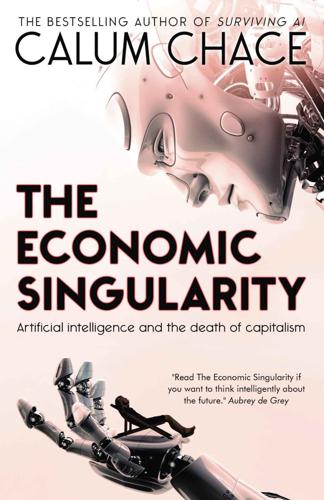
The Economic Singularity: Artificial Intelligence and the Death of Capitalism
by
Calum Chace
Published 17 Jul 2016
This part of the book could have been written by Peter Diamandis, author of “Abundance” and “Bold”, and a leading evangelist for the claim that the exponential growth in computer power is leading us towards utopia. “Spread” seems to be a synonym for inequality, although the authors are strangely reluctant to use that word.[xxxv] It is “ever-bigger differences among people in economic success”. This part of the book could have been written by a member of the Occupy movement[xxxvi]. “Spread is a troubling development for many reasons, and one that will accelerate in the second machine age unless we intervene.” Brynjolfsson and McAfee pose the question whether bounty will overcome the spread. In other words, will we create an economy of radical abundance, in which inequality is relatively unimportant because even though a minority is extraordinarily wealthy, everyone else is comfortably off?
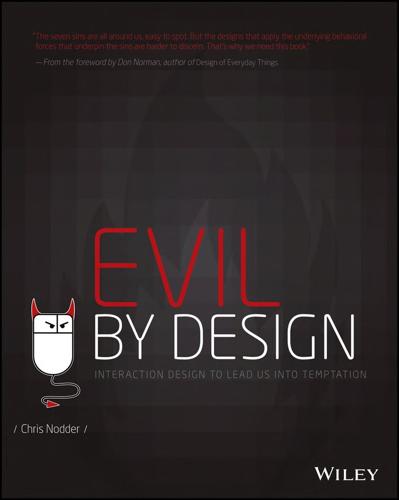
Evil by Design: Interaction Design to Lead Us Into Temptation
by
Chris Nodder
Published 4 Jun 2013
If you want to use (benign) envy to drive people to a certain goal, then you need to show them the difference between their current status and the status they can achieve if they reach the goal. There are indications of status—and status differences—everywhere. Even in supposedly “classless” societies such as the USA, there exists a wide range of social strata, as brought to light by the Occupy movement, and plenty of opportunity for envy, as shown by talk of the “one percent.” Employing envy as a motivating factor therefore means highlighting the differences in status. You can do this effectively by showing successful users’ achievements and importance in a public manner. Create status differences to drive behavior Without differentiation, there can be no envy.
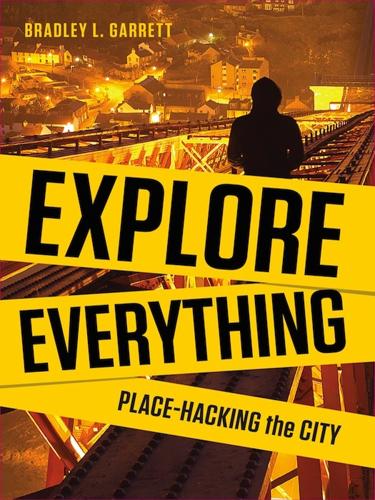
Explore Everything
by
Bradley Garrett
Published 7 Oct 2013
As soon as I had a moment to breathe, I began to realise the true reach of this story. The photos had been printed, stolen, reposted and reblogged so many times I could no longer keep track of them. Two related and valuable things emerged during this time. First, the media, probably because of so many stories that year about the Occupy movement and the proposed changes in UK squatting laws, were quite happy to let me talk about the politics of space in London. When they described scaling the Shard as ‘climbing an urban Everest’, I told them it was more like sacking Olympus. The context was the imposition of a particular form of verticality that has been thrust upon us, inescapable almost everywhere in the city.
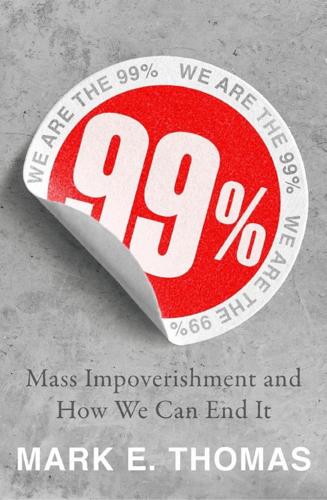
99%: Mass Impoverishment and How We Can End It
by
Mark Thomas
Published 7 Aug 2019
In a letter to the Wall Street Journal, he warned: Writing from the epicenter of progressive thought, San Francisco, I would call attention to the parallels of fascist Nazi Germany to its war on its ‘one per cent,’ namely its Jews, to the progressive war on the American one per cent, namely the ‘rich.’… From the Occupy movement to the demonization of the rich embedded in virtually every word of our local newspaper, the San Francisco Chronicle, I perceive a rising tide of hatred of the successful one per cent… This is a very dangerous drift in our American thinking. Kristallnacht was unthinkable in 1930; is its descendent ‘progressive’ radicalism unthinkable now?
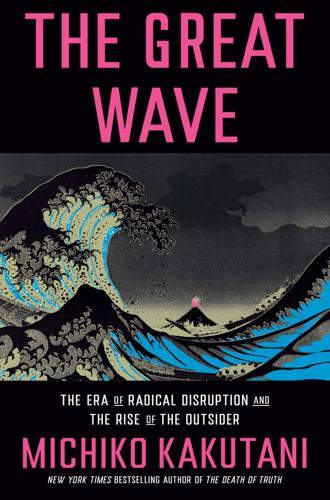
The Great Wave: The Era of Radical Disruption and the Rise of the Outsider
by
Michiko Kakutani
Published 20 Feb 2024
Like the Tea Party on the right, Occupy was a response to the financial crash of 2008 and its fallout on the working and middle classes, and as inequality snowballed across the world, its cry of “we are the 99 percent” went from being a left-wing meme circulating on social media to a trope increasingly used by politicians, journalists, even TV and ad copy writers. The long-term effects of the Occupy movement would become apparent only in retrospect, as its alumni helped staff Bernie Sanders’s 2016 presidential campaign and started an array of progressive groups intent on nudging the Democratic Party to the left. “For everything that Occupy got wrong,” the journalist Michael Levitin wrote in his 2021 book, Generation Occupy, “the movement radicalized a generation of activists who forced social, economic, racial and climate justice to the center of the conversation, inaugurating a new era of protest.”

Nothing Is True and Everything Is Possible: The Surreal Heart of the New Russia
by
Peter Pomerantsev
Published 11 Nov 2014
American academics who fight the American World Order, 9/11 conspiracy theorists, antiglobalists, and the European Far Right are given generous space. Nigel Farage, leader of the nonparliamentary anti-immigration UKIP party, is a frequent guest; Far Left supporter of Saddam Hussein George Galloway hosts a program about Western media bias. The channel has been nominated for an Emmy for its reporting on the Occupy movement in the United States and is described as “antihegemonic” by its fans; it is the most watched channel on YouTube, with one billion viewers, and the third most watched news channel in the United Kingdom, and its Washington office is expanding. But the channel is not uniformly “antihegemonic”: when it suits, RT shows establishment stalwarts like Larry King, who hosts his own show on the network.
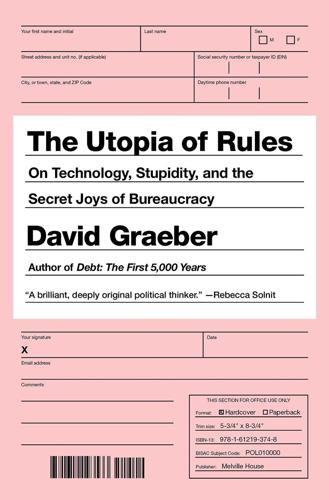
Bureaucracy
by
David Graeber
Published 3 Feb 2015
This was already true of the great Festivals of Resistance organized around trade summits by the Global Justice movement from 1998 to 2003, where the intricate details of the process of democratic planning for the actions was, if anything, more important than the actions themselves, but it became even more true in 2011 with the camps of the Arab Spring, the great assemblies of Greece and Spain, and finally, the Occupy movement in the United States. These were simultaneously direct actions, practical demonstrations of how real democracy could be thrown in the face of power, and experiments in what a genuinely non-bureaucratized social order, based on the power of practical imagination, might look like. Such is the lesson, I think, for politics.
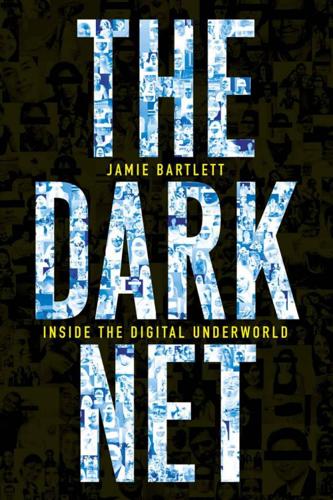
The Dark Net
by
Jamie Bartlett
Published 20 Aug 2014
Or maybe the police had finally worked out who he was? Perhaps something worse? A New Platform Paul is not alone in finding the internet a perfect place to spread his message. It has become a vital platform for political groups around the world. From Barack Obama’s Facebook electioneering in the US, to the Occupy movement’s flash mobs, to the Italian comedian-cum-politician Beppe Grillo’s digital reach, the battle for ideas, influence and impact is moving online. Over the last decade, Paul and thousands of people like him have eschewed the traditional stomping grounds of the nationalist movement in favour of Facebook, Twitter and YouTube.
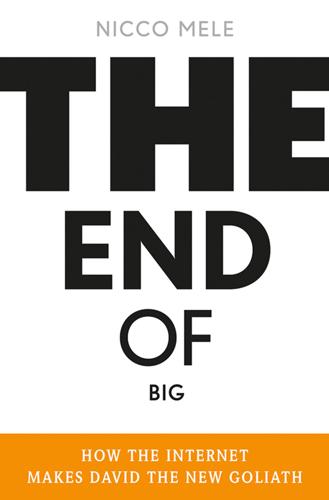
The End of Big: How the Internet Makes David the New Goliath
by
Nicco Mele
Published 14 Apr 2013
He “grabbed” a handful of social media mentions relevant to the story, starting with the last tweet from Congresswoman Giffords before she was shot and including tweets from other eyewitnesses as well as breaking news reports and relevant YouTube videos.42 Carvin went on to organize a number of Storify narratives around the Arab Spring, telling the stories of political uprisings in Tunisia, Egypt, and Syria by curating social media from people on the ground who experienced it live. Josh Stearns of the media advocacy group Free Press likewise began using Storify to track, confirm, and verify reports of journalists being arrested at Occupy protests all over the United States. During the Occupy Movement’s heyday he documented more than sixty-nine journalists who had been arrested in twelve cities around the United States.43 Unfinished Business As such journalistic experiments suggest, the dangers wrought by the End of Big are not necessarily insurmountable. Yet they are real. Writing in The New Yorker back in 1960, A.
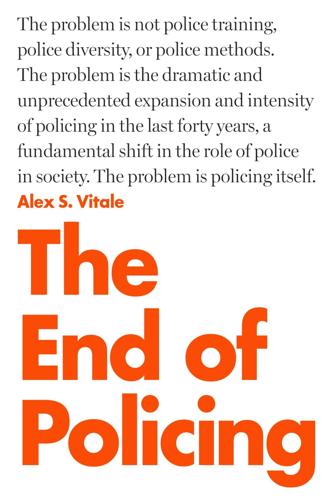
The End of Policing
by
Alex S. Vitale
Published 9 Oct 2017
Even a single, anonymous speech act or social media post advocating illegal activity (including civil disobedience) could trigger a full investigation.37 In 2009 and 2010, two fusion centers listed supporters of third-party candidates, including those backing libertarian Ron Paul, as potential threats, linking them to the militia movement.38 The Pennsylvania Homeland Security office was found to be using paid consultants to monitor environmental, peace, and gay rights groups and then reporting the findings to local businesses, including the Hershey Company and oil and gas companies engaged in the politically fraught fracking business. Some of the reports compared these nonviolent political organizations to Al-Qaeda. The contract agency involved was also under contract to provide private security to many of the same companies. Fusion centers have also been implicated in monitoring the Occupy movement and coordinating local efforts to end it. A report by the Center for Media and Democracy found that “Terrorism Liaison Officers” were monitoring and reporting on the activities of Occupy Phoenix, including attending meetings and demonstrations, infiltrating the organization, and following social-media activity.
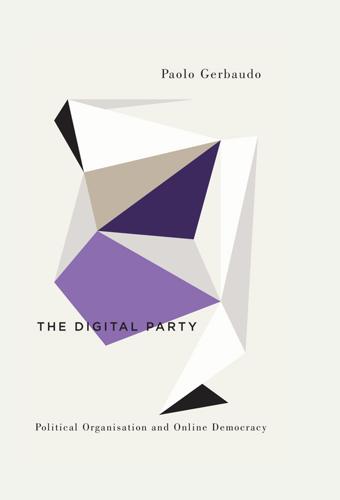
The Digital Party: Political Organisation and Online Democracy
by
Paolo Gerbaudo
Published 19 Jul 2018
Furthermore, it incorporates a number of ideas coming from the project of a Basisdemokratie (grassroots democracy) proposed by 1970s new social movements and Green parties, including limits to consecutive mandates and the rotation principle among representatives, in order to avoid the formation of power cliques and political careerism. And finally it echoes demands for ‘real democracy’ issued by the popular assemblies of the 2011 Occupy movements. Thereby, digital technology is viewed as the means through which this vision, which has often butted its head against technical and political impossibility, may eventually come true. With its mass interaction capabilities, it is argued, digital technology offers an antidote against the oligarchic tendencies of organisation, famously denounced by Robert Michels, and, at least in the most radical version of this narrative, the means through which citizens can eventually revoke the mandate given to their representatives and participate directly in public life.
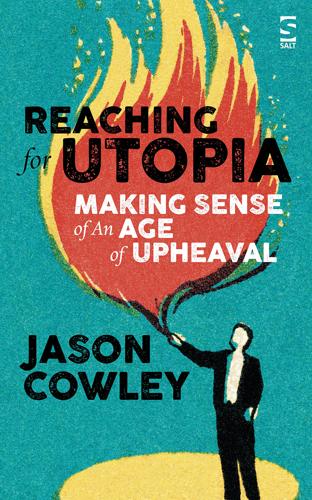
Reaching for Utopia: Making Sense of an Age of Upheaval
by
Jason Cowley
Published 15 Nov 2018
‘Even Artichokes Have Doubts’ (the whimsical title suggests the influence of David Foster Wallace or George Saunders) was about the career choices of elite Ivy League graduates. Keegan, who also wrote and acted in plays, lamented how many of her peers – a quarter at Yale, she calculated – would soon be pursuing high-paying careers on Wall Street or in management consultancy. This troubled and saddened Keegan, who was an activist in the Occupy movement and served as president of the Yale College Democrats. It told her something important about her generation of millennials and what they wanted, or were coerced into wanting, that she did not like. The essay reached a readership far beyond her student peers and, after a version of it was republished in the New York Times, it inspired, Marina’s mother Tracy told me, a wide-ranging discussion about what America’s brightest young people should be doing with their lives in the wake of the 2008 financial crisis and the subsequent Great Recession.
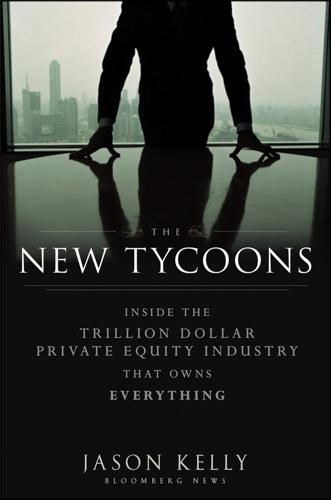
The New Tycoons: Inside the Trillion Dollar Private Equity Industry That Owns Everything
by
Jason Kelly
Published 10 Sep 2012
A relentless salesman, he found that he could provide the next, riskier, level of financing by immediately selling portions of it to other investors, his clients. The syndicated loan market was born. While private-equity executives often contend that they are not part of Wall Street, a point made repeatedly during the depths of the financial crisis, during the height of the Occupy movement, and to every regulator or legislator who would listen during all of that time, the debt part of the equation inextricably ties buyout firms to investment banks and other lenders, as well as hedge funds. Big banks like JPMorgan and Goldman Sachs have evolved into the primary providers of debt for leveraged buyouts and as the private equity industry has grown, groups of bankers devoted to what bankers call financial sponsors (just another name for private-equity firms) have flourished, especially when deals were coming fast and furious.
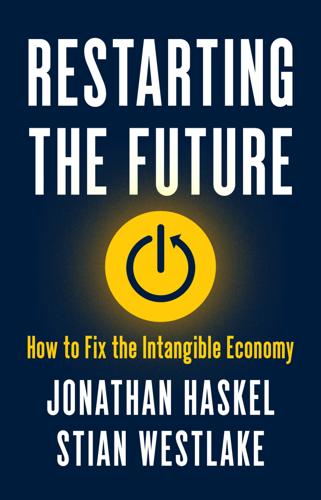
Restarting the Future: How to Fix the Intangible Economy
by
Jonathan Haskel
and
Stian Westlake
Published 4 Apr 2022
Since the turn of the century, and especially since the financial crisis, there has been a growing concern about the gap between the richest and the rest. Wilkinson and Pickett’s best-selling book The Spirit Level argues that inequality leads to crime, poor health, and unhappiness not just among the poor but also across society.6 In 2011, the Occupy movement popularised the meme of “The 99%,” highlighting the dichotomy between a rich elite and the population as a whole. And Thomas Piketty’s Capital in the Twenty-First Century brought decades of empirical work on wealth inequality to bear on the public debate.7 FIGURE 1.3: Growth by Income Group in the World, 1980–2016.
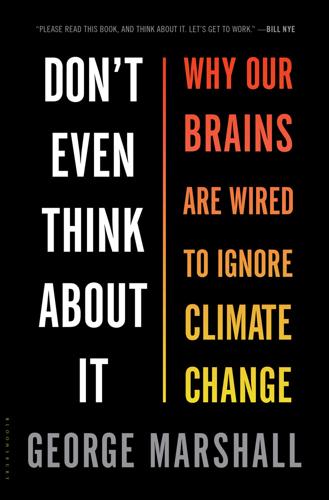
Don't Even Think About It: Why Our Brains Are Wired to Ignore Climate Change
by
George Marshall
Published 18 Aug 2014
“I’m not a doomsday prophecy kind of guy, but I am a realist,” he says. So, being realistic, he doesn’t see a bright future, but he is very vague about the details. Maybe, he speculates, we will be immobilized, strapped to a chair with a feeding tube. One couple are more politically alert, having spent time with the Occupy movement. They anticipate some kind of corporate dystopia, But, they say, there are other issues too. Overbreeding. The constant battle over fertility rights. “Yes,” says the woman, warming to the theme. “Politicians! Get out of my uterus! Leave my lady parts alone!” In her one-piece latex Catwoman outfit, she looks reasonably safe for the moment.
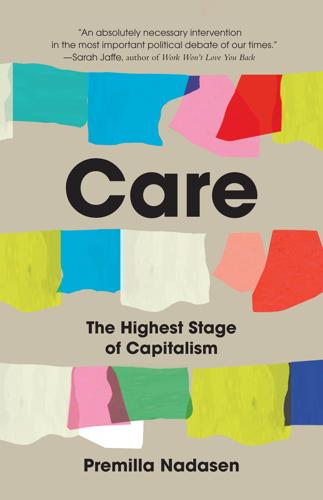
Care: The Highest Stage of Capitalism
by
Premilla Nadasen
Published 10 Oct 2023
Ultimately, along with the platform companies, Uber riders, Care.com customers, and Instacart shoppers need to understand that they are part of a corporate, profit-making chain. They can simultaneously be consumers as well as employers hiring someone’s labor. Uniting the 99 percent was a rallying cry of the Occupy Movement in 2011. The slogan rightly pointed to the unconscionable gap between the wealth of the top 1 percent and the rest of us—a gap that has widened drastically with deregulated and unhinged capitalist profit-making strategies. We cannot lose sight of the fact that that is the real problem: people with unimaginable wealth control the media, shape our daily decision-making, and influence the political landscape.
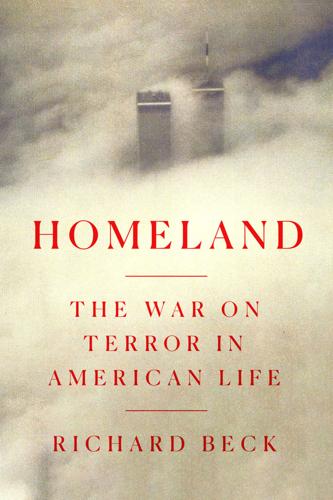
Homeland: The War on Terror in American Life
by
Richard Beck
Published 2 Sep 2024
While the DHS’s Office for Civil Rights and Civil Liberties cautioned that “to a large degree, these protests are no different from any other protests/events from civil liberties, civil rights and privacy perspectives,” it allowed that “persons demonstrating illegal or suspicious behavior and attempting to use the protests to obscure their activity could be reported.”[30] Aside from the guy at DHS whose whole job was to worry about civil rights, however, the rest of the Department of Homeland Security, along with the FBI, had little problem with treating the Occupy movement like a violent threat from the beginning. As revealed in a report by the Partnership for Civil Justice Fund, the “DHS ‘Threat Management Division’ directed Regional Intelligence Analysts to provide a ‘Daily Intelligence Briefing’ that included reports on ‘Peaceful Activist Demonstrations’ along with ‘Domestic Terrorist Activity.’ ” Regional “fusion centers” were tasked with collecting intelligence on the protests.
…
BACK TO NOTE REFERENCE 29 “FW: Guidance Requested: Occupy Wall Street,” email, in Occupy Wall Street Release 1—Homeland Security, Department of Homeland Security, Oct. 17, 2011, 6, www.dhs.gov/sites/default/files/publications/occupy-wall-street-redacted-1.pdf. BACK TO NOTE REFERENCE 30 “The Crackdown on the Occupy Movement,” Partnership for Civil Justice Fund, Aug. 31, 2015, www.justiceonline.org/ows-foia. BACK TO NOTE REFERENCE 31 “Fusion Centers Approached 2011 Black Friday Consumer Boycott Like a Terrorist Threat,” Partnership for Civil Justice Fund, June 1, 2014, www.justiceonline.org/news/fusion-centers-approached-2011-black-friday-consumer-boycott-like-a-terrorist-threat/.
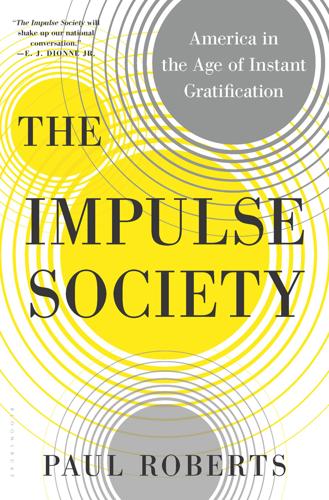
The Impulse Society: America in the Age of Instant Gratification
by
Paul Roberts
Published 1 Sep 2014
Meanwhile, America’s other protest movement, the Tea Party, whose platform was largely dedicated to preventing any sort of a meaningful reform of those imbalances, was so effective that it took over the Republican Party and shut down the government. Sadly, this is precisely the outcome we would expect in a political culture that is driven as much by branding and the creation of identity as by a desire for real political change. Consider the liberal response to the financial crisis. Although the Occupy movement reflected a broad consensus among mainstream liberals that both Wall Street and its government watchdogs were corrupt and in need of serious reform, the movement failed to motivate many mainstream liberals. To be fair, Occupy made little effort to appeal to the mainstream. The group was perversely uninterested in speaking with the media or working with potential allies, such as labor.
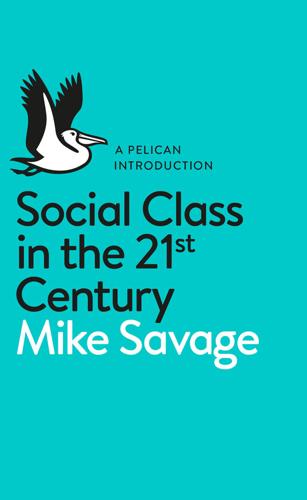
Social Class in the 21st Century
by
Mike Savage
Published 5 Nov 2015
Piketty’s insistence that returns to capital generally exceed the rate of economic growth, and hence that there is a tendency for wealth to accumulate more rapidly than national economies, draws attention to the way that the highest levels of economic capital are self-generating in an increasingly intense way. To put this more directly, the more you have, the more you get. There has been an important campaign to raise visibility towards the excessive rewards accruing to the super-rich – such as by the Occupy movement – and we strongly support this concern. We would, however, argue that it is important not simply to concentrate on particular ‘super-wealthy’ individuals alone, or indeed even the ‘one per cent’, who are commonly singled out. There is a danger that this politics becomes both sensationalist and focused on particular individuals in a way which detracts from the wider sociological resonance of what we have called the ‘ordinary’ wealth-elite.
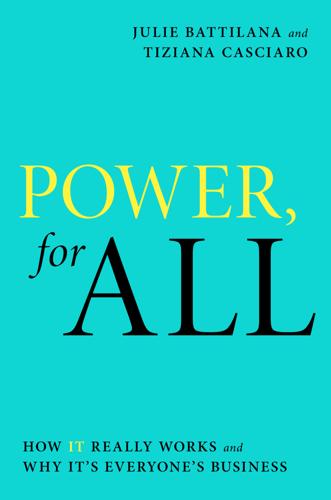
Power, for All: How It Really Works and Why It's Everyone's Business
by
Julie Battilana
and
Tiziana Casciaro
Published 30 Aug 2021
Jean’s research culminated in the publication of a white paper that laid out her innovative idea: a methodology that would lead to the development of appropriate sustainability standards for each industry.27 Her practice of leading with questions and seeking advice as a newcomer in the space paid off: The response to the paper was overwhelmingly positive, with investors and asset managers reaching out to ask her when the new metrics would be available.28 Thinking that once she had put the idea out, the right person would pick it up and run with it, Jean put the project on the back burner for a year. Then, as the Occupy movement gained momentum, she decided she was done waiting. If she wanted to see these sustainability standards developed, she would have to do it herself. With the support of her husband, she quit her job and gave herself a sixth-month deadline to launch the not-for-profit that would become SASB, the Sustainability Accounting Standards Board.29 Beyond fundraising to finance the launching of SASB, Jean’s first task was to assemble a team of researchers and technical experts who would be working with her to develop the sustainability metrics for each industry.
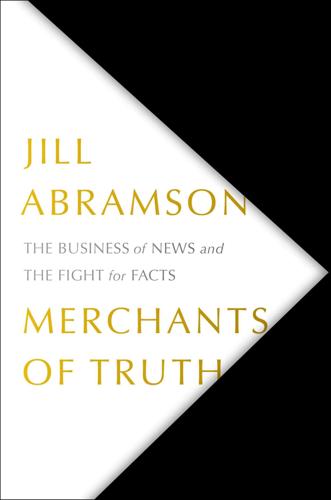
Merchants of Truth: The Business of News and the Fight for Facts
by
Jill Abramson
Published 5 Feb 2019
Instead of angling for reporters in their mid- to late 20s, he recruited “people who were killing it at their first jobs,” as he put it. It was a headhunting strategy born of necessity, but Smith executed it with swagger. “I don’t like hiring stars,” he told me. “It’s better to make them.” He was a great talent-spotter and became a mentor for young, inexperienced reporters. One hire was Rosie Gray, who had been covering the Occupy movement for the Village Voice. Smith reckoned that her success covering one radical camp qualified her for another; he assigned her to Ron Paul’s libertarian campaign in the Republican primaries. Other hires belonged to the crowd of regulars with whom Smith spent his days conversing on Twitter. Another was McKay Coppins, who after graduating from Brigham Young University had reported on the election for Newsweek and habitually sent the scoops he published to Smith in hopes of mentions on the Politico blog.
…
paid subscriptions to, 4–5, 193–94, 276–77, 373, 389, 397, 416, 425, 427 separate editorial staff of, 196 “Snow Fall” story on, 204–5, 211 traffic to, 373 “Trump bump” and, 397 2016 election and, 372 Upshot blog of, 248, 290 virtual reality and, 398–99 Nguyen, Dao, 113, 114, 116, 121, 144 Nieman Journalism Lab, 119, 124, 134 Nike: Peretti’s emails with, 16–17, 19 viral Ronaldinho ad of, 53 Nir, Sarah Maslin, 210 Nisenholtz, Martin, 73–74, 192, 194 Nixon, Richard, 225, 226 Nolan, Hamilton, 138, 164, 348 North Face, 161 Notopoulos, Katie, 130 Nunberg, Sam, 306 NYTimes.com, see New York Times, websites of Obama, Barack, 210, 252, 300, 323 BuzzFeed’s native advertising campaign for, 136–37 Shane Smith’s interview with, 179, 180 Trump’s lies about, 309 in 2012 election, 136 Obama, Michelle, 179 Obama administration, criminal leak investigations by, 9, 214 Occupy movement, 130 Ochs, Adolph, 77, 429 O’Keefe, James, 286, 338 Old Blue Last (London pub), 153 Oliver, John, 389 Onion, 119 Oregonian, 246 O’Reilly, Bill, 80, 361, 392 Ostrovsky, Simon, 179, 355 kidnapping of, 174, 357 Palmieri, Jennifer, 380–81 Panic 2012 (Hastings), 133 Paris climate accord, 351 Parker, Ashley, 376–77, 406, 407, 411 Pearl, Danny, murder of, 208, 209 Pentagon Papers, 64, 82, 225, 326, 402 Peretsman, Nancy, 257, 258 Peretti, Chelsea, 13, 17, 19, 107 Peretti, Jonah, 4, 8, 219, 242, 283 Ben Smith hired as head of BuzzFeed news department by, 127–28 Blackpeopleloveus.com and, 17, 19 on BuzzFeed mix of entertainment and news, 132 BuzzFeed started by, see BuzzFeed on Chartbeat, 247 childhood and adolescence of, 13–14 computing as early interest of, 14 contagious media and, 18, 285 and doubts about BuzzFeed’s entry into news industry, 143–44 dyslexia of, 13 explosion of social media anticipated by, 30–31, 103 at Eyebeam, 18–19 Facebook criticized by, 343 Facebook worldview adopted by, 103–4 and gaming of Google search system, 29, 30 as Huffington Post cofounder, 21–25, 29, 30, 33, 285 importance of BuzzFeed News to, 317 Lerer and, 20–21 at MIT Media Lab, 16, 18 Nike Sweatshop meme inadvertently created by, 16–17, 19 as proselytizer for machine learning, 330–31 reaction buttons introduced by, 302–3 Rejection Line meme created by, 17, 19 in search for new revenue sources, 344 Steele dossier publication approved by, 323, 328 as teacher at Isidore Newman School, 14–15 as untroubled by blurring of advertising and news content, 121–22, 137 and use of Facebook “sentiment data,” 304 video production as focus of, 328–29 virality and, see virality wealth of, 123 Perpich, David, 193, 394–96, 398 PETA, 38 Pew Foundation, 182 Philadelphia Daily News, 233 Piano, Renzo, 81, 187 Pilhofer, Aron, 197 Pincus, Walter, 92–93 Pinterest, 178 Plame, Valerie, 93 Playboy, 42 Plepler, Richard, 178, 179, 180 and Vice News Tonight, 350, 353, 355 Plunkett, Chuck, 424 Podesta, John, 381 hacked emails of, 319, 381 Politically Incorrect (TV show), 44 political polarization: Facebook and, 273–74, 279–80, 281, 282–83, 312 right and, 282–83 Politico, 98–99, 124, 130, 140, 144, 189, 197, 230, 237, 251, 263, 374, 406 Ben Smith at, 126, 131, 134 critical article on Abramson in, 211 “Salongate” story broken by, 240, 241 Powell, Colin, 93 Powers That Be, The (Halberstam), 3–4 Poynter Institute, 95, 109, 140, 309, 310 Prakash, Shailesh, 263, 266–67, 413–14 press, freedom of, see First Amendment Preston, Julia, 402 Priest, Dana, 233 ProPublica, 77, 141, 142, 237, 389, 408 Proud Boys, 368 Pruitt, Scott, 390 psychographics (psychometrics), 278–79, 286 Pulitzer Prizes, 3, 4, 82, 211, 233, 268, 392, 411, 416, 426 100th anniversary celebration of, 1–5, 402 Punch, Tom, 160 Purdy, Matt, 205, 378 Putin, Vladimir, 289 quality news, 9–10 see also investigative journalism; long-form journalism Quest Education Corporation, 90 Raines, Howell, 67, 78, 184, 186, 217, 385, 429 Rather, Dan, 60 Rattner, Steven, 65, 73, 188, 189 Ravitch, Joe, 154 Reagan’s War (film), 285 Rebel Media, 368 Reddit, 313 Redstone, Sumner, 154 Reeve, Elle, 351–52 Charlottesville violence covered by, 353–55 Regret the Error (blog), 310 Reid, Harry, 384 Reines, Philippe, 133 Rejection Line meme, 17, 19 relatability, virality and, 115–16 Remnick, David, 88, 209 Reporters Committee for Freedom of the Press, 327, 427 Republican National Convention (2016), 315–16 Republicans, news media distrusted by, 386–87 Reston, James, 397 Rezaian, Jason, 407 Rice, Condoleezza, 79 Rich, Frank, 75 Richardson, Terry, 59, 176 Ricks, Thomas, 93, 230 Risen, James, 92, 215, 384, 402 Roberts, Jim, 135 Robinson, Janet, 86, 193 Abramson’s relationship with, 198, 199, 202 business-side job cuts by, 191 news staff cuts resisted by, 70–71, 186 paywall on website urged by, 192, 193 print advertising department protected by, 73 Sulzberger’s firing of, 202–3 as Times’s CEO, 62–63, 65 Rodman, Dennis, 167 Rogers Communications, 358, 365 Rolling Stone, 130, 133 Romney, Mitt, in 2012 election, 129, 131–32, 136 Ronaldinho, viral Nike ad of, 53 Rose, Charlie, 417, 425 Rosen, Jay, 7, 76 Rosenthal, Abe, 75, 78, 185, 193, 390 Rosenthal, Andrew, 78, 192–93, 215 Rosenthal, Elisabeth, 402 Rotten, Johnny, 43 Rovere, Richard, 4 /r/The_Donald (subreddit), 405 Rubin, Alissa, 209–10 Rubio, Marco, 132 Run-Up, The (podcast), 370, 372–74, 375 Russia: Trump’s business connections with, 383–84 2016 election interference of, 289, 326, 341–42, 381, 382, 383, 420 Rutenberg, Jim, 374 Ryan, Carolyn, 370, 371, 374, 378, 379 Ryan, Fred, 98, 263, 264, 403–4 as Post publisher, 263–64, 430–34 St.
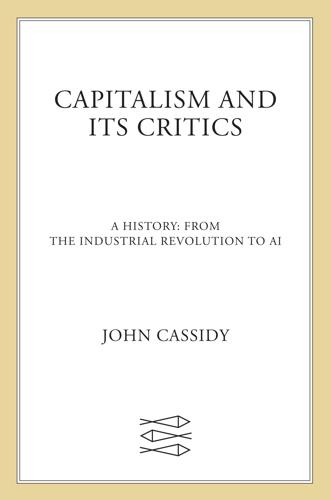
Capitalism and Its Critics: A History: From the Industrial Revolution to AI
by
John Cassidy
Published 12 May 2025
The Global Financial Crisis and Occupy Wall Street’s denunciations of “the 1 percent” were still on people’s minds. Although the protest encampment at Zuccotti Park in lower Manhattan only remained in place for about two months in the fall of 2011, it came to symbolize widespread outrage about rising inequality and the privileges accorded to the financial sector and the uberwealthy. Occupy movements sprang up in other cities and countries, and even mainstream politicians responded to the concerns that the protesters raised. In a December 2013 speech, President Barack Obama described “dangerous and growing inequality and lack of upward mobility” as “the defining challenge of our time.”3 After an obscure German publisher put out Marx’s Capital in 1867, it was largely ignored for years.
…
Hobsbawm, Eric Hobson, Florence Edgar Hobson, John; antisemitism of; The Crisis of Liberalism; early life of; The Evolution of Modern Capitalism; on imperialism; Imperialism: A Study; on industrial capitalism; Lenin and; Mummery and; The Physiology of Industry; Problems of Poverty; socialism and; in South Africa; The War in South Africa Hodgskin, Thomas Hoechst Hofman, André Hollande, François Hollingsworth, Edward Homestead Act homogenization Hoover, Herbert Hopkins, Richard Horsfall, William Horthy, Miklós Hosiers’ Association housework housing Howard University Howell, David Howells, William Dean How Europe Underdeveloped Africa (Rodney) How the World Ran Out of Everything (Goodman) Hudson, George Hudson, Pat Hume, David Hume, Joseph Humphries, Jane Hungary Hunt, Tristram Hyder Ali Hyndman, Henry Mayers IBM If Women Counted (Waring) immigrants immiseration Imperial Bank of India imperialism; American; British, see British colonies; formal; Hobson on; Kautsky on; Lenin on; Luxemburg on; racism and; wealth distribution and; working classes and; World War I and; see also colonialism Imperialism (Hobson) Imperialism, the Highest Stage of Capitalism (Lenin) Implosion of Contemporary Capitalism, The (Amin) income; diminishing marginal utility of; Elephant Curve distribution of; equality of; household; imperialism and; inequality in, see inequality; redistribution of; universal basic; see also wages In Defence of Economic Growth (Beckerman) In Defense of Globalization (Bhagwati) indentured workers Independent Social Democratic Party India; agriculture in; AIVIA in; army of; Bengal; Congress Party in; cotton production in; debates about development of; economy of; environmental calamities in; famine in; federal budget of; Five-Year Plans in; global integration of; independence of; industrialization in; License Raj in; Mughal dynasty in; poverty in; railroads in; salt protests in; socialism and; village industries in; World War II and India, British rule in; Dutt on; end of; Gandhi and; Government of India Act and; Keynes on; Kumarappa on; Marx on; protests against; taxation in; see also East India Company Indigenous peoples; in Peru; in US individualism Indonesia industrial class, vs. business class Industrial Commission industrialists (captains of industry) industrialization and industrial capitalism; in advanced countries vs. poorer regions; birth of; Carlyle on; and competition within classes; Engels on; environment and; globalization and; Golden Age of; Hobson on; in India; Marx on; slavery and; in Soviet Union; state’s role in; in underdeveloped countries; in US; Veblen on; and women in the home; working-class living standards and Industrial Relations Act industrial revolution; second, third, and fourth inequality; Elephant Curve of; forces of convergence and; forces of divergence and; Gini coefficients for; globalization and; imperialism and; Kuznets on; Kuznets Curve of; in Latin America; Milanović on; Occupy movements and; Piketty on; politics affected by; rationalization of; in US inflation; in Britain; central banks and; in Chile; in Germany; and quantity theory of money; stagflation; unemployment’s relationship to; in US information asymmetries information technology Inikori, Joseph E. Inman, Mary Inniss, W.
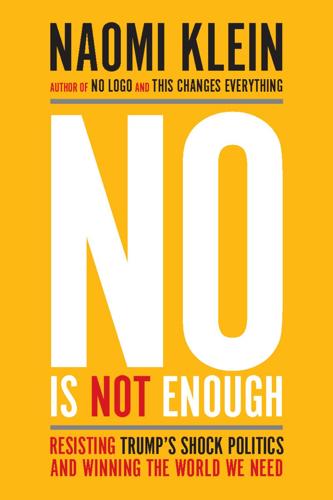
No Is Not Enough: Resisting Trump’s Shock Politics and Winning the World We Need
by
Naomi Klein
Published 12 Jun 2017
Rebecca Lai, and Benoît Morenne, “How France Voted,” New York Times, May 7, 2017, https://www.nytimes.com/interactive/2017/05/07/world/europe/france-election-results-maps.html?_r=0. CHAPTER 11 When No Was Not Enough Street slogan: “We will not pay for your crisis!” Amy Schrager Lang and Daniel Lang/Levitsky, Dreaming in Public: The Building of the Occupy Movement (Oxford: New Internationalist Publications, 2012), 43. US: lost almost two million jobs US Department of Labor, Bureau of Labor Statistics, “The Employment Situation: December 2008,” press release, January 9, 2009, https://www.bls.gov/news.release/archives/empsit_01092009.pdf. US Department of Labor, Bureau of Labor Statistics, “The Employment Situation: January 2009,” press release, February 6, 2009, https://www.bls.gov/news.release/archives/empsit_02062009.pdf.
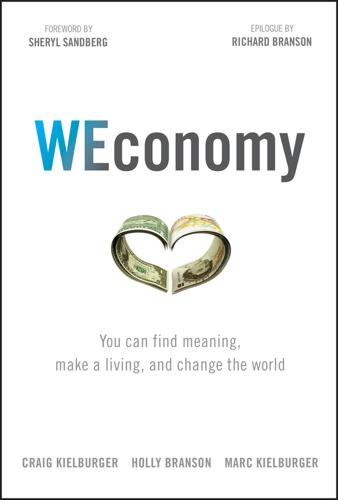
WEconomy: You Can Find Meaning, Make a Living, and Change the World
by
Craig Kielburger
,
Holly Branson
,
Marc Kielburger
,
Sir Richard Branson
and
Sheryl Sandberg
Published 7 Mar 2018
What's more, convincing the junior wedge of the demographic pie to choose a particular bank is incredibly tough. Young people are especially cynical about financial institutions, thanks to a global recession that, in the U.S., was largely blamed on Wall Street and big banks. (Canadian banks fared far better than most anywhere in the world, but that was a minor matter in the news during the Occupy movement.) This is why new checking accounts often come with free TVs or other electronic toys as enticements. What's more, technology has opened the fiercely competitive financial sector to new, nimble players like pay services from Apple and Google. Some big banks fear these are Trojan horses that will bring interference from more tech giants.
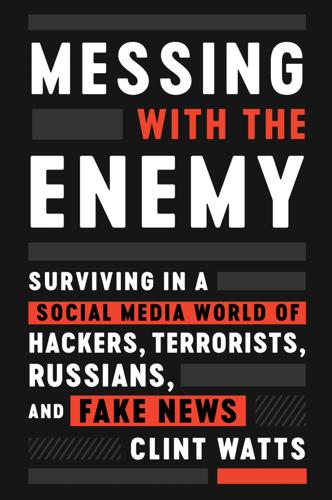
Messing With the Enemy: Surviving in a Social Media World of Hackers, Terrorists, Russians, and Fake News
by
Clint Watts
Published 28 May 2018
Heckler accounts pounced on any issue, liberal or conservative, always taking a divisive tack—fomenting divides between rich and poor, black and white, immigrants and non-immigrants, and all those harboring antigovernment angst. If a Black Lives Matter protest broke out in a U.S. city, the trolls were there, pushing a mix of true and false messages with a conspiratorial bent. Remnants of the Occupy movement or conservative gun owners—it didn’t matter to the trolls; they repurposed existing inflammatory messages or helped seed new conspiracies tearing down the U.S. government. The trolls gravitated to Russian state-sponsored outlets, and helped distribute their false news stories or manipulated truths to newly won Western audiences.
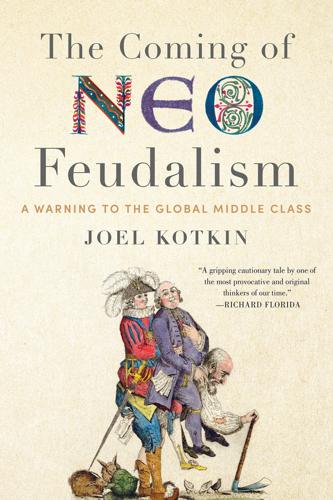
The Coming of Neo-Feudalism: A Warning to the Global Middle Class
by
Joel Kotkin
Published 11 May 2020
Mosley, Oswald Mounk, Jascha Murray, Charles Musk, Elon Mussolini, Benito National Urban Coalition Nazis & National Socialism Nee, William Needham, Joseph Netflix Netherlands; early economy of; flood control in; immigration control in; liberal culture of; literacy in; maritime empire of; as “Republic of Children”; and Roman Empire New Deal New Model Army New Orleans New Republic news media: centralization of; orthodoxy in New York City; as “idea capital”; as “luxury city”; Manhattan; media in; moguls in; Occupy movement; wealth gap in New Zealand. Nicolelis, Miguel Nike 1984 (Orwell) Nohria, Nitin Norbert, St. Nordhaus, Ted Norris, Frank Norway Obama, Barack Occupy Wall Street Oculus O’Grady, Frances O’Hagan, Ellie Mae O’Neil, Cathy Organization for Economic Cooperation and Development (OECD) Orszag, Peter Orwell, George Page, Larry Palihapitiya, Chamath Paris; and gilets jaunes; as “idea capital”; medieval university in Paris Agreement Paris Statement Parrington, Vernon Pastor, Manuel Peccei, Aurelio Pepsi Petrarch Pielke, Roger Piketty, Thomas; on “Brahmin left”; on inheritance; on rentier class Pirenne, Henri Plato Please Look After Mom (Shin) Plouffe, David Poland Poon, Alice Population Bomb, The (Ehrlich) populism; Jacksonian, posthumanism Princeton University Procter & Gamble Progressive Era Public Policy Institute of California Pugachev, Emelian Putin, Vladimir Putnam, Robert Randers, Jorgen Reich, Robert Renn, Aaron rentership society Reuther, Walter Reynolds, Glenn Rockefeller, John Rockefeller Foundation Rogers, Richard Roman civilization (ancient) Romantic movement Roosevelt, Franklin D.
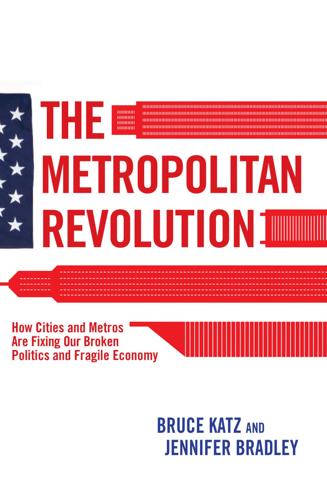
The Metropolitan Revolution: How Cities and Metros Are Fixing Our Broken Politics and Fragile Economy
by
Bruce Katz
and
Jennifer Bradley
Published 10 Jun 2013
They are remaking their urban and suburban places as livable, quality, affordable, sustainable communities and offering more residential, transport, and work options to firms and families alike. And they are doing all these things through coinvention and coproduction. Similar to the Tea Party and the Occupy movements, the metropolitan revolution is a child of the Great Recession. Yet it is reasoned rather than emotional, leader driven rather than leaderless, born of pragmatism and optimism rather than despair and anger. Like all great revolutions, this one has been catalyzed by a revelation: Cities and metropolitan areas are on their own.
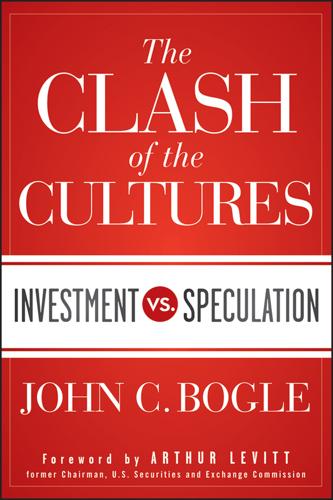
The Clash of the Cultures
by
John C. Bogle
Published 30 Jun 2012
But modern corporations have assumed the right to relocate to different jurisdictions, almost at will, irrespective of where they really do business, and thus avoid the constraints of those obligations. “Government cannot and will not hold corporations to account. That much is now obvious. Indeed, the dawning realization of this truth is what has informed the Occupy movement, but only the owners of corporations can create the accountability that will ultimately unwind the knot of government capture. “The essence of the problem is quite straightforward: a failed system of corporate governance. So is the cause: the unwillingness of trustee owners of America’s corporations to assert their responsibility, legal duty, and civic obligation to monitor and oversee the corporations they invest in.
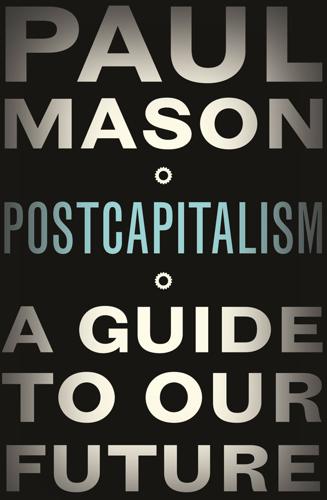
Postcapitalism: A Guide to Our Future
by
Paul Mason
Published 29 Jul 2015
I’ve argued that neoliberalism was a false dawn; that the post-2008 crisis is the product of flaws within the economic model which prevent the exploitation of new technologies, and the takeoff of a fifth long wave. All this makes postcapitalism possible, but we have no model for the transition. Stalinism left us with a blueprint for disaster; the Occupy movement came up with some piecemeal good ideas; the so-called P2P (peer-to-peer) movement has evolved collaborative models on a small scale; while environmentalists have developed pathways for the transition to a zero-carbon economy, but tend to see these as separate from the survival of capitalism. So when it comes to planning the transition from one kind of economy to another, all we have is the experience of two very different events: the rise of capitalism and the collapse of the Soviet Union.
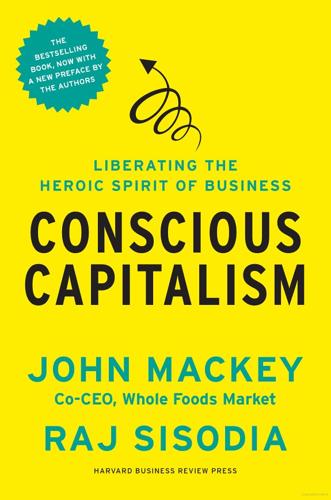
Conscious Capitalism, With a New Preface by the Authors: Liberating the Heroic Spirit of Business
by
John Mackey
,
Rajendra Sisodia
and
Bill George
Published 7 Jan 2014
Conscious capitalism will ultimately triumph because it is based on higher levels of innovation, collaboration, and cooperation. Eventually, the marketplace will weed out businesses that aren’t sufficiently conscious. APPENDIX B Conscious Capitalism and Related Ideas Dissatisfaction with the status quo in the world of business and capitalism has been brewing for quite some time. The Occupy movement of 2011 channeled some of this angst into protests that spread to a number of cities, but ultimately did not amount to much because it did not offer a coherent alternative vision. In recent years, many business thinkers and some CEOs have started to speak of alternative or modified forms of capitalism.
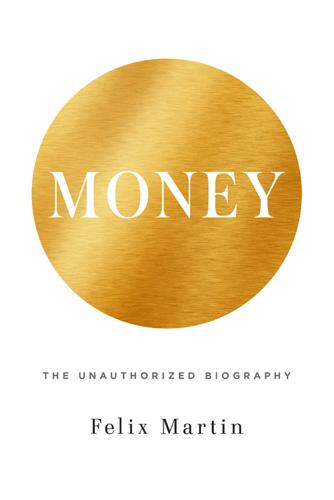
Money: The Unauthorized Biography
by
Felix Martin
Published 5 Jun 2013
Inequalities of wealth are higher now than at any time since the 1930s. The baby boomers own all the houses, and no one under thirty can get on the property ladder. These are not short-term problems—they have built up over decades. The crisis just exposed them and made them worse. I know you’ll laugh if I mention the Occupy movement or the indignados of Madrid—but these people are asking a question which seems perfectly sensible if you just look at the bare statistics: is capitalism really all it’s cracked up to be? “Now, you and I agree that basically it is—or at least, it’s better than anything else. But unless we can explain what’s gone wrong, we will lose the argument.
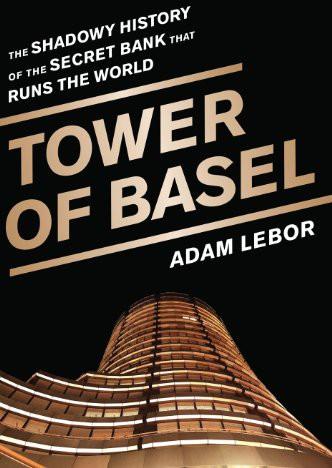
Tower of Basel: The Shadowy History of the Secret Bank That Runs the World
by
Adam Lebor
Published 28 May 2013
That is the BIS using the resources of bigger countries to put something back into emerging markets and developing countries.27 There are small but encouraging signs that some central bankers understand that with great financial power comes social responsibility. In October 2012, Andrew Haldane, executive director for financial stability at the Bank of England, gave a speech on “Socially Useful Banking” at a meeting hosted by Occupy Economics, the London branch of the social protest movement.28 The Occupy movement, he said, had helped trigger the first stages of a “reformation of finance.” Policymakers were listening to criticism and were acting to close the “fault lines” in the global financial system. “Occupy has been successful in its efforts to popularize the problems of the global financial system for one very simple reason: they are right.”
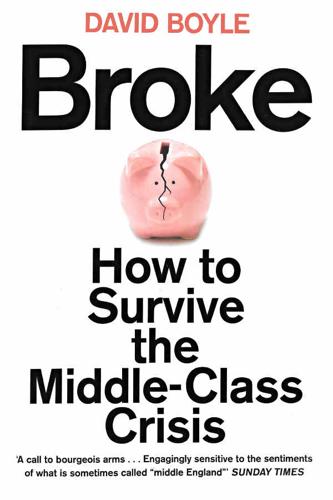
Broke: How to Survive the Middle Class Crisis
by
David Boyle
Published 15 Jan 2014
Edgar, 122 Hopkinson, David, 139, 146, 150 Horta-Osorio, Antonio, 155 Hoskyn, John, 59 hospital consultants, 89, 249 house-price inflation, 3, 15, 18, 20–1, 24, 55–85, 160, 280, 284, 286 ‘Barber Boom’, 56 and building societies’ cartel, 65–6, 71–3 and divorce, 79–80 and housing density, 78–9 and Lloyd’s scandal, 28, 32 and mortgage interest tax relief, 108–9 and rents, 68–9 and school catchments, 20, 210–11, 221 and size of houses, 77–9 and working couples, 74–6 house prices, 56, 61, 68–9, 74, 87 household loans, increase in, 69 housing market, parallel, 301–2 housing shortages, 56 Howard, Michael, 177 Howe, Elspeth, 58 Howe, Sir Geoffrey, 58–60, 62–7, 97, 99, 128, 130 Human Scale Education, 235 Hutber, Patrick, 5, 36–7, 45, 47, 55, 60, 174–5, 283 I IKB, 156 IMF, 59, 128 immigrants, 39 Imperial College, London, 140 income tax, 36 Independent, 118 Independent on Sunday, 175 index-linked funds, 197–8 Industrial Revolution, 152 inflation, 36, 58, 161, 199, 279–80, 284, 286, 289 Initial Rentokil, 295 Institute of New Economic Thinking, 157 insurance, 171 interest rates, artificially low, 195, 203 ISAs, 171 It’s a Wonderful Life, 122–3 Italy, 97, 299 J Japan, 75, 152, 176, 299 Jenkins, Simon, 72, 226, 266 Jersey, 147 Jews, 39 job seeker’s allowance, 271 jobbers, 136–7, 145–7 Johnson, Rob, 157 Johnson, Simon, 151 Jones, Owen, 68, 287–8 Joseph, Sir Keith, 58, 99, 177, 220 JP Morgan, 143, 152 Judd School, 216–17 Julius II, Pope, 278 Jung, Carl, 95 junk bonds, 148, 154 K Katz, Cindi, 46 Kay, John, 104 Kensington and Chelsea, 211 Kent, 216–19 Keynes, John Maynard, 157, 290 Killik, Paul, 147 King, Mervyn, 129–31, 141 King’s School, Tyneside, 238–9 Kingsland Foundation School, 204–6 Kinnock, Neil, 31 Kinsman, Francis, 174 Kozlowski, Dennis, 117 Kramer, Sebastian, 80 Kynaston, David, 130, 311 L Labour Party, 24, 66–7, 179, 182, 194, 287 Lambton, Lucinda, 224 Lane, Deborah, 11–14, 17 Latin American debt crisis, 71 Lawson, Nigel, 58–60, 62–6, 71–2, 128, 130 and building societies, 97, 99–100, 104 and City deregulation, 138, 149 and end of MIRAS, 108–9 and pension reforms, 177, 180–5, 188, 190, 194 Leeds, 225 Leeson, Nick, 158 Leigh-Pemberton, Robin, 151 leisure time, 17 Leith, William, 15, 83 Lewis, Michael, 153–4 Lewis, Roy, 37–9 Liberal Democrats, 211 libraries, 17 Little Venice, 1–2 Lloyd George, David, 38, 172, 255 Lloyd’s of London, 27–35, 50–1, 69, 286 Lloyds Bank, 71, 109, 118, 122, 155, 171 Local Enterprise Partnership, 293 localism, 299 Lockheed Martin, 132 London education, 210–11, 219, 221, 232, 240 housing, 68–9, 85 middle classes, 41–2 wealth disparities, 284 London Olympics, 221 London Oratory School, 228 London Rebuilding Society, 296 London School of Economics, 140–1 London Stock Exchange, deregulation of, 135–40, 147–51 M M&G, 139 McDonald’s, 47 Maclnnes, Colin, 305 McKinsey, 261, 266 ‘Macmillan Gap’, 152 McRae, Hamish, 118 Major, John, 30–1, 101, 176, 213, 258, 263–4 and education reforms, 221–5 Major, Stephen, 113 Manchester, 95, 189, 224, 255 Manchester High School for Girls, 225 Mandelson, Peter, 24, 263 Mangan, Lucy, 76 Marks & Spencer, 243, 248 Martin’s Bank, 96, 122 Marx, Karl, 272–3 Mass Observation, 40 Maude, Angus, 37–9 Maxwell, Robert, 190–1, 201 Meacher, Michael, 182 medical schools, 212 Meeker, Mary, 133 Merrill Lynch, 139, 155 Merton, 211, 213 Metroland, 82 Mexico, 200 Michelangelo, 278 Middle Class Association, 37 Middle Class Defence Organisation, 38 Middle Class International, 38 Middle Class Union, 38 middle-class values, 13–14, 46–9 aspiration, 88, 234 authenticity, 242 confidence, 87 corrosion by financial sector, 154–6, 158–62 education, 14, 45–6, 49–50, 204 independence, 52, 69, 84, 86, 174, 283 internationalism, 163 moderation, 125, 160 thrift, 36, 39, 45, 49, 108, 120, 160, 169, 174, 195, 283, 301, 305 tolerance, 47, 274 middle classes and assimilation, 39 average incomes, 274 ‘casualisation’ of, 175 and children’s intelligence, 229–30 Cobbett’s description of, 282–3 definitions of, 39–45, 52 demography, 35–6 differences of taste within, 305 disapproval and embarrassment, 46–9 disparities of wealth within, 116 impoverishment, 267–72 in London, 41–2 and racism, 230 solidarity with working classes, 289–90 and status, 20, 267 vilification of working classes, 230, 287–8 Middle England, 39 middle managers, 255 Middleton, Peter, 182 Miliband, Ed, 22 miners’ strike, 148, 288 Mischel, Walter, 45 Moody-Stuart, Elizabeth, 211 Morgan, John Pierpont, 143 Morgan Grenfell, 135 Morgan Stanley, 133 Morris, Peter, 175 Morris, William, 255 Morrison, Steve, 205 mortgage interest tax relief, 61, 108–9, 182 mortgages, 14–15, 18, 20, 203, 270, 287, 290 and building societies, 71–2, 97–8, 101 ‘Grandparent Mortgages’, 75 and house-price inflation, 56–7, 60–1, 65–6 interest-only, 75, 171 and lack of choice, 82–4 and multiples of salaries, 75 and rents, 68–9 see also remortgaging Mount, Ferdinand, 26 Mrs Miniver, 275 Muesli Belt, 44, 83 Multis, 43 musicals, 44, 53 N nannies, 169 napkin rings, 39–40 Nasdaq index, 155 National Association of Pension Funds, 180, 184, 191 National Childbirth Trust, 73, 164–5 National Health Service (NHS), 85, 177, 180, 249, 253–4, 260, 267, 291 National Insurance, 181–2, 184 National Lottery, 221, 253 National Theatre, 125–6 National Trust cafés, 87–9, 163 Nationwide Building Society, 112–14, 119 NatWest, 30, 71, 96 Neill Report, 33 Nelson, Admiral Horatio, 198 Nether Wallop, 245–7 Netscape, 114 New Economics Foundation, 116 New Labour, 230 New Public Management, 263–4 New York, 78, 122, 186, 218 New York Stock Exchange, 155 newspapers, 253 Nikko, 149 noise complaints, 78 Nonconformists, 39 Norman, Montagu, 95 North Sea oil, 64, 279 Northern Ireland, 221 Northern Rock, 72, 101, 110, 112, 118 Northwood, 73 Nottingham, 225, 238, 295 nurseries, 19, 76–7, 299 O Oakwood High School, 224 Obama administration, 152 Observer, 110 Occupy movement, 289–90 Office of Fair Trading (OFT), 135–6 Ofsted, 205–6, 231, 269 oil prices, 59, 299 old age pensions, introduction of, 38, 172 Oliver, Jamie, 295 One Per Cent, the, 23–6, 45, 69, 121, 159, 161, 163, 165, 193 O’Neal, Stanley, 155 Orpington, 162 Osborne, David, 261 Outhwaite, Dick, 30–1 outsourcing, 23, 26, 41, 160, 248, 285 Owen, Wilfred, 234 Oxford University, 80, 88, 234 P Pahl, Ray, 49 Palmer, Alasdair, 175 Parents’ Charter, 222–3 Parkinson, Cecil, 137–8, 149 parks, 17 Patten, John, 224, 226–8, 238 Pawson, Andrew, 233 Pearce, Edward, 62 Penhaligon, David, 102–3 Penman, Andrew, 213–14 pensions, 167–203, 270, 281, 284–5, 290, 302 annuities, 172, 196–7 automatic enrolment, 202 average pot, 204 Brown’s tax on, 19, 194 Conservative reforms, 176–85 defined benefit vs. defined contribution, 175–6, 195–6 and home ownership, 14, 19, 21, 85, 200–1, 203 mis-selling of, 188 occupational, 172–3, 175, 178, 185, 188, 190–3, 196–7, 201–2 public sector pensions, 43, 192, 202, 253 SERPs, 179–84 state pensions, 81, 178, 200–1 surpluses, 193–4 Pepper, Gordon, 66 Perry, Grayson, 289, 297, 305 pets, 10 Pinchin Denny, 138 Pinsent Masons, 189 plutonomy, 25, 143, 152, 159–60 political economy, 48, 51 Popcorn, Faith, 83 post offices, closure of, 252 Post-Autistic Economics campaign, 157 Potosí, 279–80 Power, Michael, 257 ‘Precariat’, 17 Pride and Prejudice, 281–2 Priestley, J.
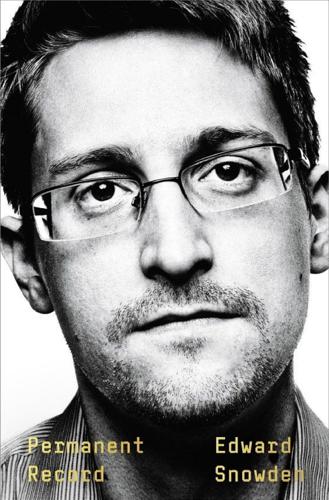
Permanent Record
by
Edward Snowden
Published 16 Sep 2019
(Runa would go on to work as the senior director of information security for the New York Times, which would sponsor her later CryptoParties.) What united our audience wasn’t an interest in Tor, or even a fear of being spied on as much as a desire to re-establish a sense of control over the private spaces in their lives. There were some grandparent types who’d wandered in off the street, a local journalist covering the Hawaiian “Occupy!” movement, and a woman who’d been victimized by revenge porn. I’d also invited some of my NSA colleagues, hoping to interest them in the movement and wanting to show that I wasn’t concealing my involvement from the agency. Only one of them showed up, though, and sat in the back, legs spread, arms crossed, smirking throughout.
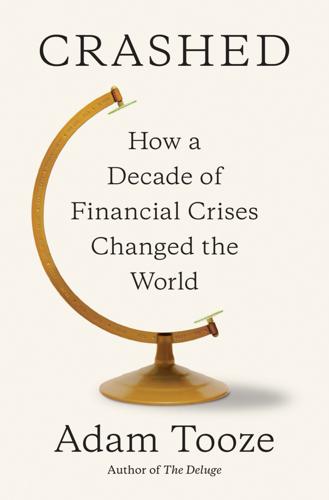
Crashed: How a Decade of Financial Crises Changed the World
by
Adam Tooze
Published 31 Jul 2018
In October 2013 two French economists, one working in California, the other back in Paris, published the latest release of a long-running project on American inequality.14 Emmanuel Saez and Thomas Piketty were at this point not unknown. An earlier paper in which they mapped top incomes in the United States over the long run had yielded the “We are the 99 percent” slogan that the Occupy movement had used to such good effect.15 Nevertheless, the data they released in October 2013 were astonishing. From the latest round of tax releases they calculated that of the growth generated by the economic recovery since 2009, 95 percent had been monopolized by the top 1 percent. That tiny fraction of the population saw their incomes rebound from the trough of the recession by 31.4 percent.16 Meanwhile, 99 percent of Americans had experienced virtually no gain in income since the crisis.
…
“FBI Documents Reveal Secret Nationwide Occupy Monitoring,” December 21, 2012, http://www.justiceonline.org/fbi_files_ows. 80. “Media Coverage of Occupy vs. Tea Party,” October 21, 2011, http://www.journalism.org/numbers/tale-two-protests/. 81. M. A. Gould-Wartofsky, The Occupiers: The Making of the 99 Percent Movement (Oxford: Oxford University Press, 2015). 82. E. Addly, “Occupy Movement: From Local Action to a Global Howl of Protest,” Guardian, October 17, 2011. 83. J. Zeley and M. Thee-Brenan, “New Poll Finds a Deep Distrust of Government,” New York Times, October 25, 2011; and “Americans’ Approval of Congress Drops to Single Digits,” New York Times, October 25, 2011. CHAPTER 17: DOOM LOOP 1.
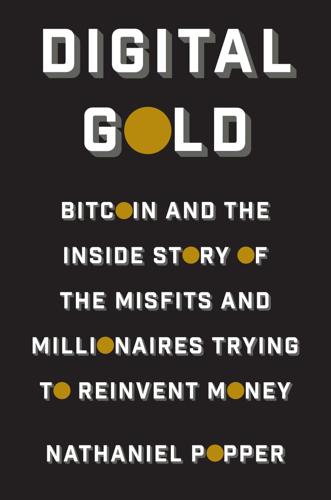
Digital Gold: Bitcoin and the Inside Story of the Misfits and Millionaires Trying to Reinvent Money
by
Nathaniel Popper
Published 18 May 2015
The Bitcoin forum was full of people talking about their experiences visiting Zuccotti Park and other Occupy encampments around the country to advertise the role that a decentralized currency could play in bringing down the banks. The people who had been attending the New York Bitcoin Meetup went to Zuccotti Park with flyers and cards offering an introduction to Bitcoin. Soon enough, a few branches of the Occupy movement began accepting Bitcoin donations. The anticorporate Occupy sentiment was even more widespread in the European Bitcoin community, where libertarianism had less of a foothold. An anarchist bar in a hip neighborhood of Berlin, Room 77, had been one of the first establishments to accept Bitcoin and it became a regular gathering spot for many of the European Bitcoin developers who were working with Gavin Andresen.
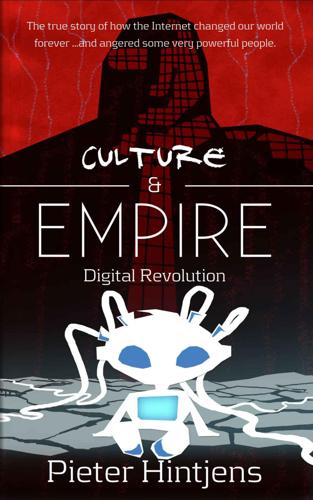
Culture & Empire: Digital Revolution
by
Pieter Hintjens
Published 11 Mar 2013
Occupy Wall Street was mainly a protest against corruption, and since the US government is filled with corrupt men, it was logical that the response to protesters from the State would be more brutal and broadly coordinated than usual. That seems to make sense. Yet we may also have to wonder how that massive internal security apparatus was so conveniently ready and waiting. Perhaps the saddest thing about the events around the ending of the Occupy movement in the US was that most of America simply did not care enough to respond. The beatings and arrests of ordinary young people peacefully protesting against political corruption should, in any normal circumstances, provoke outrage. And that outrage should have amplified the protests, and turned them into a much wider set of confrontations in defense of the anti-corruption movement.
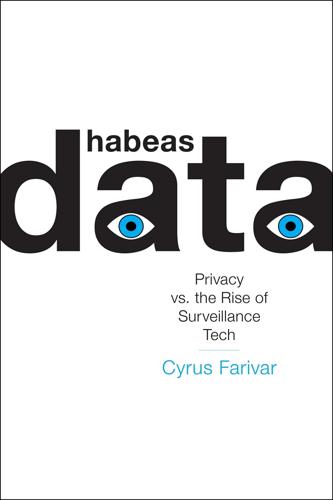
Habeas Data: Privacy vs. The Rise of Surveillance Tech
by
Cyrus Farivar
Published 7 May 2018
After graduating with a BA in cconomics, Hofer bounced around, first getting a job as a paralegal in 2004, and eventually landing in law school at the University of San Francisco in 2008. By 2011, he’d graduated, and later joined one of the protest marches to the Port of Oakland as part of the broader Occupy movement. In June 2013, he read in horror about Edward Snowden and revelations of the National Security Agency’s (NSA) overreach. He was trying to figure out how to best channel his nascent political identity—a mix of Bay Area progressivism with an undercurrent of his rural libertarian roots. Hofer once attended a Berkeley City Council meeting, but found it baffling.

Heaven Is a Place on Earth: Searching for an American Utopia
by
Adrian Shirk
Published 15 Mar 2022
But contrary to the popular narrative, these anarchists did not abandon their hopes for an insurrection or sever their ties to urban rebellion, at least not immediately. The description ended with this admission, which I appreciated: Like many would-be communards, Virgil Addison has no lived experience on rural communes. Woodbine, the space that was hosting the talk, started in 2013, after the wind-down of New York’s Occupy movement, by ten or so people who were bonded by their sustained participation in the demonstrations at Zuccotti Park, and who wanted to find a way to afford to live in New York City in a less isolated way from one another. So they all moved to this neighborhood, within a couple of blocks from this storefront that they collectively pitched into to form Woodbine.

Border and Rule: Global Migration, Capitalism, and the Rise of Racist Nationalism
by
Harsha Walia
Published 9 Feb 2021
See also Indigenous people Native Regulations and Ordinances, 97 NATO, 57, 114, 117, 158 Naturalization Act of 1790, 32 Nauru, 4, 88, 97–103 Naxalites, 176 Nazis, 30, 86, 160, 169–170, 173–174, 185, 212 Ndugga-Kabuye, Benjamin, 28 Negros Island, 179 Neilson, Brett, 140 Nellie Massacre, 190 Nepal, 136, 151, 153, 178 Netanyahu, Benjamin, 172–174, 177 Netherlands, 81, 133, 170, 183, 187, 188 Nevada, 23 Newcastle, Australia, 101 New Deal, 159 New Democracy, 114–115, 184 New Mexico, 23 New Orleans, 4 New People’s Army, 180 New South Wales, 95 New World, 83 New York, 54, 68, 142 New York Taxi Workers Alliance, 68 New York Times, 141 New Zealand, 74, 213 Boochani in, 94 Five Country Conference, 92 Nauru and, 97 “racial destiny” of, 96 Ngai, Mae, 35 Nicaragua, 20, 43, 73 Niger, 4, 107, 109, 120 Nigeria, 31, 106 Nitaqat, 151 Nixon, Richard, 40–41, 199 Nkrumah, Kwame, 125 Nobel Peace Prize, 60, 191 No Friend but the Mountains: Writing from Manus Prison (Boochani), 93 Non-immigrant Employment Authorization Program of 1973, 161 Nopper, Tamara K., 108 North America, 61, 144 North American Free Trade Agreement, 48–52, 65, 206, 207 Northern Triangle, 73 Northrop Grumman, 82 Northwest Detention Center, 38 Norway, 169, 186 Nyerere, Julius, 124 O Obama, Barack, xvi, 219 AFRICOM and, 56 immigration policies of, 22, 58–60, 80, 206 Mérida and, 90 Ocasio-Cortez, Alexandria, 196 Occupy movement, xvi Oceania, 4, 6, 92, 96, 97, 123 Odeh, Rasmea, 57 Ohio, xv Oklahoma, 21 Oluo, Ijeoma, 196 Oman, 146 Omar, Ilhan, 196 Ontario, 156–157 Operation Camarena, 44 Operation Gatekeeper, 52 Operation Green Hunt, 176 Operation Hera I, 112 Operation Hold the Line, 52 Operation Intercept, 41 Operation Mare Nostrum, 117 Operation Pacific Eagle, 180 Operation Safeguard, 52 Operation Sophia, 117 Operation Sovereign Borders, 101 Operation Vigilant Sentry, 208 Operation Wetback, 134 Oranienplatz, 122 Orbán, Viktor, xvii, 108, 115, 121, 173, 185 Oregon, 29 Organ Pipe Cactus National Monument, 78 Osman, Jamila, 31 Oso, Tia, 28 Ossome, Lyn, 72 Otuteye, Mavis, 89 Otzma Yehudit, 172 P Pacific Climate Warriors, 101 Pacific Islander people, 96 Pacific Island Labourers Act, 96 Pacific Islands, 101 Pacific Ocean, 2 Pacific Solution, 88, 92, 99–100, 102, 109 Page Act, 32, 34 Pahari people, 65 Pakistan drone strikes in, 60 India and, 177–178, 190 kafala system and, 151–152 post-9/11 repression and, 54 refugees from, 57, 105, 116 refugees in, 68 Palantir, 80 Palestine, 4, 57, 69, 149, 192, 201, 209 Palestinian people, 69, 149, 173, 177, 194 Paley, Dawn, 45 Pallares, Jesus, 85 Palmer Raids, 32 Pan-African Network in Defense of Migrants’ Rights, 112, 145 Panama, 73 Papua New Guinea, 4, 97–98, 100–101 Indigenous people in, 94–95, 98 Manus Prison in, 93–95, 103 Supreme Court of, 102 Paris, 11 Parsi people, 190 Partition of Africa, 127 Party for Freedom, 170, 183, 187 Pastoral Land Commission, 181 Patel, Priti, 185 Patel, Raj, 141 Patricio, Bennett, 77 PATRIOT Act, 54 Patriotic Europeans against the Islamization of the Occident, 183 Peart, Ned, 156 Pentagon, 79, 208 People’s Party of Canada, 203 People’s Republic of China, 133 Perry, Keston, 208 Personal Responsibility and Work Opportunity Reconciliation Act, 53 Peru, 218 Peterson, Jordan, 170 Pezzani, Lorenzo, 119 Philippine-American war, 143 Philippines, 26, 143–144, 181, 214 far right in, 9, 171, 178–180, 183, 189 kafala system and, 147, 151 Plan Condor, 218 Poland, 116, 133, 185 police, 1, 67, 107, 213 abolition of, 83 activists targeted by, 118 Calais and, 105 CIA and, 45 Covid-19 and, 10–11 far right and, xvi immigration enforcement by, 58, 84 in Bangladesh, 62 in Canada, 164 in Croatia, 116 in India, 214 in Mexico, 90 in Sudan, 121 in the Philippines, 179–180 Manus Island and, 94 migrant worker programs and, 135 Muslim entrapment by, 54 nation-state and, xvii on Greek border, 114 origins of, 33 racial profiling by, 29, 31, 42 uprisings against, 3, 5, 36 war on crime and, 53 war on drugs and, 40 Polk, James, 23 Popular Front for the Liberation of Palestine, 57 Porgera Gold Mine, 94 Port-au-Prince, 48 Portland, 36 border patrol in, 3 Port Moresby, Papua New Guinea, 102 Portugal, 111, 124, 132 Porvenir Massacre, 33 Post and Telegraph Act, 96 Povinelli, Elizabeth, 198 Prashad, Vijay, 218 Pratas, Jose, 155 Pratt, Geraldine, 144 Prawo i Sprawiedliwosc, 183 Preibisch, Kerry, 134, 162 Pressley, Ayanna, 196 Presteve Foods, 155 Prince, Erik, 4 Proposition 187, 34 ProSavana, 72 Protect Mauna Kea, 210 Puar, Jasbir, 78 Public Gatherings Law, 193 Puerto Rican people, 53 Puerto Rico, 26 Q Qasim, Peter, 98 Qatar, 141, 146, 150, 152–153, 154 Africa and, 71 Q’eqchi’ Maya people, 27 Quebec, 165 Quebec City, 160 Quechua, 218 queer people.
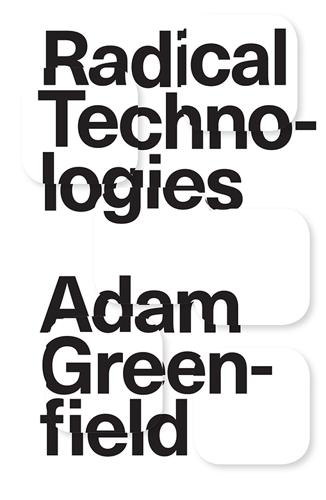
Radical Technologies: The Design of Everyday Life
by
Adam Greenfield
Published 29 May 2017
P., 269 Machii, Isao, 266–7 machine learning, 8, 16, 60, 185, 192, 194, 209–57, 308 maker spaces, 93 MakerBot, 85, 88, 101, 104–5, 107 mapping, 22–5, 275, 278 Mann, Steve, 77–8 Marx, Karl, 70, 305 MasterCard, 120 Mason, Paul, 88 Mauthausen, 61 McDonald’s restaurant chain, 194–5 McDonough, William, 96 McNamara, Robert, 57 Merkle roots, 123 Metropolitan Police Service, London, 231 Microsoft, 38–9, 262, 275 minimal techno (music genre), 221 Minority Report (movie), 227, 230 MIT Technology Review (journal), 243 Mitte, Berlin neighborhood, 71–2 Monobloc chair, 106 Monroe, Rodney, 230 Moore’s Law, 88, 93 Morris, David, 256–7 Mountain View, California, 284 M–Pesa digital currency, 117 Music Genome Project, 220 Musk, Elon, 222 National Institute of Justice, 233 National Public Radio, 41, 192 National September 11th Memorial, 65 National Technical University of Athens, 173 NAVSTAR Global Positioning System, 21 NBC Universal, 220 neural networks, 214–16, 219, 264, 266 Nevada, 192 New York City, 51, 56–8, 136, 238 New York Times (newspaper), 177 Next Rembrandt project, 262–3, 265 near-field communication standard (NFC), 17, 117 Niantic Labs, 65 Niemeyer, Oscar, 261 Nieuwenhuys, Constant, 190 Niigata, Japan, 301–2 niqab, 295 Nixon Administration, 204 nonvolatile memory, 15 North Dakota, 192 Norwegian black metal (music genre), 221 Nuit Debout protests, 3 Occupy movement, 167, 169 Oculus Rift virtual reality headset, 82 O’Neil, Cathy, 249 open source hardware, 102 OpenTable, 39–40, 46 Osborne, Michael A., 195 Ostrom, Elinor, 171 output neuron, 215 overtransparency, 240–1, 243 Pai, Sidhant, 98 Pandora music service, 220 Panmunjom Truce Village, 65 Pareto optimality, 55, 59 Paris, 1–6, 292 Pasquale, Frank, 244, 253 path dependence, 232, 299 PayPal, 120, 136, 220 PCWorld, 45 People Analytics, 198, 226, 232 perceptron, 214 Père Lachaise cemetery, 2, 5, 26 persoonskaart, Dutch identity card, 60 Pew Research Center, 41, 193 Pinellas County, Florida, 256 Placemeter, 51 polylactic acid plastic filament (PLA), 94, 98, 101 Pokémon Go, 63–5, 76, 79 Polari, 311 policy network, 264 Pollock, Jackson, 261 Pony Express, 256 porosity, 28, 173 POSIWID, 155, 302 Postcapitalism (Paul Mason), 88 power/knowledge, 62 predictive policing, 227, 230, 232, 235 PredPol, 229, 231, 236, 244, 254 proof-of-work, 128–30, 140–1, 143, 290 prosopagnosia.
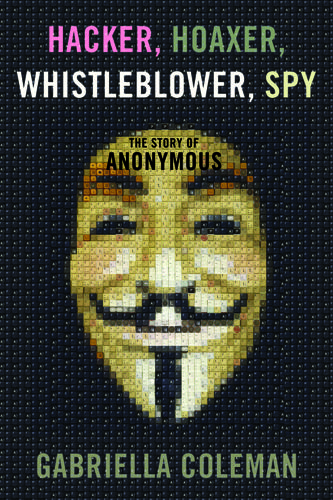
Hacker, Hoaxer, Whistleblower, Spy: The Story of Anonymous
by
Gabriella Coleman
Published 4 Nov 2014
The documents revealed that Coca-Cola hired Stratfor to watch the environmental group PETA, particularly its operations in Canada in the lead-up to the Vancouver Olympics. And Stratfor sent an employee, self-described in an email as “U/O” (undercover), to infiltrate the local Occupy group in Austin, Texas with the goal of gathering organizational intelligence—tracking the occupiers’ movements and identifying any ties with environmental activists: There is a group you may be familiar with called Deep Green Resistance….Whether anyone in the Fed or elsewhere classifies this group as eco-terror or not, I don’t know, but they are nothing but and should be watched….The local Austin chapter was part of the Occupy Austin crowd at city hall, however, things were not “radical” enough for them since they do not believe in working within the system.

The Village Effect: How Face-To-Face Contact Can Make Us Healthier, Happier, and Smarter
by
Susan Pinker
Published 30 Sep 2013
Like the chimps who “aped” their tree-signaling buddies, you have to be in close proximity for synchrony to happen. Online networks can mobilize people’s votes and political protests can spread via Twitter and Facebook, as was the case during the astounding transformations of the Arab Spring and the Occupy movement. But even if the images and invitations to participate were transmitted electronically, the protests happened face-to-face. Anyone who saw the mobs, the tent cities, and the riot police knows that the expression “You had to be there” still holds. The tweets, digital photos, and messages inflamed people, invoking them to join in.
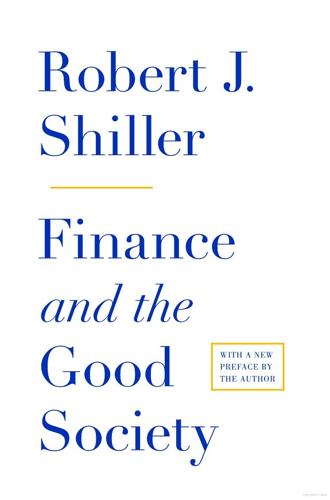
Finance and the Good Society
by
Robert J. Shiller
Published 1 Jan 2012
Unless you have been studying at the bottom of the ocean, you know that the nancial sector has come under severe criticism—much of it justi ed—for thrusting the world economy into its worst crisis since the Great Depression. And you need only check in with some of your classmates who have populated the Occupy movements around the world to sense the widespread resentment of nanciers and the top 1 percent of income earners to whom they largely cater (and often belong). While some of this criticism may be overstated or misplaced, it nonetheless underscores the need to reform nancial institutions and practices.
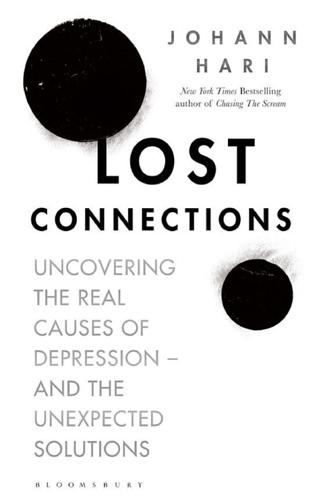
Lost Connections: Uncovering the Real Causes of Depression – and the Unexpected Solutions
by
Johann Hari
Published 1 Jan 2018
So Nuriye’s sign stopped people on the housing project in their tracks, not just out of sympathy, but because they identified with her. In the months leading up to her decision to post the sign in her window, different people in the neighborhood had been trying to find a way to express their own rage. This was the year of the Tahrir Square revolution (and, soon, the Occupy movement), and after watching the events flicker across the news, one of the neighbors had an idea. There is a big main street that runs past their housing project into the center of the city. Some of the neighbors had been gathering there, on and off, to protest about the rising rents already. What if, they wondered, we blocked the street with some chairs and some wood, and the residents who were being pushed out of the neighborhood—including Nuriye—came out of their apartments and went there?
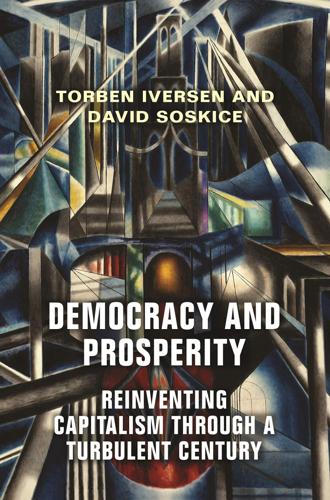
Democracy and Prosperity: Reinventing Capitalism Through a Turbulent Century
by
Torben Iversen
and
David Soskice
Published 5 Feb 2019
Second, that the advanced capitalist democracies face political opposition from groups who (i) feel that they and their children are left out of and excluded from the benefits of the “American Dream” (or equivalent), especially if they feel “others” (notably immigrants) are benefiting in their place; and (ii) can organize (or be organized) politically. Third, apart from small isolated groups—for example, the Occupy movement (themselves typically potential winners of the knowledge economy)—effective political opposition is in no way socialist, nor is it concerned to destroy or take over advanced capitalism; this is consistent with our basic argument that advanced capitalism should be analyzed in terms of the basic complementarity at the national level of the interests of advanced capital and the more skilled part of the population, and the many other groups who in turn benefit from the more skilled—and not in terms of the conflict between capital and labor (as in Piketty or Streeck, to cite particularly prominent recent accounts).
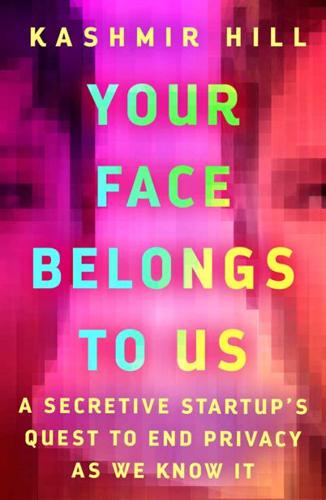
Your Face Belongs to Us: A Secretive Startup's Quest to End Privacy as We Know It
by
Kashmir Hill
Published 19 Sep 2023
He escaped unscathed but galvanized, suddenly aware of the connection between social inequity and the police state; those with wealth and power leaned on law enforcement to crack down on dissent and preserve the status quo because they liked the world just the way it was. Martinez started befriending more people in the Occupy movement, gravitating toward other activists who were technically minded. One of them had a theory that the police were tracking protesters using a device called a stingray that could trick phones into thinking it was a cell tower; if phones connected to it, cops might be able to log people at the protest and capture data from their devices.
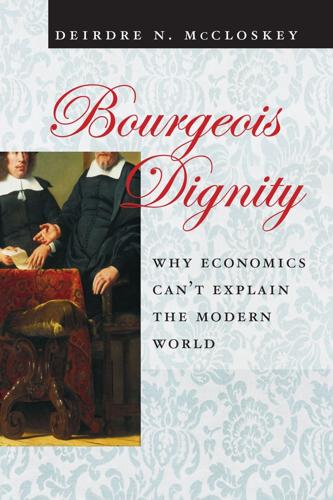
Bourgeois Dignity: Why Economics Can't Explain the Modern World
by
Deirdre N. McCloskey
Published 15 Nov 2011
The “one might add” suggests a wariness toward the recent environmentalist modulation of the left, a modulation, as he suspiciously observed elsewhere in the same essay, “on a much more middle-class basis.” The environmentalist, anticorporatist, antiglobalist, usually middle-class radicals exemplified by the Occupy movement and its Spanish model, Los Indignatos, were, he wrote, “anti-capitalist, though without any clear idea of capitalism.” “It was almost impossible to identify what they proposed to substitute for it. This may explain a revival of what looks like Bakuninite anarchism.”4 From an Old Communist, “Bakuninite” is not a compliment.
…
See also Defoe, Daniel; Watt, Ian Novgorod, Russia: republic, 336 Nozick, Robert: liberalism, 558; trade, 429; Wilt Chamberlain example, 50 nuclear fission: model of change, 473 nuclear power: opposition to, 69 Nunziata, Luca: share of population exhibiting entrepreneurship, 472–473 Nussbaum, Martha: contractarian ethics, 26, 668n3; enough, 46; having a go, xxii; number of virtues, 194; prudence-dominant ethics, xxv; virtue ethics, 668n4 Nuvolari, Alessandro: acknowledged, xxxix; causes of betterment, 662n12; patents, 133; steam, 694n1 Nye, John: acknowledged, xxxviii; commercial rhetoric, 272; neo-institutionalism, 122, 652n18; rationality, 164; Smithian policy, 523 Nygren, Bishop Anders: on love, 382, 669n18 Oakeshott, Michael: on Hobbes, 680n7 O’Brien, Patrick: effect of war on economy, 86; European export share, 642; human punishing, 652n19; power and plenty, 661n18 Occidentalism, 600 Occupy movement: and old left, 55 OECD: average income, 7; Oslo Manual on innovation, 95 Ofer, Bar-Yosef, 663n20 Ogilvie, Sheilagh: efficiency in neoinstitutionalism, 415; guilds, 535, 536, 698n1; institutions, 696n1 Ó Gráda, Cormac: on Allen, 652n26; British human capital, 473; on disease and nutrition, 655n13; early growth, 695n4; Irish famine, 655n8; Little Ice Age, 516, 653n44; potatoes in Ireland, 16; psychology vs. sociology, 473; social origins of inventors, 39; technical elite as cause, xxviii; world famines, 23 oil: Dutch disease and, 92, 140; limits, 66, 68–69, 629–630; resource diplomacy and, 91 Oli, Gian-Carlo: Italian dictionary, 673n29 Olson, Mancur: collective action problem, 338; stationary bandits, 656n20; vested interests, 465 ORDO liberals: new social ethic, 40 Orientalism, 420 Origo, Iris: The Merchant of Prato, 689n7 O’Rourke, Kevin: power and plenty, 99; use of Mantoux, 99 Ortega y Gasset, José: ethics and betterment, 25 Orwell, George: descendants of miners, 45 Ōsaka, Japan: bourgeois, 221, 640 Osborn, Jan, 666n26; humanomics, xli Oschinky, Dorothea: editor of Walter of Henley, 676n20 Oslington, Paul: natural theology, 385 Oslo Manual: innovation, 95 Ostrom, Elinor, 652n22; humanomics and free riding, xxiv ozone layer, 67 Pacioli, Luca: double-entry, 322 Packer, George, 42 Pagano, Patrizio: stagnationism, 64 Paine, Tom: liberal, xvii Palliser, Lady Glencora, 46 Palma, Nuño, 477 Palmer, Tom, 686n12; acknowledged, xxxvii; Macaulay, 657n5; quotes Bright, 661n17 Palmgren, Ingela: acknowledged, xxxix Papin, Denis, 174 Papua New Guinea: justice in, 583–585 Pareto improving.
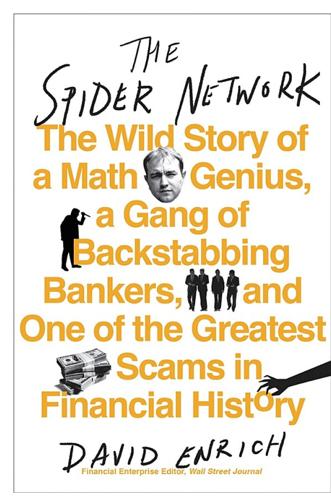
The Spider Network: The Wild Story of a Math Genius, a Gang of Backstabbing Bankers, and One of the Greatest Scams in Financial History
by
David Enrich
Published 21 Mar 2017
Senior bank managers came along, too, lavishing the traders with praise and alcohol. One chilly evening in December 2003, RBS rented out a portion of Finsbury Square, a large grass-and-gravel gathering place nestled among the skyscrapers of central London. A decade later, the square would be home to London’s iteration of the Occupy movement, whose camped-out protesters spent months denouncing banking’s excesses. This night, RBS was throwing a big Christmas bash for its traders. With the winter sun setting in midafternoon, dozens of traders had ducked out of work early to get a head start on the revelry. The bank erected a large, white marquee tent stocked with free food and booze.
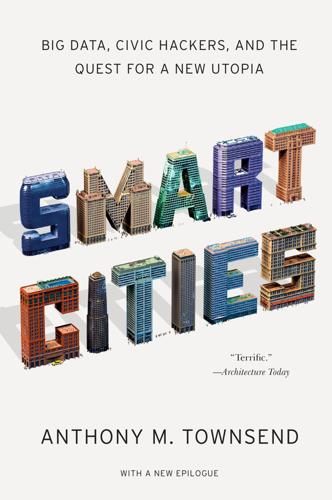
Smart Cities: Big Data, Civic Hackers, and the Quest for a New Utopia
by
Anthony M. Townsend
Published 29 Sep 2013
A dozen blocks south, the Occupy Wall Street protests are reaching their violent zenith in Zuccotti Park. The city is on edge from daily marches that take the “99 percent” and their riot gear–clad chaperones tramping across Manhattan. Police helicopters hover like angry wasps overhead. Hirshberg’s neologism is an attempt to capture the excitement of the Occupy movement as well as the more subtle technological transformation of citizen-government interaction by open data and apps. America is no stranger to youth movements, though it had been a long time since one loomed so large in the public mind. The closest analogue is probably 1967, when tens of thousands of young people descended on San Francisco’s Haight-Ashbury district.
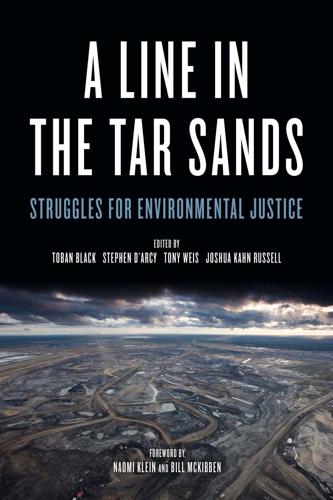
A Line in the Tar Sands: Struggles for Environmental Justice
by
Tony Weis
and
Joshua Kahn Russell
Published 14 Oct 2014
See Indigenous rights NATO, 311 Natural Resources Canada, 51 Natural Resources Damage Assessment (NRDA), 199 Navajo Nation, 168, 241; Black Mesa, 241 Nebraska, 178, 250 neo-conservatism, 13 neo-liberalism, 46, 50, 68, 75, 267, 270, 302, 306, 307 neo-Nazi organizations, 96 Netherlands, Canadian embassy in, 57 neurotoxins, 136 “new green economy,” 41 New York State, 315 Nexen, 92–93 NextGen Climate Group, 91 “NGO industrial complex,” 68 nibi (water) walkers, 262 Nicholls, Zak, 144 nickel, 254 Nieto, Yudith, 184 Nikiforuk, Andrew, 34, 53; Tar Sands: Dirty Oil and the Future of a Continent, 50 Nimbyism, 295 nitrogen oxides, emissions of, 32, 324n33 non-governmental organizations (NGOs), 23, 175, 186, 213–14, 244, 248, 270–71, 277; alliances with Indigenous communities, 41–42; environmental (ENGOs), 64–75, 88, 93, 167, 243, 248–49, 287, 310 “non-profit industrial complex,” 242 nonviolent direct action (NVDA), 173–74 Nooski, Larry, 163 North American Free Trade Agreement (NAFTA), 89, 92, 94, 96; “proportionality” clause of, 30 North American Mobilization for Climate Justice, 311 North Dakota, 314; Bakken shale boom near, 100, 138; as new Saudi Arabia, 282 Northern Gateway pipeline, 5, 11, 13, 17, 34, 41, 79, 91, 125, 162–63, 165, 204, 257, 312; and containing Indigeneity, 153–56; joint review panel (JRP), 148–50, 153–56, 158, 264; movement against, 146–59, 260 Northwest Territories, diamond mining in, 126 Norway, 29, 33; Canadian embassy in, 57; oil imports from, 31; Statoil, 29, 53, 56, 57–58, 102, 215; tar sands as election issue in, 56 nuclear power, 9, 218, 221–22, 224, 230, 250, 307, 314, 319 Nunavut, 316 Nuu-chah-nulth First Nation, 71; Central Regional Board, 71; Interim Measurements Agreement (IMA) Obama, Barack, 60–62, 91, 170, 174, 175–77, 186, 192, 221, 223, 234, 244–45, 284, 310, 318 Occupy movement, 74–75, 187, 238, 283–84 O’Connor, Dr. John, 53 Odendahl, Sandra, 103 Ogallala Aquifer (Nebraska), 234, 250 OilChange, 234 Oil Sands Developers Group, 49 Oil Sands Sustainable Development Secretariat, 50 The Oil Sands: Toward Sustainable Development, 50 oil sands vs. tar sands, 322n4 oil shale, 82, 100, 108–9; kerogeninfused, 105–7 Oja Jay, Dru, 65, 70 Ojibwe people, 229; Fond du Lac Band, 231–32; Leech Lake Band, 231–32; Red Lake Band, 232 Oklahoma, 12, 192, 241, 250, 283–84 Oliver, Joe, 34, 45, 55, 107, 150 100 Thousand Poets for Change, 165 1Sky, 243, 245 oppression, 18, 160, 192, 252, 255, 259, 263–64, 266, 273, 275–76, 278 Oregon, 315 Organization of the Petroleum Exporting Countries (OPEC), 28 organized labour.
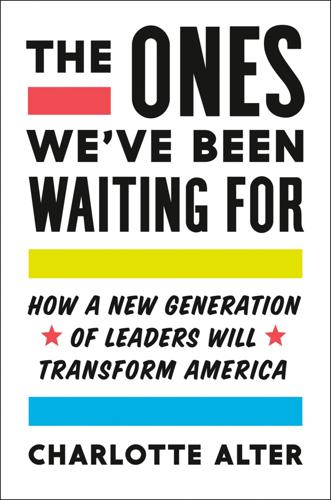
The Ones We've Been Waiting For: How a New Generation of Leaders Will Transform America
by
Charlotte Alter
Published 18 Feb 2020
CHAPTER 9: FUCK THE SYSTEM three-quarter-acre pocket park: Mattathias Schwartz, “Map: How Occupy Wall Street Chose Zuccotti Park,” The New Yorker, November 18, 2011, newyorker.com/news/news-desk/map-how-occupy-wall-street-chose-Zuccotti-park. 40 percent of the active participants: Ruth Milkman, Stephanie Luce, and Penny Lewis, “Changing the Subject,” Murphy Institute, CUNY School of Labor and Urban Studies, 2013, docs.wixstatic.com/ugd/90d188_f7367c3e04de4e94a6f86f9e6b1023ed.pdf. website were under thirty-four: Hector R. Cordero-Guzman, “Mainstream Support for a Mainstream Movement,” 2011, Baruch College School of Public Affairs. under thirty supported the movement: Public Policy Polling, “Americans See Occupy Movement Better Than Tea Party,” October 13, 2011, publicpolicypolling.com/wp-content/uploads/2017/09/PPP_Release_US_1013925.pdf. called “We Are the 99 Percent.”: “We Are the 99 Percent,” October 14, 2013, wearethe99percent.tumblr.com/. “doctor without health insurance.”: “We Are the 99 Percent,” 2, wearethe99percent.tumblr.com/page/2.
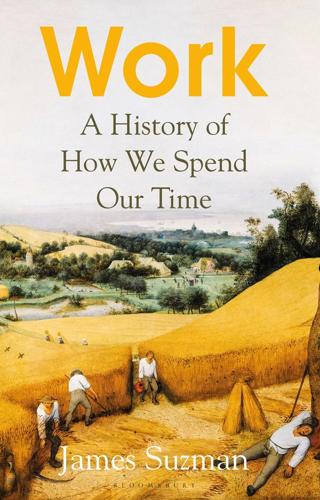
Work: A History of How We Spend Our Time
by
James Suzman
Published 2 Sep 2020
Thomas Robert here, here, here Malthusian Society here Mapungubwe here Marie Antoinette, Queen of France here Marx, Karl here, here Master and Servants Act here mathematics here Mayans here, here, here Meadows, Dennis here measles here Melanesian islands here Memphis here, here mental health issues here Mesopotamia, Islamic conquest of here metalwork here Midvale Steel Works here Miller, George Armitage here mockery here Model T Ford here mole rats here, here money, origins of here, here, here monopolies here ‘moral harassment’ here Mount Carmel Project here Muaryan Empire here Mughal India here mutualism here, here Namibian independence here nationalism here, here, here Native Americans here, here, here, here, here Natufians here, here, here, here, here, here natural selection here, here, here, here, here, here see also sexual selection Navajo hunters here navigation here Nayaka here Neanderthals here, here, here, here, here, here, here Dorothy Garrod and here needs, ‘absolute’ and ‘relative’ here, here, here, here nettle soup here neuroplasticity here, here, here, here, here, here ‘New Class’ here newborns, human here Newcomen, Thomas here Newton, Sir Isaac here, here, here, here Nietzsche, Friedrich here Noah’s Ark here Nuer here nutritional deficiencies here, here Oates, Pastor Wayne here Occupy movement here ocean acidification here Oldowan tools here Olmecs here Olorgesailie flakes here Orangi Town here orang-utans here orcas here Organisation for Economic Co-operation and Development (OECD) here, here, here overwork here oxpeckers here oxygen, atmospheric here ozone layer here, here Pacific North West Coast peoples here, here, here Paiute here palaeogenetics, see genomic studies Palmyra here pangolins here Papua New Guinea here, here ‘paradox of value’ here parasite economy here parasites here, here parasitism here Parkinson’s Law here Parthenon here passerine birds here pathogens here Patterson, Orlando here Patterson, Penny here Pax Romana here peacocks here Pennsylvania Gazette here, here Persian Empire here persistence hunting here pestles and mortars here, here pests here Peterson, Nicolas here Pfeffer, Jeffrey here photorespiration here photosynthesis here, here ‘physiocrats’ here plant domestication here, here, here, here, here Plato here Polanyi, Karl here Pompeii here population growth here, here, here, here, here post-capitalism here post-industrialisation here, here potlatch ceremonies here probability here prokaryotes here, here prostitutes here public wealth, transfer to private hands here purposive (purposeful) behaviour here, here Putamoyo River here Pyramids here, here pyrite here Pythagoras here, here Qesem Cave here Quarternary Ice Age here Reagan, Ronald here renewable energy here Ricardo, David here, here Rigollot, Marcel Jérôme here ritual burial here robots here, here, here, here rock and cave paintings here, here, here, here Roman Empire, endurance of here Rome, ancient here, here, here, here, here, here, here, here, here collegia (artisan colleges) here, here, here, here trades and professions here and urbanisation here, here and wealth inequalities here Romulus and Remus here Roosevelt, Franklin D. here, here Rubik’s cube here rubisco here Russian Revolution here Sado, Miwa here, here Sahlins, Marshall here St Paul’s Cathedral here SARS here Savery, Thomas here, here scarcity, problem of, see ‘economic problem’ Schmidt, Klaus here, here Schöningen spears here Schrödinger, Erwin here, here, here ‘scientific management’ here, here, here sculptures here, here second law of thermodynamics here, here seduction here self-interest here Semliki River here services sector here, here sexual relationships, and work here sexual selection here, here shamans here, here, here Shelley, Mary here, here Shelley, Percy Bysshe here shellfish here, here Sherman Act here Sibiloi National Park here Sibudu Cave here ‘skull cult’ here skull morphology here slavery here, here, here, here, here, here slaves, ceremonial murder of here Smith, Adam here, here, here, here, here, here, here, here, here snapping shrimp here social hierarchies here social learning here social networks here social welfare here South Korea here, here, here space, domestication of here Spencer, Herbert here, here spinning frame here steam engines here, here, here sticklebacks here Stonehenge here, here, here, here, here structuralism here sugar here, here, here suicide here, here, here see also karo jisatsu Sumerians here, here, here sumptuary laws here Sunghir here, here supply and demand here survival of the fittest here sustainability here, here, here, here, here symbiosis here, here synaptic pruning here Takahashi, Mariko here ‘talent’, myth of here, here, here Tarahumara hunters here taxation here, here Taylor, Freerick Winslow here, here, here, here Taylorism here, here technological unemployment here television here Tenochitlán here termites here, here, here, here, here, here, here Thatcher, Margaret here theft, tolerated here theological conservatism here Thieme, Hartmut here Thirty Years War here thumbs, opposable here time, transformation in understanding of here ‘time is money’ (the phrase) here, here, here Tower of Babel here toxoplasmosis here trade unions here, here, here, here, here Tsimshian here Turnbull, Colin here UK Office for National Statistics here UN Climate Change Conference here underwork here universal basic income here universe, creation of here universities here upright posture, and vocal capabilities here urbanisation here, here and agriculture here emergence of new professions here neighbourhoods and trades here Uruk here, here, here, here, here, here Urukagima, King here US Treasury here vervet monkeys here vestigial features here vocal abilities here vultures here, here wages improved here and productivity here waterwheels here Watson, James here Watt, James here weaver birds here, here, here, here weed species here, here whales here, here, here wheat, wild here, here, here wheels, pulleys and levers here Wilde, Oscar here, here wildebeest here, here, here Windhoek here, here windmills here Wonderwerk Cave here, here Woodburn, James here Wordnet database here work definition here the word here workaholism here, here working hours here, here, here, here, here workplace engagement here World Debating Championships here World Economic Forum here Wrangham, Richard here writing here Xerxes here Yanomamo here Yolngu here Younger Dryas here, here Yukhagir here Zen Buddhism here Zeus here, here Zilliboti, Fabrizio here A Note on the Author James Suzman is an anthropologist specialising in the Khoisan peoples of southern Africa.
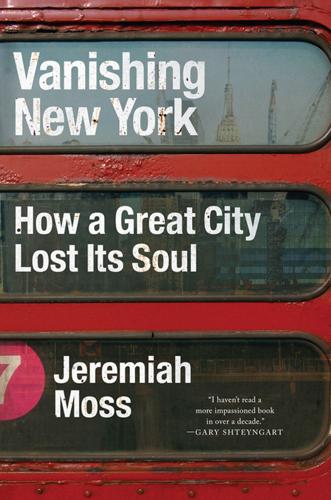
Vanishing New York
by
Jeremiah Moss
Published 19 May 2017
and waved signs that read “I ♥ Immigrant NY.” Once again, the insurgent heart of the city has a beat. And so, as I write this in unstable and uncertain January 2017, I dare to hope. Today’s violent convulsions may be signs that the New Gilded Age is thrashing in its death throes. Over the past few years, the Occupy movement, Black Lives Matter, and Bernie Sanders have energized a new generation of activists. The mainstream media finally started talking about economic inequality. Even the International Monetary Fund, a major champion of neoliberalism, admitted that free-market policies hinder growth, concluding, “The evidence of the economic damage from inequality suggests that policymakers should be more open to redistribution.”
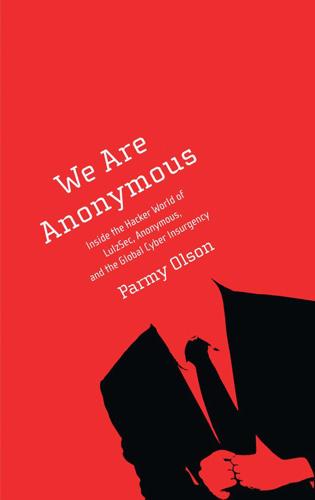
We Are Anonymous: Inside the Hacker World of LulzSec, Anonymous, and the Global Cyber Insurgency
by
Parmy Olson
Published 5 Jun 2012
Then there was the growing international movement called “Occupy,” which emerged in September 2011 and saw tens of thousands take to the streets in major capitals to protest social and economic inequality, often using the slogan “We are the 99%.” Activist-style supporters of Anonymous largely showed their support for Occupy, promoting it on Twitter and blogs and wearing the V for Vendetta masks at protests. Police had arrested more than 6,800 people in connection with the Occupy movement as of April 2012, by which time it had gone into hiatus. But as observers marveled at how this apparently leaderless global crowd could organize itself so extensively online and in physical demonstrations, they only had to look at Anonymous to see it had already been done before. For the FBI, getting Sabu as an informant had been a coup, but chasing the day-to-day glut of bragging, secret discussions, conspiracies, and threats probably soon turned into a bureaucratic nightmare.
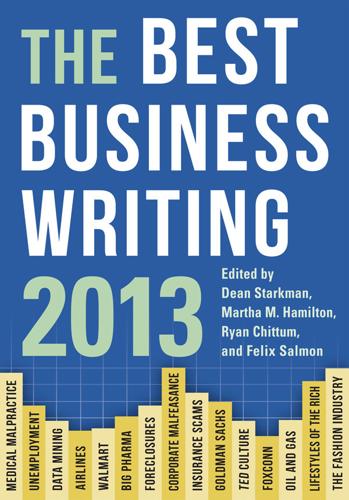
The Best Business Writing 2013
by
Dean Starkman
Published 1 Jan 2013
With KATHLEEN FRENCH, EMMA JANASKIE, and NICK WERLE, they are the editors of the volume The Trouble Is the Banks: Letters to Wall Street. The letters by Deena DaNaro, Joel Roche, Pamila Payne, and other anonymous authors first appeared on the Occupy the Boardroom website created by volunteers from community and labor organizations as well as the Occupy movement to allow everyday Americans to send personal e-mails to the nation’s top bank and corporate executives. BRIAN GROW is a special enterprise correspondent for Reuters based in Atlanta. He joined Thomson Reuters in 2010 as a senior staff writer covering legal affairs. Previously, he was a project director at the Center for Public Integrity in Washington and reported for BusinessWeek.
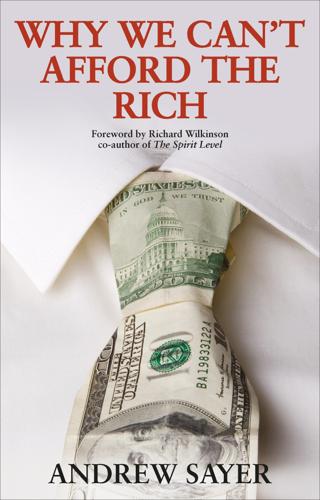
Why We Can't Afford the Rich
by
Andrew Sayer
Published 6 Nov 2014
But I resent the unjust system by which the rich are allowed to extract wealth that others produce and to dominate society for their own interests. What’s more, this is not only unjust but profoundly dysfunctional and inefficient, and it creates inhumane, rat-race societies. The time is ripe for examining where the wealth of the rich comes from. The Occupy movement has very successfully highlighted the growing split between the top 1% and the 99%, and the dominance of politics by the 1%. The rich have made a remarkable comeback since the 1970s – the end of the post-war boom – rapidly increasing their share of national income in a large number of countries, Britain included.
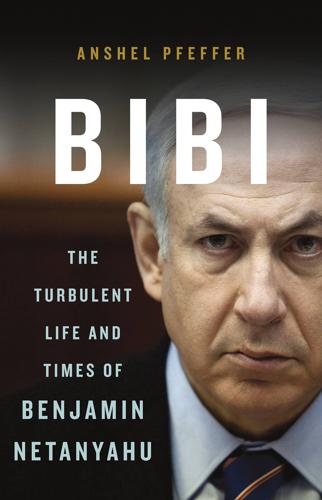
Bibi: The Turbulent Life and Times of Benjamin Netanyahu
by
Anshel Pfeffer
Published 30 Apr 2018
Hidden behind the healthy financial statistics and the headlines heralding yet more multimillion-dollar high-tech startup “exits,” the majority of Israelis were struggling on their salaries to afford housing and keep up a Western-standard lifestyle without incurring crushing debt. A similar protest movement would take place in the United States shortly thereafter, in September 2011, when Occupy Wall Street began, and Europe saw protests over economic inequality as well. But for Israel, in the Middle East, the Arab Spring resonated more than in other places where “occupy” movements took place. The awkward truth was that Netanyahu’s Israel had two economies: a healthy technology-driven economy, trading with the world and bringing in handsome rewards for its successful entrepreneurs and software engineers, on the one hand, and, on the other, a second economy in which most of the middle and working classes floundered.
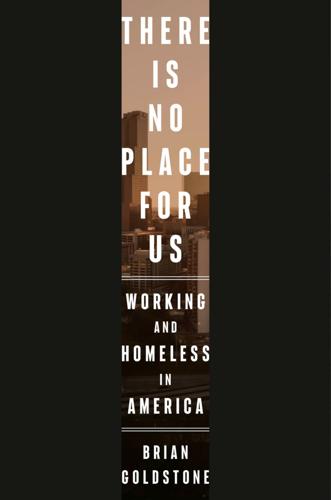
There Is No Place for Us: Working and Homeless in America
by
Brian Goldstone
Published 25 Mar 2025
Predominantly Black neighborhoods in Fulton, DeKalb, and Clayton counties had been targeted by predatory subprime lenders, and so it was these neighborhoods that saw staggering foreclosure rates when residents were unable to repay their risky, high-cost mortgages. Witnessing a growing number of neighbors being forcibly removed from their homes (“The banks got bailed out, but our families are getting kicked out,” went a slogan at the time), a group of Atlanta activists, many of them involved with a local offshoot of the Occupy movement, began organizing to prevent such seizures from taking place: protests were staged outside courthouses, foreclosed properties, apartment complexes, and the banks responsible for the ongoing disaster. Occupy Our Homes Atlanta, as the activists called themselves, eventually became Housing Justice League (HJL).
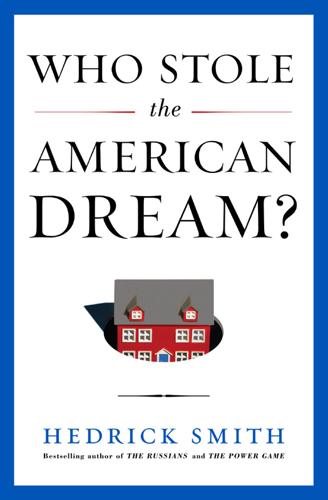
Who Stole the American Dream?
by
Hedrick Smith
Published 10 Sep 2012
Another fresh surge of energy came last fall from Occupy Wall Street demonstrators in New York City and thousands more from Boston to Portland, Oregon, and St. Louis to Los Angeles. They gave voice to a populist protest against concentrated power and wealth in America, and much of the public responded positively to their message. In a few short weeks, the Occupy movement, inchoate as it was, not only changed the public dialogue on economic issues, but implanted in America’s political lexicon a vivid, Twitter-easy slogan—“We are the 99 percent”—opposing the richest 1 percent—a slogan that frames a central issue for election-year politics and policy makers in Washington.

The Unwinding: An Inner History of the New America
by
George Packer
Published 4 Mar 2014
It’s a disturbing question which of these three is going to happen today, or if there’s a fourth way out.” Elizabeth Warren, campaigning for the Senate, said, “I created much of the intellectual foundation for what they do.” Newt Gingrich, campaigning for president, was heckled by Occupy protesters at Harvard, and afterward he told the audience at an Iowa family values forum, “All the Occupy movement starts with the premise that we all owe them everything. They take over a public park they didn’t pay for, to go nearby to use bathrooms they didn’t pay for, to beg for food from places they don’t want to pay for, to obstruct those who are going to work to pay the taxes to sustain the bathrooms and to sustain the park, so they can self-righteously explain that they are the paragons of virtue to which we owe everything.
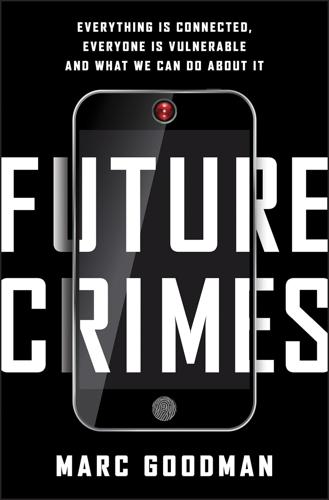
Future Crimes: Everything Is Connected, Everyone Is Vulnerable and What We Can Do About It
by
Marc Goodman
Published 24 Feb 2015
Not long ago, signals intelligence capabilities such as these would have cost tens of millions of dollars and were only available to the world’s most advanced militaries. The WASP was built for $6,000. With basic drones equipped with HD cameras costing so little, they are beginning to show up in a variety of unexpected places, including at protests and riots. In Warsaw, Poland, demonstrators from the Occupy movement launched a quadcopter to document the activities of aggressive riot-clad police as they attempted to control a crowd of thousands with tear gas. The so-called Occu-copter flying a hundred feet off the ground provided protesters with stunningly clear images of police officers as they moved in column formation to try to encircle the demonstration, a powerful and previously unimaginable countersurveillance tool now in the hands of the common man.
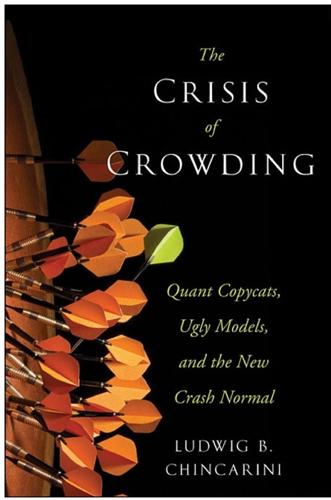
The Crisis of Crowding: Quant Copycats, Ugly Models, and the New Crash Normal
by
Ludwig B. Chincarini
Published 29 Jul 2012
Wall Street banks paid back government money with interest, so these loans cost taxpayers nothing. About $245 billion has not been repaid.2 Debtors include many regular U.S. banks, Fannie and Freddie, and the automobile companies (see Table 19.1). Freddie and Fannie owe $151 billion alone. If the Occupy movement wants the right place to locate its tents, it should consider Washington, DC, home to Congress, the White House, Freddie Mac, and Fannie Mae. However, this is probably not the most productive way to initiate change. TABLE 19.1 Summary of TARP Program Profits and Losses We shouldn’t criticize the Fed or the bailout too much.

Liberalism at Large: The World According to the Economist
by
Alex Zevin
Published 12 Nov 2019
That was Coggan, who argued for taking their ‘deep-seated grievances’ seriously – with youth unemployment at 21 and 17 per cent in Europe and the US respectively, real wages falling for the middle class, and inflation eroding the savings of the elderly, as bankers raked in bonuses. He contrasted the Occupy movement with the ‘selfish’ protests in Seattle in 1999, ‘easy for economic liberals to dismiss’ as ‘an attempt to impoverish the emerging world through protectionism’. Lucas was slightly cooler. For without organized labour, argued a second piece written largely by him, the occupations in Berlin, London, Madrid, New York and Rome would struggle to be heard.
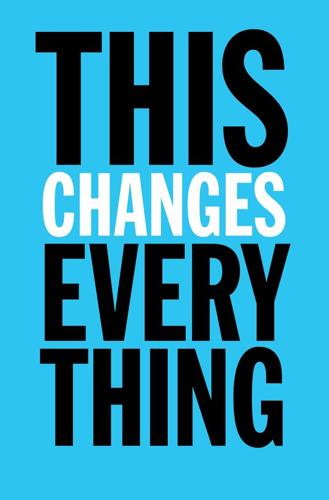
This Changes Everything: Capitalism vs. The Climate
by
Naomi Klein
Published 15 Sep 2014
This can go far beyond the usual calls for stronger seawalls: activists can demand everything from free, democratically controlled public transit, to more public housing along those transit lines, powered by community-controlled renewable energy—with the jobs created by this investment going to local workers and paying a living wage. And unlike the disaster capitalists who use crises to end-run around democracy, a People’s Recovery (as many from the Occupy movement called for post-Sandy) would require new democratic processes, including neighborhood assemblies, to decide how hard-hit communities should be rebuilt. The overriding principle must be to address the twin crises of inequality and climate change at the same time. One example of this kind of inverted shock doctrine took place in the rural town of Greensburg, Kansas.